INTRODUCTION
The 1918 Pandemic is widely known under the misnomer “Spanish Influenza”. Experts continue to analyze and study the origin and timing of this highly contagious, lethal and mysterious scourge. Most agree it wasn’t Spain nor limited to 1918, but rather spread in successive waves from early cases late in 1917 through recurrent epidemic in 1920. The month of October 1918 was the deadliest.
The disease is also known as the “forgotten pandemic” because it was eclipsed in real-time and in the history books by the Great War. To attempt to capture the magnitude of the loss, nutshell summaries repeat how tens of millions were killed by flu, more than by battle in World War I (WWI). Since the prevailing contenders for the original hot-zones for the disease were in or nearby military installations, perhaps there’s a case to be made for tallying civilian flu deaths together with any WWI datasets for a full impact of the casualties of WWI.
To this day, the precise number of cases of infection (morbidity) and deaths (mortality) caused by the 1918 Flu Pandemic are confounding and wildly disparate. A vast gulf of divergent research estimates from 17.4 million to as many as 100 million people1 died worldwide from this horrific epidemic; more than 700,000 died in the United States; and more than 260,0002 died in Spain.
When the Influenza of 1918 raged in Gloucester, Massachusetts, the death toll surged to 183* during six weeks in September and October.3
There was a perfect storm of transmissibility.
Until there wasn’t.
Gloucester ran a tight-ship.

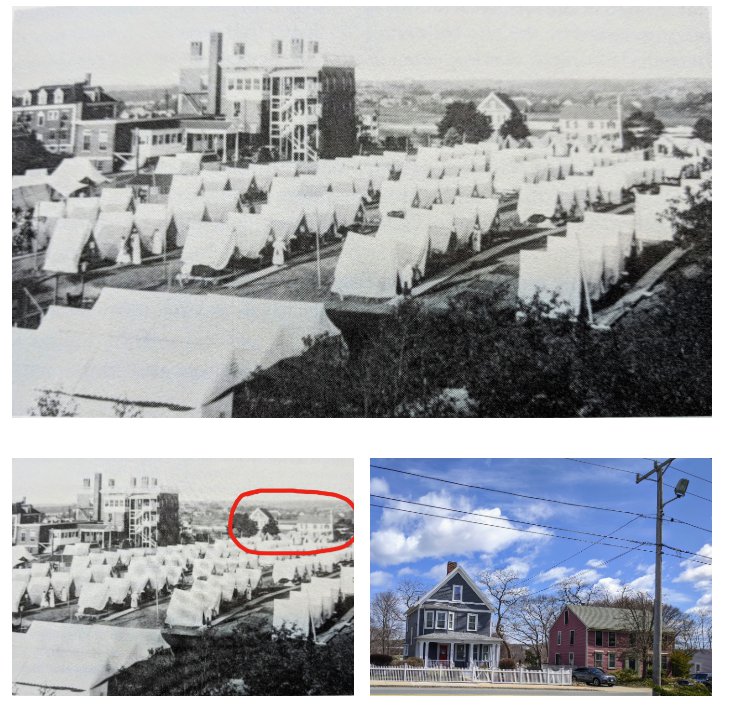
*183 reflects the minimum deaths peak pandemic and published as of Oct. 26, 1918. A final tally would take into account pre and post pandemic.
Author note March 2020: Readers can search for surname, property, and addresses within the post to skip around for any relevant family info. Double click or pinch & zoom pictures to enlarge. The sources and inspiration (listed at the end) for this article were gathered from multiple books, journals, newspapers, rare old maps, local histories, photographs, background knowledge and family history. I confess to a certain deliberate favoritism & primary sources related to the arts. I am grateful for the great archives and open content. Voices from the past may interest descendants, and give us perspective and hope during Covid-19. With so many worthy of honor, especially those who sacrificed to keep Gloucester safe, and those who suffered and died, I thought it valuable to make Gloucester’s part in this history accessible to all. So I curated a resource and visual gallery to put Gloucester’s 1918 Pandemic history on line. The Gloucester Daily Times daily chronicle which I transcribed intentionally are exhaustive & inspiring, and no part since 1918 had been previously published, or its full pages and article reproductions searchable on line. Other newspapers are fully accessible including big (New York Times) and small (Manchester Cricket).
chapter 1 BEFORE LABOR DAY 1918
Crests of various flu waves circulated the globe during World War 1. Killer flu strains in France and England in 19174 were portents of the pandemic to come. So too were milder variants that conversely spread like wildfire, through Allied forces and civilian populations, here and abroad. Since the former advents were isolated and the latter were mild– and all studied in depth– the documentation did not attract medical concern or public notice. Because of its rapid recovery and light side effects, the milder form was known as “three day fever” and “five day plague” when it reached Shanghai May 1918 and “swept over the country like a tidal wave”5. Contemporaneous reports are all over the global map: Camp Funston, Kansas, in February 19186; New York City Feb-April7; Camp Sevier South Carolina, China, and the Japanese navy in March; the Ford auto plant early April; Chaumont & Baccarat in May; the Royal Navy in France that spring and “Flanders fever” in the German trenches; Shanghai May-June; and more military establishments that spring and summer. Others pitched “German influenza,” insisting the disease originated in the German trenches before touring the world, crediting the French for coining the eponymous title after noting its severity in Spain.
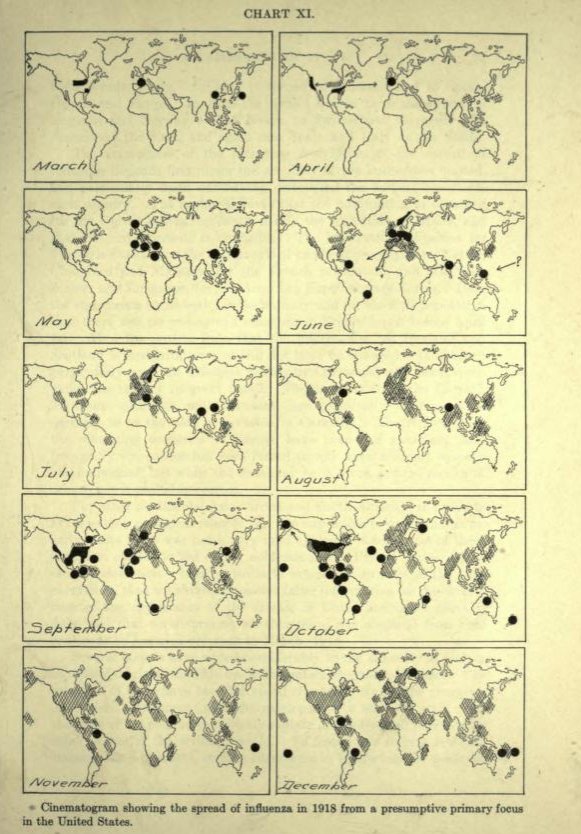


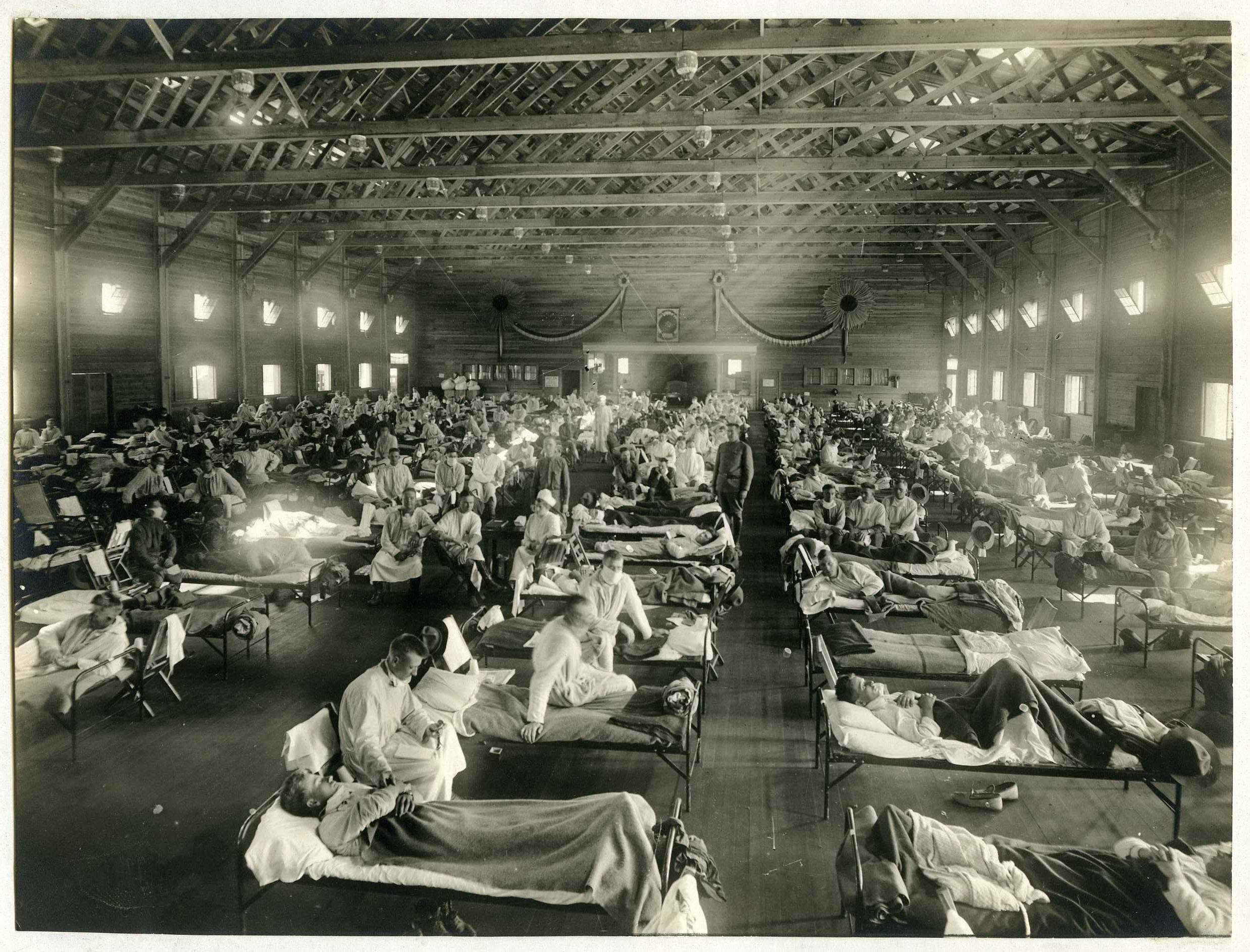

Images of global spread – multiple sources 8
Setting aside conflicting prepandemic timelines and propaganda, consensus builds around what happens next.
In August 1918, naval and army establishments in Massachusetts sent the flu on a trajectory across the country.
WWI – SANITATION IN THE MILITARY
Forget hand washing and physical distancing: Challenging hygiene conditions are breeding grounds for lethal diseases for any nation at war. Clean water a luxury.
For a generation before WWI, infectious diseases like cholera, plague, dysentery, TB, smallpox, measles, and the flu were the dire norm. At the time and perhaps still, the Russian flu (1889-1892+) was considered the deadly disease bellwether, more disastrous than the 1918 Pandemic, lasting years past-pandemic and imparting after affect blows most severe. Accordingly, great steps were taken to minimize danger in order to preserve the health of the troops.
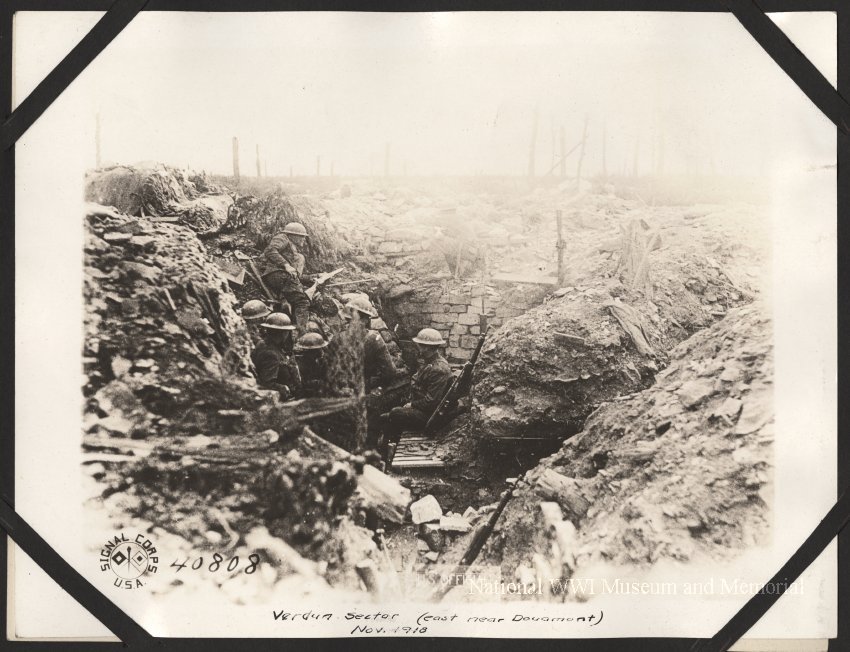
Sometimes WWI field sanitation included serviceable latrines, portable tubs, and cleaning stations like the one in the American Red Cross (ARC) photo op.10


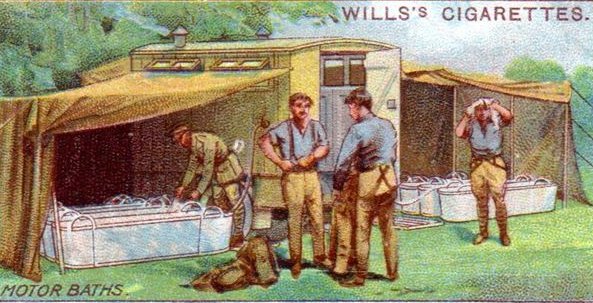
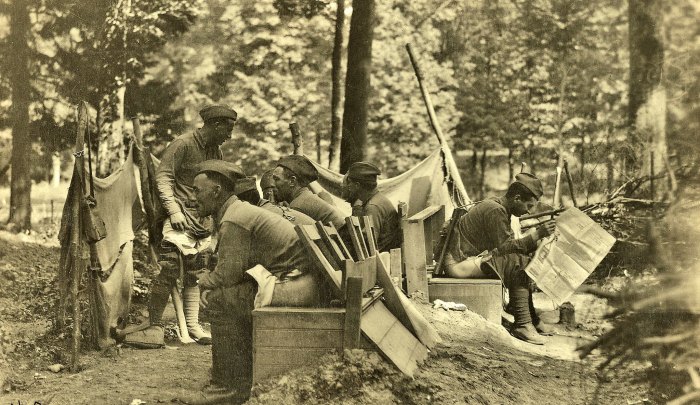
Troops were rotated back and forth to divisional bath houses for rest and relief from the line; and before re-entry back in the United States.
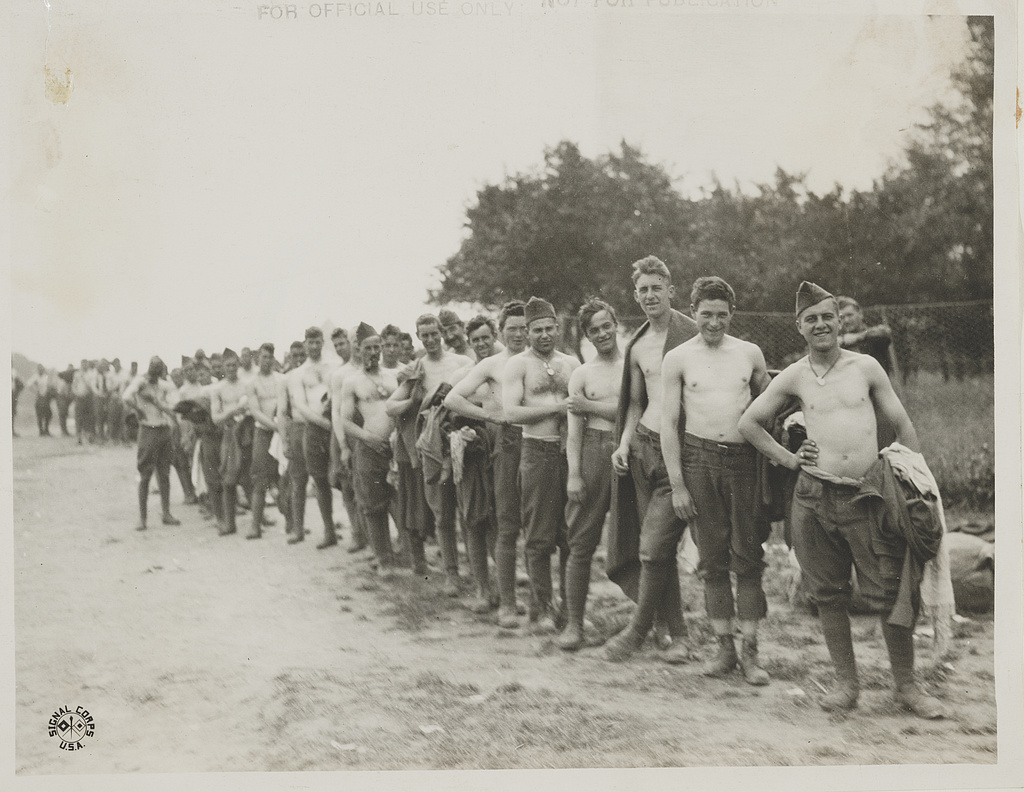
Library of Congress 11
Mobile bath disinfecting equipment, laundry machines, irons and delousing rinses were brought to the troops in the field or camps, and bases at home. Sterilizing wagons were deployed in New York to assist public health efforts to vanquish the flu.
The barbershop station was the last stop before returning to the U.S.

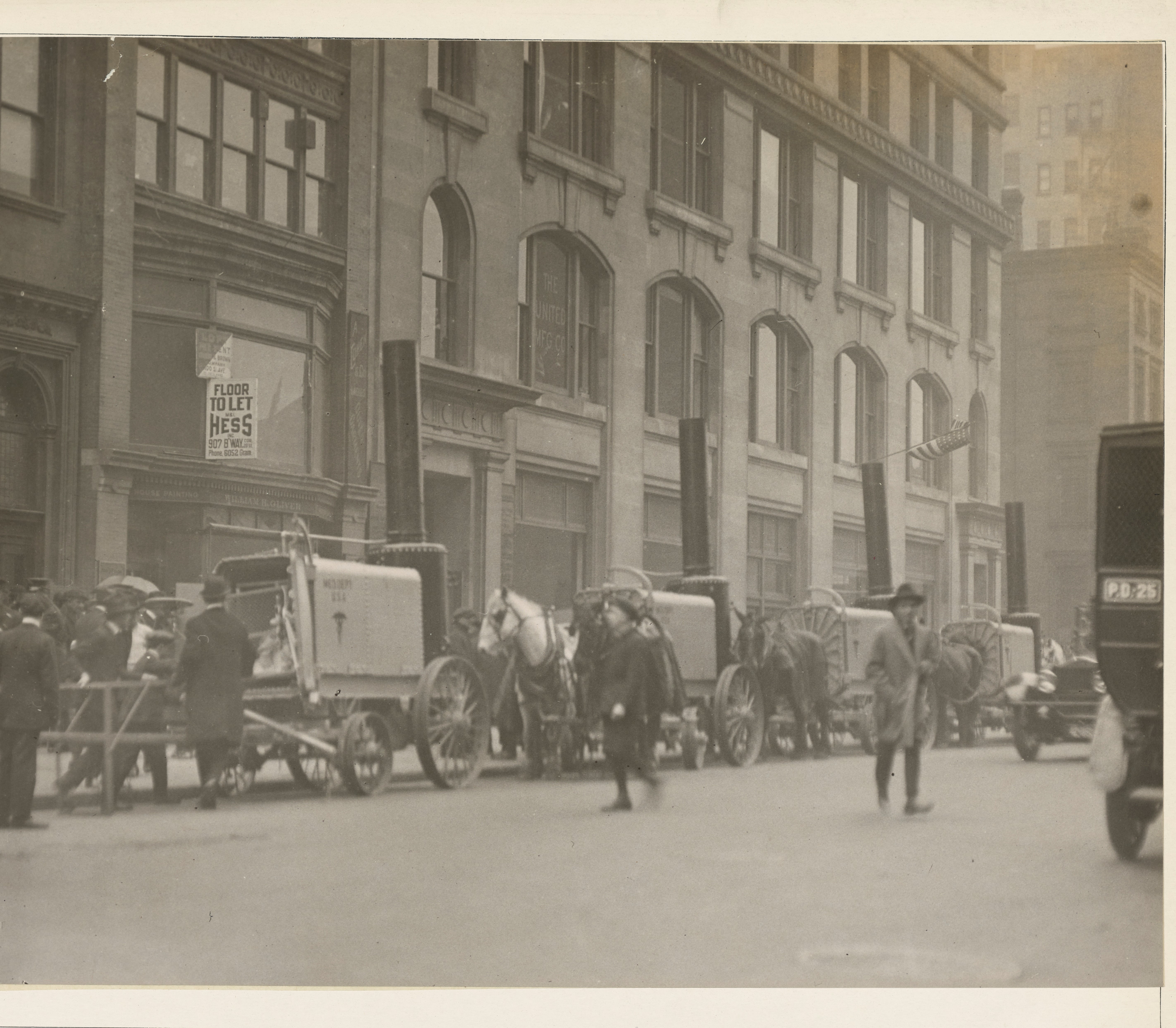

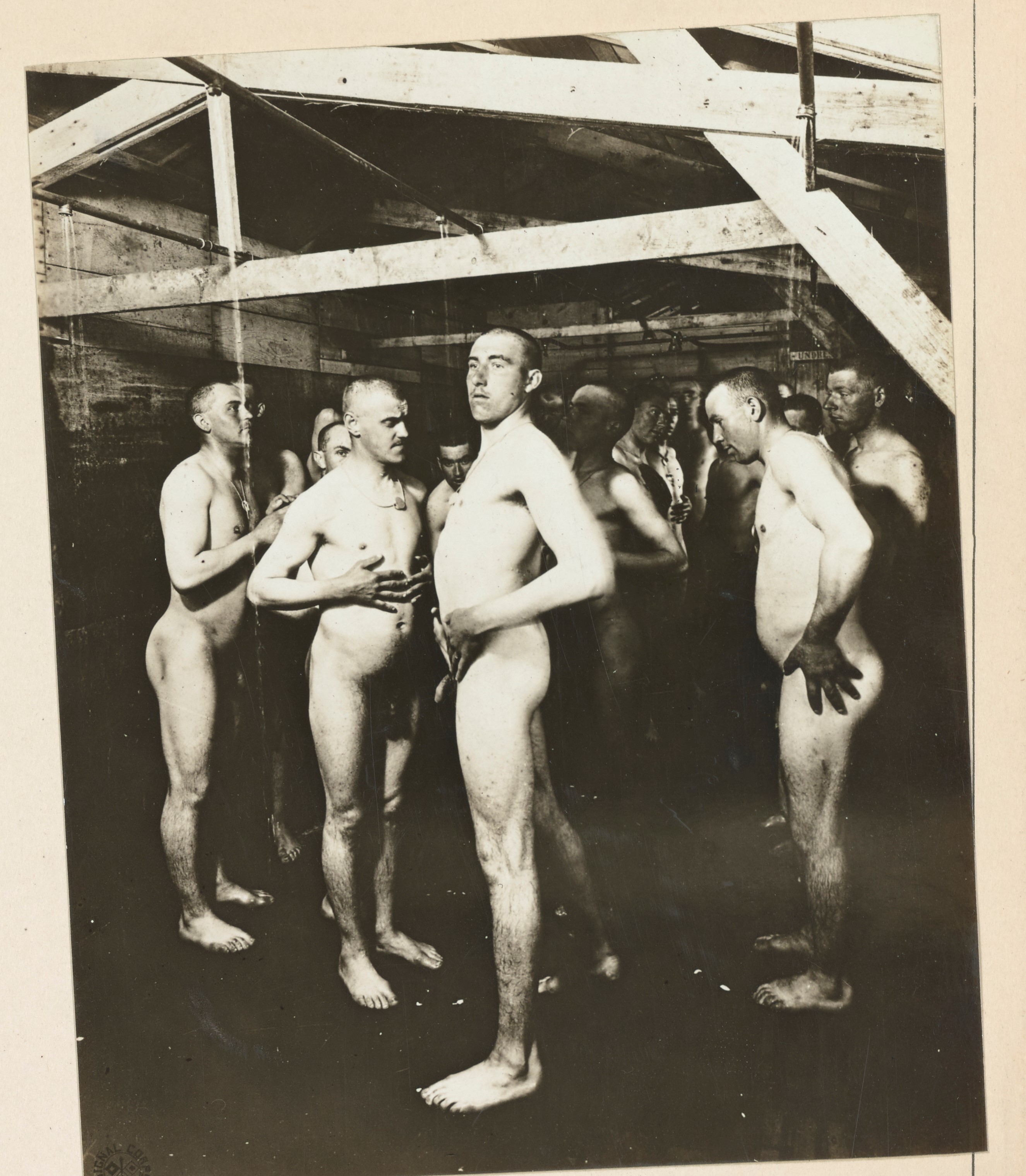


cleanliness is next to battlefields- block of images from multiple repositories12
Preventative measures weren’t enough. Virulent diseases are formidable foes.
FIERCE CONTAGION & FAST DEATHS
BOSTON NAVY YARDS
Densely populated bases and transports weren’t ideal sanitary environments. The Navy yards in Boston and vicinity were among America’s busiest for transportation of troops and supplies during World War I.

Boston Navy Yard a decade later:
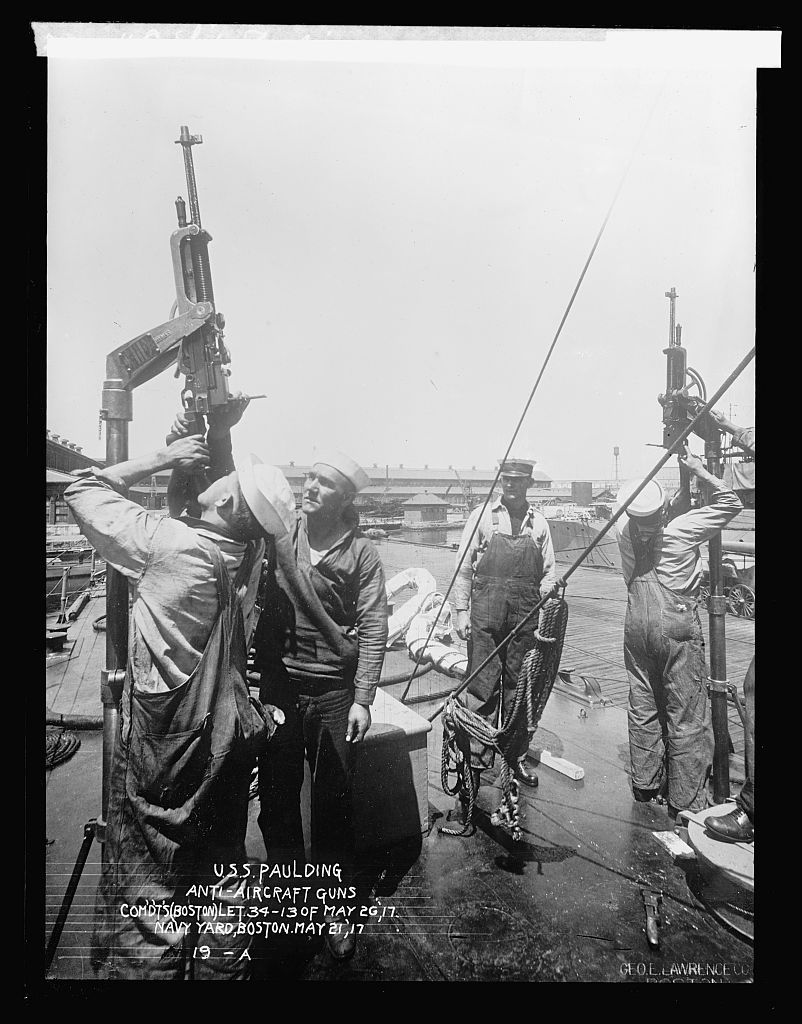
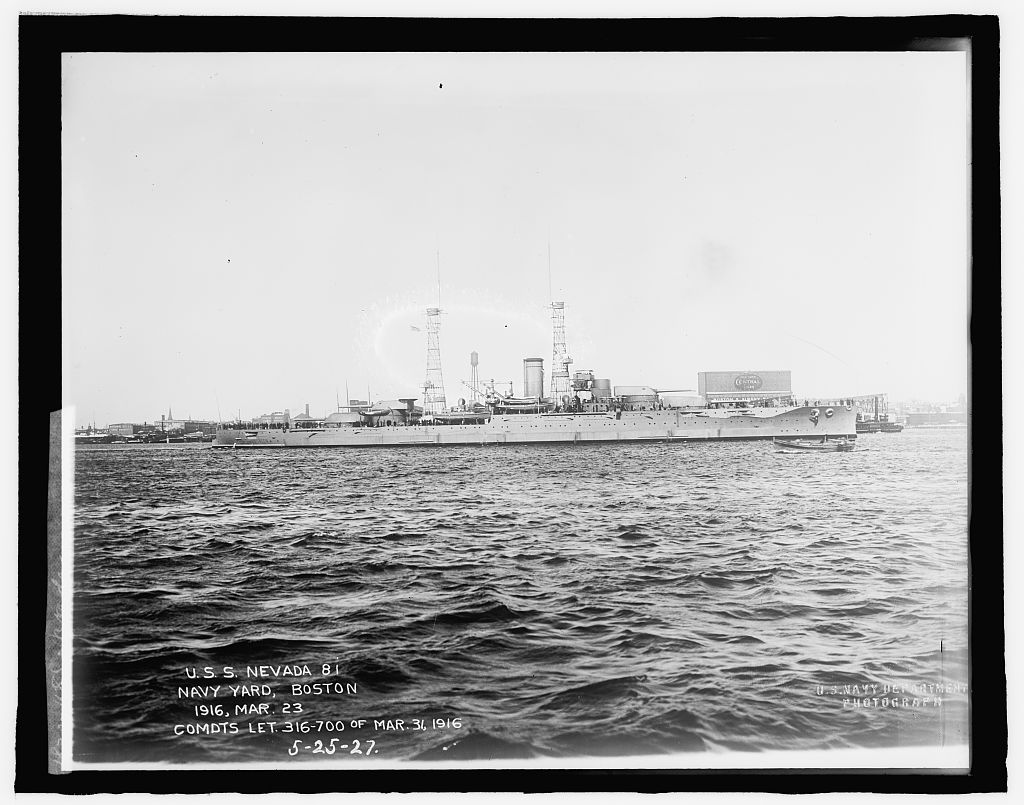
Vintage WWI embarkation and return photographs give a better idea of the scale of the operation of war: vessels are teeming with enlisted men squeezed shoulder to shoulder, potential carriers.

Library of Congress 14
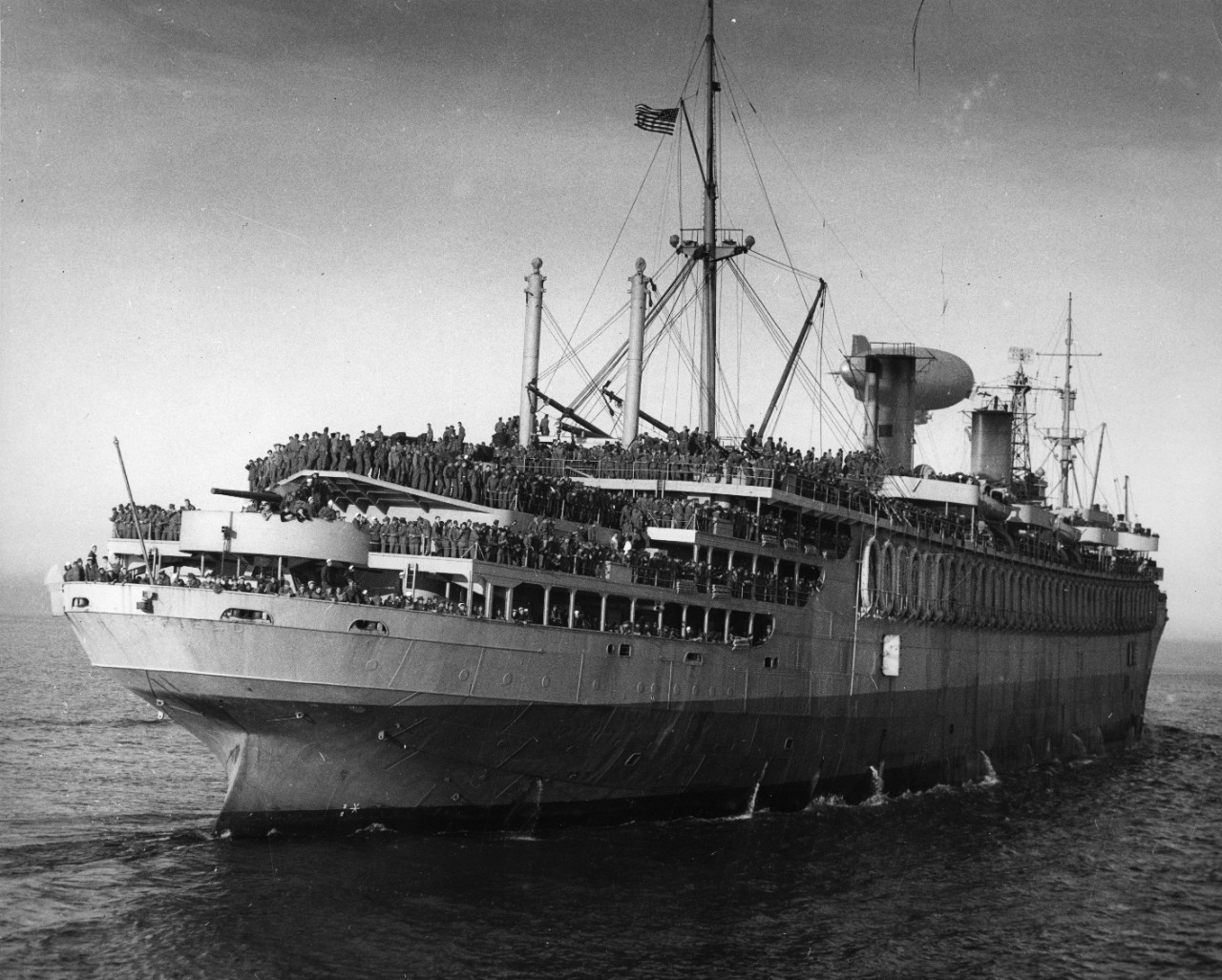
Library of Congress 15
In August of 1918, Navy sailors shoreside were hospitalized in Boston with a flu so contagious that dozens at a time were admitted, and 1200 died by early October. The following brief account about the Boston outbreak was written in 1920 by Warren T. Vaughan, Preventative Medicine and Hygiene Department of the Harvard Medical School. His book, Influenza: An Epidemiological Study, was published by the American Journal of Hygiene in 1921. This Pandemic 1918 essential read includes Vaughan’s research investigating an outbreak at Camp Sevier in South Carolina, and a massive civilian census–thanks to a grant from Met Life– in Boston following the 1919 wave. (Vaughan was a physician at Peter Bent Brigham Hospital when he was drafted May 29, 1917; he advanced to lieutenant colonel.)
“Autumn Spread in the United States 1918
By the first of July, 1918, convalescent cases of influenza began to appear among members of the crews of transports and other vessels arriving in Boston from European parts. The number of such cases on each ship was usually not more than four or five, but Woodward records that in one or two instances between twenty and twenty-five individuals were sick on incoming vessels. None of these were seriously ill, none were sent to the hospital, and none died. The disease in this class of persons did not become severe until late August. Woodward has found on inquiry among practicing physicians that typical cases of influenza were seen with notable frequency in private practice in the vicinity of Boston during the month of August, and that they had developed no serious complications, the only after effect being the marked prostration. These mild preliminary cases failed to attract attention; first, because of their relative scarcity, and second because of their benign character. Public attention was first directed to the influenza in Boston by the apparently sudden appearance during the week ending August 28th of about fifty cases at the Naval station at Commonwealth Pier. Within the next two weeks over 2000 cases had occurred in the Naval forces of the First Naval district. One week later there was a similar sudden outbreak in the Aviation School and among the Naval Radio men at the Massachusetts Institute of Technology. The first death in Boston was reported on September 8th. The peak of daily incidence in Boston occurred around the first of October. In the week ending October 5th a total of 1,214 deaths from influenza and pneumonia was reported, while by the third week of October this total had fallen to less than 600, and for the week ending November 9th was down to 47…On or about December 1st the incidence again rose and continued increasing daily, to reach its peak in a severe recrudescence around December 31…”, and “A sudden and very significant increase was reported during the third week in August in the number of cases of pneumonia occurring in the army cantonment at Camp Devens, seeming to justify the statement that an influenza epidemic may have started among the soldiers there even before it appeared in the naval force…” 16
Warren T. Vaughan
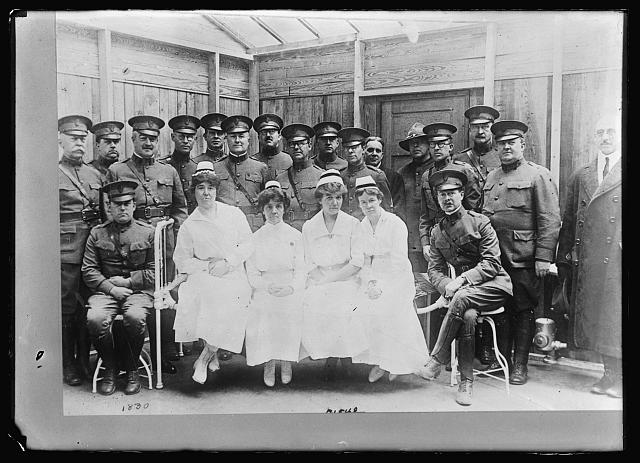


Sea of men (LOC) the author’s grandfather served on this ship; medical staff, Commonwealth pier (LOC); Naval training camp, MS (Naval Mus.) 17
FIERCE CONTAGION & FAST DEATHS
fort devens
Besides the naval bases in Boston, Fort Devens in Ayer, Massachusetts, was another military epicenter with fierce contagion and fast deaths; an estimated 15,000 men were infected by the flu and more than 800 died. Fort Devens was one of the country’s largest WW1 military bases, serving tens of thousands of soldiers in transition. According to the War Department research in 1926, “Accommodations were provided for only 36,000 men, but this figure often was exceeded, more especially in August and September 1918 when the strength was approximately 45,000 and 48,000 respectively.” Fort Devens housed the prisoners of war, also.
The base looks nearly a metropolis in vintage photographs. A selection of interior (clean!) and exterior shots were taken before the storm of flu. 18

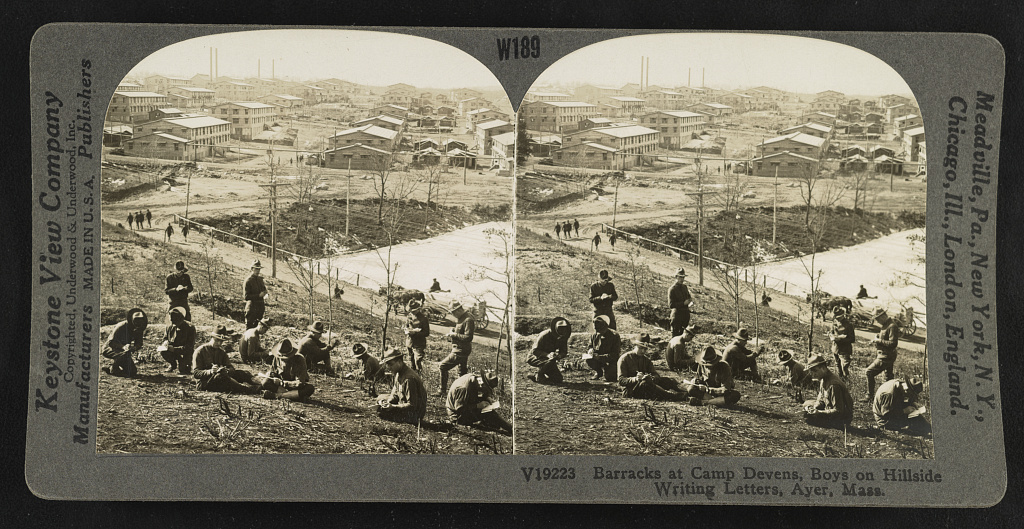
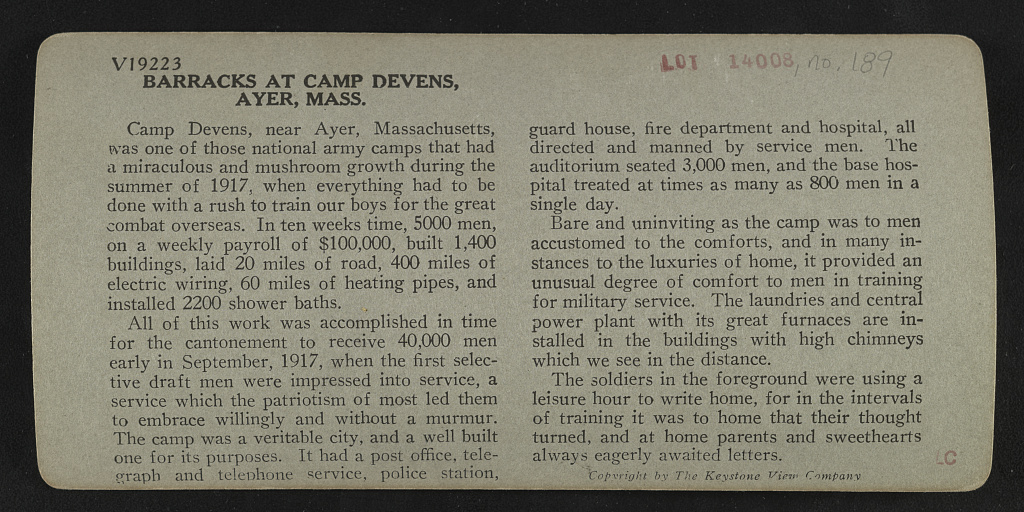
‘Barracks at Camp Devens, Boys on Hillside Writing Letters, Ayer, Mass.’ the Keystone View Company stereograph card, includes a write up about the barracks verso:
Barracks at Camp Devens, Ayer, Mass. Camp Devens, near Ayer, Massachusetts, was one of those national army camps that had a miraculous and mushroom growth during the summer of 1917, when everything had to be done with a rush to train our boys for the great combat overseas. In ten weeks time, 5000 men, on a weekly payroll of $100,000, built 1,400 buildings, laid 20 miles of road, 400 miles of electric wiring, 60 miles of heating pipes, and installed 2200 shower baths. All of this work was accomplished in time for the cantonement [sic] to receive 40,000 men early in September, 1917, when the first selective draft men were impressed into service, a service which the patriotism of most led them to embrace willingly and without a murmur. The camp was a veritable city, and a well built one for its purposes. It had a post office, telegraph and telephone service, police station, guard house, fire department and hospital, all directed and manned by service men. The auditorium seated 3000 men, and the base hospital treated at times as many as 800 men in a single day. Bare and uninviting as the camp was to men accustomed to the comforts, and in many instances the luxuries of home, it provided an unusual degree of comfort to men in training for military service. The laundries and central power plant with its great furnaces are installed in the buildings with high chimneys which we see in the distance. The soldiers in the foreground were using a leisure hour to write home, for in the intervals of training it was to home that their thought turned, and at home parents and sweethearts always eagerly awaited letters.

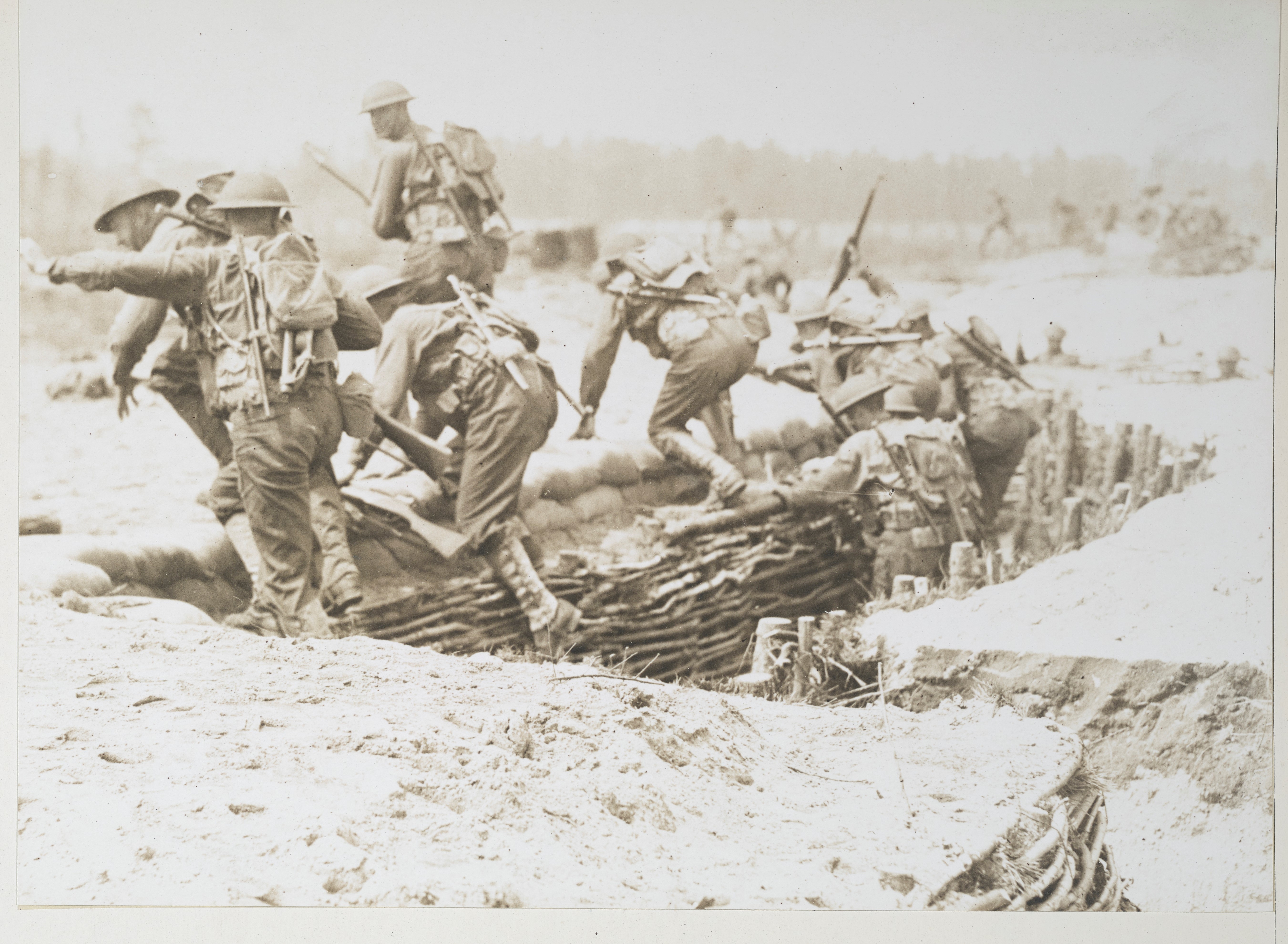
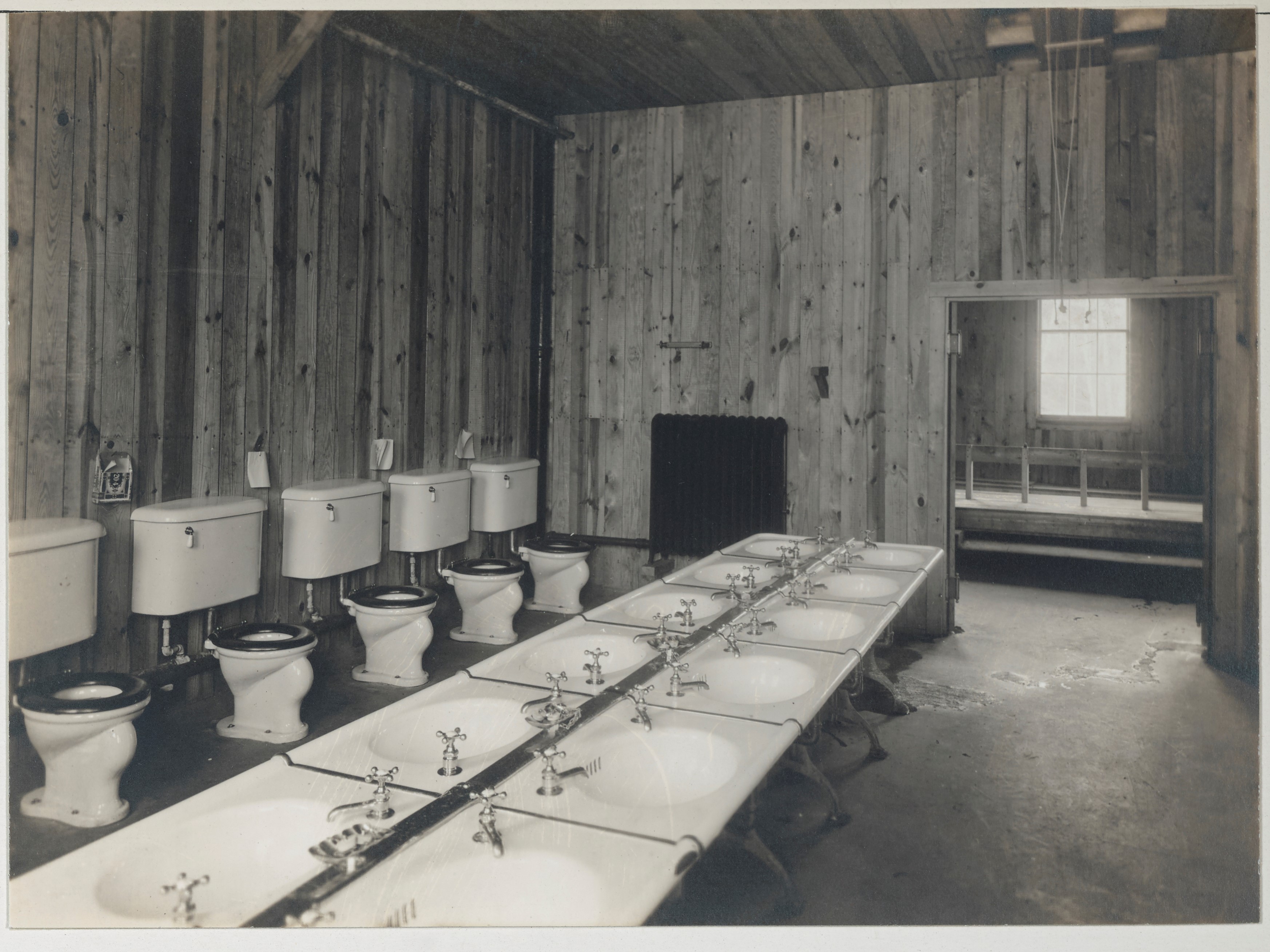

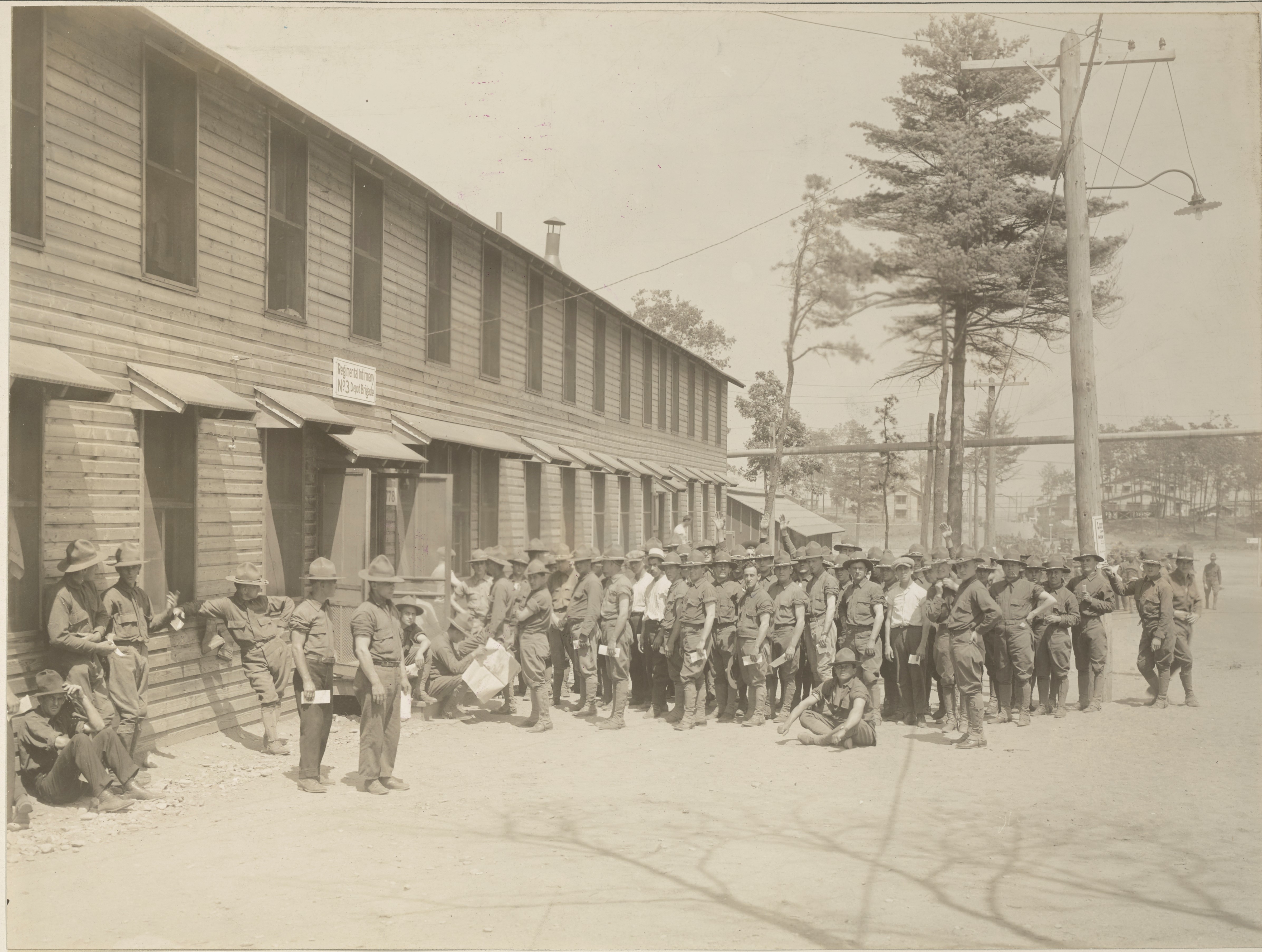
As with the navy images, photographs of separate divisions illustrate the density at these camps and impossibility of social distancing in some environments.
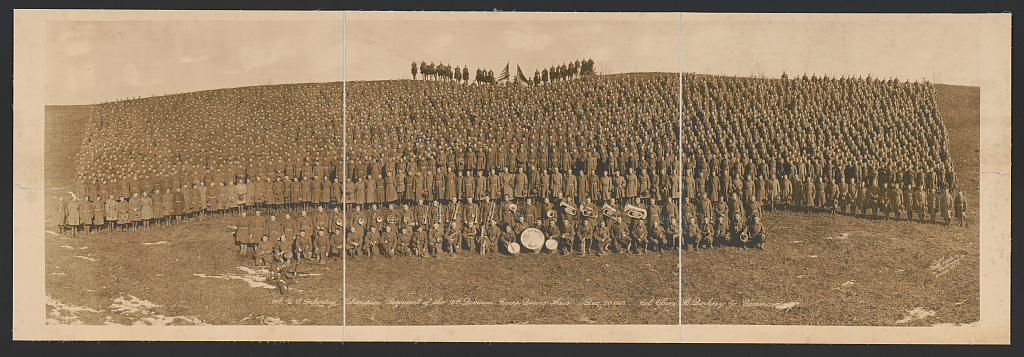
Library of Congress19
Portraits of divisions as thick as forests help to illustrate the shattering descriptions expressed by front line responders confronting so many felled by flu. Camp physician, Roy Grist, related “boys laid out in long rows, ” 20 and Dr. Victor C. Vaughan recounted bodies “stacked like cord wood” in his autobiography published in 1926.
“…In the memory chambers of my brain there hang many pictures. Some are the joy of my life, too sacred and too personal to describe to any save my most intimate friends. But there are also ghastly ones which I would tear down and destroy were I able to do so, but this is beyond my power…While I am engaged in describing the horrors of my memory picture gallery I might as well say something of the others, and then I will promise never to touch this gruesome subject again…The fourth canvas is quite as large as the others. I see hundreds of young, stalwart men in the uniform of their country coming into the wards of the hospital in groups of ten or more. They are placed on the cots until every bed is full and yet others crowd in. The faces soon wear a bluish cast; a distressing cough brings up the blood stained sputum. In the morning the dead bodies are stacked about the morgue like cord wood. This picture was painted on my memory cells at the division hospital, Camp Devens, 1918, when the deadly influenza demonstrated the inferiority of human inventions in the destruction of human life.” 21
Victor C. Vaughan
Library of Congress panoramas 22
As Dean of the University of Michigan School of Medicine and director of the Surgeon General’s Office of Communicable Disease, Vaughan was sent to Camp Devens as part of the federal government’s elite assessment team. Carol R. Byerly who wrote a book about the pandemic in 2005, The Fever of War, added in a 2010 journal article how, “Camp Devens physicians performing autopsies described influenza pathology as unique, characterized by “the intense congestion and hemorrhage” of the lungs. But as Vaughan and [John Hopkins pathologist William Henry] Welch investigated Camp Devens, the virus kept moving. Before any travel ban could be imposed, a contingent of replacement troops departed Devens for Camp Upton, Long Island, the Army’s debarkation point for France, and took influenza with them.” 23 It’s no wonder Vaughan didn’t dwell on this savage disease.
Another Vaughan, Dr. Warren T. Vaughan– who wrote in 1920 about the Boston outbreak in the Navy mentioned above– was “one of a board of officers appointed to investigate” a milder advent that “had broken out among troops stationed” in the army base at Camp Sevier, South Carolina. He explained how difficult pandemics were to predict.
“Sudden onset regimental infirmary…careful bacteriologic examination was made at that time and predominating organisms were found to be a gram negative coccus resembling micrococcus catarrhalis, and a non-hemolytic streptococcus. They were uncomplicated cases..at the time none of us dreamed of any possible connection with a severe epidemic to occur later (at that wave bacilli weren’t present)…”
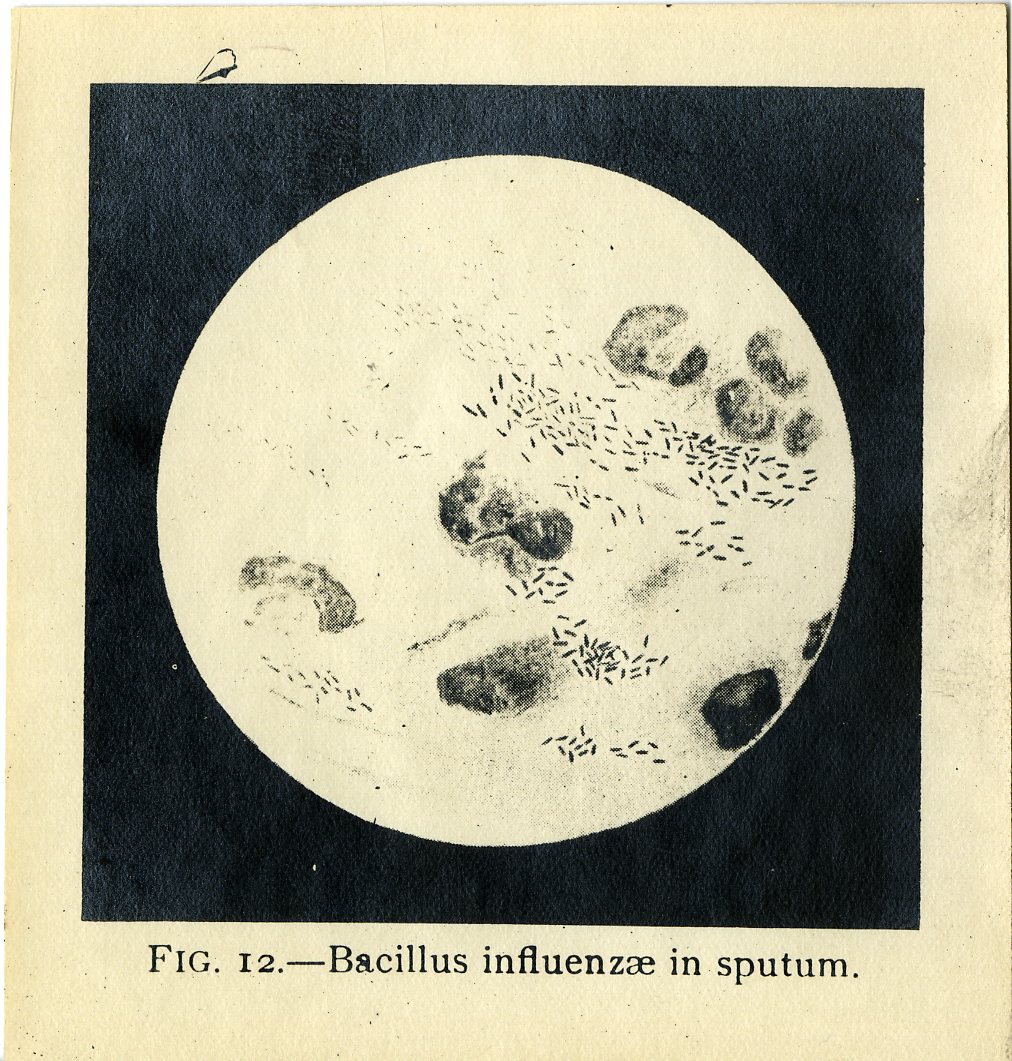
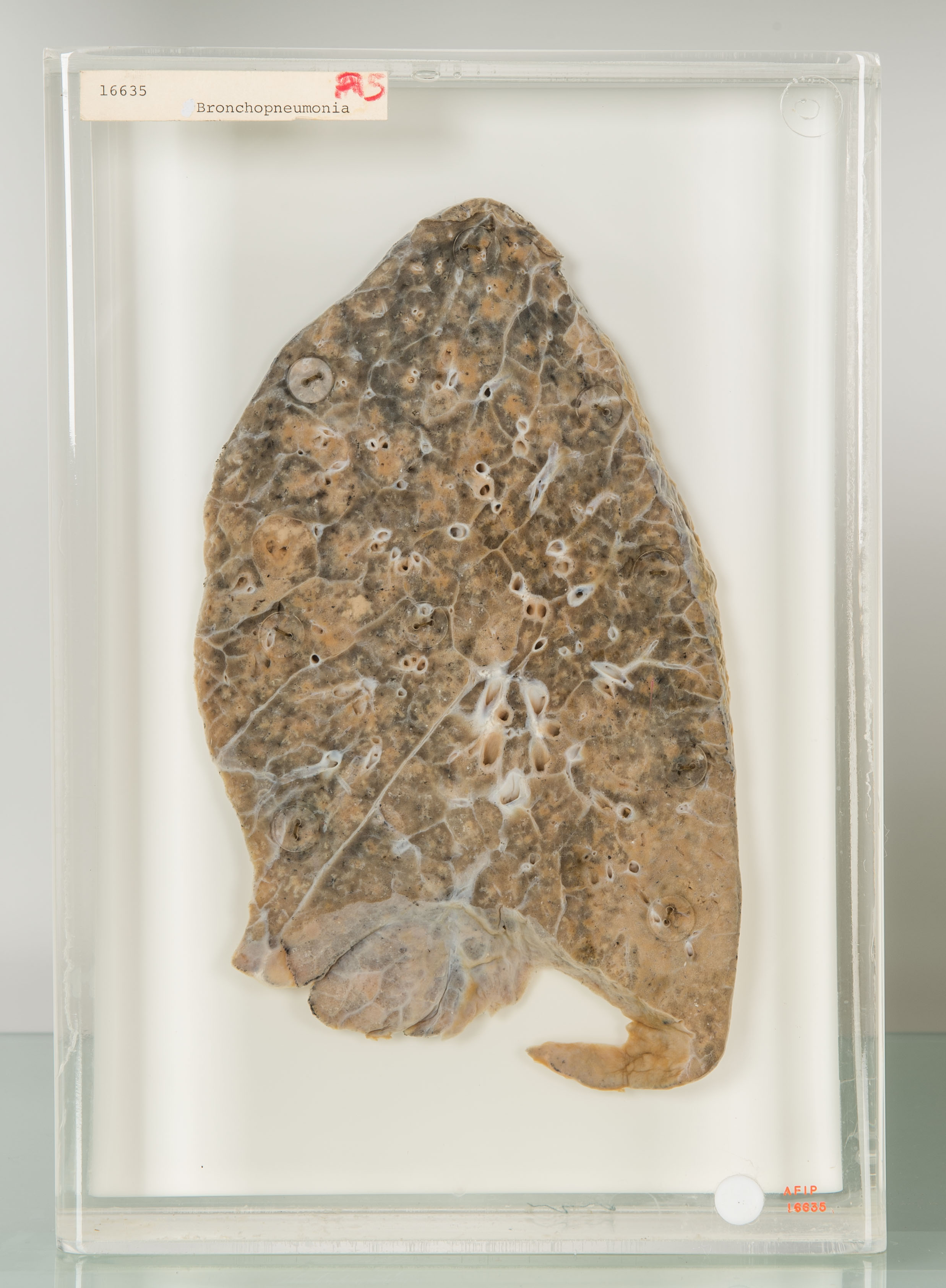
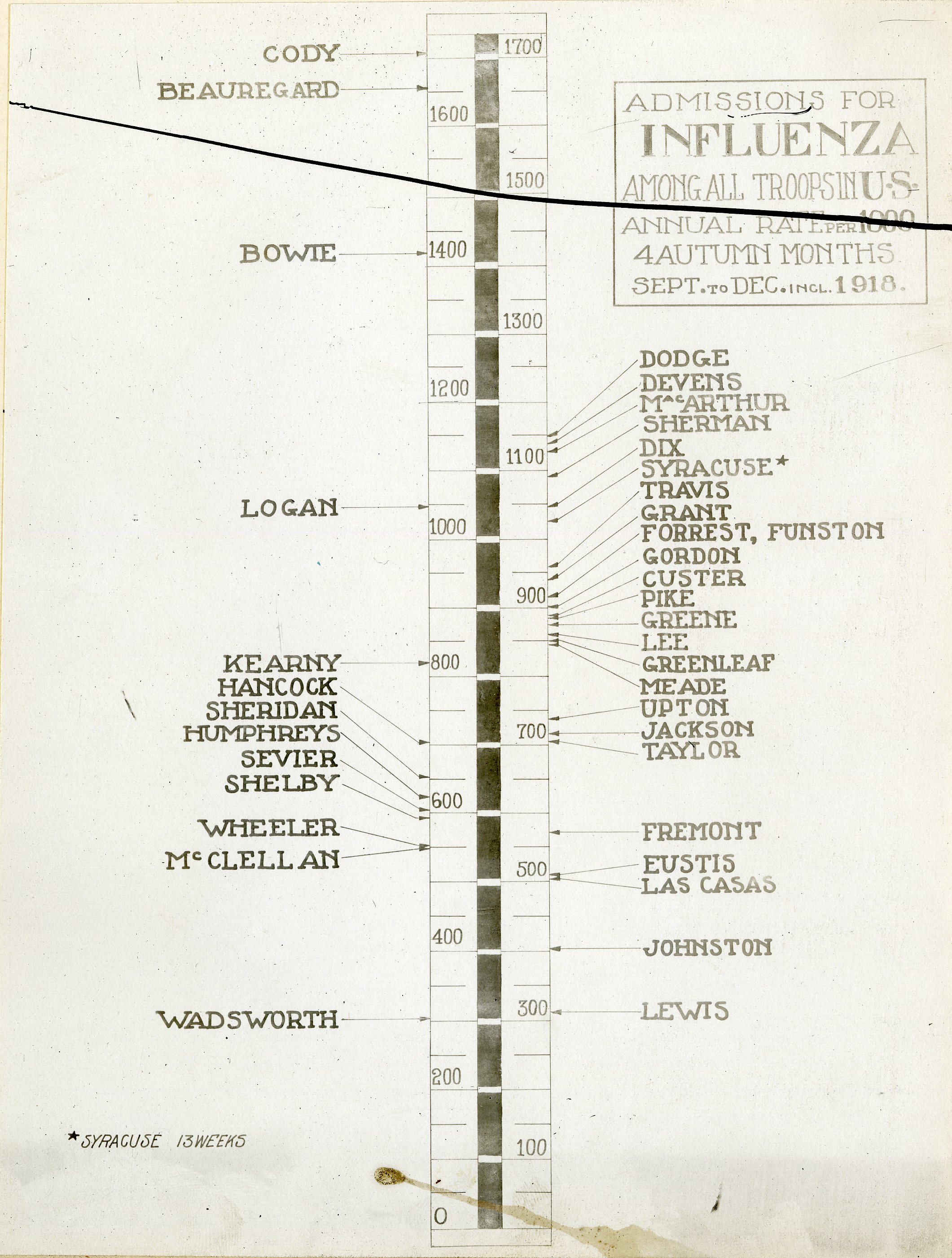

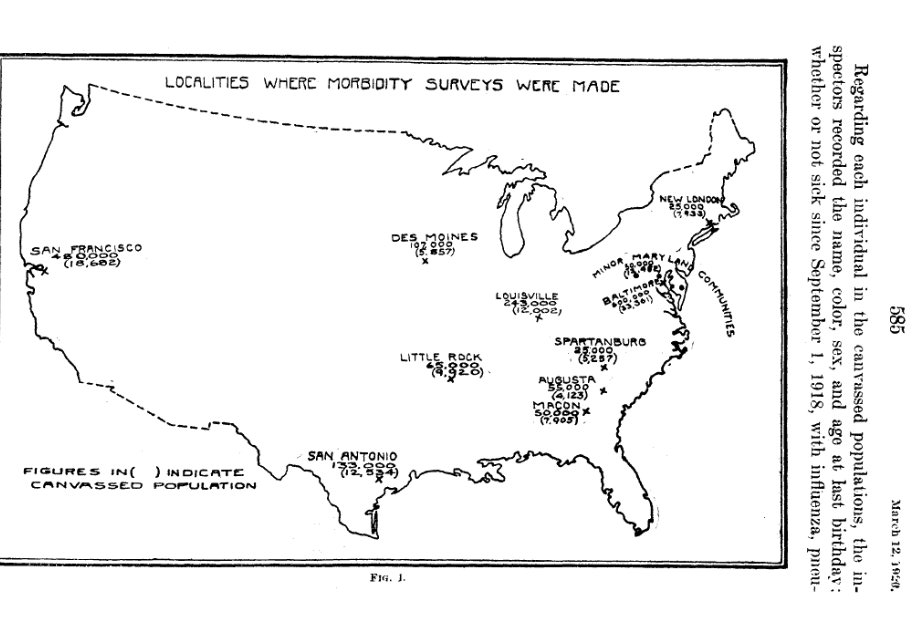
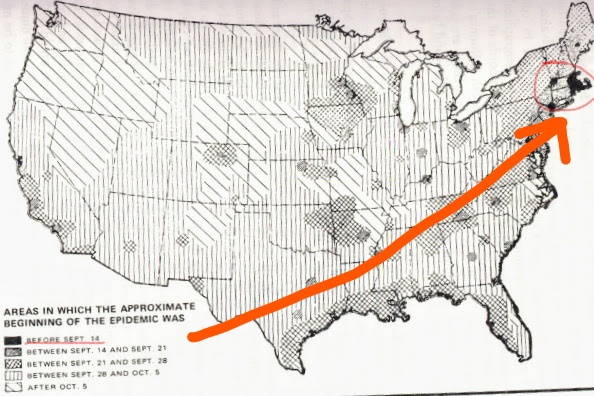
Block of medical images, various collections 24
W.T. Vaughan felt not a single community in which there were reported cases reached tallying anywhere near the total of actual cases. And so he rolled up his sleeves. “Toward the end of January 1920 when recurrent epidemic as at its height in Boston,” Vaughn writes, “The author undertook with the aid of 13 trained social service workers and one physician graduate from the Harvard school of public health to make sickness census of 10,000 individuals,” in person, in six districts.
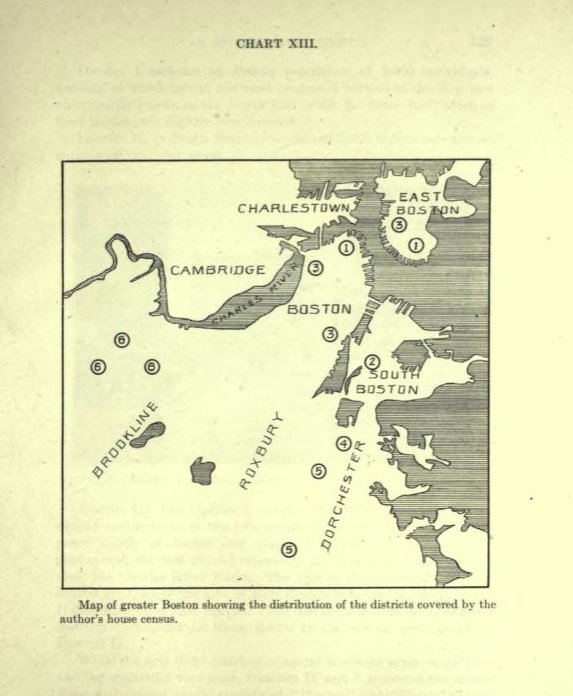
His statements from 1920 echo in today’s news:
On determining first cases of infection
“There is evidence –the collection of which has not been completed– pointing to the existence of cases of the disease in various centers, probably widely distributed, weeks before they were definitely recognized as influenza…”25 – Warren T. Vaughan, 1920
On healthy carriers
“Yes it does exist.”26 – Warren T. Vaughan, 1920
On crowd gatherings
“Yet another phenomenon which would lead us to conclude that human intercourse is the most potent factor in the transmission of influenza is the fact that there is frequently a high increase in the influenza rate following crowd gatherings. Parkes observed long ago that person in overcrowded habitations, particularly in some epidemic, suffered especially, and several instances are on record of a large school or barracks being first attacked and the disease prevailing there for some days, before it became prevalent in the towns around…In discussing the recrudescence of influenza in Boston in November and December, Woodward remarks as follows: “Whether or not it may be more than a succession of coincidences it is certainly of interest to note that the November outbreak of influenza showed itself three days after the Peace Day celebration on November 12th, when the streets, eating places and public conveyances were jammed with crowds; that the December epidemic began to manifest itself after the Thanksgiving holiday…and that reported cases mounted rapidly during the period of Christmas shopping…” 27 – Warren T. Vaughan, 1920
By way of summary
Looking for signposts | on the manner of the flu’s spread
Vaughan looked to the past as he researched the present:


He quoted 1847 influenza research by Thomas Watson that resonates poignantly:
“…although the general descent of the malady is, as I have said, very sudden and diffused, scattered cases of it, like the first droppings of a thunder shower, have usually been remembered as having preceded it.” Thomas Watson on Influenza, 1847 29
Local enlisted lads wrote about the infamous flu in letters home to Gloucester, Mass., and other Cape Ann towns before Labor Day, although they weren’t read or published until after the disease exploded in Gloucester. Private John J. Smith wrote his mother, Mrs. Charles W. Smith of 5 Center Court, a long letter dated September 1, 1918. At one point he puts it plainly: “I feel better over here than I did in Camp Devens and sure have got that same good old appetite…”30 The letter appeared in the Gloucester Daily Times on the last day of September, included as part of the series, “Our Boys Write Bright Letters Home.”
Lt. J. Irving Baker from Manchester-by-the-sea wrote his mother, “Somewhere from France, July 23, 1918.” about how he was, “getting along fine now, you can tell by this paper. I went down the street myself and bought it. I have been moved into another building where I have a room with another officer. It is fine. From the window I can see hills and trees. It is a summer resort in the foothills of the Alps. There is a mineral spring here in which I hope to have a bath before I leave.” He broke off before mailing, and added an update July 31 from an Army base hospital in Allery, France, where he was sent to convalesce.
“We just arrived at the convalescent camp and are pretty tired, did not get much chance to sleep on the train. This is a small place called Allery [sic] about 180 miles northeast of Flermont. It looks a good deal like an army cantonment with wooden barracks, partitioned into rooms, tow in a room. The town is only a station, cafe and a few houses…You know I lost nearly all my things when I came to the hospital, I am managing to get a kit together after a fashion. …They raise many geese in this section of France…Aug. 5. I am feeling fine now, only short of breath when I go up stairs or exert myself–as I’m pretty tired just now.”
The letter was published in the Manchester Cricket on September 21, 1918 within a column devoted to “Letters From Our Boys at the Front”.
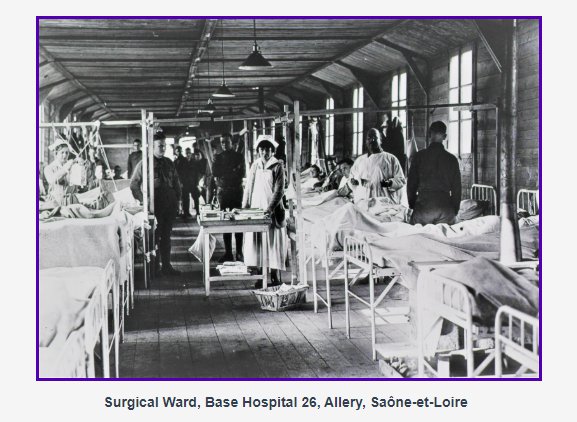
Allery [sic] photo, WWI Centennial Commission31
Another soldier from Manchester, Private Wade Revere Brooks, joined the Marines. In a detailed letter from South Carolina, he described multiple quarantines at basic training camp(s) that began for him immediately upon arrival, back in June 1918, and with each new skills rotation until deployment. His undated letter was featured in the Manchester Cricket on October 26, 1918, long after the crest of the pandemic. From the contents it seems to have been written in September. He signs off:
“…After coming off the range we were held for the influenza quarantine, and we are now awaiting for shipment to Virginia where we get our overseas training, which consists of gas attack drills, hand grenade throwing and more trench work. I hope we will move soon. There are six thousand trained troops waiting for the quarantine for Flu to be lifted. Well I have told you as much as I can think of just now, so I will close hoping this will interest you some. I am sincerely yours, Pvt. Wade Revere Brooks, Company 332, Battalion O, United States Marine Corps, Paris Island, South Carolina. 32
Acting Mess Sergeant Frank A. McDonald sent a postcard from the hospital at Camp Jackson, Columbia, South Carolina, conveyed in the Gloucester Daily Times October 22, 1918 , “Many Local Boys Had the Influenza”:
“He is in the base hospital recovering from a three weeks’ serious illness of influenza. He states that Herman Amero* (illegible) is recovering after four weeks siege of pneumonia, Herbert Joyce and Robert Smith, Gloucester boys at the same camp, are also on the mending hand. The other Gloucester boys are all well, he [Frank A. McDonald] says.”
Social distancing is absent in the post office at Camp Jackson when this photograph was taken that September. Camp Jackson utilized tents for its flu management.
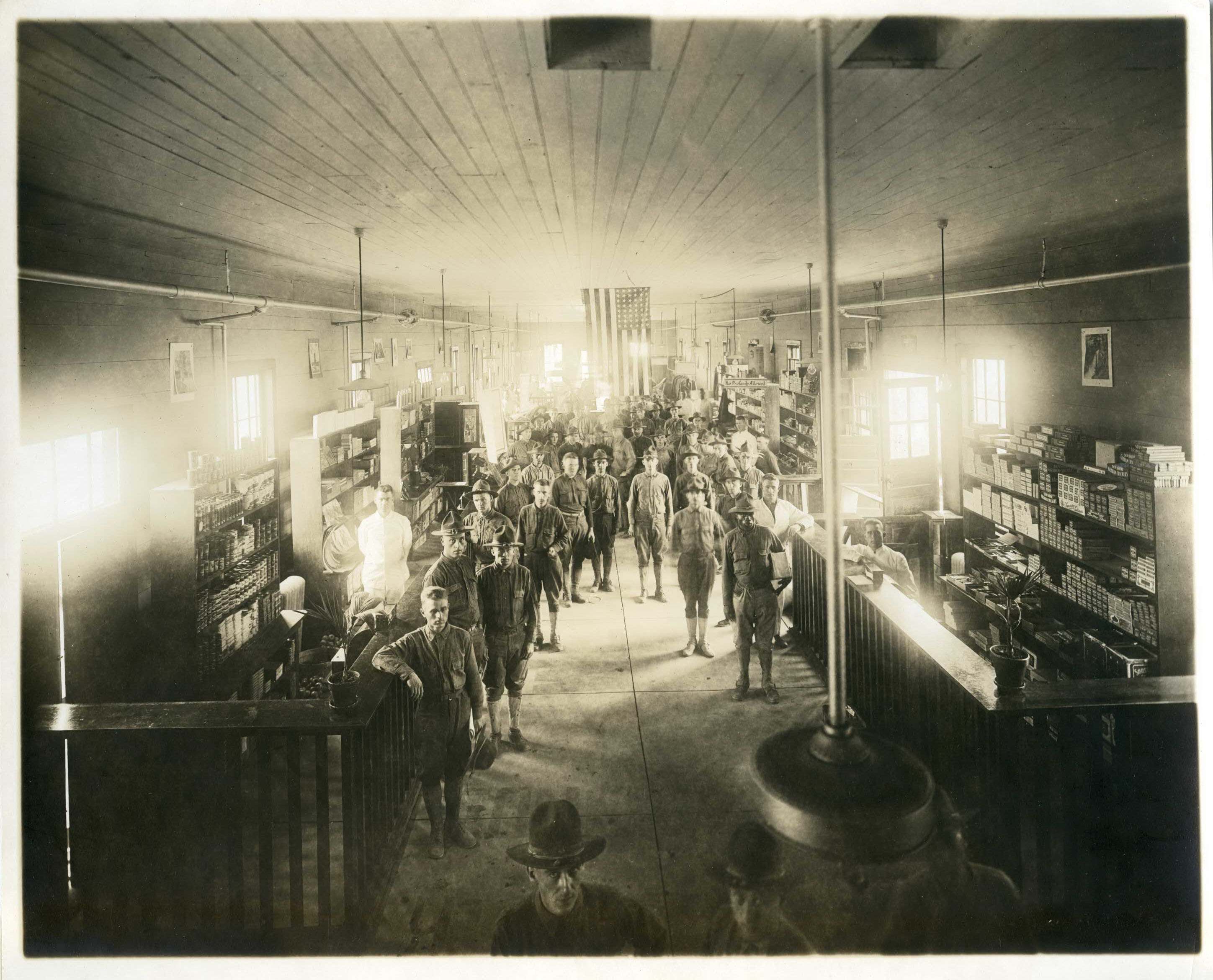

(Nat. Mus. of Health & Med., 1918) Camp Jackson, SC33
War news produced by the military stressed the strength in numbers of America’s fighting forces as with this 1917 photograph “Embarked for France”.

National Archives
or this ‘We won’t stop coming till it’s over Over There’ image published on the front page of the Tribune Graphic September 8, 1918.
“This photograph, taken aboard one of the first American transports sailing for France has just been released by the censor. At the time Germany was still loudly boasting that we couldn’t get an army over there in time to make any difference. To-day she is singing another tune.”
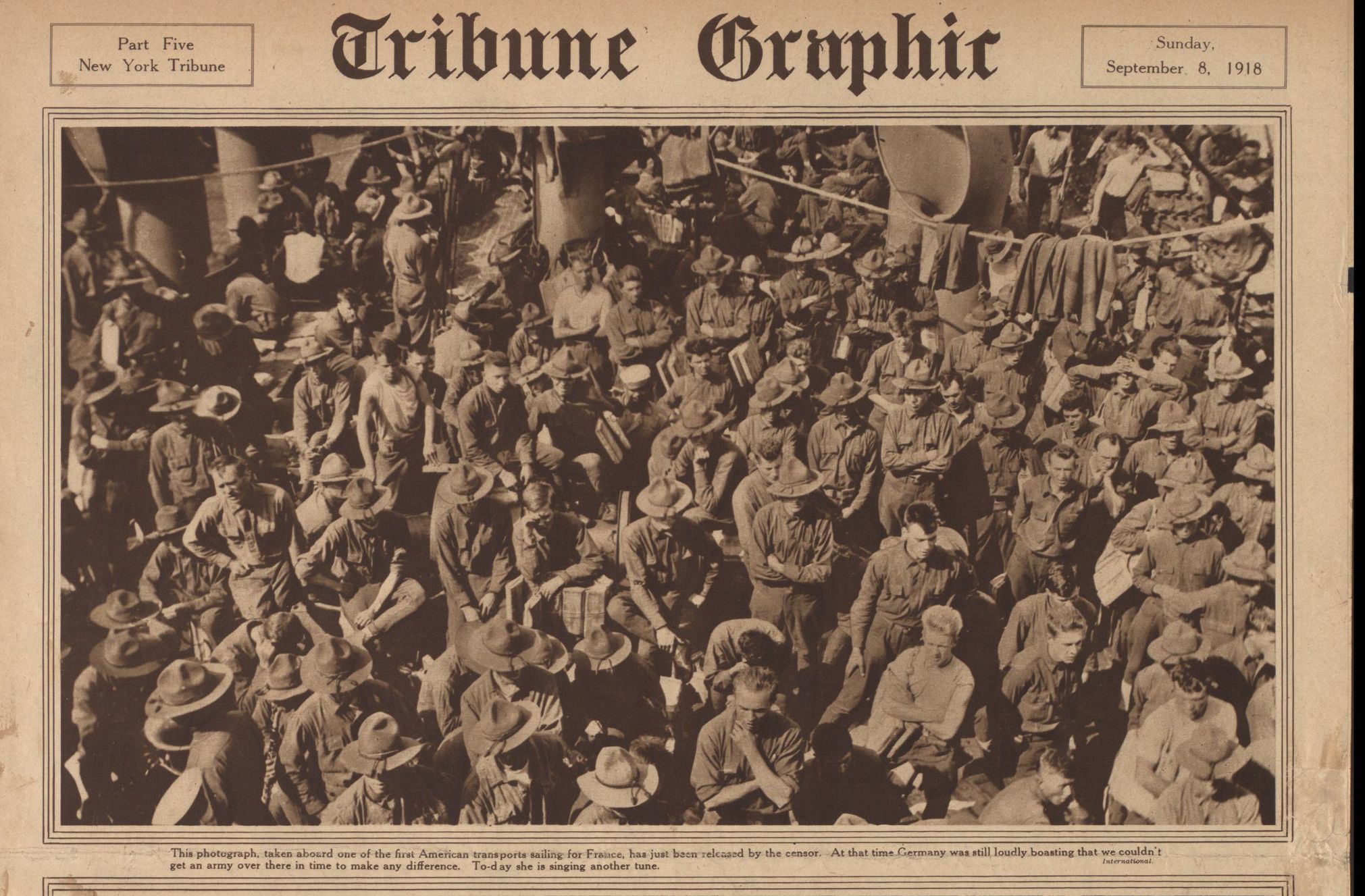
Library of Congress 34
Besides arriving sick, more than 12,000 enlisted died from the flu pandemic on the troop transports heading to France before they landed.35 Men in the September 1918 photograph could very well have been among the afflicted.
When the flu was mentioned in Stars and Stripes, the newspaper written by American servicemen for soldiers, it was late news and downplayed. This article, “Hot Coffee Checks Flu at St. Nazaire: Colonel, Cooks, and K.P’s Steam Germs Out of Newcomers”, published December 13, 1918, claimed that coffee, climate and command vanquished the deadly epidemic.
“It was hot coffee—thousands of gallons of it –that ended the deadly influenza epidemic in the dark autumn days when that disease was working ravages among American troops en route to France.”


If the extent of flu deaths within the military that spring and summer were understood, the government’s fall conscription push for 15 million registrations may have been impossible. Who among us would knowingly support a draft for our sons and fathers, our brothers and friends, with such a lethal disease out of control at training camps and ships bound for France?
The records do appear to indicate that federal guidelines were mostly held back until after the September 12th national draft registration day (and the preceding parades and rallies that encouraged registration). By that date, officials including public health and infectious disease experts within the military knew key facts: that the death rate was higher in barracks and cantonments than tent camps; that quarantines were necessary at training camps; that geography was more important than cramped quarters; that healthy carriers exist; and that nurses and non commissioned suffered more than officers and privates. Gloucester would welcome and benefit from this military expertise.
Enlisted men who succumbed during training or transport, died from pneumonia or flu “in the line of duty. ”37 Still, death in battle was mourned more openly than death by disease, tamping down stories and comparisons about the flu. Efforts to reduce transmission at a time of heightened engagement in WW1 — whether communication was instantaneous (telegraph) or not; word of mouth or not; censored or not– were next to impossible by Labor Day.
The flu’s arrival in Gloucester was more or less timed with Boston’s.
LABOR DAY WEEKEND 1918
World War I guaranteed that the end of summer of 1918 wasn’t carefree and innocent. Dramatic photographs about World War 1 were published nationally. This photograph, a “remarkable view of a battle scene on the Marne in which lines of French infantrymen are crawling forward into action behind a French tank”, was printed on the cover of a photogravure insert of the Sunday New York Times.38
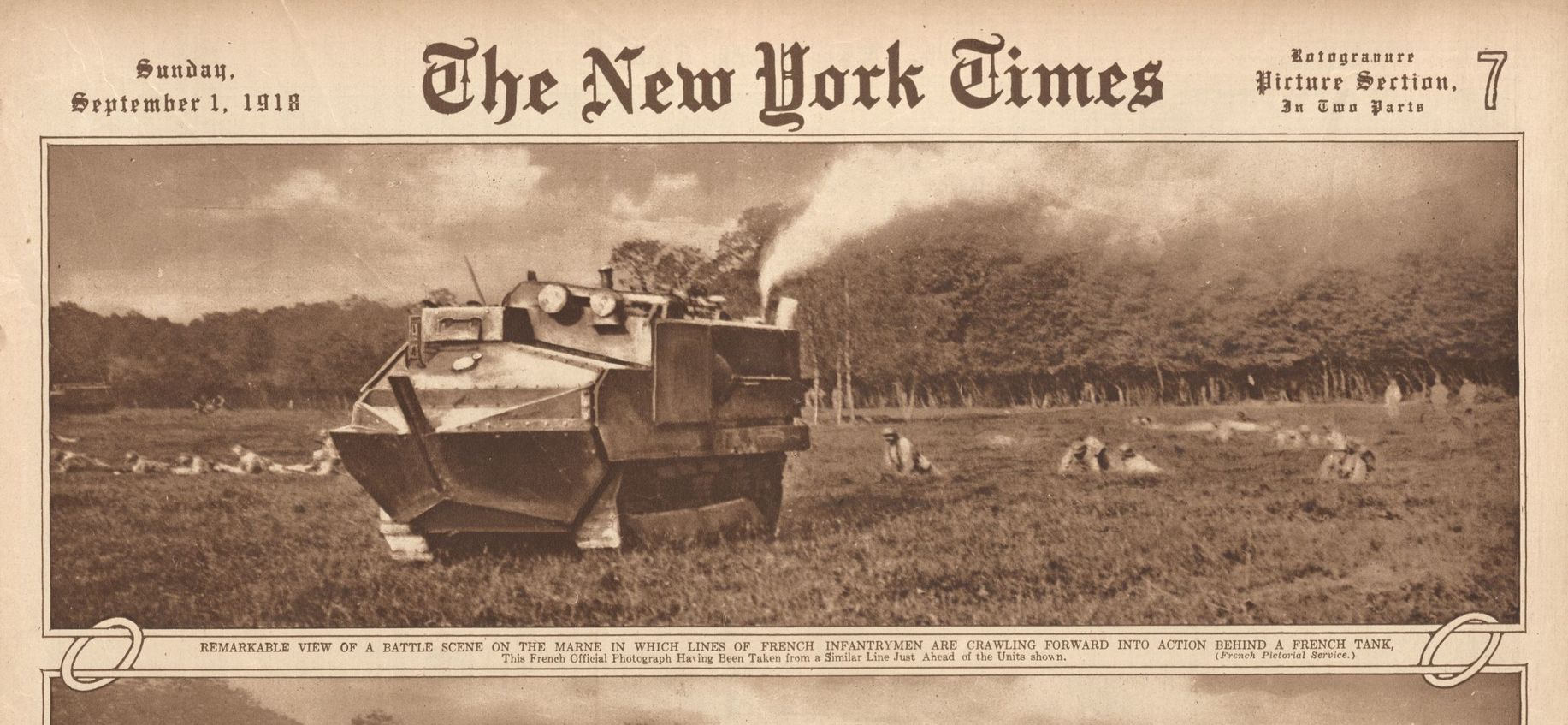
This collage layout39 conveyed the sheer scale of the Labor Day parade in New York City, and support for our nation at war.
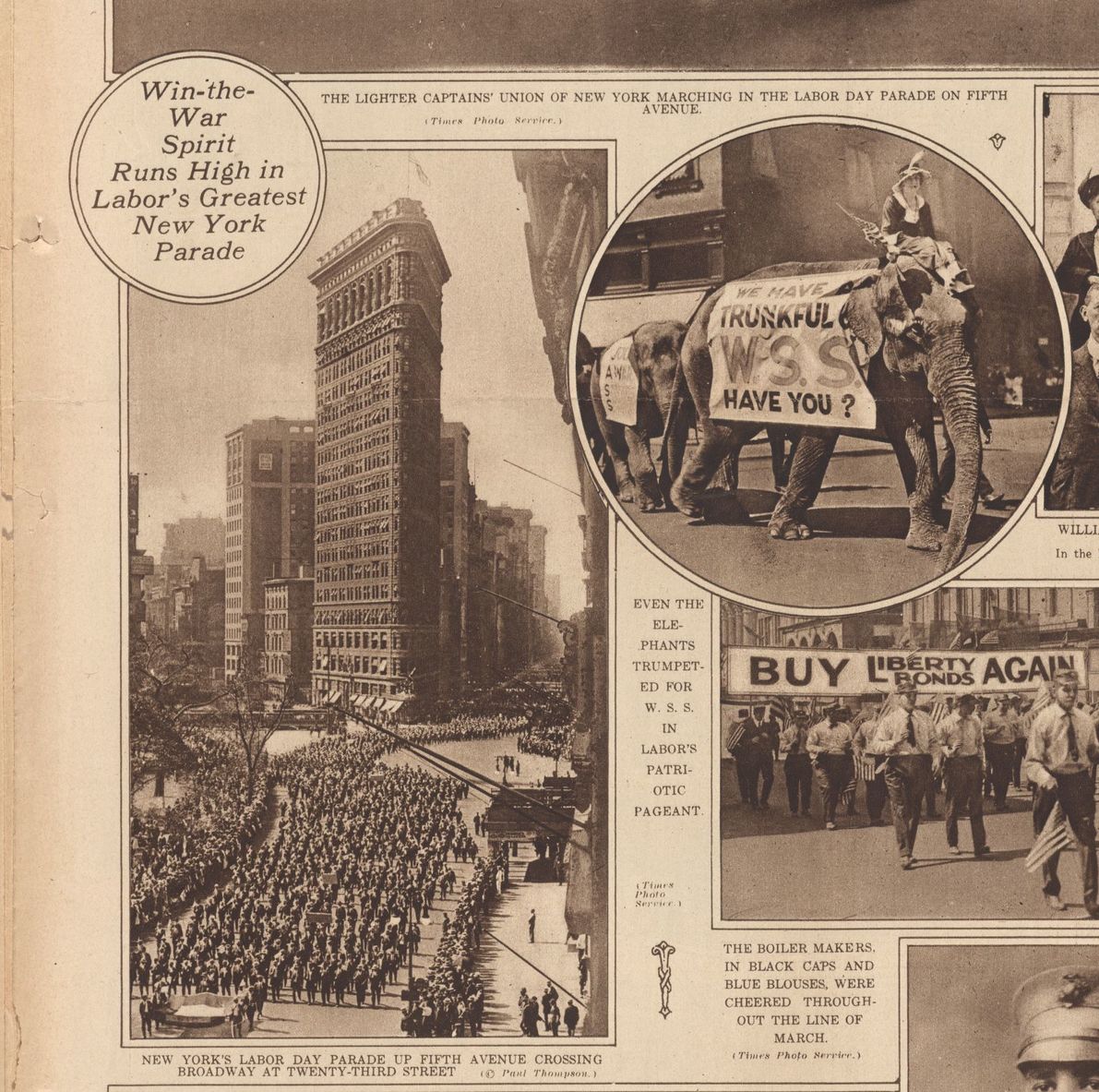
LABOR DAY 1918 IN GLOUCESTER, MA.
The traditional Labor Day weekend in Gloucester, Massachusetts, was a big one with residents and visitors traveling to-and-fro thanks to its long established destination reputation. Families hosted guests from in state and out of state. Pleasure boats and fishing boats set out and returned. Art fans were encouraged to Rocky Neck studios and the Gallery on the Moors exhibition before their summer season exhibitions closed.
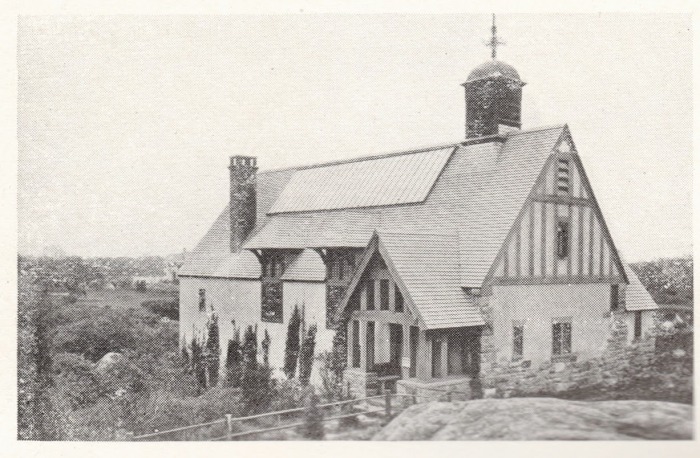
Despite a one-day traffic study banning cars that Sunday, to compel gas rationing, Stage Fort Park was packed:
“A large crowd participated in the picnic at Stage Fort Park yesterday, under the auspices of the Wainola Temperance Society and Waino Band. Two fine concerts were given by the band under the direction of Charles A. Glover. There were several tents for the sale of ice cream, tonic and lunches. Two baseball games attracted a large throng in the morning and afternoon…”40
On the pages of the Gloucester Daily Times and Cape Ann Advertiser and the Manchester Cricket, two local newspapers established in 1888, cultural events, casualty lists, and letters from enlisted men were published –unavoidably and disconcertingly –on the same page at times. Public notices and benefits in support of the war were broadcast over the long weekend, like this striking appeal for fruit stones for gas masks:
“Every peach stone counts: Patriotic barrel at board of trade will receive your contribution “The Board of trade peach stone campaign is meeting with wonderful success and the patriotic sugar barrel which has been placed in front of the rooms of Main street is rapidly being filled with the precious stones. Not only save the peach stones, but plum stones, olive pits, nutshells of all kinds except peanuts because they all make the best charcoal for making the gas masks our soldiers in France wear…One hundred peach stones makes enough charcoal for one mask and peaches are right in the height of their season. Get busy now and bring them…”41


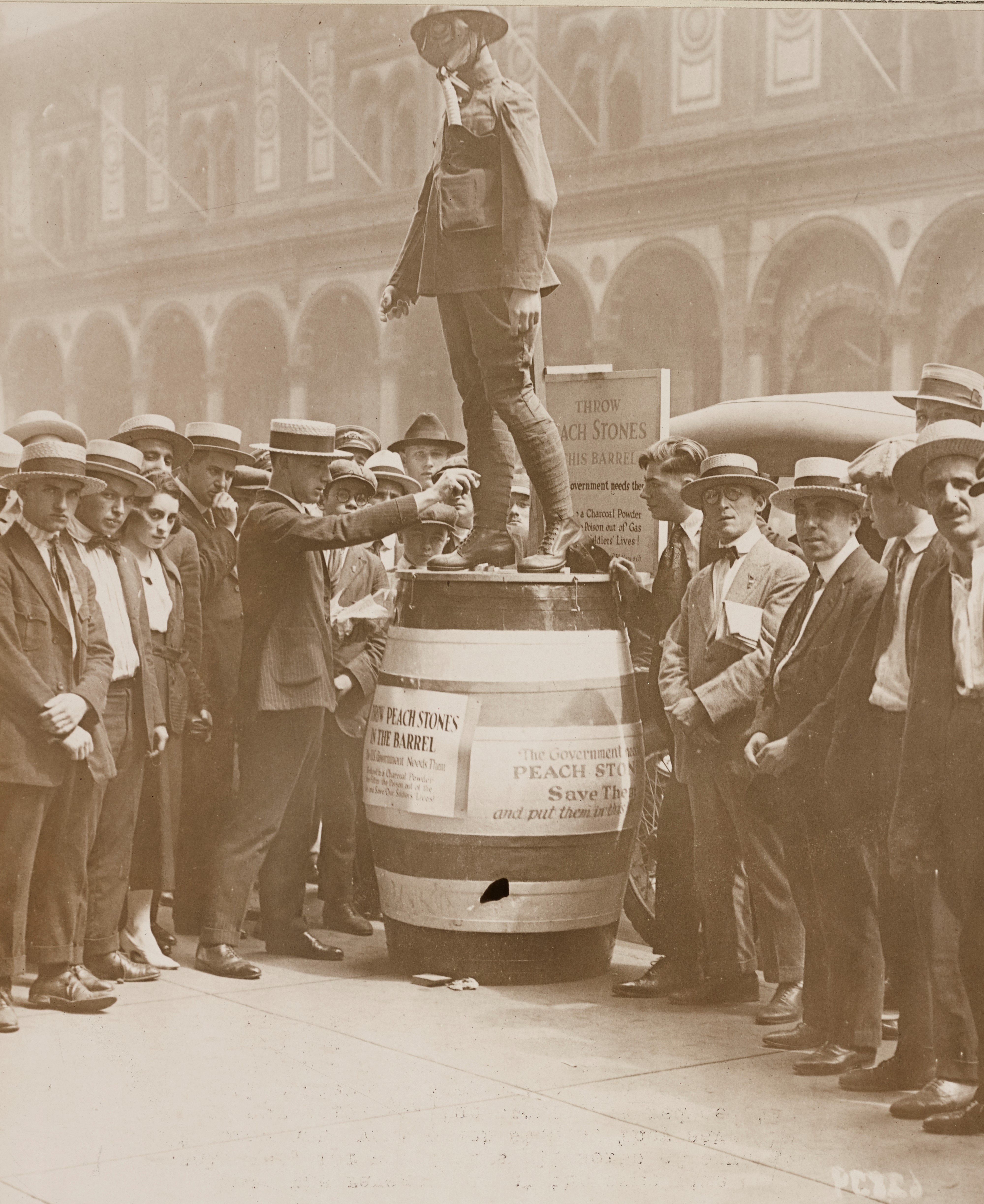

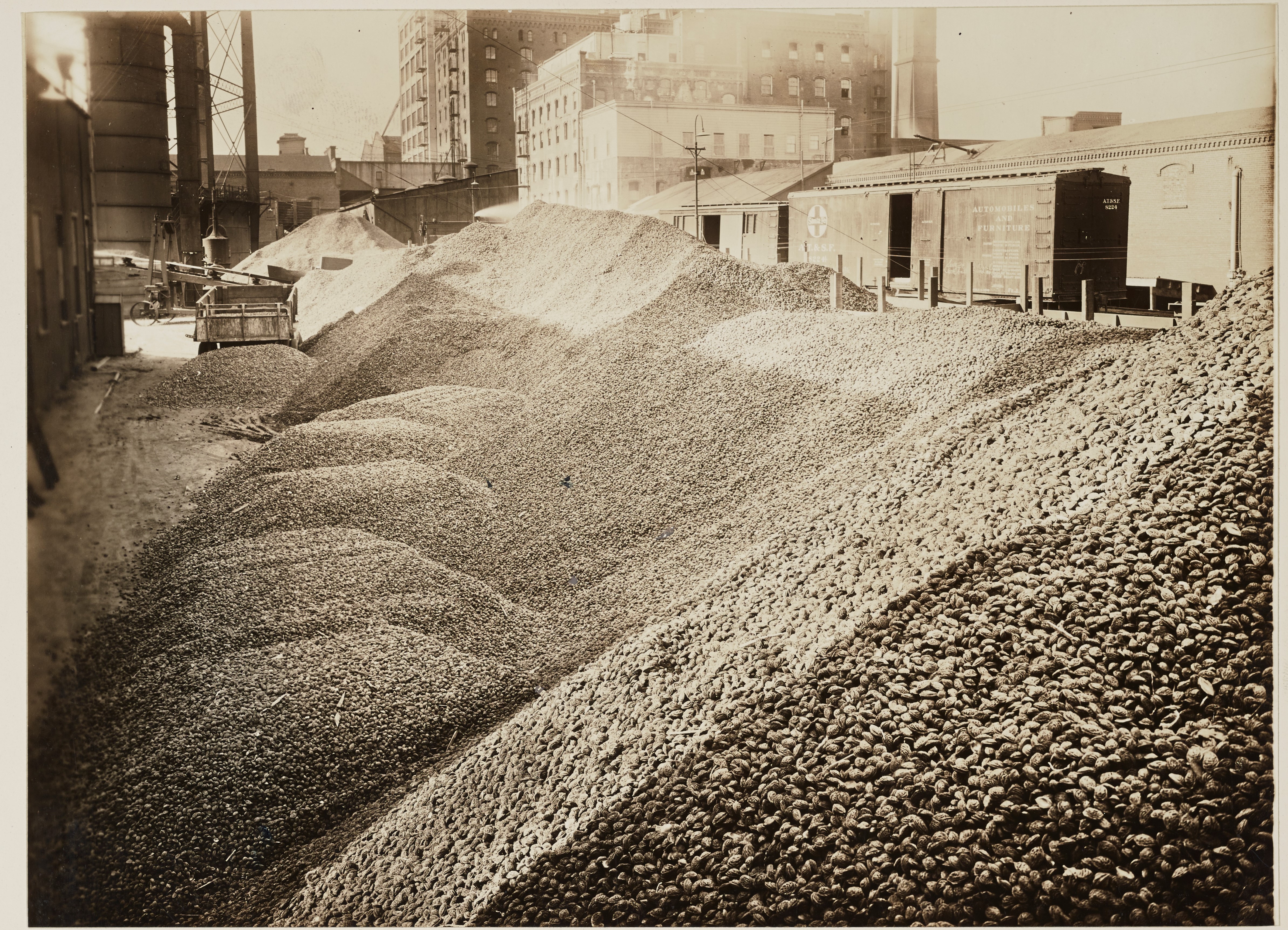
The Gloucester Daily Times (GDT) regularly published submissions from the community on one or two inside pages, too. The individual joys & sorrows, boasts, and whereabouts were sorted by town and neighborhood with subheadings Rockport, Pigeon Cove, and Manchester; and in Gloucester, West Gloucester, Riverdale, Annisquam, Lanesville, Magnolia, and East Gloucester. The columns are chatty and informal, a bit Facebook meets Page Six depending upon the neighborhood.
Downtown, or specifically the Fort and Portuguese Hill, did not have a section.
Because the general public was not informed about the severity of flu deaths in the military that spring and summer, and even the experts missed possible tell tale signs, the busy destination season continued into September, as did the dreadful war.
The comings and goings over Labor Day were detailed within a September 3rd East Gloucester column. Residents hosting summer guests, including young men on furlough, were quite possibly literal harbingers of doom or vectors. Visitors on Mt. Pleasant returned to Worcester and Watertown, and back to Somerville from Chapel Street.
“…Joseph Ehler of the U.S. navy transport service is spending a brief furlough with his parents, Mr. and Mrs. James Ehler of Mt. Pleasant Avenue. Walter Peterson of Camp Devens, Ayer, spent the holiday weekend on 8 Davis Street with his mother, Nina. Mrs. Charles E. Locke and family returned to Worcester from Mt. Pleasant. Miss Suzanne Parsons of Mt. Pleasant back from a visit in the South to resume duties at Watertown High School…Mr. and Mrs. Fred Benson and little daughter Elizabeth of Somerville were the weekend and holiday guests of Mrs. Benson’s parents, Lewis Rowe on Chapel Street.“42
The East Gloucester column published on September 4th reveals a few more threads of what’s to come. East Gloucester would be hit particularly bad.
“…Walter Fenn, the artist, is improving gradually from his illness and at present he is at Rocky Neck.” (At the Chapel Street church school) “a full attendance is requested as business of importance is to come up for consideration and plans for the year made…There remains one more day to view the exhibition of paintings and sculpture at the Gallery-on-the-Moors…Members of the Chapel Street Baptist Sunday School will gather (for the end) of the summer season…” 43
The first day of school commenced Wednesday, September 4, 1918. Headlines from the paper pronounced a hopeful beginning, “Teachers and Pupils Enter on Work of the Year with Vigor”. That evening the city hosted a huge public event, “Community Sing at City Hall”.
“Community Sing Filled City Hall: Voices Raised High in Patriotic Song
The Community Sing at City hall…combined with the addresses by Dr. M. M. Graham, district service manager of the United States Shipping Board and Corporal Fran A.H. Street, a returned soldier who was twice wounded and later gassed while serving with the Canadian forces, attracted an audience which filled City Hall. Patriotic music was sung, opening with the “Star Spangled Banner,” following which a proclamation was read by President Antoine Silva of the municipal council, representing the city, after which the vast audience joined in singing “Speed Our Republic”…Among those on the platform was Private Joseph Merchant, who has recently returned from “over there” on a furlough after being wounded. The meeting closed with the singing of “America.”44
This special event revved up attention for the draft registration two weeks away. Under the Selective Service Act, all men ages 18 through 45 would be required to register on September 12, 1918, the third and final registration for WWI. 45 Local volunteer committees handled registration for this mandatory conscription and dispensed draft cards and exemption rulings. Booster efforts like the Community Sing in Gloucester were successful. About 13% of Gloucester’s total population would show up at the polls to register.46
Two days later, the first article about a lethal flu in Massachusetts was published in the Gloucester Daily Times on September 6, 1918 with the state surgeon general’s warning. There was no mention of the disease striking Fort Devens, or any other camp or military branch. The spread of the virulent flu was aptly described as a “pandemic”. Though small and buried on the inside pages of the GDT, it was printed– ahead of other papers—, “Lookout Now, Old Mr. Grip is Around”. 47

Old Mr. Grip was already here.
PATIENT “ONES” – FIRST PUBLISHED MENTION OF A GLOUCESTER FLU DEATH
The funeral announcement for young mother Mrs. Margaret E. Miller of Bass Avenue (see maps)48 who died September 9th, 1918, “after an illness of only a week”, was one of the first published flu deaths in Gloucester, Massachusetts. Miller’s funeral was held at home, which was common, at her in-laws on Traverse Street in East Gloucester. She left behind a husband and their three month old daughter. The first civilian flu death reported in Boston was just one day earlier. Quincy came 6 days later. Worcester ten.

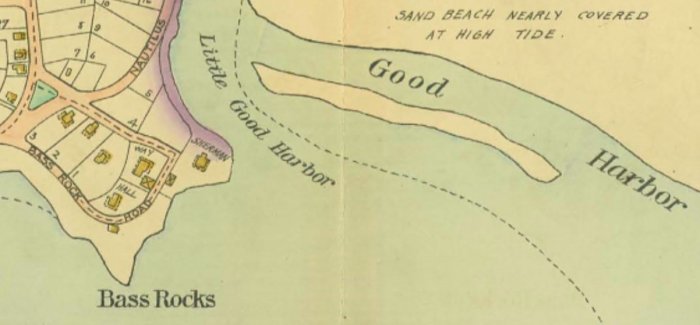

As the first major American offensives in France were underway, the Massachusetts battle of the flu turned into a public health crisis.
On September 11, 1918 hundreds of cases of flu in the general public were reported in Boston and dozens in Quincy. The previous day, visitors from Everett and Quincy (where the flu flared early as well) were visiting East Gloucester; the church event advertised earlier in the week assembled a crowd of 140 people; and another resident on Rocky Neck was sick, Letter Carrier Sherman T. Walen. 49
Were the Gloucester residents among the carriers or those exposed to the virus?
“Mrs. John Brainerd Wilson has been entertaining her sister, Miss Hildreth of Everett, who is supervisor in the public schools of that city. Mrs. Fred Pierson and Mr. and Mrs. Winthrop C. Sherman and child, all of Quincy, are spending a week at 62 Mt. Pleasant avenue. Letter Carrier Sherman T. Walen is indisposed at his home on Rocky Neck…The Ladies’ Society of the Chapel Street Church will hold a basket picnic in West Gloucester tomorrow…The Chapel Street Baptist church school gathered on Sunday noon, for the first time after the summer adjournment…There were 140 members of the school present…”50
The School Committee convened, voting to uphold the marriage bar for female teachers, unless the husband was deployed. Duncan Wright of Annisquam was brought to Court by the Board of Health for “collecting swill without permit”. Sometime that week the Schooners Natalie Hammond and Athlete left Gloucester Harbor. And on the front page of the paper September 11, 1918 a reminder about Registration at all the voting places was the headline:
“All Flags to Fly and Bands to Play tomorrow– From 7 o’clock tomorrow morning until 8 o’clock tomorrow evening the voting places in this city and Rockport will be open for the enrollment of those coming within the new draft every man between the ages of 18 to 45 years both inclusive not already registered must register tomorrow for the Selective Service Draft.”51
“Tomorrow our streets will be thronged with men,” the Governor’s proclamation urging liquor stores to close began, “The day should be devoted entirely to such activities as will best expedited the enrollment of such a large number of men as are required by the National Government to enroll for military service.” Gloucester encouraged a corps of volunteers, registrars and interpreters for those unable to speak English.
Though undoubtedly effective in generating support for the war and community, the local notices, meetings and events predate the coming calamity. With hindsight they make for a wincing read. Unlike the general population in those days, contemporary readers know how each of these gatherings, little or small, ordinary or special, might spread the deadly contagion and end.
Badly.
Burn the peach stone barrel!
Avoid committee meetings!
Steer clear of the crowds—especially singing ones!
Stay home!
DRAFT REGISTRATION DAY & FIRST PUBLISHED STORY OF A GLOUCESTER FLU OUTBREAK
10 Days after Labor Day weekend . 5 Days after the Community Sing rally.
There was a massive turnout on draft day, September 12, 1918. “Cape Ann Awake to Registration: Over 1500 Had Respond to Country’s Call Before 11’ O’clock This Forenoon” was the headline, and after all the registrants were counted,
“The Total registration in the entire country is expected to pass the estimated 13,000,000 mark. Massachusetts has contributed 472,000, it is estimated and Boston has listed 102,867. Total registrations here yesterday were 3024 including 321 at Rockport and Pigeon Cove and 145 received by mail. Today 14 more have come in, making the grand total 3038…”52
Enlisted immigrants comprised nearly 20% of the US Army during WW1. The draft in Gloucester indicates a comparable percentage of declared and non-declared registrations on September 12th. Volunteers helped with in-person interpretation and written translation in multiple languages, especially Italian and Portuguese.

(Lib. of Congress) Vice President Thomas R. Marshall draws draft number 53
A second, smaller headline was startling: “Post Office Hit By Grip Malady: Eight Carriers and Two Clerks Victims of Prevailing Distemper,” 54 the first article reporting a flu outbreak in Gloucester, published 10 days after Labor Day, a week after the community sing, and two days after Letter Carrier Sherman T. Walen’s failing health was listed in the East Gloucester column. [A little over a week after Registration day, William Francis Murray, the Postmaster in Boston, died from the flu on September 21, 1918.]

The Gloucester post office was located at the corner of Main & Pleasant Streets in 1918 (photo ©c ryan)55
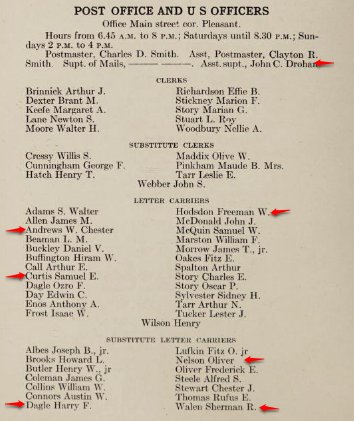
Post Office staff City Directory, 1917. Annotated with red arrows to indicate flu cases in 1918. 56
Inside the community pages, two enlisted Ehler brothers are mentioned in the East Gloucester column, and a brother-in-law visiting on leave; a third brother had visited from Camp Devens over Labor Day. With so many ill neighbors, the column required a sub-heading: “Spanish Influenza Prevalent Here” and included the first obituary to mention Spanish Influenza as the cause of death. Bertram Goodwin of 16 Highland Street fell sick September 5th and was dead within a week, among the first victims of the flu in Gloucester and the first to be public.
“Mrs. Carrie Hamsdell of Winchester is the guest of Mrs. Nellie M. Parsons of Highland street. Mrs. Parsons has just returned from a visit (illegible) the guest of Mrs. Jewell , of Boston, in Stratham, N.H. The Ladies’ Aid of the Methodist Episcopal church will hold a business meeting in the vestry this evening. Mr. and Mrs. J.H. Mason of Fall River, spent the week end with Mrs. Mason’s mother, Mrs. James Ehler of 51 Mt. Pleasant avenue. Mr. Mason is stationed as first class cook in naval service at Newport and he was here on two days leave of absence. Mr. and Mrs. Victor D. Ehler and family the former who is stationed at Bumpkin Island and Walter A. Ehler who is stationed at Camp Devens were (…illegible…). Spanish Influenza Prevalent Here The prevailing distemper of grip and Spanish influenza is felt much in this ward. Harry Dagle of the U.S. Mail Force is ill at home on Highland Place. Sherman T. Walen also of the U.S. Mail Force is very ill at his home on Rocky Neck. Freeman Hodson, a native of this place and letter carrier in the Mt. Pleasant Avenue lower district route of ward one, is confined to his home on Essex Avenue. Stanton and Eleanor Farrell, both children of Mr. and Mrs. Frank Farrell of East Main Street are ill with the malady. Agnes Ryan, the young daughter of Mrs. Alice Ryan is confined to her home on East Main Street. Fletcher Wonson, the young son of Mr. and Mrs. Frank P. Wonson has been ill for several days. Chester Brigham of Haskell Street, agent for the Metropolitan Insurance Company, was out yesterday, after a severe attack of the grip. Ida Gerring, the little daughter of Mr. and Mrs. Herbert Gerring of Avon Court is a late victim of the distemper. Mrs. Joseph T. Moulton was stricken on Tuesday, at her home on Highland Street. Miss Blanch Gilbert of East Main Street was stricken Tuesday and Dr. Arthur S. Torrey took to his bed today with the same trouble that has stricken a large number of his patients. Sudden Death of Bertram R. Goodwin Bertram R. Goodwin a well-known citizen of this ward, died at his home on Highland Street yesterday morning resulting from the effects of the prevailing disease, grip or Spanish influenza, which is broadcast at this time. The deceased was taken ill last Thursday…seven years ago he married Miss Della E. Frost of this ward. The funeral will be strictly private, owing to illness in the family.”57
Gloucester Daily Times, East Gloucester column, Sept. 12
On September 13th a tiny notice was released nationally, prompted by complaints from colleges. The War Department cancelled football for “colleges and universities with Students’ Army Training Corps,” surely a preventative flu measure based on so many military outbreaks, but not stated directly.
Letter Carrier Samuel Curtis died Saturday, September 14th, at his parents’ home, two of his siblings still sick. That same day, the first guidelines from the U.S. Surgeon General were published nationally, very likely ready to go, but held back until after the draft registration.
Message from the U.S. Surgeon General
“Because the pandemic of influenza occurred more than 25 years ago, physicians who began to practice medicine since 1892 have not had personal experience in handling a situation now spreading through considerable part of the foreign world, and already appearing to some extent, in the United States. For that reason Dr. Blue is issuing a special bulletin for all medical men who send for it. In order to reach physicians of the country without a day’s delay, however, Dr. Blue has provided for transmission through the Associated Press the following summary of methods for control of the disease:
Methods of Control
Infectious Agent – The bacillus influence of pfeefifer [sic]. (Illegible) secretions from the nose, throat and respiratory passages or (illegible)
Incubation period: one to four days, generally two.
Mode of transmission – by direct contact or indirect contact through use of handkerchief, common towels, cups, mess gear, or other objects contaminated with fresh secretions. (illegible)
Period of communicability as long as the person harbors the causative organism in the respiration tract.
Method of control
(A) The infected individual and his environment.
“Recognition of the disease- By clinical manifestations and bacteriological findings.Isolation- Bed isolation of infected individuals during the course of the disease. Screens between beds are to be recommended.
Immunization- Vaccines are used with only partial success.
Quarantine- None; impracticable.
Concurrent disinfection- The discharges from the mouth, throat, nose (illegible)causative organism is short-lived outside of the host.
– End of U.S. Surgeon General Notification, published in the Gloucester Daily Times 9/14/1918
(B)General measure- The attend of the case should wear a gauze mask. During epidemics persons should avoid crowded assemblages, street cars and the like. Education as regards the danger of promiscuous coughing and pitting. Patients, because of the tendency to the development of broncho-pneumonia should be treated in well ventilated, warm rooms. The present outbreak of influenza may be controlled more or less extent only by intelligent action on the part of the public. “There is no such thing as an effective quarantine in the case of pandemic influenza,” Dr. Blue adds, “but precautionary measures may be taken and should be taken. Thus far we have little information as to the susceptibility of children, but it is fair to assume this type of Influenza might spread through a school as easily and rapidly as measles for example.”
Gloucester Fights Back
By Monday three more deaths were reported and at least 300 cases of flu in town. A second letter carrier, Sherman T. Walen, succumbed. Not surprisingly, 600 students and 10 teachers skipped school, maybe sick or helping at home, or too scared to attend. Before the next school bell rang, Mayor Stoddart issued the first flu proclamation closing schools and banning all indoor gatherings. (The exemptions? Bars and churches were the last to close, and only after guidelines and state mandates.) The school board had to scramble and assemble to vote for closure as the action preceded procedure. Addison Gilbert Hospital was closed to visitors to prevent contagion. A Red Cross Emergency relief hospital was readied for patients, installed within the Spanish War Memorial Hall of the police station.
This strong roll-out happened within the first five or six days of Gloucester’s outbreak!
Clearly, city officials and various movers and shakers must have already sprang into action based on how fast they moved. Gloucester had the courage and foresight to get out ahead of the epidemic as much as possible, and far too much experience with the enormous sense of urgency and resolve required to handle a crisis after so many thousands of fishermen lost at sea. (From 1900 – 1918 nearly 800 Gloucester fishermen died at sea. A single February storm in 1879 claimed 143.) The devastating Influenza deaths in just five weeks added to a legacy of loss and coping.
On September 23 Boston reported 23 deaths from Influenza; Gloucester 11.
At the post office where the disease surged, nine staff still struggled and cases in East Gloucester surged. A few vessels returned with sick crew. Sawyer Free Public library closed on the 24th. Physicians and nurses from other towns arrived to help. There were so many new cases in Gloucester they enlarged the new Red Cross emergency hospital at the police station (and would again). Still, more hospital beds were necessary. The State Armory on Prospect Street seemed the ideal site to ready, however the State refused the request. Alderman (City Councilor) Poole headed to Boston with Osborne Knowles, Christian Saunders and John Radcliffe, representatives from Gloucester’s Board of Health and Public Safety, to negotiate with state and federal officials in person.
“That the authorities were fully cognizant of conditions in Gloucester was evident from the statement of Mr. Long, who said that Revere; Quincy and Gloucester were the most infected of any in the state. Mr. Long offered the committee every assistance and relief that could be given to handle the situation…In the opinion of state officials and leading physicians the out-door method of treating the disease is the most effective and successful. So interested were the officials in the local situation that the surgeon-general’s department yesterday afternoon notified Capt. Carleton H. Parsons, senior officer of the local state guard units; instructing him to present to the local authorities the offer of the state to send to Gloucester a military hospital unit to cope with the situation.”
Lieut. John A. Radcliffe, State Guard, resident, and veteran Gloucester Daily Times (GDT) reporter of nearly 20 years & volunteer on the Board of Health for 15 prior to the pandemic
The state discussions prompted additional protective measures, informed by the best doctors in the armed services. There were more cases in Massachusetts by then than all the other states combined. Influenza cases at Camp Devens had already climbed to 11,000. The Gloucester contingent left the Boston conference armed with a state of the art plan for a crisis team to be deployed in Gloucester, a military unit of doctors, nurses and multiple local State Guard companies. It would be the first one established for care of civilians and a model to follow. All necessary presentations and votes were sorted by nightfall.
“The adjutant general’s department in Boston was immediately communicated with, and arrangements made to send tents, physicians, nurses’ field kitchen, military equipment and supplies to this city.”
John Radcliffe, Gloucester Daily Times
Meanwhile, another floor was added to the Red Cross Emergency Hospital, State Guard called out, and police instructed to enforce any Board of Health recommendations such as the anti-spitting rule and fruit stand closures. Various strict fumigation requirements were put into immediate effect and there would be no crowding on street cars. Without calling it a quarantine, mighty efforts to effectively shut Gloucester down ensued. The City banned outdoor gatherings now, too. A women’s suffragist meeting and Liberty Loan rallies were among the first cancellations. “Gloucester calls her people to rise promptly to the emergency!” urged the op Ed.
Statewide the precise number of infected cases was a guess at best. (It would be a week before reporting deaths was required by law, ten days after Gloucester so ordered.) In local war news at this time, Gloucester advocates were seeking reimbursement from the federal government for vessels sunk by submarine– while pressing for flu support. Massachusetts established an Emergency Public Health Committee on September 25, 1918. Their first order of business was to ban all public gatherings especially in light of the upcoming liberty loan rallies and parades. It was suggested that the Federal Government was likely to take charge in Massachusetts as a war measure. The State Board of Health published treatment guidelines the next day because of the scarcity of physicians and nurses, and push back after bans and restrictions, which Henry Endicott defended mightily:
“…There are undoubtedly towns and cities in the Commonwealth from which the influenza has not been reported, but of course we must face the fact that the chances are very much in favor of the spread of the disease. I urge such communities to assume their part of the common responsibility, and to act as if they were already in the midst of the epidemic.
The doctors and nurses of Massachusetts who are devoting themselves to the care of the sick in this emergency are all heroes and heroines, and many of them have paid the penalty. Not one of them, as far as I am aware, has shirked in any way; they have overworked; they are without sleep—yet, still they go on. Massachusetts can never repay its debt to this noble band of men and women. We are using every effort, both through the government and outside the State to get additional help for these people… (Regarding) Cancellation of the Liberty loan meetings… It will never be said of Massachusetts that she was so immersed in her own private troubles that she for one moment failed to heed the Nation’s call to practical service. Massachusetts must and will do her part.”
Henry B. Endicott, Chairman Massachusetts Emergency Public Health Committee, established Sept. 25, 1918
Dr. Kelley, Massachusetts Commissioner of Health and a member of the state’s Emergency Public Health Committee, reached out to U.S. Surgeon General Blue. The Federal government lent army and navy doctors to take over doctor assignments. Kelley appointed a nursing Commission and assigned Miss Billings from his department as chairman. They hired 100 nurses to serve in case of emergency in the Massachusetts State Guard. “These nurses were given the rank and pay of Lieutenant. It is believed that this is the first time such rank and pay have been given to women in the United States…” 59 The state deployed fifteen to Gloucester plus about 10 more registered nurses. The federal government released a detailed “Influenza” circular September 26. By then forty percent of Gloucester’s telephone company were absent “on account of sickness either of themselves or relatives whose care is devolving upon them.” The Gloucester Manufacturing Company “closed their plant indefinitely” and the Ipswich mills announced a shut down. There were 49 deaths in the city, up from 11 three days prior, among them Laura Silva, Alderman Silva’s sister, who died that morning from “pneumonia following an attack of the prevailing influenza.” Acting Governor Coolidge appealed to the President, select neighboring states, and the Mayor of Toronto for physicians and nurses:
“Massachusetts urgently in need of additional doctors and nurses to check growing epidemic of influenza. Our doctors and nurses are being thoroughly mobilized and worked to the limit. Many cases can receive no attention whatever. Hospitals are full, but arrangements can be made for outside facilities. Earnestly solicit your influence in obtaining for us this needed assistance in any way you can.”
Governor urgent telegrams disseminated 9/26/1918 (published in GDT 9/27/1918)
With no time to spare, the State Military Unit was installed on the grounds of Addison Gilbert Hospital Friday September 27, 1918, and completed before the sun was down Saturday.
“In a remarkably short space of time the tents were up and the unit well established, so that this afternoon it will be ready for patients. There are 100 tents for patients, each waterproof, provided with board floor, cot and other essentials for the proper care of the sick…The field hospital is a wonderful institution and shows in a large measure what the State Guard can be depended upon to bring about. Day and night the men have worked to put the hospital in shape and to look out for the sick ones. It is simply remarkable the way the many details have been arranged to establish such a wonderful institution well worthy of the name. Electric lights, water, sewerage and floors in the tents have all been put in, chiefly through the efforts of the fine types of men that compose the State Guard.”
John Radcliffe, GDT
Another 100 tents for the state guard, plus any necessary for administration and operations, were erected. Over on Main Street, the Red Cross established a children’s hospital in the Girl’s Club over Gloucester National Bank. Anticipating great need, the public safety committee announced an Emergency Fundraising drive for the Local Red Cross administered by Cape Ann Savings Bank. The Mayor and all but one Alderman were struck by flu—all those meetings! — and still that Monday they brought forth more precautions, seizing any and all educational opportunities and community measures possible to halt the spread. Public funerals were banned and soda fountains closed, though the latter was rescinded in one day. Detailed flu mask (face masks) instructions were published as part of optimum patient care and prevention.
Mayor Stoddart urged fresh air and ventilation.
“Every house whether a case of disease has existed or not, should be thoroughly aired during the day…Clean up the back yards, dumps and filthy places. If your neighbor will not act, consult the Board of Health or its emergency agents and prompt action will be taken. Let everyone co-operate and assist our health officials in the excellent work they are doing.”
Mayor Stoddardt, September 30, 1918
The deadline for the Draft Registration questionnaire was postponed until influenza was over. One bright note that bleak weekend, ten nurses arrived from Ontario, Canada, and five from the state thanks to the commonwealth’s plea and Gloucester’s hustle. Unlike other locations during the Pandemic 1918, folks rushed here to help rather than away.
On October 1 the City implored women to volunteer in the fight against the flu. Major A. N. Thomson, an esteemed infectious disease specialist, was detailed from the US Army Medical Corps to command the entire camp. The Major was empowered by the Federal authorities to take over facilities and property should they fail to be turned over, which never happened. Mayor Thomson’s excellent communication skills were evident his first day: daily briefings and public health notices commenced and a Civilian Relief Committee was established. Some restrictions were specific to Gloucester such as the mandatory fumigation of any vessels coming or going, the need for heaters for the State Guard and the curious ban on milk dealers, at the time believed to be a vector in this city. The general boil order may have covered it sufficiently; political savvy can be added to Major Thomson’s talents.


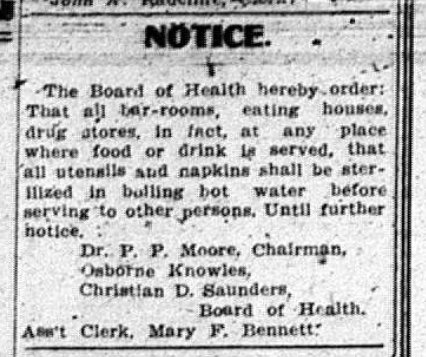
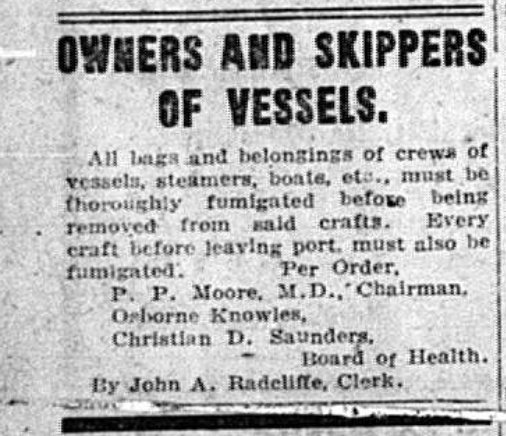
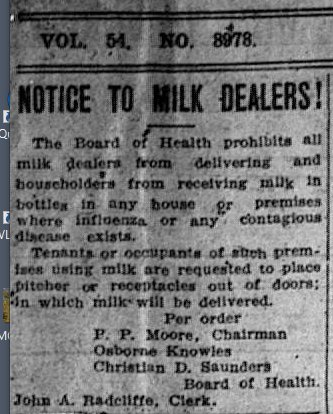
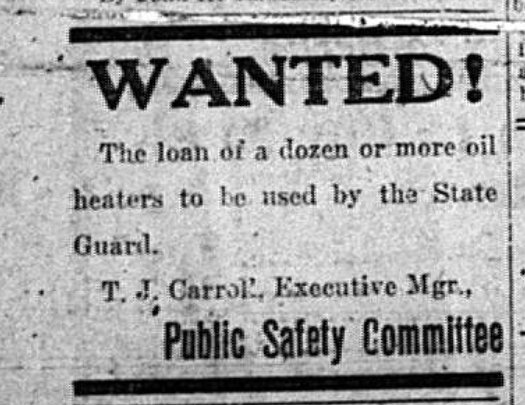
On October 2 the state issued its first Official influenza Bulletin
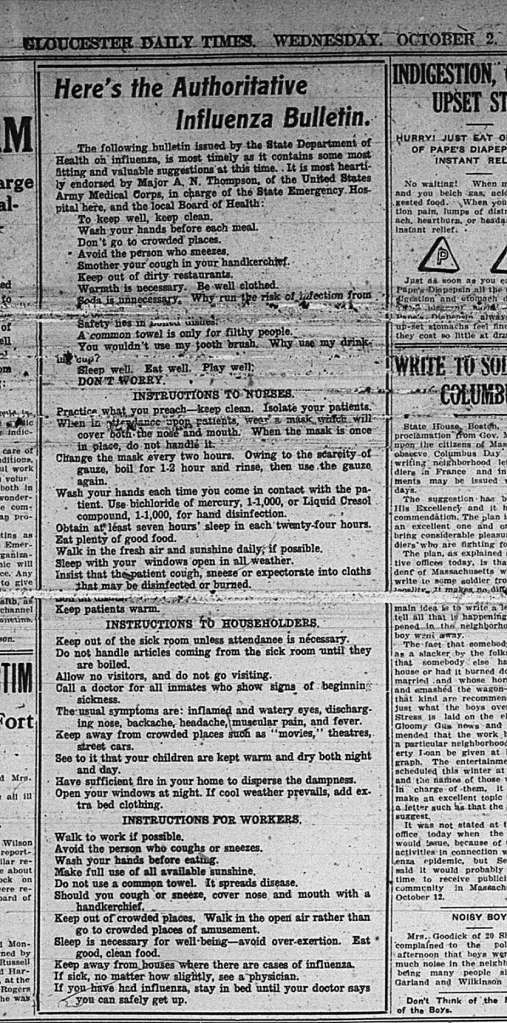
Doctors at Tufts University announced vaccine research and gave the city supplies and face masks. The Governor added to a growing insistence to bring teachers back to help since schools were closed. Deaths and infections continued rising in Gloucester. The Red Cross Emergency Hospital was open 24 hours a day until physicians would be able to resume nightly calls; the base was closed to all but patients and caregivers. Despite fumigation and social distancing protocols, 33 men from the street railway (trolley) were afflicted.
On October 3, 1918, after the community sing that first week of September, after registering for the draft on September 12, after advocating on behalf of the citizens of Gloucester, after traveling to Boston, Alderman Poole died from the flu.
These public servants were aware of the dangers of viral infection –if not the extent of this particular lethal disease– yet they met in person with great exigency, to keep people safe. They looked to science as they wanted to deliver model guidelines of care. As the death toll climbed they worked hard to determine how to halt its spread and prevent transmission.
The flu battle continued. The city spread lime on “bad spots and catch basins” throughout the city. Major Thomson estimated 800 cases of infection, a marked decrease. Local businesses donated food and treats to the base camp. The Red Cross measured the State Guard for winter uniforms and shoes. At the three week mark since the first deaths were reported, Gloucester recorded 137 deaths by flu. Dr. Manning was brought from France where he had charge of a children’s hospital, helpful with so many children sick, or having lost a parent, maybe two. Major Thomson declared that the teamwork in Gloucester “was certainly most remarkable, the like of which he had never before experienced and congratulated the city upon its good fortune.”
Bars were closed October 8. The death list fell to 3.
There are at present 10 patients in camp whose condition is normal, these being children who are being kept in camp under the supervision of the hospital staff until such time as proper home conditions are found for them. The number of patients sick is 32, those dangerously ill 3, and those seriously ill 2. During 24 hour period from yesterday noon there were three deaths. A noticeable feature in connection with the hospital camp is the very small percentage of sickness that has occurred among the soldiers.
Major Thomson October 8, 1918
Dr. Street joined Thomson’s medical team. He was the first to volunteer in Massachusetts to fight the flu and the last to leave Gloucester’s emergency. He had been practicing in China for 20 years. After Gloucester, he was sent to France.
Conditions were improving .
Not only the state, but the nation as well has its eyes on Gloucester at the present time. The first open air camp was established at Corey Hill, Boston, for the merchant marine, but the one in this city is the first for the civilian population and is far ahead of even the one at Corey Hill, so Col. Brooks, surgeon general, has stated. The wonderful success of the out-door treatment, the wonderful organization of the local unit and its many details is being set up as a model for other communities to follow.
John Radcliffe writing for the GDT, October 8, 1918
Plans turned to social work and after care. There were 121 patients at the hospital camp on October 10. Thanks to Dr. Manning,
This morning the big convalescent tent was completed and fitted with chairs, settees, tables, a graphophone and literature. Here the patients who have reached the convalescent stage will go each day, until they are in proper health to return to their homes. The graphophone was kindly donated by the Y.M.C.A. who have extended many other courtesies and valuable assistance in the present emergency.
John Radcliffe
The Mayor encouraged substantial philanthropy: Elizabeth Sherman (Mrs. Henry Souther) “offered the Red Cross the free use of (one of the) Souther residence(s in Gloucester), on Brightside avenue, Bass Rocks, as a children’s nursery for the care of the children now under treatment at the State Emergency Hospital Post and who on account of sickness or other conditions at their homes cannot go to their homes upon being discharged from the hospital.” [She was the daughter of Judge Edgar J. Sherman who built the iconic home perched on Bass rocks and nicknamed the gilded birdcage and Judge Sherman Cottage. Souther developed Bass Rocks and Sherman was a Trustee.]
Anticipating the closure of the camp and emulating its success, excitement built for a permanent out-door hospital to handle communicable diseases, and for pivoting efforts to support the Home Service Committee of the Local Red Cross:
“Only those who have been in close touch with the local conditions can have any idea of the extent of the suffering, or of the conditions that exist in many homes on account of the inroads of the epidemic. Whole families have been stricken and that means that the earning power of these families have been shattered. In many families it will be weeks before the members of the families who work will be (illegible) back bills to be paid, homes to be cleaned up, the sick made strong even after the over-worked doctor has ceased his visits. And in many homes where death has entered, sometimes both father and mother have been taken, leaving children who must be looked after and cared for for a long time, and where the father has been taken the mother and the children without the father’s care for a long time.”
John Radcliffe, GDT October 11, 1918
On October 15th, Dr. Manning and some of the nurses were reassigned. The Trustees of Addison Gilbert Hospital were willing to grant the Board of Health and hence the City use of it land for such an out-door hospital, and voted that way just in case. In the end the city opted to purchase the Braewood property, the former estate of Maria H. Bray. (Bray operated a popular summer inn from her home; Louisa May Alcott was one famous guest.) For convalescents not yet ready to go home and any lodging necessary for nurses, the site was ideal. St. John’s stepped up to provide shelter for convalescents that were homeless. Major Thomson’s last day at the base was October 16, the first day no deaths were reported. The State Guard started to breakdown the State Emergency Hospital Post. On October 18th the city council voted to continue the ban on public gatherings until October 22, 1918, and the school committee voted to re-open October 23. A resolution of appreciation of all who helped in the epidemic was passed October 24th. The State Emergency Hospital Post officially closed October 25, 1918. The total number of infections on closing day was 70 cases. Despite harrowing weeks at war and battling the flu, Gloucester surpassed its fundraising allotment for liberty bonds AND an emergency health fund.
Gloucester’s destination reputation, proximity to Boston, fishing industry, people & cultures, and their patriotic hearts– evident in strong showings at the community sing Sept. 5 and draft registration Sept.12– heightened gatherings and travel into and out of the city, especially at the end of the summer and the first weeks in September. Enlisted on leave came home. People traveled for art. Sadly, the timing was a tragic storm of transmissibility.
City, state, and federal leaders’ decisive response to establish temporary emergency facilities to address a broad range of needs, and to recruit personnel were stunning. An extensive operation was set into motion right out the gate, beginning with crucial partnerships with organizations like the Gloucester District Nursing Association, Salvation Army, and district Red Cross, as well as priming boards and committees, and a doctor and nurse network. The bold decision that both the “new” Armory on Prospect Street and Addison Gilbert Hospital would remain non-contaminant institutions in full operation was a masterstroke that allowed for maximum state and federal support not to mention the best in public health care. The government could send crisis teams straight away and did. Gloucester benefited from the latest military research, and top doctors serving in the U.S. armed forces. Major Thomson, the army major dispatched to lead Gloucester’s Flu Battle from the State Emergency Hospital Post was a nationally recognized epidemiologist. Expertise, speed and collaboration were possible thanks to an indefatigable army of citizen volunteers, and great hiring.
CONCLUSION
Although hit at the same time as Boston, the severe flu outbreak in Gloucester, Massachusetts, is relatively unknown. With a population just under 25,000 in 1917, Gloucester was perhaps too small to be on the radar of significant research study, notwithstanding its steep death rate, outstanding communication, bold decisions and impressive teamwork among local, state and federal officials. The city of Gloucester was struck early by the pandemic and should rightly be remembered for its sacrifices, resolve and model response.
Catherine Ryan, March 20, 2020
NOTES FROM the AUTHOR
Here is the impressive list of key properties* of significance modified throughout the 1918 Pandemic flu battle in Gloucester. (*author note: search for surname, property, and addresses within the post to see skip around for any relevant info. Double click pictures to enlarge)




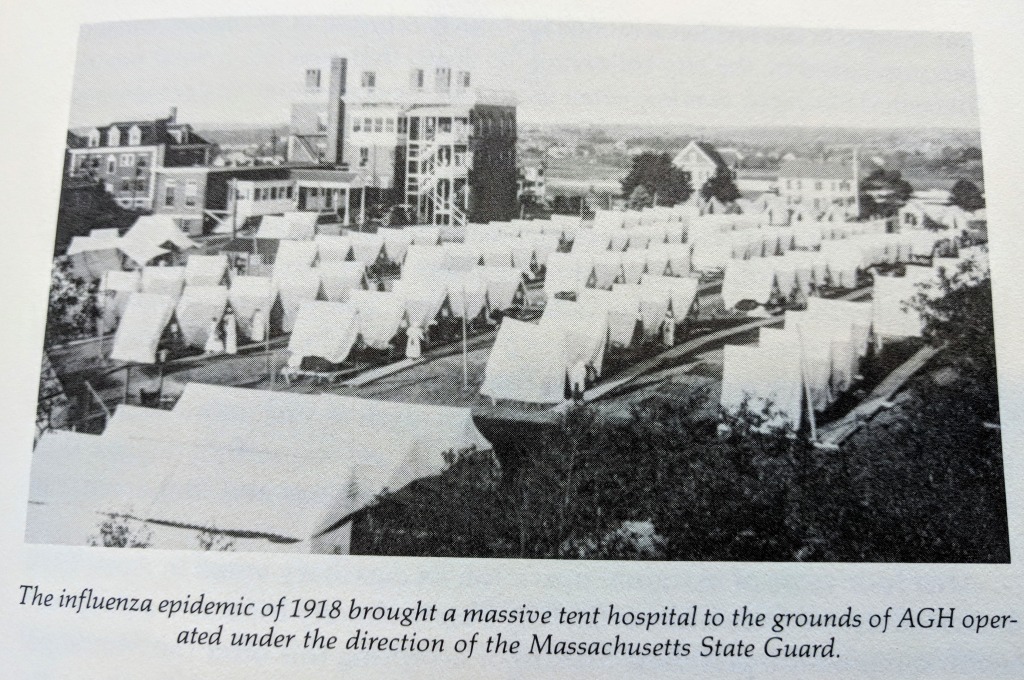

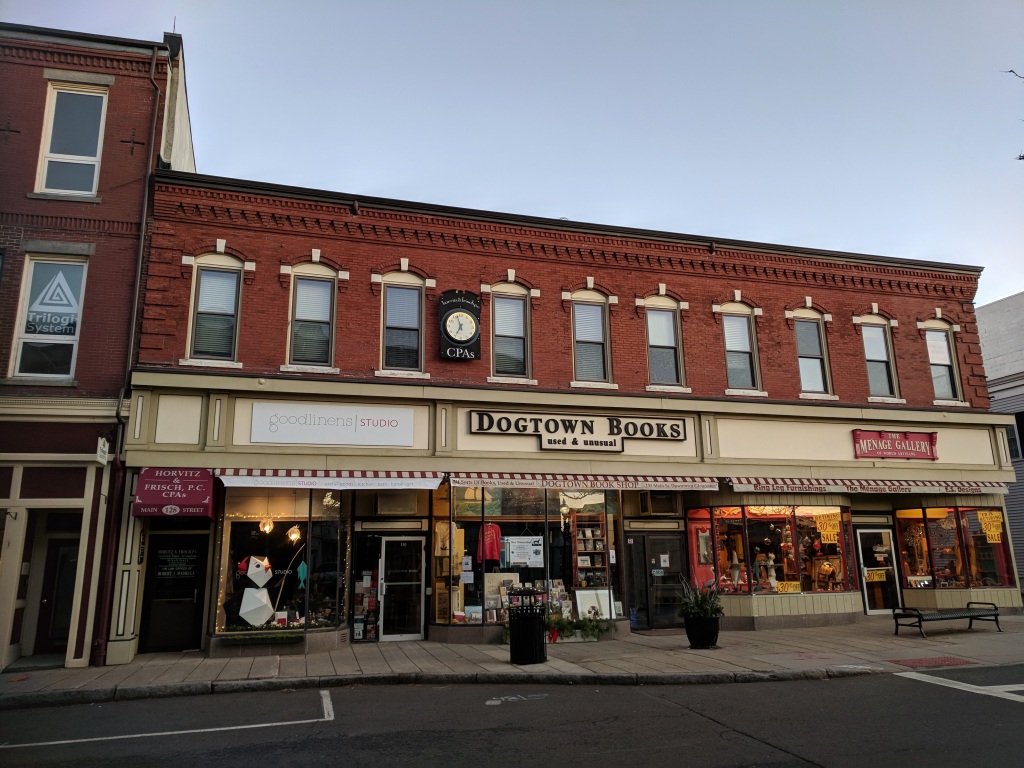
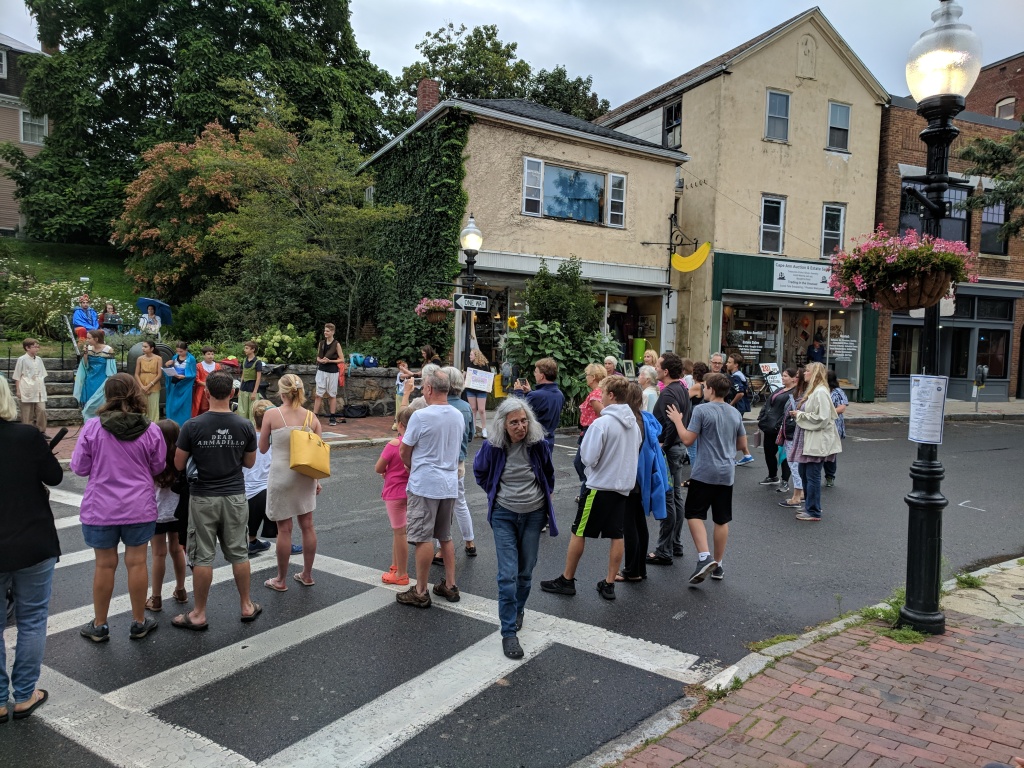




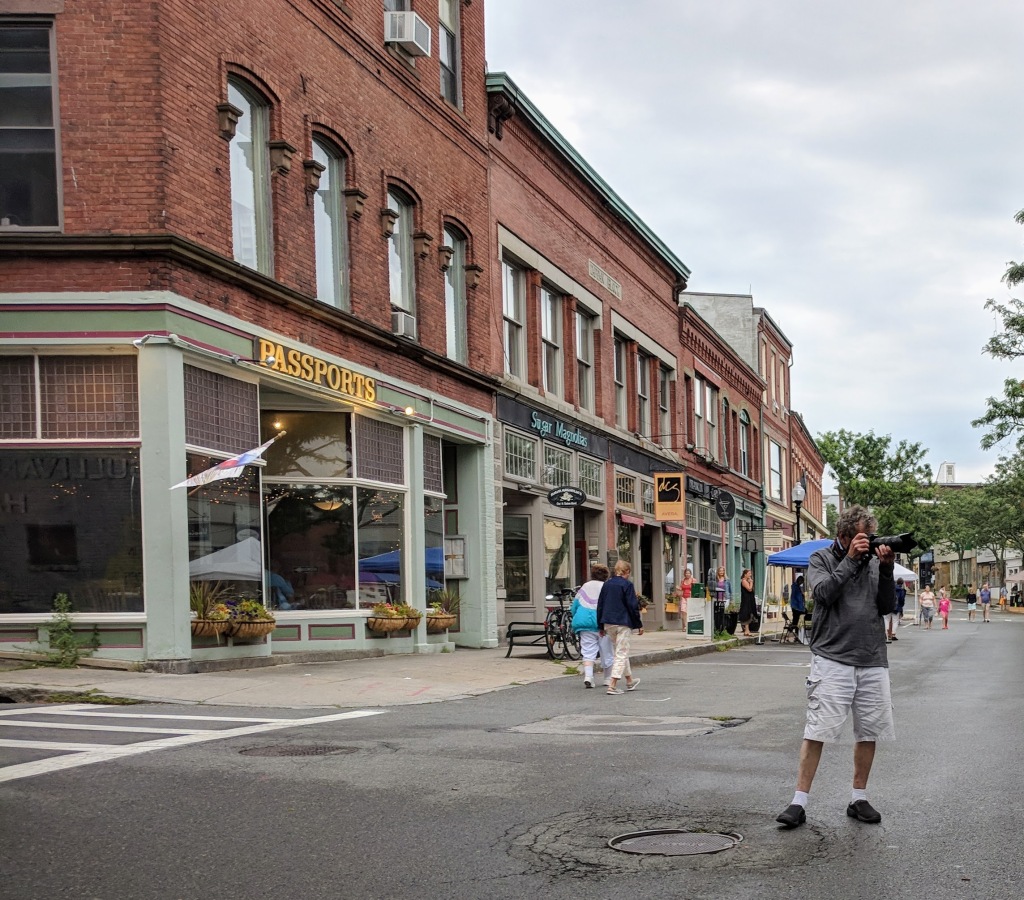
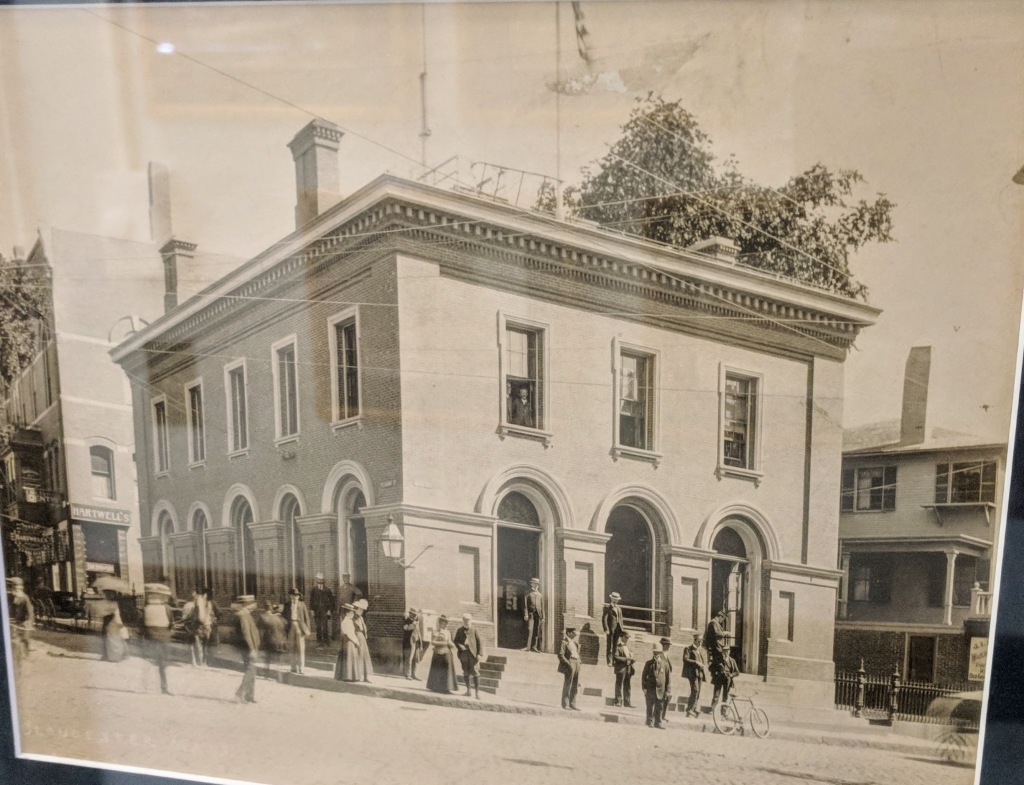
- City Hall including DPW and sanitation
- Police Station – site for Red Cross Emergency Hospital for the afflicted which expanded three times: the Spanish Veteran’s Hall; then the Old Army; and the district court offices
- New armory – National guard HQ
- State Emergency Hospital Post, out-doors, on the grounds of Addison Gilbert Hospital for the afflicted added. Both hospitals were FULL.
- Red Cross Nursery for families of front line workers and orphans in the Girl’s Club over the Gloucester National Bank and Children’s hospital
- Gloucester District Nursing Assoc.
- Red Cross HQ and Public Health Dispensary
- Emergency Food and needs pantry
- Souther estate at Brightside on Bass Rocks for children convalescents, and orphans
- Braewood – convalescence for those not well enough to go home (across from Pauline’s gifts)
- Fundraising for Red Cross and support Cape Ann Savings Bank
- Tibbet’s block – Emergency committees, Liberty Bond drive and Draft Registration
- Gloucester Daily Times corner of Pleasant and Center- David Cox in the photograph
- Post Office
FAST FACTS – Population
- Gloucester, Mass. population in 1917: 24,478 (2020 hovering 30,000) *183 flu deaths at peak pandemic
- Essex County population in 1917: 436,477 and in 1920: 482,156
- Worcester, Mass. population in 1915: 162,267 *est. population was 180,000 and 1294 flu deaths all waves (pre, peak, and post epidemic) in 1918
- Worcester County population in 1920: 455,135
- Quincy, Mass. population in 1917: ___ *flu deaths at peak pandemic 150
- Norfolk county population in 1920: 219,081
- Massachusetts population in 1915: 3,693,310 and in 1920: 3,852,356
- United States population in 1917: 103,208,000
- World population in 1917: 1.8 billion
- Mortality and Morbidity (cases) counts remain speculative. US Deaths from flu: 675,000 – 800,000
Regarding 183* deaths in Gloucester, Mass.: The estimates of morbidity and mortality in Gloucester are not final or definitive as they encapsulate solely published stats at its apex. For the time being, the 2020 Covid-19 closures limit access to research. Final numbers will increase and are estimated to be more than 250. Follow-up will expand window from 1917-spring 1920, especially August and November 1918, to verify death records and tracing, etc., also delving into nuanced themes I’ve developed and curated here. Though the Fort was targeted for clean up, East Gloucester was the epicenter. The timeline of the flu impact on the fishing industry does not precede the Gloucester epidemic. Commonplace examples of prejudice sting: draft categories; status of women; and class.
“Spanish Influenza” in the Gloucester news accounts was also known as: grip, grippe, malady, prevailing affliction, pestilence, prevailing distemper, dread influenza, Grip Malady, flu, new distemper, ‘three day fever’, and malady.
The State Emergency Hospital Post installed on the grounds of Addison Gilbert Hospital was also known as: a military hospital camp, field hospital, state hospital, hospital camp, state military hospital, tent emergency hospital, out door hospital, and portable hospital.
No surprise here: Thacher Island is spelled Thacher and Thatcher.
What happened? Was it super spreader carriers or locations? How many patient zeros? Margaret Miller, Bertram Goodwin, and five Walen family members — each from East Gloucester– were among the first Gloucester deaths, followed by many more in East Gloucester. The Post Office was a ground zeros locale. All those war letters and stamps a red herring it seems. Other post offices were not devastated like Gloucester. Vaughan (1921) guides the lay person past dead ends. “Still another fallacy in the comparison of incidence in institutions and the like is proven by the work done by Jordan, Reed and Fink, who found that in the various Chicago telephone exchanges the attack rate varied from five per cent to twenty-seven per cent, although the working conditions were approximately the same.” Enlisted men on leave traveled back and forth to training camps and naval bases. Gloucester was a destination for visitors from in and out of state, including artists and art enthusiasts.
I was inspired to help connect local history and remember the victims and families impacted by this savage flu. The medical and military personnel, public officials and volunteers who performed heroically during this pandemic have not been memorialized in Gloucester. Councilor Poole lost his life; Councilor Silva lost his sister. What happened to Radcliffe and Drs. Thomson, Street and Manning? Gloucester could recognize the grand scale of the Lost Generation as a double tragedy – WW1 and the 1918 Pandemic. There are scarce memorials worldwide.
For my grandfather whom I adored, who lived to 101, a WWI veteran residing in Southie at the time; and his brother Arthur, whom he cherished, and died in the 1918 Pandemic while enlisted.
WHO’S WHO 1918 – Gloucester Flu fighters
Look to the front line helpers that faced down this dreaded virus: I hope the many, many local heroes of the 1918 Pandemic in Gloucester are remembered. Readers in 2020 will recognize surnames, many associated with the very same neighborhoods then as now, and connect descendants that continue to volunteer in the community. I suggest searching surnames and/or street addresses within this piece.
LOCAL who’s who
STATE who’s who helped in Gloucester
- COMMANDER Major A. (Alec) N. Thomson (misspelled initially Thompson), U.S.A. Medical Corps, Commander
- Aide to Major Lieut. John A. Radcliffe, from Gloucester
- Military unit of doctors including
- Dr. John B. Manning, field hospital Superintendent (Harvard)
- Dr. Lionel A. B. Street (lead Gloucester and helped in Manchester and Rockport) the first physician in the state to volunteer to fight the pandemic. Later Supt. after Thomson left before his Red Cross assignment overseas
- Major Sturgis/Sturgess/Stugis, prominent Salem physician, state guard, early help then assigned at Red Cross Emergency Hospital, then to The State hospital post at AGH
- Capt. John J. Egan of Gloucester
- Lieut. Burbeck/Burbank of Salem
- Lieut. Ratshesky (State Emergency Relief Committee)
- Capt. George E.B. Strople of Co. M, Haskins Hospital, Rockport
- Dr. Atwood
- Dr. Gosman
- Fourth year medical students did “fine work”
- 15 nurses from the State Guard; Mrs. Raymond Calpin
- 5-15 nurses from the State Department of Health (one named: Mrs. Augusta Weeks who stayed through the end)
- Red Cross R.N. Mrs. Raymond Calpin mentioned as point of contact at the state military hospital (not sure if she is local or state hire)
- Out of state and International: nurses, including 12 from South Hamilton, Ontario: C.E. Alward, Beatrice Dellimore, Nora (illegible), A.E. Lindrum, Martha Long- (illegible), Ruth Wilthum, Henrietta Patterson, Mrs. Harriette Willoughbey, Lillian Futa(illegible). Others serving from out of town are Vera Averill, Maine; M.E. Barker, Cushing Hospital, Boston; Esperie Cahors, Boston; Lieut. T.M. Develin, Boston; E.H. Hastings, Providence, R.I.; Dr. John Lehner of Boston; Dr. John O’Keefe of Leominster; Mrs. A.F. Weeks of Maine
- Volunteer registered nurses
- Civilian orderlies (unnamed)
- 5 ambulance crews (reduced to three)
- Nurses’ aides – 100 women in Gloucester volunteered | Mrs. Alfred W. Spurr volunteered at post
- Executive Post Adjutant, in command of companies L, K, M and I state Guard Captain Carleton H. Parsons of Co. L
- State Guardsmen – one hundred (30+ from Gloucester) a few named individually in news stories: Thomas L. Devlin 1st Lieut. Company K,;Sergeant Earl O. Philips and Corporal J. William Darcy with Company K
- Cook – Frank H. Shute, a well-known Gloucester hotel proprietor and experienced steward head commissary, and Harold S. Maddocks — for patients, staff and 100+ state guard all living at the camp
- Chaplain Bertram D. Bolvin, commonly termed “fighting parson”
- Mayor Stoddart and George Frye Merrill a committee to confer with Major Thompson to see what assistance could be given the military hospital
- Area Universities and colleges
FEDERAL who’s who helped in Gloucester
- President Wilson – Gov. Coolidge direct appeal to the President
- United States Public Health Service led by US Surgeon General Blue. Dr. Rupert Blue, a physician soldier, appointed by Taft, was the 4th Surgeon General. He served 1912-1920 – coordinated with state board and committees
- United States Army physician and 22nd Surgeon General of the US Army (1914-18) William Gorgas
- Doctors serving in the United States armed forces
VESSELS REPORTING AFFLICTED CREW
Flu cases in Gloucester’s fishing industry came after the reported civilian and post office cases by a couple of weeks. Mandatory Fumigation was instituted September 28, 1918. Five deaths and many crewmen were stricken aboard the following schooners, steamers, and seine boats: Note: Where names published various spellings on different days I have included each spelling version. At a minimum, 19 children of fishing fleet suffered the loss of one parent.- Sch. Natalie Hammond, Capt. Charles Colson- 16 returned to port: 8 crew member infected, 3 died– William or Wallace Doucette of Lynn; Soren Bjerm or Bjerrum of Gloucester: and Augustus Thompson who left a widow and 5 kids—their 6th child, an infant, died a couple of weeks before
- Sch. Polyanna or Pollyanna, Capt. John G. Stream, skipper and crew all sick
- Sch. Laverns, Capt. Robert Wharton, turned back after getting as far as Provincetown with 11 sick
- Sch. Edith Silveira, two sick
- Steamer Killarney
- Sch. Saladin (illegible)
- Sch. Adeline, one of the “Portuguese fresh haddocking fleet”, 10 sick men, 1 hospitalized
- Sch. Arthur James, Capt. John Seavey, another seining vessel returned with sick crew
- Sch. Hjela J. Silva skipper and crewmembers ill
- Sch. Henry L Marshall, skipper and crewmembers ill
- Sch. Athlete, crew sick, from report 10/2/1918 crewmember Frank Dagle died – ship left several weeks back (week of Sept 9, same time as sch. Natalie Hammond)
- Sch. ______ (Illegible) Crew so sick difficulty landing when arrived at Canadian Port
- Sch. Harmony, Capt. George Hamor & cook seriously ill
- Sch. Gov. Foss, Capt. Ernest Young (Not the crew. Captain returned to ill family: his sister in law died, brother and their kids sick at hospital; also his sister and brother-in-law)
- Sch. Topsail Girl, crewmember Ansel Webber died; others sick
- Sch. Marjie Turner, crew sick on 2nd trip out (all ok)
- Vessel name_____, wife of Capt. Manuel P. Domingoes, Mrs. Marion B. (Brown) Domingoes died of flu; they had 8 children
- Vessel name_____, wife of Capt. Avaro P. Quadros; they had two daughters
- Vessel name_____, wife of Capt. Thomas J. Benham, Mrs. Ruth M. (Springham) Benham; three kids
Anthony Cooney Fish Dealer at the Fort Passed Away at Rockport 10/2/1918
Jimmy DeLouchery, Waterfront Authority, American Halibut Co. employee died
WW1 and fishing industry news of the day : Lufkin/city leaders seeking reimbursement for torpedoed ships (See Sept. 28, 1918, Gloucester Daily Times, below)
LOCAL NEWSPAPER
The coverage of the pandemic in the Gloucester Daily Times was excellent, and deserving of rediscovery and recognition. If ever there was a posthumous award they’d be eligible.
The Gloucester Daily Times and Cape Ann Advertiser (GDT) employed 7 beat reporters, all but one were men, and most resided in Gloucester: John D. Woodbury, J. Harold Russell (11 Summit), Roy L. Parsons (7 Trask), John A. Radcliffe (27 Mt. Vernon), Alexander G. Tupper (60 Mt. Pleasant Ave), William S. Webber, Jr.(5 Columbia), and Margaret A. Dwyer (4 Phillips Ave. Pigeon Cove, Rockport). George H. Procter was the President and Associate Editor. Newburyport resident, Fred E. Smith, was the Managing Editor. Arthur L. Millett, the City Editor, lived downtown at 18 Mason Street. Representatives from the GDT joined former and active well-known newspaper men in establishing the Gloucester Press Club. Members included Walter Osborne, who owned and operated a hotel on Eastern Point Road in retirement, Wilmot A. Reed of the Associated Press, and James Pringle correspondent for the Boston Globe. Many of these writers served their community and country.
Looking back through daily newspapers, customary gatherings whether happy (celebrations/Church functions/first day of school/art exhibits) or serious (funerals/public meetings/draft registration/art exhibits) help to pinpoint the track of the virus and its containment by the crisis team led by Major Thomson, a nationally acclaimed infectious disease specialist. There are no bylines so sorting who wrote each article is unlikely. Perhaps some families found drafts in their attics.
Regardless, this busy fleet of writers delivered war news and essential pandemic coverage –fast facts and fast writing—that saved lives. Even at this time of war and battle all around, the journalists shared memorable small moments. See October 4th 1918 for Some Good News when the state guards initiated a collection for toys for the Red Cross childcare and children’s hospital (with help from the local Woolworth’s) and the doctors daring house call on a stormy night to the Lightkeeper’s family on Thacher Island. Don’t miss the double page spread on October 11, 1918, a sweeping recap of the efforts to combat the epidemic. Every day is worth a read; even the one revision I came upon was smart: “Charles Tifft Far From Dead: Summer Resident Reported Influenza Victim Talks With Wife On Phone”. [A true “Finnegan’s Wake” (1864 ballad) moment for me: “Common Jesus do you think I’m dead?”] Daily crisis reports were a matter of life and death and all involved went to great lengths to ensure the counts were accurate.
Emergency information and top expertise were broadcast in Gloucester in large part due to the specific talents of John Radcliffe. By the time of the pandemic, Lieutenant John A. Radcliffe was steeped in the city. He worked for the GDT for nearly 20 years, and had volunteered on the city’s Board of Health committee, acting as secretary, for 14 years, where his esteemed service was noticed at the State level. When the military hospital post was established he was a natural appointment. As a result, medical recommendations and decisions were gleaned from meetings first hand; and best practice notices were disseminated as fast as any in this digital age. His colleagues singled him out for credit.
The paper published a wrenching quantity of personalized obituaries. The flu took one employee: Mrs. Chester H. Dennen, Ella L. (Putnam), a beloved proof reader at the Gloucester Daily Times, died September 25, 1918. She was the second in her family to succumb. Although she was on staff, there was no article or mention on the front page of the paper, just the obituary. Maybe she preferred it that way.

TIMELINE

MAP OF SPREAD IN GLOUCESTER
–coming–
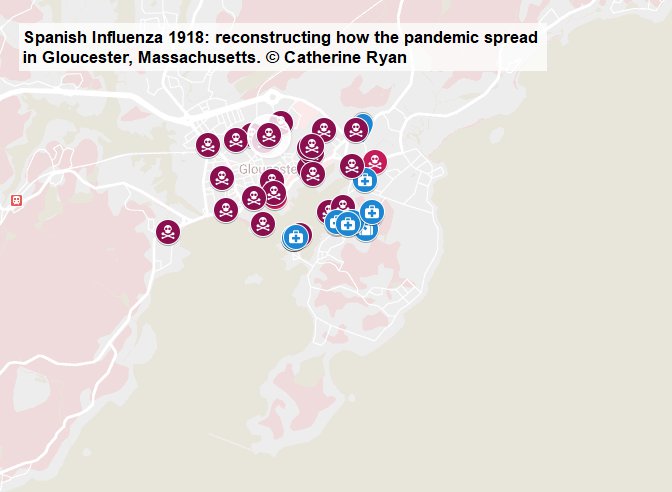
Need to confirm death reports beyond *183 peak window
NOTABLEs- flu cases and the arts
President Woodrow Wilson, Franklin Delano Roosevelt, Assistant Secretary of the Navy, and General Pershing were infected. David Lloyd George, the Prime Minister of England, the King of Spain, Gandhi, and the German Kaiser- all stricken. The youngest son of the King of Sweden died. Cultural notables including Georgia O’Keefe, Raymond Chandler, Lilian Gish, Mary Pickford, Groucho Marx, Walt Disney, Virginia Woolf, John dos Passos, and Kafka lived to see another day. Gustav Klimt’s death in Vienna in February 1918 may have been an early wave contender. Painter Egon Schiele died peak pandemic, October 1918, three days after his spouse, Edith, and their unborn child. His family portrait, unfinished, a deliberate and devastating memorial.

Symbolic and perhaps apocryphal, the funeral procession for Guillaume Apollinaire, French poet and art influencer, wended and intensified amidst the jubilation of armistice celebrations.
While a journalist in Denver, Katherine Anne Porter barely survived her peak pandemic case that October. Her niece and fiance did not (nor Denver’s Mayor). Like Munch, Porter had preexisting conditions, having spent two years prior in a Texas sanatorium recovering from bronchitis. She published her masterwork, Pale Horse, Pale Rider (first edition 1936)– three short novels together– amidst rising global tensions leading up to WWII. It’s the most well known work of art of the dual terrors. Great War, Great Flu.
“But not the singer, not yet, said Miranda. “Death always leaves one singer to mourn.”
Katherine Anne Porter –the singer — Pale Horse, Pale Rider (1936)
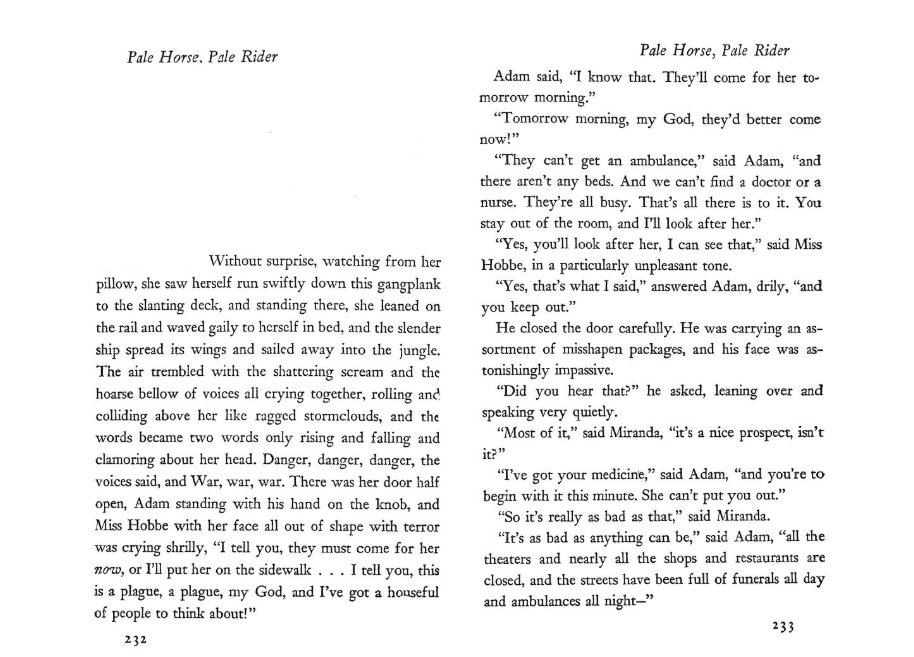

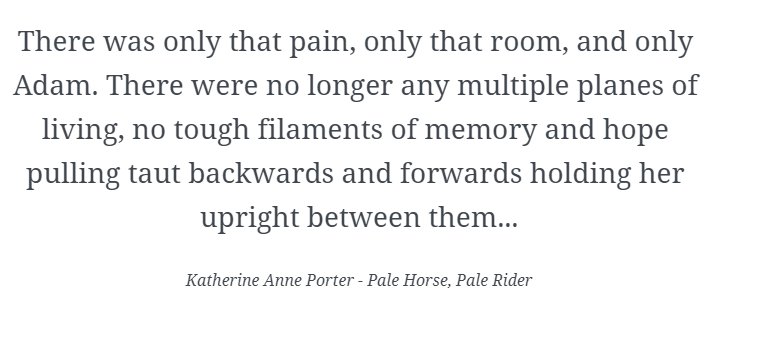
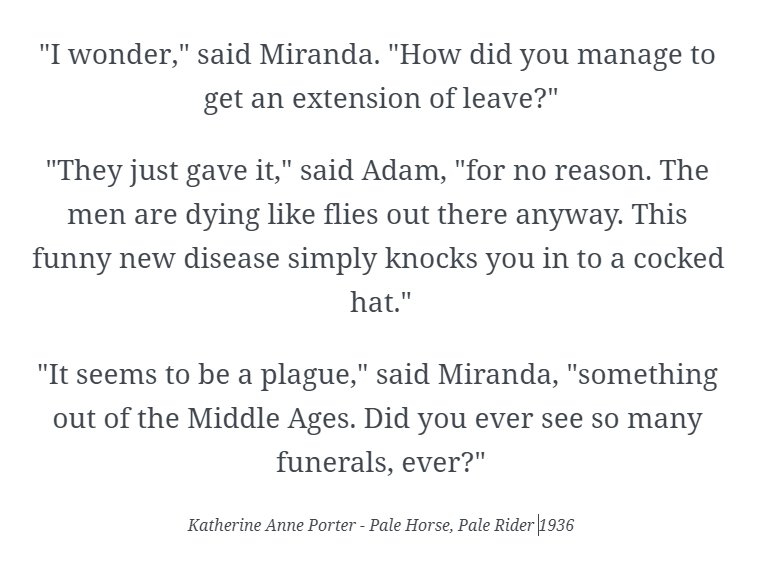

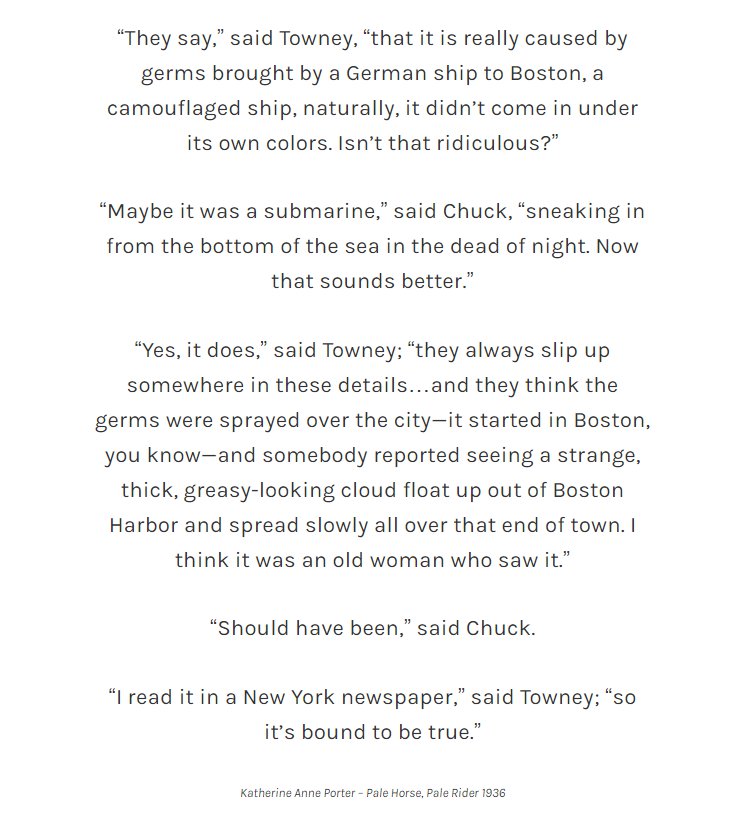
William Randolph Hearst’s mother died April 1919. Edvard Munch surmounted his bout that spring. Having chronicled a lifetime impacted by disease, he turned to art and life for this horror, too. Self Portrait with Spanish Flu (seated on bed) oil over crayon fetched 1,688,000 GBP at Sotheby’s auction in 2006. [You can see the vertical self portrait, seated with flu at the National Gallery of Norway, and the after at the Munch Museum.]



Expecting parents W.B Yeats and Georgie Hyde Lees nearly suffered the fate of the Schieles, had Lees not pulled through. Yeats wrote Second Coming (Second Birth) while she recuperated. Their daughter Anne was born in February 1919.

Spouses, poet T.S. Eliot and writer Vivien/ Vivienne Haigh-Wood, were ill in 1919. Eliot drafted bits of the The Waste Land (1922) in 1918, a time of demons — war and flu and an unhappy marriage. Author Willa Cather suffered during a late Influenza wave as well. The influenza pandemic is mentioned in her Pulitzer prize winning book, One of Ours (1922). The fictionalized snippet is asterisked to acknowledge she took liberty with the menace’s timeline– no offense, nor ignorance: *The actual outbreak of influenza on transports carrying United States troops is here anticipated by several months.” Maybe not. See prepandemic outbreaks.
That night the Virginian, who berthed under Victor Morse, had an alarming attack of nose-bleed, and by morning he was so weak that he had to be carried to the hospital. The doctor said they might as well face facts; a scourge of influenza had broken out on board, of a peculiarly bloody and malignant type.
Willa Cather, One of Ours (1922)
During the height of this public health catastrophe, companies sold elixirs and cures and plastered the papers with advertisements presented like news. They increased in frequency during Gloucester’s desperate days of September and October 1918. Less than a year later, Vick’s vapor rub was no match for the 1918 pandemic: The flu killed its inventor in August 1919.
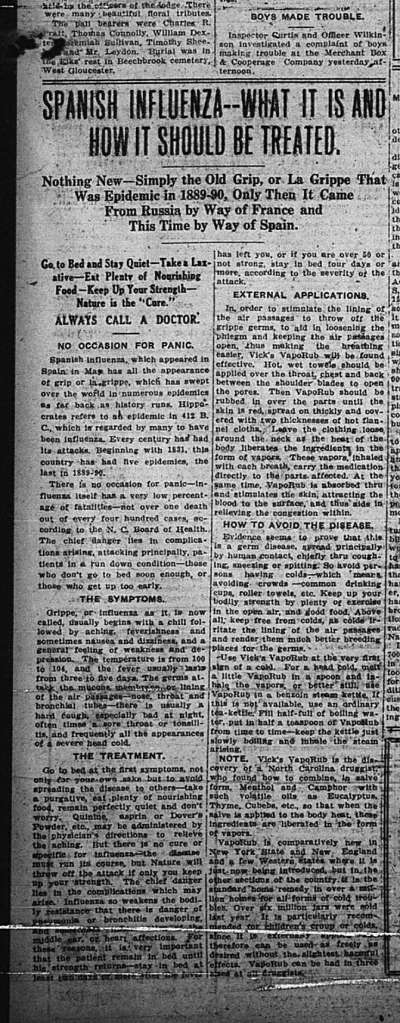
The two brothers who co-founded the Dodge Bros. automobile manufacturing company contracted the flu in New York in 1919: John died at the Ritz hotel in January 1920, and Horace in December 1920 after a wicked year battling its complications. Poet John Crowe Ransom published “Sickness” in Poems of God, 1919. I don’t know if he had the flu, but in two lines he managed to express the suffering that everyone must have felt from the war (mustard gas) and influenza. (Here Lies a Lady was published in Chills and Fever, 1924).
And on this poisonous glare of dawns,
The whole world crumples in disease
John Crowe Ransom – lines from poem, Sickness (1919)

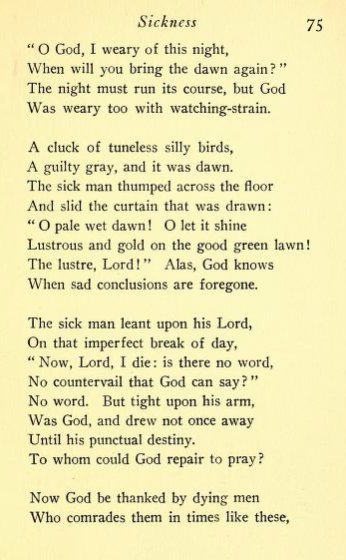

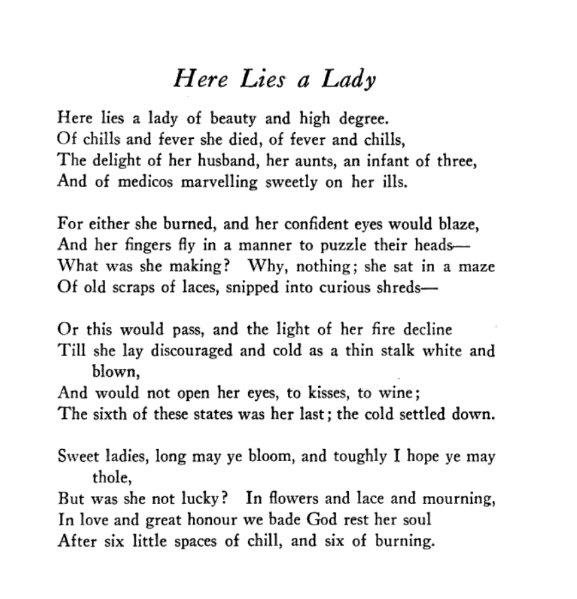
There are classic depictions in which artists transformed their experiences touched by WWI and/or disease in real time including Walter Bayes, Lovis Corinth, Kathe Kollwitz, Amy Lowell, Paul Nash, C.R. Nevinson, August Sander, John Singer Sargent, Walter Sickert, Edward Wadsworth and John Hall Wheelock.

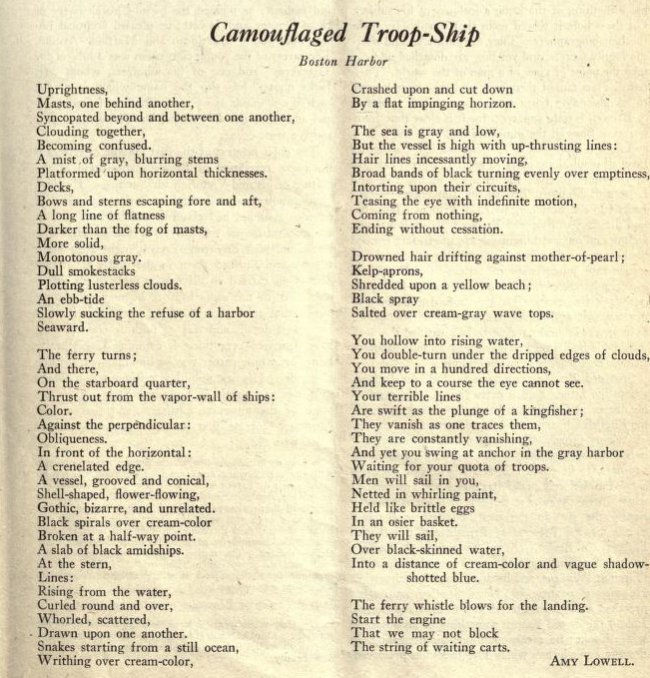








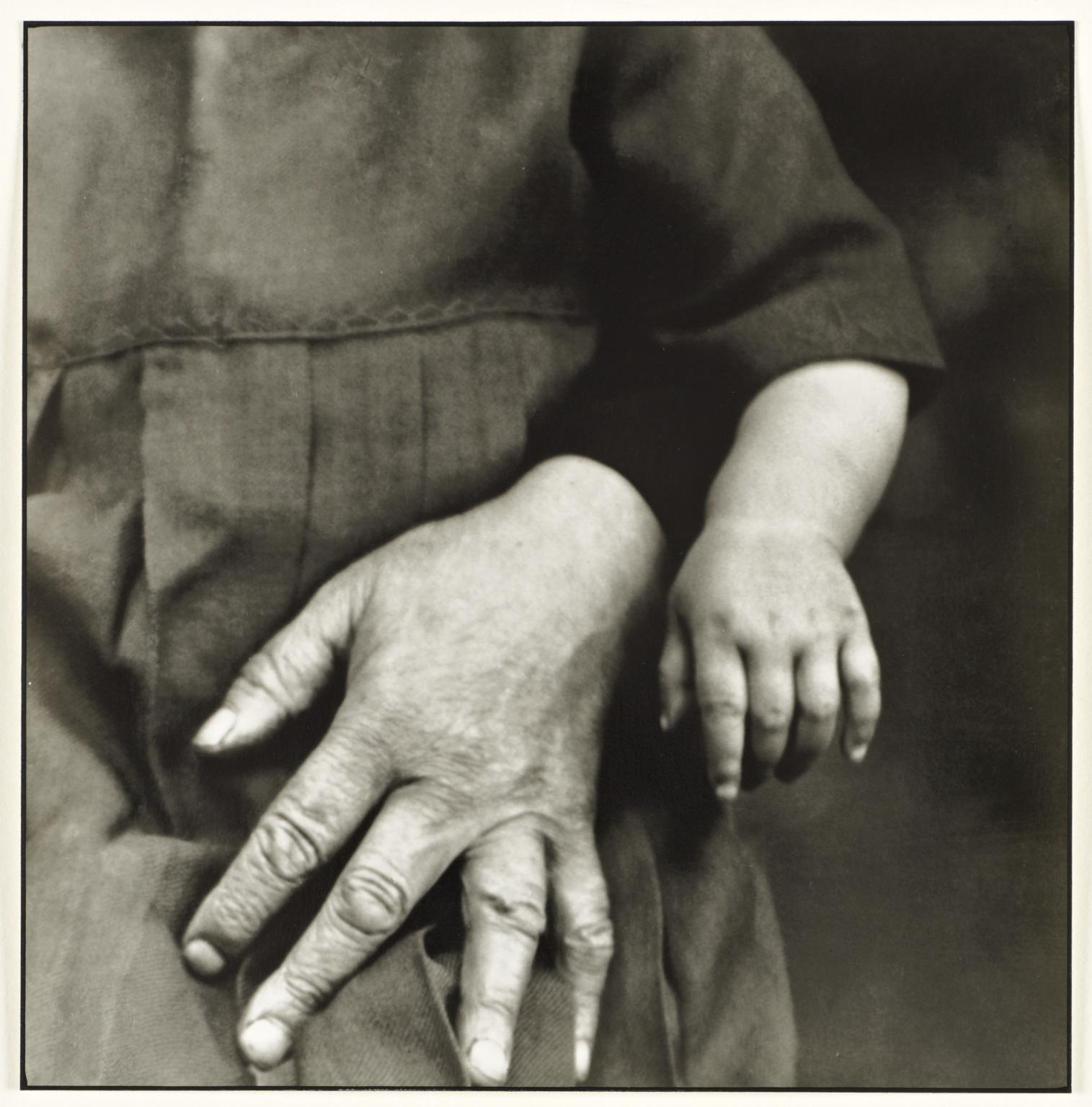
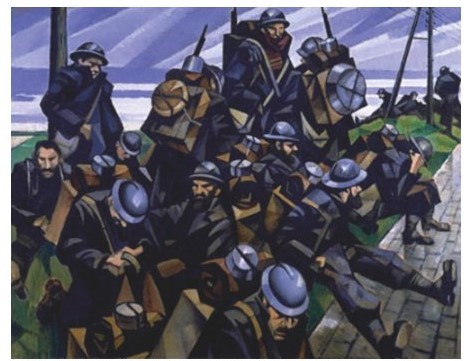
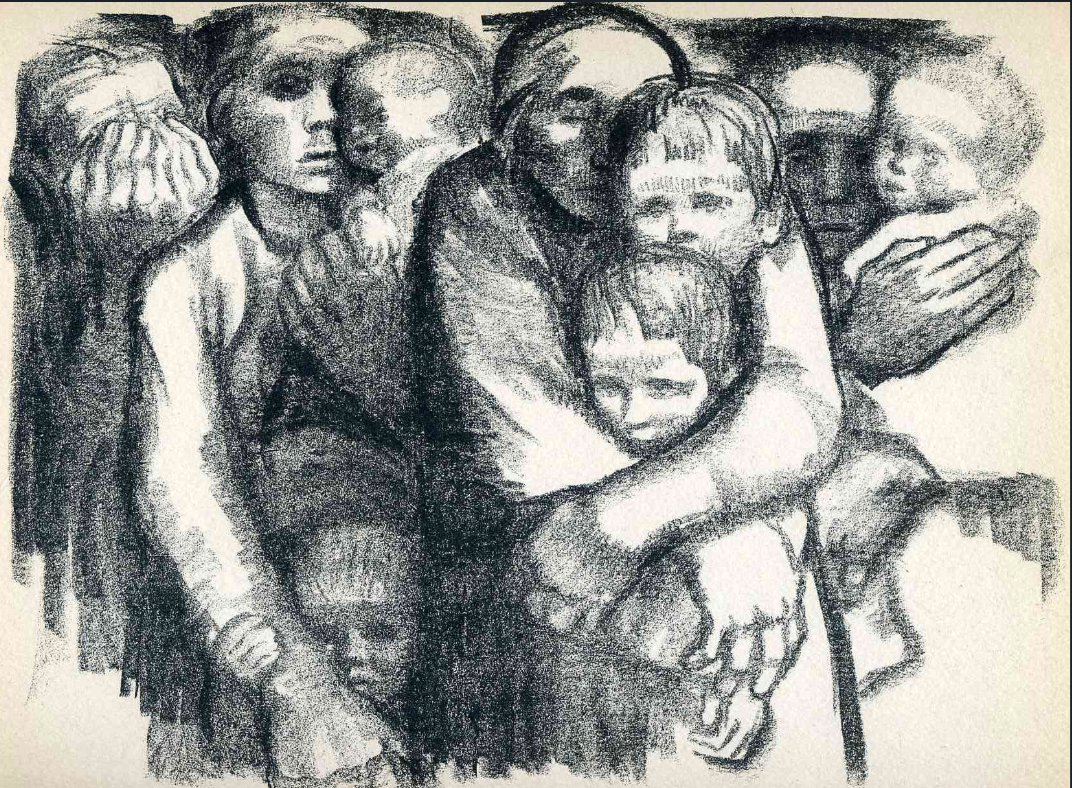
Some of the best art created in the midst of war and the “Spanish Influenza” pandemic came from syndicated artists like Clare Briggs, W.E. Hill, Winsor McKay and Walter Allman.
Hill was commissioned for a few syndicated series with different publishers. There’s a “Spanish Influenza” single panel from Among Us Mortals. I thought of it immediately when friends mentioned passengers moving to one side of a NYC subway car if there was coughing in the last week of February during Covid-19.

(You may have seen the optical trick illustration on the left, first published in 1915, without knowing W.. E. Hill’s name.)
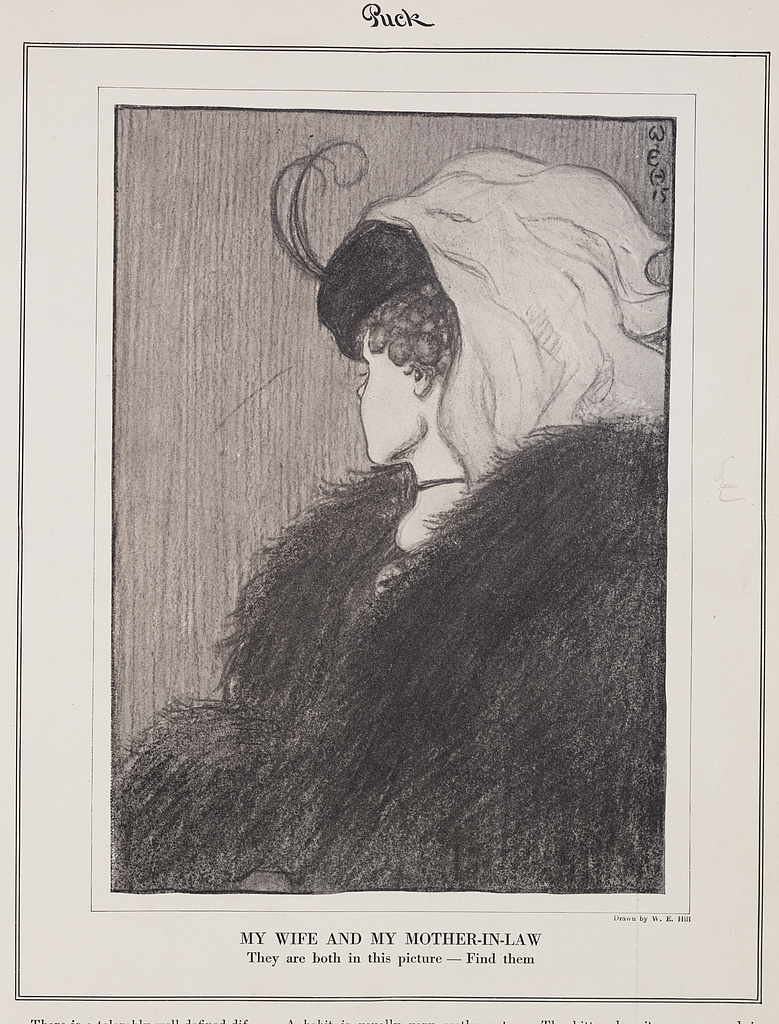

The political cartoons were at times stunningly direct, even international examples printed in the U.S. papers. “Slaughtered by Influenza: Here lies confidence in our military medical authorities.” was from Zurich.


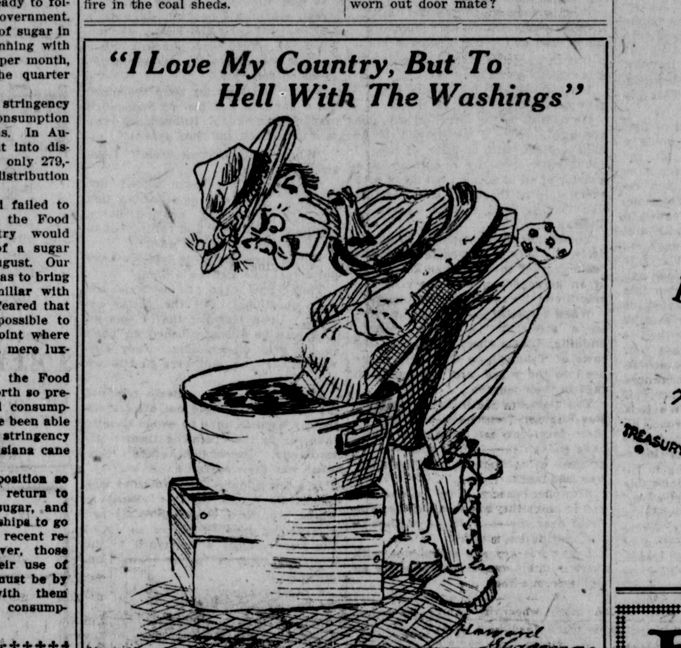
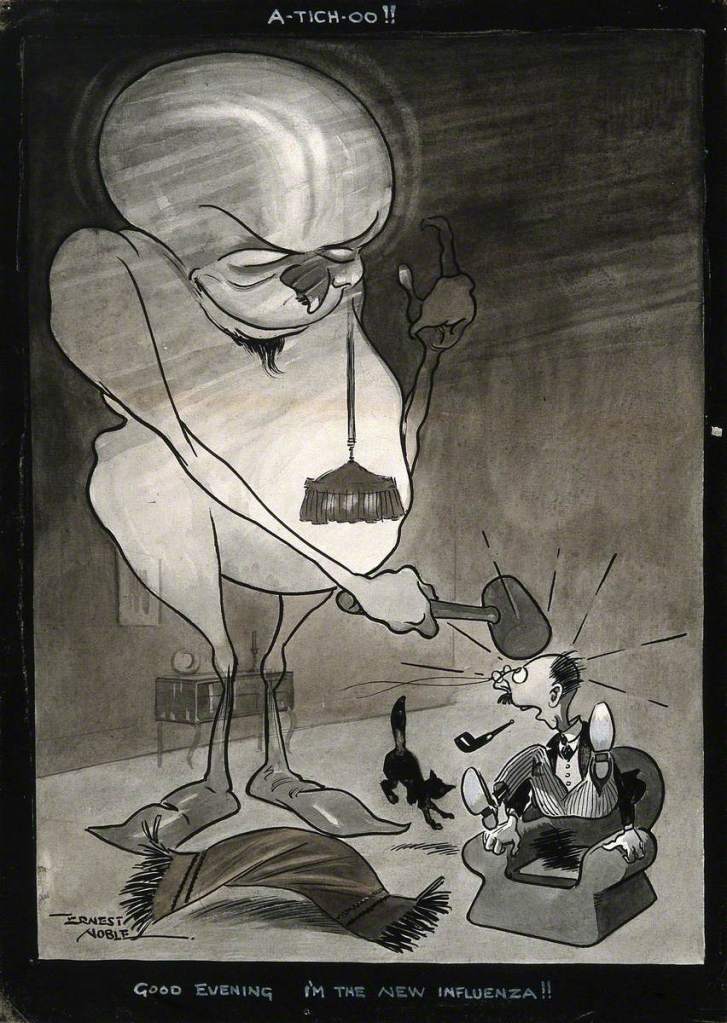
The generation fighting in WWI grew up captivated by Winsor McKay’s elaborate and glorious comic strip. In WWI , McKay created editorial cartoons for Hearst and Liberty Bonds. McKay’s son, Robert, an inspiration for Little Nemo in Slumberland, returned with war honors.
Pestilence is more than included in this single panel 1918, it pops.
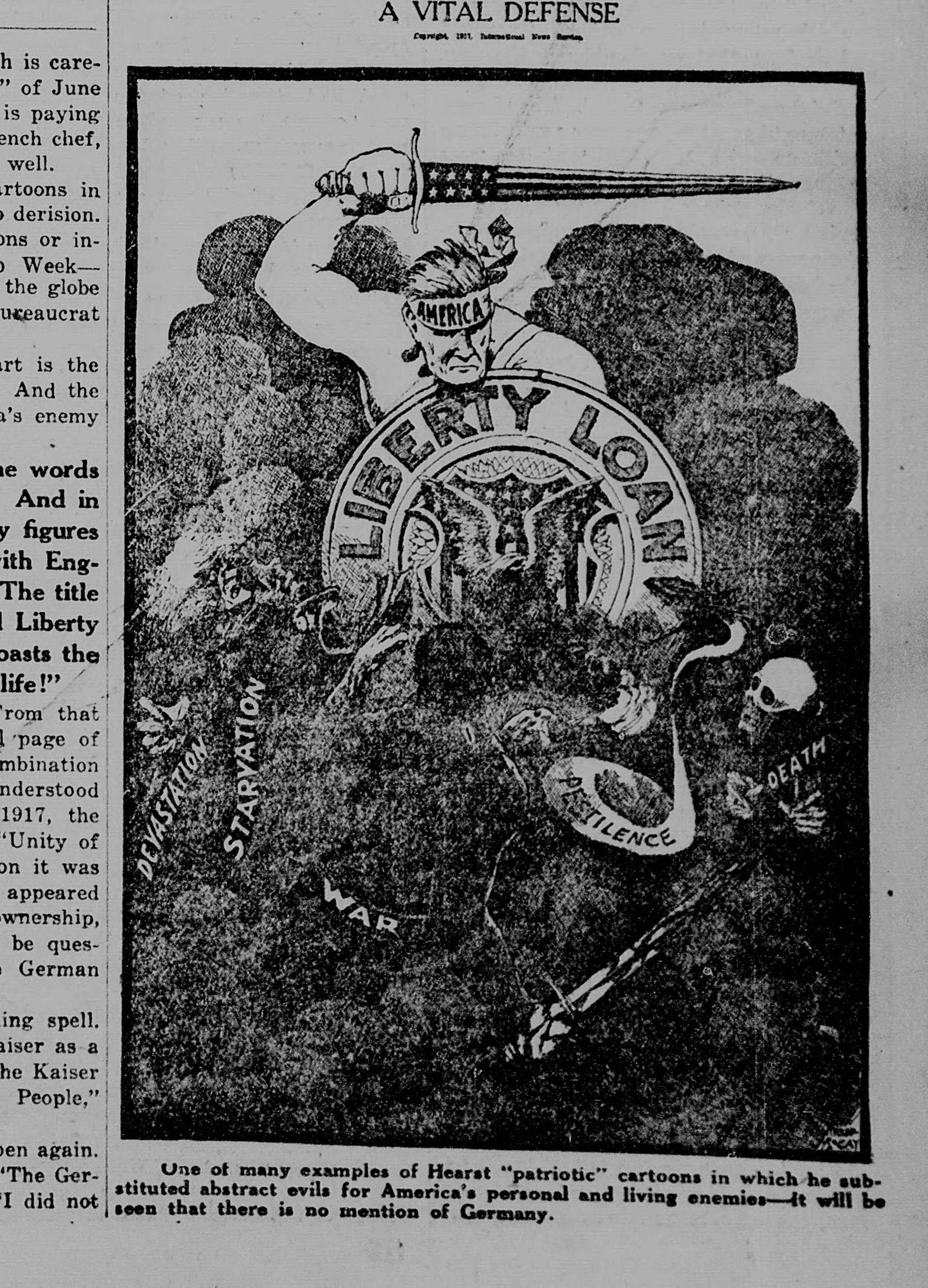
A. Hyatt Mayor, esteemed curator with many connections to Gloucester, included McKay’s work in an exhibition at the Metropolitan Museum of Art in 1960s.
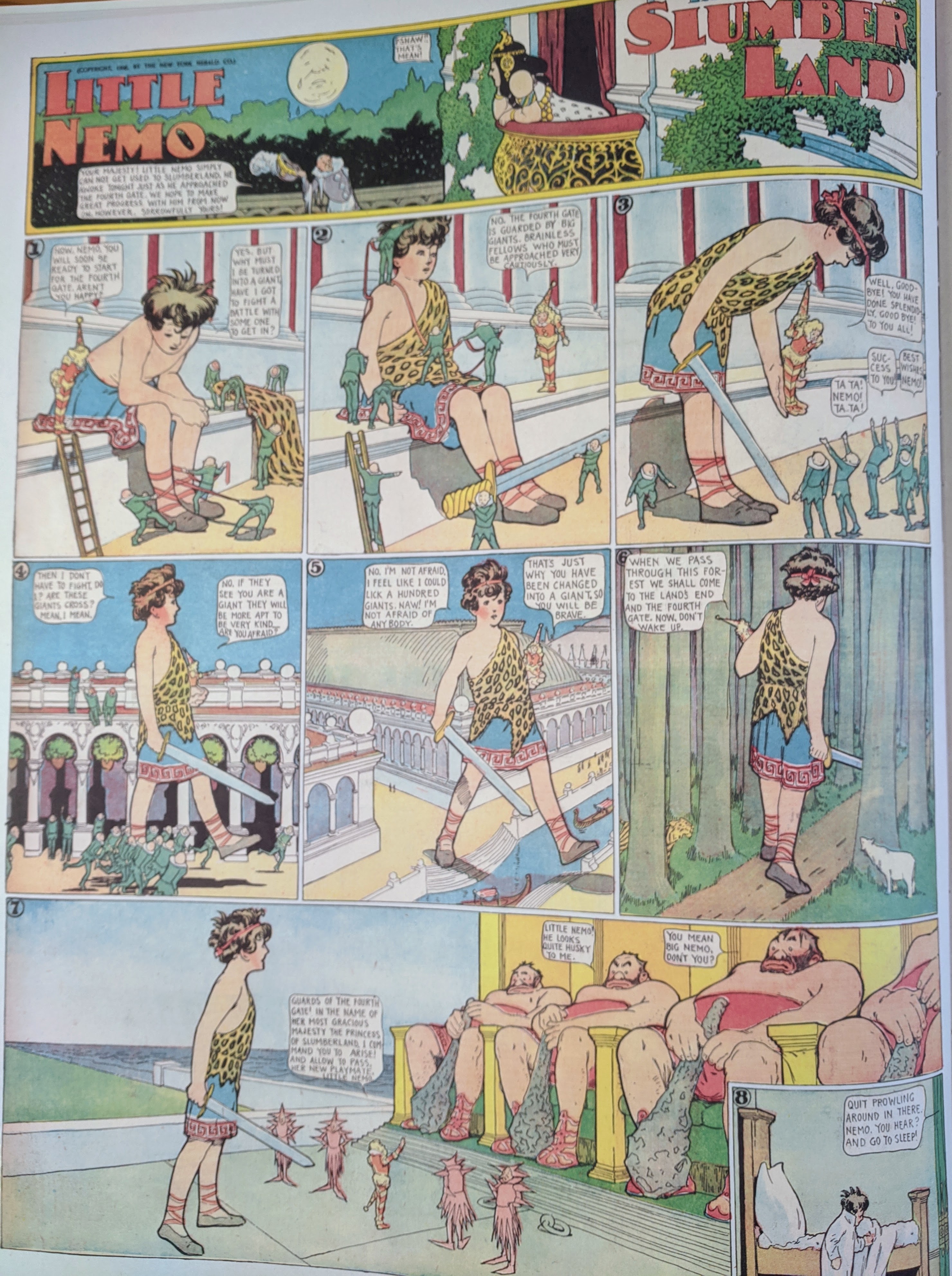
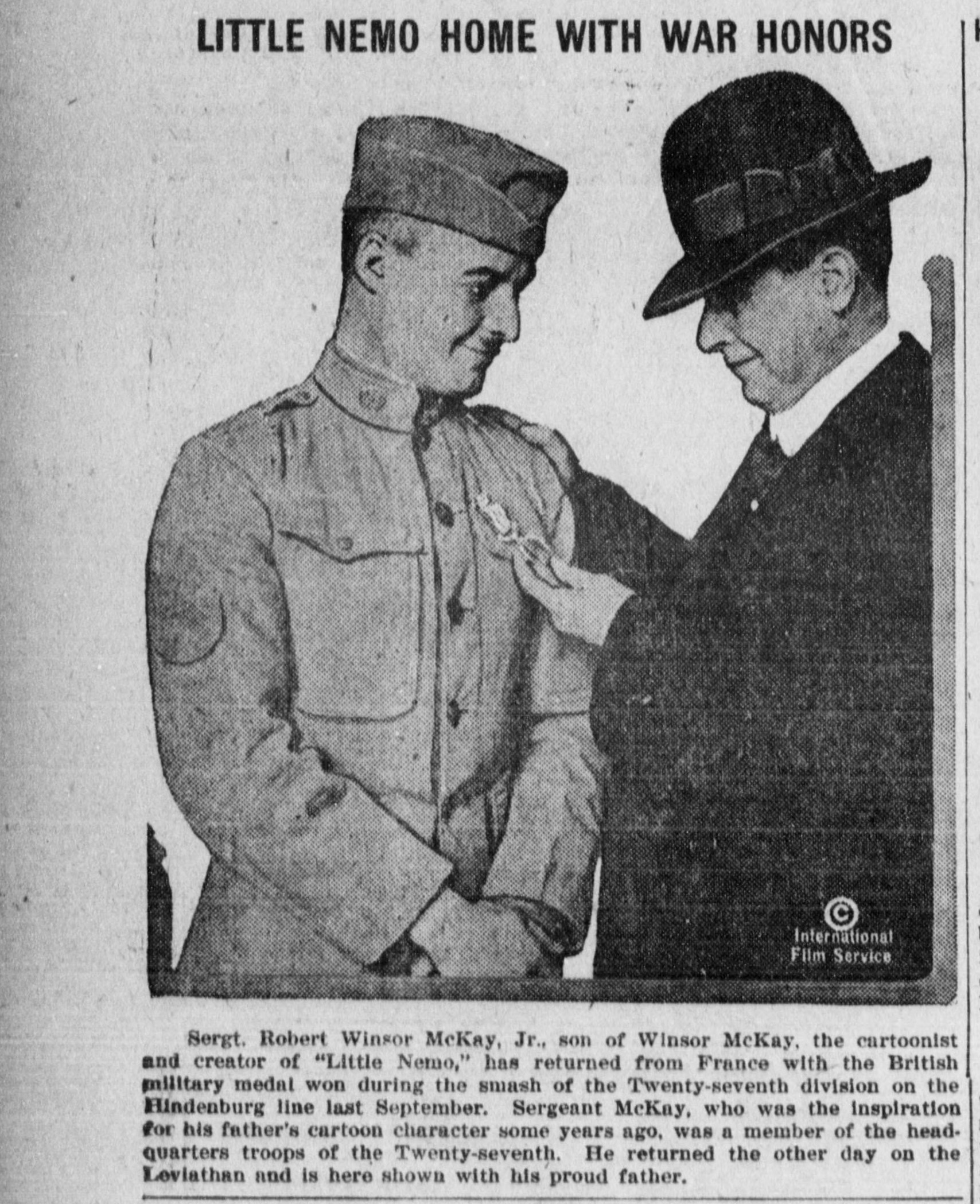



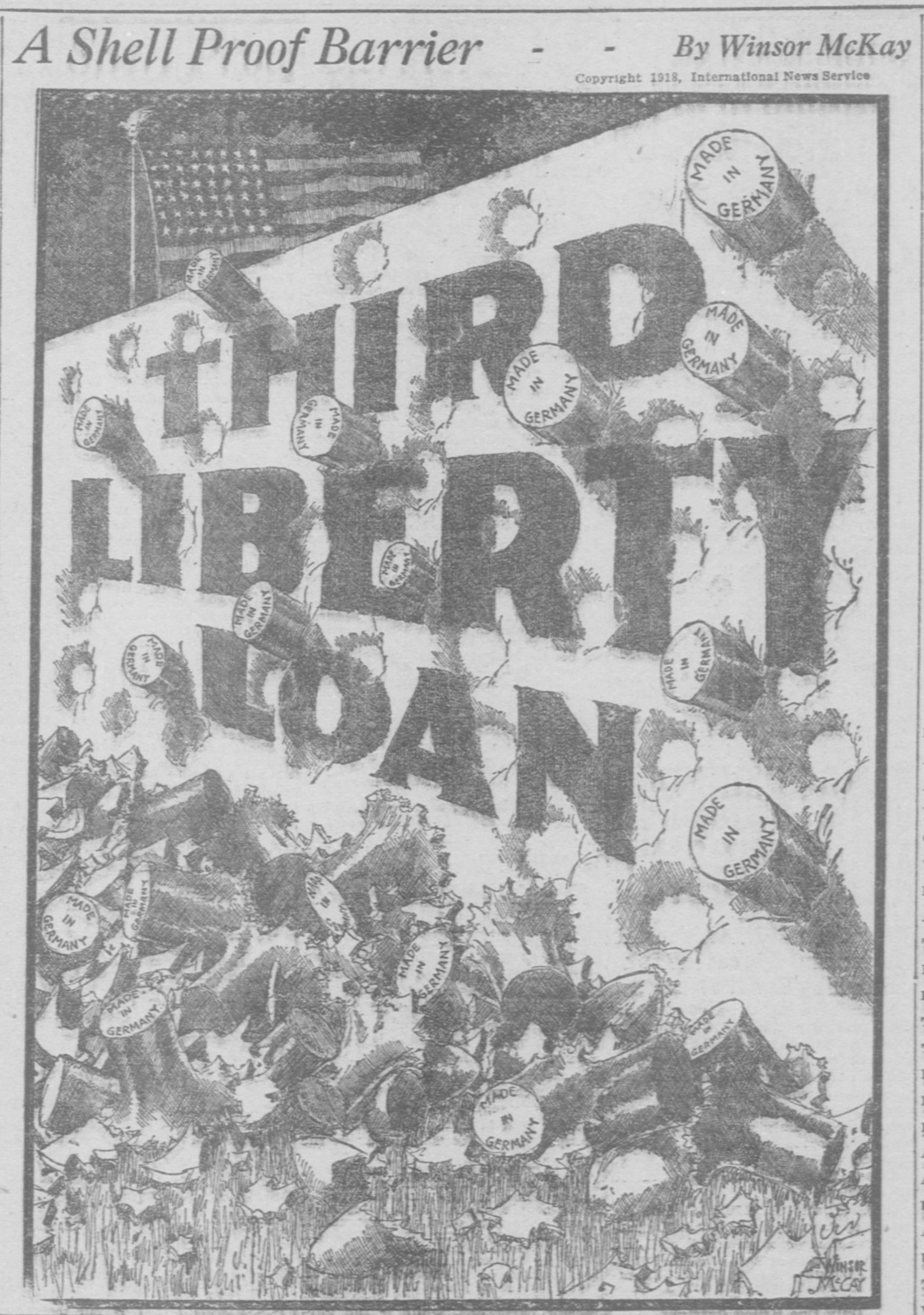
Another artist, Walter R. Allman shines brightly, even more when you learn that, “The Doings of the Duffs, ” comic strip was a daily. He succeeded in depicting ideas about war and influenza together, a rare instance of pandemic in the art of its time. Enjoy five strips to get a sense of his brilliant art, humor and commentary all from 1918.
Here’s Allman on the Draft Registration and Influenza Advice to open windows, “Speaking of Air and Questionnaires”:

And two more inspired by the final Draft Registration for males age 18-46. These were a bit PSA.
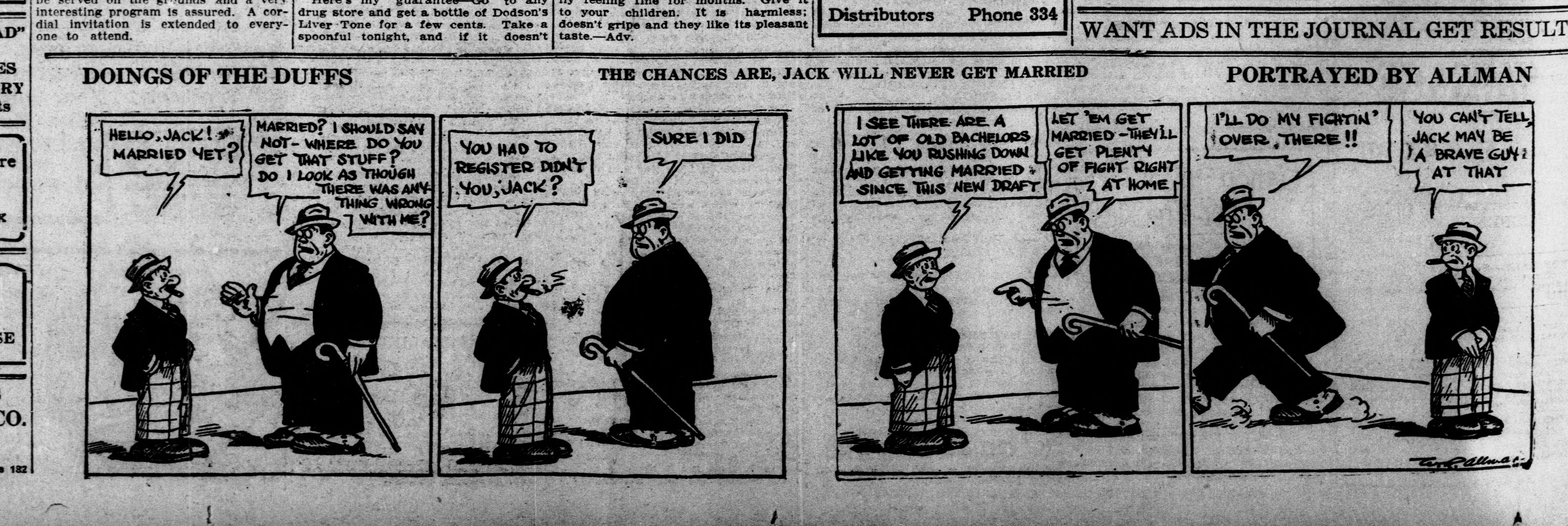

Here’s Allman on the timely Call to Woman to work or help, a side nod to the Red Cross, and an evergreen husband gag

Here’s Allman with the mic drop “In Flew Enza” reference, a meme of its time (probably did more for public health message than any bulletin!)

Look at the sweet arrow! “Tom Thought They all had Spanish Flu.”

I don’t know if Allman had the flu personally but he did battle that punishing schedule. And he had a baby in 1917, so there’s his life as a dad in the mix. Sadly, he had some type of health issue or breakdown for months before dying in 1924. Others continued the Duffs strip for nearly a decade. (**Author note: Look again at the Federal guidelines related to Influenza methods of control September 26, 1918 and artists for whom interiority was an intrinsic source of inspiration like Munch, Woolf, and Porter. Severe mental health after affects were forewarned and expected: “Former epidemics have been characterized by marked mental depression.” Madness hung in the flu air– and suffering from shell shock and other effects from the war broadcast in newsreels. **)
Families in 2020 can appreciate Clare Briggs October “Influenza” and Halloween panel from The Days of Real Sport. A great Briggs single panel can last a day.
Works of art that predate the pandemic, created during– or inspired by– prior infamous pandemics, were used to illustrate 1918 Pandemic news stories. For example, a John Collier painting from 1902 was used to illustrate a syndicated article in October 1918 :
“The English Artist [John] Collier’s Famous Picture of “The Plague [1902].” Such Epidemics Which Ravaged England and Almost All of Europe in the Seventeenth and Earlier Centuries Are Now Impossible, Modern Medical Science Having Devised Infallible Means of Coping with Them. The Influenza, Bad as It Is, Is a Slight Disorder Compared to Ancient Pestilences That Followed Wars.”
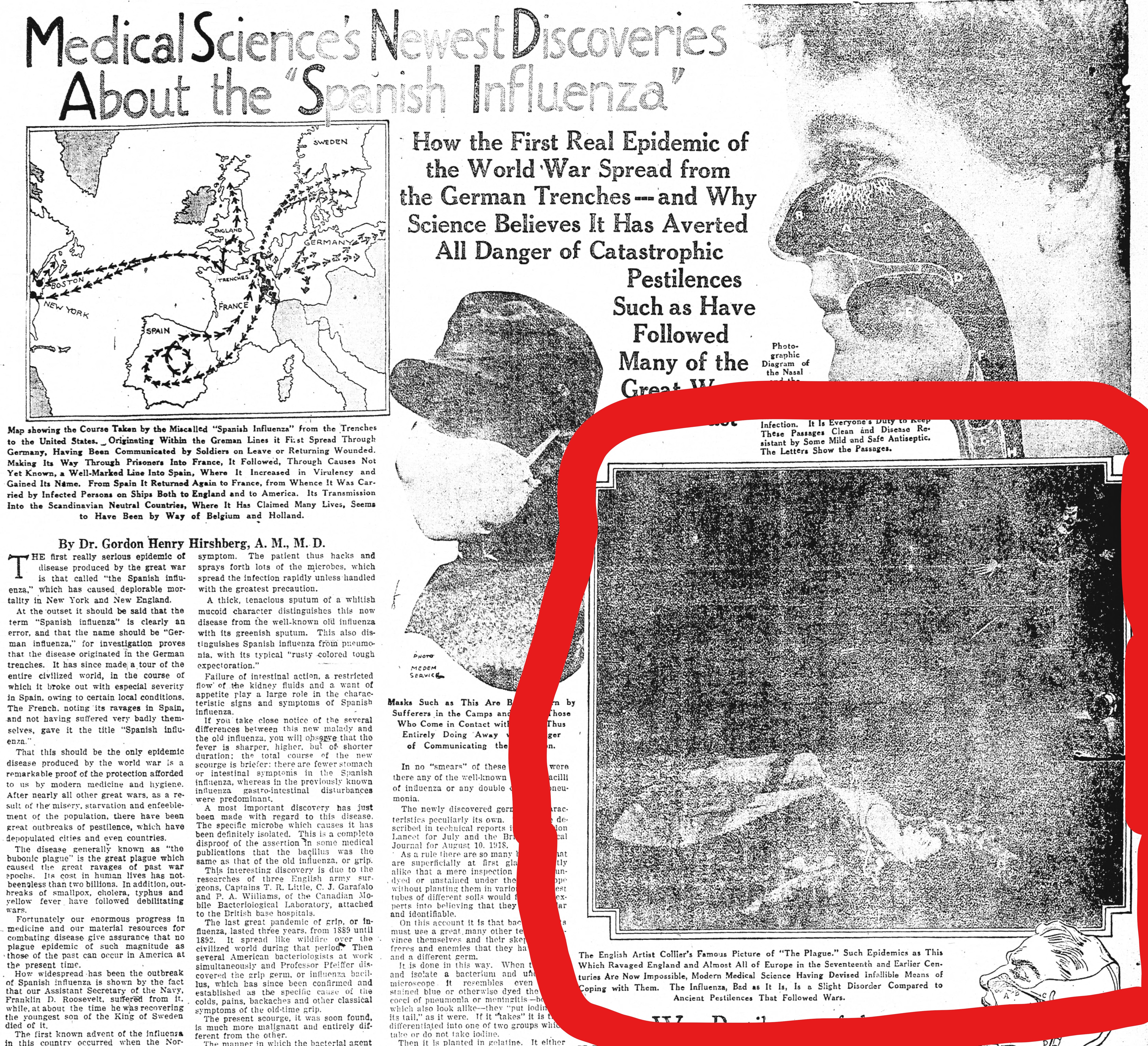


[John Collier 1898 painting, Lady Godiva, about 5 ft’ x 6 ft’, Herbert Museum Coventry, UK]
Not sure any matched Max Klinger – Plague (Pest), from the series Death, Part II (Vom Tode Zweiter Teil) etching from 1903

And of course WWI posters by James Montgomery Flagg
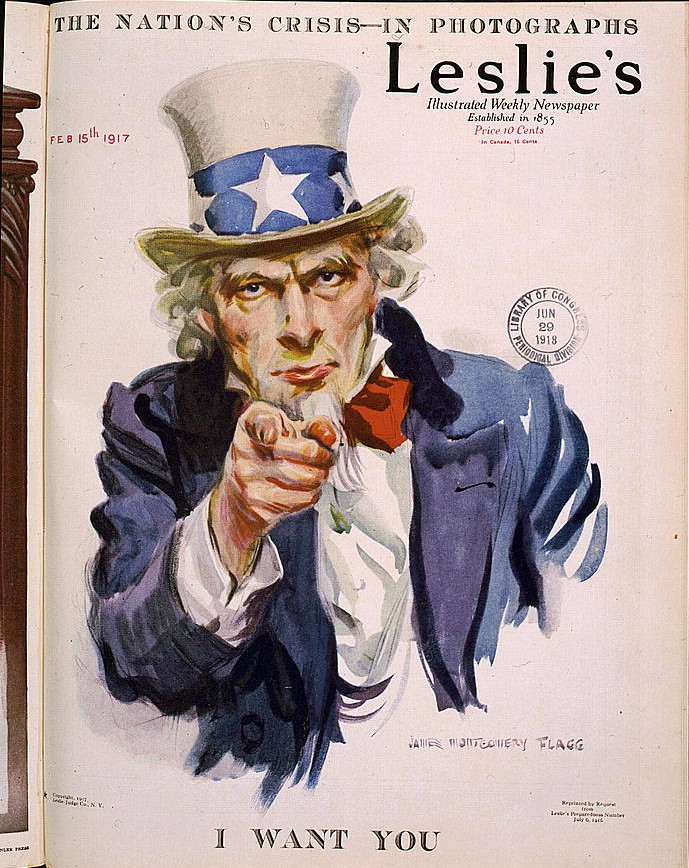
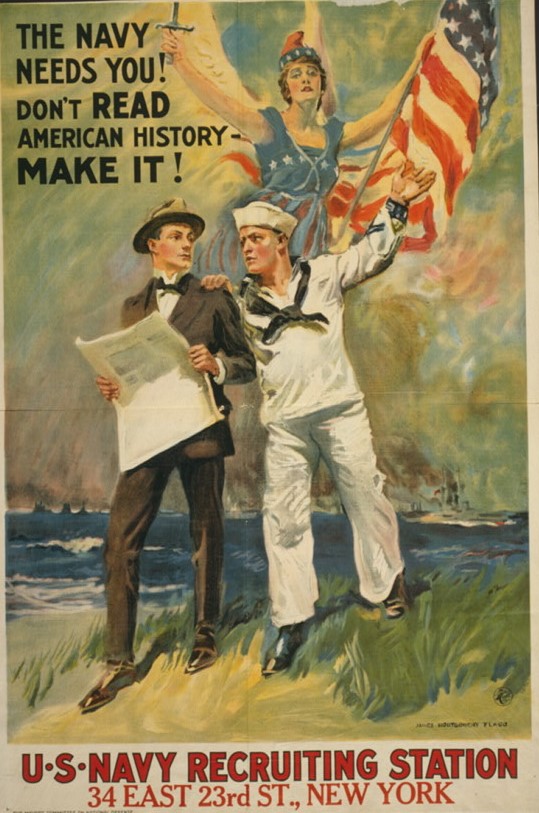
Across the pond

The war illustrated album de luxe; the story of the great European war told by camera, pen and pencil – Vol. one alone features 1130 pictures and chapters by Arthur Conan Doyle and HG Wells. After thousands of pages Influenza warrants a meager 9 words on a single page, in the final volume, and only about General Marshall and the hardships of the Mesopotamia campaign:
Influenza added materially to the handicap of other diseases.
I will append this section with more local examples and inspiration at Cape Ann Museum when Covid-19 restrictions subside. The following poem, Autumn, translated from the French from Lamartine by Mary A. Witham, was published in the Gloucester Daily Times October 19, 1918.
“the flower in dying gives out its last perfumes…”

SOURCES/FOOTNOTES
Listed at the end.
The sources and inspiration for this article were gathered from multiple books, journals, newspapers, rare old maps, local histories, photographs, background knowledge and family history. I confess to a certain deliberate favoritism & primary sources related to the arts. I am grateful for the great archives and open content. Voices from the past may interest descendants, and give us perspective and hope during Covid-19. With so many worthy of honor, especially those who sacrificed to keep Gloucester safe, and those who suffered and died, I thought it valuable to make Gloucester’s part in this history accessible to all. So I curated a resource and visual gallery to put Gloucester’s 1918 Pandemic history on line. The Gloucester Daily Times articles below which I transcribed intentionally are exhaustive & inspiring, and no part since 1918 had been previously published, or its full pages and article reproductions searchable on line. Other newspapers are fully accessible including big (New York Times) and small (Manchester Cricket).
DAY BY DAY – Gloucester Daily Times
Excerpts 9/1/1918-10/26/1918 related to the 1918 Flu Pandemic from the files of a Gloucester, Massachusetts, daily newspaper, Gloucester Daily Times, also known as “GDT” were transcribed by author, Catherine Ryan, from spooled reels, scanned by and from originals held at BP, accessed at Sawyer Free Library, and published for the first time since 1918 as first access to all. The selection includes full article reproductions. When various and sundry items not GDT are included on telling days, they’re so noted. The GDT did not publish a Sunday paper.
If you have time for just one day, make it October 11, 1918
**author note: Face masks 9flu masks) DIY sewing pattern instructions, September 30, 1918**
Continue to September 1918
Monday, September 2, 1918
**author note: WWI surged and Labor Day was big and busy. Friends and family host visitors — especially in East Gloucester. City residents traveled and/or returning. The paper is filled with notices for upcoming events in Gloucester and beyond, like new films coming to the North Shore Theatre.**
Tuesday, September 3, 1918
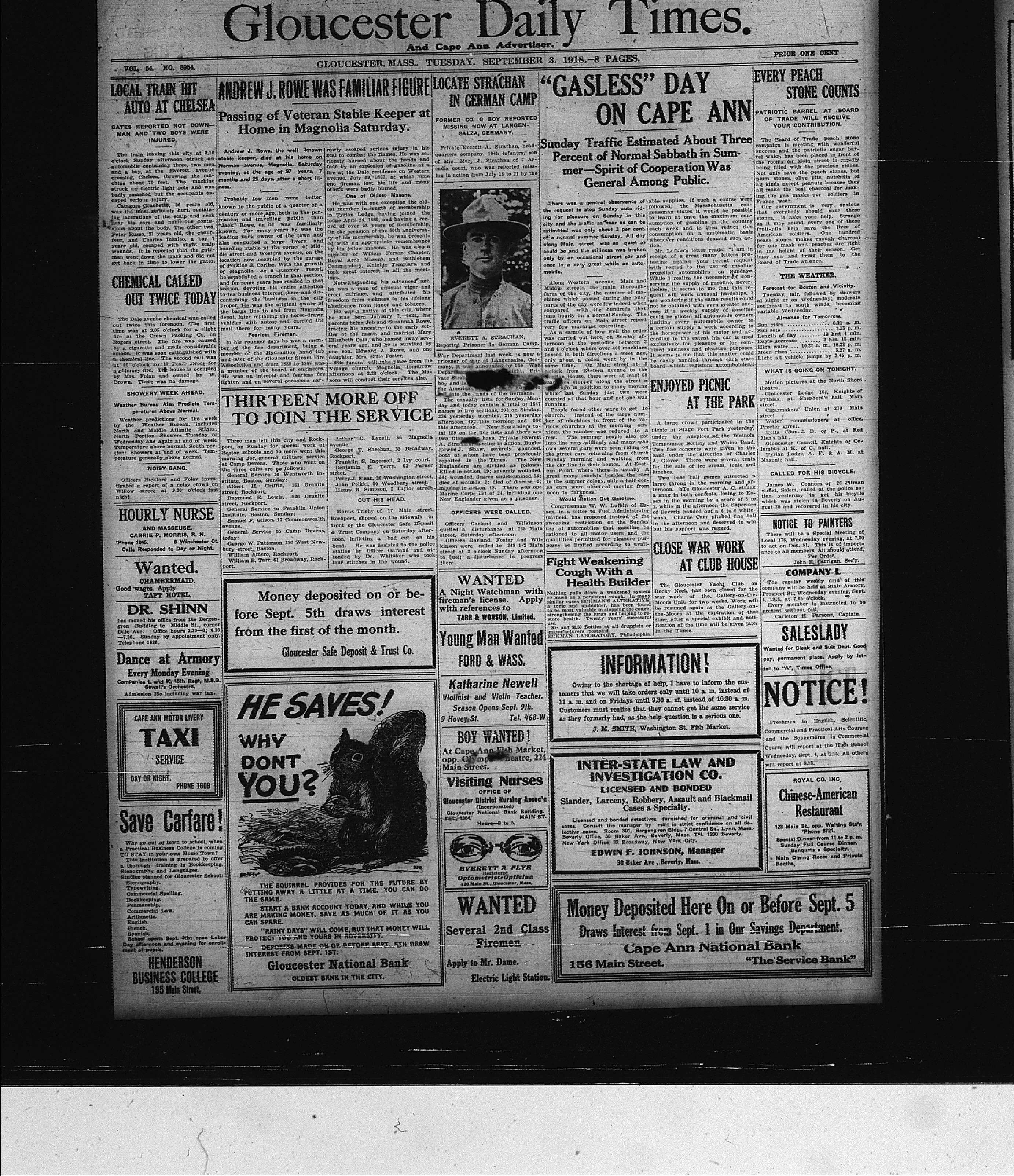
Front page– “Gasless” Day on Cape Ann: traffic estimated about three percent of normal sabbath in summer
…Spirit of cooperation was general among public. Along Western Avenue, Main and Middle the main thoroughfares of the city, the number of machines which passed during the busy parts of the day were few indeed when compared with the hundreds that pass hourly on a normal Sunday.
Inside page– East Gloucester column
Joseph Ehler of the U.S. navy transport service is spending a brief furlough with his parents, Mr. and Mrs. James Ehler of (51) Mt. Pleasant Avenue. Walter Peterson of Camp Devens, Ayer, spent the holiday weekend on 8 Davis Street with his mother, Nina. Mrs. Charles E. Locke and family returned to Worcester from Mt. Pleasant. Miss Suzanne Parsons of Mt. Pleasant back from a visit in the South to resume duties at Watertown High School. “Mr. and Mrs. Fred Benson and little daughter Elizabeth of Somerville were the weekend and holiday guests of Mrs. Benson’s parents, Lewis Rowe of 37 Chapel Street (works at 35 Wharf House).
Wednesday September 4, 1918
**note from author: Large crowds/public gatherings before flu crisis hits**

Inside page Public Schools Opened Today – Teachers and Pupils Enter on Work of the Year with Vigor
Inside page Grand Patriotic Meeting Tonight: Community Sing and War Speaker Will Pack City Hall
Inside page East Gloucester Column
excerpt – “…Walter Fenn, the artist, is improving gradually from his illness and at present he is at Rocky Neck.” …(At the Chapel Street church school) “a full attendance is requested as business of importance is to come up for consideration and plans for the year made…There remains one more day to view the exhibition of paintings and sculpture at the Gallery-on-the-Moors…Members of the Chapel Street Baptist Sunday School will gather (for the end) of the summer season…”
Thursday, September 5, 1918
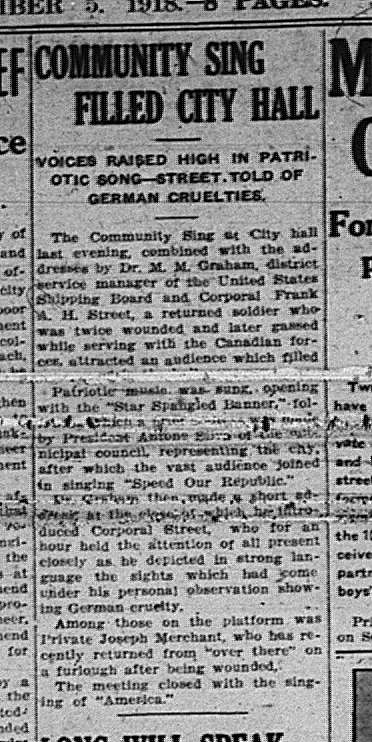

Front page Community Sing Filled City Hall: Voices Raised High in Patriotic Song
The Community Sing at City hall…combined with the addresses by Dr. M. M. Graham, district service manager of the United States Shipping Board and Corporal Fran A.H. Street, a returned soldier who was twice wounded and later gassed while serving with the Canadian forces, attracted an audience which filled City Hall. Patriotic music was sung, opening with the “Star Spangled Banner,” following which a proclamation was read by President Antoine Silva of the municipal council, representing the city, after which the vast audience joined in singing “Speed Our Republic”…Among those on the platform was Private Joseph Merchant, who has recently returned from “over there” on a furlough after being wounded. The meeting closed with the singing of “America.”
Friday, September 6, 1918
Inside page Lookout Now, Old Mr. Grip is Around
**message from the Massachusetts State Department of Health**
An epidemic of influenza prevails among the sailors stationed at Commonwealth Pier, Boston, and the state department of health issued a warning to civilians to take such measures as they can to protect themselves from the expected spread of the disease. More than 350 cases have been unofficially reported from the pier within a week. Unless precautions are taken, disease in all probability will spread to the civilian population…people with coughs and colds are not choice companions.
Saturday, September 7, 1918
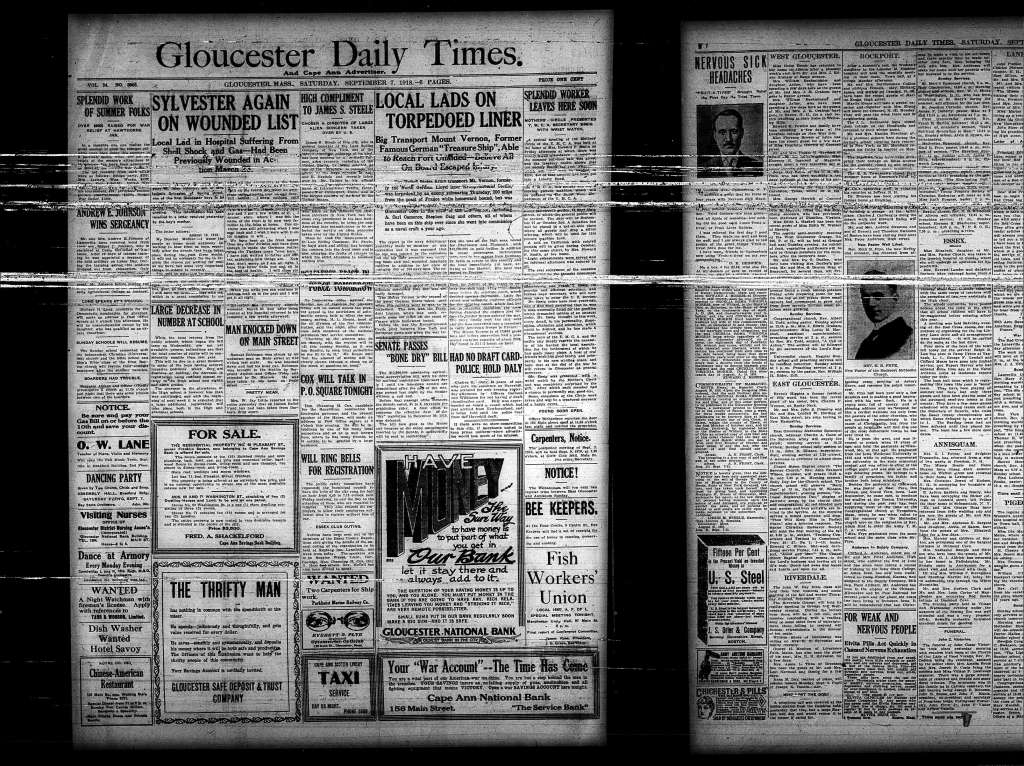
Front page Local Lads on Torpedoed Liner
Inside page Large Decrease in Number at School
This will be due in a great measure to many of the boys having secured lucrative positions which they are desirous of holding, the decrease in registration being confined almost entirely to the High School and 8th and 9th grade.
Inside page Chance for few in State Guard
Inside page East Gloucester column
…Walter Fenn, the artist, is improving gradually from his illness and at present he is at Rocky Neck.” (At the Chapel Street church school) “a full attendance is requested as business of importance is to come up for consideration and plans for the year made…There remains one more day to view the exhibition of paintings and sculpture at the Gallery-on-the-Moors…Members of the Chapel Street Baptist Sunday School will gather (for the end) of the summer season…
Sunday, September 8, 1918
No local paper
Monday, September 9, 1918
**author note: Sch. Natalie Hammond and Sch. Athlete leave port sometime this week**
Tuesday, September 10, 1918
Inside page School board meeting Employment of married teachers
**vote to continue marriage bar–married teachers can’t be hired**
The present rule should not be changed except in cases where a husband is to enter the United States service.
**author note: There were of course exceptions, however nursing and teaching jobs were targeted to all the single ladies, by law. Some who argued in defense of the policy expressed how limiting one job per household helped those who needed it most to earn a living. (One way to skirt that rule was to use the “maiden” name and keep mum about the marriage.) The teaching bar began in the late 1800s in the U.S. and lasted until the Civil Rights act in 1964.**
Inside page East Gloucester column
Mrs. John Brainerd Wilson has been entertaining her sister, Miss Hildreth of Everett, who is supervisor in the public schools of that city. Mrs. Fred Pierson and Mr. and Mrs. Winthrop C. Sherman and child, all of Quincy, are spending a week at 62 Mt. Pleasant avenue. Letter Carrier Sherman T. Walen is indisposed at his home on Rocky Neck. Adjutant Charles A. Gunn of the Gloucester Salvation Army, supplied the pulpit at the Methodist Episcopal church Sunday, at both services, giving two helpful addresses. The Social Hour club will meet on Thursday afternoon, instead of Wednesday in the Methodist church vestry. Mrs. Christen Jensen will be the hostess. On Thursday evening, the Methodist Ladies’ Aid will meet in the church vestry, when business of importance will be transacted and every member is requested to be present. Mrs. William Fraser and young son (illegible) numerous relatives and friends for a few days when they will go (illegible) for the winter. Mr. and Mrs. Henry E. Pinkham returned recently from Ocean park and Bath, me. (illegible) of East Gloucester have used their automobiles the past two Sundays only in case of absolute necessity. With the hundreds of automobiles passing (illegible) Pleasant avenue and the shore boulevard particularly (illegible) Sunday as well as week days, the change was most noticeable and there was a feeling of lonesomeness. The patriotic feeling of East Gloucester is certainly inspiring. The Ladies’ Society of the Chapel Street church will hold a basket picnic in West Gloucester tomorrow. Those planning to attend will take the 9.15 o’clock car from Rocky Neck. Rally Sunday Observed: The Ladies’ Society of the Chapel Street Baptist church school gathered on Sunday noon, for the first time after the summer adjournment (illegible) There were 140 members of the school present and it is hoped that the number will greatly increase in the next two or three Sundays, and the autumn schedule of this important function of the church work will be in fuller operation. Favorite songs will be sung: Many of the favorite popular songs of the day will be sung and represented in tableaux by a large number of people, in the Methodist Episcopal church vestry, tomorrow evening at 8 o’clock, under the auspices of the Ladies’ Aid Society. Trolley Car and Auto Collide at Rocky neck Avenue: An addition to the chapter of accidents at the dangerous corner of Rocky Neck avenue and East Main street was the collision of the 4.30 o’clock car from Rocky Neck and a limousine car owned by the Misses Jones of Brookline, summer residents of East Gloucester. The Misses M. H. and B. D. Jones were driving towards Eastern Point, when suddenly the trolley appeared around the corner and before the brakes could be used in time effectively, the automobile hit the front end of the car. Fortunately no one was hurt. The front of the auto was damaged, and the trolley car received scratching for several feet. Last week an automobile narrowly escaped being crashed into by the trolley car at the same spot…
Wednesday, September 11, 1918
**author note: among first published obits death by Influenza 1918 in Gloucester**
**author note: Manchester Cricket front page includes instructions on how to register for the draft**
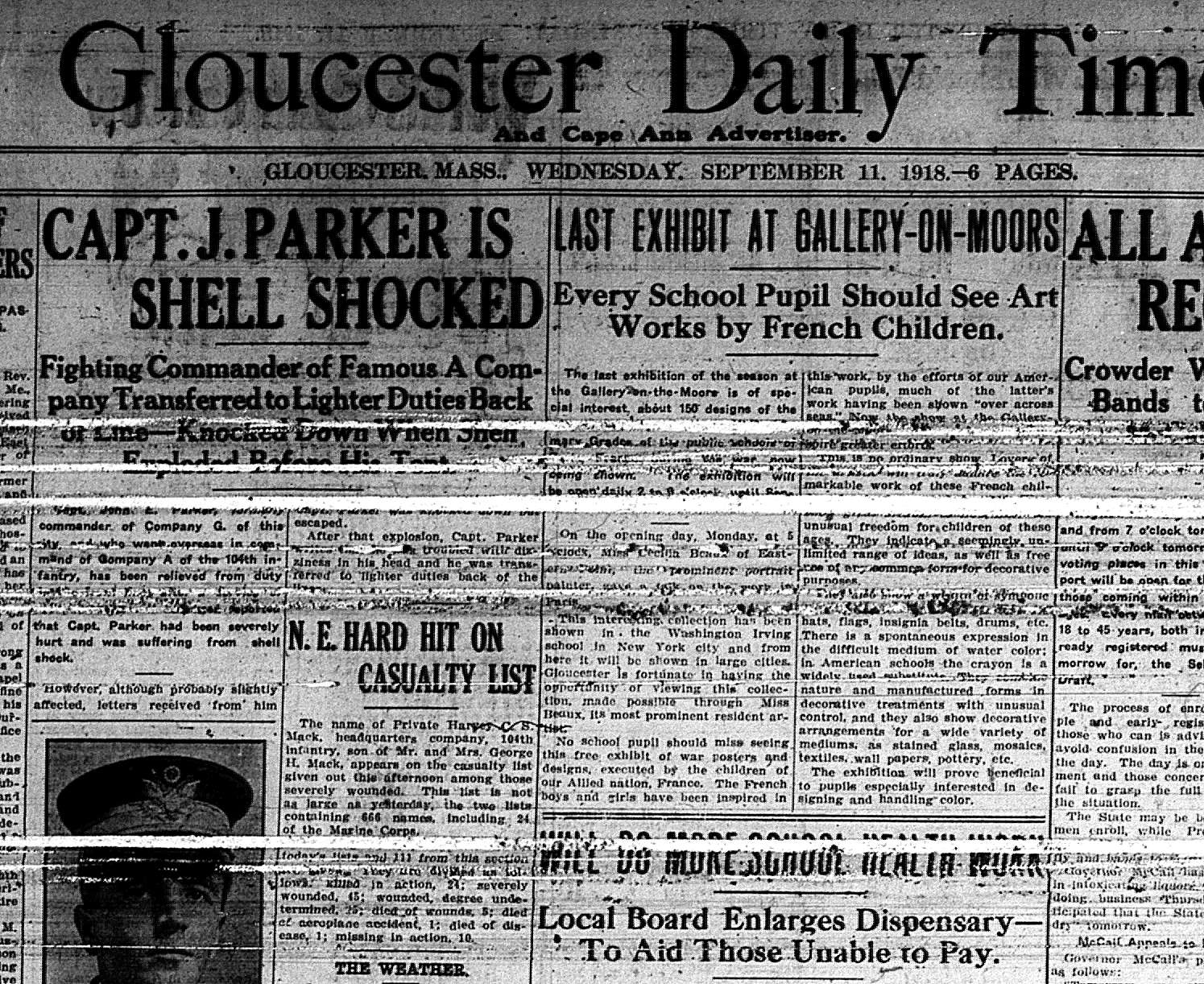
Front Page All Are Urged to Register Early: Crowder Wants All Flags to Fly and Bands to Play tomorrow
From 7 o’clock tomorrow morning until 8 o’clock tomorrow evening the voting places in this city and Rockport will be open for the enrollment of those coming within the new draft every man between the ages of 18 to 45 years both inclusive not already registered must register tomorrow for the Selective Service Draft. The process of enrollment is simple and early registration (for the WW1 draft) by all those who can is advised in order to avoid confusion in the later hours of the day. The day is one of great moment and those concerned should not fail to grasp the full seriousness of the situation. The state may be bone dry as the men enroll, while Provost Marshal (illegible) It is anticipated that the state will be bone dry tomorrow. McCall appeals to liquor men. Governor McCall’s proclamation is as follows:
“Tomorrow our streets will be thronged with men seeking to enroll themselves for service under the Selective Service act. On the occasion of the previous registration in June,1917, I requested and my request was almost universally complied with, that those who were engaged in the sale of intoxicating liquors refrain from selling intoxicating liquors on that day. Our State law prohibits the sale, gift or delivery of liquor on election days, but it makes no provision for such an occasion as the enrollment of men for military service. In the absence of authorization to order the closing of saloons and other places that sell intoxicating liquors I sincerely hope and most strongly urge that the men engaged in this business throughout the State to patriotically refrain from selling liquor on this day. The day should be devoted entirely to such activities as will best expedite the enrollment of such a large number of men as are required by the National Government to enroll for military service.” – Gov. McCall Proclamation
Inside page Op Ed
Jail term for failure to register: So that nobody can possibly say he misunderstands what is expected of him tomorrow, draft officials again repeat that Thursday, September 12, 1918, is registration day for men of every race and color between 18 and 46 unless they have already registered under the first 21-31 Man Power act, or are now in the Army or Naval service. The hours are from 7 am to 9 pm. Failure to register means one year in jail and enforced military service thereafter. (illegible) After enrolling each registrant will be given a registration card that proves he has complied with the law, and it ought to be always in one’s possession because any officer has the right to see it. This registration day does nothing more than enroll you. Questionnaires come later. Get registered first, and think of the questionnaire later. Volunteer Registrars Here: While the work is directly in charge of the local Exemption Board for this division which comprise, Gloucester and Rockport, the work of registering will actually be performed by a large corps of volunteer registrars. A chief registrar has been designated in each precinct and he has a capable force of registrars to work with him. Most of these ward boards met the chief registrar last evening were sworn in, (illegible) advocated and it is also for those unable to speak English to have an interpreter accompany them to the place of registration. The registration commences at 7 o’clock tomorrow. The Public Safety Committee through Thomas J. Carroll, Executive Manager, has requested employers to allow all men in their employ who come under the draft requirements, a sufficient length of time in which to register tomorrow without loss of pay. By doing this congestion will be avoided at the noon hour and in the evening. Where to Register [list]. Bells will ring: In response to the request of the public safety committee, the bells of the churches of the city will be rung tomorrow morning from 6:45 to 7.15 o’clock in order to call the attention of registrants to the day, and an order to this effect will be adopted at the meeting of the municipal council this afternoon.
Inside page East Gloucester column
Mr. and Mrs. Frank P. Wonson have sold their Highland street residence to Capt. Black of Friend street, Gloucester, whose family will occupy the house the first of next month. Mr. and Mrs. Wonson will occupy their house at the East Gloucester square in the tenements now occupied by Mssrs. Gilbert and Dedcovich and improvements will be made. The entertainment of song tableaux will be held in the vestry of the Methodist Episcopal church this evening at 8 o’clock. All ladies of the society are required to contribute candy. Miss Mildred Gerring, who met with an accident by crushing her hand so badly in a mangle at the Montgomery place laundry, several weeks ago, so that her left hand had to be amputated at the Addison Gilbert hospital, is now at her home in this ward and getting along nicely. Mrs. Thos. A. Miller Died at Hospital: Mrs. Margaret E. Miller, wife of Thomas A. Miller of Bass Avenue, died at the Addison Gilbert hospital on Monday [9/9/1918] after only a week’s illness of pneumonia, at the age of 23 years. The deceased gave birth to a little daughter only three months ago, which makes the mother’s passing away a particularly bad case…Funeral from the home of the parents of Mr. Miller, 8 Traverse Street.
Thursday, September 12, 1918
**note from author: first time local paper runs story about flu in Gloucester**
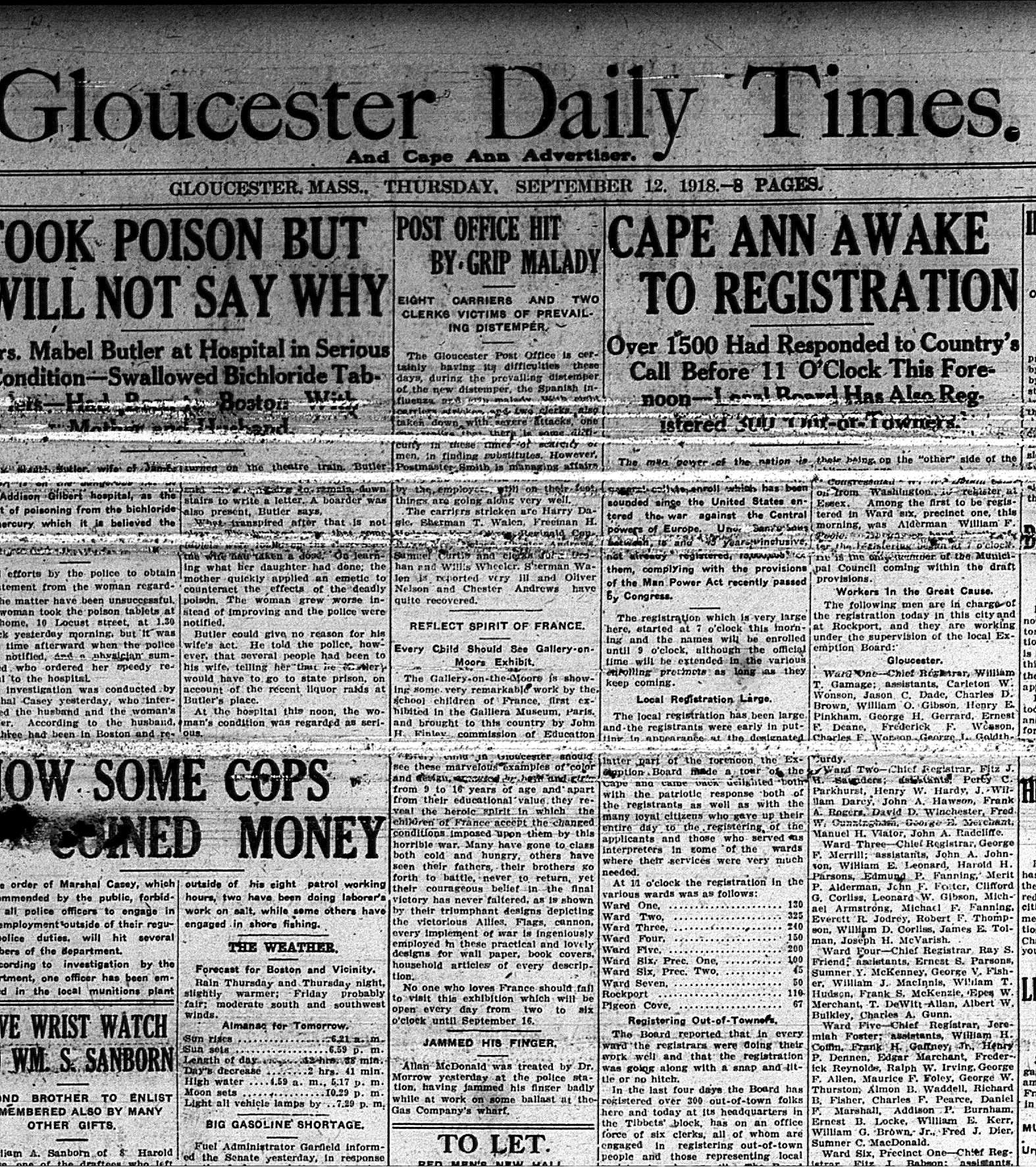
Front page Cape Ann Awake to Registration: Over 1500 had Responded to Country’s Call Before 11 o’clock this forenoon—Local Board Has Also Registered 300 Out-of-Towners
“The man power of the nation is (illegible) enroll has been sounded since the United States entered the war against the Central powers of Europe. (Illegible) them, complying with the provisions of the Man Power Act recently passed by Congress. The registration which is very large here, started at 7 o’clock this morning and the names will be enrolled until 9 o’clock although the official time will be extended in the various enrolling precincts as long as they keep coming. Local Registration Large The local registration has been large and the registrants wee early in putting in appearance at the designated (illegible) part of the forenoon the Exception Board made a tour of the cape and came back delighted both with the patriotic response both of the registrants as well as with the many loyal citizens who gave up their entire day to the registering of the applicants and those who served as interpreters in some of the wards where their services were very much needed. At 11 o’clock registration in the wards was as follows:
- Ward One…130
- Ward Two…325
- Ward Three…240
- Ward Four…150
- Ward Five…200
- Ward Six, Prec. One…100
- Ward Six, Prec. Two… 45
- Ward Seven…50
- Rockport…110
- Pigeon Cove…67
Registering Out-of-Towners: The Board reported that in every ward the registrars were doing their work well and that the registration was going along with a snap and little or no hitch. In the last four days the Board has registered over 300 out-of-tow folks here and today at its headquarters in the Tibbets’ block, has on an office force of six clerks, all of whom are engaged in registering out-of-town people and those representing …Among the first to be registered in Ward six, precinct one, this morning, was Alderman William F Poole (illegible) Municipal council coming within the draft provisions…”
Front Page Post Office Hit by Grip Malady: Eight Carriers and Two Clerks Victims of Prevailing Distemper
The Gloucester Post Office is certainly having its difficulties these days during the prevailing distemper of the new distemper the Spanish influenza (illegible) taken down with sever attacks, one (illegible) there is some difficulty in these times of scarcity of men in finding substitutes. However Postmaster Smith is managing affairs (illegible) by the employee will on their feet things are going along very well. The carriers stricken are Harry Dagle, Sherman T. Walen, Freeman Hodson, (illegible), Reginald (illegible) Chester Andrews, Samuel Curtis and clerks John Drohan and Willis Wheeler. Sherman Walen is reported very ill and Oliver Nelson and Chester Andrews have quite recovered.

Inside page Sterling Red Sox Winners of War-Time World’s Series Honors
Boston is again the capital of the baseball world, history repeating itself yesterday (9/11/1918) when the Red Sox who have never faltered in this great classic, defeated the cubs 2 to 1.
Inside page East Gloucester column
Mrs. Carrie Hamsdell of Winchester is the guest of Mrs. Nellie M. Parsons of Highland street. Mrs. Parsons has just returned from a visit (illegible0 the guest of Mrs. Jewell , of Boston, in Stratham, N.H. The Ladies’ Aid of the Methodist Episcopal church will hold a business meeting in the vestry this evening. Mr. and Mrs. J.H. Mason of Fall River, spent the week end with Mrs. Mason’s mother, Mrs. James Ehler of 51 Mt. Pleasant avenue. Mr. Mason is stationed as first class cook in naval service at Newport and he was here on two days leave of absence. Mr. and Mrs. Victor D. Ehler and family the former who is stationed at Bumpkin Island and Walter A. Ehler who is stationed at Camp Devens were (here). Spanish Influenza Prevalent Here:The prevailing distemper of grip and Spanish influenza is felt much in this ward. Harry Dagle of the U.S. Mail Force is ill at home on Highland Place. Sherman T. Walen also of the U.S. Mail Force is very ill at his home on Rocky Neck. Freeman Hodson, a native of this place and letter carrier in the Mt. Pleasant Avenue lower district route of ward one, is confined to his home on Essex Avenue. Stanton and Eleanor Farrell, both children of Mr. and Mrs. Frank Farrell of East Main Street are ill with the malady. Agnes Ryan, the young daughter of Mrs. Alice Ryan is confined to her home on East Main Street. Fletcher Wonson, the young son of Mr. and Mrs. Frank P. Wonson has been ill for several days. Chester Brigham of Haskell Street, agent for the Metropolitan Insurance Company, was out yesterday, after a severe attack of the grip. Ida Gerring, the little daughter of Mr. and Mrs. Herbert Gerring of Avon Court is a late victim of the distemper. Mrs. Joseph T. Moulton was stricken on Tuesday, at her home on Highland Street. Miss Blanch Gilbert of East Main Street was stricken Tuesday and Dr. Arthur S. Torrey took to his bed today with the same trouble that has stricken a large number of his patients. Sudden Death of Bertram R. Goodwin Bertram R. Goodwin a well-known citizen of this ward, died at his home on Highland Street yesterday morning resulting from the effects of the prevailing disease, grip or Spanish influenza, which is broadcast at this time. The deceased was taken ill last Thursday…seven years ago he married Miss Della E. Frost of this ward. The funeral will be strictly private, owing to illness in the family.
Inside page Bisterma death, 14 years old
Inside page Rockport column
Miss Lillian Roffey the Mt. Pleasant Street Rockport grocer, has been confined to her home for a week with the grip. She was back again on duty yesterday.
Friday, September 13, 1918
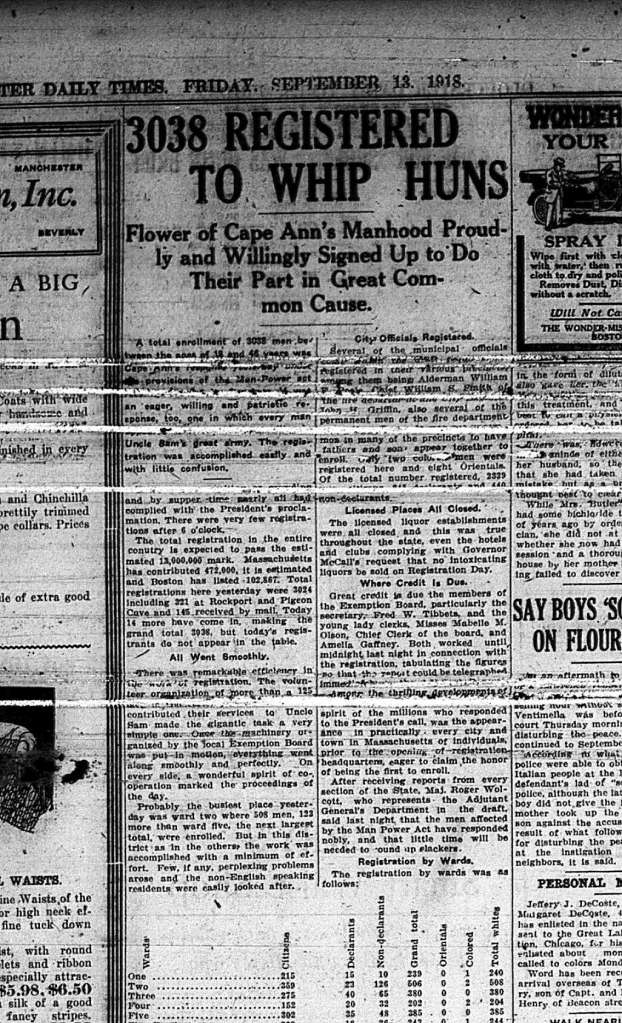
Front Page 3038 Registered to Whip Huns: Flower of Cape Ann’s Manhood Proudly and Willingly Signed Up to Do Their Part in Great Common Cause
A total enrollment of 3038 men between the ages of 18 and 46 years was Cape Ann’s willing and patriotic response, too, one in which every man…man (illegible) Uncle Sam’s great army. The registration was accomplished easily and with little confusion. (illegible) and by supper time nearly all had complied with the President’s proclamation. There were very few registrations after 6 o’clock. The total registration in the entire country is expected to pass the estimated 13,000,000 mark. Massachusetts has contributed 472,000, it is estimated and Boston has listed 102,867. Massachusetts has contributed 472,000, it is estimated and Boston has listed 102,867. Total registrations here yesterday were 3024 including 321 at Rockport and Pigeon Cove and 145 received by mail. Today 14 more have come in, making the grand total 3038, but today’s registrants do not appear in the table. All Went Smoothly: There was remarkable efficiency in the work of registration. The volunteer organization of more than 125 (illegible) contributed their services to Uncle Sam made the gigantic task a very simple one. Once the machinery organized by the local Exemption Board was put in motion, everything went along smoothly and perfectly. On every side a wonderful spirit of cooperation marked the proceedings of the day.
Probably the busiest place yesterday was ward 2 where 508 men, 123 more than ward five, the next largest total were enrolled. But in this district as in the others the work was accomplished with a minimum of effort. Few, if any, perplexing problems arose and the non-English speaking residents were easily looked after…in many of the precincts to have fathers and sons appear together to enroll. Only two colored [sic] men were registered here and eight Orientals [sic] (and looks reversed in chart)…The licensed liquor establishments were all closed, even the hotels and clubs, complying with Governor McCall’s request that no intoxicating liquors be sold on Registration day.
- Ward 1… 240
- Ward 2… 508 (359 citizens, 23 declarants, 126 non declarants)
- Ward 3… 380
- Ward 4 …204
- Ward 5… 385
- Ward 6 …244
Inside page Notices: College Football barred
Colleges and universities with Students’ Army Training Corps units have been advised by the War Department not to make plans for football schedules this fall.
Inside page Council Session Was Quite Brief **author note: no flu mention**
Saturday, September 14, 1918

Front Page Letter Carrier Curtis is Dead: Wife of Popular young man passed away only two months ago Wife of popular young man passed away only two months ago. Letter Carrier Samuel E. Curtis, whose serious illness from Spanish influenza was recently mentioned in the Times, died at the home of his parents [192 Washington Street] …His brother Chester L. Curtis teller at the Gloucester National Bank is also seriously ill while his sister who is a teacher in the Revere schools is ill with pneumonia, both being at the home of their parents in this city.
Inside story Influenza and Grip Prevalent Here (Gloucester, Ma.): Several Deaths and Many on Seriously Ill list.
The epidemic of Spanish Influenza in this city is assuming a serious aspect and appears to be spreading. Three deaths have already resulted from it and among scores of cases, quite a few are reported in a serious condition, some with the dreaded pneumonia. A great many well-known people are seriously ill. This disease does not appear to be confined to any particular (illegible).
U.S. Surg. Gen. Blue of the public health service has made a telegraphic survey to determine extent of Spanish influenza in the United States. Gen. Blue has found there was a sharp outbreak at Fort Morgan near Mobile Alabama in August, and at about the same time a tramp steamer arrived at Newport News with almost the entire crew (illegible) The Boston outbreak was reported September 11 (**author note- reported Sept. 6 –five days earlier–in GDT**) since when the pandemic has appeared at New London while New Orleans not wholly escaped.
“The disease is characterized by sudden onset,” said Dr. Blue in a statement to the Associated Press. “People are stricken on the streets, while at work at factories, shipyards, offices or elsewhere. First there is a chill, then fever with temperature from 101 to 103, headache, backache, reddening and running of the eyes, pains and aches all over the body, and general prostration. Persons so attacked should go to their homes at once, get (illegible) call a physician.” Treatment of Disease “Treatment under direction of a physician is simple, but important, consisting principally of rest in bed, fresh-air, abundant food with Dover’s powder for the relief of pain. Every case with fever should be regarded as serious and kept in bed at least until temperature becomes normal. Convalescence requires careful management to avoid serious complications, such as bronchial pneumonia, which not infrequently may have fatal termination. During the present outbreak in foreign countries the salts of quinine and aspirin have been most generally used during the acute attack, the aspirin apparently with much success in the relief of symptoms.”
Message from the U.S. Surgeon General
“Because the pandemic of influenza occurred more than 25 years ago, physicians who began to practice medicine since 1892 have not had personal experience in handling a situation now spreading through considerable part of the foreign world, and already appearing to some extent, in the United States. For that reason Dr. Blue is issuing a special bulletin for all medical men who send for it. In order to reach physicians of the country without a day’s delay, however, Dr. Blue has provided for transmission through the Associated Press the following summary of methods for control of the disease:
Methods of Control
Infectious Agent – The bacillus influence of pfeefifer [sic]. (Illegible) secretions from the nose, throat and respiratory passages or (illegible)
Incubation period: one to four days, generally two.
Mode of transmission – by direct contact or indirect contact through use of handkerchief, common towels, cups, mess gear, or other objects contaminated with fresh secretions. (illegible)
Period of communicability as long as the person harbors the causative organism in the respiration tract.
Method of control
(A) The infected individual and his environment.
“Recognition of the disease- By clinical manifestations and bacteriological findings.Isolation- Bed isolation of infected individuals during the course of the disease. Screens between beds are to be recommended.
Immunization- Vaccines are used with only partial success.
Quarantine- None; impracticable.
Concurrent disinfection- The discharges from the mouth, throat, nose (illegible)causative organism is short-lived outside of the host.
– End of U.S. Surgeon General Notification, published in the Gloucester Daily Times 9/14/1918
(B)General measure- The attend of the case should wear a gauze mask. During epidemics persons should avoid crowded assemblages, street cars and the like. Education as regards the danger of promiscuous coughing and pitting. Patients, because of the tendency to the development of broncho-pneumonia should be treated in well ventilated, warm rooms. The present outbreak of influenza may be controlled more or less extent only by intelligent action on the part of the public. “There is no such thing as an effective quarantine in the case of pandemic influenza,” Dr. Blue adds, “but precautionary measures may be taken and should be taken. Thus far we have little information as to the susceptibility of children, but it is fair to assume this type of Influenza might spread through a school as easily and rapidly as measles for example.”
Inside page Personal Mention notice
Mrs. A.E. Butler and daughter Gertrude are spending a two weeks vacation with friends in Maine. Walter Collins driver of the Dale Avenue chemical returned to duty this morning after a week’s illness with the grippe. John F. Foster is reported seriously ill with pneumonia at his home on Washington Street (works at Russia Cement Co.). The condition of Mrs. Mabel Butler, who was taken to Addison Gilbert Hospital…”
Sunday, SEPTEMBER 15, 1918
No newspaper on Sunday
MONDAY, SEPTEMBER 16, 1918


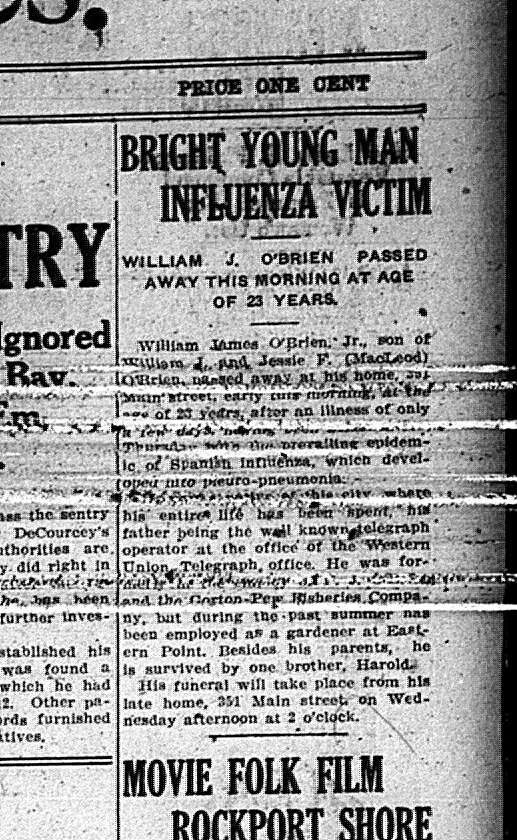
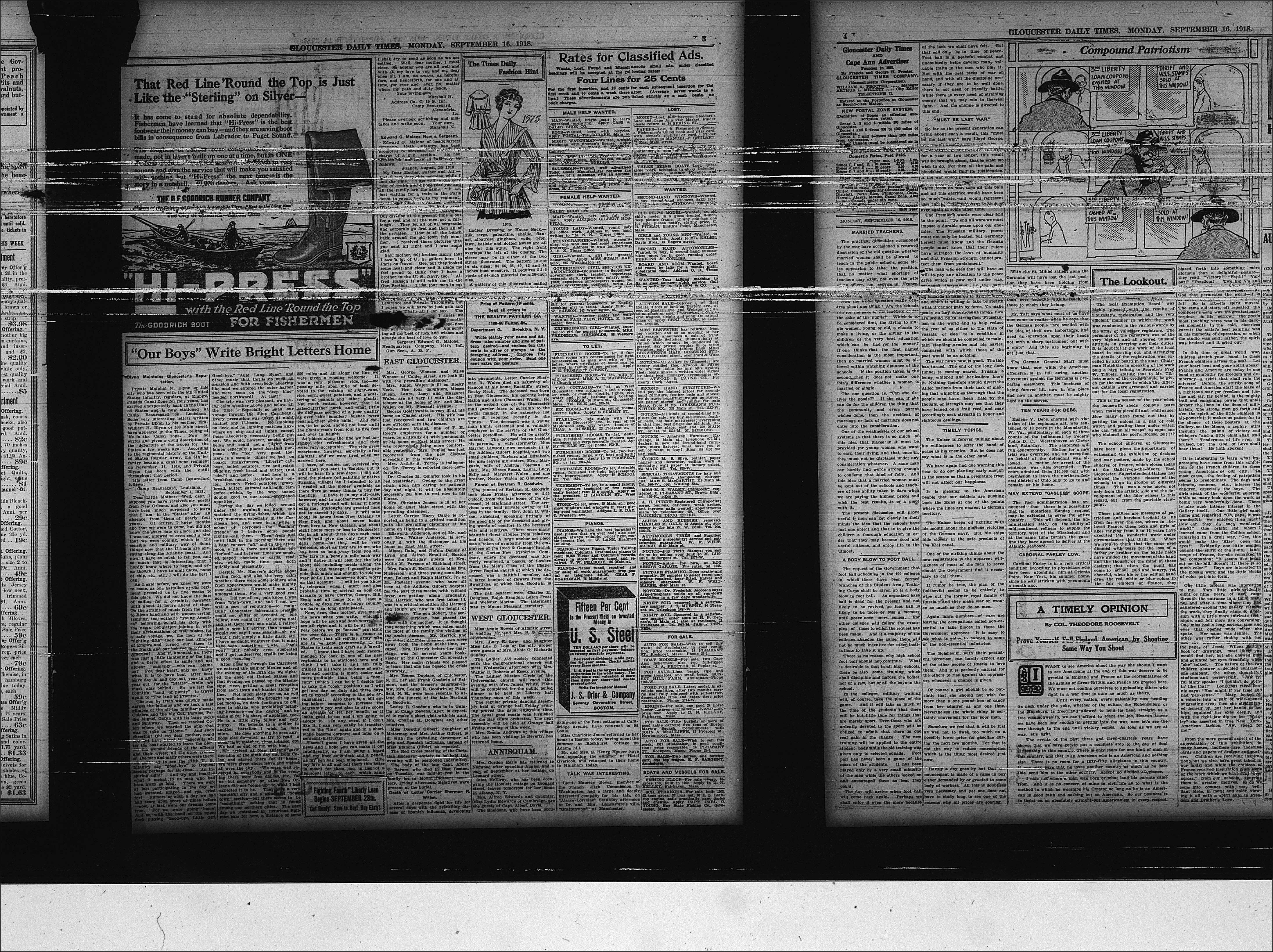


Front Page Three Deaths From Influenza: Whole Families Severely Ill with Prevailing Distemper—Several Doctors Are Stricken—Fully 300 Cases in the City—Fumigate Post Office
The epidemic of Spanish influenza is continuing to cause deaths and three more have occurred since Saturday noon, Letter Carrier Sherman R. Walen, Mrs. Lillian Martin and William J. O’Brien, Jr. Quite a number of people are very ill and there are several cases of whole families being ill with the disease. Eight deaths were reported in Boston yesterday. There is no way of securing an accurate number of cases in this city, but there are probably at least 300. Among those who have been stricken are several of the doctors and the others have been kept exceedingly busy by the extraordinary number of calls during the last few days. While the disease infested every section of the city, East Gloucester seems to be particularly hard hit. In view of the large number of cases among the postal forces, Postmaster Smith had the main office and also the annex on Duncan Street thoroughly fumigated on Saturday afternoon. No action has been taken by either the (local) Board of Health or school authorities, as neither board deems it necessary to do so at the present time. There are a large number of pupils out in the High school this morning, but whether largely on account of being or a precautionary measure against contracting the disease could not be ascertained. Several teachers in the schools are also at home on account of the illness. Much trouble can be avoided, however, if the public will use the ordinary precautionary measures. For instance, when a person becomes ill he should see a physician at once, for as the old saying goes, “a stitch in time saves nine.” In a large number of cases, persons afflicted have been loth to give in until finally compelled to do so. A physician should be consulted as soon as possible.
Front Page Bright Young Man influenza Victim – William J. O’Brien
William J O’Brien passed away this morning at age of 23 years. William James O’Brien Jr., son of William J. and Jessie F. (MacLeod) O’Brien, passed away as his home on Main Street early this morning at the age of 23 years after an illness of only a few days (illegible) of the prevailing epidemic of Spanish influenza which developed into pleuropneumonia. (illegible) of this city where his entire life has been spent, his father being the well known telegraph operator at the office of the Western Union Telegraph Office. He was formerly (illegible) and the Gorton-Pew Fisheries Company, but during the past summer has been employed as a gardener at Eastern Point. Besides his parents, he is survived by his brother, Harold. His funeral will take place at his home, 354 Main Street on Wednesday at 2 o’clock.
Inside page What do you think of this Chowder? (recipe)
Inside page East Gloucester column ** author’s note: all sickness and death**
Mrs. George Wonson and Miles Wonson of Calder street, are both ill with the prevailing distemper. Mrs. Ralph Walen is ill on Rocky Neck. Her four daughters, Misses Susan, Laura, Lucy and Margaret Walen are all very ill with the distemper at the home of Mr. and Mrs. Walen on Mt. Pleasant Avenue. George Goldthwaite is very ill at his home on Chapel street. His wife has just recovered and two children are now stricken with the disease. Salvatore Puglisi, one of T.E. Reed’s employees for a number of years is critically ill with pneumonia at his home on East Main street. He was reported as being more comfortable yesterday. Mrs. Puglisi has just recovered from the new disease spreading in this vicinity. Mrs. Arthur S. Torrey is indisposed. Dr. Torrey is reported more comfortable. Dr. Charles M. Quimby took to his bed yesterday. Owing to the great strain upon him caring for patients day and night it will be absolutely necessary for him to rest now in his illness. Mrs. Christian Jensen is ill at her home on East Main street, with the prevailing distemper. Letter Carrier Harry Dagle is reported as being in critical condition with the prevailing distemper at his home on Highland place. Ellsworth Anderson, son of Mr. and Mrs. Walter Anderson, is seriously ill with distemper at his home on East Main street. Misses Daley and Norma Dennis of Lynn and Alfred Small of Boston were the Saturday guests of Mrs. Nellie M. Parsons of Highland street. Mrs. Ralph B. Herrick (nee Miss Eva Nickerson) and three young sons, Hermon, Robert and Ralph Herrick Jr., of Mt. Pleasant avenue, who have all been at the Addison Gilbert hospital for the past three weeks, with typhoid fever, are getting along gradually. Mrs. Herrick, who was first taken ill, was in a critical condition and Hermon and Ralph are now in the height of the disease. The son Robert, the second stricken, has passed the crisis with the mother. It is thought that something which was eaten made most of the family the victims of the awful disease. Mr. Herrick and the eldest daughter, Eleanor, who were away from the home at the time, escaped. Mrs. Herrick before her marriage, was for several years bookkeeper at the Gloucester Co-Operative Bank. Her many friends are pleased to learn that she has passed the crisis favorably. Mrs. Emma Dulace, of Chichester, N.H., her son Frank Goodwin of Belmont, and the former’s daughter-in-law, Mrs. Lesley R. Goodwin of Pittsfield, N.H., were here recently to attend the funeral of the late Bertram R. Goodwin. Lesley R. Goodwin who is in training at Camp Devens, Ayer, is expected to make a short visit with his aunt Mrs. Charles H. Douglass and other relatives. Miss Dorothy Gilbert, daughter of Motorman and Mrs. Arthur Gilbert, is ill with the prevailing distemper of grip and Spanish influenza, instead of Miss Blanch Gilbert as reported. The Red Cross meeting of the Christian Endeavor society to be held this evening will be postponed indefinitely. The body of the late Capt. Abner T. Barnes, who died in East Boston on Tuesday, was laid at rest in the family lot in Mt. Pleasant cemetery Friday afternoon. Relatives were present at the burial. Death of Letter Carrier Sherman R. Walen: After a desperate fight for life for several days with the prevailing distemper of Spanish influenza developing into pneumonia, Letter Carrier Sherman R. Walen died on Saturday afternoon at his home, Rackliffe street, Rocky Neck. The deceased was born in East Gloucester, his parents being Ralph and Alice (Parsons) Walen. He is the second one of the Gloucester mail carrier force to succumb to the awful malady, in the extensive list now ill, reported recently in the Times. The deceased was a young man highly esteemed and a valuable employee in the service of the Gloucester postoffice. He will be greatly missed. The deceased leaves besides his parents, a wife (formerly Miss Harriet Lawson) no seriously ill at the Addison Gilbert hospital, and two small children, Barbara and Elizabeth. He also leaves six sisters, Mrs. Margarie, wife of Andrus Coleman of Bath, Me., Misses Susan, Laura, Lucy, Sally and Margaret Walen, and one brother, Nestor Walen of Gloucester. Funeral of Bertram R. Goodwin: The funeral of Bertram R. Goodwin took place Friday afternoon at 2:30 o’clock, from the late home of the deceased, 14 Highland street. The services were held private owing to illness in the family. Rev. John B. Wilson, officiated, speaking fittingly of the good life of the deceased and giving words of comfort to the bereaved wife and relatives. There were many beautiful floral tributes from relatives and friends. A large anchor set piece was a token of sympathy from the employees of the Gorton-Pew Fisheries Company, where the deceased was formerly employed, a basket of flowers from the Men’s Class of the Chapel Street Baptist church of which the deceased was a faithful member, and a large bouquet of flowers from the Swastikas, of which Mrs. Goodwin is a member. The pall bearers were Charles H. Douglass, Ralph Bragdon, Loren Frost and Webster Morton. The internment was in Mount Pleasant cemetery.
TUESDAY, SEPTEMBER 17, 1918
**author note: by the 5th day of epidemic – SCHOOL CLOSED**
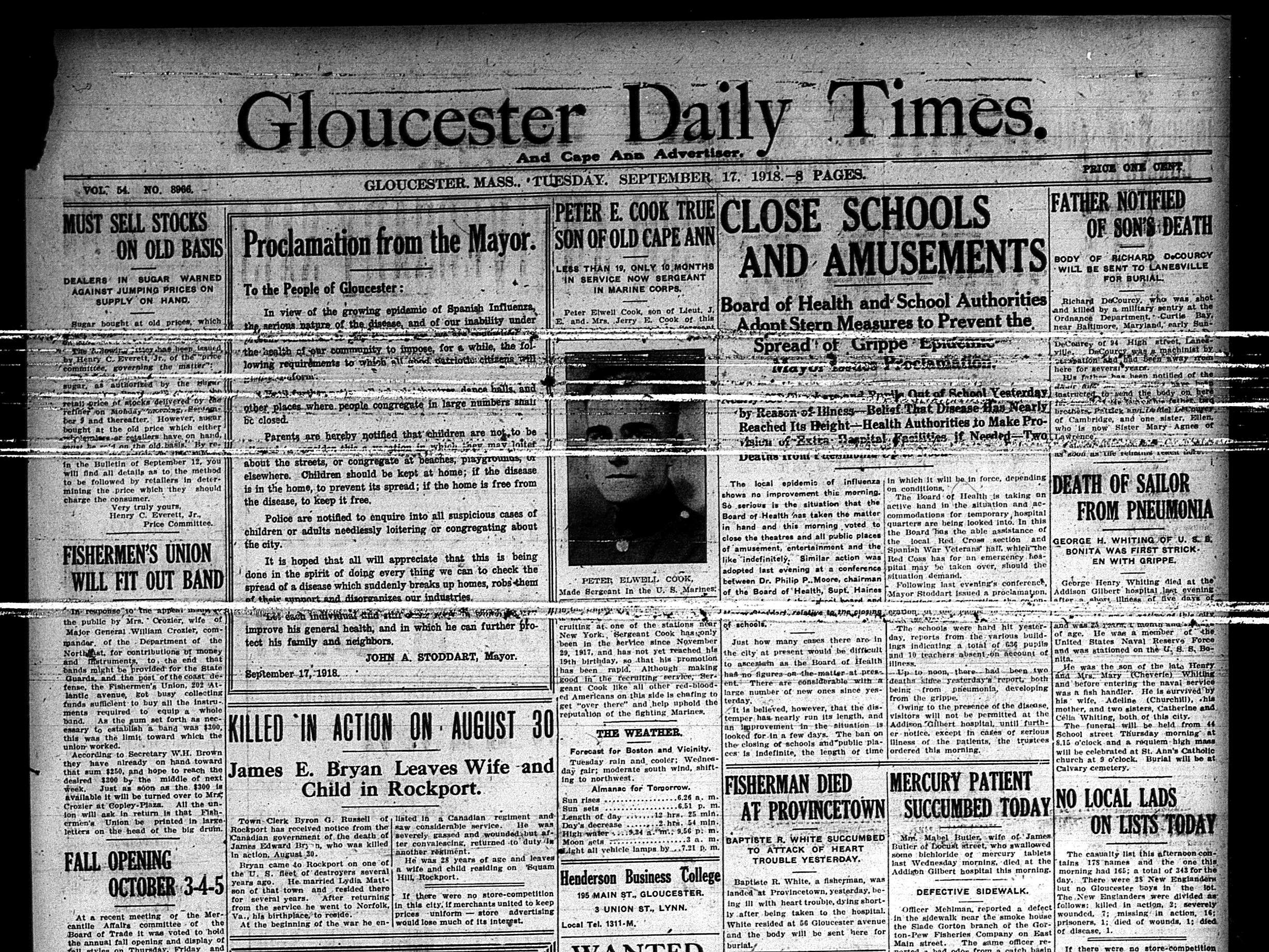
Front page
PROCLAMATION FROM THE MAYOR
To the people of Gloucester:
In view of the growing epidemic of Spanish Influenza, the serious nature of the disease, and of our inability under (illegible) the health of our community to impose, for a while, the following requirements to which all good patriotic citizens will conform.
Until further notice (illegible) dance halls, and other places where people congregate in large numbers shall be closed.
Parents are hereby notified that children are not be (illegible) in which they may loiter about the streets, or congregate at beaches, playgrounds or elsewhere. Children should be kept at home; if the disease is in the home, to prevent its spread; if the home is free from the disease, to keep it free.
Police are notified to enquire into all suspicious cases of children or adults needlessly loitering or congregating about the city. It is hoped that all will appreciate that this is being done in the spirit of doing everything we can to check the spread of the disease which suddenly breaks up homes, robs them of their support and disorganizes our industry. Let each individual and still (illegible) improve his general health and in which he can further protect his family and neighbors.
John A. Stoddart, Mayor
Front pageClose Schools and Amusements: Board of Health and School Authorities Adopt Stern Measures to Prevent the Spread of Grippe Epidemic Mayor’s Proclamation | Out of School Yesterday by Reason of Illness—Belief that Disease has nearly reached its height—Health Authorities to make provision of extra hospital facilities if needed—Two Deaths
The local epidemic of influenza shows no improvement this morning. So serious is the situation that the Board of Health has taken the matter in hand and this morning voted to close the theatres and all public places of amusement, entertainment and the like indefinitely. Similar action was adopted last evening at a conference between Dr. Philip P. Moore, Chairman of the Board of Health, Supt. Haines, (illegible) relative to the closing of schools.
Just how many cases there are in the city at present would be difficult to ascertain. There are considerable with a large number of new ones since yesterday. It is believed, however, that the distemper has nearly run its length, and an improvement in the situation is looked for in a few days. The ban on the closing of schools and public places is indefinite, the length of time in which it will be in force depending upon conditions.
The Board of Health is taking an active hand in the situation and accommodations for temporary hospital quarters are being looked into. In this the board has the able assistance of the local Red Cross section and Spanish War Veterans hall, which the Red Cross has for an emergency hospital that may be taken over should the situation demand.
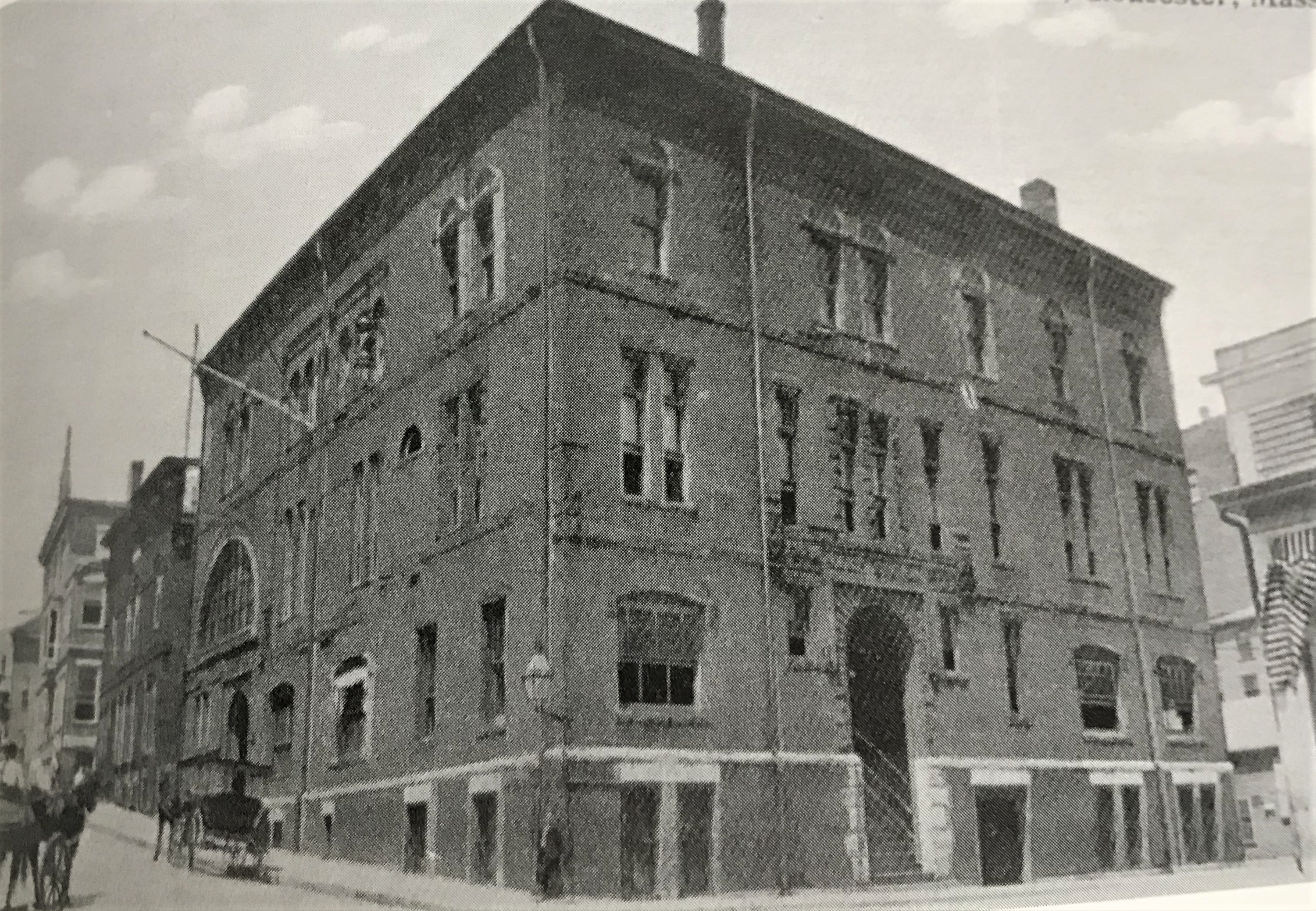
Police station then on corner of Duncan and Rogers
Following last evening’s conference, Mayor Stoddart issued a proclamation (illegible) The schools were hard hit yesterday, reports from the various buildings indicating a total of 636 pupils and 10 teachers absent on account of illness.
Up to noon, there had been two deaths since yesterday’s report, both being from pneumonia developing from the grippe. Owing to the presence of the disease, visitors will not be permitted at the Addison Gilbert hospital until further notice except in cases of serious illness of the patients, the trustees ordered this morning.

Wednesday, September 18, 1918

Front pageNo More Deaths From Influenza- Believe that Epidemic will soon be checked – situation regarded more satisfactory Public Cooperates with Board of Health
No deaths have occurred in the past 24 hours from Spanish influenza or pneumonia and while there are some new cases today, the health authorities are inclined to believe that the (illegible) city. Following the proclamation of the mayor and order of the Board of Health, the North Shore theater was closed all day yesterday and all forms of entertainment and amusement have been indefinitely postponed. The Board of Health order closing all places where people congregate in large numbers will remain in force until all danger has passed.
There are hundreds of cases of the disease throughout the city. Doctors and nurses have been working night and day (illegible) street was taken over this morning as an emergency hospital station and equipped with cots and beds. Nurses will be secured and hall made ready for the considerable number of patients should the situation require it. The proclamation of Mayor Stoddart has been generally followed out by the public. Although the schools are closed, children have been kept at home by parents to a large extent. Last night the streets were deserted indicating that adults remained at home too.
Front page Salem has 1000 cases
Spanish influenza has more than 1000 victims in Salem and already had been the contributory cause of three deaths. Physicians, while unusually busy, do not express alarm over the situation and say that continuance of mild weather will aid in checking the epidemic. Although many children of the public and parochial schools are confined to their homes, opinion is expressed that children are as immune in school rooms as elsewhere and probably better safeguarded through the vigilance of the city physicians, nurse and teachers. Several inmates of the City Home are reported ill. The Salem Hospital was closed yesterday until further notice (illegible) except accident cases will be admitted
In compliance with the regulations and request of the mayor and Board of Health, the members of the Young Men’s Christian Association are advised that the gymnasium and swimming pool of the association building will be closed until the epidemic of influenza has passed. Shower baths will be open for use. During this time the swimming pool will be cleaned and repainted. Two of the men on the employed force are ill and all members are asked to cooperate even more than usual in helping maintain the building and its necessary activities.
Front page Mill Employee Ill Short Time
**author note: first flu obit. to mention business*
Miss Harriet Haskell died at her home on Andrews street, Essex, early yesterday morning at the age of 21 years. She was ill only about 24 hours going home Monday from the Ipswich Mills where she was employed with the symptoms of Spanish influenza. Monday evening her condition became serious and she died shortly after midnight. She is survived by her parents.
Thursday, September 19, 1918
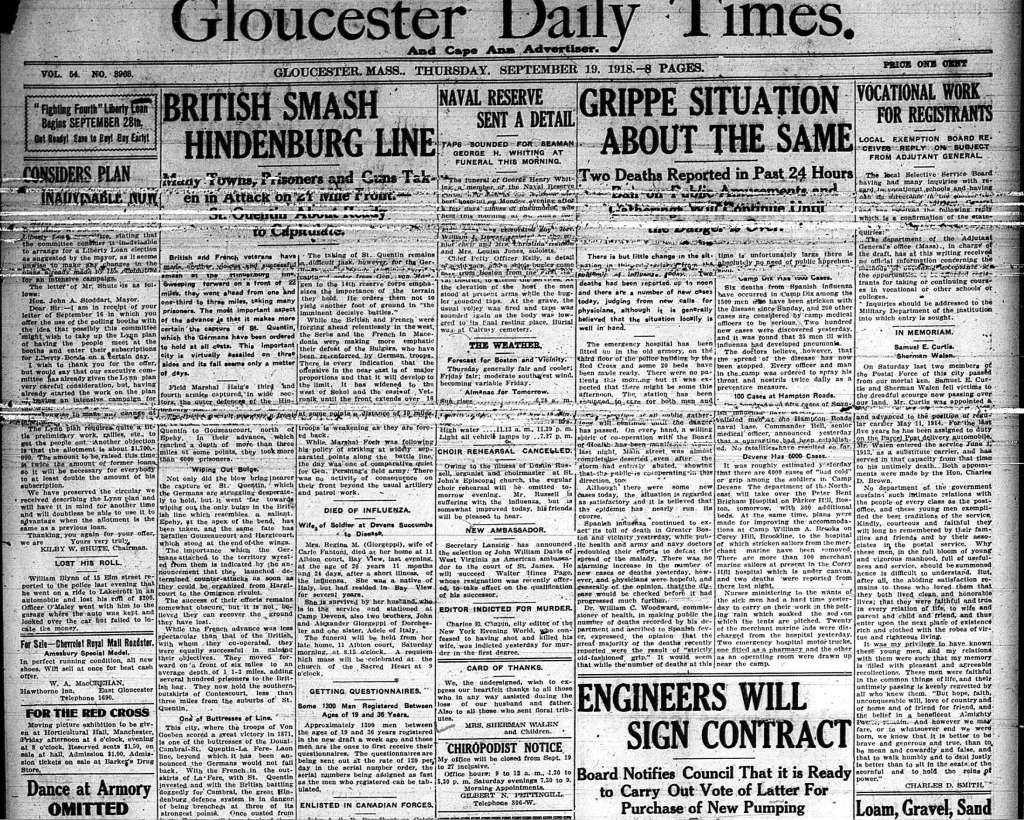
Front page Grippe Situation About the Same: Two Deaths reported in past 24 hours
There is but little change in the situation in this city from the epidemic of influenza today. Two deaths had been reported up to noon and there are a number of new calls for physicians, although it is generally believed that the situation locally is well in hand.The emergency hospital has been fitted out in the old armory, on the third floor of the police building by the Red Cross and some 20 beds have been made ready. There were no patients this morning but it was expected that there might be some this afternoon. The station has been equipped to care for both men and women of all (illegible) cancellation of all public gatherings will continue until the danger has passed. On every hand a willing spirit of co-operation with the Board of Health has been manifested again last night, Main street was almost completely deserted even after the storm had entirely abated, showing that the public is cooperating in this direction too. Although there were some new cases today, the situation is regarded as satisfactory and it is believed that the epidemic has nearly run its course.
Spanish influenza continued to exact its toll of death in Greater Boston and vicinity yesterday while public health and army and navy doctors redoubled their efforts to defeat the spread of the malady. There was no alarming increase in the number of new cases or deaths yesterday, however, and physicians were hopeful and generally of the opinion that the disease would be checked before it had progressed much further. Dr. William C. Woodward commissioner of health, in making public the number of deaths recorded by his department and ascribed to Spanish fever expressed the opinion that the great majority of the deaths recently reported were the result of “strictly old-fashioned grip.” It would seem that while the number of deaths at this times is unfortunately large, there is absolutely no need of public apprehension.
Camp Dix has 1500 Cases
Six deaths from Spanish influenza have occurred in Camp Dix among the 1500 men who have been stricken with the disease since Sunday, and 200 other cases are considered by camp medical officers to be serious. Two hundred new cases were discovered yesterday, and it was found that 35 men ill with influenza had developed pneumonia. The doctors believe however that the spread of the disease has now been stopped. Every officer and man in the camp was ordered to spray his throat and nostrils twice daily as a preventative measure.
100 Cases at Hampton Roads
(Illegible) Enlisted men at the Hampton Roads naval base, Commander Bell, senior medial officer announced yesterday that a quarantine had been established No fatalities have resulted so far.
Devens has 6000 Cases
It was roughly estimated yesterday that there are 6000 cases of “bad cold” or grip among the soldiers in Camp Devens. The department of the Northeast will take over the Peter Bent Brigham Hospital on Parker Hill, Boston, tomorrow, with 300 additional beds. At the same time, plans were made for improving the accommodations at Camp William A. Brooks on Corey Hill, Brookline, to the hospital of which stricken sailors from the merchant marine have been removed. There are more than 100 merchant marine sailors at present in the Corey Hill hospital which is under canvas and two deaths were reported from there last night. Nurses ministering to the wants of the sick men had a hard time yesterday to carry on their work in the pelting rain which soaked the sod on which the tents were pitched. Twenty of the merchant marine lads were discharged from the hospital yesterday. Two emergency hospital motor trucks one fitted as a pharmacy and the other as an operating room were drawn up near the camp.
Inside page East Gloucester column
…Mrs. Matilda MacDavid is ill at her home, 14 Highland street, with the epidemic. Eleanor Parker has improved from her illness of grip. Douglass Parker is now ill at his home on Rocky Neck avenue. Mrs. Bertram Goodwin of Highland street is stopping with her mother, Mrs. Frost, on Sayward street. J.T. Moulton is ill with the prevailing distemper at his home on Highland street. Harry Dagle (illegible) glad to learn. Caleb Goodwin has removed his family from the old Stanwood house on East Main to the old house (illegible)…
Friday, September 20, 1918
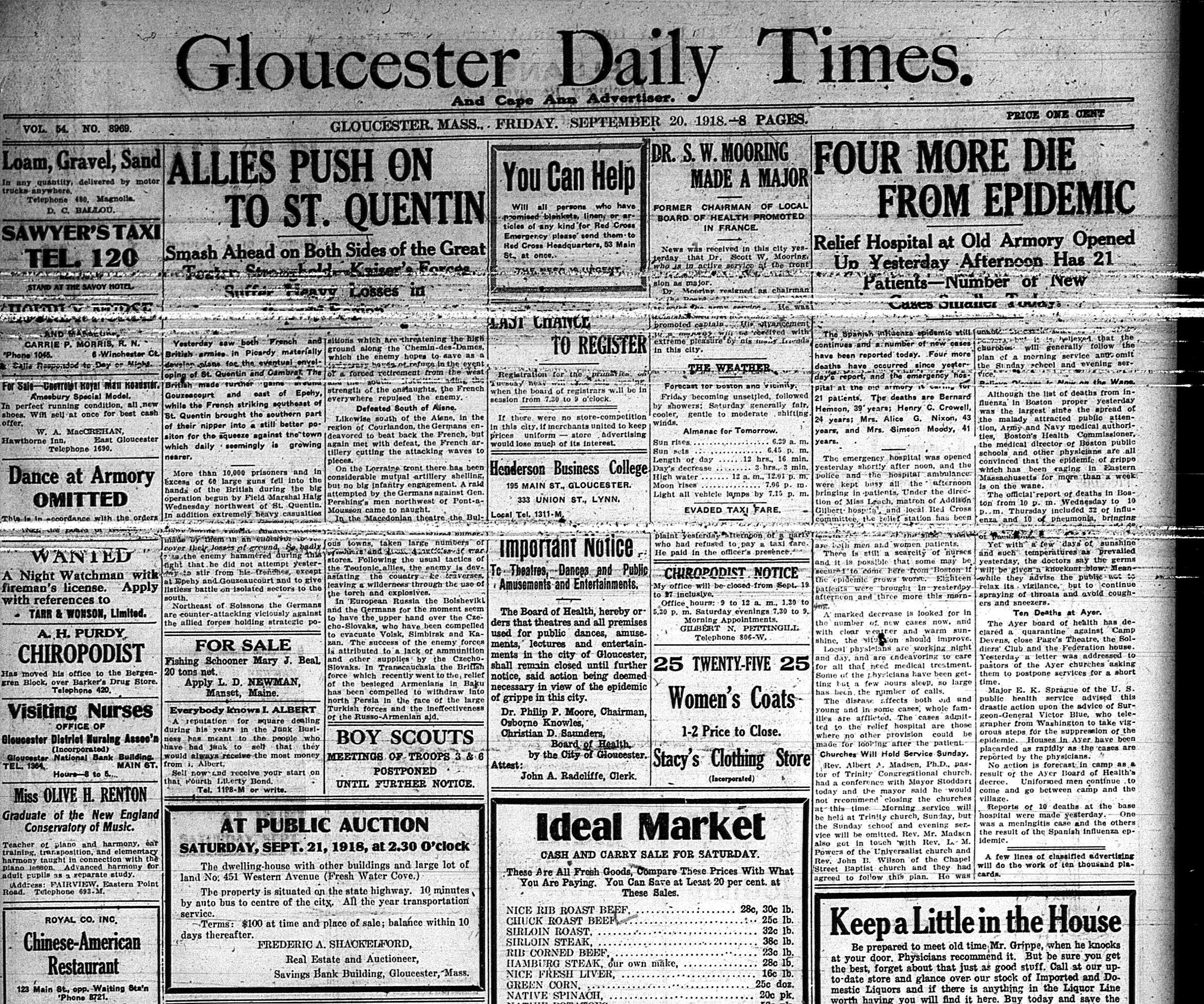
Front page Four More Die From Epidemic: Relief Hospital at Old Armory Opened Up Yesterday Afternoon | Has 21 Patients | Number of New Cases Smaller Today
The Spanish influenza epidemic still continues and a number of new cases have been reported today. Four more deaths have occurred since yesterday’s report and the emergency hospital at the old armory is caring for 21 patients. The deaths are Bernard Hemeon, 39 years; Henry C. Crowell, 24 years; Mrs. Alice G. Nixon, 43 years, and Mrs. Simeon Moody, 41 years.
The emergency hospital was opened yesterday (9/19/1918) shortly after noon, and the police and the hospital ambulance were kept busy all the afternoon bringing in patients. Under the direction of Miss Leach, matron of Addison Gilbert Hospital, and local Red Cross committee, the relief station has been (illegible) are both men and women patients. There is still a scarcity of nurses and it is possible that some may be secured to come her from Boston if the epidemic grows worse. Eighteen patients were brought in yesterday afternoon and three more this morning. A marked decrease is looked for in the number of new cases now, and with clear weather and warm sunshine, the situation should improve. Local physicians are working night and day, and are endeavoring to care for all that need medical treatment. Some of the physicians have been getting but a few hours sleep, so large has been the number of calls. The disease affects both old and young and in some cases, whole families are afflicted. The cases admitted to the relief hospital are those where no other provision could be made for looking after the patient.
Churches will hold service Sunday
Rev. Albert A. Madsen, Ph.D., pastor of Trinity Congregational church, had a conference with Mayor Stoddart today and the mayor said he would not recommend closing the churches at this time. Morning service will be held at Trinity church, Sunday, but the Sunday school and evening service will be omitted. Rev. Mr. Madsen also got in touch with Rev. L. M. Powers of the Universalist Church and Rev. John B. Wilson of the Chapel Street Baptist church and they had agreed to follow the plan. He was (illegible) but it is believed that the churches will generally follow the plan of a morning service and omit the Sunday school and evening service.
Believe Disease to Be on the Wane
Although the list of deaths from influenza in Boston proper yesterday was the largest since the spread of the malady attracted public attention, Army and Navy medical authorities, Boston’s Health Commissioner, the medical director of Boston public schools and other physicians are all convinced that the epidemic of grippe which has been raging in Eastern Massachusetts for more than a week is on the wane. The official reports of deaths in Boston from 10 p.m. Wednesday to 10 p.m. Thursday included 32 influenza and 10 of pneumonia, bringing the total (illegible) Yet with a few days of sunshine and such temperatures as prevailed yesterday, the doctors say the germs will be given a knockout blow. Meanwhile they advise the public not to relax its vigilance, but to continue spraying of throats and avoid coughers and sneezers.
Ten Deaths in Ayer
The Ayer board of health has declared a quarantine against Camp Devens, close Page’s Theatre, the Soldiers’ Club and the Federation house. Yesterday a letter was addressed to pastors of the Ayer churches asking them to postpone services for a short time.
Major E.K. Sprague of the U.S. public health service advised this drastic action upon the advice of Surgeon-General Victor Blue, who telegrapher from Washington to take vigorous steps for the suppression of the epidemic. Houses in Ayer have been placarded as rapidly as the cases are reported by the physicians. No action is forecast in camp as a result of the Ayer Board of Health’s decree. Uniformed men continue to come and go between camp and the village. Reports of 10 deaths at the base hospital were made yesterday. One was a meningitis case and the others the result of the Spanish influenza epidemic.
Front page IMPORTANT NOTICE to Theatres, Dances and Public Amusements and Entertainments
The Board of Health hereby orders that theaters and all premises used for public dances, amusements, lectures and entertainments in the City of Gloucester, shall remain closed until further notice, said action being deemed necessary in view of the epidemic of grippe in this city.
-Dr. Philip P. Moore, Chairman, Osborne Knowles, Christian D Saunders, Board of Health by the City of Gloucester September 20, 1918. Attest: John A. Radcliffe, Clerk.
Inside page Death notices 9/20/1918 Disease Takes Both Parents: Mr. and Mrs. Martin die within three days of each other.
One of the saddest cases in connection of influenza is the deaths of Mr. and Mrs. Joseph Martin, residing at Fort Square, the death of Mrs. Martin occurring Wednesday at noon, only three days after the death of his wife, which took place Sunday night, while by their deaths four small children are left orphans. The family came to this city a few years ago when the gill net fisherman from Michigan took up their residence here.
Mrs. Lilian (LaFond) wife of Joseph- (illegible) was a native Wisconsin, her parents being John and Sarah (Slone) La Fond, who survive her, and she also leaves three brothers and three sister, Samuel Egene L. and William LaFond, Mrs. Josephine Lasley, Mrs. Sara Leveillie and Mrs. Little Benney , all of this city.
Mr. Martin, who passed away Wednesday noon at the age of 59 years and 29 days was a native of Manistique, Michigan, being the son of Franklin and Harriet (Cashlin) Martin and is survived by his father, Franklin Martin of this city, three brothers, Franklin Jr., and Freddie of Manistique and Corporal Abraham Martin now in France, and three sisters, Mrs. Laura Davenport and Mrs. Mary Holmberg of Manistique and Miss Lena Martin of this city. The couple are survived by four children Violet, aged 9 years, Gladys, aged 7; Lilian, aged 5, and Delor, 3 years of age.
Inside page Suffrage meeting tonight at Postoffice square
Leader will speak at Postoffice Square on Experience as voter. There will be a women’s suffrage meeting in Potoffice square this evening at 8 o’clock. Mrs. G.G. Scott, secretary of the New Jersey branch of the National Woman’s Party, will preside and the other speaker will be Mrs. Mildred Schwinden of Chicago. Mrs. Scott will speak on the national amendment, which it is expected the senate will vote on this month.
Saturday, September 21, 1918
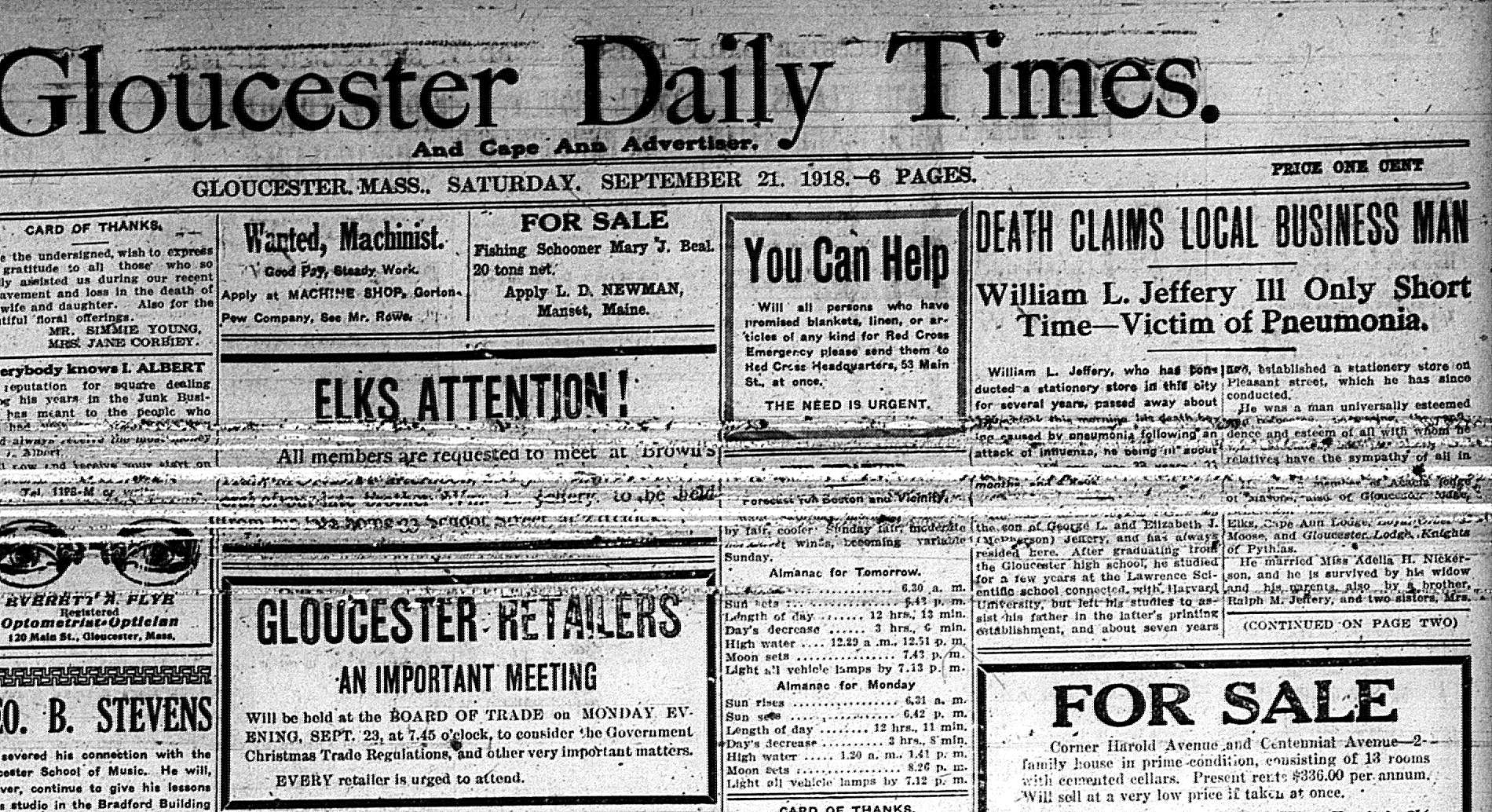
Front Page & continues page 2 Death Claims Local Business Man: William L. Jeffery Ill only Short Time – Victim of Pneumonia
William L. Jeffery who has conducted a stationery store in this city for several years, passed away about (illegible) this morning caused by pneumonia following an attack of influenza, he being ill about (illegible). The son of George L. and Elizabeth J. (McPherson) Jeffery, and has always resided here. After graduating from the Gloucester high school, he studied for a few years at the Lawrence Scientific school connected with Harvard University, but left his studies to assist his father in the latter’s printing establishment, and about seven years ago, established a stationery store on Pleasant Street, which he has since conducted. He was a man universally esteemed (illegible) confidence and esteem of all with whom he (illegible) relatives have the sympathy of all in (illegible)Masons, also of Gloucester Lodge (illegible) Elks, Cape Ann Lodge (illegible) Moose, and Gloucester Lodge Knights of Pythlas. He married Miss Adelia H. Nickerson, and he is survived by his widow and parents, also by a brother, Ralph M. Jeffery, and two sisters, …
Front page notice You Can Help
With all persons who have promised blankets, linen or articles of any kind for Red Cross Emergency, please sent them to Red Cross Headquarters, 53 Main street, at once. THE NEED IS URGENT.
Inside page, p.2Five More Die of Epidemic: Death List in Last 24 Hours Largest Since Inception of the Disease- But Little Change in Local Situation
There is practically no change in the Spanish influenza epidemic (illegible) have occurred from pneumonia developing from the (illegible) Goldthwaite and William L. Jeffery, (illegible) Mrs. Freeman, W. Hodsdon, Frederick F. Lambert, and Mrs. Richard F. Moore. Mrs. Hodsdon and Mrs. Moore both died at the Red Cross Emergency hospital.
Schooner Laverna Returns with 11 ill
Sch. Laverns, Capt. Robert Wharton returned this morning after getting as far as Provincetown and brought in 11 men sick with the disease. Joseph Marks and Jesse Riva of the crew of sch. Edith Silveira were taken to the Red Cross hospital at 1.35 o’clock this morning in the police ambulance. Fishermen of the str. Killarney and sch. Saladin (…illegible…)
In order to relieve the local physicians, several of whom are on the sick list themselves, while the others are working almost continually day and night on account of the almost unprecedented number of calls for their services, Mayor Stoddart has secured the services of two outside physicians, Dr. A.A. Haig of Essex and Dr. Ernest A. Dyer of Salem, who will give their attention to such patients as may be treated at the Red Cross Emergency Hospital in the old armory on Duncan Street under the direction of Dr. Philip P. Moore. Another physician will be secured from Salem if conditions demand it.
Dogs Should be Looked After
It is well right here to warn people who have folks that are ill in their families and who have dogs to take some means of having these animals secured or in some place where they will not accost and threatened the physicians as they are making their house calls. In the present stress it obtains that the doctors are often obliged to call at the houses of the ill at all hours of the night and unannounced and in some cases to go to the back door in order to disturb and more than possible. One physician while making a call last night was set upon by a dog in the house and bitten through the knee. As the doctor said “It is bad enough to be bitten, but what bothered me the most was that I had to return to my own home and take care of my wound which took considerable time, and it is the time that is valuable just now. We haven’t a moment we can spare; our people need it. Won’t you ask the families where there are illnesses and dogs to take the pains to have the animals put so that we shall not be menaced or bitten?”

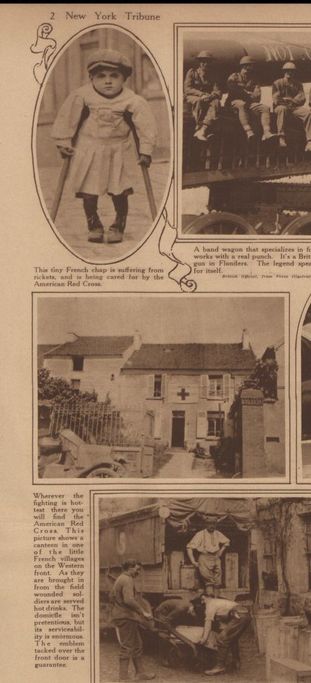


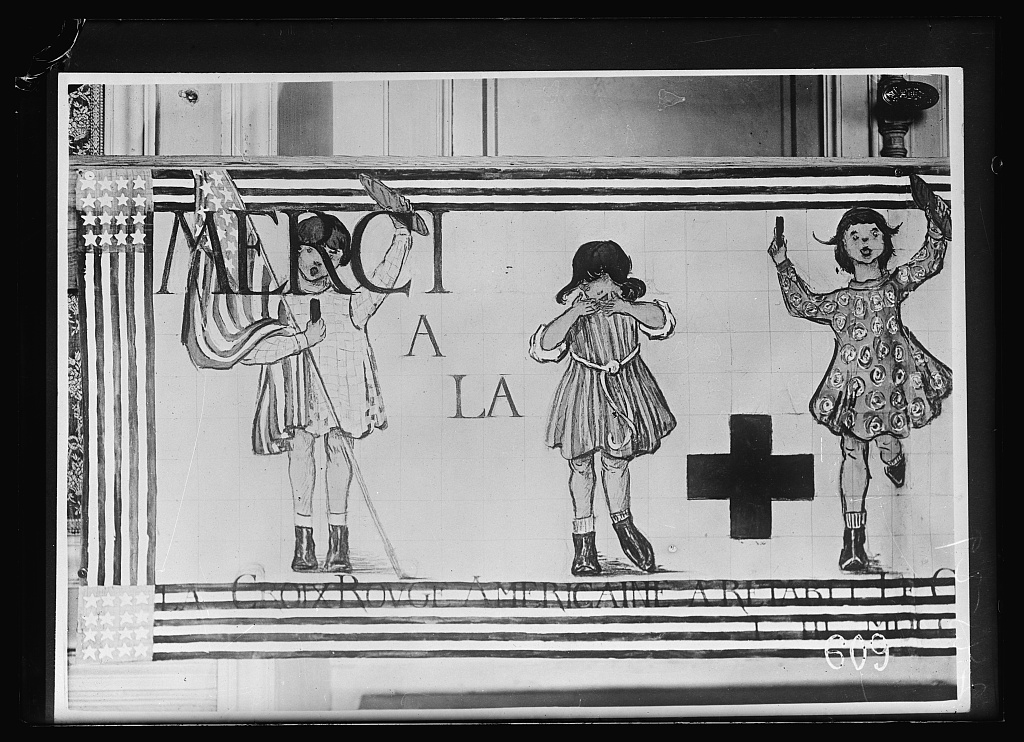
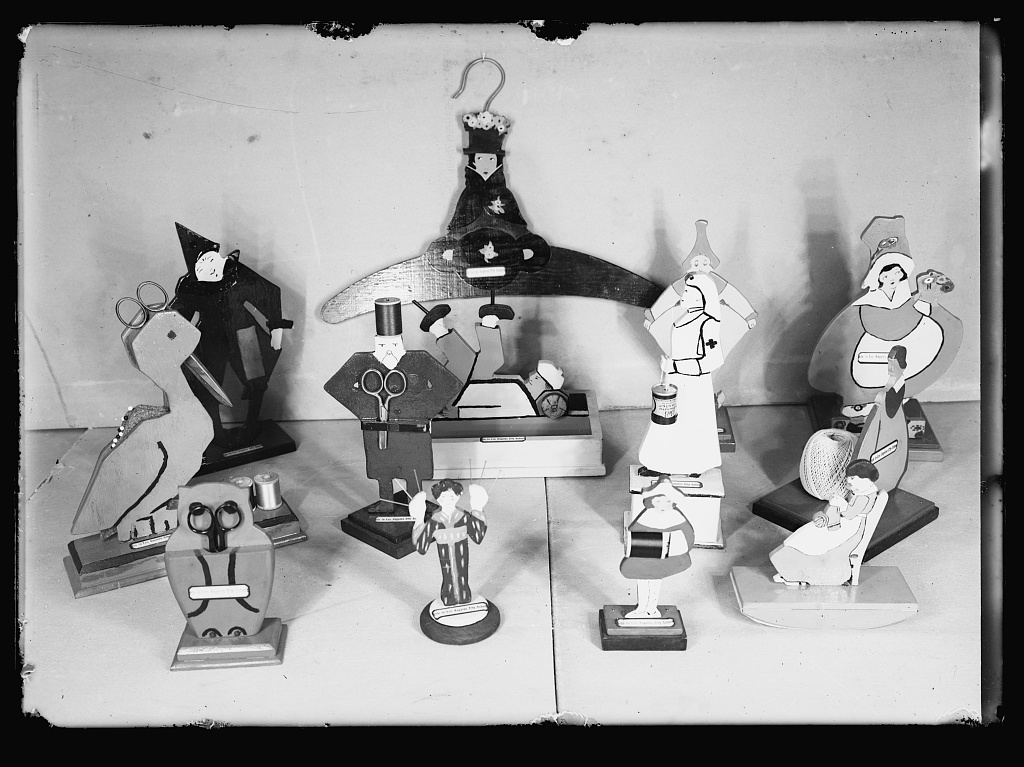


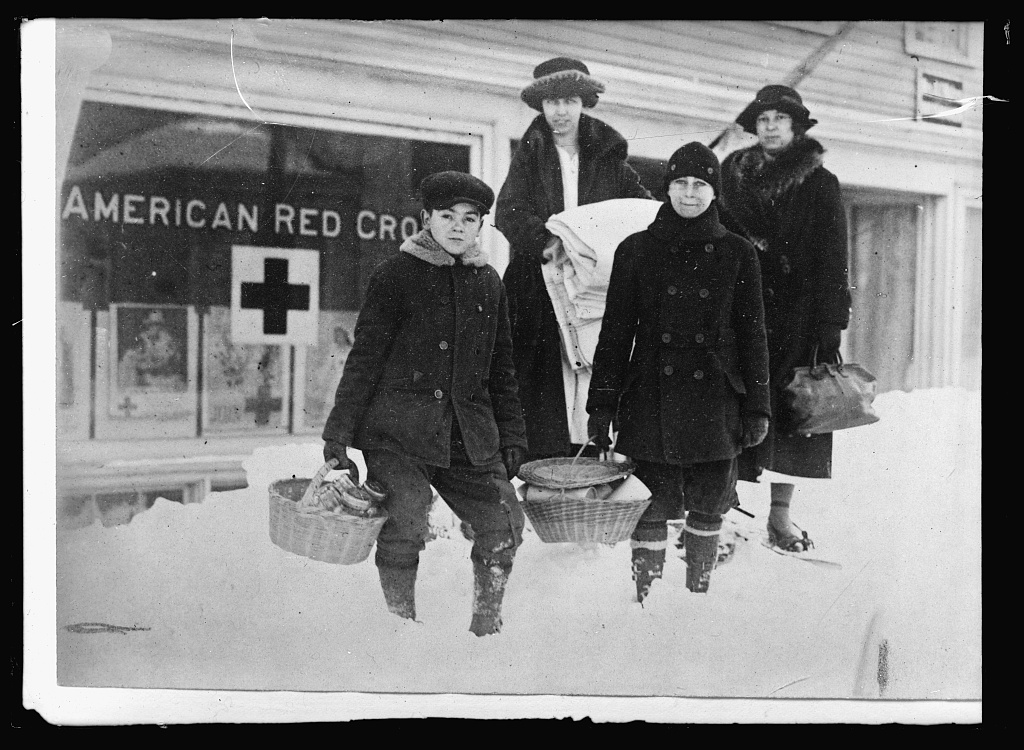
Red Cross Hospital Will Appreciate Any Assistance
The Red Cross Emergency Hospital is doing a grand work in this most trying time. Those in charge emphasize the fact that it is being used for Cape Ann Savings Bank and handed Daniel T. Babson his check for $100 to help on the work that those not so fortunate as their neighbors receive the best of care. It should be known (…illegible…) Mr. Babson will cheerfully receive how large or small. (…Illegible…) and now local physicians believe that no less than 350 cases are under treatment, occurred yesterday. At a special meeting of the school committee yesterday afternoon, it was decided to close the public schools a week. The board of health and selectmen in a joint special session ordered the suspension of motion picture shows, dances and other amusements, and efforts will be made to prevent contagion among children.
Three more deaths
Although the weather was unfavorable yesterday, only three deaths and 156 cases of influenza were reported in the Second Naval District at Newport. There are only a few cases in the district outside of the Naval stations at Newport. Twenty six new cases among
Epidemic in the Nine Army Camps
The outbreak of Spanish Influenza at five additional Army training camps announced last evening by Surgeon General Gorgas making a total of nine camps in which the disease has been discovered. The total number of cases reported from all camps up to noon yesterday included 11 deaths. The greatest number of cases, 6153, was reported from Camp Devens, Mass., while Camp Lee, Va., has 1211 and Camp Upton NY 602. Camp Devens also reported 43 new cases of pneumonia, which medical officers believe resulted from the influenza epidemic.
The camps included with the number of cases at each were: Camp Gordon, Ga., 138; Camp Syracuse, VA., 56; Camp Merritt, NJ 182, and Camp Lewis, Washington, 11. Two vessels with influenza aboard were quarantined at Newport News. And in all parts of the country steps were taken by health officers to check the spread of the disease.
Nineteen Die in Boston
With a total yesterday of 19 deaths among civilians in Greater Boston, in a population of approximately 800,000; 16 deaths in the navy with a personnel hereabouts of 20,500; and no death at all among the 13,397 army men in that vicinity, the mortality toll in the present influenza epidemic wave was reassuringly lower than it has been at any time within the past 10 days. The condition was such as to create in the minds of medical officials in the army, the navy and the municipality the feeling that the high point of the fatalities had been reached and passed.
Inside page Discover New Organism
Examination of the Spanish influenza germs by bacteriologists of the New York Department of Health has resulted in the discovery of a new organism, Health Commissioner Copeland announces. Further tests will be made to establish the identity of the organism which, it is hoped, will throw more light on the nature of the malady and enable physicians to deal with it.
Inside page obit Mrs. F. W. Hodsdon Dead
Ethel P. (Wheeler), wife of Letter Carrier Freeman W. Hodson of 106 Essex avenue died yesterday afternoon, a victim of the prevailing distemper, at the Red Cross Emergency hospital on Duncan street. The deceased was born in East Gloucester her parents being Percy W. and Annie P. (Ingersoll)Wheeler. She possessed a pleasant social nature and was highly esteemed by all who knew her and her sudden death is sincerely regretted. For several years before her marriage she was employed as bookkeeper in the insurance office of Fitz. J. Babson, Main street. The deceased leaves her husband, Letter Carrier Freeman W. Hodsdon, who is just recovering form the malady, a young son, also her parents, Mr. and Mrs. Percy W. Wheeler, the former the well known boat builder, and two sisters, Mrs. Estelle W., wife of Albert W. Purdy of Bond street and Mrs. Mildred A., wife of Charles W. Wise.
Inside page obit Death notice Mrs. Richard F. Moore
Mrs. Elizabeth (Williams), wife of Richard F. Moore, who was stricken with influenza and taken to the Red Cross Emergency Hospital…survived by three sons and three daughters
Inside page obit Death notice Frederick Burton Lambert
Frederick Burton Lambert, a well known young man of East Gloucester is a victim of the prevailing distemper, passing away to the beyond last evening, from his home, 8 Fremont street, Rocky Neck, at the age of 25 years, 8 months and 1 day. The deceased was born in East Gloucester, his parents being the late Sidney and Harriet (Stewart) Lambert. He was employed up to the time of his demise as chauffeur for Mr. and Mrs. William H. Weiss. He had been ill about a week. He leaves besides his wife, Louise (Carter) Lambert, a little daughter, Vera M. Lambert. The funeral will take place from his later home…and with a requiem high mass at St. Ann’s.
Inside page Two More Give Up Their Lives: Thomas R. Doucette Died of Wounds on Same Day Father Died – Private Edward Peterson Officially Reported Killed
Sunday, September 22, 1918
No local newspaper on Sunday
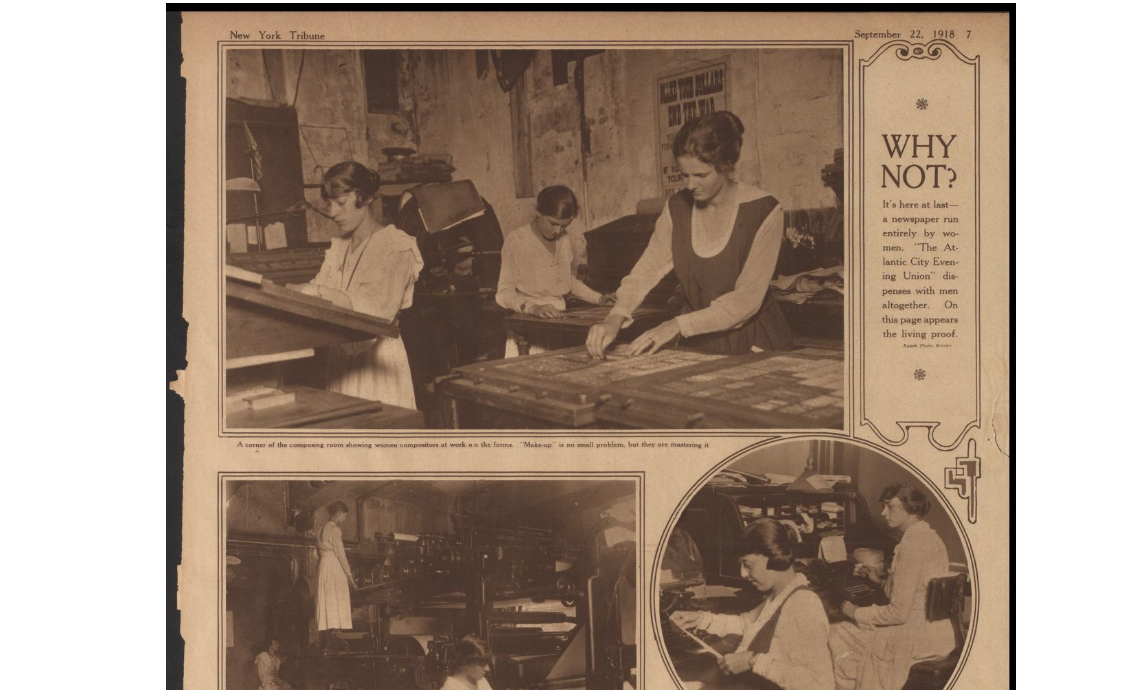
Monday, September 23, 1918

Front page Epidemic Claims 11 More Victims: Toll Largest Since Inception of Disease in City – Total Number of Deaths Now 24- Many New Cases Since Saturday
The death toll, resulting from influenza cases over Saturday and Sunday was the largest since the epidemic hit cape Ann. Up to noon today, 11 deaths had been reported, bringing up the number of victims to 24. A number of new cases have been reported, while at the Red Cross hospital, there are 32 cases. Those who have died are as follows:
- Mrs. Manuel P. Domingos, 46 years (husband Mngr. at 288 Main) house 37 Taylor
- (illegible)
- Manuel Goulart, 30 years, 32 Perkins Street
- Austin A. Kinselia, 15 years, 36 Trask street
- George R. Mederios, 7 years, Sargent Street
- Edward J. Rose, 23 years, 22 Sadler Street
- Olivia M. Souza, 17 years, 33 Perkins Street
- James S. Driggers, Jr., 19 years, 1 Horton Street (died 9/20/1918)
- Richard W. Jedrey, 9 months, 10 Arthur Street
- Catherine S. Lake, 1 year, 9 Harrison
Look for Improvement
It is hoped that with continued good weather there will be a marked falling in the number of cases. It is advised that the public keep out in the air as much as possible, but avoid public gatherings. Walk briskly in the open air and one will feel better. Avoid getting chilled, eat well and sleep with the windows open, are among the fundamental suggestions for one to observe in avoiding the disease.
Church Attendance Small
The epidemic made itself apparent by the decreased number of persons on the street Saturday night. The attendance at the churches yesterday was small, on account of the large number of persons afflicted and those who kept away in order to guard against the disease.
The Gloucester Board of Healthhas directed the local physicians to report the number of cases they are attending and furnish a list no later than 10 o’clock each morning hereafter as to the new cases. The Board is endeavoring to ascertain the number of cases in the city and to learn by the reports each day the progress of the disease.
Many in Some Families Down with the Disease
In some instances many of the families are down with the disease, while there are other cases where all in the household have been afflicted. Mrs. Henry Frost and seven of her family are ill with the prevailing distemper on Blake Court, Arthur B. Stilphen, a son-in-law, is also quite ill at the Frost home. Mrs. Stilphen was in Bath, Me., visiting her husband’s relatives and she came on here when she received word of Mr. Stilphen’s illness.
Doing a Splendid Service
Through the efforts of the Red Cross, Gloucester has received noble assistance from outside sources. In every instance where a request had been made by the local Red Cross authorities it has been immediately complied with.
Saturday night at 9.45 o’clock, Dr. Carter of Haverhill, head of the Essex County Chapter of the Red Cross, was appealed to for assistance. At 11.45 the doctor and three nurses were here and went to work, not waiting until yesterday morning. They came back again yesterday to help out. Dr. Bullock, a retired physician, is also here for the present emergency. Lawrence and Salem are other places that have given assistance. The number of patients at the Red Cross Emergency hospital this morning numbered 32 and 10 more beds were put in today in order that number more patients could be taken care of. While the Red Cross hospital is caring for influenza cases, there are few patients at the Addison Gilbert hospital and that institution is pretty near empty of the disease, no influenza cases being taken there. At the post office where the epidemic first made its appearance in force, there are no new cases but nine of the postal employees are still on the sick list.
Big Toll in Boston.
While all hospitals are taxed to their limits and physicians working day and night to prevent the spread of the grippe epidemic many new cases were reported yesterday in Boston although there was an appreciable falling off in the number of deaths. The panicky stage seemed to have been passed and physicians believe the worse is over. In Boston yesterday there were 44 deaths from the grippe and 19 from pneumonia as compared with 57 deaths from the grippe and 23 from pneumonia
Front page obitPassing of a Promising Life: James S. Driggers, Jr., High School Graduate Dead from Disease
The death of James Samuel Driggers, Jr., at his home, 1 Horton place, Rocky Neck, on Saturday evening shortly after 3 o’clock has cast a shadow of gloom among his wide circle (…illegible…) The deceased was a victim of the (…illegible…)pneumonia rapidly developed. The young man had been working the past summer with his father, who is foreman on the wharf of the Gloucester Salt Fish Company at Rocky Neck and it (…illegible…) University of Maine next week. (…illegible…) popular wish his classmates (…illegible…) and all who knew him. He was a member of the Trinity Congregational church, being an usher there and was also connected with the Sunday school and the Christian Endeavor society. He was a talented pianist and he formerly served in that capacity for Fernwood lodge, I.O.O.F. of this city. He was also very prominent in private theatricals, being associated with the Players Club, and was one of the most talented among its performers. The young man was born in this city, his parents being James S. and Katherine (Ferguson) Driggers, who he leaves, besides two half-sisters Mrs. Ella (Putnam), wife of Chester Denned and Miss Christina A. Puttnam and a half-brother, Private Artemus Putnam, who is over in France. The funeral will take place tomorrow afternoon at 2 o’clock from the residence of the parents of the deceased, 1 Horton Place, adjoining Clarendon Street, Rocky Neck. Interment will be in Mount Pleasant cemetery.
Front Pagenotice Library closed to the Public on account of the presenting epidemic
Front Page notice You Can Help
Will all persons who have promised blankets, linen, or articles of any kind for Red Cross Emergency please sent them to Red Cross Headquarters, 53 Main Street at once. THE NEED IS URGENT.
Front Page notice City Clerk Somes An Octogenarian: Oldest City Official Recipient of Many Congratulations Today
City Clerk John J. Somes is receiving the congratulations of his friends today on attaining the age of four score years, he having first seen the light of day 80 years ago today. He is active as usual and bids fair to live for many years to come, which is the earnest hope of his (illegible) and to resort to the use of glasses to assist his vision. **author note- while the flu epidemic striking the City Clerk staff**
Front Page Primaries Open at 11 Tomorrow
The primaries for the nomination of candidates to be voted for at the state election will be held tomorrow, the polls being open from 11 o’clock in the forenoon to 8 o’clock in the evening, and from the present indication a light vote will be thrown locally by the voters of all parties…
Inside page obits continue Was Well Known Barber- David L. McKenzie
David L. McKenzie, one of the well-known young men of this city, died at the Red Cross Emergency Hospital on Saturday from pneumonia, caused by the prevailing epidemic of influenza at the age of 29 years and 18 days, after an illness of about one week.
He was a native of this city, his parents being Roderick and Jane (McKay). After leaving school he learned the trade of a barber, and at the time of his fatal illness was employed at the shop of Isaac B. Webber. He enjoyed a large acquaintance among all classes, and was universally liked because of his pleasing manners and fine character. He married Miss Jennie Murphy, who survives him, and he also leaves two brothers and three sisters. He was a member of the Gloucester Elks
Inside pageObit Ill Only a Day Mrs. Manuel P. Domingoes passed away yesterday forenoon
Mrs. Marion B. (Brown) wife of Capt. Manuel P. Domingoes, died at her home 37 Taylor Street yesterday afternoon after an illness of but a single day with pneumonia following an attack of the prevailing influenza at the age of 46 years. She was a native of the Azores but had been a resident of this city for over 20 years coming here in her young womanhood. She was a woman of fine character and disposition and held the respect and esteem of a large circle of friends. Besides her husband, she is survived by eight children…
Inside pageObit Death of Martha E. Walen: Aunt of letter carrier who succumbed to Disease recently
Inside page obit Arthur S. Olson
Inside page obit Mrs. Simeon T. Moody
Inside page Casualty List
The Casualty list for yesterday and today contain 1028 names in the army and 53 in the Marine Corps. There are no Gloucester boys but there are 83 New Englanders in the army and five on the marine list.
Inside page Neighborhood columns **author note: beyond East Gloucester report flu though nothing like impact there**
Annisquam mentions one case (Miss Alice Plourde is recovering from an attack of influenza); West Gloucester 4 mentions ( Owing to the epidemic of Spanish influenza the regular meeting of West Gloucester Grange will not be held this week. Elliott Waldren is reported ill at his home on Laurel street. Warren Lufkin of Magnolia avenue has recovered from an attack of the prevailing distemper. Miss Marjorie Lufkin is confined to her home with illness.); Riverdale 0 mention
Tuesday, September 24, 1918
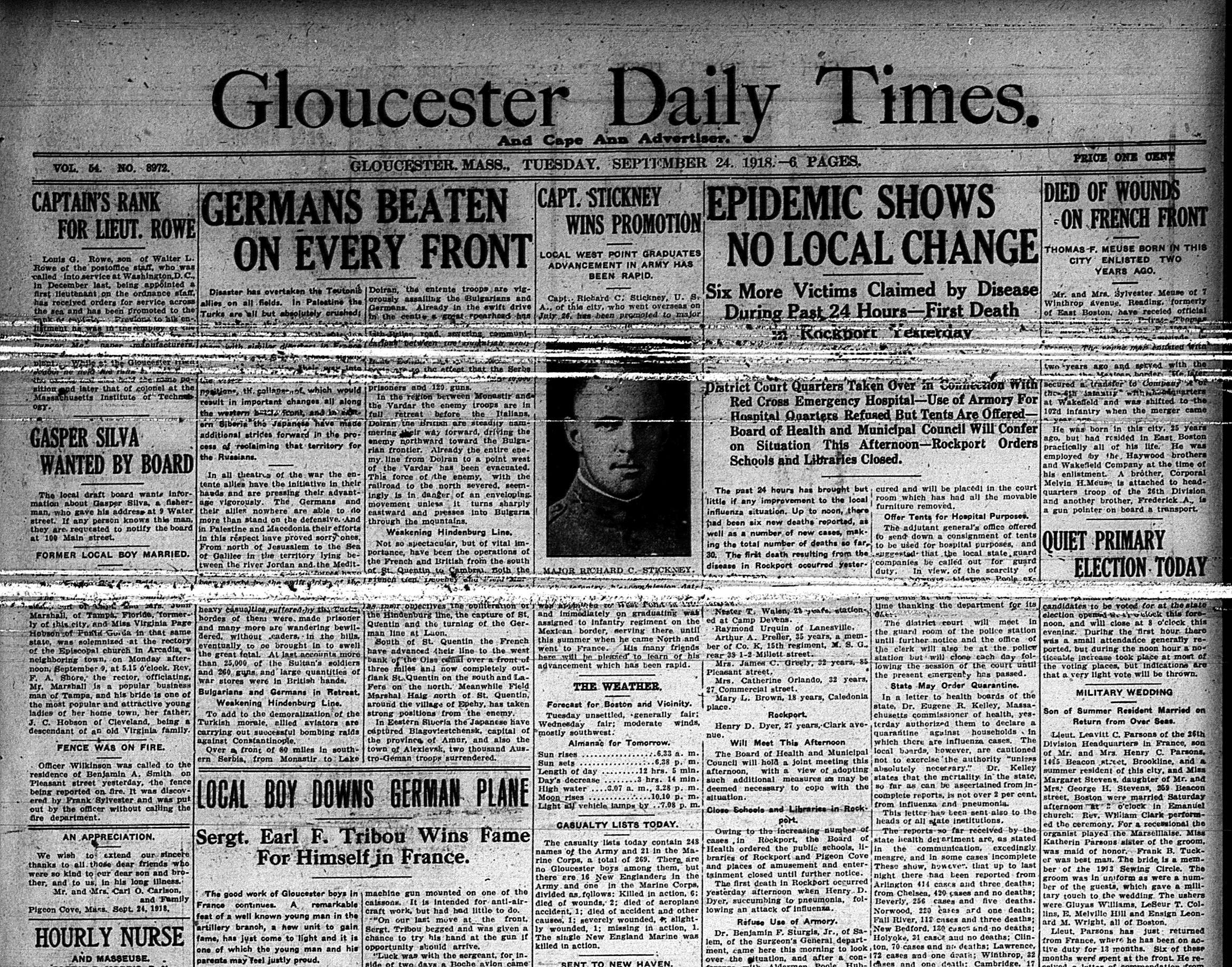
Front page Epidemic Shows No Local Change: Six More Victims Claimed by Disease During Past 24 Hours- First Death in Rockport Yesterday. District Court Quarters taken over in connection with Red Cross Emergency Hospital- Use of Armory for Hospital Quarters Refused but Tents offered—Board of Health and Municipal Council Will Confer on Situation this Afternoon – Rockport Orders Schools and Libraries closed.
The past 24 hours has brought but little if any improvements to the local influenza situation. Up to noon, there had been six new deaths reported, as well as a number of new cases, making the total number of deaths so far 30. The first death resulting from the disease in Rockport occurred yesterday (…illegible…)
- Nester T. Walen, 23 years, stationed at Camp Devens
- Raymond Urquin of Lanesville.
- Arthur A. Prelier, 35 years, a member of Co. K., 15th regiment, M.S.G. rear, 33 1-2 Millett Street
- Mrs. James C. Greely, 32 years, 35 pleasant Street
- Mary L. Brown, 18 years, Caledonia Place.
- Rockport: Henry D. Dyer, 27 years, Clark Avenue.
Will Meet This Afternoon
The Board of Health and Municipal Council will hold a joint meeting this afternoon, with a view of adopting such additional measures as may be deemed necessary to cope with the situation.
Close Schools and Libraries in Rockport
Owning to the increasing number of cases, in Rockport, the Board of Health ordered the public schools, libraries of Rockport and Pigeon Cove and places of amusement and entertainment closed until further notice. The first death in Rockport occurred yesterday afternoon when Henry D. Dyer, succumbing to pneumonia, following an attack of influenza.
Refuse Use of Armory
Dr. Benjamin F. Sturgis, Jr., of Salem, of the Surgeon’s General department, came here this morning to look over the situation and after a conference with Aldermen Poole, Hubbard and Andrews of the Municipal Council, inspected the present Red Cross Emergency Hospital and then looked over the state armory. Dr. Sturgis founds the latter place ideal for the purposed and arrangements were being made to transfer the local hospital to the armory when a request for its use was refused by the adjutant general’s office according to the city officials. Plans were then made for enlarging the present hospital and the entire second floor occupied by the district court offices was turned over to the Red Cross by Judge Sumner D. York for use for hospital purposes. Some 30 more beds and cots have been secured and will be placed in the court room which has had all the movable furniture removed.
Offer Tents for Hospital Purposes
The adjutant general’s office offered to send down a consignment of tents to be used for hospital purposes, and suggested that the local state guard companies be called out for guard duty. In view of the scarcity of ….alderman Poole time thanking the department for its offer. The district court will meet in the guard room of the police station until further notice and the office of the clerk will also be at the police station but will closed each day following the session of the court until the present emergency has passed.
State May Order Quarantine
In a letter to health boards of the state, Dr. Eugene R. Kelley, Massachusetts commissioner of health, yesterday authorized them to declare a quarantine against households in which there are influenza cases. The local boards, however, are cautioned not to exercise the authority “unless absolutely necessary.” Dr. Kelley states that the mortality in the state, so far as can be ascertained from incomplete reports, is not over 2 per cent from influenza and pneumonia. This letter has been sent also to the heads of all state institutions. The reports so far received by the state health department are, as stated in the communication, exceedingly meager, and in some cases incomplete. These show, however, that up to last night there had been reported from Arlington 414 cases and three deaths; from Chelsea, 420 cases and no deaths; Beverly, 256 cases and five deaths; Norwood, 220 cases and one death; Fall River, 117 cases and three deaths; New Bedford 130 cases and no deaths; Holyoke, 31 cases and no deaths; Clinton 70 cases and no deaths; Winthrop, 22 cases and one death; Cambridge 17 cases and seven deaths.
Ban at Quincy on Public Funerals
In order to stamp out in the shortest possible time the influenza epidemic now raging in Quincy, the Board of Health, at a special meeting yesterday afternoon, voted to prohibit any more public funerals until after the epidemic has subsided. Undertakers were notified that bodies must be closed up in caskets as soon as they are prepared for burial, and that caskets must not be opened in the cemeteries. The board also voted to request the members of families where the influenza exists, or where a death from the disease has occurred, not to visit other persons unnecessarily. In conformance with the ruling of Mayor Whiton issued last night, all public amusement places were closed last night. As a result of this closing up of the amusement places Quincy presented a somber appearance last night and a great part of the traffic consisted of ambulances and undertakers’ wagons.
Lieut. L. M. Stowe, U.S.N., the Naval surgeon who was made medical officer of the Quincy district yesterday, put in a hard day yesterday, mapping out a plan of systemic work. He has under his command a corps of physicians, nurses and hospital orderlies, besides chauffeurs for ambulance work. Lieut. Stowe said last night.
Boston Deaths yesterday 74
Seventy-four deaths from influenza and 14 pneumonia were reported at the health department yesterday, which was the highest number recorded there since the broncho-pulmonary wave began. This was 25 deaths more than Sunday. (Illegible) The school committee as it mentioned last night, considered the situation in conference, and gave out this statement: “The conditions today do not seem to warrant the closing of the schools because of the prevailing epidemic.” As conditions warrant, the committee will take appropriate action. The sickness in the school s is not abnormal.
Devens has 10,700 Influenza Cases
The war department yesterday announced that up to noon today 2225 new cases of influenza has been reported by telegraph by camp surgeons from the various army camps. This brought the total of cases reported so far to 20,211. “The epidemic continues most severe at Camp Devens Mass. Says the report. The total number of cases reported from this camp to date is 10,700. Camp Dix NJ with 1870 earns (illegible) the number of pneumonia cases is high 424 new cases having been reported during the past four days. For the previous two weeks the average number of cases per week was 45. The total number of influenza cases by camps is as follows: Greene, 1; Logan, 175; McClellan, 11; Sevier, 2; Syracuse, 596; Devens, 10,700; Dix 1897; Funston, 181; Gordon, 419; Grant, 70; Humphreys, 209; Jackson, 794; J.E. Johnston, 14; Lee, 1819; Lewis, 50; Meade, 222; Pike, 1; Sherman, 1; Taylor, 87; Travis, 37; Upton, 1141; Newport News, 28; Hoboken, 1417; Cola, Pa., 32; Edgewood arsenal, 188, and miscellaneous posts, 11.
Five Deaths in Chelsea
Influenza and the resulting pneumonia caused five deaths in Chelsea yesterday and made necessary the closing of St. Rose’s Parochial School.
Brockton Closes Schools
In an effort to check the spread of influenza, which has caused 24 deaths since Saturday, Brockton health officials yesterday closed the schools and took other preventative measures. So many new cases were reported that hospital accommodations were exhausted.
Two Deaths at Waltham
Two more deaths from influenza were reported at the Waltham hospital yesterday, which brings the total up to 16 in four days.
Schools Close in Everett
Front page Quiet Primary Election Today
(illegible) candidates to be voted for at the state election opened at 11 o’clock this forenoon, and will close at 8 o’clock this evening. During the first hour there was a small attendance generally reported, but during the noon hour a noticeable increase too place at most of the voting places, but indications are that a very light vote will be thrown.
Front pageGermans are Beaten on Every Front
Front page Local Boy Down German Plane: Sergt. [sic] Earl F. Tribon Wins Fame for Himself in France
Front page Died of Wounds on French Front Thomas F. Meuse (Reading, MA.) Born in this City Enlisted Two Years Ago
Inside pagePersonal Mention
The friends of Alfred I Lufkin janitor the Sawyer School will be sorry to hear he is ill with the grip.
Inside page Notices Deaths and Funeral
Wednesday, September 25, 1918

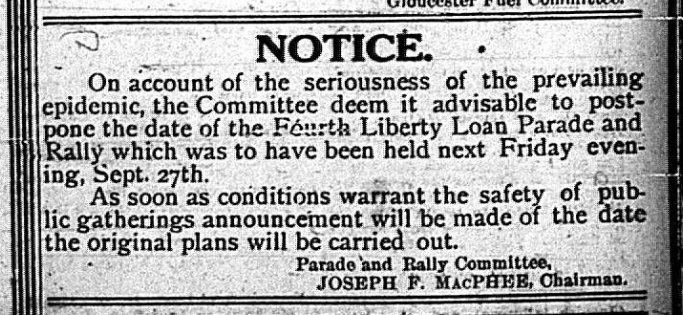
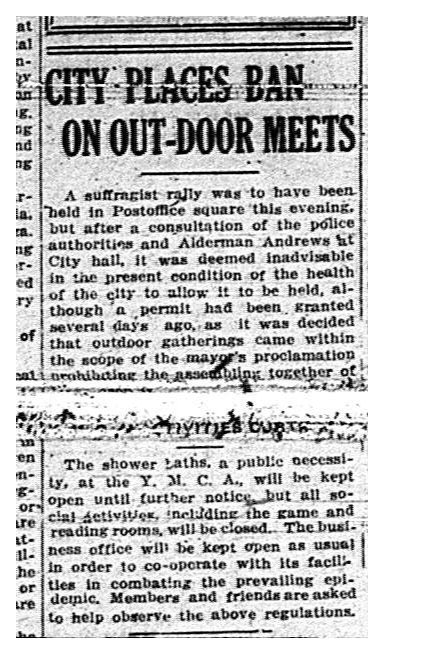
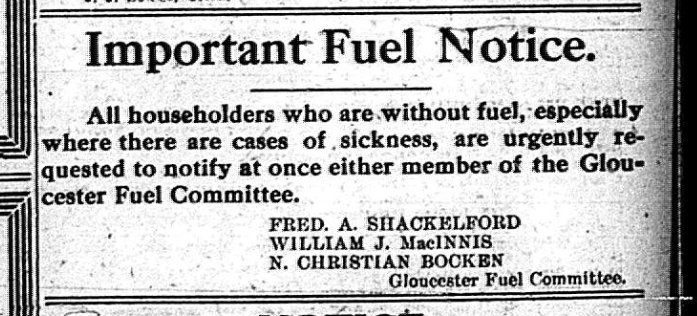
Front pageInfluenza Adds to its Long Toll: Eleven Victims Since Yesterday’s Report—Red Cross Hospital Extended—Health Board Seeks Use of New Armory in Present Grave Emergency
With a record of 11 more deaths and numerous new cases, another 24 hours has dragged by and there is still no improvement in the influenza epidemic situation. Doctors and nurses are badly needed and this morning members of the Board of Health with Senator Brown and Alderman Poole of the Municipal Council went to Boston for a conference with Gov. McCall and the Surgeon-General at the State House with reference to the local situation, and to urge the taking over of the Armory for hospital purposes.
The total number of deaths to date is 41 and the condition of a number of patients is regarded as serious. (illegible)
- (illegible)
- Frank DeMarco (tailor on East Main Street East Gloucester) (illegible) 78 Maplewood avenue
- Joseph LeClar (no more info)
- Mrs. Elizabeth E. LaFond, 27 years, 64 Western avenue
- Howard E. Swinson, 28 years, 6 Rowe square
- Mrs. Elisabetta Lucido
- Bartlett Gillie, 39 years, 55 Mansfield Street (funeral at 54 Centennial Drive)
- William H. Bentley, 27 years, 58 Duncan Street
- Mrs. Mary Maud Carlson, 28 years, 159 East Main Street
- Mrs. Chester F. Griffin, 30 years, 8 Porter Street
At Camp Colt, Gettysburg, Pa.
- James E. MacDonald, 29 years, 112 Maplewood Avenue
Another Floor for Hospital
The situation has grown worse at the Red Cross Emergency Hospital which is now even outgrowing the enlarged quarters made yesterday by taking over the district court room on the second floor of the police building. The convalescing patients are being cared for now on the second floor and those more seriously ill are being cared for at the old armory. This morning the hospital was caring for 48 patients, two pneumonia, one bronchial and the rest influenza. Nine patients were admitted yesterday during the period between yesterday afternoon and this morning and two passed away, William H. Bentley and Mary Lafley.
Local Board Takes Action on Return of Questionnaires (registering for draft)
(illegible) entrants are sick or there is sickness in their families, the time limit of seven days for the return of the questionnaires will be extended, and all registrants, either sick themselves or with sickness in their families, are hereby notified that they must not attempt to have their questionnaires filled out, nor mail or take them to the office of the local board until they or sick members of their homes are completely cured of the disease. The local board has also notified the adjutant general that until the sickness is under control, they deem it inadvisable to hold any physical examinations.
Schooner Adeline Prostrated
Schooner Adleine, one of the Portuguese fresh haddocking fleet, is tied up with 10 men sick. Nine of them went to their homes while the 10th one was (illegible) the hospital. The police station has had no (illegible)and this morning there were at least a dozen or more in various parts of the city. Dr. A.A. Haig of Essex who has rendered valuable assistance in the present emergency was here quite early again today to visit the sick. Officer John Wilson brought in a child about seven or eight years old that he found at the post office who was quite sick. He had been sent on an errand by his mother and was taken to his home on Harbor Terrace.
Government May Have To Act
With the mortality toll from broncho-pneumonia still high in Massachusetts yesterday, it was learned that the United States Department of health at Washington is likely to take other supervision of the grip situation throughout Massachusetts in a day or two as a war measure.
Gov. McCall, after telephonic conversation (illegible) members of the Massachusetts health safety committee, issued a proclamation urging the authorities “seriously to consider the closing of all theaters, schools, churches and places where the public congregate in large numbers until the abatement of the epidemic. “
Won’t You Volunteer
Among those doing some splendid work in the present crisis are the nurses of the Gloucester District Nursing Association. They are in great need of transportation facilities in order to cover the ground necessary and the use of a number of automobiles is needed. Arthur J. Grimes and William A. Bolger have voluntarily devoted their entire time to taking the nurses from house to house. Undoubtedly a lot of people will be willing to help in this urgent cause and volunteers can secure a schedule by calling 605.
Front page obit Many Mourn at Driggers Funeral**at parents’ home 1 Horton Street Rocky Neck**
The funeral of James S. Driggers Jr took place yesterday afternoon at 2 o’clock from the residence of his parents, 1 Horton Street, Rocky Neck, East Gloucester, relatives and friends attending. The services, though simple (illegible) S. Madsen, Ph.D., pastor of the Trinity Congregational Church of (illegible) The remained, were surrounded by beautiful tokens of sympathy and esteem. The interment was in Mount Pleasant Cemetery and the pall bearers were William D. Brotherton, Kenneth Webber, Henry O’Maley, Milton Trevoy, Stanley Gillie and _____ all classmates of the deceased, of the Gloucester High class, 1918.
Front page City Places Ban on Out-door Meets
A suffragist rally was to have been held in Postoffice square this evening, but after a consultation of the police authorities and Alderman Andrews at City Hall, it was deemed inadvisable in the present condition of the health of the city to allow it to be held, although a permit had been granted several days ago, as it was decided that outdoor gatherings came within the scope of the mayor’s proclamation prohibiting the assembling together (ineligible)
Front page Notice Important Fuel Notice esp. for those where there are cases of sickness
Front page Notice Postpone rally and fourth liberty loan parade
Front page Primary Vote Here Hit Hard by Influenza- Caucus Balloting Lightest on record (ineligible)For Representative Nomination—Only One Socialist Vote Cast—City Went for Coolidge, Long, Cox, Ingraham, Wells, Atwill, All of Whom Were Winners- Good Native Son Vote for Burke.
The primaries yesterday drew out a very small vote locally, a total of only 696 votes being polled, of which 600 were for the Republican nominees, 95 for the Democratic nominees and one lone socialist. Two Surprises featured the local situation, the defeat of (illegible) utter collapse of the Socialist party which in previous years has at times made quite a respectable local showing, but which yesterday was represented by a single vote.
Front page Notice Gray’s Lending library closed
Inside page East Gloucester column
- Dr. Arthur S. Torrey (164 East Main) and Dr. Charles M. Quimby (1 Highland) are able to resume practice after being confined by the prevailing distemper.
- George Douglass (35 Mt. Pleasant Ave) is seriously ill with the Spanish influenza at the home of his wife’s relatives in Essex.(see Bertram Goodwin)
- Mrs. Roy Parsons (Clarendon Street), who is at the Red Cross Emergency Hospital with the prevailing distemper is somewhat improved.
- Edward Marble of 6 Davis Street was taken ill yesterday.
- Mrs. J. T. Moulton is able to be out a while each day after her illness.
- Paul B. Oakley is recovering from his illness of the prevailing distemper.
- Miss Gertrude Silva, daughter of Mr.(fisherman) and Mrs. Antoine Silva of 9 Davis Street is ill with the distemper.
- Mrs. James McCurdy is improving nicely from her severe illness of influenza and pneumonia at her home on Rocky Neck (10-1/2 Clarendon, Rocky Neck)
Inside page, p.6 Bad Conditions at the Fort
Officers Cronin and Harry Foster were detailed to investigate conditions at the “Fort” section this morning, and submitted a report to police headquarters that was something fearful. The report went into details and cited terrible conditions that were found in nearly all the houses regarding the outbuildings and cesspools. All kinds of filth were found in the yards and two catch basins were reported full and giving out a bad stench. In several instances cesspools were found emptying on Pavilion beach above the high water mark or above a medium high water mark. The report was submitted to Inspector Curtis and will probably be turned over to the Board of Health for immediate action.
Inside page 6 obit Death Notices
Mrs. Chester H. Dennen Passed Away: Second in Family to Succumb to Dread Malady
Mrs. Ella L. (Putnam), wife of Chester H. Dennen, whose death from pneumonia resulting from an attack of influenza took place this forenoon, was the second member of her family to succumb to the dread disease, she being half-sister of James. S. Driggers Jr. who died on Sunday at his home on 1 Horton Street, Rock Neck. **author note:a beloved proof reader at the GDT—why not on front page?**
Died at Camp Colt | Private James E. McDonald Was a Victim of Pneumonia (he entered the services July 15)
Mrs. Mary Maud (Jedrey) wife of Charles R. Carlson, died at her home 159 East Main Street, East Gloucester yesterday (9/24) of the prevailing distemper of Spanish influenza and pneumonia. The case is very pathetic one as the deceased gave birth to a little daughter on Monday and the mother did not rally. The child is living. “Funeral from her late home, 159 East Main Street.
Death of mary Lillian Brown died at the home of her parents Caldedonia Place, East Gloucester, Tuesday after a short illness of Spanish influenza.
Nestor T. Walen, aged 23 years, who died at the Red Cross Emergency hospital yesterday after an illness of the prevailing distemper was born in East Gloucester, the son of Ralph W. and Alice A. (parsons) Walen. Before his going to Camp Devens about four months ago, he was employed by the Gloucester Salt Fish company at Rocky Neck. The deceased resided at 33-1/2 Millet street. Funeral at the Rocky Neck chapel. **author note: Third death in family and 2nd in immediate family**
Inside page 6 Personal mentions
- Chester L. Curtis Gloucester National Bank teller recovering
- Mayor recovering
SEPTEMBER 25, 1918 FEDERAL GOVERNMENT LIKELY TO TAKE CHARGE IN MASSACHUSETTS
“With the mortality toll from broncho-pneumonia still high in Massachusetts yesterday, it was learned that the United States department of health at Washington is likely to take other supervision of the grip situation throughout Massachusetts in a day or two as a war measure.
Thursday, September 26, 1918


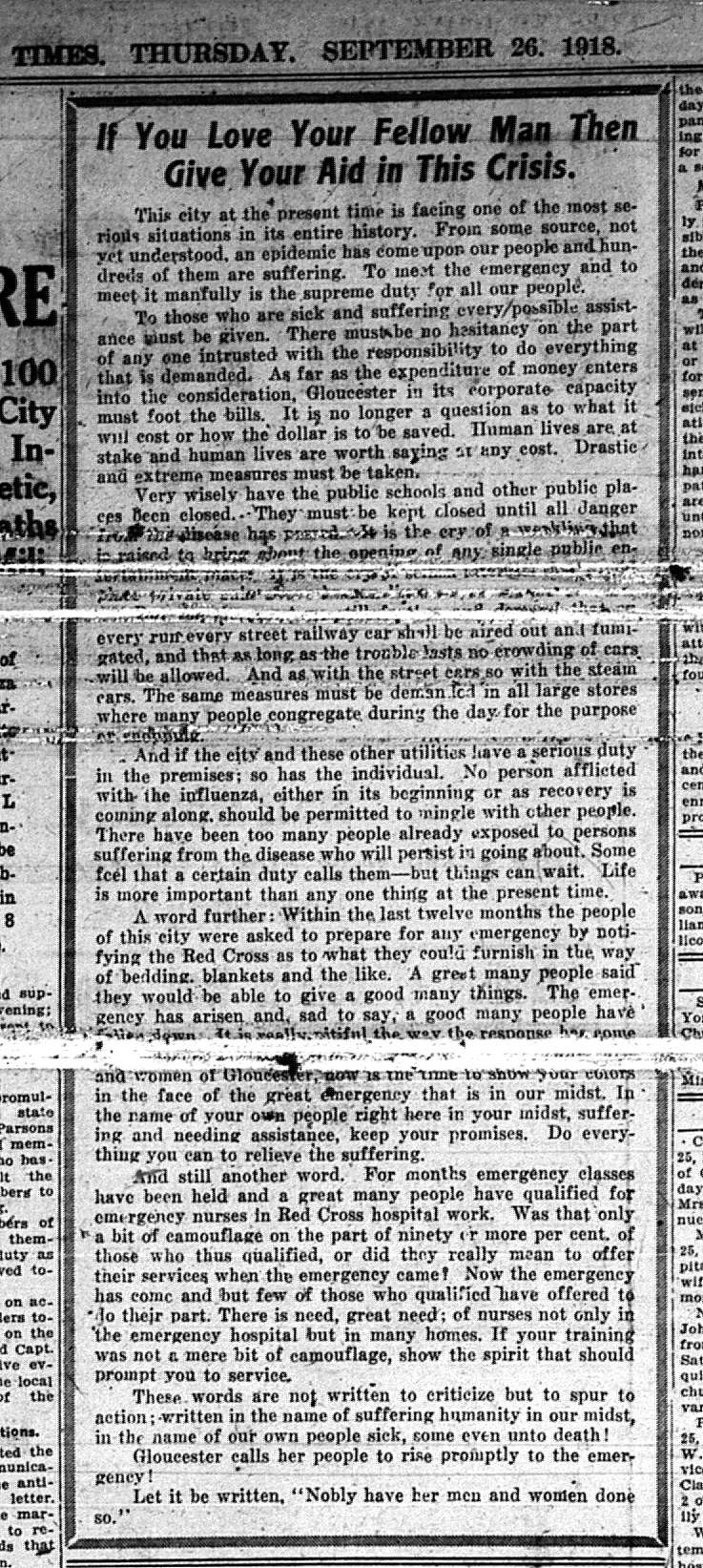



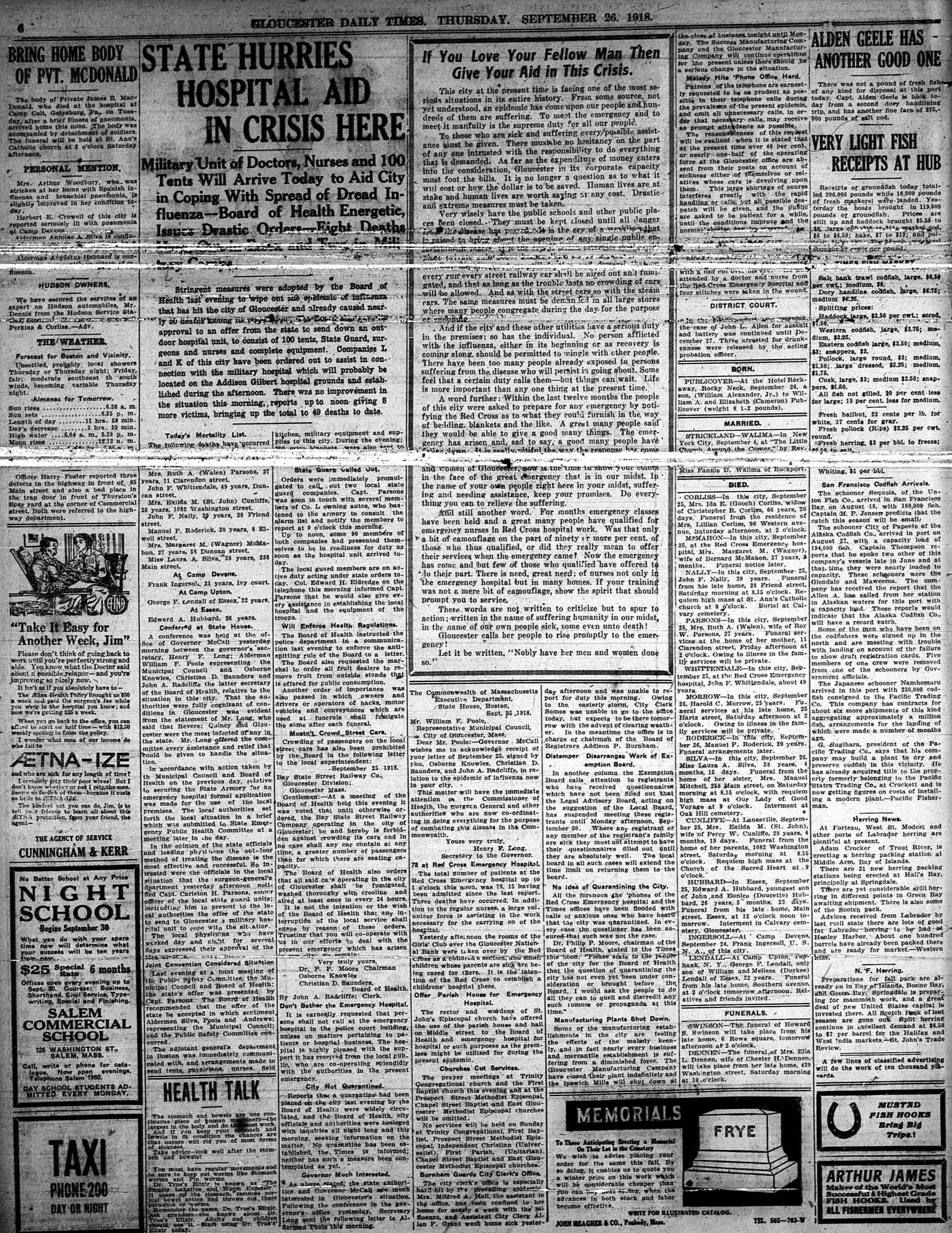

Front page obit The Fourth Victim in One Family (Walen): Mrs. Ruth A. Parsons is dead of the Prevailing Malady
The death of Mrs. Ruth A. (Walen) Parsons has cast a deep shadow of gloom over the Rocky Neck neighborhood and all the friends of the young woman, she having passed away at the Red Cross Emergency hospital last evening. The deceased (illegible) which has died of the fearful malady (illegible) The deceased had been ill a little over a week, following the death of her nephew, Letter Carrier Sherman R. Walen. Since that time, her sister, Miss Martha E. Walen died and was buried on Tuesday. The death of another nephew, Nester T. Walen, the second son of Mr. and Mrs. Ralph W. Walen, occurred Tuesday, his funeral taking place from Giles Chapel Rocky Neck today. The deceased also has another brother critically ill with (illegible) The deceased was the youngest (illegible) employee of the Gloucester Water Department. She possessed a pleasant disposition and won friends wherever she went. The deceased leaves behind her husband and a little son, Winship Parsons, her parents, Mr. and Mrs. William Walen, four brothers, Ralph W., James C., Kirk E. Edward M and Chester N. Walen, and two sisters, Mrs. Jennie, wife of James E. McCurdy, Mrs. Annie, wife of N. (illegible)
Front page Notice: Employers of State Guard
You are hereby urgently requested to see that members of the Massachusetts State Guard in your employ are allowed to attend their public duties without loss of pay. Compliance with this request will be greatly appreciated. – Gloucester Public Safety Commission
Front page Notice of thanks for family of deceased William O’Brien **paper is filled with thank you for condolences in coming days**
Inside page 6 State Hurries Hospital Aid in Crisis Here Military Unit Military unit of Doctors, Nurses and 100 Tents Will Arrive Today to Aid City in Coping with Spread of Dread Influenza—Board of Health Energetic, Issues Drastic Order- Eight Deaths and Tents for Military Camps
Stringent measures were adopted by the Board of Health last evening to wipe out the epidemic of influenza that has hit the city of Gloucester and already caused nearly 50 deaths among its (illegible) approval to an offer from the state to send down an outdoor hospital unit, to consist of 100 tents, State Guard, surgeons and nurses and complete equipment. Companies L and K of this city have been ordered out to assist in connection with the military hospital which will probably be located on the Addison Gilbert hospital grounds and established during the afternoon. There was no improvement in the situation this morning, reports up to noon giving 8 more victims, bringing up the total to 49 deaths to date.
Today’s Mortality List
- (illegible)
- Mrs. Ruth A. (Walen) Parsons, 27 years, 11 Clarendon Street
- John F. Whittendale, 49 years, Duncan Street
- Mrs. Exilda M. (St. John) Cunliffe, 28 years, 1082 Washington Street
- John F. Nally, 39 years, 28 Friend Street
- Manuel P. Roderick, 20 years, 8 Elwell Street
- Mrs. Margaret M. (Wagner)McMahon, 27 years, 53 Duncan Street
- Miss Laura A. Silva, 38 years, 238 Main Street
At Camp Devens
- Frank Ingersol, 21 years, Ivy Court
At Camp Upton
- George F. Lendall of Essex, 32 years
At Essex
- Edward A. Hubbard, 26 years
Conference at State House
A conference was held at the office of Governor McCall yesterday morning between the governor’s secretary, Henry F. Long; Alderman William F. Poole representing the Municipal Council and Osborne Knowles, Christian D. Saunders and John a Radcliffe, the latter secretary of the Board of Health, relative to the situation in the city. That the authorities were fully cognizant of conditions in Gloucester was evident from the statement of Mr. Long, who said that Revere; Quincy and Gloucester were the most infected of any in the state. Mr. Long offered the committee every assistance and relief that could be given to handle the situation.
In accordance with action taken by the Municipal Council and Board of Health on the previous day, relative to securing the State Armory for an emergency hospital formal application was made for the use of the local premises. The local authorities set forth the local situation in a brief which was submitted to State Emergency Public Health Committee at a meeting later in the day.
In the opinion of state officials and leading physicians the out-door method of treating the disease is the most effective and successful. So interested were the officials in the local situation that the surgeon-general’s department yesterday afternoon notified Capt. Carleton H. Parsons, senior officer of the local state guard units; instructing him to present to the local authorities the offer of the state to send to Gloucester a military hospital unit to cope with the situation. The local physicians who have worked day and night for several days expressed their approval of the idea (illegible).
Joint Convention Considered Situation
Last evening at a joint meeting of the Public Safety Committee, the Municipal Council and Board of Health: the state’s offer was presented by Capt. Parsons. The Board of Health recommended that the offer of the state be accepted in which sentiment Aldermen Silva, Poole and Andrews; representing the Municipal Council and the Public Safety Committee concurred. The adjutant general’s department in Boston was immediately communicated with, and arrangements made to send tents, physicians, nurses field kitchen, military equipment and supplies to this city. During the evening; (illegible)
State Guard Called Out
Orders were immediately promulgated to call out two local state guard companies. Capt. Parsons was soon in touch with several members of Co. L owning autos, who hastened to the armory to consult the alarm list and notify the members to report at 9 o’clock this morning.
Up to noon, some 90 members of both companies had presented themselves to be in readiness for duty as soon as the hospital unit arrived today. The local guard members are on active duty acting under state orders today. Col. Edward H. Eldredge on the telephone this morning informed Capt. Parsons that he would also give every assistance in establishing the local hospital and the equipment of the troops.
Will Enforce Health Regulations
The Board of Health instructed the police department in a communication last evening to enforce the anti-spitting rule of the Board to a letter. The board also requested the marshal to order all fruit dealers to remove fruit from outside stands that is offered for public consumption. Another order of importance was also passed in which owners and drivers or operators of hacks, motor vehicles and conveyances which are used at funerals should fumigate the same after each funeral.
Mustn’t Crowd Street Cars
Crowding of passengers on the local street cars has also been prohibited by the Board in the following letter to the local superintendent:
Sept. 15, 1918
Gentlemen- At a meeting of the Board of Health held this evening it was voted that until otherwise ordered the Bay State Street Railway Company operating in the city of Gloucester; be and hereby is forbidden against crowding its cars and in no case shall any car contain at any time a greater number of passengers than for which there are seating capacity. The Board of Health also orders that all said cars operating in the city of Gloucester shall be fumigated, washed thoroughly with creoline and aired at least once in every 24 hours. It is not the intention of the Board of Health that any interruption of the local service shall ensue by reason of these orders. Trusting that you will co-operate with us in our efforts to deal with the present emergency which has arisen in our city.
Bay State Street Railway Co., Gloucester Division , published 9/26/1918
It is earnestly requested that persons shall not call at the emergency hospital in the police court building, unless on matters pertaining to patients or hospital business. The hospital is highly pleased with the support it has received from the local public, who are co-operating splendidly with the authorities in the present emergency.
City NOT Quarantined
Reports that a quarantine had been placed on the city last evening by the Board of Health were widely circulated and the Board of Health, city officials and authorities were besieged with inquiries all night long and this morning seeking information on the matter. No quarantine has been established, the Times is informed; neither has such a measure been contemplated yet.
Governor Much Interested
As above stated, the state authorities and Governor McCall are much interested in Gloucester’s situation. Following the conference in the governor’s office yesterday, Secretary Long sent the following letter to Alderman Poole this morning:
Sept 25, 1918
Mr. William F. Poole, Representative Municipal Council, City of Gloucester, Mass.Dear Mr. Poole- Governor McCall wishes me to acknowledge receipt of your letter of September 25, signed by you, Osborne Knowles, Christian D. Saunders, and John A. Radcliffe, in relation to the epidemic of influenza now in your city. This matter will have the immediate attention of the Commissioner of Health, the Surgeon General and other authorities who are no coordinating in doing everything for the purpose of combating this disease in the Commonwealth.
Yours Very truly
Henry F. Long, Sect. to the Governor.
78 at Red Cross Hospital
The total number of patients at the Red Cross Emergency Hospital up to 1 o’clock this noon, was 78, 15 having been admitted since the last report. Three deaths have occurred. In addition to the regular nurses, a large volunteer force is assisting in the work necessary for the carrying on of the hospital. Yesterday afternoon the rooms of the Girls’ club over the Gloucester National Bank* were taken over by the Red Cross as a children’s section, after small children whose parents are sick are being cared for there. It is the intention of the Red Cross to establish a children’s hospital there.
Offer Parish House for Emergency Hospital
The rector and wardens of St. John’s Episcopal Church have offered the use of the parish house and hall on Middle Street to the Board of Health and emergency hospital for hospital or such purposes as the premises might be utilized for during the present epidemic.
Churches cut Services
The prayer meetings at Trinity Congregational church and the First Baptist church this evening and at the Prospect Street Methodist Episcopal, Chapel Street Baptist and East Gloucester Methodist Episcopal churches will be omitted. No services will be held on Sunday at Trinity, First Baptist, Prospect, UU, First Parish, Unitarian Chapel Street Baptist and East Gloucester Methodist Episcopal churches.
Burnham Guards City Clerk’s Office
The City Clerk’s office is especially hard hit by the prevailing epidemic. Mrs. Mildred A. Hall the assistant in the office has been confined to her home for nearly a week with the influenza and Assistant City Clerk Allen F. Grant went home sick yesterday afternoon and was unable to report for duty this morning. Owing to the easterly storm, City Clerk Somes was unable to go to the office today, but expects to be there tomorrow with the advent of clearing weather. In the meantime the office is in charge of chairman of the board of registrars Addison P. Burnham.
Distemper Disarranges Work of (War) Exemption Board
In another column the Exemption Board calls attention to registrants who have received questionnaires which have not been filled out that the Legal Advisory Board, acting on the suggestion of the local Board has suspended meeting these registrants until Monday afternoon, September 20. Where any registrant or any member of the registrant’s family are sick they must not attempt to have their questionnaires filled out until they are absolutely well. The local board in all such cases will extended the time limit on returning them to the board.
Manufacturing Plant Shut Down
Some of the manufacturing establishments in the city are feeling the effects of the malady keenly, and in fact nearly every business and mercantile establishment is suffering from a diminished force. The Gloucester Manufacturing Company have closed their plant indefinitely and the Ipswich Mills will shut down at the close of business tonight until Monday. The Success Manufacturing Company and the Gloucester Manufacturing Company will continue operations for the present unless there should be a serious change in the situation.
Malady Hits Phone Office Hard
Patrons of the telephone are earnestly requested to be as prudent as possible in their telephone calls during the prevalence of the present epidemic, and omit all unnecessary calls, in order that necessary calls may receive as prompt attendance as possible. The reasonableness of this request will be realized when it is stated that at the present time over 40 per cent or nearly one-half of the operating force at the Gloucester office are absent from their posts on account of sickness either of themselves or relatives whose care is devolving upon them. This large shortage of course interferes greatly with the rapid handling of calls, but all possible dispatch will be given, and the public are asked to be patient for a while until the conditions improve and the normal (illegible)
Inside page, 6 Massachusetts Surg. Gen. Brooks’ Advice for Treatment of Grippe Patients
(**author note: Gloucester officials met with and endorsed the state Surgeon general Guidelines**)
Message from William A. Brooks, Massachusetts Surgeon General 9/26/1918
In view of the scarcity of physicians and nurses the following suggestions were issued last night by the State Department of Health. They are the personal comments of Surgeon General William A. Brooks and at the meeting of district health officers were unanimously endorsed:
- The worst cases come from places where the ventilation has been the poorest.
- Fresh air and sunshine will do more than anything else.
- If there is no sunshine then give the patient all the fresh air possible.
- Putting more than two cases in one room must be avoided as much as possible.
- The feet of the patient must be kept warm.
- The use of the paper pneumonia jacket is highly recommended.
- The temperature should run normal for at least three or four days before the patient is allowed to sit up.
- In many cases the diagnosis of pneumonia can be made from the sputum before there are well marked signs in the chest.
- No one should be allowed to come near the patient without having a mask on.
- Force the feeding of every patient. Feed often and give hot drinks.
- Convalescence should be carefully watched.
- Every case with fever and with a marked cough should be treated as pneumonia.
- A great many of the cases of pneumonia can be cured. A certain number are hopeless from the start.
- A patient may come down suddenly or may be ailing for three or four days.
- There is one form of bacilli–pneumococci—types 1 and 111 hemolytic streptococcus.
· For protection of nurses and doctors the following rules are laid down:
- No one should go near any patient without gauze over the mouth and nose. A wire mask with gauze inside of it is preferred.
- The gauze should be changed frequently. At least every two hours. Before eating, the hands should be carefully washed.
- The hands should never be put to the mouth after handling a patient or anything about a patient.
- The feet should be kept warm. Thick shoes should be worn.
- Nurses and doctors should eat frequently.
- On the theory that the cutting down of sugar and fats has reduced the natural resistance, a little should be eaten each day.
- The use of irritating sprays and gargles should be discouraged.
- Every nurse and doctor should insist on at least seven hours sleep out of 24.
- In hospitals there should be an inspector of masks who should see to it that gauze is changed frequently.
- The bowels must be kept open every day.
- At least six or eight glasses of water should be taken every 24 hours.
Inside page, p.6 op ed Inside If you Love your Fellow Man Then Give Your Aid in this Crisis
IF YOU LOVE YOUR FELLOW MAN THEN GIVE YOUR AID IN THIS CRISIS.
This city at the present time is facing one of the most serious situations in its entire history. From some source, not yet understood, an epidemic has come upon our people and hundreds of them are suffering. To meet the emergency and to meet it manfully is the supreme duty for all our people.
To those who are sick and suffering every possible assistance must be given. There must be no hesitancy on the part of any one entrusted with the responsibility to do everything that is demanded. As far as the expenditure of money enters in the consideration, Gloucester in its corporate capacity must foot the bills. It is no longer a question as to what it will cost or how the dollar is to be saved. Human lives are at stake and human lives are worth saving at any cost. Drastic and extreme measures must be taken.
Very wisely have the public schools and other public places been closed. They must be kept closed until all danger from the disease has passed. It is the cry of a weakling that is raised to bring about the opening of any single public entertainment (illegible) every run every street railway car shall be aired out and fumigated, and that as long as the trouble lasts no crowding of cars will be allowed. And as with the street cars, so with the steam cars. The same measures must be demanded in all large stores where many people congregate during the day for the purpose of enduring.
And if the city and these other utilities have a serious duty in the premises; so has the individual. No person afflicted with the influenza, either in its beginning or as recovery is coming along, should be permitted to mingle with other people. There have been too many people already exposed to persons suffering from the disease who will persist in going about. Life is more important than any one thing at present time.
A word further: Within the last twelve months the people of this city were asked to prepare for any emergency by notifying the Red Cross as to what they could furnish in the way of bedding, blankets and the like. A great many people said they would be able to give a good many things. The emergency has arisen and, sad to say, a good many people have fallen down. It is really pitiful the way the response by some (illegible)and women of Gloucester, now is the time to show your colors in the face of the great emergency that is in our midst. In the name of your own people right here in your midst, suffering and needing assistance, keep your promises. Do everything you can to relieve the suffering.
And still another word. For months emergency classes have been held and a great many people have qualified for emergency nurses in Red Cross hospital work. Was that only a bit of camouflage on the part of ninety or more per cent, of those who thus qualified, or did they really mean to offer their services when the emergency came! Now the emergency has come and but few of those who qualified have offered to do their part. There is need, great need; of nurses not only in the emergency hospital but in many homes. If your training was not a mere bit of camouflage, show the spirit that should prompt you to service.
These words are not written to criticize but to spur to action; written in the name of suffering humanity in our midst, in the name of our own people sick, some even unto death!
Gloucester calls her people to rise promptly to the emergency!
Let it be written, “Nobly have her men and women done so.”
Gloucester Daily Times Op Ed 9/27/1918
Inside page,6 obit death notice Sister of Alderman Silva: Miss Laura A. Silva Was Ill But Five Days
Miss Laura A. Silva, sister of Alderman Antoine A. Silva, passed away this morning at the residence of her sister, Mrs. Manuel Mitchell, 258 Main Street, with whom she made her home, at the age of 38 years, her death resulting from pneumonia following an attack of the prevailing influenza, after an illness of only five days. She has recently returned from a six month stay in California, where she was visiting another sister, Mrs. Theresa Evanoff. She was a native of this city, her parents being Loring and Nancy (Perry) Silva. She was a woman of quiet and unassuming disposition, but enjoyed the friendship of a large circle of relatives and friends. She is survived by three brothers and six sisters. Her funeral will take place at the homer of her sister with requiem high mass at the Church of our Lady of Good Voyage.
Inside page p.6 Prevalent in 23 States: More Cases in Massachusetts than in all other States Combined
Spanish influenza is prevalent in practically all sections of the United States, 23 states from New Hampshire to California and from Florida to the State of Washington are experiencing the mysterious disease, according to official reports received by telegraph by the United States Public Health Service. These reports, the first authoritative statements compiled for the service, reveal that serious epidemics have developed in some sections, while only scattering cases have been discovered in other places.
Massachusetts has more cases than all other states combined, but Dr. Rupert Blue, the surgeon general, expressed the fear that epidemics will develop within a few days in states where few persons have been found to be ill. The disease is exceptionally severe along the Atlantic seaboard. This is especially true of military and naval camps, where influenza is spreading very rapidly. Officials are afraid that it will be impossible to stop the disease from sweeping through the camps.
New England has been hit exceptionally hard by the disease and health authorities are somewhat disturbed by the number of fatalities. While the Federal officers have received no official reports of the disease appearing in Maine, they have received unofficial statements that it is prevalent in some sections. The health officer for New Hampshire reports that influenza has been discovered in several localities, and a telegram from Vermont says the disease is prevalent in many parts of the state. The report from Massachusetts includes the already large total, adding that the total for Camp Devens alone has advanced to 11,000. Rhode Island health officials say several (illegible) the disease. Connecticut reports an outbreak in New London and 2000 new cases in eastern and southern sections.
New York has escaped so far except for scattering cases. The disease is prevalent in New Jersey, especially at Camp Dix. Wherever camps and cantonments are located the influenza has spread more rapidly than in civilian communities. A severe epidemic has developed in Philadelphia. Only a few cases, with one death have been reported in the District of Columbia, but the disease is epidemic in various parts of Virginia. Epidemics are in progress at Newport News, Norfolk, and Portsmouth and at Camp Lee. West Virginia has only a few cases. Epidemics have developed in Raleigh and Wilmington, and in the military camps in North Carolina. The disease has appeared at several places in South Carolina. In Georgia, August reported six new cases yesterday while Macon reported several. A severe epidemic has been raging in Key West, Fla., but yesterday’s report said it is believed to be on the decline. A few cases have been reported in Louisville, Ky. Other states from which official reports have been received include California, Illinois, Kansas, Louisiana, Montana, South Dakota, Texas, and Washington. The disease has appeared in Chicago and its vicinity. Thirty (illegible) Five counties in Texas have reported cases. Thirteen new cases (illegible) Generally speaking, the disease scattering in the Western states but it spreads so rapidly once it starts that the health authorities are afraid it soon will become epidemic.
The officials not only are following developments at home but are sure studying conditions abroad. Dr. Blue received a cable message from London today saying that a large epidemic has developed in London. So far as officials are able to determine, the spread of the disease has not been nearly as rapid as in 1889, when it occurred in America almost simultaneously with its appearance in Western Europe. In the absence of a clean-cut symptomatology, distinct from that of other diseases, it is most difficult to make a diagnosis in individual cases. It is likewise impossible for the official to assert or deny the unity of this epidemic (illegible) Officials are showing exceptional care (illegible) in the past fortnight points to human contact being the means of spreading. From local symptoms it has been assumed that the nose and throat have been the points of inoculation. No development indicates that animals have any part in carrying the disease. Influenza spreads much more easily in winter than in summer. Coming, as it has, in early in the fall, experts are hopeful that the disease which appears quickly will spend itself out before the real cold weather comes. It may continue until spring.
Endicott releases comprehensive details about public meeting bans during the influenza epidemic
Henry B. Endicott, Mass. Emergency Public Health Committee on Banning Public Gatherings
“…There are undoubtedly towns and cities in the Commonwealth from which the influenza has not been reported, but of course we must face the fact that the chances are very much in favor of the spread of the disease. I urge such communities to assume their part of the common responsibility, and to act as if they were already in the midst of the epidemic. The doctors and nurses of Massachusetts who are devoting themselves to the care of the sick in this emergency are all heroes and heroines, and many of them have paid the penalty. Not one of them, as far as I am aware, has shirked in any way; they have overworked; they are without sleep—yet, still they go on. Massachusetts can never repay its debt to this noble band of men and women. We are using every effort, both through the government and outside the State to get additional help for these people…Cancellation of the Liberty loan meetings…It will never be said of Massachusetts that she was so immersed in her own private troubles that she for one moment failed to heed the Nation’s call to practical service. Massachusetts must and will do her part.”
9/25/1918 published in the GDT 9/26/1918
Federal guidelines, Division of Sanitation circular 9/26/1918
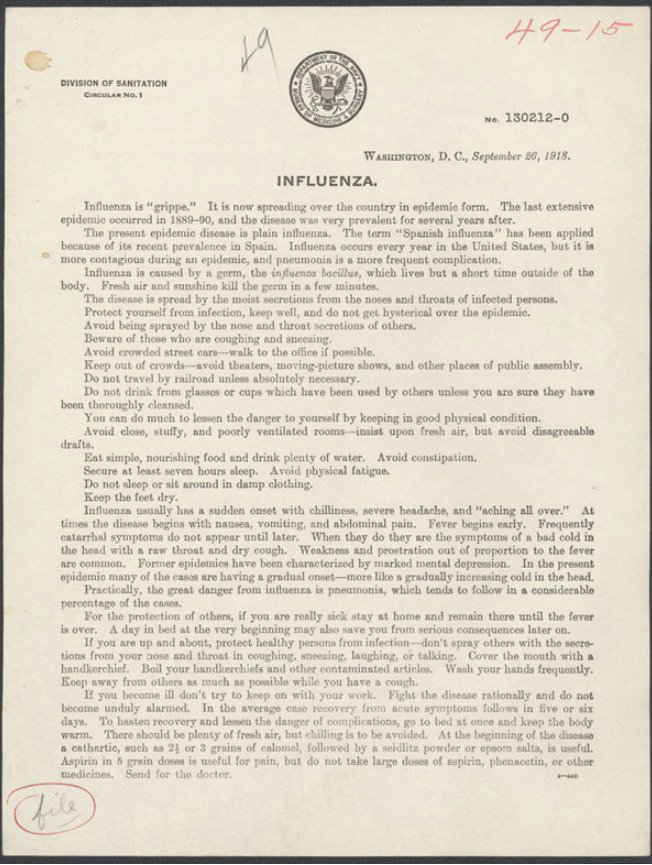
Friday, September 27, 1918
**author note: No flu news on the GDT local front page, but a LOT going on at the two week mark of epidemic**
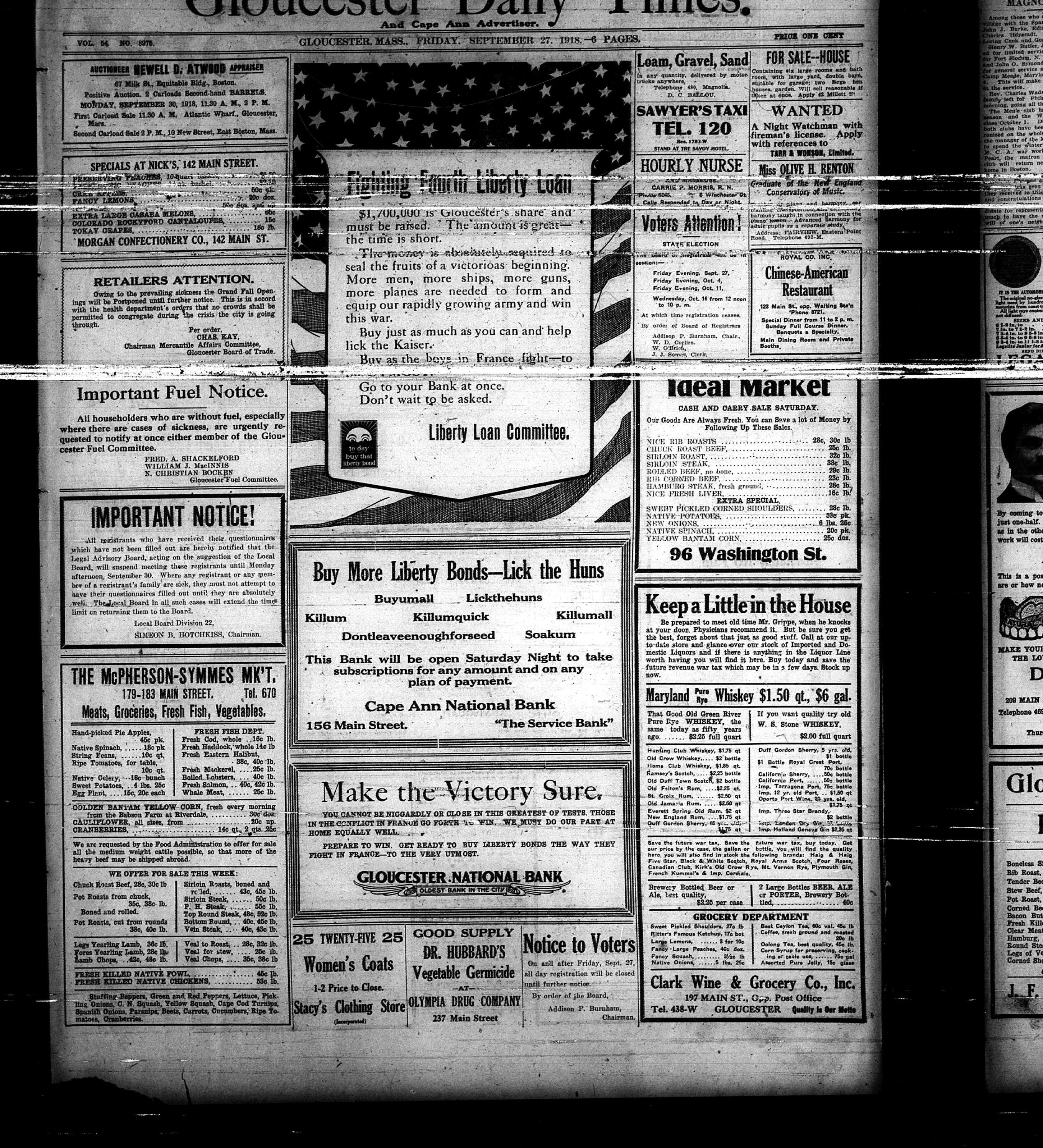


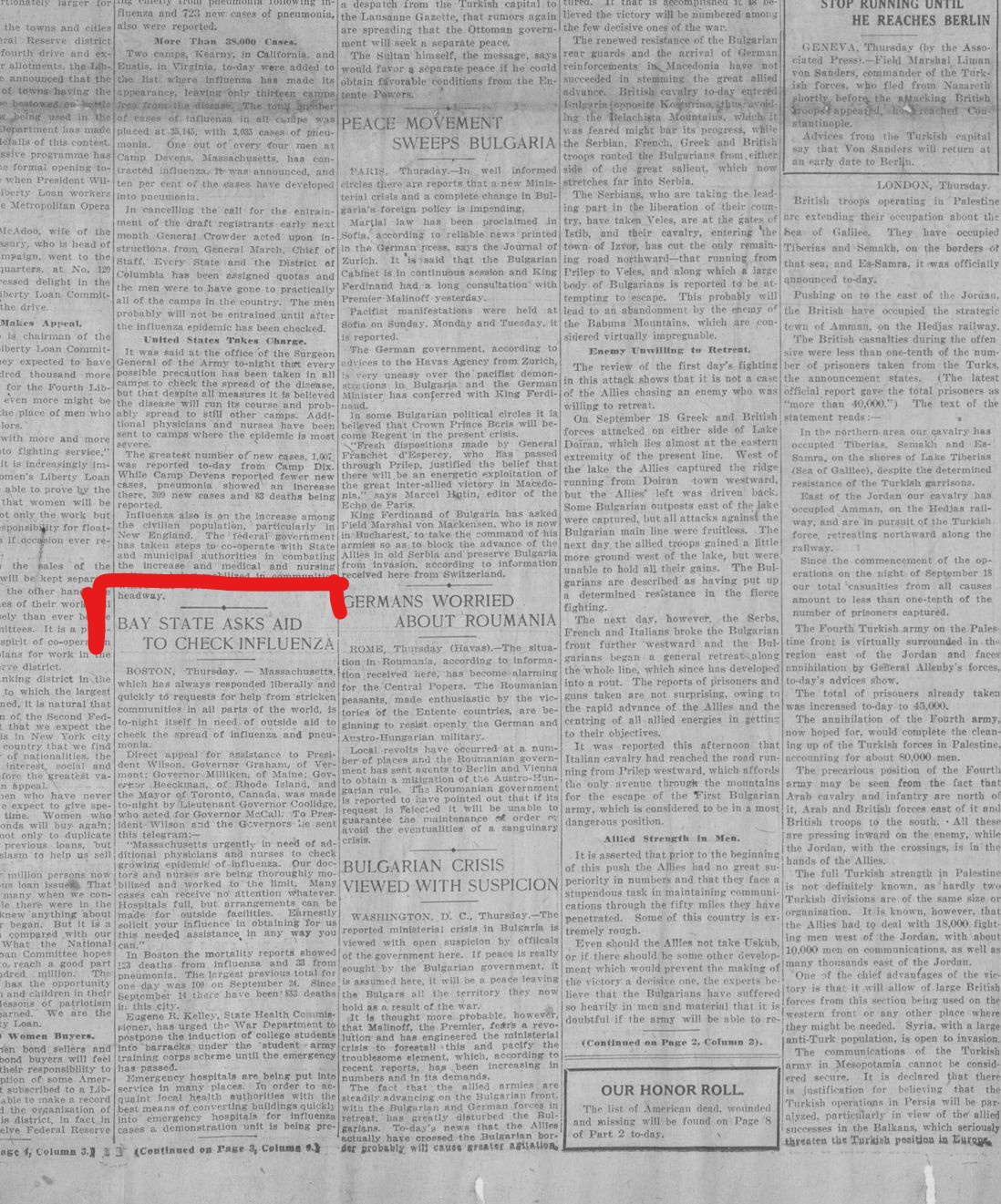
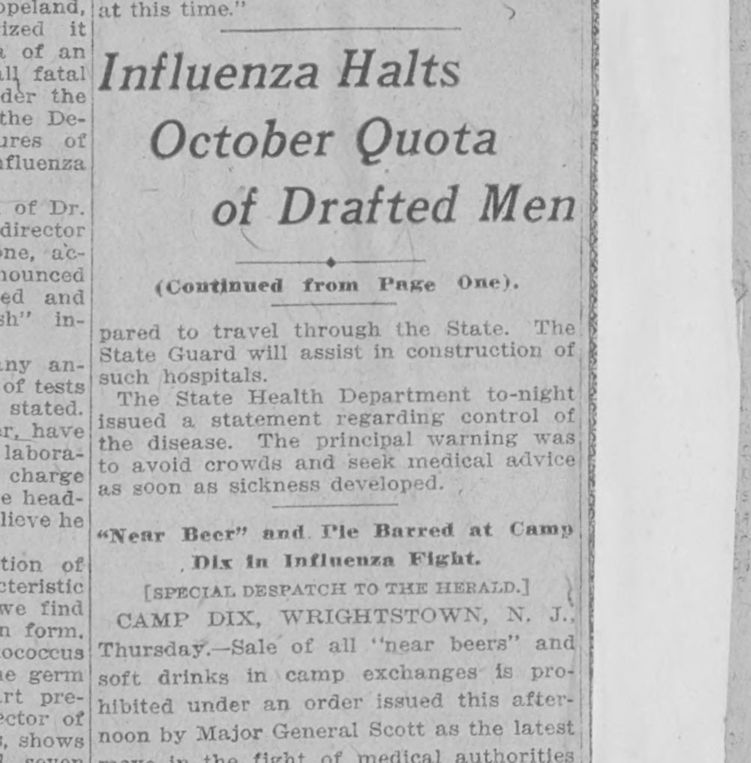
Inside page City tries to shake off pall of influenza. Bright sunshine after depressing downpour of yesterday tends to make situation brighter—Deaths recorded today number five—State Military Unit established on Gilbert Hospital Grounds—Health Board issues drastic orders—Splendid cooperation of all able to help.
With the advent of better weather and a restoration of the confidence of the people through the establishment of a military hospital unit to relieve the overworked Gloucester physicians and nurses, and the Red Cross emergency hospital workers, there appeared to be a slight change for the better in the influenza epidemic situation today. However, even with this encouraging news, there is no occasion for a let up of the most stringent precautionary measure that have been taken for a complete stamping out of the pestilence.
The Deaths of the DayThe following deaths have occurred since yesterday:
- Anthoncy C. Costa, 26 years, Friend Street
- Charles Barker, 44 years, 13 Traylor street
- (illegible)
- (illegible)
Died on Wednesday
- Miss Jennie A. Googin, 23 years, of Norwood, Bass Rocks
At Essex
- Chester W. Walen, 33 years of East Gloucester (at his in-laws)
At Camp Upton, Yaphank, NY
- Harold E. Oakes, 27 years, Eastern Avenue
Gloucester is receiving all the help possible from outside sources and a fine military field hospital has been established on the grounds of the Addison Gilbert Hospital for giving the best possible attention to 100 patients. The death list is smaller than yesterday, only four deaths being reported up to noon. There was one Wednesday that has just been reported, making the total 54 since the epidemic started two weeks ago.
Precautionary Measures Taken
Additional precautionary measures have been taken by the Board of Health, among them the cleaning up of several bad spots in the city, including the “Fort” district. Orders have been issued to milk dealers to deliver no more milk in bottles to householders where there is sickness. This can be overcome by the family having a pitcher or other receptacle for the milkman to pour the milk into on his arrival.
Plan to handle city by districts- home nurse facilities
In order to get a coordination of all the home nurse facilities, there was a conference between the Board of Health, Red Cross and District Nursing authorities this forenoon. The officers of the District Nursing Association over the Gloucester National Bank have been selected for a headquarters for this purpose. The Board of Public Health Dispensary has been closed and the nurse, Miss (illegible) Board of Health requests that all calls for nurses and physicians be sent to the District Nurse headquarters. Miss Wyles of the State Department of Health came here this morning and was accompanied by a nurse and they are helping out, working from the new headquarters. All nurses and organizations supplying volunteer nurses are requested to report at the District Nursing Association each morning for instruction.
Be sure and fumigate
The Board of Health has also recommended a thorough fumigation and cleansing of premises in all cases where there is influenza immediately on the recovery of the patient. Fumigators may be procured at the Board of Health office, City Hall, free of charge from 9-12 o’clock in the morning and from 2-5 in the afternoon.
The “Fort” situation was also taken up this morning and a complete clean-up of all rubbish in the back yards and on all the premises has been ordered. Carts will go through there this afternoon and Officer Cronin has been detailed to the district to see that the orders are carried out.
“Emergency” doing noble work
The Red Cross Emergency hospital reported this morning that the present number of patients was 66; that four had been admitted since the last report and that there was one death. The total number of patients to date looked after by the hospital has been 88.
Phone Service Hard hit
The local telephone office like exchanges in many other places has been hit quite hard by the epidemic and there are eight operators out. Three from the commercial department and several men in the plant department are also sick. Manger Rolfe is also ill.
Two Crews Ill
Sch. Pollyanna Capt. John G Stream: arrived today from Provincetown with the skipper and crew all sick. The Pollyanna laid for four days in Provincetown and then with conditions getting no better Capt. Stream gave up the trip and came home. The captain was taken to his home in a taxi and the other members of the crew were taken care of.
Sch. Arthur James: Capt. John Seavey; is another vessel that has returned from a seining trip with members of the crew ill.
Among the victims of the influenza
Among the victims of the influenza was Miss Jeannie A. Googins a school teacher of Norwood who was attacked while spending her vacation at Bass Rocks (author note: first Gloucester death reported at Bass Rocks) and who passed away on Wednesday. Her remains were sent to Norwood; where the funeral services and interment took place.
Hospital Unit Help
On account of severe weather, it was (illegible) toward establishing the military held hospital yesterday afternoon or last night. However, just as promised, the equipment came yesterday afternoon and last evening, the first truck load from the Quartermaster’s Department at Framingham arrived here at 5:50pm yesterday afternoon. Last evening others arrived despite the rain, although nothing could be done until this morning. Favorable conditions early this morning soon made the hospital grounds a hotbed of wonderful activity.
In a remarkably short space of time the tents were up and the unit well established, so that this afternoon it will be ready for patients. There are 100 tents for patients, each waterproof, provided with board floor, cot and other essentials for the proper care of the sick.


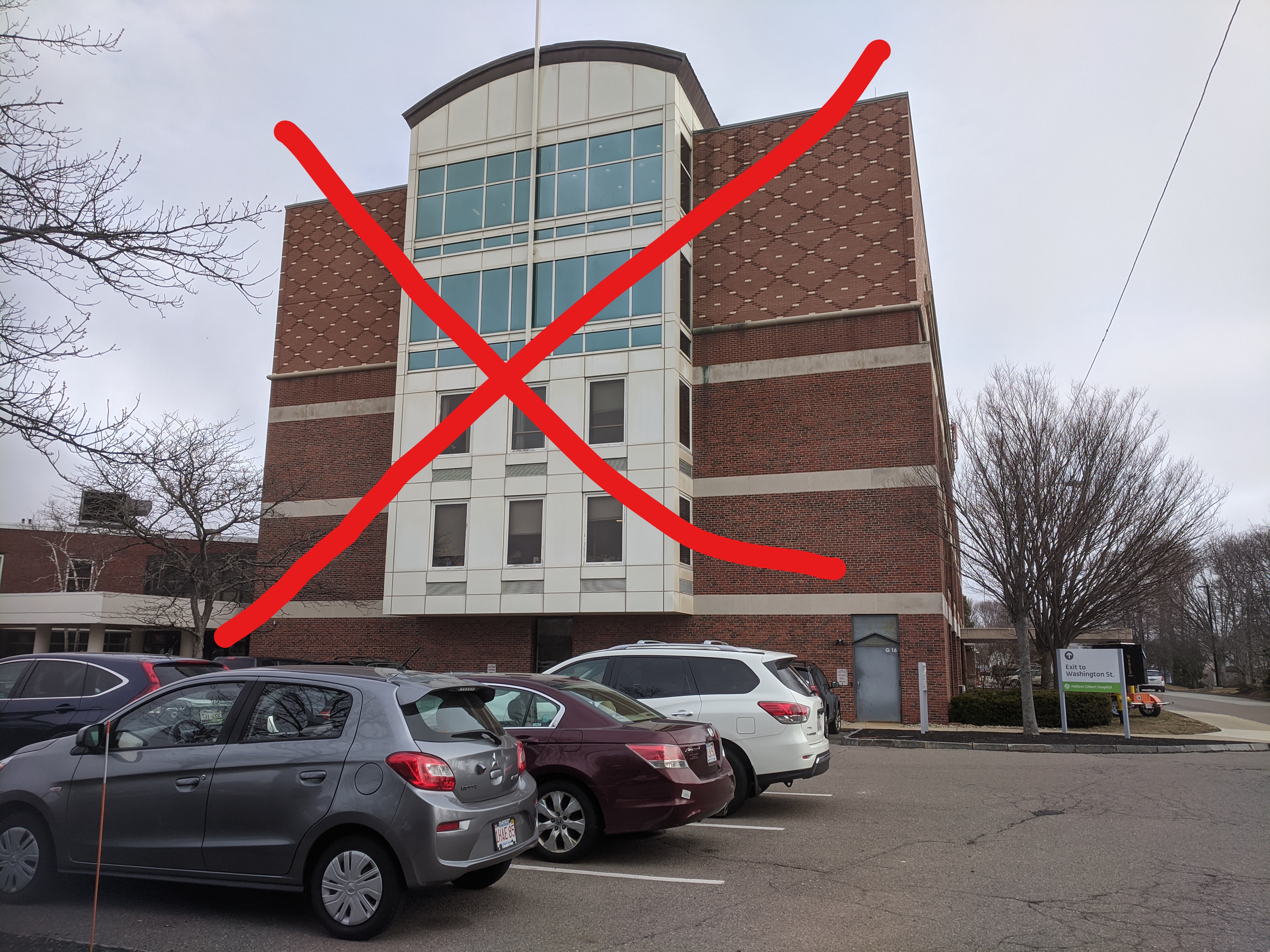
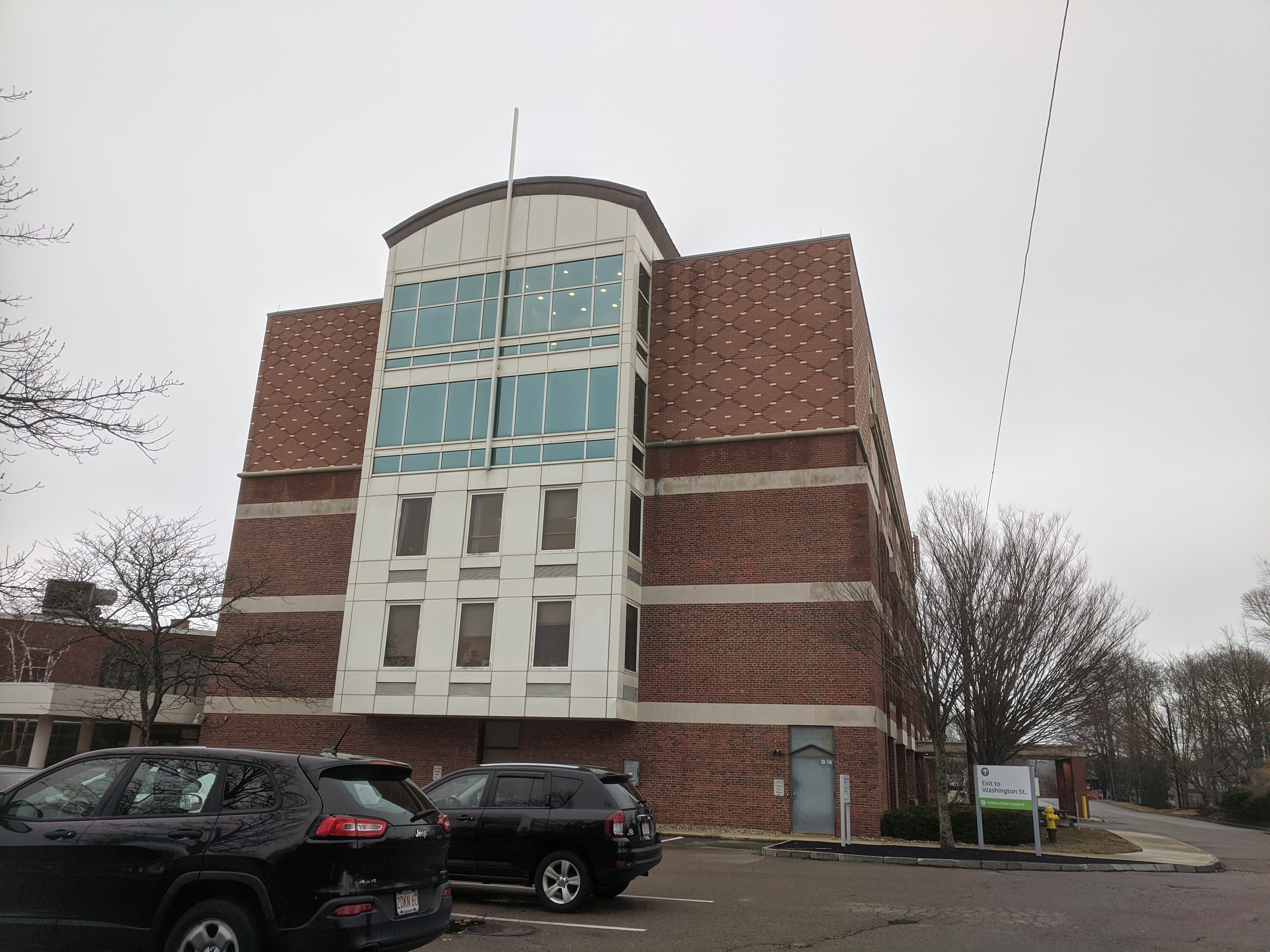

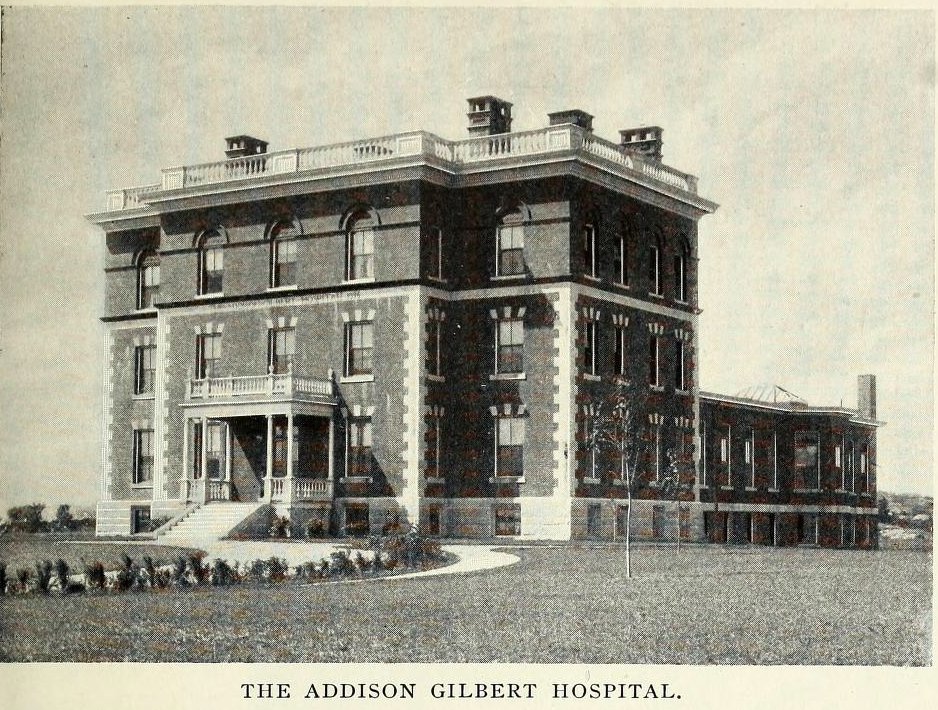
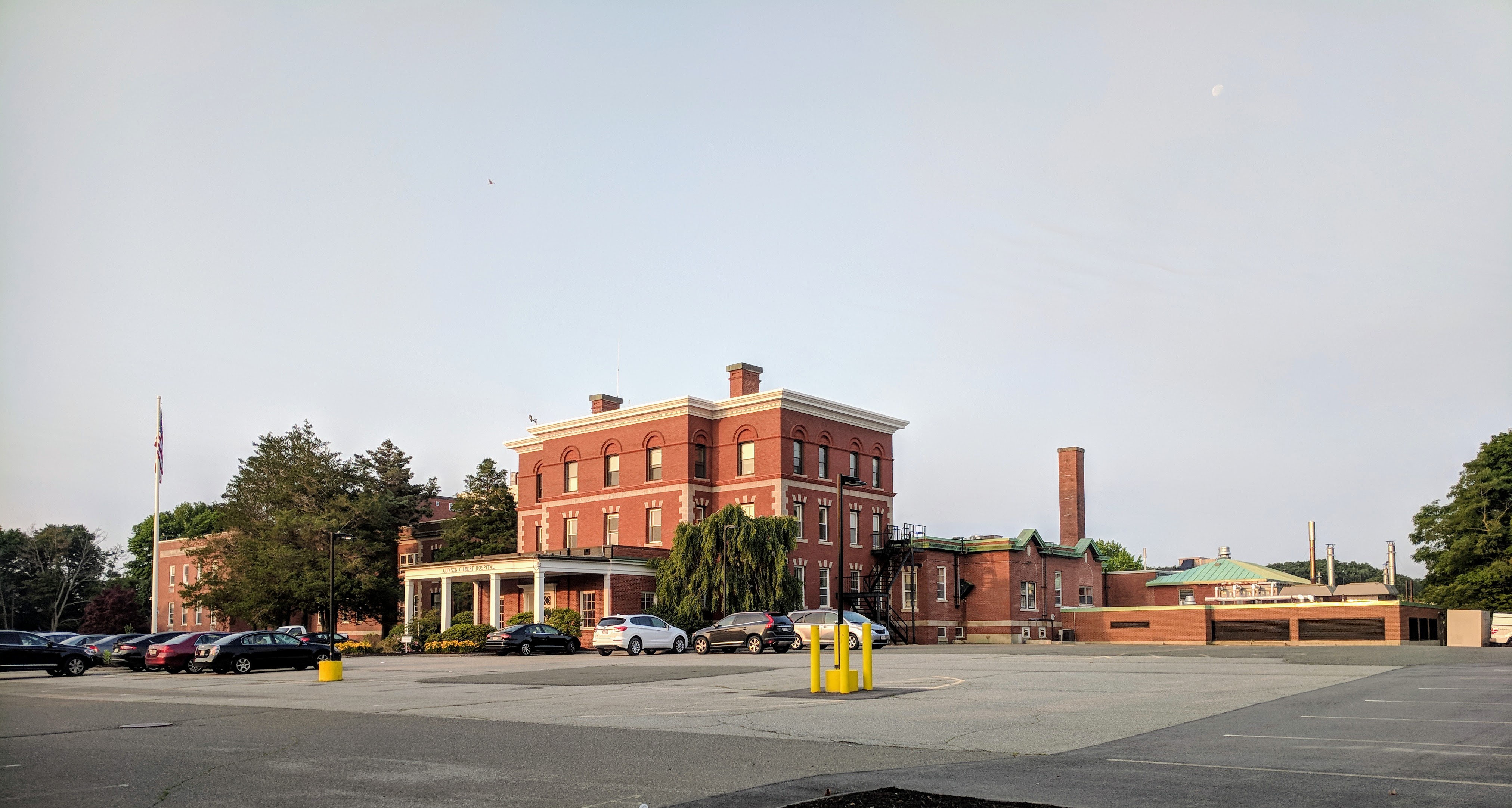

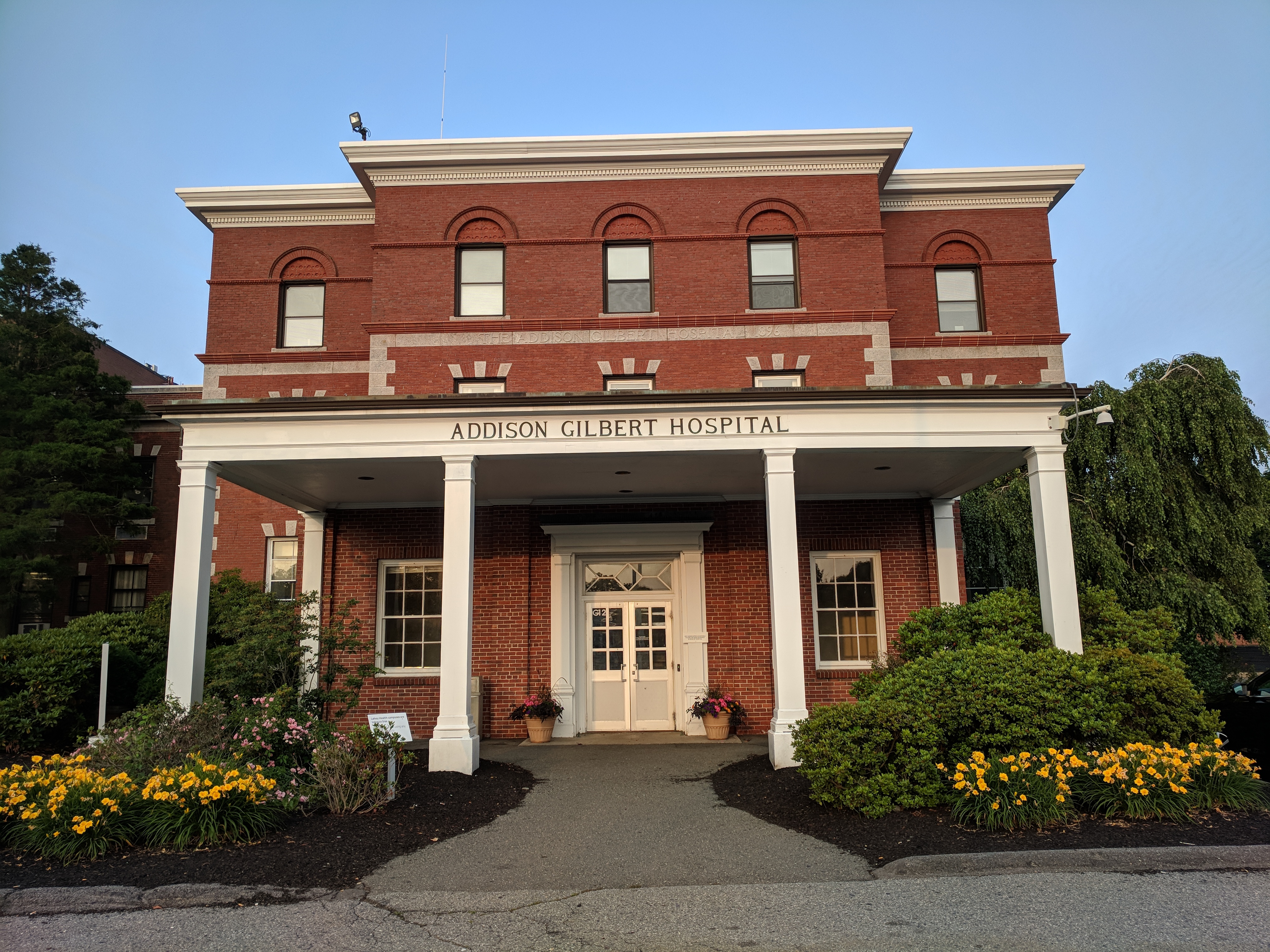

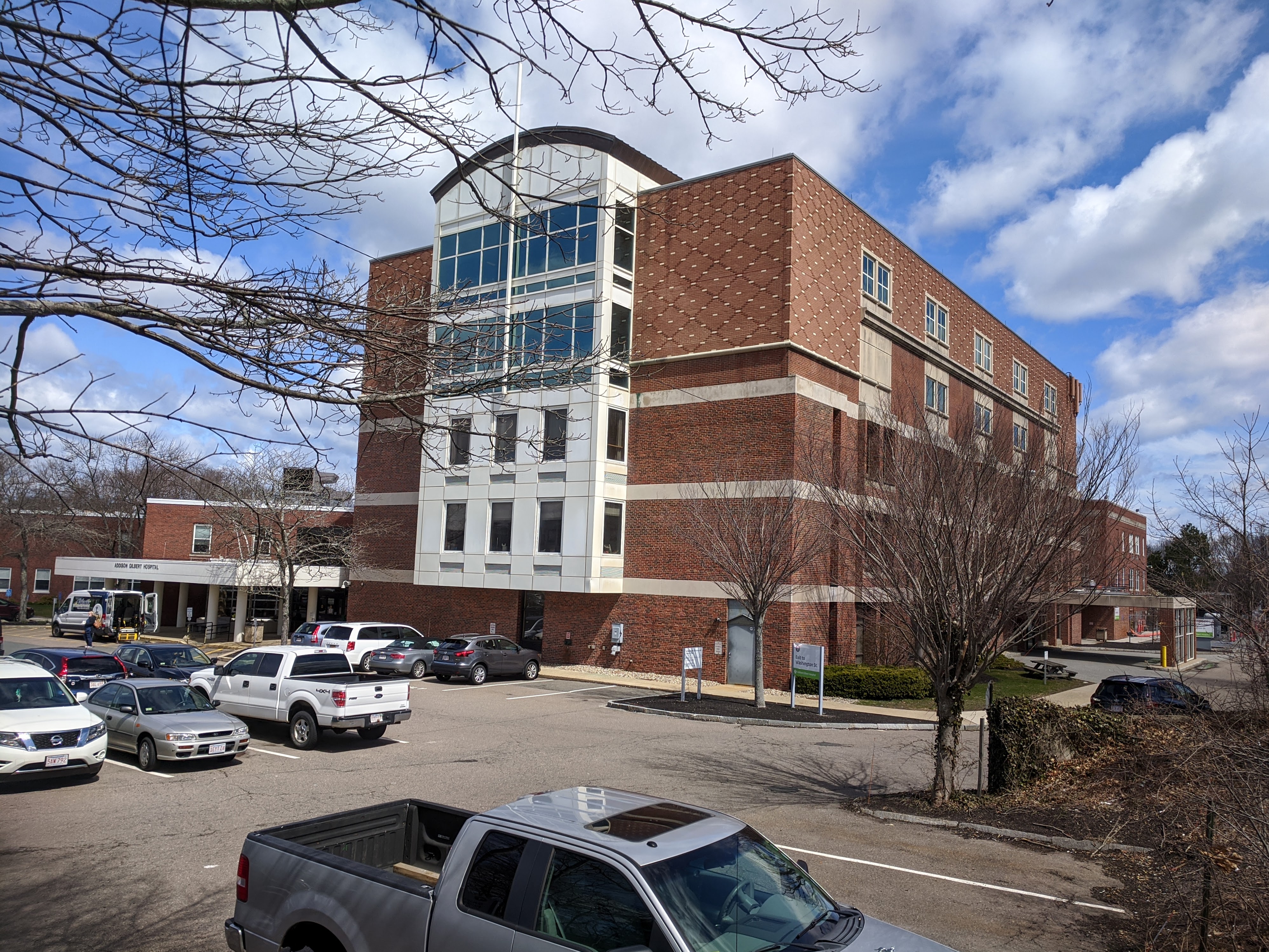
Addison Gilbert Hospital, Gloucester, Mass. then/now aa
Means Best of Care of Ill
There can be no doubt in the mind of anyone but what the best of care and medical attention will be furnished at the new emergency unit (illegible) Sturgis, prominent Salem physician is in command of the hospital section of the camp and 15 nurses of the State Guard will arrive this afternoon. Other physicians will also be located with the unit. Major Sturgis has been assisting here for several days and remained until late last evening when he was obliged to return to Salem to look after patients there. Five ambulances are also to come this afternoon.
State Guard Doing Good Duty
Both companies L and K of the State Guard of this city are to remain on active duty in connection with the camp and Capt. Carlton H. Parsons of company L is in command of the infantry section. The men are camped in tents far in the rear of the hospital detachment. Company L is in command of Lieut. Radcliffe and on account of the illness of Capt. John J. Burke, Company K is commanded by First Lieut. Charles T. Smith.
The Quartermaster-General, Lieut.-Col. Emery is here to superintend the bringing of supplies and the supply division is commanded by Lieut. Cole of Salem of the Supply Company 15th infantry. The latter and his assistants detailed for duty here by Col. Eldredge.
The basement of the nurses’ home has been taken for a supply depot. This morning lights, water, sewerage and latrines were quickly established for camp. There are six supply trucks here and they were kept on various active duties.
For the present, no one except the patients will be admitted to the camp. A guard has been thrown about the grounds for this purpose. An information and guard headquarters has been established near the entrance and the information depot will be in charge of Rev. Capt. Bertram D. Bolvin, chaplain of the 15th regiment.
Field kitchens and other supplies will be here this afternoon and after today the State Guardsmen will remain right at the grounds. This noon the men went to the armory for dinner.
State Calls for Help
An appeal to the President of the United States, the Governors of Vermont, Main and Rhode Island and the mayor of Toronto for the assistance of physicians and nurses from these places to fight the influenza epidemic here was made formally by Acting Gov. Coolidge by telegraph last night.
This was by far the most radical action of any official of the state so far taken in the fight to stamp out the wave of influenza and pneumonia, the mortality figures from which have gradually mounted in the past week since the spread of bronchial and pulmonary disease became a source of alarm to state and city officials.
Not since 1872, the year in which the Boston board of health was established at a time when an epidemic of smallpox was raging in this community, has the metropolis, or the state for that matter, been confronted with anything like the restrictions placed upon public and private institutions as are public and private institutions as are public and private institutions as are in vogue today with the official order for the closing of all theatres, moving picture houses, dance halls and public assembly rooms until October 6.
Telegrams Seeking Aid
Because of the prevalence of influenza and pneumonia in Connecticut and New Hampshire, Acting Governor Coolidge did not ask help of the Governors of those states in his telegraph appeal last night. His telegram to President Wilson, Gov. Horace F Graham of Vermont, Governor Carl E. Milliken of Maine and Gov. R. Livingston Beeckman of Rhode Island read:
“Massachusetts urgently in need of additional doctors and nurses to check growing epidemic of influenza. Our doctors and nurses are being thoroughly mobilized and worked to the limit. Many cases can receive no attention whatever. Hospitals are full, but arrangements can be made for outside facilities. Earnestly solicit your influence in obtaining for us this needed assistance in any way you can.”
Lt. Governor Coolidge urgent telegrams disseminated 9/26/1918
Inside page Lt. Gov. Coolidge’s telegram to the Mayor of Toronto
Inside page Card of Thanks
We the undersigned with to express our gratitude and thanks to all who assisted us in our recent bereavement in the loss of our wife and mother; also to thank all those who sent the beautiful flower offerings.
Inside page p. 6 East Gloucester column
No regular mid-week services will be held at the Chapel Street Baptist and Methodist Episcopal churches this evening on account of the prevailing epidemic. Mrs. Alphonso Davis is indisposed at her home on Mt. Pleasant. Arthur H. Stilphen is improving from his illness of the present epidemic. Joseph O’Maley who has been very ill with the prevailing distemper, at his home on Haskell Street, is improving.
Inside page p. 6 Fifth death in the Walen Family Chester N. (photographer) succumbed yesterday to dread influenza.
Charles N. Walen a young citizen of East Gloucester, well and favorably known, died in Essex, yesterday, after a short illness of the prevailing distemper, he being the fifth member of the Walen family passing away with the dread disease. The deceased was 33 years old. Following the death of his sister, Miss. Marth E. Walen, the deceased was taken ill with the grip, pneumonia rapidly developing. He was stopping at his summer camp in West Gloucester with his wife at the time he was taken ill and it was thought best to have him removed to the home of the wife’s aunt in Essex. The death of Chester N. Walen removes the third member of the immediate family of William and Margaret (Chambers) Walen of Clarendon street, Rocky Neck, and the fifth member of the family to die recently. Mrs. Ruth A., wife of Roy W. Parsons, a sister of the deceased, is being buried today, having fallen victim other malady. Another sister, Miss Martha E. Walen, died only last Saturday afternoon. Two grandchildren of Mr. and Mrs. William Walen passing away recently with the epidemic were Letter Carrier Sherman R. Walen and Nester T. Walen, sons of Mr. and Mrs. Ralph W. Walen. The Walen family is certainly burdened with grief at this time and these people, overburdened with sorrow, have the sincere sympathy of the whole city, the plague which has saddened so many homes, drawing the people of our city in closer fellowship and a tenderer bond of sympathy. The late Chester N. Walen was born at Rocky Neck. After graduating from the Point Grammar school he entered the employ of R. W. Phelps, the photographer of Main Street, this city. He was proficient as a re-toucher and he was also clever with the camera, having won one of the prizes offered by the Boston Herald in an amateur photographer’s contest. The deceased married Miss Marlon S. Wonson of Eastern Point road, over two years ago. He leaves behind his parents, Mr. and Mrs. William Walen, four brothers, Ralph W., James C., Edward M. and Kirk E Walen and two sisters, Mrs. Jennie, wife of James E. McCurdy and Mrs. Annie wife of N. Christian Bocken of East Gloucester.
Inside page obit Thomas Guard 61 years, a native of this city, and a well-known resident of Lynn(**author note: may have been in town for Parson funeral**)
Inside page obit Popular Young Man William Bentley Victim of the Prevailing Malady.
The funeral of William Bentley took place from his late home, 53 Duncan Street, yesterday afternoon, the services being conducted by Joseph H. C. Cooper, rector of St. John’s Episcopal Church….Mr. Bentley was a victim of the prevailing epidemic, passing away on Tuesday after an illness of one week, at the age of 26 years and 2 months. He was a native of this city…He was in the employ of the Gloucester Coal Company when stricken with his last illness. He has been president of the Progresso Club for several years. He married Miss Blanche Wagner, who survives him with two children, Louis and Doria Bentley…
Inside page Funeral: Nestor T. Walen.
The funeral of Nester T. Walen son of Mr. and Mrs. Ralph Walen on Monday was held yesterday afternoon from the Giles Chapel, Rocky Neck. Friends and relatives officiated. Rev. John B. Wilson officiated, reading scripture and offering prayer. The pastor also read two appropriate poems, “The Sands of Time are Sinking” and “The Homeland.” The casket was covered with the American flag, the deceased having been in training for the past four months at Camp Devens, Ayer. Interment was in Mount Pleasant cemetery.
Saturday, September 28, 1918
**No flu articles on the GDT front page. Fourth Liberty Bonds sale opens today: Manchester Cricket publishes President Wilson’s letter on the front page.**

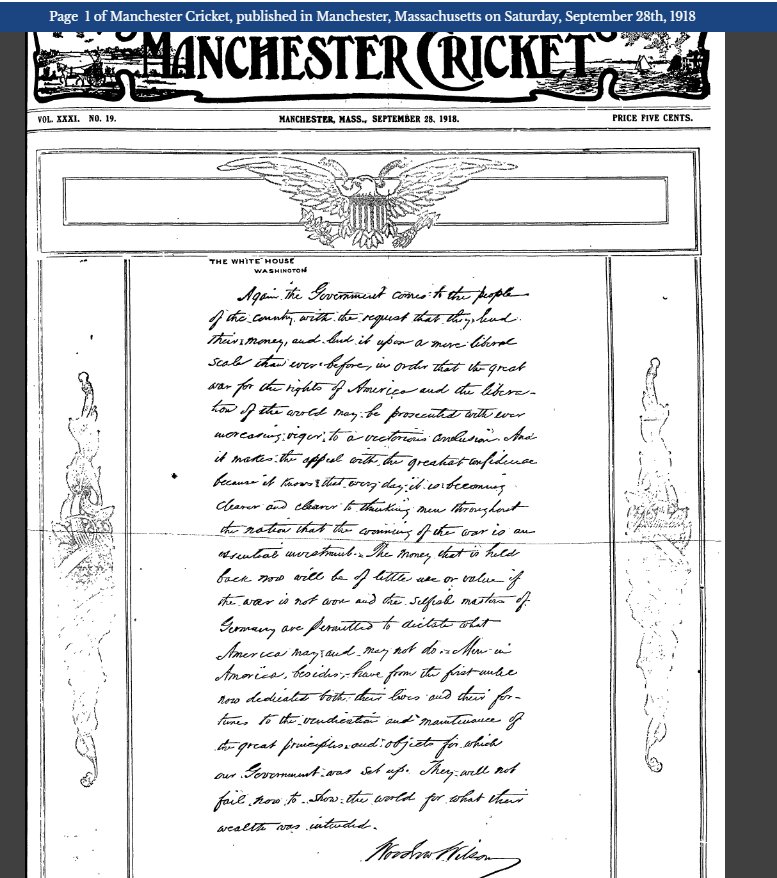
Front page Open Strong for Liberty Loan: Local workers and public take hold in good shape despite epidemic Old Cape bound message to “the boys” will be “right”.
The Fighting Fourth Liberty Loan, and it is a real fight with all that the name implies, was ushered in this morning with vim and enthusiasm. The men and women’s committees are working and soliciting and are getting fine results from the appeal for early action. Gloucester is waging a struggle against pestilence but the boys in France faced more than pestilence when they went “over the top” many many times in the last six months. They fought to the utmost and now those at home must fight to the utmost to put over the biggest loan in the world’s history.
Front pageNotice card of thanks
Front page Red Cross notice
Owing to the prevailing epidemic, the Surgical Dressings department at the Red Cross will be closed until further notice.
Front page notice: Board of Health Special Agents
Public notice is hereby given that Simeon B. Hotchkiss, Fred W. Tibbets and Fred Shackleford have this day been appointed special agents by the Board of Health to act during the present emergency or until otherwise ordered. Per order, PP Moore, M.D., Chair, Osborne Knowles, Christian D. Saunders, John A. Radcliffe, Clerk.
Gloucester Board of Health
Inside pageHopes Raised with Advent of Clear Weather. Believe new cases of influenza less than yesterday—New military hospital in service this afternoon—Deaths here since last report number 13—Board of Health appoints special agents with full powers—vessels leaving port must be fumigated—no services at Protestant churches tomorrow.
Despite the stringent measures taken by the authorities to stamp out the influenza epidemic, 13 more deaths have occurred in this city since yesterday noon, making the total 67. There were quite a few new cases reported today but the number is believed smaller than yesterday. At the Red Cross Emergency Hospital, although there were seven deaths, only one new patient was admitted and one was discharged, showing the best improvement for several days. The new military hospital is now completely established (illegible).
Thirteen in today’s total
The following deaths have occurred since yesterday:
- J. Elliott Karcher, 28 years, 17 Exchange street
- Capt. John Byron Doucette, 41 years, 18 Commercial street
- Mrs. Johanna Caroll, 70 years, 2 Shepherd street
- Antone M. Pata, 19 years, 91 Friend street
- Viggo Juncker, 38 years, 23 Willow street
- Mrs. Bettie Waanana, age and address unknown
- James DeCoste, Allen street
- Mary Pedrotti, Lanesville
- John Baptiste, age and address unknown
- Sylvia Berethelia, age and address unknown
- John Sullivan, 29 years, Sylvan street
- —- Riley, 155 Maplewood avenue
- Dametiric Cusso, 16 years, Fort square
Died on Thursday
- Manuel Mitchell, 41 years, 64 perkins street.
Owing to the lack of room, headquarters for home nurses and for receiving emergency calls for physicians were transferred this morning to the Public Health Dispensary in the Bergrengren block over Barker’s drug store. The rooms there are fitted for the purpose and afford much more room than the district nurse association office in the Gloucester National Bank building. The Board of Health this morning appointed Simeon B. Hotchkiss, Fred W. Tibbets, and Fred A. Shackelford special agents of the board to act during the present emergency or until otherwise ordered. The board also ordered the fumigation of all vessels and steamers leaving port during the present emergency.
The Hospital Report
The official report from the Red Cross Emergency Hospital this morning stated that seven had died during the period from 2:45pm yesterday to 6:45am this morning. One new patient was admitted and one discharged, making a total of 59 patients now being cared for.
Hope comes with fine weather
The second day of clear weather is expected to have considerable good influence in bringing about a change in conditions. Although things looked brighter yesterday, there was not much change today.
Land Your Nurse and Auto Aid
There is urgent need of automobiles for nurse transportation for this evening. Nurses are also needed badly to help out at the Red Cross hospital.
Offer Trucks for Police Service
A. Manton Pattilo has given the services of his long Ford truck and Story & Shepherd have also offered the use of one of the Magnolia busses to take the place of the police ambulance, which has broken down.
Malady Hits City Fathers
Mayor Stoddardt has so far recovered from his illness as to be able to visit his office at City hall for a short time this forenoon, and expects to be able to resume his duties in full on Monday. Alderman Silva, Poole and Hubbard are still on the sick list, but all are reported to be improving. Alderman Andrews was the only member of the board able to be at City hall yesterday.
State will spend money to fight distemper
The executive council yesterday appropriated $100,000 to be used by the state in co-operation with local authorities, to fight the influenza epidemic. The council also adopted an order giving the state health department and the surgeon-general full authority to take any steps deemed necessary.
Think state has 50,000 claims.
An attempt is being made by state and city boards of health to determine approximately the number of influenza cases in each of the cities and towns of the commonwealth. This action is taken at the request of the federal authorities at Washington. The request came from Washington yesterday in answer to the plea of acting Gov. Coolidge for doctors and nurses to fight the epidemic. Despite the fact that that boards of health of city and state have been hart at work trying to get the approximate number of grip and pneumonia cases, no positive statement as to the exact number could be made. Dr. Bernard W. Carey, state epidemiologist, however, estimates the number of cases in Massachusetts as 50,000 and this is but a rough guess.
The President’s Liberty Bond Appeal
Again the Government comes to the people of the country with the request that they lend their money, and lend it upon a more liberal scale than ever before, in order that the great war for the rights of America and the liberation of the world may be prosecuted with ever increasing vigor to a victorious conclusion. And it makes the appeal with the greatest confidence because it knows that every day it is becoming clearer and clearer to thinking men throughout the (illegible) war is an essential investment. The money that is held back now will be of little use or value if the war is not won and the selfish masters of Germany are permitted to (illegible). Men in America, besides have from the first until now dedicated both their lives and their fortunes to the vindication and maintenance of the great principles and objects for which our Government was set up. They will not fail now to show the world for what their wealth was intended.
President Woodrow Wilson
Inside page Congressman W.W. Lufkin Works for Fishermen Wants them reimbursed for submarines—takes matter to secretary of state for war settlement
Inside page East Gloucester Column
No services will be held at the Chapel Street Baptist church and Methodist Episcopal churches tomorrow, on account of the present epidemic.
- Allen M. Varney of Rocky Neck has taken his departure for the resuming of his studies for the second year at the University of Maine, Waterville, ME.
- Mrs. Benjamin M. Gill has improved from her illness of Spanish grip at her home on Eastern avenue.
- Mr. and Mrs. Charles A. Way and family have returned from their home on Haskell street from their Starknaught Heights cottage.
- Harry Dagle of the U.S. mail service is resuming his duties on the parcel post delivery after his recent serious illness of the prevailing distemper.
- Freeman W. Hodson of the U.S. mail service has resumed his duties. **author note: his wife doesn’t survive**
Inside page Anniversary Postponed
The observance of the anniversary of Alden Post 67, GAR, of Manchester, which was to have been held this evening has been postponed indefinitely. The meeting of Col. Allen Women’s Relief Corps next Monday evening will be omitted.
Inside page notice No Visitors at Hathorne Hospital
By direction of Governor McCall and the state authorities, the state hospital at Harthorne (Rockport) will be under quarantine during the prevalence of the present epidemic.
Inside page notice Notified of Illness
A telephone message was received at the police station last evening asking the local department to notify Mrs. Hannah Rogers of 8 Allen street that her nephew Arthur Lehan, was seriously ill at the Peter Bent Brigham hospital in Boston. Officer Foley notified her.
Inside page obit Leaves four little ones: Mrs. Margaret M. McMahon Died at Emergency Hospital
Mrs. Margaret M. (Wagner), wife of Bernard McMahon, passed away at the Red Cross Emergency hospital on Wednesday, after an illness of only four days from pneumonia following an attack of influenza, at the age of 27 years and 2 months. She was a native of this city, her parents being Lewis and Mary (Quinn) Wagner. She was a woman of home loving disposition, devoted to the interests of her family, and was held in high esteem by a large circle of relatives and friends. Besides her husband, she is survived by her mother, Mrs. Mary Hennigan, one sister, Mrs. Blanche, widow of William Bentley, whose husband passed away the day preceding from the same malady, and four small children, Marion, Kathleen, Marcella, and Geraldine, the latter an infant only 8 weeks old. Her funeral will take place Monday at St. Ann’s.
Inside page obit Widow of Benj. F. Parker, Mrs. Annie Parker Died From Complication of Diseases (not flu)
Sunday, September 29, 1918
No newspaper on Sunday
**See excerpt from brutal and bleak letters about Fort Devens: by Dr. Roy Grist (below); and Dr. Victor C. Vaughan (in my article above).**
“…Camp Devens is near Boston, and has about 50,000 men, or did have before this epidemic broke loose. It also has the base hospital for the Division of the Northeast. This epidemic started about four weeks ago, and has developed so rapidly that the camp is demoralized and all ordinary work is held up till it has passed. All assemblages of soldiers taboo. These men start with what appears to be an attack of la grippe or influenza, and when brought to the hospital they very rapidly develop the most viscous type of pneumonia that has ever been seen. Two hours after admission they have the mahogany spots over the cheek bones, and a few hours later you can begin to see the cyanosis extending from their ears and spreading all over the face, until it is hard to distinguish the coloured [sic] men from the white. It is only a matter of a few hours then until death comes, and it is simply a struggle for air until they suffocate. It is horrible. One can stand it to see one, two or twenty men die, but to see these poor devils dropping like flies sort of gets on your nerves. We have been averaging about 100 deaths per day, and still keeping it up. There is no doubt in my mind that there is a new mixed infection here, but what I don’t know. My total time is taken up hunting rales, rales dry or moist, sibilant or crepitant or any other of the hundred things that one may find in the chest, they all mean but one thing here — pneumonia — and that means in about all cases death.
The normal number of doctors here is about 25 and that has been increased to over 250, all of whom (of course excepting me) have temporary orders — “Return to your proper station on completion of work” — Mine says, “Permanent Duty,” but I have been in the Army just long enough to learn that it doesn’t always mean what it says. So I don’t know what will happen to me at the end of this. We have lost an outrageous number of nurses and doctors, and the little town of Ayer is a sight. It takes special trains to carry away the dead. For several days there were no coffins and the bodies piled up something fierce, we used to go down to the morgue (which is just back of my ward) and look at the boys laid out in long rows. It beats any sight they ever had in France after a battle. An extra long barracks has been vacated for the use of the morgue, and it would make any man sit up and take notice to walk down the long lines of dead soldiers all dressed up and laid out in double rows.”
Dr. Roy Grist, 9/29/1918 (Grist, 1979)
Monday, September 30, 1918
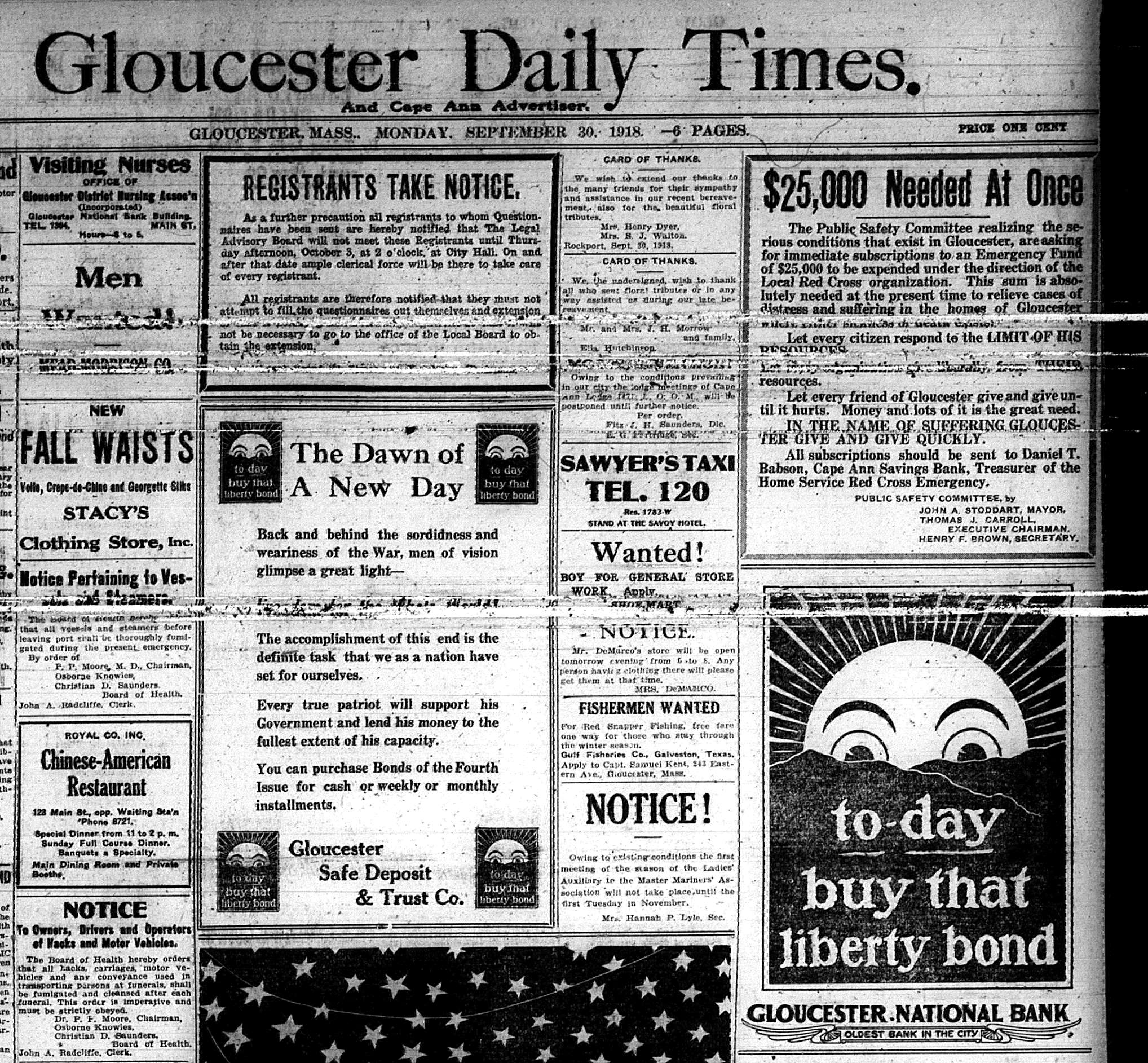
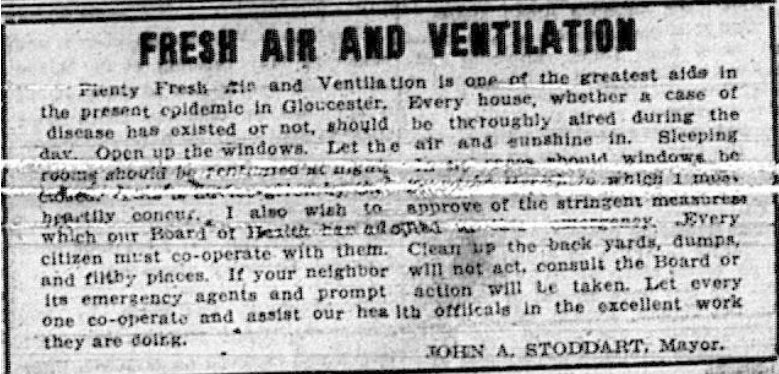
Front page fundraising appeal $25,000 Needed at Once
The public safety committee realizing the serious conditions that exist in Gloucester are asking for immediate subscriptions to an Emergency Fund of $25,000 to be expended under the direction of the Local Red Cross organization. The sum is absolutely needed at the present time to relieve cases of distress and suffering in the homes of Gloucester (illegible) Let every citizen respond to the Limit of His resources. (Illegible) Let every friend of Gloucester give and give until it hurts. Money and lots of it is in great need. In the name of suffering Gloucester give and give quickly. All subscriptions should be sent to Daniel T. Babson, Cape Ann Savings Bank, Treasurer of the Home Service Red Cross Emergency. – Public Safety Committee by John A. Stoddart, Mayor; Thomas J. Carroll Executive Chairman, Henry F. Brown, Secretary.
Inside page p.6 Fighting Hard to Curb Sway of Influenza Continued Good Weather Aiding Untiring Efforts of Doctors, Nurses and Volunteer Workers in Sturdy Battle to Master Advance of Dread Malady—Emergency Hospital Patients Being Removed to Military Hospital Post—Deaths Here Since Saturday Noon Number 23—Four Local People Die of Scourge at Other Places—Canada Sends Us Ten Nurses
The toll of lives from the Spanish influenza epidemic during the two day period from Saturday noon until 1 o’clock today was 23, the largest number of deaths yet reported, but it should be remembered that this is for two days so that the average per day has not largely increased. It brings the deaths in the city to 90 since the disease first broke over two weeks ago. Despite the large number of deaths, conditions seem to be somewhat better in recent (illegible) for doctors and nurses are being diverted that they were lesser today than usual. The period of fine weather which began on Friday still continues and is apparently helping out greatly.
Ban Public Funerals
Plenty of fresh air and sunshine is advocated by the health authorities and in another column the public is requested to thoroughly air the houses by frequently opening all windows. The Board of Health also took two more important steps today, closing all soda fountains and forbidding all public funerals during the period of the present emergency.
Four other Gloucester people have died at military, naval and civilian hospitals in other places and there was one death reported at Pigeon Cove today and two more in Essex.
The deaths since Saturday noon are as follows:At their homes
- John A. Swinson, 33 years, 25 Webster street
- Joseph S. Vizzaro, 38 years, 50 Taylor street
- Russell D. Oakes, 24 years, 42 Hartz street
- Stanley J. Tarr, 33 years, 248-1/2 Main street
- Sylvester Lotite, 20 years
- Joseph E. Keith, 31 years, 10 Fremont street
- Everett A. Morton, 29 years, 24 Hammond street
- Emile Esmati, 30 years, 1048 Washington street
- James M. DeLouchery, 44 years, 10 Howe street
- Mary Alice Gibbs, 9 years, 30-1/2 Warren street
- Everett Roderick Oliver, 24 years, 22 Sadler street
- Mrs. Alice May (Riley) Dunsky, 29 years, Perkins street
- Antonio Palazola, 17 years, 51 Fort square
At Red Cross Emergency Hospital
- John Pedrotti, Colburn Street, Bay View
- Alfred Mouse, address not known
At the State Emergency Hospital Post
- Waino Johnson, 15 years, Bay View
- William Freed, address not known
- Mrs. Sara A. White, 7 Prospect street
- Sam Soraphhale, address not known
- Joseph Tracco, 71 Friend street
- William Deering, 19 years, 11 Angle street
- Joseph Patz, 51 Friend street
At Camp Devens
- Carl Seaburg, Magnolia
At Gallup’s Island, Boston Harbor
- Phillips Haskell of this city, 26 years
At the Philadelphia Naval Hospital
- Osborne Proctor Friend, of this city, 23 years
At Pigeon Cove
- Jacob Jylikka, 28 years
At Essex
- Clarence Burnham, 5 years, son of Mr. and Mrs. John L. Burnham
- Miss Marion Kent, 21 years
At Provincetown
- William Doucette of Lynn, one of the crew of the sch. Natalie Hammond
At Portsmouth, N.S.
- Soren Bjerm, 10 Pearl street, this city, one of the crew of the sh. Natalie Hammond
Military Hospital Unit is Working Bravely
The new hospital unit sent here by the State is known as the State Emergency Hospital Post and was put in operation on Saturday afternoon when a number of patients were received. Saturday evening six of the worst cases were taken over from the Red Cross Emergency Hospital and a number of patients from all parts of the city were brought in so that the total reached 45 yesterday. Today, the remainder were taken from the Red Cross hospital, while a number of convalescents were discharged to their homes. Seven deaths have occurred up to 1 o’clock at the State Hospital.
The field hospital is a wonderful institution and shows in a large measure what the State Guard can be depended upon to bring about. Day and night the men have worked to put the hospital in shape and to look out for the sick ones. It is simply remarkable the way the many details have been arranged to establish such a wonderful institution well worthy of the name. Electric lights, water, sewerage and floors in the tents have all been put in, chiefly through the efforts of the fine types of men that compose the State Guard.
The hospital camp is in command of Major Sturgis and Drs. Egan and Burbank. The duties of the physicians have been divided so as to give each ample opportunity to look after his practice and at the same time give the needed attention to the hospital cases.
Two Crews Ill
Sch. Hjela J. Silva and Sch. Henry L. Marshall returned to an Atlantic port with short trips, returning on account of the illness among the crew. The skippers of both crafts and a number of the crews are reported sick.
Ipswich Mills Resumes
The Ipswich Mills resumed operations this morning having but a comparatively small percentage of their employees absent, many who are detained at home being so on account of the illness of relatives for whom they are caring.
Good Phone Service Installed
Six telephones have been installed on the hospital grounds. They are information headquarters. 2000, in charge of Chaplain Bertram D. Bolvin; Major Sturgis and hospital headquarters 2004; Company K, 2003; Company L, 2005; Liut. Radcliffe, 2006; Quartermaster 2002.
Company M of Rockport, George E.B. Strople, was called out on Saturday afternoon it being found that the service of three companies were necessary for the work to be done. Companies L,K and M will be on duty indefinitely. Adjutant Frank C. Thompson is permanent officer of the day and Lieut. Sanborn commander of the guard.
Sch. Natalie Hammond – Capt. Colson’s Crew Hard Stricken
Capt. Charles Colson of the sch. Natalie Hammond, which arrived here last Friday, reports six of the Hammond’s crew taken ill during the last trip, two of whom have died of the Spanish influenza and pneumonia. After the first day out of port, three weeks ago last Friday, Wallace Doucette of Lynn was taken ill and three others, Peter Doucette, William Tarnun and David White, were stricken with the disease and landed by Captain Colson in Provincetown. Doucette died in Provincetown. A week ago last Tuesday, Capt. Colson landed two more of his crew, Augustus Thompson and Soren Bjerm at Yarmouth, N.S., the latter passing away there. Both dead men were married. Doucette, who is about 28 years of age lives in Lynn. He registered in his home city the day the Hammond left and he jumped on board just before the craft left port. Bjorm was 33(?) years old and leaves a wife and little daughter at 10 Pearl street, this city. The remains of the latter fisherman are expected to arrive here today from Yarmouth for burial. Sixteen of the Hammond’s crew with her captain arrived home well.
The commissary for the hospital
The commissary for the hospital is an important part of the establishment of the camp. This is in charge of Frank H. Shute, a well known hotel proprietor and experienced steward, who is a member of the local State Guard, and Harold S. Maddocks. In addition to preparing food for the patients, Mr. Shute also has the force of night and day nurses, physicians, and orderlies to look after which is quite some task, but fortunately it is in capable hands.
Hamilton Ontario Canada sends us nurses
Canada has responded nobly to the Massachusetts appeal for aid and a large number of nurses from their good quota have been sent here to help out. Gloucester has been fortunate in securing the services of 10 of the. The young ladies reached here late Saturday evening after a long ride of 14 hours from Hamilton Ontario. They were immediately on duty. In their hurry they came with little equipment, taking the first train, but they were fitted out yesterday by Lieut. Radcliffe; he arranged with local dealers to supply sweaters, heavy shoes and rubbers and other things necessary for outdoor work. There are also five nurses here from the State Department of Health and several civilian orderlies. Arrangements have been made to care for 150 or more patients and the services of 10 more nurses have been requested. Mayor Stoddart visited the camp on Saturday afternoon and was much pleased with all that had been done. Col. Eldredge, Col. Barrell, Lieut. Col. Jenkins, Col. Brooks, Col. Emery, Capt. Hyde and Capt. Lapham, State Guard officers, also visited the post on Saturday.
Must Wash Glasses In Boiling Water
State health Commissioner Woodward in this connection Saturday night issued the following order:
“No glass, cup, spoon, fork, or other utensil need for the public sale or dispensing of liquids, beverages, drinks food or other refreshment for consumption in or about the place of sale or dispensing shall be again used unless the same be thoroughly cleansed and scalded with clean, boiling water, or otherwise sterilized.”
The above order will go more into effect immediately with its publication in the newspaper today. In certain refreshment places much difficulty will be met with in the scalding process especially where cold water has been a rule solely used in rinsing glasses hurriedly to meet the demands of the trade. In some places where drinks are sold it was stated that the particular caliber of glass used in dispensing certain kinds of beverages cannot withstand the scalding process unless executed with great skill and dexterity, which would consume much precious time. Everywhere, however, the order will be carried out scrupulously.
fACE mASKS (Flu masks)
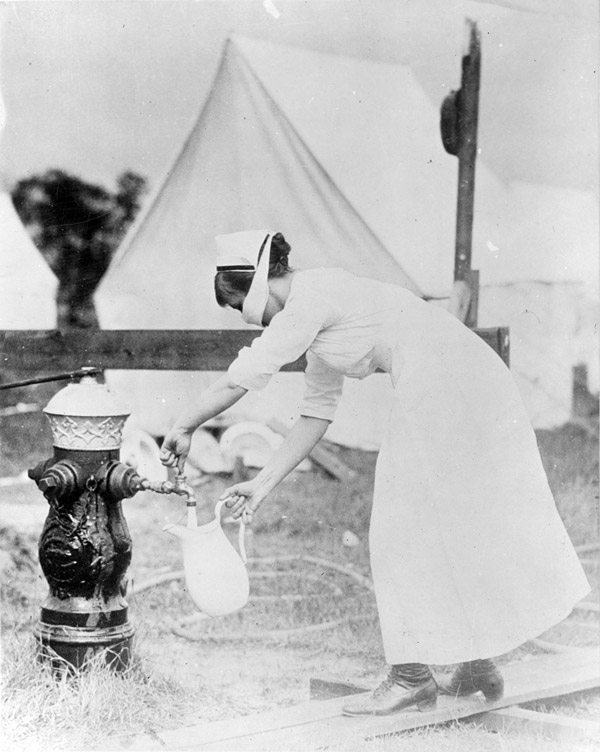

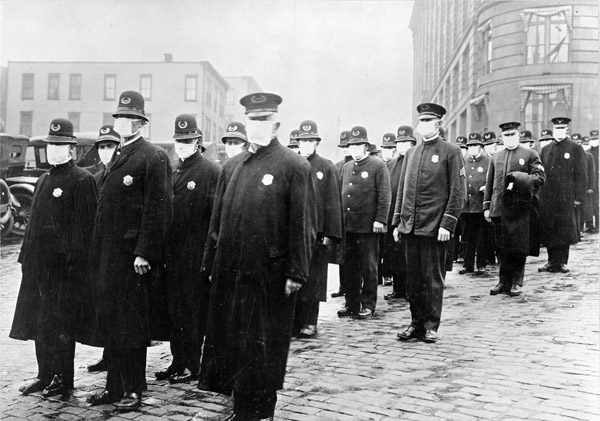
Directions for making Gauze Face Masks
Gloucester Daily Times 9/30/1918
Use as fine gauze or cheesecloth as possible. Fold material to make five thickness and cut an oblong 3-1/2 x 7-1/2 inches. Make three half-inch plaits at each end, turn in edges and stitch. Cut four feet of tape into four lengths and sew one to each corner. Make box plait 1-1/2 inches in width in one of the long edges of the mask, stitch down one inch. To adjust, place mask over face: tie tapes from upper corner around back of head and tape from lower corners around back of neck. Place box plait over nose. Masks should be worn by attendants whenever caring for those sick with influenza or pneumonia.
They should be changed at two-hour intervals and oftener if wet, and immediately boiled for five minutes, (illegible), or wrapped securely in paper bag or newspaper until they can be boiled.
Courage, Gloucester!
Now if ever the citizens of Gloucester must meet manfully the terrible calamity that like a thief in the night has come upon the City. Now if ever they must stand should to shoulder, looking out confidently into the future. It is not the time for the brave men and women to turn backward, “Courage, now if ever.” must be written in large letters upon the faces and in the hearts and homes of every citizen. Gloucester men and women have never failed to meet the direst calamity no matter how severe it has been. Many times in her history has the hour seemed the darkest and the cloud has seemed to have no silver lining. War has frequently called (illegible) Gloucester men to battle and many have fallen. Storm and (illegible) has wrecked many a vessel and thousands of her bravest fishermen have (illegible). Fire has twice devastated her principal street. Business (illegible) cast a hoary gloom over the city when hundreds of men have been out of employment and the city has been most insistent in meeting the poverty of the people. Never in all the three hundred years since the landing at Stage Head have the people lost heart nor given up the fight. Standing closer to each other when the day was the darkest, the men and women have looked into each other’s faces and gathering courage have gone about their tasks determined that come what will they would not give up. And today her people, under the lead of men and women whom the emergency has raised up to lead them, will face the future and will do everything that men and women can do to strengthen and sustain those who are sick, those into whose home death has come, those whose hearts may be faltering. Let no one feel that there is nothing for them to do. If they cannot nurse the sick, if they cannot carry sympathy into the homes where death has entered, if they cannot give of the dollar so sadly needed, surely they can do many other things (illegible) and not down out and not in, they can lend (illegible). The request has been made for the co-operation of all persons that they shall give over their own selfish pleasures and that they shall deny themselves in every possible way. Let the request be heeded. Cut out in every way all those things which one can do without. And to those into whose sickness has come there is still a duty and a responsibility. They too must co-operate. They too must have courage. They too must do their part. No person in whose home, there is sickness, no person who is sick or has been sick should mingle with the people until all danger from the sickness has passed. When the danger has passed and not till then must they resume their ordinary routine of living. Courage men and women of Gloucester! Stand shoulder to shoulder as never before. Look manfully into the present and into the future. The Almighty God is still the good Father and He will not forsake His people nor allow Evil to triumph. Courage, the courage of brave hearts and the confidence that is born in faith—these will win the fight. Courage, even if the hour seems the darkest. Be patient, be kind to one another; be calm. All will yet be well.
dynamite Gloucester Daily Times Op Ed 9/30/1918
Inside page p.6 Notice from Mayor: Fresh Air and Ventilation
Notice from the Mayor 9/30/1918 Plenty of Fresh Air and ventilation is one of the greatest aids in the present epidemic in Gloucester. Every house, whether a case of disease has existed or not, should be thoroughly aired during the day. Open up the windows. Let the air and sunshine in. Sleeping rooms should be ventilated (illegible) which I most heartily concur. I also wish to approve of the stringent measures which our Board of Health has adopted during the emergency. Every citizen must cooperate with them. Clean up the back yards, dumps, and filthy places. If your neighbor will not act, consult the Board or its emergency agents and prompt action will be taken. Let everyone cooperate and assist our health officials in the excellent work they are doing.
John A. Stoddart, Mayor
Inside page p.6 Notice Post Office to Close Earlier Until further notice
The post office will close at 7:30pm except on Saturday night when it will close at 8pm. This action is made necessary by the reduced postal force by reason of the prevailing epidemic.
Inside page “Our Boys” Write Bright Letters Home
excerpt from Private John J. Smith letter to his mother, Mrs. Charles W. Smith, of 5 Center Court, dated 9/1/1918, published 9/30/1918 : “…I feel better over here than I did in Camp Devens and sure have got that same good old appetite…”
Inside page Roger W. Babson leaves Boston hospital for his home in Wellesley Hills
Continue to October 1918
Tuesday, October 1, 1918
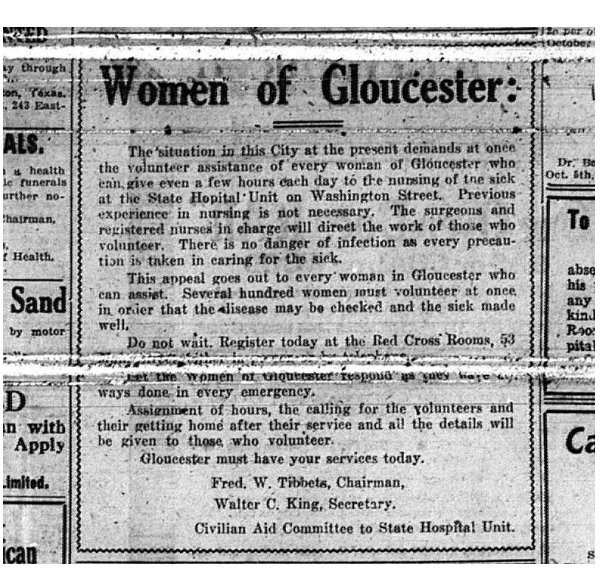




Front page To the Women of Gloucester
MESSAGE FROM THE CIVILIAN AID COMMITTEE TO THE STATE HOSPITAL UNIT
The situation in this City at the present demands the volunteer assistance of every woman of Gloucester who can give even a few hours each day to the nursing of the sick at the State Hospital Unit on Washington Street. Previous experience in nursing is not necessary. The surgeons and registered nurses in charge will direct the work of those who volunteer. There is no danger of infection as every precaution is taken in caring for the sick. This appeal goes out to every woman in Gloucester who can assist. Several hundred women must volunteer at once in order that the disease may be checked and the sick made well. Do not wait. Register today at the Red Cross Rooms, 53 (illegible) let the women of Gloucester respond as they have always done in every emergency. Assignment of hours, the calling for the volunteers and their getting home after their service and all the details will be given to those who volunteer. Gloucester must have your services today. –
Fred W. Tibbets, Chairman, Walter C. King, Secretary, Civilian Aid committee to the State Hospital Unit
Front Page Notice To the Catholic Women of Gloucester
The need of nurses to care for those who are stricken by the sickness now raging among us is most urgent. I appeal to the women of St. Ann’s parish whose family conditions will permit it to offer themselves at once for this work. I am sure that when they know that their service will help to save precious lives, the will not hesitate to give it.- William J. Dwyer
Front Page Board of Health Notice to Milk Dealers!
The Board of Health prohibits all milk dealers from delivering and householders from receiving milk in bottles in any house or premises where influenza, or any contagious disease exists. Tenants or occupants of such premises using milk are requested to place pitcher or receptacles out of doors; in which milk will be delivered. Per Order F.P. Moore, Chairman, Osborne Knowles, Christian D. Saunders, Board of Health.
Front Page Board of Health Boil Notice
The Board of Health hereby orders that all bar rooms, (illegible) all utensils and napkins shall be sterilized in boiling hot water before serving to other persons. Until further notice.
Front Page Reminder notice Fresh Air and Ventilation Reminder notice from Mayor Stoddart
Front Page Reminder notice Public Funerals suspended until further notice
Front Page “Card of Thanks” Manuel D. Souza and Family, Nally family,
Inside page p.6 Splendid help of Women Asked: State Emergency Hospital Post Makes Humanity Call for Aid—Women of City Urged to Volunteer for Combating Illness
On account of insistent demand for volunteer nurses at the State Emergency Hospital Post, a hurry-up call was sent out at 10:30 o’clock last evening to a number of prominent women of Gloucester and at 11 o’clock they met at Addison Gilbert hospital to consider the situation and to take action to procure nurses. The meeting lasted until 1 o’clock AM.
Among those present were*: Capt. Carleton H. Parsons, Lieut. William J. MacInnis, Lieut. Burbank, Lieut. John J. Egan, Liuet. Ratshesky, Thomas J. Carroll, Rev. Albert A. Madsen, Ph.D., Fred A. Barker, Thomas P. Bolger, Fred L. Davis, Joseph F. MacPhee, Senator Charles D. Brown, Daniel T. Babson, Miss Martha N. Brooks, George Frye Merril, Miss Leach, matron of the Addison Gilbert Hospital, Miss McCarthy, Fred W. Tibbets and Walter C. King. Capt. Parsons stated that the point had been reached where the State hospital unit must have volunteer assistance to do nursing in order to successfully combat the serious illness of its patients. He stated that there would have to be at least several hundred, all of whom could be employed, whether they had experience or instruction in nursing or not, and under the direction of the registered nurses in charge could assist in caring for the sick. He also said it was absolutely impossible for the force of registered nurses to do the work expected of them and it was also impossible to get out of town nurses. He said that those employed had taken precautions for protection and that there was no danger to the nurses or to their homes. These statements were corroborated by Drs. Egan and Burbank and Lieut. Ratshesky. Surgeon Burbank stated that there would arrive in Gloucester today two of the leading experts from Washington who would make a careful and intensive study of the conditions in this city and then probable issue a report to the public regarding the infection. The meeting was then opened to discussion and organization and Fred. W. Tibbets was chosen chairman and Walter C. King secretary. The committee will be known as the Civilian Relief Committee for assisting the State Emergency Hospital Post. After organization, the committee discussed for quite a while the best way to go about it and each person present pledged him or herself to get busy this forenoon and ascertain the number of volunteers willing to render immediate assistance. Each agreed to be ready to present the names of volunteers at 11 o’clock this morning. Ref. Dr. Madsen was appointed to take charge of a church census and Mr. Carroll was appointed a committee of one to recall all school teachers who have gone out of town and request their assistance in the present emergency. It was also suggested that the women be relieved from the clerical work on the questionnaires and request the male teachers to help out with the questionnaires. The present need is a grave one but if the women will respond as the committee have every reason to believe they will ,it is believed that it will only be a question of a few days before the (illegible) it’s up to the people to give their time and money as they have never before been called to do. With every body helping willingly, the easier it will be for all and the (illegible).
Women Must Help
This morning at 11 o’clock the committee met in the municipal council chamber at City hall when Chairman Tibbets outlined what had been done last night and that the situation had reached a stage where the women of Gloucester must take hold. In addition to those whose names appear above, there are some 55 members of the Women’s Liberty Loan Committee, members of the Board of Health and License Commissioners in attendance. Mr. Tibbets impressed on all the imperative need of not one, two or three, but several hundred nurses, and emphasized the two facts brought out last night: there is no danger from contagion to the nurse or the nurse’s family, under the precautions taken, and experience is not necessary. He urged all to have courage above all things and told what the surgeon had said of the wonderful cooperation he had found in Gloucester, the most remarkable in his experience, particularly among the members of the State Guard in which it was only a question of what can we do. The various members made reports on what they had already accomplished and the names of some 75 women who have volunteered for nursing work were presented. Mr. Carroll said he was particularly impressed by the statement of Surgeon Burbank who said, “Give us the nurses and we’ll save them.” Mrs. Preston O. Wass reported for the Women’s Liberty Loan Committee and stated that she had been in touch with all the workers, possible to be reached and a goodly number had volunteered, but it was deemed inadvisable to stop all work. Mayor Stoddart was present and made some brief remarks.
Inside page p.6 Little Change in Epidemic of Influenza Number of new cases believed smaller but fatalities continue despite struggle to combat the dread malady—deaths here since yesterday are 9 and one at Rockport where epidemic is spreading—urgent appeal to the women of Gloucester for assistance as nurses at State Hospital Post was sent this morning
An urgent appeal for volunteer nurses was one of the important developments of the day in the local Spanish Influenza situation, which is no worse than yesterday and probably some better, although there has not yet been anyway to get at the exact number of new cases each day because of the strenuousness under which physicians are laboring in looking after patients. The deaths since yesterday number nine, bringing the total to 99 since the epidemic first broke out. The death rate will continue to run high for several days, even though the number of new cases should stop at once. This will result from the large number of serious cases not only at the State Emergency Hospital Post, but in the homes. There were some (illegible) tient passed away. Rockport is beginning to feel the ravages of the pestilence and it has apparently broken out in that town as bad in proportion to the population as it has here. One more death was reported from there since yesterday and it is believed that there are hundreds of cases in town. Every precaution and safe guard possible will be taken by the Rockport people and a meeting will be held there this evening to take steps in this direction. The Leander M. Haskins hospital which has been closed will probably be opened immediately.
The deaths since yesterday’s report are as follows:
- Mrs. Margaret A. Brown, 54 years, 77 Eastern Avenue
- Miss Helen F. Thurston, 22 years, 172 Washington street
- Mrs. Ruth M. (Springham) Benham, 25 years, 24 Bass avenue
- Mrs. Edith (Lewis) Quadros, 33 years, 102 Friend street
- Tassi Mazzareno, 30 years, address unknown
- Dorothy Lopes, 8 months, 53 Taylor street
- Edna May Thomas, 14 years
- Harry T. Dennen, 11 years, 18 Wells street
- Miss Edith Ella B. Hight, 18 years, 64 Magnolia avenue
At Rockport
- Miss Rachael Y. Hodgkins, 22 years, 43 High street, Rockport
Quick Response to Appeal for Funds
The appeal of the Public Safety Committee of Gloucester for an Emergency Fund of $25,000 to relieve the existing conditions in this city, to be expended under the direction of the local Red Cross organization has touched the hearts of many people already. Hardly had the advertisement asking for the amount appeared on the front page of yesterday’s issue of the Times when a telephone call came in to the Times from the Gorton-Pew Fisheries Company offering their liberal subscription of $1500. Then came the good news of $500 contributed by the Gloucester Electric Company, and several others followed who had offered generously $100 each. The immediate need of the fund should be realized. It will be expended to relieve cases of distress and suffering in homes of Gloucester, where either sickness or death exists. The appeal comes quick to the heart for the cause and conditions with which we are familiar in our midst. Any contributions will be gladly received and they are requested to be sent quickly to Daniel T. Babson at the Cape Ann Savings Bank, the treasurer of the Home Service Red Cross Emergency.
The Board of Health
The Board of Health held a meeting at their office in the city clerk’s office City hall this forenoon and rescinded the action taken yesterday on closing soda fountains. A measure as adopted requiring all fountains, saloons and every place serving drinks of any kind to wash the receptacles in boiling water before using again. This is in line with action taken in other places.
Need of nurses
The need of nurses to assist in the state hospital work has been made clear and the women of Gloucester are appealed to for volunteers. Rev. William J Dwyer in another column makes an eloquent appeal to all the Catholic women of Gloucester to respond and Mrs. Alan S. Rowe of the Women’s Liberty Loan Committee has issued as appeal to the women workers of the Liberty Loan or all who can to give up the loan for nursing during the present emergency.
There are Boxes for Caskets
George L. Browne, the undertaker, has arranged four rooms very nicely on the second floor of the building in which his establishment is located, 39 Main street, for the accommodation of bodies. Also, the bodies are fumigated at the entrance, before being placed in the receiving rooms. Contrary to report, that boxes for caskets could not be secured, by Mr. Browne, the latter states that he has plenty of them on hand having ordered a carload of boxes some time ago, before the epidemic.
Inside page p.5 Notice Owners and Skippers of Vessels must fumigate coming and going
**author note: protective measures particular to Gloucester**
Inside page p. 5 Notice Heaters for State Guard needed
**author note: protective measures particular to Gloucester**
Inside page obit Mourners are many and sincere“Jimmy” DeLouchery, Waterfront Authority, Victim of Influenza
James M. DeLouchery, whose death from pneumonia was reported yesterday, was a well-known laborer along the water front, having been for more than 20 years in the employ of the American Halibut Company. He was a man of industrious habits and fine character and a foremost authority on vessels and water front movements, and his unexpected death will bring sorrow to a great many outside his immediate family. His brother, John W. DeLouchery, was the first man who was drafted in the present German war. He is survived by two sisters.
Wednesday, October 2, 1918
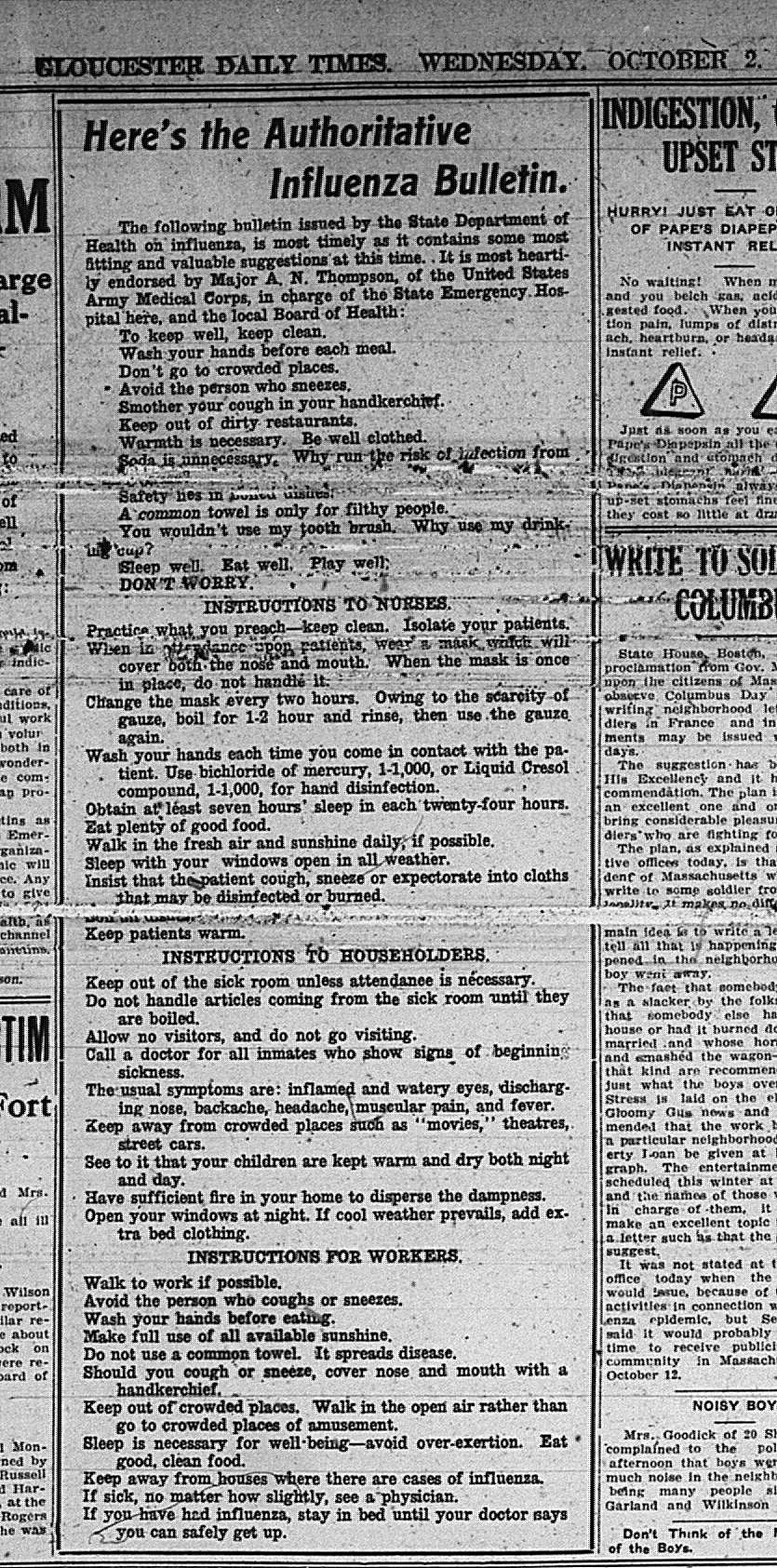
Massachusetts State Department of Health Authoritative Influenza guidelines
INSTRUCTIONS TO ALL
- To keep well, keep clean.
- Wash your hands before each meal.
- Don’t go to crowded places.
- Avoid the person who sneezes.
- Smother your cough in your handkerchief.
- Keep out of dirty restaurants. Warmth is necessary. Be well clothed.
- Soda is unnecessary. Why run the risk of infection from (illegible).
- Safety lies in boiled dishes.
- A common towel is only for filthy people.
- You wouldn’t use my tooth brush. Why us my drink cup?
- Sleep well. Eat well. Play well.
- DON’T WORRY.
INSTRUCTIONS TO NURSES
- Practice what you preach—keep clean.
- Isolate your patients.
- When in attendance upon patients, wear a mask which will cover both the nose and mouth. When the mask is once in place, do not handle it.
- Change the mask every two hours. Owing to the scarcity of gauze, boil for 1-2 (1/2?) hour and rise, then use the gauze again.
- Wash your hands each time you come in contact with the patient. Use bichloride of mercury, 1-1,000, or Liquid Cresol compound, 1-1,000, for hand disinfection.
- Obtain at least seven hours’ sleep in each twenty-four hours.
- Eat plenty of good food.
- Walk in the fresh air and sunshine daily, if possible.
- Sleep with your windows open in all weather.
- Insist that the patient cough, sneeze or expectorate into cloths that may be disinfected or burned.
- (illegible)
- Keep patients warm.
INSTRUCTIONS TO HOUSEHOLDERS
- Keep out of the sick room unless attendance is necessary.
- Do not handle articles coming from the sick room until they are boiled.
- Allow no visitors, and do not go visiting.
- Call a doctor for all inmates who show signs of beginning sickness.
- The usual symptoms are: inflamed and watery eyes, discharging nose, backache, headache, muscular pain, and fever.
- Keep away from crowded places such as “movies,” theatres, street cars.
- See to it that your children are kept warm and dry both night and day.
- Have sufficient fire in your home to disperse the dampness.
- Open your window at night. If cool weather prevails, add extra bed clothing.
INSTRUCTIONS FOR WORKERS
- Walk to work if possible.
- Avoid the person who coughs or sneezes.
- Wash your hands before eating.
- Make full use of all available sunshine.
- Do not use a common towel. It spreads disease.
- Should you cough or sneeze, cover nose and mouth with a handkerchief.
- Keep out of crowded places. Walk in the open air rather than go to crowded places of amusement.
- Sleep is necessary for wellbeing—avoid over exertion. Eat good, clean food.
- Keep away from houses where there are cases of influenza.
- If sick, no matter how slightly, see a physician.
- If you have had influenza, stay in bed until your doctor says you can safely get up.
Inside page obit Talented Girl Gone Miss Helen Thurston’s Death Will Be Deeply Mourned
Inside page obit Died at Camp Devens Remains of Private Carl Seaberg Arrived at Magnolia
Inside page obit F. Walker Johnson Parents of Prominent Swampscott man reside here
Inside page obit Belonged to W.R.C. Mrs. Eben C. Brown Loving Mother and Devoted Friend
Inside page obit Bright Young Woman Miss Edith E.B. Hight Magnolia Victim of Prevailing Malady
Inside page obit Had Fished Out of Here Alexander Hayden Passed Away at Cape Canso, N.S.
Inside page Deaths column
- McIntosh – in this city (Moody)
- Benham- in this city, Sept 30, Mrs. Ruth M. (Springham), wife of Capt. Thomas J. Benham, 25 years 10 months 6 days
- Brown- in this city, September 30, Mrs. Margaret Ada, wife of Eben C. Brown, 54 years (private service at her home 77 Eastern Ave)
- Lopes – in this city, September 30, Dorothy, daughter of joseph and Isabel (Mitchell),
- Mazzareno- in this city, Sept 30, Tassi Mazzareno, 30 years
Inside page.5 Sees No Reason Now for Alarm: United States Army Surgeon in Charge of Emergency Hospital Believes Malady Has Reached Height Here—Pleased With Way Handled.
Major A.N. Thompson detailed from the United States Army Medical Corps. Who has come to Gloucester to take charge of the State Emergency Camp Hospital on the Addison Gilbert Hospital grounds and assist the Board of Health in stamping out the epidemic in this city is well pleased with the organization and cooperation that has already been given to him, as can be readily gathered from the following letter to the Board of Health this morning:
Dr. Philip P. Moore, Chairman, Board of Health, Gloucester, Mass.
Major A. N. Thompson, October 2, 1918
The co-operation offered me since my arrival here late yesterday afternoon has been most gratifying, and I feel that Gloucester should be congratulated upon the thorough going manner in which the situation is being handled. At the present time there appears to be ample medical and nursing service to take care of the urgent problems confronting us. All organizations are being thoroughly coordinated in their activities and there is at the present (illegible) consensus of opinion that we have reached the height of the epidemic. The survey as being conducted by your department will give us the actual figures with 24 hours, and at (illegible) the board should issue for the information of the public such figures as are thoroughly indicative of existing conditions. The work being done for the care of the sick is, under existing conditions, most admirable. The wonderful work and untiring zeal of the various volunteers, both men and women, both in uniform and out, has been a wonderful demonstration of what the combined effort of a community can produce. It is hoped that such bulletins as may be issued from the State Emergency Hospital and other organizations dealing with the epidemic will be issued through your office. Any information that I may have to give (illegible) transmitted to the Board of Health, as this seems to me the logical channel for a transmission of health bulletins.
Inside page p.5 obit Anthony Cooney is Malady Victim: Leading Fish Dealer at the Fort Passed Away at Rockport
The community was further saddened by the news of the death of Anthony Cooney, owner and manager of the cold storage plant and extensive fresh fish business at the Fort, who passed away at his home in Rockport this morning from pneumonia which developed from an attack of Spanish influenza, at the age of 38 years, 7 months and 3 days…His widow and children are all ill with pneumonia.
Inside page p.5 Need Cleaning Up
The premises around the Wilson block on Pleasant street (Rockport) were reported in bad condition and a similar report was received by the police about the premises around the block on Highland court. Both cases were referred by the police to the board of health.
Inside page p.6 Situation Here is Now Looking Much Improved: United States Army Surgeon Assumes Charge of State Military Hospital—Women of City Hasten to Answer the Call for Help—General Conditions About the City Seem Much Better—Death Roll Reduced to Seven
The influenza epidemic condition here is some improved (illegible) shows a decrease throughout the city as far as can be learned. However, there are still a great many people very sick and the situation in some districts is still desperate where men, women and children are ill and suffering from lack of attention. The number of deaths since yesterday was smaller than for several days, the number being 7 and making 106 for the total.
The organization of the State Emergency Hospital Post was changed last evening when Major A.N. Thompson , a medical officer of the United States Army, arrived here and assumed command of the entire camp. Major Sturgis, Capt. John J. Egan Lieut. Burbank will continue their work as physicians and a consulting board. Lieut. John A. Radcliff of Company J has been designated as aide to Major Thompson. Capt. Carleton H. Parsons (illegible) command the military division.
Nurses Rush to Help
The response to the appeal for nurses has been wonderful but there was a misunderstanding in the working out of the plans for assistance. It is believed that this will be adjusted without friction. Last night many nurses were sent home. However, their assistance is urgently needed and they will be called on as soon as the working plan can be carried into effect.
The List of Deaths
The following deaths have occurred:
- Edward J. Dagle, 25 years, 52 Summer street
- Mrs. Angie E. Nickerson, 25 years, 31 East Main street
- Angus A. Munroe, 26 years, 21 Sargent street
- Mrs. Grace E. Comeau, 21 years, 21 Allen street
- Mrs. Alice Young, 9 Perkins street
- Anthony Mello, Cherry street
- Joseph Traverse, 16 Silva court
At Rockport
- Anthony Cooney, 28 years, 118 Main street, Rockport
- William Larson, 20 years, Rockport
- Mrs. Arline Brown, 27 years, 22 Cleaves street, Rockport
- Margin Ahola, 8 years, 2 Holbrook street, Rockport
At Manchester
- Miss Nettie E. Smith; Stanley Crombie, William Munroe 45 years formerly of this city
At Jamaica Plain
- Miss Cornadine Burns, 21 years, formerly of this city
At Portland
- Frank W. Cook, 39 years of this city
The nurses on duty last night were assigned to six hour shifts whereas the Civilian Relief Committee for assisting the military hospital was informed that the volunteers would only be required to work four hours on a (illegible)without friction and there is every assurance of the cooperation of all. This morning the Civilian committee met at City hall and went over the situation. Those present were Fred W. Tibbets, Walter C. King, Mayor Stoddart, Alderman Andrews, Hubbard and Silva, Daniel T. Babson, Fred A. Shackelford, Rev. Albert A. Madsen, Miss McCarthy of the Red Cross, George W. Woodbury, Fred A. Barker and Miss Wylie from the hospital, and Chaplain Bertram D. Bolvin of the State Guard. The fact of the need of nurses aids for home service work as well as for nursing at the hospital was brought out by Miss Wylie, while Mayor Stoddart stated that it had been learned that there were 20 nurses at Toronto who would be willing to come here and they had been telegraphed to come. The matter of caring for children also came up and the names of several places were given by Miss Wylie. They will be inspected by Major Thompson this afternoon and if a place is selected, it will undoubtedly be turned over to the authorities voluntarily. Otherwise it will be taken over by the Major who will be empowered by the Federal authorities. Mayor Stoddart and George Frye Merrill were appointed a committee to confer with Major Thompson this afternoon to see what assistance could be given the military hospital. Senator Charles D. Brown has been appointed a special agent of the Board of Health to act during the present emergency and until otherwise ordered. The board also issued a request to all stores not to hold any special sales for the present that will attract crowds. This morning lime was sprinkled along Main street in the gutters and around all catch basins.
Daughters of Isabella to help
The special meeting held last evening by the daughters of Isabella was in direct answer to the recent appeals sent out by the Red Cross and Rev. Father William J. Sawyer. Extensive plans were made to take immediate action in cooperating in every way, and to do everything possible to help check the epidemic prevailing in the city.
Closed Pool Rooms
The Board of Health notified the police to close all pool rooms yesterday forenoon and Officer Joyce was (illegible)
A Sad Case
A sad case was reported to the police Monday afternoon, where the father, mother, and five children were sick at a house on Commercial street, with no one there to even give them a drink of water. The matter was referred to the Red Cross.
Must Report All Cases
By action of the state health committee, influenza has been placed on the list of diseases. Physicians and householders will be required by law to report influenza cases to the local board of health in Massachusetts beginning October 4.
Inside page p.6 Loan Drive Work Goes Bravely On
Despite the setback which the malady of influenza so terribly prevalent here, would be naturally expected to make for the time being in the work of the Fighting Fourth Liberty Loan drive, it is pleasing to note that the work is going on in this city in a fairly satisfactory manner.
Inside page p.6 obit Captain’s Wife Dead Here While Skipper Brings Craft to N.S.
The death of Mrs. Ruth M. (Springham), wife of Capt. Thomas J. Benham, has been learned with the deepest regret by the many friends of the deceased. She passed away on Monday from her home 34 Bass avenue, after a short illness of Spanish influenza at the age of 25 years, 10 months and 6 days. The deceased was born in East Gloucester, her parents being William and Alice (Hastings) Springham. She was a young woman of many notably fine traits of character and an ideal mother, she being most devoted to her three children, two boys and little daughter. Capt. Benham, who is one of Gloucester’s (illegible) and most successful skippers, and who was out on the deep sea when his wife died, has the sincere sympathy of his host of friends in maritime circles in the sad event of the break in his family circle and the loss of a kind and devoted wife. The late Mrs. Benham before her marriage was a stenographer in the office of David B. Smith & Co. fish firm, this city.
Inside page obit Leaves Two Little Ones Raymond A. Nickerson
Victim of Wide-Sweeping Malady Angie E. (Griffin), wife of Raymond A. Nickerson, died of the Spanish influenza and pneumonia, at her home, 21 East Main Street this morning. The deceased had been ill a week….The death of Mrs. Nickerson is one of the many sad cases in the results of the present epidemic where little children are bereft of their mother’s love and watchful care, the deceased leaving a young daughter Dorothy, aged seven, and a little one, Anna, aged only three months…The funeral will be held private at the home of the deceased…
Thursday, October 3, 1918
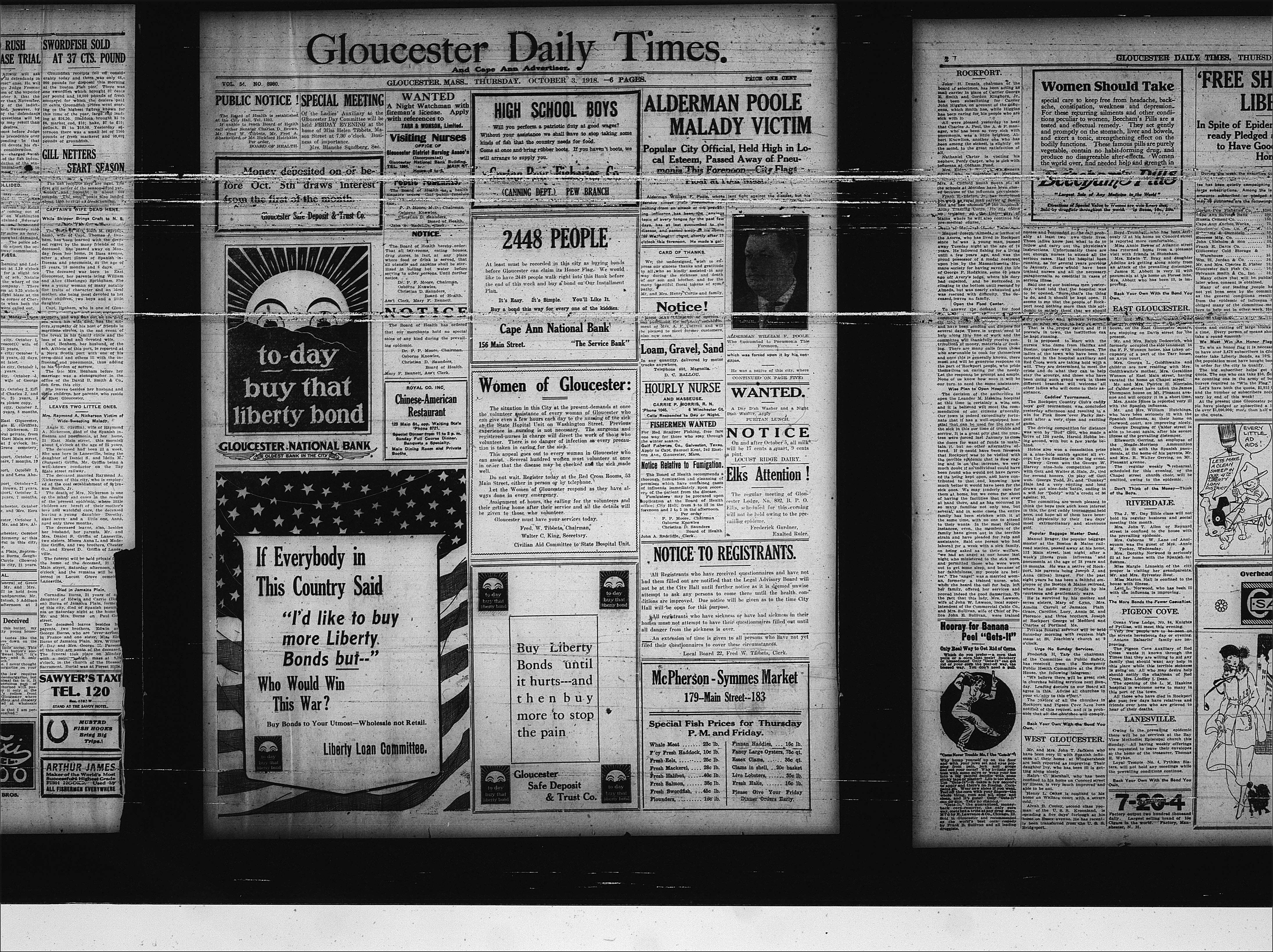
**author note: How can one not try to find his house after following the news storeis? I believe this is where Alderman Poole resided at the time (near the rotary now)**
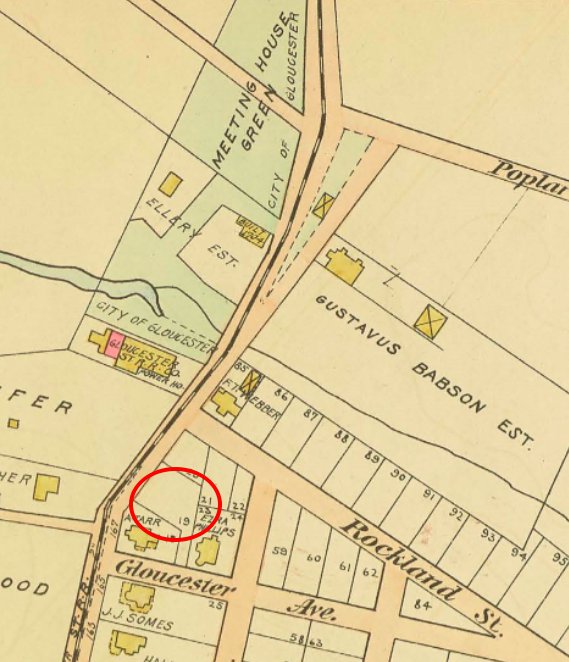
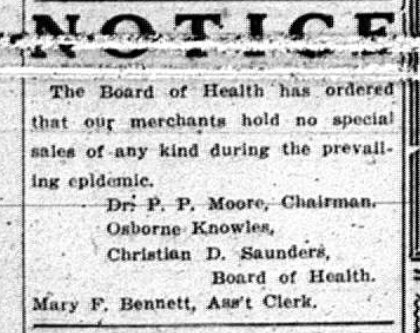
Front page obit Alderman Poole Malady Victim: Popular City Official held high in local esteem passed away of pneumonia this forenoon—City flags flown at half-mast.
**author note: Poole very active; attended many meetings to advocate for Gloucester including going to Boston; registering for Draft 9/12/1918, etc.**
Alderman William F. Poole whose serious illness from pneumonia resulting from an attack of the prevailing influenza has been the anxious topic of every tongue for the past few days, has at last succumbed to the disease, and passed away at his home, 169 Washington street, shortly after 11 o’clock this forenoon. He made a gallant fight against the disease, but his (illegible) which was forced upon it by his condition. He was a native of this city, where (continued on page 5) he was born September 27, 1881, his parents being John F. and Jennie E. (Gammon) Poole. He has been connected with the street railway service in this city almost continuously since reaching manhood, conducting a variety store at the head of the harbor for a year or so previous to accepting a position as a motorman, and serving in this capacity up to his election as alderman two years ago with the exception of (illegible) time spent in Can (illegible). He is popular among his associates and with the general public, as shown by the flattering vote he received at both years of his election as alderman, and was the president of the local union of street railway employees. He took a prominent part last year in the deliberations relative to the increase in pay of the conductors and motormen, and was recognized both in this city and through the Bay State system as an able and conscientious advocate for the requests of the men. Of “Bill” Poole, as everybody called him, it could be truly said, “he was a man.” Previous to his election as alderman in 1916, he had never held public office. The flags of the city were ordered displayed at half-mast by Mayor Stoddart as soon as the news of the alderman’s death was received. He married Miss Ethel M. Hadley September 9, 1903, who has also been seriously ill with the disease, but is now improving. Besides his wife, he is survived by his parents and a brother, Leland C. Poole, now an ensign in the United States marine corps.
Front page Board of Health notice reminder
The Board of Health hereby order: That all bar-rooms, eating houses, drug stores, in fact, at any place where food or drink is served, that all utensils and napkins shall be sterilized in boiling hot water before serving to other persons. Until further notice.
Front page Board of Health notice
NOTICE The Board of Health has ordered that our merchants hold no special sales of any kind during the prevailing epidemic. Front page card of thanks notice – Mr. and Mrs. Henry Curtis and family
Inside page p. 5 NOTICE Great Risk to Hold Church | Public Safety Board Hears from Endicott
A meeting of the Public Safety Committee was held at the Municipal Council chamber City hall last evening. Thomas J. Carroll, executive manager, presided, and those present were Daniel T. Babson, Alderman Antoine A. Silva, Charles E. Cunningham, Fred A. Shackelford, Walter C. King, George W. Woodbury, George Merrill, Rev. Albert A. (illegible) Mr. Carroll read the following telegram from Endicott, chairman of the (state’s ) Emergency Public Health committee “Believe there would be great risk in churches holding services next Sunday. Leading doctors on our boards all agree on this. Advise all churches in your vicinity to this effect.” (telegram reprinted)
Inside page obit column (continued from page one – see Poole above) Herbert A. Marsh
Former Local Insurance Superintendent Dead in Waltham. Herbert A. Marsh, superintendent of the Metropolitan Life Insurance company at Waltham, who formerly held a similar position is this city, passed away in that city yesterday his death resulting from an attack of Spanish influenza, developing into pneumonia…
Inside page obit Died in Portland: William F. Cook was a vaudeville performer of note
William F. cook, a native of this city and a vaudeville performer of considerable ability, died at a hotel in Portland on Monday night, after an illness of only a few days with pneumonia. He as playing at a theater in that city when he was stricken…
Inside page obit Leaves Five Little Ones T. Augustus Thompson died in the Hospital at Yarmouth, N.S. (Nova Scotia)
T. Augustus Thompson, one of crew of sch. Natalie Hammond, who has been previously reported landed at Yarmouth, N.S. ill with influenza and pneumonia passed away at the hospital there on Tuesday at the age of 48 years. He leaves a widow, nee Margaret Harnish, in this city, with five children whose ages range from nine to two and a half years, a nine months old daughter passing away a few weeks ago. He also leaves a sister Marie in NYC and a brother in Norway, of which country he was native.
Inside page obit Young Man of Much Promise Many Mourn the Death of William S. C. Deering
The many relatives and friends of William S. C. Deering were deeply grieved to hear of his death, Monday morning, from the prevailing epidemic after an illness of but a few days. Mr. Deering was a young man of great promise, of a sunny, genial disposition, and well-liked by all with whom he came in contact…He was the son of the late Sylvester Deering…The funeral was held from his late home, 11 Angle street…The pall bearers were Nicholson and Amos. H. Tanner of this city, Howard Crossman of Canton, Mass., and Charles W. Smith of Hollis, N.H.
Inside page obit Life Closed. Mrs. Edith Quadros Was Very Highly Esteemed by Many.
Mrs. Edith (Lewis Quadros) pass away at her home, 102 Friend Street, on Tuesday morning after a week’s illness of influenza…The funeral will be held from her home…
Inside page obit Ill But a Short Time George S. Grant Passed Away at His Home on Mansfield Street.
George S. Grant, a well-known, business man, passed away at his home on Wednesday after a short illness of pneumonia… (leaves three daughters)
Inside page obit Second in His Family: John Baxter a Victim of the Prevailing Epidemic.
John Baxter, a native of East Gloucester, son of William H. and Mary G. (Sonia) Baxter, died of the Spanish influenza and pneumonia at his home on Fisher avenue in Roxbury…Mrs. Harry G. Burbridge, sister of the deceased, died of the malady yesterday at the State Military Emergency Post Hospital
Inside page obit Stricken in Lynn **author note: maybe not**
Mrs. Margaret M. (Baxter) Burbridge, wife of Harry G. Burbridge of 101 Mt. Pleasant avenue, East Gloucester, died at the State Military Hospital Post yesterday… The deceased was taken ill while visiting her brother, Thomas H. Baxter in Lynn, and her sister, Miss Annie Baxter, went to Lynn to bring her home. The latter was taken down with the malady and both patients were removed to the State Military Hospital Post two days ago. Harry G. Burbridge is also stricken with the disease as well as the two children in the family…A sad incident connected with her death is that her brother John Baxter died of the malady at his home in Roxbury only two days ago.
Inside page obit Was in the Naval Reserve: Arthur M. Pinkham Dead at Naval Hospital at Newport, R.I.
Pinkham of 403 Essex avenue, passed away at 11:30 o’clock Wednesday morning at the Naval hospital at Newport, R.I., following a several days illness of pneumonia at the age of 23 years, 8 months, 10 days…
Inside page p.6 City is Slowly, Surely Coming Out of Shadow: Epidemic Conditions at Noon Today Are Much Improved—General Tone About Town as Well as at Military Post Hospital So Much Better as to be Cause of Major Thompson issues Cheering Message–Deaths in the City Since Last Report Number 10.
Physicians report a marked decrease in the number of cases of influenza. The druggists report a 50 per cent in their prescription business and the nurses report their calls only slightly above normal, which is the most encouraging news of the fight against the epidemic for several days. Conditions at the State Emergency Hospital Post were reported much better so that it is a conservative statement when it is said that the condition of the city is fully 50 per cent improved.
Deaths still continue and 10 more have occurred during the 24 hour period from noon yesterday until the same hour today. This brings the total to 116. The public should remember that although conditions have improved wonderfully in the last two days (illegible) hundreds of people ask, many of them seriously (illegible) for several days despite efforts being made to save lives through the cooperation of physicians, nurses, hospital authorities and volunteers.
The Deaths of the Day.The following deaths have occurred since yesterday:
- Alderman William F. Poole, 37 years, 169 Washington Street
- George S. Grant, 33 years, 14 Mansfield street
- Mrs. Margaret M. Burbridge, 26 years, 8 Calder street
- Mrs. Mary Vinagree, 71 Friend street
- Mrs. Margaret Hurlburt, 36 years, 326 Main street
- Russell I. Pratt, 16 years, 84 Eastern avenue
- Henry Keefe, 25 years, 8 Washington square
- John F. Leal, 38 years, 5 Elwell street
- Mrs. Sanna Windroad, 12 Quarry street
- Albert Hanson, 25 years, 923 Washington street
At Yarmouth, N.S.
- T. Augustus Thompson, 48 years, one of the crew of sch. Natalie Hammond
At U.S. Naval Hospital, Newport, R.I.
- Arthur M. Pinkham, 23 years, 32 Orchard street
At Rockport
- Manuel Brager, 28 years, 113 Main street
At Roxbury
- John Baxter, formerly of East Gloucester
Lucky to Have Him Here
Major Alec. N. Thompson of the United States Medical Corps was sent to New England as director of the fight against social disease, but offered his services to the Massachusetts State Department of Health on the outbreak of the epidemic of influenza. He was assigned to this city to employ his recognized ability as an organizer and hospital executive in coordinating all forces which are fighting the disease. Gloucester is fortunate in securing a man of Major Thompson’s ability to come here in the present situation. Major Thompson was accompanied by E.S. Hall, a Y.M.C.A. worker who is a third year student at the Bowdoin Medical school, and by two medical assistants. A survey of the conditions was started yesterday afternoon and was completed today. Last evening Major Thompson put in a requisition at the State Health Department for four more doctors. The Civil Relief Committee for assisting in the State Hospital held a short meeting at City hall at 11 o’clock this forenoon where several important matters were discussed. Those present were Fred W. Tibbetts, Thomas J. Carroll, Rev. Albert A. Madsen, George W. Woodbury, Miss McCarthy of the Red Cross, George Frye Merrill, Fred A. Shackleford and Walter C. King.
Street Railway Men Struggle to Give Service
Owing to the present conditions in our city during the present epidemic it is doubtful if the Bay State Street railway will be able to follow out the regular schedule through today. When it is realized that the street railway is trying to conform to the rules and suggestions of the Board of Health, meaning much extra work; that a large number of men are stricken ill with the malady, even Superintendent John D. Niles being just able to get around on his duties, feeling very badly, the public will be in sympathy and understand conditions. The astonishing number of 33 men are out with the malady, 17 conductors and 10 motormen, both foremen both firemen of the barn, and four pit men. Under these short-handed conditions the men labor from 5:15am till midnight averaging (illegible) week with no relief. They are doing (illegible) deed to keep on schedule time, and it is doubtful if the cars can run on time for a while. In taking precautions during the epidemic the street railway in cooperating with the Board of Health has twice fumigated its cars and now has a big vacuum cleaner outfit installed for daily use on every car.
Emergency Office Open All Night.
The Gloucester Red Cross Emergency headquarters over the Barker drug store, Main street, will be open all night hereafter until the physicians are able to resume making their nightly calls.
City Votes $1000 for Red Cross Emergency
At the meeting of the municipal council yesterday afternoon, an order was adopted, appropriating $1000, “to be expended under the direction of the Public Safety Committee in aid of the Red Cross Home Emergency for the relief of the needy in the present epidemic which is prevailing in our city at the present time.” The order was signed my Mayor Stoddart and was adopted by a yea and nay as required for an emergency appropriation under the revised charter every member of the council present voting for the order. Under the charter provisions, a four-fifths vote of the members was necessary for its adoption.
Again put Off (Draft Registration) Questionnaires.
After very carefully considering the present situation the Local Exemption Board has again decided to put off the filling out of the questionnaires at City hall by the Legal Advisory Board until further notice. Just as soon as it is deemed best notice will be given to the public through the paper when the lawyers will be there. Meanwhile the local board emphatically states that where any registrant is sick or there is sickness in his home he must not attempt to have his questionnaire filled out nor must he send it to the Board until all sickness is over and danger has passed Registrants must not feel they must go to the Board nor send their questionnaires until this danger is over, and an extension of time on the filing of their questionnaires will be given to every registrant to cover the present conditions. Registrants must not get uneasy but can rest assured that the Board will look out for their interest.
Major Thompson Makes Encouraging Report
Major A. N. Thompson, U.S.A. medical corps, in charge of the State military emergency hospital in this city is much encouraged over the situation in the city today. He urges the public to take hold, and hold their courage, for it would seem that the peak of the epidemic has been reached and in few days Gloucester can be safely “over the top” as he puts it in his report to the Board of Health this noon. The major’s letter is as follows:
Board of Health, Gloucester, Mass.
Major A. N. Thompson, 3/October/1918
It has been brought to my attention that there are still some persons in Gloucester who are unnecessarily upset and hysterical over the influenza situation. Such hysteria is unwarranted and strictly undesirable. There is, as I said yesterday, thorough-going cooperation on the part of all who are working to meet this emergency, but there are some who, it is felt, should work but are not working. We will be less handicapped if people will not let weather or any condition except physical disability interfere with schedules (illegible) valuable assistance and we desire to feel that we are in a position where we can absolutely depend upon certain people previously agreed upon reporting at certain definite times. It is self-evident that unforeseen conditions may warrant change in plans, and if ample notice is received, this can be taken care of. You will notify all undertakers of your ruling abolishing public funerals, and my interpretation of a non-public funeral is the gathering together of the smallest number of people compatible with the decent and proper burial of the deceased. The practicing physicians have, to a considerable extent complied with all our requests to date but I feel that (illegible) the necessity of availing themselves to all your facilities through the Boy Scouts and otherwise for recording their cases. Once more let me urge upon you the necessity of everybody abiding by all rules and regulations previously issued. By following the relatively simple instructions published in yesterday’s Times, and individually and collectively putting the shoulder to the wheel and working as one community, Gloucester can go “over the top” in the next few days as far as this epidemic is concerned.
Spreads to 43 States.
For the first time since it became epidemic, spread of Spanish influenza at army camps showed a slight abatement during the 24 hours ending at noon yesterday. New cases reported totaled slightly more than 13,000, a decrease of 1000 from the number reported the day before.
Pneumonia also showed a decrease with only 876 new cases and 271 deaths.
While the reports showed decreases at army camps, information coming to the public health service was that the disease was rapidly spreading among the civilian population over the country. The malady has appeared now in 43 states and the District of Columbia and besides New England it is epidemic in tidewater Virginia, South Carolina and in other places. It was reported particularly prevalent along the Atlantic seaboard and the Gulf coast. Vigorous steps to combat the disease have been taken by the public health service, and doctors and nurses have been ordered to several places where the epidemic is most severe.
Influenza cases at all camps now number more than 100,000 with 7645 cases of pneumonia, reported since the epidemic began and 2148 deaths.Sixteen camps yesterday reported new cases of influenza, with the largest number at Camp Meade, Md., 1590. Camp Custer, Mich., reported 1040 new cases, and Camps Pike, Ark., and Taylor, Ky., more than 1000 each. Camps Lee, Va., and Grant, Ill., had more than 500 new cases.
Conditions at Camp Devens continue to show improvement, only 92 new cases being reported there yesterday. The crest of the epidemic also appears to have been passed at Camp Dix, N.J., which showed only 314 new cases against 543 Tuesday.
There were 50 deaths at Dix and 39 at Devens.
Influenza has spread to shipyards in New England and north Atlantic states to such an extent that Director General Schwab of the emergency fleet corporation yesterday described the situation as “serious.” In the yards at Fore River, he said, there were about 3000 cases or 10 per cent of the workers. At the Hog Island yards approximately eight per cent or 30,000 men have been unable to report for work this week on account of the disease. Like conditions exist in other yards in the two districts, Mr. Schwab said, but the disease has not spread in the south Atlantic, Gulf, great lakes and Pacific coast districts. The shipbuilding program will be interfered with materially in any yard where the number of cases reaches eight per cent of the men employed, the director-general said. Through the medical service of the corporation, every effort is being made to stop the spread of the malady.
Washington DC lockdown
As precautionary measures to prevent an epidemic of influenza in war crowded Washington, the public schools were ordered closed and the Liberty loan parades as well as most public gatherings were prohibited by the district commissioners. Rearranged hours for most government employees is going to and quitting work as well as for all stores except drug and grocery stores will go into effect today to prevent crowding on street cars.
Working Hard to Combat Epidemic
Dr. William C. Woodward, (state) commissioner of health, declared last night that nothing is being left undone in combating the epidemic. From several outside cities and states doctors and nurses are arriving prepared to do all in their power to rid the community of the death-bringing scourge. Doctor Woodward again reiterated that on the public depends much of the (illegible) he warns there is danger of influenza (illegible) more from foothold. Excitement, he points out, accelerates the spread of the disease, while reserve and calm (illegible) will do much toward checking (illegible).
MASKS SHORTAGE
State Will Provide Anti-Grip Supplies.
Henry B. Endicott, chairman of the emergency health committee now en (illegible) helping to fight the prevailing epidemic of influenza, (illegible) bulletin last evening addressed to the chairmen of all public safety committees, boards of health and private individuals, urging that in cases where supplies of any kind cannot be obtained locally a telegraph or other form of message to be sent to the committee at the State House, adding that such supplies will be forwarded as promptly as possible. “It is especially necessary at this time that any persons caring for the sick should be supplied with masks,” said Mr. Endicott. It is also of great advantage to use, as far as possible at this time, paper plates and cups, which must be burned as soon as they are used.” 10/3/1918
Anti Influenza Serum Discovered at Tufts college
(illegible) expert at Tufts College, is distributing an anti-influenza serum. He has been working on it since the advent of the epidemic in Massachusetts. He will make no claim for his vaccine at present, as he says it is still in the experimental stage, and that it would not be fair to himself or the medical profession for him to make unfounded claims for something which had not yet been given substantial test. It is understood, however, that Dr. Leary’s serum is considered the best of any to be worked out by bacteriologists since the outbreak of the disease in this country. There have been a number of successful inoculations. Dr. Leary, a few days ago, felt that he had perfected the vaccine to the extent that inoculation would be safe. Mayor Peters of Boston was one of the first to receive the treatment. He was vaccinated as a preventive, but it is understood that the serum can be used as a therapeutic. The laboratory at Tufts was like the proverbial beehive yesterday. Everybody was hustling to get the serum into containers so that it might be distributed. Dr. Leary and his corps of assistants were busy on the cultures which were procured, in most part, from the bodies of persons who had died from the ailment.
(Governor) McCall Appeals to Teachers
Governor McCall has joined in the appeal made by Henry B. Endicott, chairman of the emergency public health committee for school teachers to aid in the fight against influenza. The Governor made this statement:
“Because the closing of the schools teachers have the time and they have also the quality of mind which will enable them to render very valuable assistance in this epidemic, and to do a most useful work. If they could see what is being done at the State House in the rooms of the committee—the many people who are working there—I am sure it would lead them to a willingness to help in the same way. If they will communicate with the committee, of which Mr. Endicott is chairman—the Emergency Public Health Committee—they will be told of many ways in which they can render valuable assistance.
“This epidemic is the worst ever experienced in the Commonwealth. I am told that it is more contagious than the smallpox. Certainly if we are to get it under control immediately, and with the loss of the smallest possible number of lives, it is necessary that every one of us shall do all within his or her power to aid the health authorities.“The State Government has done everything that has been asked of it, and stands ready to do more if occasion shall arise. Already we have appropriated half a million dollars, this being half of the amount provided by Congress for the entire nation. Our doctors and nurses are putting forth almost superhuman efforts, day and night and neighboring States and provinces are sending to our relief such workers as they can spare. Surely the laymen and laywomen of this commonwealth will not be found wanting, but will join with our professional men and women in doing their utmost to rid the State of this epidemic.”
Inside page p.6 Deaths
Inside page p.5 Collected $450 For Noble Work
A few days previous to the call issued for a Gloucester relief fund to meet the present epidemic conditions, three well known citizens active in the good work on in this crisis, went out among their friends and collected $450. The kind and sympathetic spirit of these good folks will help enrich their lives in hope and faith, or the master hath spoken, “The greatest of these is (illegible) the work of the Red Cross Emergency Hospital, which was stationed on Duncan Street; $250 to the Gloucester District Nursing Association, which has been doing such a noble work from the very start of the epidemic, and $50 to the Children’s Nursery, located in the Gloucester National Bank building opposite the post office, Main street.
Friday, October 4, 1918




Front Page
Inside page p. 5 Improvement is Marked Today About the City: Major Thompson of State Hospital Post Issues Encouraging Noon Bulletin—About 800 Cases in Town Now—The Death List Numbers 12—Drug Stores Close at Usual Hour for First Time in Two Weeks – Important Health Conference Held at city Hall—Conditions Materially Bettered at the Fort—Convalescent Hospital May Be Opened
There was a noticeable improvement in the influenza condition today with a further decline in the number of new cases, according to the physicians’ reports. There has also been a further falling off in the prescription business and the drug stores along Main street were closed at the normal hour last night for the first time in two weeks. The death rate continues abnormal and 12 more were reported today, making a total of 128 for the period of the epidemic. At the State Emergency Hospital Post, conditions were reported as improved. There were (illegible) seriously ill, five on the dangerous list and 10 convalescent. There have been four discharged, while there was one death this afternoon. This was the best report that the hospital has yet been able to make, and it is certainly a most encouraging one.
The Death List.
The following deaths have occurred since yesterday:
- · Miss Alice M. Heaps, 34 years, 73 Eastern Avenue
- · Patrick J. Nally, 33 years (plumer), 26 Taylor street
- · Alexander Davis, 26 years, 8 Sadler street
- · Mary Borden, 84 Washington street
- · Frank Sutherland, 31 years, of Boston
- · Oscar Tuikka, 30 years, 7 Norseman avenue
- · Miss Nellie M. parsons, 21 years, 63 mt. Pleasant Avenue
- · Frank B. Collins, Jr., 30 years, 7 Wall street
- · Howard B. Foster, 40 years, 7 Tucker street
- · Nellie White, 20 years, 112 Pleasant street
- · John M. McNeil, 6 Acacia street
- · Alfred Jefrey, 10 Arthur street
At Woonsocket, R.I.
- · Dr. Charles B. Maguire, 34 years, formerly of this city
At Wolfboro, N.H.
- · Frank B. Brock, 28 years, formerly of Rockport
Major Thompson’s Statement 10/4/1918 (Friday)
From available information and reports from physicians which we have been able to gather the marked improvement in the influenza situation in Gloucester continues. I cannot give a definite statement regarding the number of cases in the city at present, but I believe there are about eight hundred cases at the very most. In fact, this is probably a rather large estimating. It would seem that the situation from now on should show a rapid decrease because a great many of the cases which have been encountered in our survey were well on the road to recovery. I believe that pressure should be brought to bear on all physicians so that they will promptly report their cases. The District Nurses and a number of the physicians have cooperated in excellent shape in sending in their reports. The condition at the Military Camp Hospital for the past 24 hours from Thursday noon is as follows:
“The total population in the hospital is 119. There have been five deaths and one birth. The number of sick is 93, dangerously ill five, and seriously two. At the present time there are 10 convalescent patients who probably within the next 24 hours will be discharged, while since yesterday four patients have been discharged. Of the total population there are only six soldiers included for treatment.”
Important Health Conference.
The Board of Health had an extended conference with Major Thompson at City hall last evening when the conditions in the city were thoroughly (illegible) said, but education is required together with the improvements. Considerable lime has been sprinkled all over the bad spots. All of the catch basins of the city have been covered with lime and it is the intention of the Board of health to re-lime the Main street gutters and catch basins again. The matter of a suitable place for a convalescent hospital has been discussed by the Board of Health together with Major Thompson and a well-known place will be inspected this afternoon with this purpose in view. If suitable, it will probably be taken over at once by the health authorities.
Sch. Harmony
Sch. Harmony, Capt. George Hamor, arrived at 1.25 o’clock this morning with the cook seriously ill. Martin J. Williams, night watchman, at the Pew Branch of the Gorton-pew Fisheries company notified the police. The Public Health dispensary was notified and the man was looked after.
Remembered the Tots.
The members of Company K of the State Guard performed a thoughtful act this morning when subscriptions were taken up to purchase some toys for the convalescent children at the State Emergency Post. Sergeant Earl O. Philips and Corporal J. William Darcy were detailed to make the purchase and found a generous friend in the person of William T. Morton of the Woolworth 5 and 10 cent store, who donated just what was needed to the cause. The scenes of joy that followed the distribution of the toys will never be forgotten according to those who had charge of it.
Many Thoughtful Courtesies.
**Generous merchants and organizations**
There have been many courtesies extended by local merchants for the benefit of the hospital and also the three state guard companies. M. L. Wetherell recently gave ice cream enough to supply the camp, Edward Hodgdon has donated a supply of green corn, and Samuel Curtis & Sons donated tomatoes, Dr. Elmer W. Babson has given green corn for the Sunday dinner, and a Rockport farm sent a barrel of apples. Cigars and other smoking material have been given by Everett P. Wonson and Henry C. Brown. Yesterday the Red Cross sent up a supply of woolen socks for all three companies and the men were measured last night for woolen uniforms and shoes. At present the men are equipped with summer cotton uniforms and supply their own shoes.
Malady Still Spreading.
Further spread of Spanish influenza over the country and in army camps with an increasing death rate was indicated yesterday in reports received by the public health service and at the office of the surgeon-general of the army. New cases developing in the army camps totaled 12,004, with reports lacking from Camps Sherman, O.Taylor, KY., and Jackson, S.C., where the disease has reached epidemic proportions. This total was a decrease over that of Wednesday, but 930 new cases of pneumonia were reported as against 876 the day before and deaths were 331 compared with 271 yesterday.Ten camps reported a greater increase in influenza today than yesterday. Camp Grant having the highest, 900. The greatest increase in pneumonia was also reported at Camp Grant, with 133 new cases and 31 deaths. Pneumonia cases at Camp Lee, Va., sent; Chester, Pa., and Hopewell, Va., were 85.
Physicians were ordered yesterday to report to a number of cities which have not been previously included in the operations of the service against influenza. These places included Wilmington, Del., where five doctors were sent; Chester, Pa., and Hopewell, Va. Physicians also have been sent to Bethlehem, Pa., Wilmington N.C., Bath, Me., and Florence, Ala. Many nurses also have been sent to various cities and others are being mobilized for duty. As a further step in the campaign to prevent an epidemic in Washington which is crowded with war workers, the commissioners of the District of Columbia yesterday ordered all theaters and motion pictures houses closed after tonight, until the disease is stamped out. Thus far only a comparatively few cases have been reported there, but extraordinary precautions are being taken so as to keep influenza away from employees of government bureaus, whose work is so vital in handling the war machinery. Not even the inauguration times have such crowds gathered in Washington. The tremendous increase in population with difficulty of finding quarters and with high rentals has caused doubling up everywhere. In hundreds of cases as many as three and four persons occupying single room. From Oswego, N.Y., came a report of 2000 cases while 161 were reported from Chillicothe, O. new Mexico and Arizona also reported a few cases, the first from those states. In Arizona there were 60 cases in a normal school at Flagstaff and 200 cases at Winslow. Forty cases were reported at Gallup, N.M.
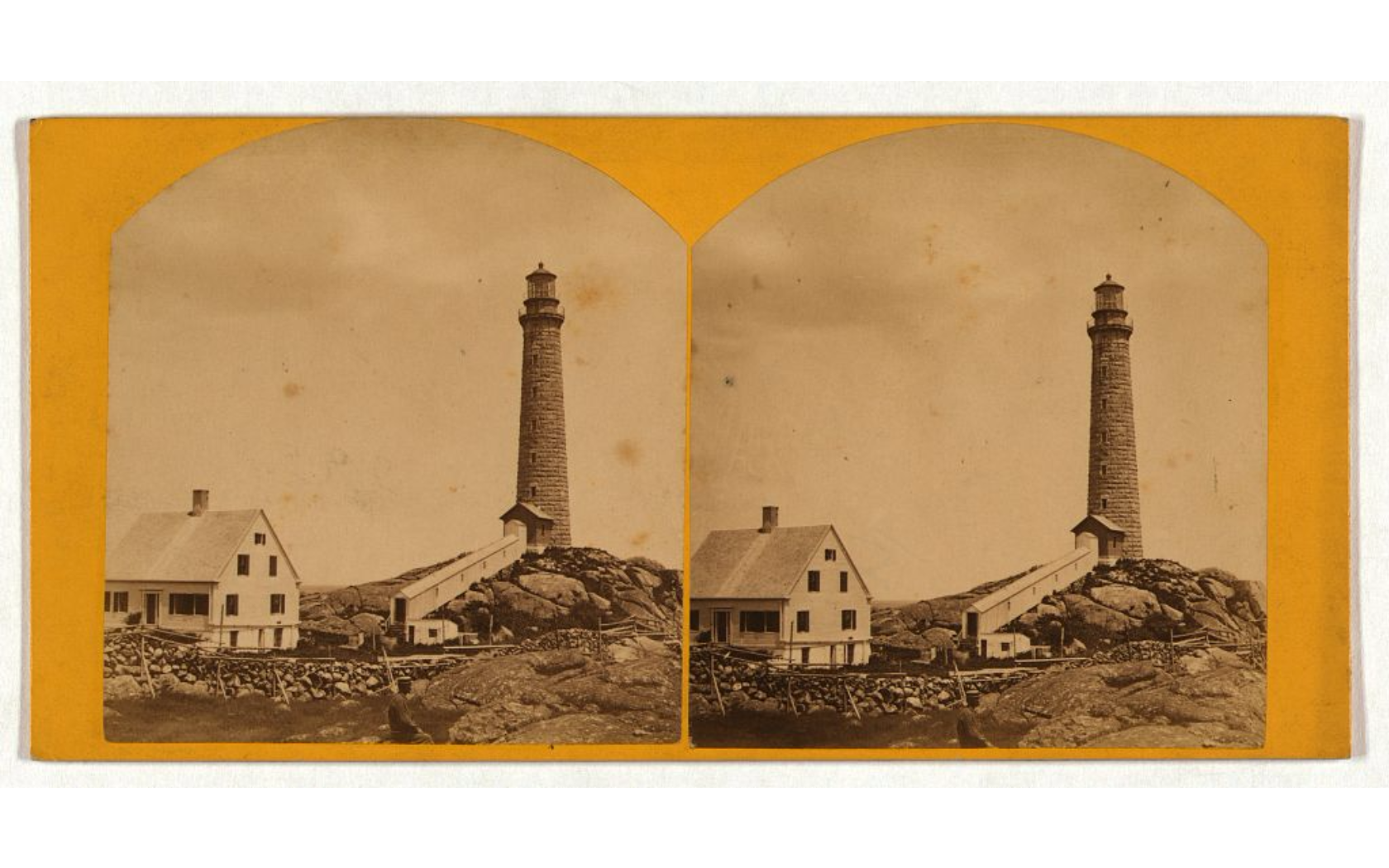

Inside page p.5 Brought Aid to Suffering: Lieuts. Burbeck and Radcliffe Stormy Night Trip to Thatchers
Of the many instances of courage and acts of humanity which have occurred at the State Emergency Hospital Post, there is none that perhaps stands out more prominently than a deed performed Wednesday (Oct 2) evening to give aid to a stricken family of eight on Thatcher’s Island, who are ill with the prevailing epidemic.
Lieut. (illegible) Burbeck of Salem, (illegible), S.G., who is attached to the medical staff and Lieut. John A. Radcliffe, aide to Major Thompson in charge of the post, is due heaps of praise, although these gentlemen would probably prefer that no publicity was given to their act, for it was these two officers who volunteered for service and went to Thacher’s in the night and gave relief to (light keeper) keeper Gustafson and his family. After all efforts had failed to get a physician in Rockport and Boston an appeal was made to the Emergency Post. Major Thompson U.S.A. Medical Corps, I command, conferred with his assistance. “I hate to think of that family being on that island tonight without a doctor seeing them. Who (illegible) and was preparing to return to his home in Salem, where a number of patients were waiting him was the first to volunteer. “I will go with you (illegible) “Good,” was the reply of the delighted major. A high powered auto was pressed into service and the two officers were soon on their way. Arriving at the Rockport coastguard station, the (illegible) Thacher’s and with a small motor dory. It was a rough passage, the two miles to the island from the mainland, but aside from a good ducking from the heavy sea, the officers reached the island all right and were soon at the keeper’s home. Keeper Gustafson was very ill. His wife had been in attendance on him and the six children was also down with the disease. Treatment was given the eight patients by Lieut. Burbeck, and arrangements made to have them looked after during the night. None were dangerously ill except the keeper himself, who seemed to be the most afflicted. None of the other families or men on the island (illegible) safely through the heavy seas and the lieutenants returned to camp at 11 o’clock after four hours absence and reported to the delighted and big hearted Major Thompson. The lighthouse authorities will be notified of the situation so as to send such relief as is needed to the stricken family.
Inside page p. 5 obit Was Descendant of an Old Family: Mrs. Martha K. Rogers Dead at Advanced Age 83
Mrs. Martha Kimball (Friend), widow of William C. Rogers, passed away at the residence of her nephew, Percy S. Rogers, with whom she has made her home for the past 16 years, at the rear of 243 Eastern Avenue, this morning at the advanced age of 83 years, 9 months and 14 days, being among the oldest residents of the city, her death being due to infirmities incident to old age.
Inside page p.5 obit Many Mourn for Frank B. Collins: Popular Young Man Made Brave But Unavailing Fight Against Malady
The death of Frank Benjamin Collins Jr a well known and popular young man of this city, an employee at the Belmont Hotel, died at his home on Wall street, East Gloucester, about 3 o’clock this morning. The young man was 30 years of age and he had been ill about two weeks with the Spanish influenza and pneumonia. The deceased was born in this city, his parents being Frank B. and Annie E. (Foley) Collins. He was held in highest esteem by all who knew him. His kind disposition his thoughtfulness for others and his keen devotion to his wife, his parents and family cause them to feel heartbroken over his demise. The friends and associates of the deceased hold out their hand of sympathy to the sorrowing ones in their hour of deep sorrow…He leaves besides his wife, Katherine (Powers) Burns, his parents Mr. and Mrs. Frank B. Collins of East Gloucester, two brothers, Ralph B. Collins, who had a short time ago gone to Camp Upton, N.Y., Harold R. Collins and Russell A. Collins and one sister Mrs. Annie, wife of Howard Lowe of 2 Alpine court. Ralph B. Collins brother of the deceased, who was at Camp Upton, it has been learned, has been transferred to the Embarkation Station at Camp Mills. It is hoped that the telegram to Private Collins, informing him of his brother’s death, will reach him, before he sails for over seas.
Inside page p.5 obit Formerly Reside Here
Late Dr. Charles B. Maguire Married a Wheeler’s Point lady …at one time a resident of this city, passed away at his home Woonsocket, R.I., on Tuesday after an illness of only a week from pneumonia…
Inside page p.5 obit Many Mourn Her Passing
Miss Nellie M. Parsons Victim of Influenza Malady 62 Mt. Pleasant Ave…The deceased passed her 21st birthday during her illness. She had been ill about three weeks with an attack of the Spanish influenza and pneumonia. She fought her illness with wonderful fortitude and Christian faith and the crisis had really passed, but her heart became weakened. Her life hung in the balance for nearly two weeks and her friends and in fact, the community, have been anxious and hopeful that this fine young woman might be spared. A beautiful life has closed and so early, it is deeply regretted.
Inside page p.5 ALLIES SMASH IN ON THE WEST!
Inside page p.5 Funerals Mrs. Margaret A. Brown
…held at her home 77 Eastern Avenue
Inside page p.5 Funerals Mrs. Alice Young
The funeral of Mrs. Alice (Harris), wife of George Young, who passed away at the State Emergency Hospital Post on Tuesday, was held this forenoon, the services being conducted by Rev. J.H.C. Cooper. Arrangements for the funeral were made by Capt. Ernest Young of sch. Gov. Foss, who arrived home yesterday to find his brother George and two children at the hospital, and the wife dead, the condition of her husband being so serious that he was not informed of his wife’s death. Capt. Young also found his sister and her husband ill at the hospital post, but the latter are improving and may be taken home today or tomorrow.
Saturday, October 5, 1918
**author note: First pandemic news article published in Manchester-by-the-sea**
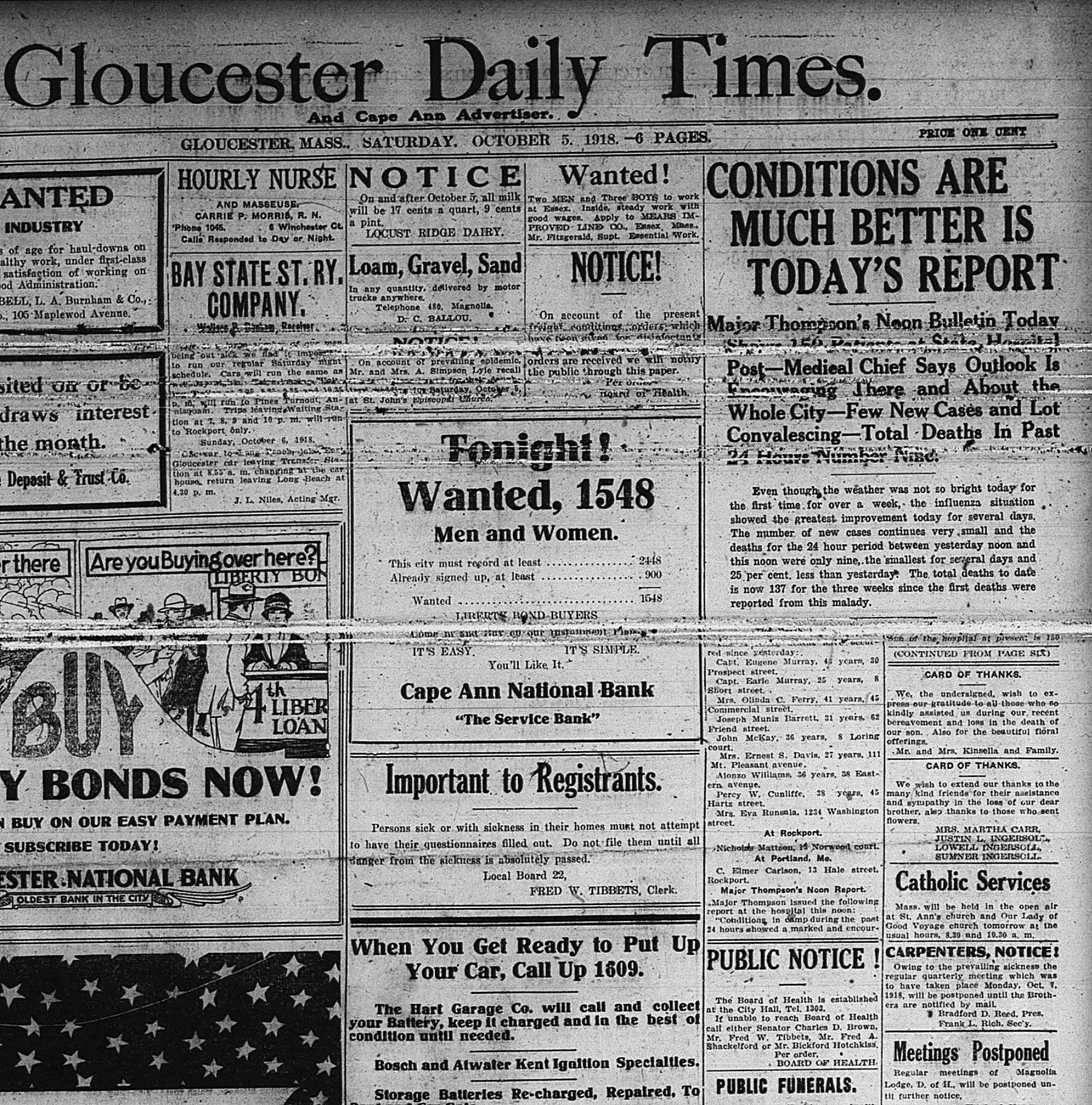

Front page Conditions Are Much Better Is Today’s Report: Major Thompson’s Noon Bulletin Today Shares 150 Patients at State Hospital Post—Medical Chief Says Outlook is Encouraging There and About the Whole City—Few New Cases and Lot Convalescing—Total Deaths in Past 24 Hours Number Nine.
Even though the weather was not so bright today for the first time for over a week, the influenza situation showed the greatest improvement today for several days. The number of new cases continues very small and the deaths for the 24 hour period between yesterday noon and this noon were only nine, the smallest for several days and 25 per cent less than yesterday. The total deaths to date is now 137 for the three weeks since the first deaths were reported from this malady. (Continued page 6)
Death list (top illegible)
Major Thompson’s Noon Report
Major Thompson issued the following report at the hospital this noon: “Conditioning in camp during the past 24 hours showed a marked and encouraging (illegible) of the hospital at present is 150
Front page Cards of Thanks Kinsella, brother
Front page reminders Public Notice! Board of Health Phone Tel. 1301 | Public Funerals! Meetings Postponed (Carpenters Mtg, Magnolia Lodge, )
Inside page p.5 Splendid Work at Hospital Post: Out Door Health Station a Model Thanks to Cooperative Endeavor
Major A.N. Thompson, U.S.A. medical corps in command of the military emergency hospital in this city, was called to Boston this morning, in conference with prominent health officials on the influenza situation in this city. Brockton wants Major Thompson also, to assist in organizing a similar situation in that city but whether he will have a second city (illegible) ing big work on Cape Ann will return this evening to camp here.
(title illegible)
Dr. Manning of the Red Cross service has been recently returned from France where he has had charge of a children’s hospital, has arrived at the local hospital and has been made superintendent under Major Thompson. Dr. Manning will probably remain (illegible). Two of the state guard ambulances have been sent back to headquarters to be used in Fall River and Lawrence, the local situation being such that two ambulances here can well look after the situation. Lieut. Cole of the supply company of the 5th regiment, M. S.G., has been relieved and Capt. Richmond has been sent here to take his place.
Praise for Hospital here.
Col. Brooks, surgeon general who organized the Corey Hill outdoor hospital, was a visitor to the local hospital on Wednesday. He paid a high tribute to the local staff and the efficient organization. Col. Brooks did not hesitate to pronounce the outfit even better than Corey Hill. The success of (illegible) broadcast. Other cities of the Commonwealth have had their eyes on Gloucester, and those that are being formed outside will be formed on identical lines of the one in this city.
State Guard a Blessing.
One of the big blessings in the present emergency has been the Massachusetts State Guard, which was organized a year and a half ago, to take the place of the National Guard. But for Companies L and K of this city and M of Rockport, the hospital situation in Gloucester would have been a serious matter indeed. With some 30 of Gloucester’s leading young business men called into emergency service, many lives which otherwise would have been lost, have been saved. Gloucester owes a big debt to her state guard companies, as does the Commonwealth at large. “We thank God that we have a state guard,” one prominent business man remarked the other day. “I will never utter a word but of praise for the state guard boys in the future. Such workers, I have never seen. Not only carpenters, mechanics and organizers, but orderlies and nurses have been supplied to the sick by the local boys. Time and their own safety has not been considered. God bless them.” Major Sturgiss of Salem who was sent here to open up the local unit and has been attached to the physician’s staff ever since, has been sent to Ipswich to assist in organizing hospital facilities in that place.
Chaplain
One of the hard workers of the outfit is Chaplain Bertram D. Bolvin, commonly termed “fighting parson,” and “the man with the big heart.” Chaplain Bolvin is on the job early and late and is rendering valuable service indeed.
Conference With Health Board.
Major Thompson had a conference with the Board of Health Thursday evening on general health matters and problems. General health conditions, a contagious hospital which the Board of Health has urged for some three years and many matters were (illegible) and grasps a situation at once. The Board and the major were in perfect accord on many matters and out of the presence (illegible) restored to normal conditions, it is not at all unlikely that greater financial and public assistance that ever before will be given the local board to carry out many of its policies, which it would like to put in force. For a city of its size, Gloucester at present has perhaps one of the most consistent boards in its history, the members being Dr. Philip P. Moore, chairman; Osborne Knowles and Christian D. Saunders, Lieut. John A. Radcliffe, the secretary of the Board, who is associated with Major Thompson in the present campaign against the epidemic in this city, undoubtedly will have much valuable experience and knowledge to give the Bard in its future activities in the city. Since the present epidemic, Miss Mary Bennett of the High School faculty has been assisting the local board in the capacity of assistant clerk. Like scores of others in their various lines, she is rendering valuable assistance.
Hamilton Nurses Appreciated
(illegible) the mayor of South Hamilton, Ontario, thanking him in behalf of the citizens of Gloucester for the generous response for nurses in our city. The delegation from Canada consists of 12 young graduate nurses, some of Canada’s prettiest and finest, and each one highly proficient in her profession. They work in two shifts of 12 hours each, and certainly, are real “angels of mercy.” Two of the quota have been ill, Miss Whittun and Miss Longley. Both are on the mending hand, however, and in a few days expect to be on the job again. Every consideration is being shown the girls, in the matter of their health and comfort to keep them well. There are also a number of other outside nurses who have jumped into the emergency and the same consideration is being shown towards them in the matter of protecting their health and looking after their comfort.
Capt. Parsons Worked Night and Day.
Capt. Carleton H. Parsons has contributed in no small manner in the success of the camp. For several days, the captain worked night and day in getting details and his part of the job in shape, and helping to put the hospital “over the top.” Just how long the state guard boys will be on duty of course depends on the process of the epidemic. With the continued good reports of the past few days, all are hoping that the disease which has ravaged Cape Ann and caused such a heavy toll of deaths, will have spent itself and things will have once again resumed their normal conditions.
Inside page p.5 Germans Lose Ground on All Fronts: Yanks Seize Important Heights—Lilie But Six Miles Away
Inside page p.6 Conditions Better is Today’s Report (continued from page 1)
…patients, an increase of 3 over yesterday’s figures. This increase, it should be understood, does not necessarily indicate new cases of the disease developing since yesterday. In a number of instances, the newly admitted patients have been ill several days before being admitted.
“The total number ill at present is 117, dangerously ill 2, seriously ill 4. There are 20 convalescing patients who probably, during the next 38 or 72 hours, will be discharged. There have been no discharges today, owing to the inclement weather, it being deemed inadvisable to discharge patients under such weather conditions. Those ready for discharge will, therefore, be kept in camp another 24 hours. Since yesterday’s report there have been four deaths, or a decrease of one. Of these one was brought to the hospital in a moribund condition and died before being placed in a tent. It will also be noted that the number of patients on the dangerous list is one less than yesterday, although the population of the hospital is considerably increased. Of the total population, there are only seven soldiers in the hospital. From scattering reports received from physicians this morning the same gratifying improvement is noted in the city. When the total number of new cases have been received it is believed they will show no material increase over yesterday’s figures.”
Will Inspect Milk.
Just to what extent to (illegible) the milk situation enters into the present epidemic is being studied by Major Thomas [sic] and the Board of Health. This afternoon a survey will be conducted of the local supply.
Post Health Warning Signs.
Signs printed in Italian and Portuguese, relative to influenza and the best means of combatting the disease were posted about the city yesterday afternoon by state guard troops.
Need of Volunteer Workers.
There is still lots of opportunity for volunteer workers and helpers in the present emergency. Because conditions have vastly improved, there is no reason to feel that help is not needed.
“There will be plenty of work for any and all for many weeks to come,” said Major Thomas [sic] this morning in speaking about the situation. “After the epidemic in the city has subsided, the work of rehabilitation and reconstruction will have just begun. The blow has been a hard one to some families and a big, noble and humane work is ahead for the public-spirited, whole-souled citizens during the coming winter in alleviating possible suffering. <
Would Ban All Gatherings.
**message from US Surgeon General Blue**
“The only way to stop the spread of influenza is to close churches, schools, theatres and public institutions in every community where the epidemic has developed, in the opinion of Surg. Gen. Blue of the Public Health Service. “There is no way to put a Nationwide closing order into effect,” he said today, “as this is a matter which is up to the individual communities. In some States the State Board of Health has this power, but in many others it is a matter of municipal regulation. I hope that those having the proper authority will close all public gathering places if their community is threatened with the epidemic. This will do much toward checking the spread of the disease.”
Cardinal Counsels Courage.
**author note: Church pushes at least have Sunday mass outside**
With the hope and mind of stimulating the courage of the thousands of people under his spiritual care, His Eminence Cardinal O’Connell yesterday afternoon issued a pastoral letter dealing with the epidemic situation. The Cardinal called upon all to face the situation without fear, and spoke words of comfort to those who, as a result of the epidemic, have had sorrow brought into their home. The Cardinal pays tribute to the civic authorities for their zeal and heroic efforts to combat the epidemic. Treating of the matter of closing the churches, the Cardinal, by suggestion, hopes that if this should become an absolute necessity, that permission and arrangements can be made that masses will be celebrated in the open air on Sunday, thus allowing Catholic people to fulfill their religious obligation of attending mass on a Sunday. The Cardinal’s pastoral is filled with earnest devotion in behalf of those under him.
Dr. Shinn Receives Some of Dr. Leary’s Vaccine.
Dr. Philip A.. Shinn has received a small supply of Dr. Timothy Leary’s new influenza vaccine the use of which is restricted for the present to those actively engaged in combatting [sic] the disease, because of the great difficulty of making enough to supply the demand. Doctors are working night and day at the Tufts College laboratory, and are backed by Massachusetts state funds. The conditions under which the vaccine is distributed as stated last night by Dr. Olga Leary, the head of the Tufts laboratory, are that it shall be used as is.
Big Increase at Funston.
Camp Funston, Kan., reported the largest increase in influenza yesterday, with 1190 new cases, while Camp Jackson, S.C. and Sherman, O., each reported more than 1000. Although both Camps Dix, N.J. and Grant, Ill., reported fewer cases of influenza, the pneumonia and death rates at those points increased , with 300 pneumonia cases and 43 deaths at Grant and 172 pneumonia cases and 59 deaths at Dix. In the first fight against the disease among the civilian population, the public health service has sent physicians to Nashville, Norfolk, Va., and has calls from West Point, Va., Altoona, Pa., Berlin, N.H., Eastport, Me., Chester, Pa., and Portsmouth, Va., which will be filled as soon as possible. Telegrams have been sent to all state health officials to the effect that emergency medical and nursing aid from the public health service and the Red Cross in connection with the influenza epidemic will be supplied only by requests addressed to the surgeon-general of the public health service by state health officers. This action, it was explained, was in the interest of the systemic and intelligent handling of the campaign against the disease.
Malady Spreads All Over East.
Spanish influenza continues its rapid spread among the civilian population and in army camps. Reports yesterday to the public health service in Washington showed the disease had become epidemic in many more cities, while 12,975 new cases were reported among soldiers training in this country. Besides the New England district the disease has now reached epidemic proportions in New Jersey and also in parts of Pennsylvania, Maryland, Delaware, Virginia and Alabama. Thus far 161 doctors have been ordered to report to public health service officials in charge of the situation in the different places where the disease is especially prevalent. An official of the service was sent to Trenton to take charge of the campaign in New Jersey. There was no record to show the pneumonia and death rates among the civilians, but in army camps pneumonia cases nearly doubled, being 1854, yesterday, against 930 the day before. Deaths in army camps, however, decreased, being 331, compared with 390 the day before. The total number of influenza cases in the camps now is 127,975: pneumonia cases 10,429, and deaths 2869.
To Open Emergency Food Center
**note from author: Generous Mains Street biz partners with Red Cross**
The store recently occupied by Sponagle, the barber, at 68 Main street, has been placed at the disposal of the Red Cross by interested friends and will be at once fitted and opened for an emergency food centre where the preparation of the food necessary for those that are sick will be carried on and from which it will be sent out under the direction of the Red Cross. Later on the store will also be used as a place for the preparation of certain clothing needs, as clothing will be one of the necessary articles which will have to be provided in a good many homes in a very short time.
Inside page obit Splendid Youth Lost to Country: O. Procter Friend of here died at Philadelphia while on sick leave.
The remains of Osborne Procter Friend who passes away at Philadelphia September 29 while awaiting a call to active service in the naval aviation corps, have arrived at the home of his parents, Mr. and Mrs. Edward E. Friend, 2 Mansfield Street, and funeral services will be held at the home this afternoon…He was transferred to the naval aviation corps in April last, and at the time of his death, was absent on sick leave…
Sunday, October 6, 1918
No newspaper on Sunday
Monday, October 7, 1918
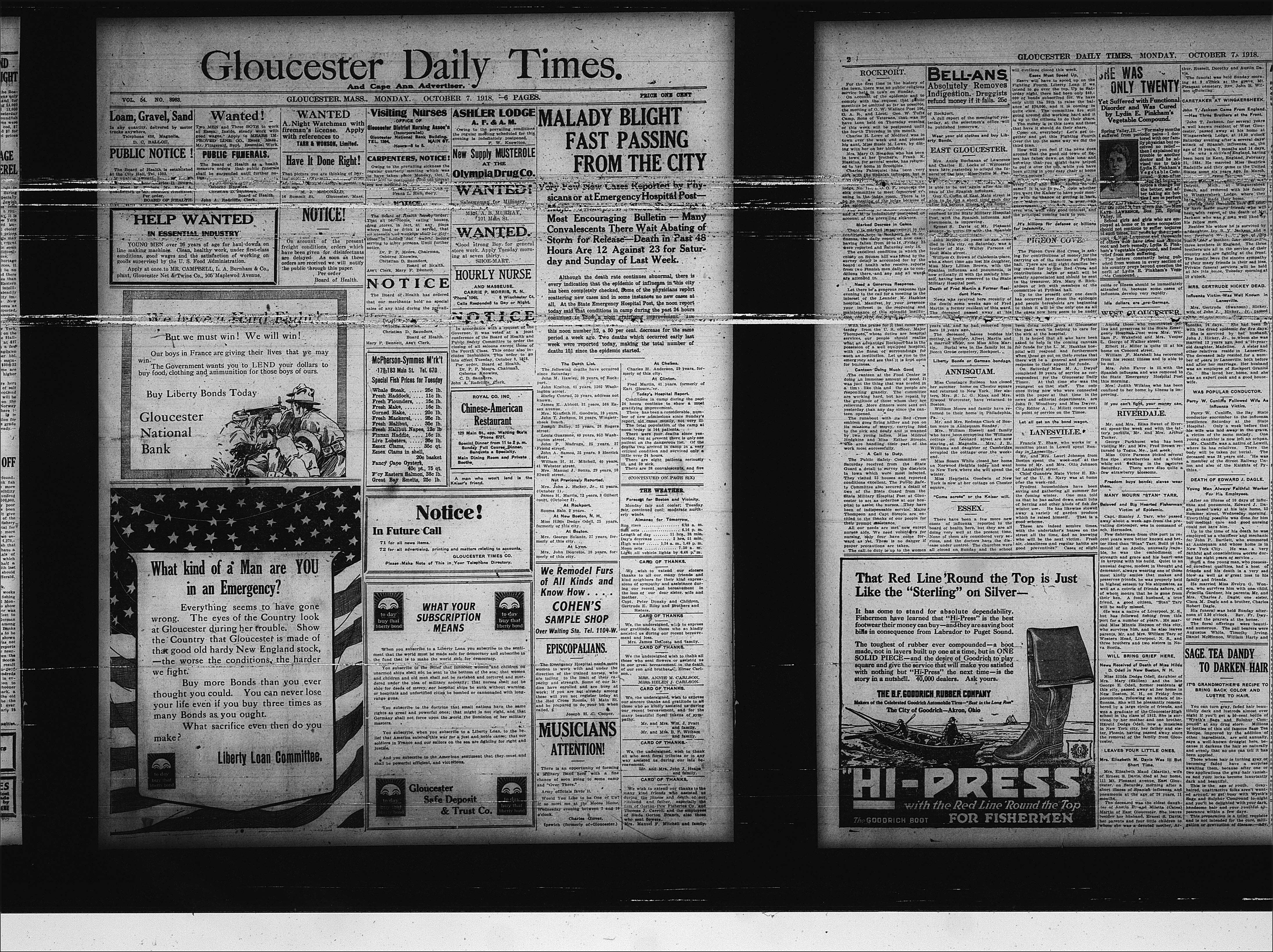
Front page Malady Blight Fast Passing From the City: Very Few New Cases Reported by Physicians or at Emergency Hospital Post—Major Thompson Most Encouraging Bulleting—Many Convalescents There Wait Abating of Storm for Release—Death in Past 48 Hours are 12 Against 23 for Saturday and Sunday of Last Week
Although the death rate continues abnormal, there is every indication that the epidemic of influenza in this city has been completely checked. Some of the physicians report scattering new cases and in some instances no new cases at all. At the State Emergency Hospital Post, the noon report today said that conditions in camp during the past 24 hours continued to show a most gratifying improvement, (illegible) this noon number 12, a 50 per cent decrease for the same period a week ago. Two deaths which occurred early last week were reported today, making the total number of deaths 151 since the epidemic started.
The Death List.
Today’s Hospital Report.
Conditions in camp during the past 24 hours continue to show a most gratifying improvement. There has been a considerable number of new admissions since Sunday’s report, old cases mostly, not very ill. The total population of the camp at noon today is 144 patients. There were four deaths since yesterday, but at present there is only one patient on the dangerous list. Of the deaths two arrived in camp in a very critical condition and survived only a little over 24 hours. There are eight patients seriously ill, and 59 sick. There are 38 convalescents, and five (continued inside pages) whose conditions are normal. The latter are children who are being kept in camp until proper home conditions are found for them. Twenty-three patients (illegible) camp. There were (illegible) patients discharged during the 24 hours from Sunday morning. From physicians reports about the city the number of new cases yesterday in town were few. Several physicians report scattering new cases, and in some instances no new cases at all. At the public health dispensary, where emergency calls for medical assistance are received, not a call was recorded from 8 o’clock last evening to 5:30 this morning.
Inside page The Sunday Story.
The State Emergency Hospital Post report for yesterday as follows:
The same marked improvement in the condition of patients in the hospital up to noon continues. Three patients are dangerously ill and seven seriously ill. Seven patients have recovered and are ready for discharge, and 33 in the convalescent class will probably be eligible for discharge within the next 48 hours. There are seven patients whose conditions is normal, making a total population for Saturday’s report should have been 125 patients instead of 150. There have been seven discharges, making present hospital population 118. Since Saturday’s report there have been but two deaths, or a decrease of two over Saturday’s list. Major A.N. Thompson, M.C., U.S.A., in charge of the Military Hospital Camp in this city, went to Boston this morning for a conference at the State House, relative to the influenza situation and matters pertaining to the epidemic in the state. The major expects to return to camp this afternoon, and during his absence Dr. John B. Manning, superintendent of the hospital, in in charge of affairs. Yesterday afternoon, Major Thompson met with the mayor, municipal council, public safety committee, the board of health, local branch of Red Cross, overseers of the poor and others, in the council chamber at City hall and went over the situation in the city both as to its present status and the problems of the future. It was a most interesting conference lasting nearly two hours and some very valuable and interesting information was learned by those present. The major urged the cooperation of the public and its hearty support in aiding the board of health measures both from a financial as well as a moral standpoint. Major Thompson made it plain that good health and healthful conditions in a community were most vital to maintain the high morals of our man power and the winning of the war. Major Thompson paid a high tribute to the cooperation of the health authorities and the Gloucester public in the present emergency. He said the team work was certainly most remarkable, the like of which he had never before experienced and congratulated the city upon its good fortune. The operation of the Military Hospital, what had been accomplished, and its general success was certainly most gratifying news to those assembled. The several problems growing out of the present situation were informally discussed with a view of making provision for such emergencies as may arise. It was 4.30 o’clock before the meeting adjourned, until Wednesday evening when Major Thompson will again meet the committee.
Nurses Aids Badly Needed
Nurses Aids are badly wanted at the State Emergency Hospital. There have been very many volunteers but more are needed, especially at night. Nursing is the real big game in bringing back the sick to health, and it is therefore imperative that all possible assistance be given the trained nurses who are putting in 12 hours on each shift in caring for the afflicted. While there is every reason to believe that the epidemic is on the wane in Gloucester, there are a number of patients who will need attention at the hospital. Don’t wait to be asked. There is practically no danger from infection, if instructions of the physicians are carried out in attending the sick. It is a human and very necessary service, and every woman who can give of her time and assistance will be doing a most noble service. The tender care and attention has done a lot in restoring to health the sick at the hospital. Those who have been discharged are loud in their praise for the nursing attention they have received. If you have not registered, do so with either the Red Cross or Mrs. Raymond Calpin at the Emergency Hospital Post.
Our Angels From Out-Of-Town
Following is a list of the nurses sent from South Hamilton, Ontario, to the emergency camp in this city: C.E. Alward, Beatrice Dellimore, Nora (illegible), A.E. Lindrum, Martha Long- (illegible), Ruth Wilthum, Henrietta Patterson, Mrs. Harriette Willoughbey, Lillian Futa(illegible). Others serving from out of town are Vera Averill, Maine; M.E. Barker, Cushing Hospital, Boston; Esperie Cahors, Boston; Lieut. T.M. Develin, Boston; E.H. Hastings, Providence, R.I.; Dr. John Lehner of Boston; Dr. John O’Keefe of Leominster; Mrs. A.F. Weeks of Maine. Miss L.B. Boyce of Providence, R.I., Miss McKenna of Holyoke, Miss Rafferty of Providence and Miss Woodbury of Manchester, N.H. have been sent elsewhere to do nursing work.
Front page Card of Thanks
from Dunsky family, Mrs. James DeCoste and family; Annie and Helen Carlson; Mr. and Mrs. Wm. J Pratt and Family; Mr. and Mrs. BF Witham and family; John J. Heaps and family; Mrs. Manuel F. Mitchell and family ( “especially the firm of Gorton-Pew Fisheries Co. and Thomas J Carroll and the employees of Slade Gorton Branch”)
Inside page All Bars Closed by Board of Health
Yesterday afternoon (10/6) there was a meeting of the Board of Health and Public Safety Committee at City Hall and an order was adopted by the Health board, closing until further notice, all bars, palm gardens and saloons used for the sale of intoxicating liquors, to go into effect tomorrow (10/8). The order was made applicable to restaurants and premises holding innholders’ licenses. The action was taken as an emergency health measure and a letter was sent at once to William P. (illegible) license Commissioners, requesting him to put the order into effect at once. Although the Board of Health had contemplated the action of closing the saloons, a telegram was received from Governor McCall requesting that it be done, and made it imperative that the action be taken at once. The dispatch was received by Thomas J. Carroll, chairman of the local committee on Public Safety, and was as follows:
Thomas J. Carroll, Chairman Committee on Public Safety, Gloucester, Mass.
In addition to request of City of Boston that all churches close, the State of Pennsylvania and the City of Boston have ordered closed all saloons, soda fountains, bowling alleys, pool rooms, slot machines, parlors, billiard halls, auction rooms and other places of public gatherings. It is our earnest hope that the entire state of Massachusetts, every city and town, will follow this wise example and thus assist the Federal and State authorities in checking and overcoming the influenza as rapidly as possible. Samuel W. McCall, Governor of the commonwealth. H.B. Endicott Executive Manager Massachusetts Committee on Public Safety, Chairman Emergency Public Health Committee. (Illegible)…places of public gatherings have previously been ordered closed by order of the Board of Health.
Inside page p.6 Died column
Inside page p.6 Funeral column
Tuesday, October 8, 1918
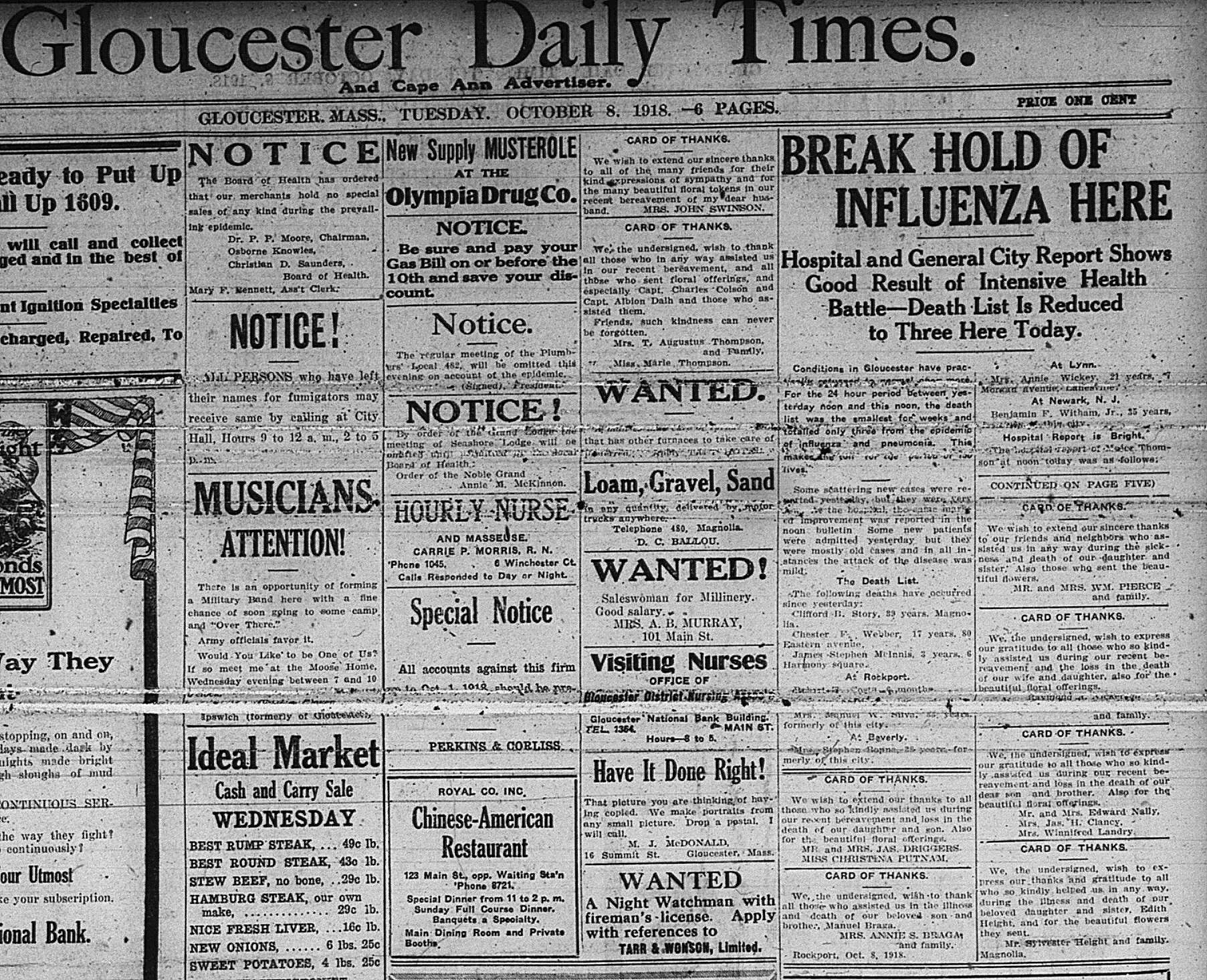

Front page Break Hold of Influenza Here: Hospital and General City Report Shows Good Result of Intensive Health Battle – Death List is Reduced to Three Here Today.
Conditions in Gloucester have practically reduced to normal. For the 24 hours period between yesterday noon and this noon, the death list was the smallest for weeks and totaled only three from the epidemic of influenza and pneumonia. This makes (illegible) 150 lives. Some scattering new cases were reported yesterday, but they were very (illegible) the same marked improvement was reported in the noon bulletin. Some new patients were admitted yesterday but they were mostly old cases and in all instances the attack of the disease was mild.
Front page several card of thanks
The Death List.
The following deaths have occurred since yesterday:
- Clifford B. Story, 39 years, Magnolia
- Chester F. Webber, 17 years, 80 Eastern Avenue
- James Stephen McInnis, 3 years, 6 Harmony square
At Rockport
- Richard Costa 6 months
- Mrs. Samuel W. Silva, 55 years, formerly of this city
At Beverly
- Mrs. Stephen , 28 years, formerly of this city
At Lynn
- Mrs. Annie Wickey, 21 years, 7 Morgan avenue, Lanesville
At Newark N.J.
- Benjamin F. Witham, 35 years, formerly of this city
Hospital Report is Bright.
The hospital report of Major Thompson at noon today was as follows:
“The total population of the camp at noon today is 128 patients. Since yesterday’s report, there have been 15 persons discharged, the largest number of discharges in any one day since the opening of the camp. The number of convalescents is also the largest that the camp has had, there being a total of 49 patients, who during the next 48 hours or so should be eligible for discharge. There are at present 10 patients in camp whose condition is normal, these being children who are being kept in camp under the supervision of the hospital staff until such time as proper home conditions are found for them. The number of patients sick is 32, those dangerously ill 3, and those seriously ill 2. During 24 hour period from yesterday noon there were three deaths. A noticeable feature in connection with the hospital camp is the very small percentage of sickness that has occurred among the soldiers. An investigation among the guardsmen who have been ill would indicate that the illness had been previously contracted outside the camp or was due to overwork, many of whom during the early days of the hospital camp worked day and night, almost continuously, without rest or sleep. It develops that one case was, in all probability, contracted at the old Emergency Hospital while another was contracted sleeping in a tent with his patient. Still another case, after being investigated showed that the man’s family had been previously ill with the sickness, while that of another turned out to be nothing more than a simple cold. All of which goes to show that contagion can be avoided by following out instructions which have been given in camp; namely, the use of masks, washing of hands, plenty of fresh air and sunshine and a strict compliance with the slogan “Don’t (illegible) rate in your face.” The very gratifying improvement of the past three days continues, I am very happy to say. From reports from the city proper the same encouraging information is received, indicating a very small number of new cases in the past few days.”
Doctor From China at Hospital Here **Meet Dr. Street**
Dr. Lionel A.B. Street who for the past 20 years has been practicing in China, has been assigned to the state Emergency Hospital Post in this city and arrived in camp last evening. Dr. Street returned from China only a month ago, and intends to go to France shortly. Upon coming to Massachusetts, he was the first physician in the state to volunteer for service in the present epidemic and was sent to Canton. Conditions have so far improved in that place that the department was able to release him for Gloucester to join the fine staff already organized by Major Thomson*, camp commander.
Major Thompson* to Stay Here **author note: typesetting spelling of his surname changes daily
Major Thomson had a very busy day yesterday. He attended a conference at the state house in Boston yesterday and afterwards went to Manchester and Ipswich where he will have charge of the situation in those towns, in addition to Gloucester and Rockport. It was expected that the major would be pulled off his job here and take charge of either Cambridge or Brockton, but happily to say, the major is to be retained on his big job on Cape Ann, where he has made a most remarkable record and success.
Conference Today.
This morning, the major and his aide, Lieut. John A. Radcliffe, visited the Board of Health at City hall, had a conference with Chairman Thomas J. Carroll of the Public Safety Committee, inspected the Pew plant of the Gorton-Pew Fisheries Company, went to Rockport and looked over the hospital and situation there. Dr. John B. Manning, superintendent of the local hospital, also went over to Rockport and looked things over. This afternoon, Major Thomson will go to Manchester. It is likely that the major will “loan” Dr. Street to Manchester for a short time, to head up things in that town. Ipswich has also started a camp hospital and the state guard company in that town has been called out.
All watching Gloucester Camp.
Not only the state, but the nation as well has its eyes on Gloucester at the present time. The first open air camp was established at Corey Hill, Boston, for the merchant marine, but the one in this city is the first for the civilian population and is far ahead of even the one at Corey Hill, so Col. Brooks, surgeon general, has stated. The wonderful success of the out-door treatment, the wonderful organization of the local unit and its many details is being set up as a model for other communities to follow. 8 Oct 1918
Ease Up On State Guard
(illegible) burden of the two local and Rockport companies of guardsmen, 30 men were sent by the Adjutant General’s department from Co. M of Manchester yesterday afternoon. A meeting of the public safety committee, health officials and various organizations will be held at City hall tomorrow evening, when Major Thomson will be present, and matters pertaining to a permanent emergency hospital structure for all times in the future will be discussed.
Inside page obit Russia Cement Co. Foreman: Late James E. Abbott Highly Respected Resident of West Gloucester
…The sympathy of the entire community is extended to the widow, whose mother, Mrs. Alice Burroughs, is ill at this time with the same disease…and William H. Abbott being ill at his home at Mattapan and Mrs. Favor ill at the State Emergency Hospital Post both with the same disease add to their sorrow…private services held at his late home
Inside page Personal Mention
**recoveries are mentioned!**
Representative and Mrs. Carlton W. Wonson who are both ill at the home of Mrs. Wonson’s parents, Mr. and Mrs. Enoch Burnham, Prospect street, are recovering nicely from their illness of Spanish influenza…Friends of L.M. Cox will be pleased to learn that he has recovered from his recent illness and is back again at his place of business. The many friends of Arthur Grimes stationed at Camp Sevill, SC, will regret to learn of his serious illness, his mother being notified Friday…Charles S. Thurston who has been quite ill at the home of his daughter Mrs. Allan F. Newman of Somerville is slowly recovering.
Inside page p.2 East Gloucester column
**neighborhood report is brief!**
Wednesday, October 9, 1918

Front page obit Walter Osborne has Passed Away
Walter Osborne, manager of the Harbor View hotel, ex-collector of Customs, a former prominent member of city government, and a former well known newspaper man died at the hotel Eastern Point Road following operation for cancer of the stomach performed at the home by a Boston specialist…
Front page many notices cards of thanks including a long one from Bradford Amiro (Amero)
Front page, and con’t p.2 ‘Optimistic’, Maj. Thomson’s Report: New Epidemic Cases Very Few About City—Convalescents Many at Hospital Post—Number of Deaths, Five for Past 24 Hours
The Spanish influenza epidemic is fast on the (wane) as can be learned by reports from physicians and the various authorities who have been engaged in combatting the disease. There have been very few new cases reported and the death rate continues low as compared with the terrible toll when the pestilence was at its height. Deaths here yesterday numbered five, making the total of 161 for the period.
The list of Deaths.
Marked Improvement at Hospital Post
The State Emergency Hospital Post report to noon today made by Major Thomson as follows:
“The total population of the hospital camp at noon today is 121 patients. I am very happy to say that the marked improvement among the patients in camp, continues, and yesterday, 12 patients were discharged to their homes. At the present time, there are 20 patients who are eligible for discharge and will be sent out just as soon as we are satisfied that the home conditions are proper, and warrant their return. In addition to this there are 18 patients whose conditions are normal and they can also be discharged, just as soon as proper places are found for them to go. Another most gratifying sign is the large number of convalescents, there being 38 patients at noon today, who have so far improved that they should be able to return home during the next 48 or 72 hours. The total number of admissions since yesterday was 10, mostly mild cases, and in several instances of several previous days duration. The total number of patients ill at the present time is 39, dangerously ill, four and seriously ill, two. The number of deaths for the 24 hours ending this noon was three. In the city, conditions are also much improved, I am informed. During the night, only three calls were received at the District Nursing Headquarters and three more this forenoon, the latter for nurses.
Major A.N. Thomson, post commander of the military hospital at the Addison Gilbert hospital grounds, has gone to Brockton today to look over the influenza situation in that city, and to assist in organizing a unit and equipment to fight the disease in that city. The major left early this morning and during his absence, Dr. John B. Manning, superintendent of the hospital is in charge.
Convalescent Tent Adds to Comforts
Dr. Manning is certainly one of the idols of the local hospital outfit, Dr. Manning is in close contact with all the details of the hospital and each patient. Not only does the doctor see to it that each patient is being given the proper medical attention, but interviews them personally, inquiring about their personal comfort, whether they have sufficient bed clothing and are being given proper attention. One of the first signs of improvement among the patients is the sudden enormous appetite that is developed which in all cases cannot be satisfied to the fullest satisfaction of the patient, for strictly medical wisdom. However, just as soon as it is decided that the patient is well enough to partake of hearty nourishment, he is given all that he desires. This morning the big convalescent tent was completed and fitted with chairs, settees, tables, a graphophone and literature. Here the patients who have reached the convalescent stage will go each day, until they are in proper health to return to their homes. The graphophone was kindly donated by the Y.M.C.A. who have extended many other courtesies and valuable assistance in the present emergency. Reading matter, such as magazines, papers, games and those things which would make the convalescent happy will be gladly accepted by Dr. Manning at Major Thomson’s headquarters. Dr. Street, who arrived in camp on Monday evening went to Manchester yesterday and is in charge of the hospital which has been established there. Mrs. William Hooper (Alice Forbes Perkins) of Manchester is doing a most noble service in that town and has been of great assistance in the present emergency. Not only has she worked for her own townspeople, but has maintained a deep interest in the Gloucester camp, contributing soup, sandwiches and many other necessaries needed in the operation of a hospital.
Inside page Notice – The Importance of Mouth Hygiene. Dentistry
The mouth is one of the points of entrance of the virus responsible for the present epidemic. Cavities or decay in the teeth offer ideal incubators for the growth of any species of bacteria and an unhealthy mouth presenting these favorable conditions for the reinforcement of the germ “army of invasion” is responsible in many cases for fatal results from the disease with which we are afflicted. (illegible) of the affected districts to make special efforts to insure that the mouth of every individual for whom they are responsible shall not be neglected to an extent that will invite infection. Mouth cleanliness, at all times essential to perfect health, is, in the face of present circumstances, a matter of more than usual importance. Representatives of one group of pneumonia germs are present in more than 87 per cent of normal human mouths. Health department returns indicate that pneumonia is the active cause of death in nearly all fatal cases reporting (illegible) morning, after each meal and on retiring at night will effectively remove millions of disease producing organisms, many of which are undoubtedly concerned in the present epidemic. A tooth cavity which retains decomposing food debris is a danger point and such dental treatment as is necessary to eradicate these favorable germ breeding grounds is urged as a very important preventative measure. – The Dental Hygiene Council of Massachusetts
Inside page Spreads South and West.
While a continued decrease in the number of new cases of Spanish influenza at army camps was shown in reports yesterday to the offices of the surgeon-general of the army, the spread of the malady among the civilian population over the country apparently still is far from being checked. Reports to the public health service showed that the disease was spreading rapidly in the South, and that it also was epidemic in portions of the middle West and far West heretofore free from it. South Dakota was added to the list of new states reporting the disease in epidemic form, while new outbreaks were reported from a number of other states. During the 24 hours ending yesterday at noon, 11,750 new cases of influenza have been reported by all army camps. This was a sharp decrease over the daily average last week. New cases of pneumonia also decreased, totaling only 2181 and deaths were fewer, 781.
Camp Taylor Worst Hit.
Camp Taylor, Kentucky, reported the largest number of cases, 1044. Camp Funston, Kansas, reported 927 and camp Dodge, Ia., 996. Pneumonia showed the greatest increase at Camp Meade, Md., where 255 cases were reported. There were 231 new cases at Camp Grant, Ill., and 160 at Camp Sherman, Ohio. The epidemic continues to subside at Camp Devens, Mass., only four new cases of pneumonia and 40 of influenza being reported. Conditions at Camp Dix, N.J., showed improvement with only 11 new cases of influenza and 29 of pneumonia reported. The total number of cases of influenza reported from all camps since the disease became epidemic last month now is placed at more than 182,000 while pneumonia cases total 19,283 and deaths 5671.
Inside page p.2 East Gloucester column
**people visiting from out of state—still!!– for wedding on Eastern Point!**
Inside page p. 5 Offers House for Children: Mrs. Henry Souther Tenders Use of Bass Rocks Residence to the Red Cross
Mrs. Henry Souther of Hartford, Conn., widow of the later Henry Souther of Bass Rocks, has offered the Red Cross the free use of the Souther residence on Brightside avenue, Bass Rocks, as a children’s nursery for the care of the children now under treatment at the State Emergency Hospital Post and who on account of sickness or other conditions at their homes cannot go to their homes upon being discharged from the hospital. The building is a capacious one and from its elevated and retired position (illegible) for which it is offered, and the entire community will unit with the Red Cross in acknowledgement of the generous offer which Mrs. Souther has made. The (illegible) Men of the Red Cross as soon as the necessary arrangements can be made.
Inside page p.5 WW1 news Yanks in Front in Fierce Drive
Over a front of 20 miles between Cambral and St. Quentin, the British, Americans and started a mighty drive which is in its initial stage…The American troops fighting alongside the British always were in the van, and when night fell their positions were where the points of penetration of the German lines were greatest. At last accounts hard fighting was still in progress, with the enemy steadily giving ground…
Inside page Vick’s VaporRub
Flu stories that look like news but are really advertisements begin in earnest.
Inside page p.5 obit Her Death Will Be Much Regretted: Mrs. A. Myron Tarr A Kindly Young Woman of (illegible) Personality
The funeral of Mrs. Florence S., Tarr, took place from (illegible)…Previous to her marriage she was for four years the teacher of the first and second grades at the Mt. Pleasant primary school, Rockport. She was a most successful teacher, beloved by her students and much liked by all parents, and her work was highly appreciated by the school authorities. Her personality was exceptionally pleasing; womanly, kindly and willing in all good works. Her death causes a loss keenly felt by all those who became acquainted with her during her residence both in Rockport and this city.
Inside page obit Death of Angus A. Munroe: Influenza Victim Was Held In High Esteem
After an illness of nine days of influenza and pneumonia, Angus A. Munroe passed away at his late home Tuesday night of last week at the age of 26 years. Such a fine, young man, who possessed many excellent qualities, ever pleasant and kind, had a host of friends and his death is a very sad blow as well as a great loss to his family and friends. He married Miss Catherine Melanson who survives him with three little children…
Inside page Funeral column Frank B. Collins, Jr.
The funeral of Frank Benjamin Collins, Jr., was held from his late home, 7-1/2 Wall street, yesterday afternoon at 2 o’clock. On account of the prevailing conditions, the services were simple and attended only by the young man’s family…The funeral was made doubly sad on account of the illness of Mr. Collins’ father and sister, neither of whom were able to attend the service. His brother, Ralph D. Collins, was also unable to get home because of the fact that he was about to go over seas with the American Expeditionary Forces…The pall bearers were John J. Lufkin, Jr., and George Mello, boyhood friends of the deceased; Frank Tanner, representing the Hibernians, Charles Noble representing the Holy Name Society and Fred M. Gorman and P.E.R. James W. Daniels representing Gloucester lodge of Elks.
Inside page Funeral column Mrs. Bradford Amiro.
The funeral of Mrs. Hattie May, wife of Bradford Amiro, who died at her home 8 Mansfield Street, from influenza-pneumonia on September 29, took place from Browne’s undertaking…She is survived by her husband and two children…Both children are suffering from influenza and are under treatment at the State Emergency Hospital Post, but are recovering. Her parents and sister were sufferers in the Halifax disaster, their house being partially destroyed by the explosion…
Inside page Funeral column O. Procter Friend
The funeral of O. Procter Friend, who died September 30 at the naval hospital in Philadelphia was held on Saturday afternoon at 3.30 o’clock from the residence of the deceased, Mr. and Mrs. Edward E. Friend, 12 Riggs street. The services were held private, owing to the epidemic, but a number of friends attended…
Inside page Funeral column John T. Jackson
Funeral services of the late John T. Jackson were held at his late home at Wingaersheek Lodge, Tuesday forenoon at 10.30 o’clock. The services were private and attended by relatives…the pallbearers were …
Inside page Funeral column Soren Bjerrum
The funeral of Soren Bjerrum took place yesterday afternoon at 1 o’clock,…his remains being sent home from Yarmouth, N.S., where he was landed ill with influenza-pneumonia by Capt. Charles Colson of sch. Natalie Hammond…
Inside page Funeral column Mrs. Mabel E. Sulanke
The funeral of Mrs. Mabel E., (Reed) wife of George A. Sulanke, United States Navy, was held at the home of her sister, Mrs. Lester K. Brown, …
Thursday, October 10, 1918

Front page Deaths More but Outlook Better: Seven Died from Epidemic Today—Only eight New Cases, However—21 Discharged at Hospital and 30 More Ready to Go at Noon.
An increase in the number of deaths over three preceding days is the worst feature of the influenza situation today. The new cases continue to diminish and only eight were reported to the Board of Health yesterday, with a total of 342 in all stages of the disease at present, with four doctors not reporting. The deaths since yesterday noon number seven, a total of ___ for the epidemic period.
The Death List.
The following deaths have occurred since yesterday:
- P. Joseph Barrett, 35 years, 25 Liberty street
- Mildred Marcella Russell, 48 years, 29 Sargent street
- (illegible)
- Telvina F. Avervado, 8 years, 50 Taylor street
- Helen Fraser, 10 years, 397 main street
- Anthony D. Enos, 24 years, 10 Winchester court
- (illegible) oore, 69 years, 1050
Kansas
- Sergeant Carlton J. Smith, 24 years, of this city
At Vineyard Haven.
- Capt. Charles j. Cooper, 60 years, of this city (*corrected 10/11/1918 heart trouble not influenza)
At Hampton, N.H.
- Victor G. Garland, 27 years, formerly of this city.
At Portsmouth, N.H.
- William E. Nelson, 25 years, of this city and Pigeon Cove
At Malden
- Miss Ella E. Miller, 23 years, teacher of sewing in public schools
At Camp Zachary Taylor, Kentucky
· Charles Tifft, 31 years, of Springfield, Mass., and summer resident of Annisquam
Hospital Report at Noon.
Another encouraging report was given out by Major Thomson at the State Emergency Hospital Post this noon. It was as follows:
The total population at the Hospital Camp today at noon is 163 patients as compared with 121 yesterday, I am pleased to announce. During the 24 hours from yesterday noon, 21 patients were discharged, the largest number in any one day since the opening of the camp. This noon there are 30 patients who are ready for discharge. Each and every case will receive a thorough investigation relative to home conditions, however, before a discharge is given, as has been the procedure in all cases of patients before they are sent out of camp. In addition to these we have 15 patients, mostly children, whose conditions are normal, who are also awaiting proper places for them to go. The total number of convalescents is (17? illegible). The present number of patients ill is 34, dangerously ill 3 and seriously ill 4. The total number of admissions was the smallest in several days, only six persons being received. There were two deaths, both children, who had been ill several days and in a serious condition before coming to the hospital. The Board of Health reports eight new cases yesterday and a total of 342 in all stages of the disease, as ill in this city at the present time, with four physicians to be heard from. Rockport reported only seven new cases yesterday and a total of 17 patients in the Haskins hospital.
On the Wane. (State report)
Health Officials on all sides yesterday were of the decided opinion that the epidemic is now very notably on the decline in Boston and nearby communities, and reports which continued to reach the health department from various points last night strengthened this view. Reports obtained by Dr. David Brough, deputy in charge of the medical division of the health department, were to the effect that there was an almost phenomenal falling off in the number of new cases throughout the city (Boston) while the cases which were being treated or discovered showed a much milder form of the disease than heretofore. Boston theatres will be closed another week by an extension of the present order which will be signed by Dr. William C. Woodward, (state) commissioner of health today. The order at present in effect closes theatres until next Saturday at midnight, but that which will be signed today will close entertainment and meeting places until one minute after midnight of Saturday, October 19. As in the previous order, all classes of theatres, concert halls, moving picture houses, dance halls, public assembly rooms and the like come under the ban, and no place where public meetings are held or entertainment given may open before next Sunday week.
Plague is Breaking
Although the epidemic of influenza and pneumonia is confidently believed to be now on the wane, the extended closure order was decided upon as ___ preventive measure to protect the public from possible contagion. It has not been decided whether, in the event of an abrupt drop in the number of new cases and deaths, the (illegible) improbable that the epidemic will have so entirely diminished in the next few days as to make a cancellation of the order feasible.
All Over the Country.
Spanish influenza now has spread to practically every part of the country reports yesterday to the United States public health service, Washington, showed the disease is epidemic in many western and Pacific coast states as well as in almost all regions east of the Mississippi river. Its spread also continues in the army camps, the number of new cases reported being greater than on the day before.
All Sections Afflicted.
Influenza now is epidemic at three places in Arizona, in Maryland, in many parts of Arkansas, in Louisiana, Missouri, Mississippi, Nebraska, North Carolina, North Dakota, Ohio, South Dakota, Tennessee, Texas, Vermont, Washington, West Virginia, and many (illegible) ed closed and public gatherings prohibited at Seattle, Bremerton, (illegible). The disease is reported from many parts of California while in Texas the malady has been reported from 77 counties, with the number of cses vary from one to 4000 in each county. A slight decrease is noted in the number of cases reported in Massachusetts, but in the District of Columbia the malady is spreading rapidly, more than 2000 new cases being reported.
Increase at Army Camps.
The epidemic continues in New Jersey and the public health services announces that a physician has been placed in charge at Perth Amboy in cooperation with the state and local health authorities. He had been directed to make the necessary arrangements for giving medical and nursing assistance. Aid was especially needed at this point, it was said, because of the recent explosion, which has increased the danger of the spread of influenza, pneumonia and other communicable diseases. New cases of influenza reported yesterday at army camps totaled 13,605, a slight increase over the number yesterday. There also was an increase in pneumonia cases, with 2342 (or 2842?) reported. The 820 deaths made a total of 6543 in the camps since the epidemic started last month. Camp Funston, Kan., reported 1430 new influenza cases yesterday, while Camp Custer, Mich. Reported 1000 and Camp Taylor, KY, 607. The highest number of pneumonia cases, 370, was reported at Camp Meade, Md., while Camp Custer had 275 new cases and Camp Grant, Ill. 201.
Inside pagee Obit Sewing Teacher Malady Victim: Miss Ella E. Miller Died In Malden Following Demise of Her Mother
Miss Ella E. Miller for the past two years teacher of sewing in the Gloucester schools, passed away at her home, 107 Avon street, Malden on Tuesday after an illness of less than a week with influenza-pneumonia. She returned to her home in Malden when the schools in this city were closed by order of the board of health, and shortly after her mother was taken ill with the disease, she passing away a week ago…
Inside pagee Obit Went to Mexican Border: Late William E. Nelson was Member of Old Company G.
News was received at Pigeon Cove yesterday of the death at Portsmouth, N.H. of William Everett Nelson, who died in that city Wednesday morning at 12.40 o’clock from effects of influenza…his widow is the daughter of Mr. and Mrs. Andrew Thorngren of Story street…
Inside pagee Obit Man of Upright Character: Stephen Moore for Years Lanesville Dory Fisherman.
Stephen Moore of 1056 Washington Street, a well known citizen of Lanesville passed away yesterday after a long illness from pneumonia…
Inside pagee Funeral list
- Miss Annie Wickey.
- Miss Nellie White
- Patrick J. Nally plumber “after a week’s illness of pneumonia”
Friday, October 11, 1918
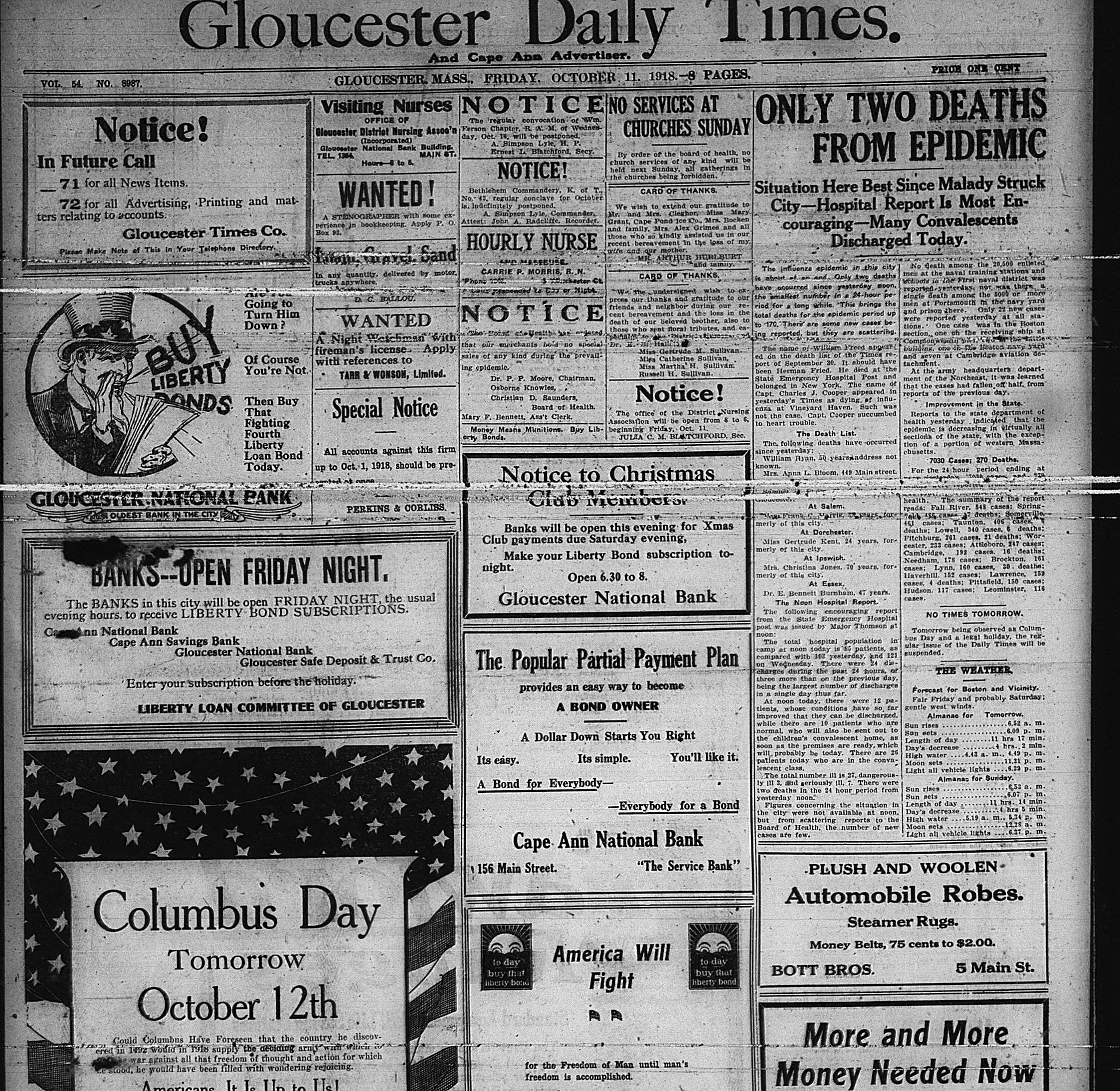
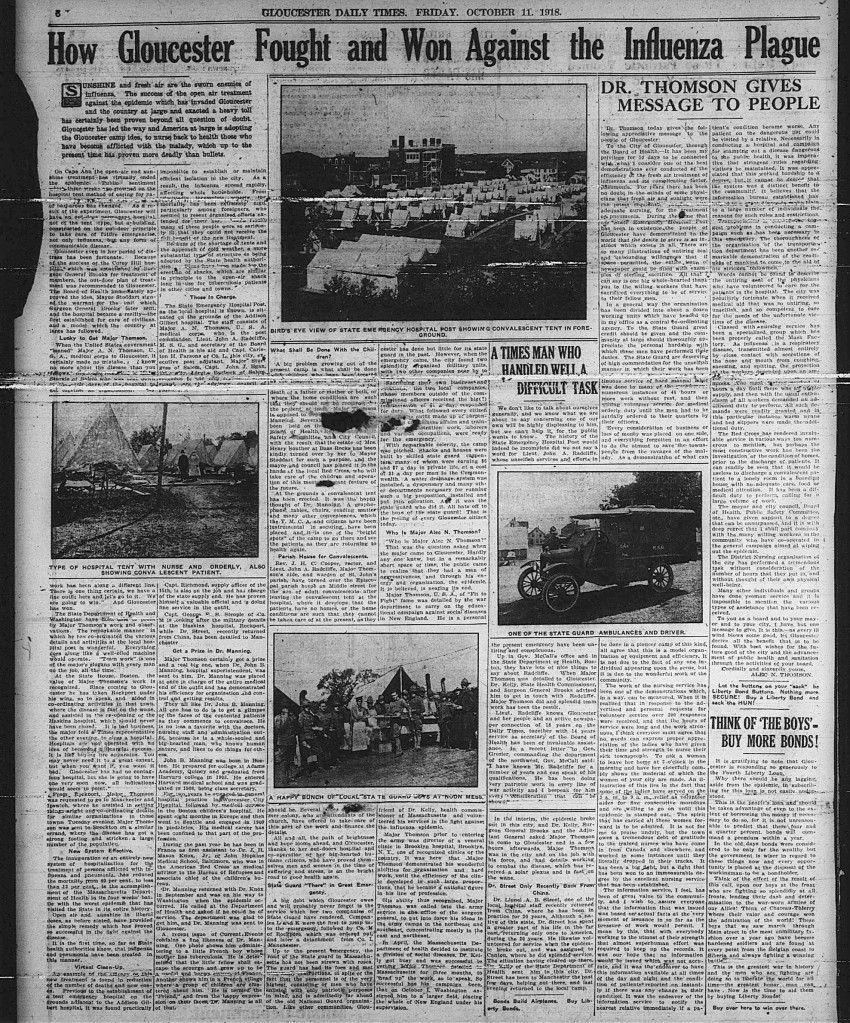
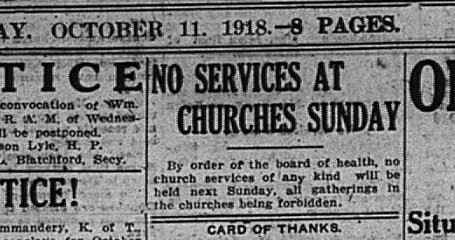
Front page Only Two Deaths From Epidemic Situation Here Best Since Malady Struck City—Hospital Report is Most Encouraging—Many Convalescents Discharged Today.
The influenza epidemic in this city is about at an end. Only two deaths have occurred since yesterday noon, the smallest number in a 24-hour period for a long while. This brings the total deaths for the epidemic period up to 170. There are some new cases being reported, but they are scattering.
The name of William Freed appeared on the death list of the Times report of September 30. It should have been Herman Fried. He died at the State Emergency Hospital Post and belonged in New York. The name of Capt. Charles J. cooper appeared in yesterday’s Times as dying of influenza at Vineyard Haven. Such was not the case. Capt. Cooper succumbed to heart trouble.
The Death List.
The following deaths have occurred since yesterday:
- William Ryan, 50 years, address unknown
- Mrs. Anna L. Bloom, 449 Main street
- Solomon (illegible)
At Salem
- Frank C. Harris, formerly of this city
At Dorchester
- Miss Gertrude Kent, 24 years, formerly of this city
At Ipswich
- Mrs. Christina Jones, 70 years, formerly of this city
At Essex
- Dr. E. Bennett Burnham, 47 years
The Noon Hospital Report
The following encouraging report from the State Emergency Hospital post was issued by Major Thomson at noon:
“The total hospital population in camp at noon today is 85 patients, as compared with 103 yesterday and 121 on Wednesday. There were 24 discharges during the past 24 hours, of three more than on the previous day, being the largest number of discharges in a single day thus far. At noon today, there were 12 patients, whose conditions have so far improved that they can be discharged while there are 10 patients who are normal, who will also be sent out to the children’s convalescent home, as soon as the premises are ready, which will probably be today. There are 25 patients today who are in the convalescent class. The total number ill is 27, dangerously ill 3, and seriously ill 7. There were two deaths in the past 24 hour period from yesterday noon. Figures concerning the situation in the city were not available at noon, but from scattering reports to the Board of Health, the number of new cases are few.
Naval
No death among the 20,500 enlisted men at the naval training stations and schools in the First naval district was reported yesterday, nor was there a single death among the 5000 or more men at Portsmouth in the navy yard and prison there. Only 22 new cases were reported yesterday at all stations. One case was in the Boston section, one on the receiving ship at Commonwealth (illegible) building, one in the Boston navy yard and seven at Cambridge aviation detachment. At the army headquarters department of the Northeast, it was learned that the cases had fallen off half, from reports of the previous day.
Improvement in the State.
Reports to the state department of health yesterday indicated that the epidemic is decreasing in virtually all sections of the state, with the exception of a portion of western Massachusetts.
7030 Cases; 270 Deaths.
For the 24 hour period ending at (illegible). The summary of the report reads: Fall River, 548 cases; Springfield, 486 cases, (?) deaths; Somerville 461 cases; Taunton, 406 cases, (?) deaths; Lowell 340 cases, 6 deaths; Fitchburg, 261 cases, 21 deaths; Worcester 233 cases; Attleboro 247 cases; Cambridge, 192 cases, 16 deaths; Needham, 178 cases; Brockton, 161 cases; Lynn, 160 cases, 30 deaths; Haverhill, 152 cases; Lawrence, 159 cases, 4 deaths; Pittsfield, 150 cases; Hudson, 117 cases; Leominster, 116 cases.
Front page notices and card of thanks No sales
All gatherings in the churches being forbidden
Inside page HOW GLOUCESTER FOUGHT AND WON AGAINST THE INFLUENZA PLAGUE with photographs
**p.5-6 special double page insert**
- Photo Bird’s Eye View of State Emergency Hospital Post Showing Convalescent Tent In Foreground
- Photo type of Hospital Tent With Nurse and Orderly, Also Showing Convalescent Patient
- Photo A Happy Bunch of Local State Guard Eats At noon Mess
- Photo One of the State Guard Ambulances and Driver



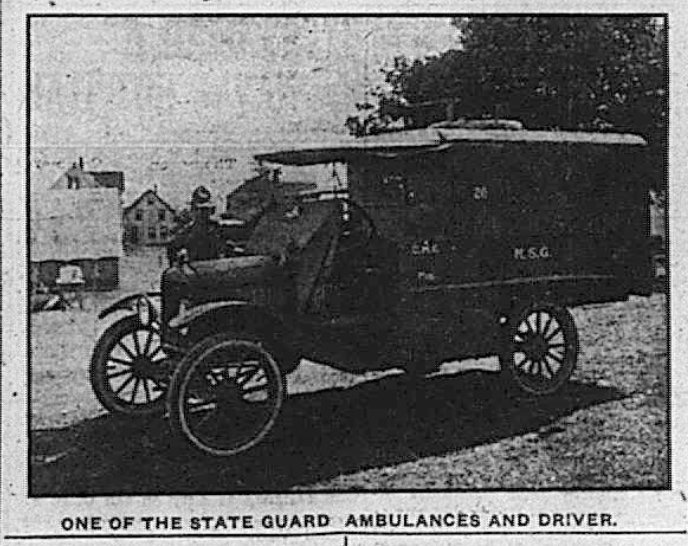
SUNSHINE and fresh air are the sworn enemies of influenza. The success of the open air treatment against the epidemic which has invaded Gloucester and the country at large and exacted a heavy toll has certainly been proven beyond all question of doubt. Gloucester has led the way and America at large is adopting the Gloucester camp idea, to nurse back to health those who have become afflicted with the malady, which up to the present time has proven more deadly than bullets.
On Cape Ann the open-air and sunshine treatment has virtually ended the epidemic. Public sentiment which three weeks ago frowned on the hospital tent method of caring for patients (illegible) of barbarous has changed. As a result of the experiment, Gloucester will have an out-door permanent hospital nor of the tent type, but a building constructed on the out-door principle to take care of future emergencies, not only influenza, but any form of communicable disease.
Gloucester even in her period of distress has been fortunate. Because of the success of the Corey Hill hospital which was established by Surgeon General Brooks for treatment of (military) members, the out-door plan of treatment was recommended to Gloucester. The (Gloucester) Board of Health immediately approved the idea, Mayor Stoddart signed the warrant for the unit which Surgeon General Brooks later sent and the hospital became a reality—the first established for care of civilians and a model which the country at large has followed.
Lucky to Get Major Thomson
When the United States government “loaned” Major A. N. Thomson, U. S. A., medical corps to Gloucester, it certainly made no mistake. “…know no more about the disease than you fellows.” (illegible) Major Sturgis of Salem who was (illegible) work has been along a different line. There is one thing certain, we have a fine outfit here and let’s go to it. We are going to win.” And Gloucester has won.
The State Department of Health and Washington have been able to profit by Major Thomson’s work and observations. The remarkable manner in which he has coordinated the various details and activities at the local hospital post is wonderful. Everything goes along like a well-oiled machine would operate. “Team work” is one of the major’s slogans with every man on the job, all the time.
At the State House, Boston, the value of Major Thomson’s work is recognized. Since coming to Gloucester he has taken Rockport under his wing, so to speak, and aided in coordinating activities in that town, where the disease is fast on the wane, and assisted in the re-opening of the Haskins hospital, which should never have been closed. It is bad business, the major told a Times representative the other evening, to close a hospital.
“Hospitals are not operated with an idea of becoming a financial success. It is like buying fire apparatus. You may never need it, but when you want it, you want it bad. Gloucester had had no contagious hospital, but she is going to have one very soon now, all indications would seem to point.” Major Thomson
From Rockport, Major Thomson was requested to go to Manchester and Ipswich, where he assisted in setting things aright and coordinating details for similar organizations in those towns Tuesday evening, Major Thomson was sent to Brockton on a similar errand, where the disease has got a strong footing and stricken a large number of population.
New System Effective
The inauguration of an entirely new system of hospitalization for the treatment of persons afflicted with influenza and pneumonia has reduced the mortality from 40 per cent to less than 13 per cent is the accomplishment of the Massachusetts Department of Health in its four weeks’ battle with the worst epidemic that has visited the United States in its entire history.
Open air and sunshine in liberal doses, as before stated, have provided the simple remedy which has proved so successful in the fight against the disease.
It is the first time, so far as the State health authorities know, that influenza and pneumonia have been treated in this manner.
Virtual Clean-Up
An example of the efficacy of this new treatment is found in reduction of the number of deaths and new cases. Previous to the establishment of a tent emergency hospital on the grounds adjacent to the Addison Gilbert hospital, it was found practically impossible to establish or maintain efficient isolation in the city. As a result, the influenza spread rapidly, affecting whole households. From influenza experts the mortality has been extremely high, particularly among foreigners, who seemed to resent organized efforts extended for their (illegible) many of these people were so seriously ill that they could not receive the full benefit of the new treatment.
Because of the shortage of tents and the approach of cold weather, a more substantial type of structure is being adopted by the State health authorities. Plans have been made for the erection of shacks, which are similar in principle to the open-air shack long in use for tuberculosis patients in other cities and towns.
Those In Charge
The State Emergency Hospital Post, as the local hospital is known, is situated on the grounds of the Addison Gilbert hospital. The staff consists of Major A.N. Thomson, U.S.A., medical corps, who is the post commander, Lieut. John A. Radcliffe, M.S.G., and secretary of the Board of Health is his aide and Capt. Carleton H. Parsons of Co. L, this city, executive post adjutant, Major Sturgess (sic. Also Sturgiss in earlier articles) of Salem, Capt. John J. Egan, Lieut. Burbeck of Salem, (illegible)
Capt. Richmond, supply officer of the 15th, is also on the job and has charge of the state supply end. He has proven himself a valuable official and is doing fine service in the outfit.
Capt. George E. B. Strople of Co. M is looking after the military details at the Haskins hospital, Rockport, while Dr. Street, recently returned from China, has been detailed to Manchester.
Get a Prize in Dr. Manning
Major Thomson certainly got a prize and a real big one, when Dr. John B. Manning, hospital superintendent, was sent to him. Dr. Manning was placed at once in charge of the entire medical end of the outfit and has demonstrated his efficiency for organization and control and getting results.
They all like Dr. John B. Manning. All one has to do is to get a glimpse of the faces of the contented patients as they commence to convalesce. He is no less a favorite with the doctors, nursing staff and administration outfit, because his is a whole-souled and big-hearted man, who knows human nature, and likes to do things for others.
John B. Manning was born in Boston. He prepared for college at Adams Academy, Quincy, and graduated from Harvard college in 1902. He entered Harvard Medical school and was graduated in 1906, being class secretary.
For two years, he engaged in general hospital practice in Worcester City Hospital, followed by medical service in Boston Children’s hospital. He spent eight months in Europe and then went to Seattle and engaged in 1909 in pediatrics. His medical career has been confined to that part of the profession.
During the past year he has been in France as first assistant to Dr. J. H. Mason Knox, Jr., of John Hopkins Medical School, Baltimore, who was in the American Red Cross as medical advisor to the Bureau of Refugees and associate chief of the children’s bureau.
Dr. Manning returned with Dr. Knox in September and was on his way to Washington when the epidemic occurred. He called at the Department of Health and asked if he could be of service. The department was glad to get him, and Dr. Manning was sent to Gloucester.
A recent issue of Current Events contains a fine likeness of Dr. Manning. One photo shows him administering to a little French boy whose mother has tuberculosis. He is determined that the little fellow shall escape the scourge and grow up to be a useful and happy citizen of France. Another shows him in a French village where a group of children are clustered around him. He is termed the “Friend,” and from the happy expression on their faces, Dr. Manning is all of that.
**author note: I was thrilled to find one of the syndicated photographs with Manning in the Library of Congress**
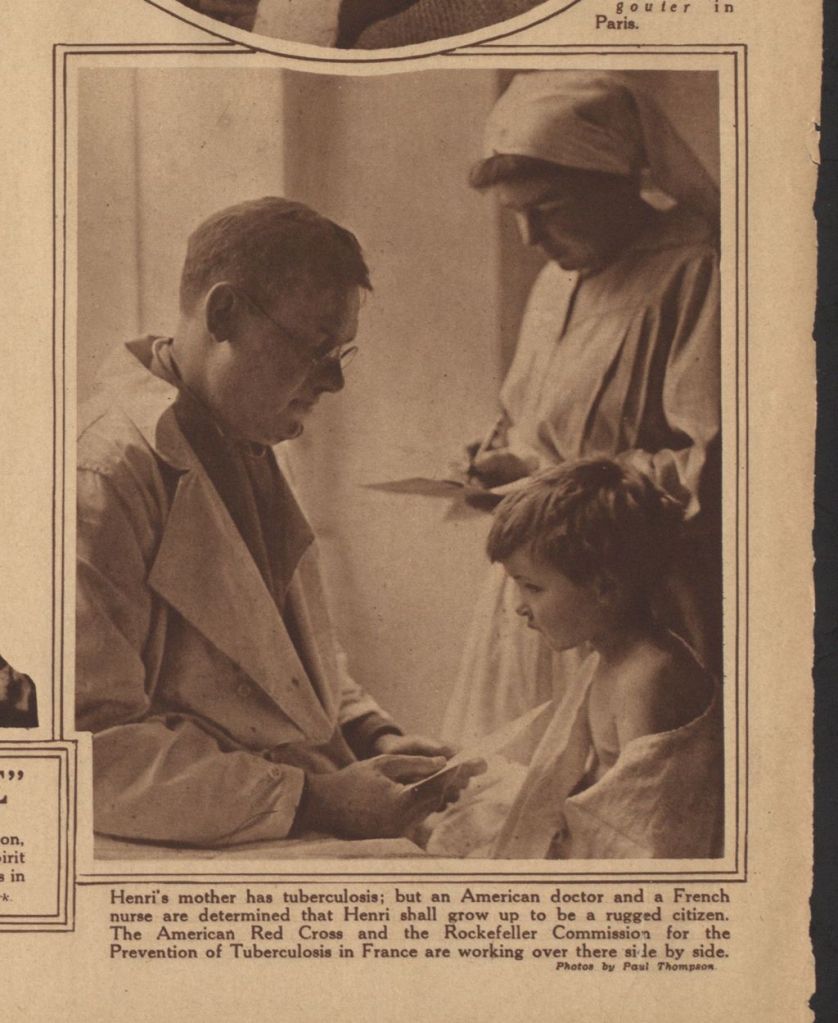
What Shall Be Done With the Children?
A big problem growing out of the present camp is what shall be done with the children who have been treated at the hospital and for (illegible) death of a father or mother or both, or where the home conditions are such that they should not be received at the present, at least. Major Thomson is opposed to orphanages (illegible) Dr. Manning. Several meetings have been held on the topic (illegible) Board of Health, Public Safety Committee, and City Council, with the result that the estate of Mrs. Henry Souther at Bass Rocks has been kindly turned over by her to Mayor Stoddart for such a purpose, and the mayor and council has placed it in the hands of the local Red Cross, who will take care of the children and operation of the most important feature of the future.
At the grounds a convalescent tent has been erected. It was the happy thought of Dr. Manning. A graphophone, tables, chairs, reading matter and many other conveniences, which the Y.M.C.A. and citizens have been instrumental in securing, have been placed and it is one of the “bright spots” of the camp to go there and see the patients as they are returning to health again.
Parish House for Convalescents.
Rev. J. H. C. Cooper, rector, and Lieut. John A. Radcliffe, Major Thomson’s aide, and warden of St. John’s parish, have turned over the Episcopal parish house on Middle street for the use of adult convalescents after leaving the convalescent tent at the hospital, where it develops that the patients have no homes, or the home conditions are such that they cannot be taken care of at present, as they should be. Several ladies and of the summer colony, who are attendants of the church, have offered to take care of this part of the work and finance the details.
All and all, the path of brightness and hope looms ahead, and Gloucester, thanks to her out-doors hospital and cooperation of her big-hearted humane citizens, who have proved themselves men and women in the time of suffering and stress, is on the bright road to good health again.
State Guard “There” in Great Emergency
A big debt which Gloucester owes and will probably never forget is the service which her two companies of State Guard have rendered, Companies L and K were the first to jump in to the emergency, followed by Co. M of Rockport, which was ordered out and later a detachment from Co. I. Manchester.
Up to the present emergency, the road of the State Guard in Massachusetts has not been strewn with roses. The guard has had its foes and met with many obstructions, in spite of the fact that the personnel is of the very highest, consisting of men who have enlisted with only patriotic purposes in mind, and is admittedly far ahead of the old National Guard organization. Like other communities, Gloucester has done but little for its state guard in the past. However, when the emergency came, the city found two splendidly organized military units, with two other companies nearby to (illegible) Sacrificing their own businesses and vocations, the two local companies, whose members outside of the commissioned officers received the big (?) remuneration of $1 (?) a day, responded for duty. What followed every citizen (illegible) The outfit made up of carpenters, (illegible) affairs and train- (illegible) work, laborers and various occupations, were ready for the emergency.
With remarkable celerity, the camp was pitched. Shacks and houses were built by skilled state guard carpenters, many of whom were earning $6 and $7 a day in private life, at a cost of $1 a day per man to the Commonwealth. A water drainage system was installed, a dispensary and many other departments necessary for running such a big proposition, installed and put into operation. And it was the state guard who did it. All hats off to the boys of the state guard! That is the feeling of every Gloucester citizen today.
Who is Major Alec N. Thomson?
“Who is Major Alec N. Thomson?” That was the question asked when the major came to Gloucester. Hardly anyone knew, but in a remarkably short space of time, the public came to realize that they had a man of aggressiveness, and through his energy and organization, the epidemic, it is believed, is nearing its end. Major Thomson, U. S. A., of “Fit to Fight” fame was detailed by the war department to carry on the educational campaign against social diseases in New England. He is a personal friend of Dr. Kelly, health commissioner of Massachusetts, and volunteered his services in the fight against the epidemic.
Major Thompson prior to entering the army was director of a venereal clinic in Brooklyn hospital, Brooklyn, N.Y., one of recognized clinics of the country. It was here that Major Thomson demonstrated his wonderful abilities for organization and hard work, until the efficiency of the clinic developed in such large proportions, that he became a national figure in his line of profession.
His ability thus recognized, Major Thomson was called into the army service in the office of the surgeon general, to put into force his ideas in the army camps in the northeast and southeast, concentrating mostly in the east and northeast.
In April, the Massachusetts Department of health decided to institute a division of social diseases, Dr. Kelly got busy and was successful in getting Major Thomson detailed to Massachusetts for three months, to “head up” the work, so to speak. So successful has his campaign been, that on October 1, Washington assigned him to a larger field, placing the whole of New England under his supervision.
In the interim, the epidemic broke out in this city, and Dr. Kelly, Surgeon General Brooks and the Adjutant General asked Major Thomson to come to Gloucester and in a few hours afterwards, Major Thomson was in the city and on the job with his force, and had details working to combat the disease, which has received a solar plexus and is fast on the wane.
Dr. Street Only Recently Back from China
Dr. Lionel A. B. Street, one of the local hospital staff recently returned from China, where he has been in practice for 20 years. Although a native of this state, Dr. Street has spent a greater part of his life in the far east, returning only once to America, during the 20 years. He likewise volunteered for service when the epidemic broke out, and was assigned Canton, where he did splendid service. The situation having cleared up there, Dr. Kelly of the State Department of Health sent him to this city Dr. Street has been to Manchester the past few days, helping out there, and last evening returned to the local camp.
A TIMES MAN WHO HANDLED WELL A DIFFICULT TASK
We don’t like to talk about ourselves generally, and we know what we are about to say concerning one of our own will be highly displeasing to him, but we can’t help it, for the public wants to know. The history of the State Emergency Hospital Post would indeed by incomplete did we not say a word for Lieut. John A. Radcliffe, whose unselfish services and efforts in the present emergency have been untiring and conspicuous.
Up in Gov. McCall’s office and in the State Department of Health, Boston, they have lots of nice things to say about Radcliffe. When Major Thomson was detailed to Gloucester, Dr. Kelly, State Health Commissioner, and Surgeon General Brooks advised him to get in touch with Radcliffe. Major Thomson did and splendid team work has been the result.
Lieut. Radcliffe knows Gloucester and her people and an active newspaper connection of 18 years on the Daily Times, together with 14 years’ service as secretary of the Board of Health has been of invaluable assistance. In a recent letter to Gen. Grozier, commanding the department of the northwest, Gov. McCall said: “I have known Mr. Radcliffe for a number of years and can speak of his qualifications. He has been doing very patriotic work in every line of war activity and I bespeak for him every consideration that can be shown.”
DR. Thomson Gives (farewell) Message to People
Dr. Thomson today gives the following appreciative message to the people of Gloucester:
“To the City of Gloucester, through the Board of Health, It has been my privilege for 10 days to be connected with what I consider one of the best demonstrations ever conducted of the efficiency of the fresh air treatment of influenza and its complicating factor, pneumonia. For years there has been no doubt in the minds of some physicians that fresh air and sunlight were the prime requisites coupled with adequate nursing, for the treatment of pneumonia. During the time that the State Emergency Hospital Post has been in existence, the people of Gloucester have demonstrated to the world that the desire to serve is an instinct which exists in all. There are so many illustrations of untiring zeal and unbounding willingness that if space permitted, the entire issue of newspaper could be filled with examples of sterling sacrifices. All that I can say is one big whole-hearted thank you to the willing workers that have sacrificed everything to be of service to their fellow men.In a general way the organization has been divided into about a dozen working units which have headed up in my office as a central coordinating agency. To the State Guard great credit should be given and the community at large should thoroughly appreciate the personal hardship with which these men have performed their duties. The State Guard are deserving of high commendation for the unselfish manner in which their work has been (illegible) continuous service of hard manual labor was done by many of the company: numerous instances of 48 hours or more work without rest, and then working volunteer service for medical orderly duty until the men had to be actually ordered to their quarters by their officers.
Every consideration of business or loss of money was placed on one side, and everything forgotten in an effort to do the utmost to save the townspeople from the ravages of the malady. As a demonstration of what can be done in a pioneer camp of this kind, all agree that this is a model organization of equipment and efficiency. It is not due to the fact of any one individual appearing upon the scene, but it is due to the wonderful work of the community.
The work of the nursing service has been one of the demonstrations which, in a way, can be measured. When it is realized that in response to the advertised and personal requests for volunteer service over 200 responses were received, and that the hours of service were long and the work strenuous, I think everyone must agree that no words can express proper appreciation of the ladies who have given their time and strength to nurse their sick townspeople. To ask a woman to leave her home at 3 o’clock in the morning and have her cheerfully comply shows the material of which the women of your city are made. An illustration of this lies in the fact that some of the ladies have served on the 3 a.m. to 9 a. m. relief as volunteer aides for five consecutive mornings and are willing to go on until this epidemic is stamped out. The spirit that has carried all these women forward is to be admired. It is not for me to praise unduly, but the town owes a tremendous debt of gratitude to the trained nurses who have come in from Canada and elsewhere and worked in some instances until they literally dropped in their tracks. It has been a big fight, but a fight that has been won to an immeasurable degree by the excellent nursing service that has been established.
The information service, I feel, has been of great value to the community, and I wish to assure everyone that the information that was issued was based on actual facts at the very moment of issuance in so far as the pressure of work would permit. I mean by this that with everybody working in the utmost of their strength that almost superhuman effort was required to keep up the records. It was our hope that no information would be issued which was not accurate, and it was the endeavor to have this information available at all times of the day and night and the condition of patients reported on instantly if there was any change in their condition. It was the endeavor of the information service to notify the nearest relative immediately if a patient’s condition became worse. Any patient on the dangerous list could be visited by a relative. Necessarily in conducting a hospital and campaign for stamping out a disease dangerous to the public health, it was imperative that stringent rules regarding visitors be maintained. It was appreciated that this worked hardship to a degree, but it cannot be denied that the system was a distinct benefit to the community. It believes that the information bureau established has helped to a great degree to make plain to a large number of individuals the reasons for such rules and restrictions.
Transportation is one of the biggest problems in conducting a campaign such as has been necessary in this emergency. The thoroughness of the organization of the transportation department has been another remarkable demonstration of the readiness of mankind to come to the aid of his stricken fellowmen.
Words cannot be found to describe the untiring zeal of the physicians who have volunteered to care for the patients in the hospital. The city was peculiarly fortunate when it received medical aid that was so untiring, so unselfish and so competent to care for the needs of the unfortunate victims of the disease.
Classed with nursing service has been a specialized group which has been properly called the Mask Factory. As influenza is a respiratory disease, transmitted almost entirely by close contact with secretions of the nose and mouth from coughing, sneezing and spitting, the protection of the workers depended upon an ample supply of masks. The mask factory worked 24 hours a day until there was an ample supply, and then with the usual enthusiasm of all workers, demanded an additional duty to perform. All such demands were readily granted and in this particular instance warm wraps and bed slippers were made the additional duty.
The Red Cross
The Red Cross has rendered invaluable service in various ways too numerous to mention, but perhaps the most constructive work has been the investigation of the condition of homes, prior to the discharge of patients. It can readily be seen that it would be useless to discharge a convalescent patient to a lonely room in a boarding house with no adequate care, food or medical attention. It has been a difficult duty to perform, calling for a large volume of work.The Mayor and City Council, Board of Health, Public Safety Committee, etc., have given support to a degree that can be unsurpassed, and it is with deep regret that I shall part company with the many willing workers in the community who have cooperated in the general campaign aimed at wiping out the epidemic.
The District Nursing organization of the city has performed a tremendous task without consideration of the number of hours that they put in, and without thought of their own physical well-being.
Many other individuals and groups have done yeoman service and it is impossible to mention the various types of assistance that have been received.
To you as a board and to your mayor and to your city, I have but one message to give. It is this—as every ill wind blows some good, let Gloucester derive all the benefit that is to be found. With best wishes for the future good of the city and the advancement of public health and sanitation through the activities of your board.
Cordially and sincerely yours, ALEC N. THOMSON
Inside page obit Byers Dead at Naval Hospital: Influenza Victim was One of Jackies on the U.S.S. Connecticut
Inside page obit Mourn Death of Victor C. Garland
Inside page Op ed.
“The Emergency Call to the Great Heart of Gloucester After a very careful and close study of the conditions in many sections of the city where there has been sickness and death the Public Safety Committee decided several days ago that there was an imperative need of an Emergency Fund of $25,000 to be placed in the hands of the Home Service Committee of the Local Red Cross to be used by them in relieving distress and suffering of the immediate present and the necessities that will be found in many homes after the present effects of the disease have passed.
Only those who have been in close touch with the local conditions can have any idea of the extent of the suffering, or of the conditions that exist in many homes on account of the inroads of the epidemic. Whole families have been stricken and that means that the earning power of these families have been shattered. In many families it will be weeks before the members of the families who work will be (illegible) back bills to be paid, homes to be cleaned up, the sick made strong even after the over-worked doctor has ceased his visits.
And in many homes where death has entered, sometimes both father and mother have been taken, leaving children who must be looked after and cared for for a long time, and where the father has been taken the mother and the children without the father’s care for a long time. When the mother has been taken then the family must have the same watchful care. The burden is indeed great, but it not too heavy to be borne by the Local Red Cross, organized as it is for Home Relief Work as well as for the relief and care of the soldiers and their families.
Some people say that the city should do these things, but the city will have problems of its own which must be met in restoring the health conditions about and in caring for cases which will come directly under its poor department. And the things that must be done by the Red Cross could not be done by the city. The excuse that “the city should do these things” is the excuse of those who are unwilling to give even time in a great emergency. It might as well be argued that the city should make up the Liberty Loan quotas, or the drives for the different war activity funds—a very poor and indefensible argument.
(illegible) the balance. It can and will be obtained, because the people of Gloucester have never failed when put to the acid test of humanity. There is hardly a person here but can and will give a little. It is the small sum which is needed as well as the large amounts. Nor will the appeal pass unheeded among those of our summer residents who have as yet not responded. Many of these have already heeded the request. And there are friends of Gloucester who will we are very sure be very glad to do their part. There are sons and daughters of the town who though living elsewhere have still the love of their Home, strong within their hearts and who will listen and will respond.
Let everyone buckle down to the call and by all working together obtain the amount asked for, which is none too large to meet the present-day needs, and to care for the months which are just ahead, for we shall have a long winter before us in which to carry the burdens that have been brought to our home doors because of the epidemic.
It has been well said by those who have come here from out of town to strengthen and assist our people at this time that they have never seen such spirit and cooperation. And it has been well said many times before about Gloucester. When the emergency arises here people rise and are equal to the emergency. And so it will be at the present time. The sum required will be subscribed because our people know that there is suffering, there is sickness and there is the terrible pall of death in our very midst which must be relieved and succored. Homes and families and those in need must be cheered and assisted and the burdens must be borne by the entire community, for not a single person in Gloucester can stand alone at the present time. Give then and give to your limit and give quickly!
Gloucester Daily Times Op Ed October 11, 1918
Inside page Want Hospital for Contagious Cases
Dr. John P. Manning, who is acting as superintendent of the State Emergency Hospital Post in this city, appeared at a joint meeting of the committee on public safety, the municipal council, the board of health and representatives of the Red Cross in advocacy of the erection of a contagious hospital on the grounds of the Addison Gilbert hospital, to be erected at once and used if necessary for any convalescing patients who may be in need of further hospital attendance after the present hospital post is closed. Dr. Manning presented plans for a building to be erected on, what is known as the cubical plan, so that additions could be easily made, if desired, and presented an estimate that by using the lumber now on the ground and the services of the state guard the cost would be about $6000, for a building sufficient to accommodate about _- patients. The matter will be further considered at the meeting of the trustees of the hospital this afternoon. Dr. Manning has recently returned from France where he was engaged in Red Cross and children’s relief work, and was on his way to Washington, when he volunteered for work in the present epidemic and was sent to this city.
Inside page Post Office Open Until 10 Tomorrow
The post office will be open as usual tomorrow until 10 o’clock. Carrier deliveries will be entirely suspended but persons wishing their mail can get it by calling at the office tomorrow morning if they will notify their carrier or the post office before 7.30 o’clock tonight. The rural route will be covered as usual and the morning and afternoon collections will be made.
Inside page Charles Tifft Far From Dead Summer Resident Reported Influenza Victim Talks With Wife On Phone.
Charles Tifft of Springfield, a summer resident of Annisquam, reported dead of pneumonia at Camp Zachary Taylor, Louisville, Kentucky, is actually alive. Mrs. Tifft convinced herself of this yesterday at Springfield after the Army authorities had reported the death, when she talked with him on the telephone. He carried on the conversation from a cot in a hospital in Louisville, KY. She learned that he is greatly improved and on the road to recovery. Tifft who is the son of City Treasurer Tifft of Springfield had been reported dead, obituary printed and funeral arrangements made when message was received from the commandant of Camp Zachary Taylor that a mistake had been made.
Saturday, October 12, 1918
No newspaper – Columbus Day and a legal holiday
Sunday, October 13, 1918
No newspaper on Sunday

Monday, October 14, 1918

Front page obit Simple Service for W.F. Osborne
Funeral of Walter F. Osborne… “John D. Woodbury of the Times and Wilmot A. Reed of the Associated Press representing the Gloucester Press Club, the deceased being a former well known newspaper man…”
Front page Ten Deaths from Influenza: Total However Is for Three Days—New Cases Very Few
Major Thomson (illegible) Appeals for Further aid. The death rate continues low in the influenza epidemic, although there were 10 for the three day period from Friday noon, until this noon, making the total 180. This holds the average (illegible) improvement that began about a week ago. The Board of Health at noon reported only eight new cases in the city since Saturday. The State Emergency Hospital Post population has been reduced to 60 with a large number ready for discharge.
Gloucester people in other places have been hard hit by the disease and a number of deaths are reported today. Manchester has three deaths today and Rockport, one.
The convalescent hospital is in need of Victor or Columbia records for the machines in the tent at the hospital (illegible) to lend are (illegible) will be marked and returned to the owner in perfect condition.
The Death List.
The following deaths have occurred since Friday noon
- Mrs. John Favor, 39 years, Essex avenue
- Mrs. Antone Nickas, 26 years, 156 Prospect street
- George Davis, 32 years, 29 Cleveland street
- Mrs. Clara E. Keith, 28 years, 10 Fremont street
- Walter L. Ayers, 46 years, 4 Staten street
- Charles E. Grogan, 19 years, 10 Smith street
- Frederick T. Sampson, 1` year, 14 Cedar street
- Charles P. Maudit, 33 years, 25 Millett street
- Dorothy M. Burke, 1 year, 4 Smith street
- Anthony Pallazolla, 7 years, 2 Fort square
At Lisbon N.H.
- (illegible)
Tuesday, October 15, 1918

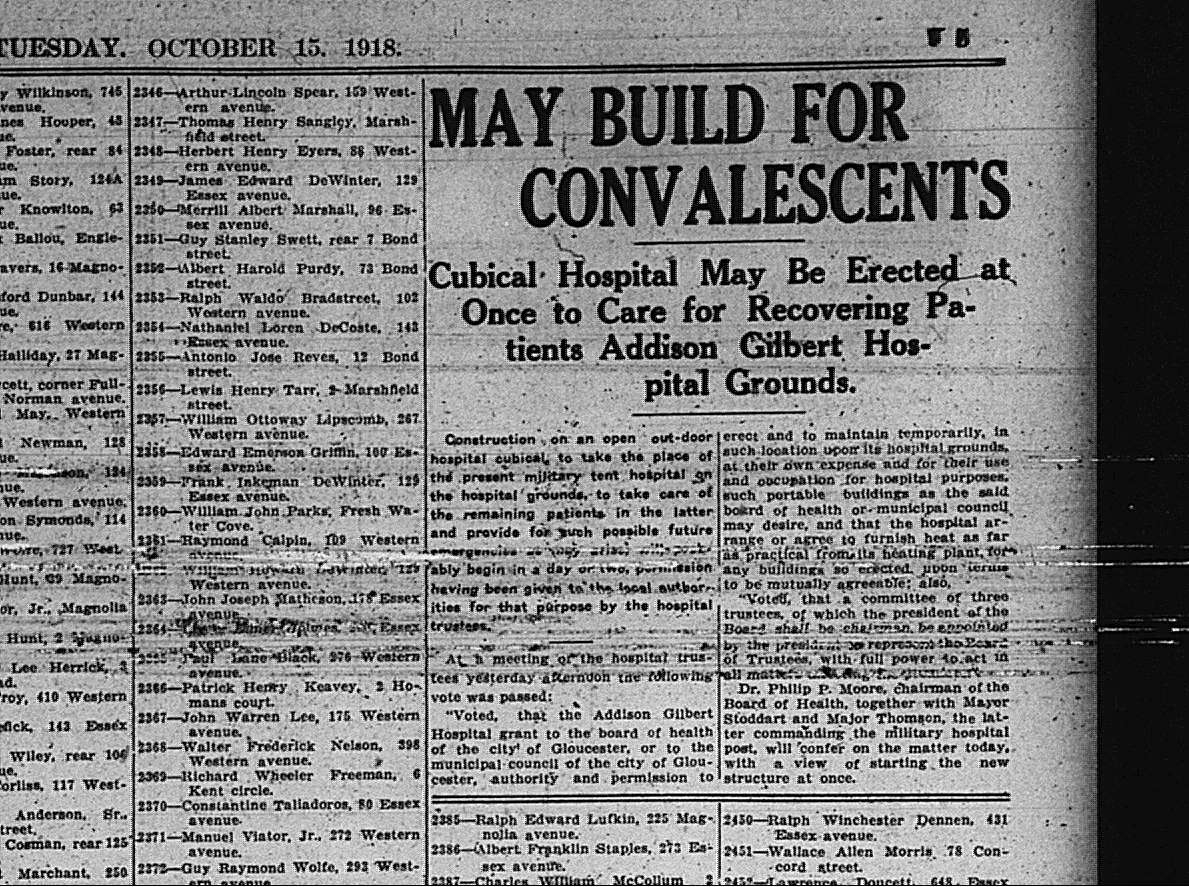
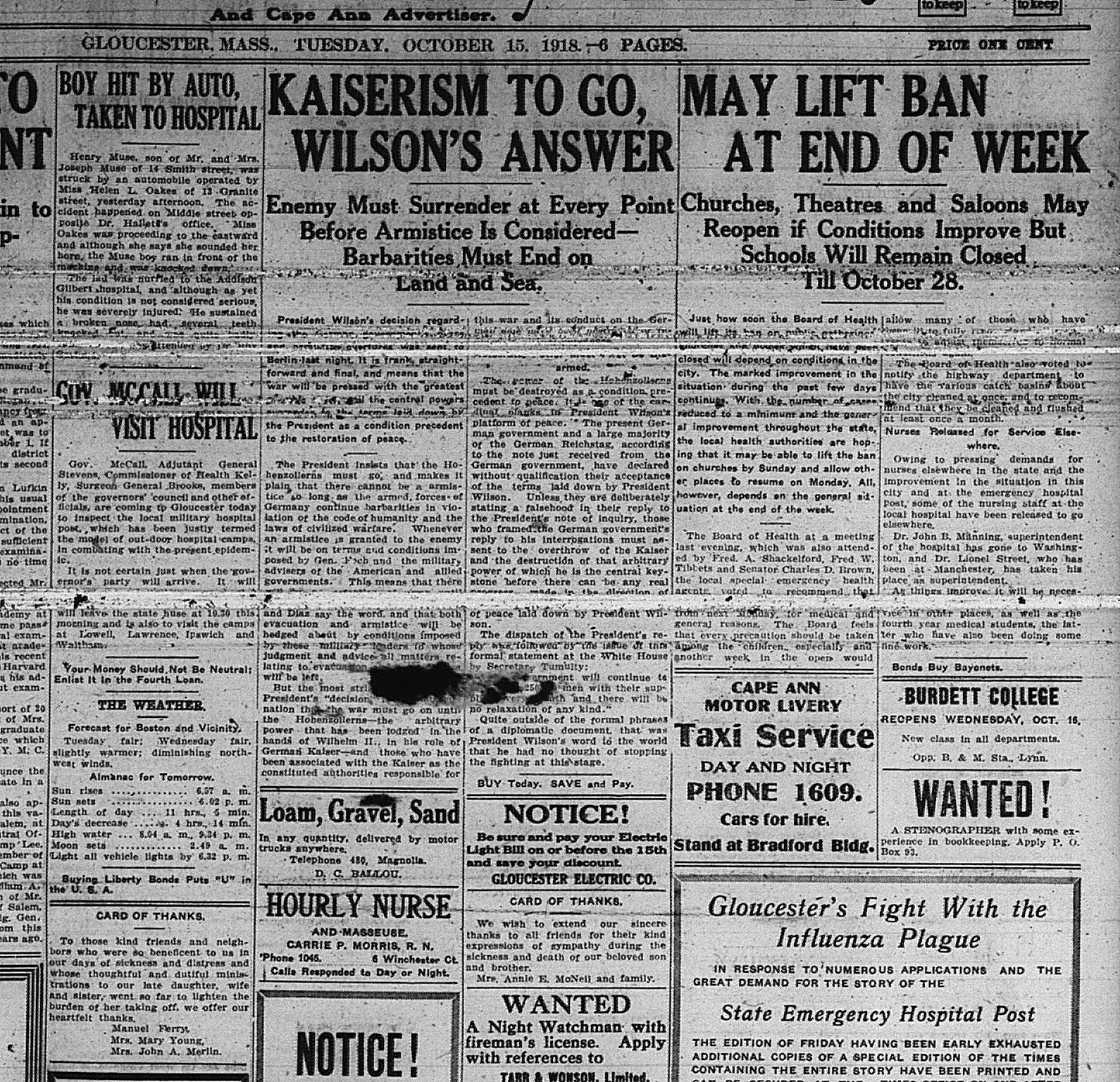

Front page May Lift Ban at End of Week: Churches, Theatres and Saloons May Reopen if Conditions Improve But Schools Will Remain Closed Till October 28.
Just how soon the Board of Health will lift its ban on public gatherings (illegible) closed will depend on conditions in the city. The marked improvement in the situation during the past few days continues. With the number of cases reduced to a minimum and the general improvement through the state, the local health authorities are hoping that it may be able to lift the ban on churches by Sunday and allow other places to resume on Monday. All, however, depends on the general situation at the end of the week.
The Board of Health at a meeting last evening, which was also attended by Fred A. Shackelford, Fred W. Tibbets and Senator Charles D. Brown, the local special emergency health agents voted to recommend that (illegible) from next Monday, for medical and general reasons. The Board feels that every precaution should be taken among the children, especially and another week in the open would allow many of those who have been ill to fully recover (illegible). The board of Health also voted to notify the highway department to have the various catch basins about the city cleaned at once, and to recommend that they be cleaned and flushed at least once a month.
Nurses Released for Service Elsewhere.
Owing to pressing demands for nurses elsewhere in the state and the improvement in the situation in this city and at the emergency hospital post, some of the nursing staff at the local hospital have been released to go elsewhere.
Dr. John B. Manning, superintendent of the hospital has gone to Washington, and Dr. Lionel Street, who has been at Manchester, has taken his place as superintendent.
As things improve it will be necessary (illegible) in other places, as well as the fourth year medical students, the latter who have also been doing some fine work.
Front page Gov. McCall Will Visit Hospital (today)
Gov. McCall, Adjutant General Stevens, Commissioner of Health Kelly, Surgeon General Brooks, members of the governors’ council and other officials, are coming to Gloucester today to inspect the local military hospital post, which has been justly termed the model of out-door hospital camps in combating with the present epidemic.
It is not certain just when the governor’s party will arrive. It will (illegible) will leave the state house at 10.30 this morning and is also to visit the camps at Lowell, Lawrence, Ipswich and (illegible).
Inside page p.5 May Build for Convalescents: Cubical Hospital May Be Erected at Once to Care for Recovering Patients Addison Gilbert Hospital Grounds.
Construction on an open out-door hospital cubical to take the place of the present military hospital on the hospital grounds, to take care of the remaining patients in the latter and provide for such possible future emergencies will probably begin a day or two, permission having been given to the local authorities for the purpose by the hospital trustees.
At the meeting of the hospital trustees yesterday afternoon the following vote was passed:
“Voted, that the Addison Gilbert Hospital grant to the board of health of the city of Gloucester, or to the municipal council of the city of Gloucester, authority and permission to erect and to maintain temporarily in such location upon its hospital grounds, at their own expense and for their use and occupation for hospital purposes, such portable buildings as the said board of health or municipal council may desire, and that the hospital arrange or agree to furnish heat as far as practical from its heating plant for any buildings so erected upon terms to be mutually agreeable; also,
“Voted, that a committee of three trustees of which the president of the board shall be chairman be appointed by the president to represent the Board of Trustees with full power to act in all matters (illegible).
Dr. Phillip P. Moore, chairman of the Board of Health, together with Mayor Stoddart and Major Thomson, the latter commanding the military hospital post, will confer on the matter today, with a view of starting the new structure at once.

Wednesday, October 16, 1918

Front page Will NOT Build Cubical Hospital: Municipal Council Favors Purchase of the Braewood Property Rather Than Expend Large Amount for a Temporary Structure
No temporary hospital will be erected (on the grounds of ) Addison Gilbert Hospital for the care of convalescents from the Spanish influenza, this decision being reached at a consultation between the members of the municipal council and representatives of the board of health and the trustees of the hospital yesterday, it being considered a better proposition to purchase the Braewood property on Essex avenue, where if needed, a contagious hospital can be established at any time.

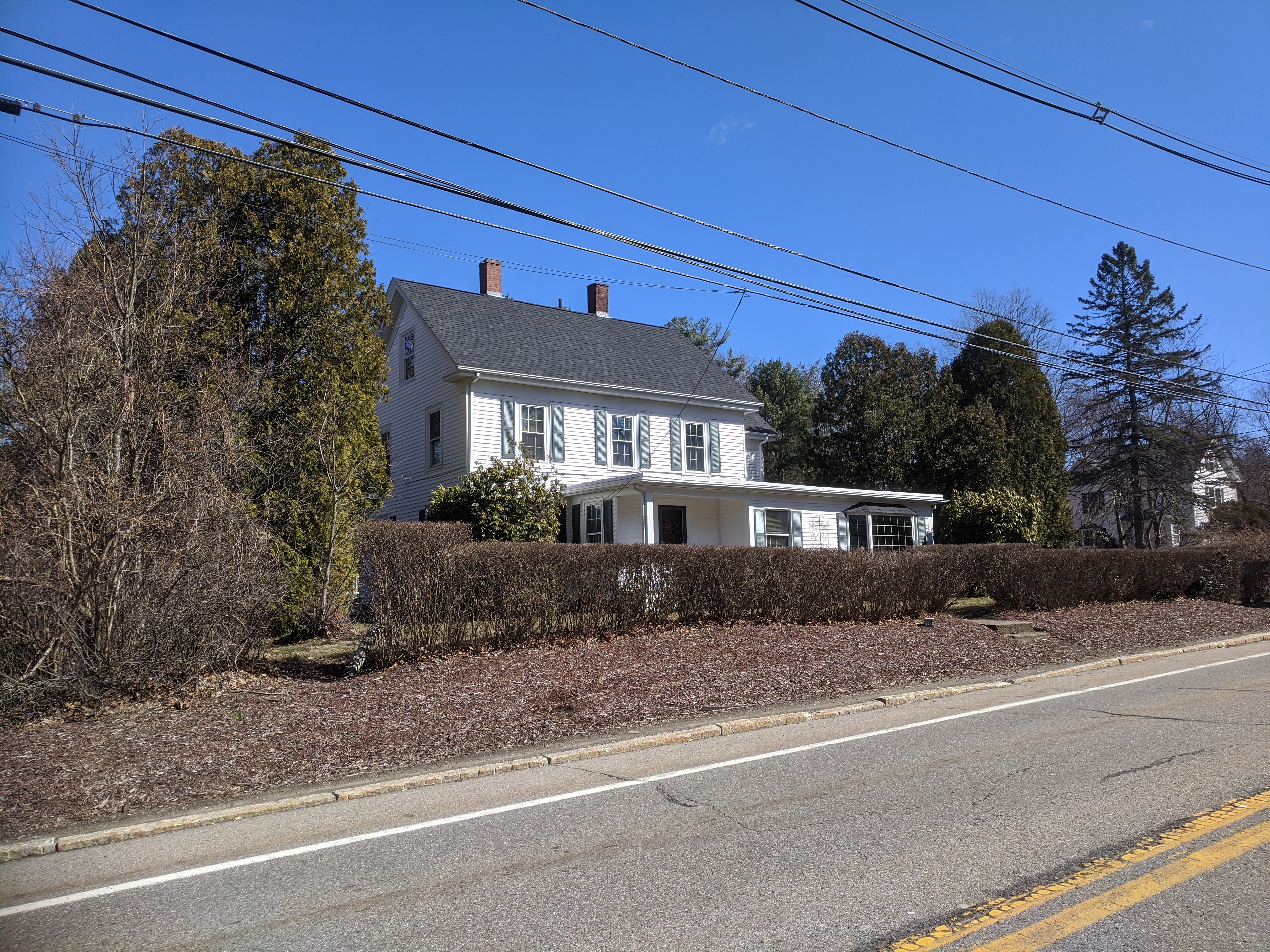
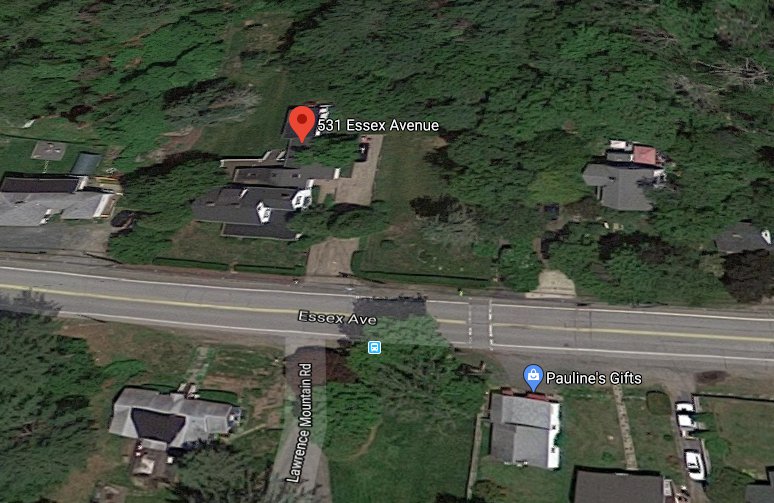



**author note: The Braewood property 531 Essex Avenue (across the street from where Pauline’s Gifts is located) was for many years “The Braewood,” a home and successful summer resort / boarding house owned by Maria Bray (1828-1921). Her husband Alexander Bray (1819-1885), a Civil War veteran, who worked as shoemaker and light keeper on Thacher Island, died in 1885. The 1898 City directory lists the address as “Braywood, W.G. (West Gloucester).”
Who could resist a stay with a write up like this one?
“Not far from “Queechy Run” road is “Braewood,” the Home of Miss Maria H. Bray, whose house during the summer season is the resort for pleasant people, who find a charm and attraction in the social life of his home. There is also a fascination in the quiet retreat, from the large area of pine woods which surrounds it and intercepts to a certain extent the full force and harshness of the sea air, leaving just enough of the salt oxygen to mingle with the tonic of the pine and hemlocks thus forming an invigorating atmosphere. It is a peaceful summer resort for the weary and those who want rest and pleasant home life.”
Pleasure Drives Around Cape Ann published by Proctor Bros. 1896 (published GDT at time of 1918 Pandemic), Library of Congress
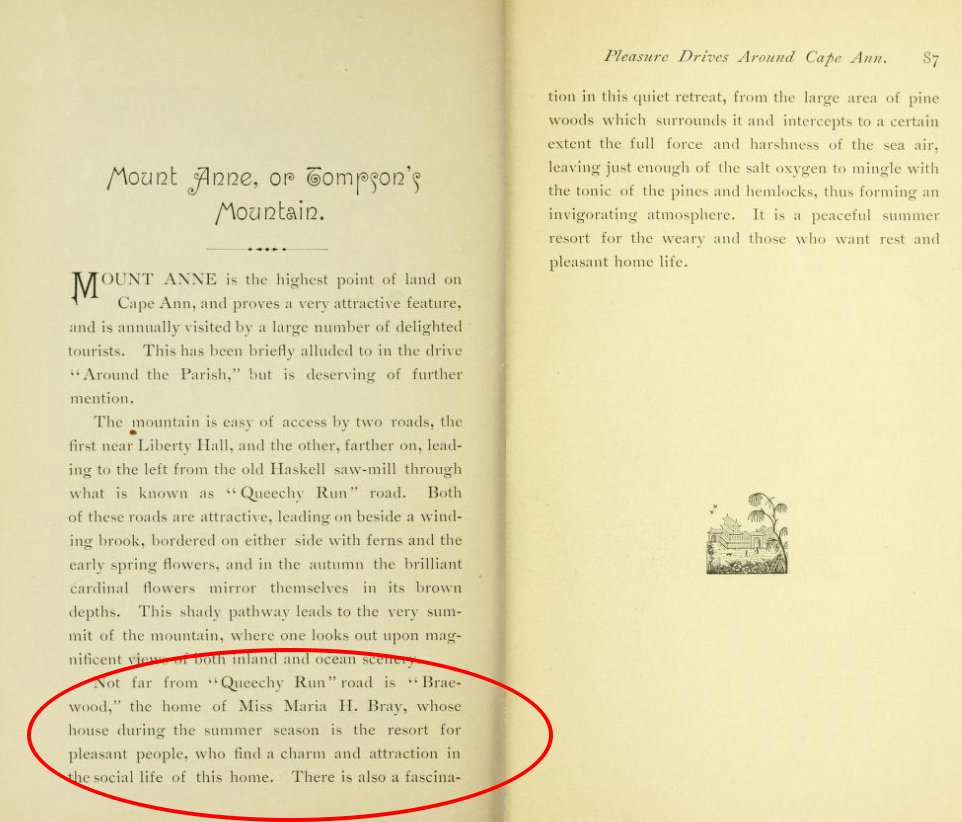
And another from the Boston Globe West Gloucester column 1896:
…At “Braewood,” Mrs. Maria M. Bray’s charming residence, a summer series of lectures is being held. Mrs. Bray was well known as the manager of Willow cottage and “Pilota cafe,” the pioneer Magnolia hostelries, from 1876-1885. Guests at this house are: Mrs. E.G. F. Keller, Miss Me. E. Talbot, Miss S. H. Talbot, Miss Edith Mansfield, Mrs. C. Laurence, Miss Mary J. Murray, Miss Bancroft and Henry R. Tracy, Boston; Mr. and Mrs. William H. Cronin, Gloucester.
Boston Globe, “By Beach and Bluff Summer Season” column, July 19, 1896
According to the Cape Ann Museum website, Maria Bray, “not only had the finest collection of “Sea Mosses” in New England but became a recognized authority on sea plants.”
Louisa May Alcott was one of the notable repeat summer guests at her inn (and perhaps the ones she managed in Magnolia). Alcott also stayed on Rocky Neck and with friends. Alcott set Jack and Jill (published in 1880) in “Harmony Village” which looks like Gloucester in its illustrations.
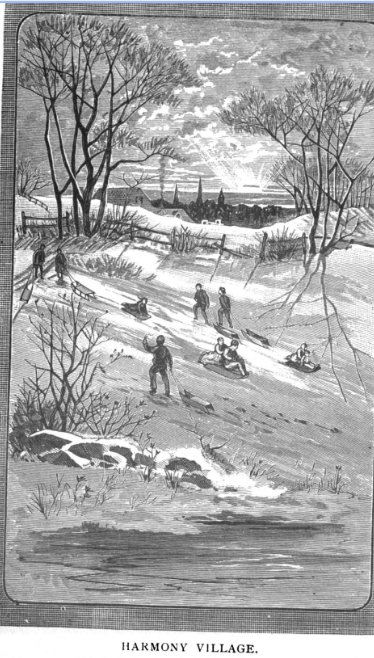

Gloucester appears in Alcott’s diary twice: in 1864, with her sister May, on a joyous holiday:
“August. 1864 – Went to Gloucester for a fortnight with May at the M.’s. Found a family of six pretty daughters, a pleasant mother, and a father who was an image of one of the Cheeryble brothers. Had a jolly time boating, driving, charading, dancing, and picnicking. One mild moonlight night a party of us camped out on Norman’s Woe, and had a splendid time, lying on the rocks singing, talking, sleeping, and rioting up and down. Had a fine time, and took coffee at all hours. The moon rose and set beautifully, and the sunrise was a picture I never shall forget.”
Louisa May Alcott
and in 1863 when she turned down an offer to visit [and chided herself in 1877]:
“Major M. invited me to Gloucester; but I refused, being too busy and too bashful to be made a lion of, even in a very small way. Letters from Dr. Hyde, Wilkie (home with a wound from Wagner), Charles Sumner, Mr. Hale, and others,–all about the little “Sketches,” which keep on making friends for me, though I don’t get used to the thing at all, and think it must be all a mistake.”
[1877.–Short-sighted Louisa! Little did you dream that this same Roberts Bros. were to help you to make your fortune a few years later. The “Sketches” never made much money, but showed me “my style,” and taking the hint, I went where glory waited me.–L. M. A.]
Louisa May Alcott 1863
Alcott published Jack and Jill the year her sister May died (only weeks after giving birth to Lulu, who Alcott raised). Perhaps she dusted it off at this sad time recalling memories of their happy visit(s).
Maria Bray sold the Braewood property to Eliza Estabrook in 1911. Estabrook died in 1916. The city purchased the property from her husband, John D.W. Estabrook, in 1918, and appended its use as a TB recovery site “before recommitting the property to the care of the committee on public property, with the idea of converting it into a public health camp at the instance of the State health authorities.” Instead it reverted back to private residence which it remains to this day.
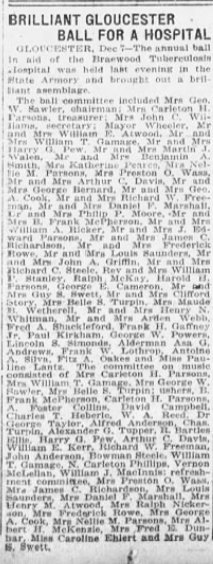
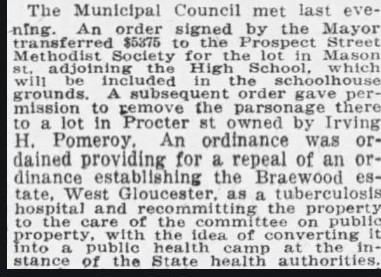
Gloucester Daily Times 10/16/1918 entry about the Braewood property decision making resumes
Those present at the conference were Mayor Stoddart and Aldermen Silva, Hubbard and Andrews, Dr. Philip P. Moore of the board of health and Fred A. Barker and Fred A. Shackelford, president and secretary. (illegible) hospital offering the use of the hospital grounds for a temporary cubical hospital was presented by Mr. Shackelford, the clerk of the corporation, and the subject was discussed in all its details.
Several available sites were considered for a hospital in different sections of the city, among them being the Braewood property, and it was the consensus of opinion that the latter (illegible) a reasonable figure was especially located for the desired purpose, and if this could not be secured, (illegible). Mr. Shackelford is the selling agent of the Braewood property, and generously offered, if the property could be purchased at the price considered by the municipal council, to allow the amount of his commission towards the purchase price.
The cost of erecting a temporary hospital such as was suggested by Major Thomson was estimated as at least $6000, and in order to bring it down to this figure, it was intended to utilize the lumber already on the ground in the shape of tent floors and other structures, and also utilize the services of the state guard companies. It was felt, however, that if an outlay of this amount was made it would not (illegible) temporary structure which might be ordered removed at any time, especially in view of the price which it is expected the Braewood property can be purchased.
Mr. Shackelford received a telegram this forenoon in reply to one sent to Mr. Estabrook, one of the owners of the property, yesterday, virtually accepting the offer of the city, and the municipal council and Mr. Shackelford made an examination of the premises early this afternoon before making a final decision.
The change in the plans receives the approval of Major Thomson and also Dr. Lionel A. Street, who succeeded Major Thomson as medical director of the hospital post, as well as the other officials who have been consulted in the matter. While Major Thomson suggested the erection of the hospital on the present location of the hospital post, he was not aware that the Addison Gilbert hospital was a private corporation but had the idea that the hospital and the surrounding grounds were entirely under control and direction of the city.
It was pointed out at the conference yesterday that no provision was made for housing and caring for the nurses in the plans for the cubicle hospital, and a substantially built building would be necessary on account of the exposed condition of the locality, the winds having a wide sweep from all directions, and something more than a board floor without a cellar would be required.
Inside page p.6 Major Thompson [sic] Leaves Hospital: Popular Army Officer Given Real Sendoff After Paying Gallant Tribute to State Guard —State Authorities Here Yesterday
Major A. N. Thomson, U. S. A., post commander at State Emergency Hospital Post, left this morning for Boston, the situation at the local camp having so far improved that he has been able to return to the statehouse, where he is located with the state department of health, in the campaign against social diseases. The major will probably return Friday or Saturday, when it is believed that the patients at the hospital will have been reduced to a minimum, and arrangements will be made for their transfer to the new board of health hospital.
Before leaving this morning, Capt. Carleton H. Parsons, post executive and agent, whose untiring efforts have contributed greatly to the success of the local hospital, had the state guard boys marched down to the major’s headquarters. Private Mayo, of Co. L. acted as drum major, while the buglers furnished the music.
With the boys assembled in line, Major Thomson paid the local guard companies a glowing tribute. The credit of the organization, Major Thomson said belonged to the state guard mainly, and he congratulated Gloucester Rockport and Manchester on its good fortune in having such an organization in such an emergency.
“It is you boys who have done the trick, together with your big-hearted townspeople and you are certainly to be congratulated.”
Major Alec Thompson
At the conclusion, three cheers and a tiger was accorded the major, followed by “We want woolen uniforms.” It should be borne in mind that the state guard boys are equipped only with duck uniforms, except in instances where the boys have brought their own woolen suits.
It was a keen disappointment to all that Governor McCall was unable to visit camp yesterday. Arrangements were made for his reception, but late in the afternoon it developed that the governor had decided at the last moment not to come, on account of the cool weather.
The rest of the state party left the state house at 10 o’clock in the forenoon. In it were Adjutant General Stevens, Surgeon General Brooks, State Commissioner of Health Kelly, Quartermaster General Emery, members of the governor’s council, and others. Senator Charles D. Brown and Councilor Frederick H. Tarr met the state delegation on the hospital grounds.
The party visited Waltham, Lawrence, Haverhill and Ipswich, where similar camps have been erected before coming here. Gloucester was last on the list, and was pronounced unanimously by all as the “model.”
Conditions have so far improved in camp, that A and B streets, containing some 75 tents, have been cleared of tentage and the tents are going to be sent back to the quartermaster’s department or where needed. Blankets and other equipment owned by the state for which there is no longer any use is also being sent back.
Dr. Lionel A. Street is in charge of affairs in the absence of Major Thomson. Dr. Street, besides being one of the best in his line of profession, is one of the idols of the camp, and beloved by all. Dr. Street, who was on his way from China to join the Red Cross for service in France when the epidemic occurred, was the first to volunteer his services in Massachusetts. He was assigned to Canton, where he assisted in stamping out the disease, and was then sent to this city, at the local post as well as assisting at Manchester.
Virtually all the cities and towns of Massachusetts reporting to the state board of health yesterday stated that the disease is declining. Pronounced improvement has taken place in Fall River, New Bedford, Lawrence, Worcester, Fitchburg and the many other centers where numerous cases have been reported of late. Officials of the state board are convinced that the disease is declining steadily through the commonwealth.
Inside page Op Ed
Municipal Matters
As the municipal year draws to a close there is as usual a marking of time in the proceedings at City Hall. The departments are closing in on their work in many directions and are trying to find out how they stand. The meetings of the Municipal Council are devoted to the routine matters and no large new projects will be seriously considered.At last after a long time of procrastination the contract for the new and powerful motor pumping engine has been signed and the delivery of the engine will, it is presumed, take place in about five months. If the city needs the additional equipment it needs it now and the contract ought to have been placed so that it could have been delivered early in the winter in order that the engine could have been thoroughly tested out in the severe winters which we have been having of late. It could have been so delivered had the contract been placed as soon as the council had acted. S it is, the engine will be delivered at the close of winter and it will have its test under the best conditions and then if found up to the specifications it will be accepted and nearly a year will elapse before the real test on the engine will take place when the snow is deep on the streets of Gloucester and the hauling is difficult.
It would seem as if with this addition of a powerful motor driven engine more attention ought to be given by the city to the equipment or smaller and equally efficient apparatus which could easily take care of the numerous smaller fires which are constantly occurring in this city for it is not to be presumed for a single minute that it is the intention of those entrusted with the management of the important department to place similar powerful engines in every section of the city where the present fire engines are located. And serious consideration ought to be given in providing some other as essential equipment as engines.
While undoubtedly the terrible epidemic which has raged in this city for six weeks is showing signs that it is on the wane the municipal authorities should not for a single moment feel that with its passing there will be nothing for the city in its corporate capacity to do. There will be much that will demand continuous and careful attention and thought. The health department of the city must be put on a strong footing. For too long a time has that department been considered of little importance. It is no longer a joke to lightly brush aside the considerations which will make for the health of Gloucester. The city cannot afford, it must not if human agencies are of any avail to have such a recurrence of an epidemic. The things which the city has too long neglected must be attended to. The things which the city has so long needed that its health may not be jeopardized must be provided. It will not do to invite another such epidemic which has cost the city so much in human lives and has so seriously depleted its earning capacity. Those whose lives have paid the price speak plainly from their graves. Those whose sickness has so weakened them that it will be many months before they are themselves are living witnesses to the impending duty that confronts the city. It has indeed been a bitter lesson and it must be heeded.
But more than the attention which must be given to the placing of the health department on a broad foundation, there are other and as serious problems which have grown out of the epidemic. Not only must things be done that will make that department more and more efficient but the great problems of the housing conditions of our people must be met in the broadest and strongest spirit. We are paying a terrible price for allowing the overcrowding of houses and of people in the houses. We must also in many directions teach the people how to live with plenty of sunshine and plenty of good health-giving fresh air. These are things that must not be allowed to die down simply because the present epidemic has passed. It may come again. Other epidemics may come. Gloucester must be prepared to meet and face them.
Gloucester Daily times powerful public health & community Op Ed Oct. 16, 1918
Inside page. East Gloucester column
Mrs. George C. Crosby is ill with the Spanish influenza at her home on Eastern Point road. Mr. Crosby, who has been very ill with the malady has recovered, so that he has been able to be out (?!) …Mrs. Alfred W. Spurr, who has been assisting at the State Military Hospital Post, during the epidemic, is confined to her home on Gerring street with a slight attack of the influenza…Mrs. Howard F. Bennett of Wall street has sympathy of her friends in her time of sorrow, her sister, miss Annie Barror, having passed away in the Boston City hospital room from an illness of the Spanish influenza…
Inside page p.6 No Influenza Deaths Reported: Epidemic Practically at End- 176 Cases in All Stages
For the first time in many weeks, there has not been a single death reported in this city from the dreadful influenza and pneumonia epidemic. The total number of cases in the city has dropped to 176 in all stages, according to the board of health report, and there were only 12 new cases of a mild form reported to the board yesterday. The population at the State Emergency Hospital Post has dwindled to ( ) and there were no admissions
Inside page p.6 WWI news Corporal Milton E. Lane Killed
was one of first men to be drafted in this city…“left with the first five percent quota of the first draft in September 1917.”
Thursday, October 17, 1918
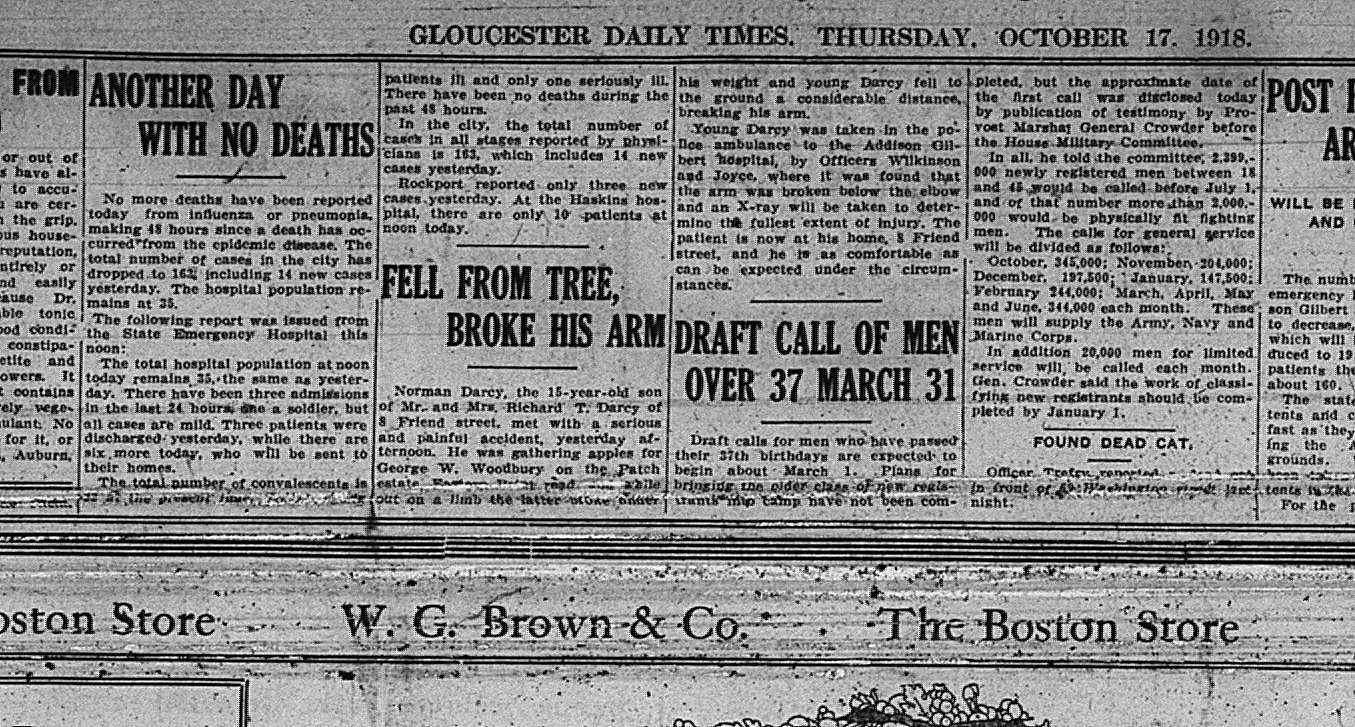
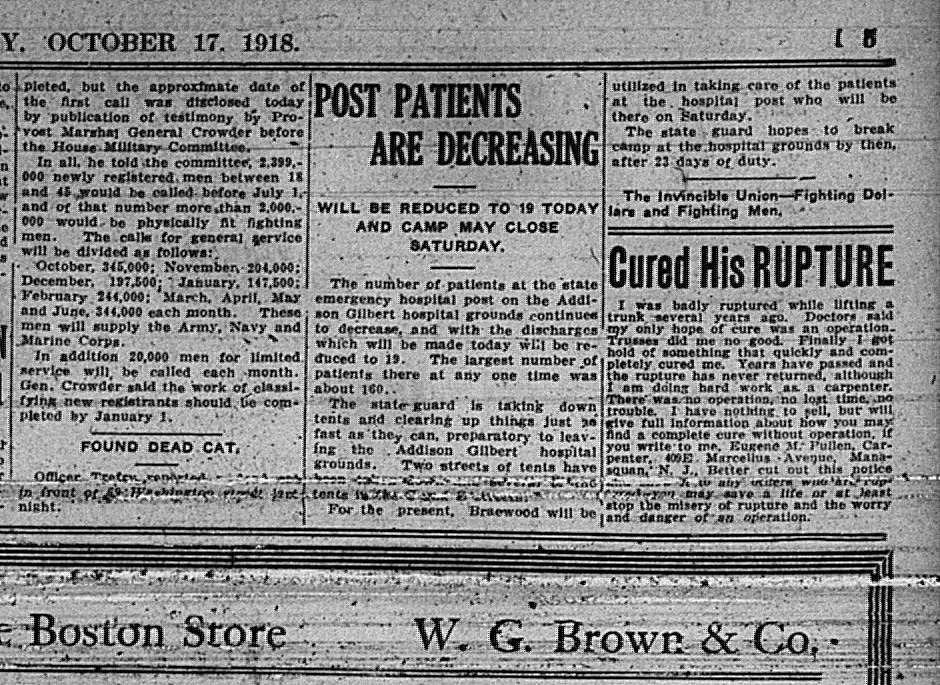


Inside page Another Day With No Deaths
No more deaths have been reported today from influenza or pneumonia, making 48 hours since a death has occurred from the epidemic disease. The total number of cases in the city has dropped to 162, including 14 new cases yesterday. The hospital population remains at 35.
The following report was issued from the State Emergency Hospital Post this noon:
The total hospital population at noon today remains 35, the same as yesterday. There have been three admissions in the last 24 hours, one a soldier, but all cases are mild. Three patients were discharged yesterday, while there are six more today, who will be sent to their homes.
The total number of convalescents is (illegible) patients ill and only one seriously ill. There have no deaths during the past 48 hours.
<
In the city, the total number of cases in all stages reported only three new cases yesterday. At the Haskins hospital, there are only 10 patients at noon today.
Inside page p.5 Post Patients are Decreasing: Will be reduced to 19 today and camp may close Saturday.
The number of patients at the state emergency hospital post on the Addison Gilbert hospital grounds continues to decrease, and with the discharges which will be made today will be reduced to 19. The largest number of patients there at any one time was about 160.
The state guard is taking down tents and clearing up things just as fast as they can, preparatory to leaving the Addison Gilbert hospital grounds. Two streets of tents have been (illegible). For the present, Braewood will be utilized in taking care of the patients at the hospital post who will be there on Saturday. The state guard hopes to break camp at the hospital grounds by the, after 23 days of duty.
Inside page p.6 Gloucester is ‘Over the Top’: Glad Tidings That City Has Reached Allotment in Fighting Fourth Liberty Loan Announced This Noon by Chairman Shute.
The patriotic people of Gloucester have placed their stamp of approval on “unconditional surrender” for the blood-thirsty Hun. Gloucester, after grappling for weeks with the worst pestilence that ever invaded the city, has courageously stood the test by forging its way into the honor class of the Fighting Fourth Liberty Loan. Chairman Kilby W. Shute this morning announced the glad tidings that Gloucester had reached its required allotment of $1,815,000 with $700 to spare.
Inside page p.6 Council Votes to Buy Braewood: Purchase Price is $5000 But City Saves Agent’s Commission—Will be Utilized as Convalescent Hospital for the Present
As foreshadowed in yesterday’s Times, the municipal council have purchased the Braewood property at West Gloucester for a convalescent hospital, an order appropriating $4850 for that purpose being introduced into the municipal council by Mayor Stoddart but an account of the charter provision was laid on the table for one week before final action can be taken.
The price of the property is $5000 but Frederick A. Shackelford, the agent through whom the purchase was consummated, generously donated his fee of $150 to the city, so that the net cost to the city was $4850, the amount named in the order.
The property is one of the finest estates in that section, and besides the house of 12 rooms and an unfinished attic and connecting shed and barn comprises about ten acres of tillage and woodland, and is finely adapted for the purpose for which it has been purchased. It is located in one of the most beautiful sections of West Gloucester, away from the city, yet easily accessible and in a spot which combines the woods, air and sunshine.
The property will be turned over to the board of health and for the present will be utilized in caring for the convalescents who may remain at the state emergency hospital post on Saturday, when it is hoped that the camp will be discontinued. Arrangements will probably be begun today towards putting the house in shape for their occupancy.
Inside page p.6 Council Extends Tax Payments
The municipal council at its meeting yesterday afternoon readily adopted the recommendation of Tax Collector Richard L. Morey that the time for the payment of taxes with the imposition of interest charges be extended from today, the date originally set, to October 31, inclusive, on account of the abnormal conditions caused by the epidemic of influenza through which the city has just passed. An order was introduced by Alderman Hubbard grating the desired extension, which received unanimous support of members…The business of the meeting in detail included the following:…Order, by Mayor Stoddart, appropriating $4850 for purchase of the Braewood property on Essex avenue to be used for a convalescent home or any other purpose the amount to be charged to the health appropriation, laid on the table seven days.”
Inside page p.6 obit Gloucester Boy Died at Camp (Second in Enos family)
Body of Manuel Enos, Influenza Victim, arrived this noon Manuel H. Enos of 74 Friend street, died at Camp Colt. Gettysburg, PA., on Monday, after a short illness of influenza and pneumonia. He as 23 years of age. The body arrived this morning on the 12 o’clock train under escort of Sergeant Duncan of Troy, N.Y. The young man had been at Camp Colt only a short time and had just joined the auto mechanics school when he was taken sick and died. He was the son of Joseph and Mary (Francis) Enos. He leaves his widow, who was Margaret L. Pinkham, whose brother died in the naval service two weeks ago, and also his parents. The funeral will be held from his late home.
Inside page p.6 Died.
Inside page p.6 Funeral
Inside page p.6 WWI news Germans Fleeing From Belgium
Friday, October 18, 1918
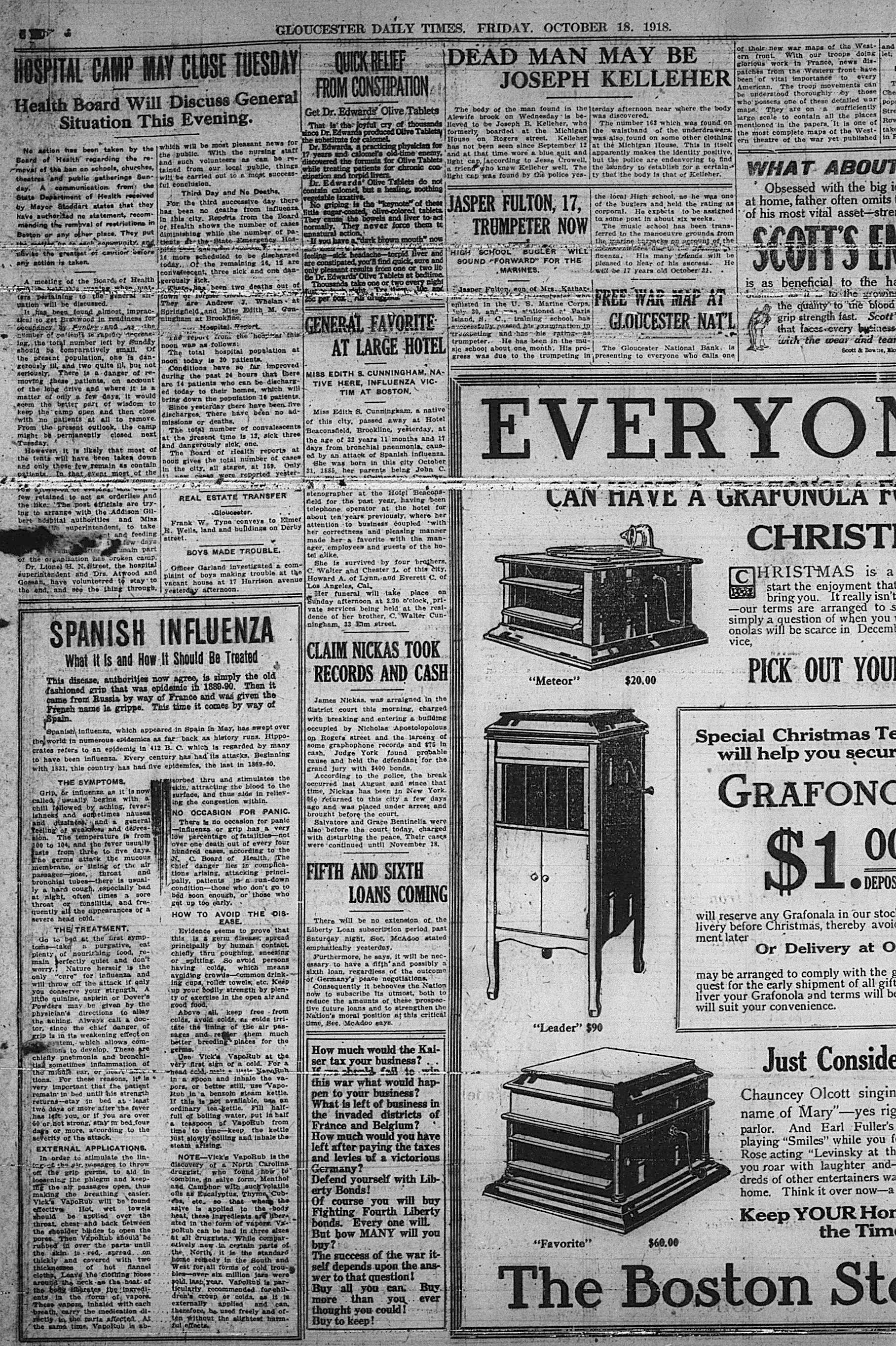
Inside page Hospital Camp May Close Today: Health Board Will Discuss General Situation This Evening
No action has been taken by the Board of Health regarding the removal of the ban on schools, churches, theaters and public gatherings Sunday. A communication from the State Department of Health receive by Mayor Stoddart states that they have authorized no statement, recommending the removal of restrictions in Boston or any other place. They put (illegible) on each community, and advise the greatest of caution before any action is taken.
A meeting of the Board of Health will be held this evening when matters pertaining to the general situation will be discussed.It has been found almost impractical to get Braewood in readiness for occupancy by Sunday and as the number of patients is rapidly decreasing, the total number left by Sunday should be comparatively small. Of the present population, one is dangerously ill, and two quite ill, but not seriously. There is danger of removing these patients, on account of the long drive and where it is a matter of only a few days, it would seem the better part of wisdom to keep the camp open and then close with no patients at all to remove. From the present outlook, the camp might be permanently closed next Tuesday.
However, it is likely that most of tents will have been taken down and only those few remain as contain patients. In that event most of the (illegible few retained to act as orderlies and the like. The post officials are trying to arrange with the Addison Gilbert hospital authorities and Miss Leach , the superintendent, to take (illegible) part of the organization has broken camp.
Dr. Lionel H. N. Street, the hospital Superintendent and Drs. Atwood and Gosman, have volunteered to stay to the end, and see the thing through which will be most pleasant news for the public. With the nursing staff and such volunteers as can be retained from our local public, things will be carried out to a most successful conclusion.
Third Day and No Deaths.
For the third successive day there has been no deaths from influenza in this city. Reports from the Board of Health shows the number of cases diminishing while the number of patients at the State Emergency Hospital (illegible) 14 more scheduled to be discharged today. Of the remaining 16, 12 are convalescent, three sick and one dangerously sick.
There has been two deaths out of town (illegible). They are Andrew J. Whelan at Springfield and Miss Edith M. Gunningham at Brookline.
Hospital Report.
The report from the hospital this noon was as follows:
The total hospital population at noon today is 30 patients.
Conditions have so far improved during the past 24 hours that there are 14 patients who can be discharged today to their home, which will bring down the population 16 patients.
Since yesterday there have been five discharges. There have been no admissions or deaths.
The total number of convalescents at the present time is 13, sick three and dangerously sick, one.
The Board of Health reports at noon gives the total number of cases in the city, all stages, at 159. Only 11 new cases were reported yesterday.
Inside page obit General Favorite at Large Hotel: Miss Edith S. Cunningham, Native Here, Influenza Victim at Boston
Miss Edith S. Cunningham, a native of this city, passed away at Hotel Beaconsfield, Brookline, yesterday at the age of 32 years 11 months and 17 days from bronchial pneumonia, caused by an attack of Spanish influenza. (illegible) a stenographer at the Hotel Beaconsfield for the past year, having been telephone operator at the hotel for about ten years previously, where her attention to business coupled with her correctness and pleasing manner made her a favorite with the manager, employees and guests of the hotel alike…Her funeral will take place…at the residence of her brother, C. Walter Cunningham, 33 Elm Street.
Saturday, October 19, 1918
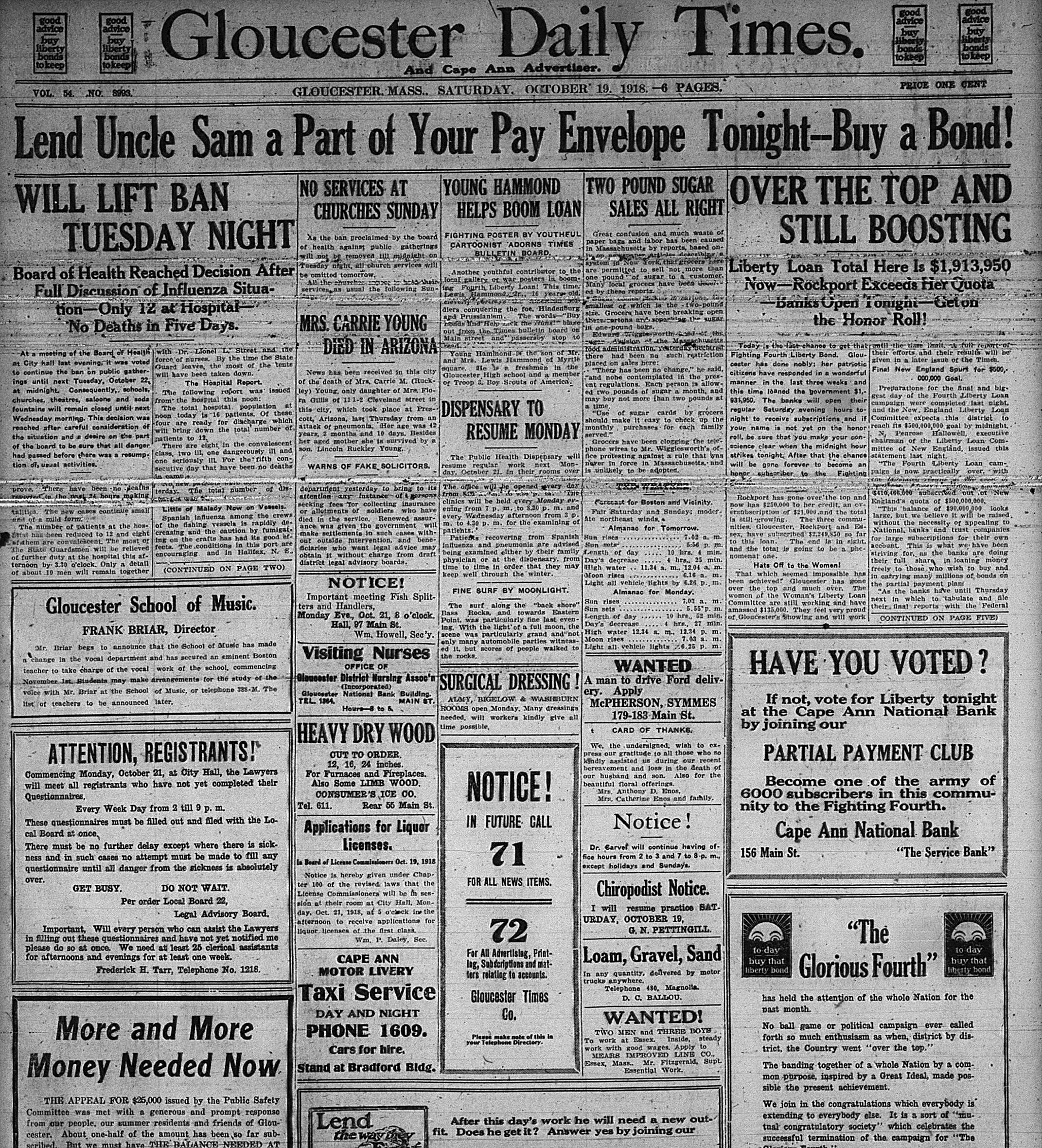





Front page Will lift Ban Tuesday Night: Board of health Reached Decision After Full discussion of Influenza Situation—Only 12 at Hospital—No Death in Five Days
At a meeting of the Board of Health at City hall last evening, it was voted to continue the ban on public gatherings until next Tuesday, October 22, at midnight. Consequently, schools, churches, theaters, saloons and soda fountains will remain closed until next Wednesday morning. This decision was reached after careful consideration of the situation and a desire on the part of the board to be sure that all danger had passed before there was a resumption of usual activities.
(Illegible) conditions continue to improve. There have been no deaths reported in the past 24 hours making (illegible) fatalities. The new cases continue small and of a mild form.
The number of patients at the hospital has been reduced to 12 and eight of them are convalescent. The most of the State Guardsmen will be relieved of further duty at the hospital this afternoon by 3.30 o’clock. Only a detail of about 10 men will remain together with Dr. Lionel L. Street and the force of nurses. By the time the State Guard leaves, the most of the tents will have been taken down.
The Hospital Report.
The following report was issued from the hospital this noon:
The total hospital population at noon today is 16 patients. Of these four are ready for discharge which will bring down the total number of patients to 13.
There are eight, in the convalescent class, two ill, one dangerously ill and one seriously ill. For the fifth consecutive day that (sic) have been no deaths in camp.
No new patients (illegible) yesterday. The total number of discharges was (illegible).
Little of Malady Now on Vessels.
Spanish influenza among the crews of the fishing vessels is rapidly decreasing and the caution by fumigating on the crafts has had its good effects. The conditions in this port are encouraging and in Halifax, N.S. there are very few cases among the great many vessels in port.
In Portland, Me., the Topsail Girl had her flag at half-mast Thursday for Ansel Webber, a member of the crew who died at the Marine hospital of influenza, with which he was stricken while on the last trip out. Another member of the crew is at the hospital but his condition is good and he is expected to recover.
The sch. Marjie Turner will probably go out fishing again by Sunday at the outside as the crew are coming back one by one and things are looking much brighter than they were. One member of the crew of this vessel (illegible) who were sick appear to be making a good recovery.
On increase In Other Parts of the Country
Reports to the public health service in Washington yesterday from 35 states showed the Spanish influenza still is on the increase in most parts of the country. Conditions in army camps also were less favorable, the 4793 new cases reported to noon yesterday showing that the disease apparently was stationary after the marked decline noted for several days.
The epidemic still is more pronounced in the eastern section of the country than it is west of the Mississippi river due undoubtedly to the more crowded conditions in the large cities. Up to October 16, New Jersey had reported 107,839 cases, with 2232 deaths, while in New York City 4733 cases of influenza with 336 deaths and 646 cases of pneumonia with 287 deaths were reported yesterday.
Fewer in Bay State
Deaths in Pennsylvania until October 16 were reported (illegible) subsiding, but many cases of pneumonia were reported. Fewer cases also were reported from Massachusetts, but in Maine, Rhode Island and New Hampshire the disease still was epidemic. Maryland also reported many new cases, as did Virginia, North Carolina, South Carolina, Tennessee, Alabama, and Mississippi.
The epidemic also continues in the middle West. Louisville and five other cities in Kentucky have many cases, while Indiana yesterday reported 2688 new cases outside of Indianapolis, where the disease is epidemic. The malady also continues in Illinois and Michigan while Ohio reported that it is prevalent in 13 cities in that state.
Missouri reported epidemics in seven cities, Minnesota in 13 cities, Colorado in seven cities and Kansas in seven cities and many counties. There is a serious epidemic in Oklahoma City with many cases in other parts of Oklahoma.
The disease was increasing in nine counties in North Dakota and was reported from six cities and several counties in New Mexico. The epidemic also is widespread in Arizona.
Spreading in the West
Idaho reported new cases from five cities; South Dakota reported the disease throughout the state; Wisconsin had new cases in 10 cities and Wyoming reported 2500 cases during the last week. Montana reported 2000 new cases during the week ending October 12. In Arkansas the peak seems to have been reached in most cities, but the disease is increasing in the rural districts.
In the District of Columbia both the number of new cases of influenza and of deaths increased today and portable hospitals were open to take care of the overflow from public and private institutions.
Although influenza cases in army camps increased slightly, the number of pneumonia cases, 1599, decreased during the 24 hours period ending at noon yesterday. Deaths were 657 against 684 Thursday. Influenza cases reported from all camps since the epidemic began now total 279,945; pneumonia cases, 42,675, and deaths, 13,681.
**note from author: see revised estimates for army camps**
Front page Young Hammond Helps Boom Loan (not John Hays Hammond family)
Front page obit Mrs. Carrie Young Died in Arizona
News has been received in this city of the death of Mrs. Carrie M. (Ruckley) Young, only daughter of Mrs. Florence Gillis of 11-1/2 Cleveland Street in this city, which took place at Prescott, Arizona, last Thursday from an attack of pneumonia…
Front page Dispensary to Resume Monday
The Public Health Dispensary will resume regular work next Monday, October 21, in their rooms over Barker Drugs. The office will be opened every day from (illegible). The clinics will be held every Monday evening from 7p.m. to 8.30 p.m. and every Wednesday afternoon from 3p.m. to 4.30 p.m. for the examining of patients. Patients recovering from Spanish influenza and pneumonia are advised being examined either by the family physician or at the dispensary from time to time tin order that they may be kept well through the winter.
Front page Over the Top and Still Boosting: Liberty Loan Total here is $1,913,950 Now
Inside page p. 5 Op Ed Orphans Must Have Love of Community Heart
**op ed rallying speech, effective & heartfelt**
ORPHANS MUST HAVE LOVE OF COMMUNITY HEART: THE HEROISM OF GLOUCESTERIn time of great emergency, communities like individuals, assert themselves. A latent power long hidden under the crust of custom begins to show itself and face to face with critical situations finds the means with which to meet and conquer. Gloucester has faced such a situation the past five weeks and Gloucester, equal to the situation, has risen in her latent power and is winning the fight. In all the dreadful conditions which the city has faced, big hearted men and women have with one accord stood shoulder to shoulder, never doubting but in the end right would prevail.It has been a severe and crucial period through which her people have passed. There have been hours in which the stoutest hearted have somewhat doubted, fearful that the odds were too much and the fight might be lost.A few short weeks ago and the outlook was indeed dark. The dreadful disease was fast spreading throughout the community. Whole families were stricken down, life after life was going out, the battle, as stern a battle as if it had been fought upon the open field, was striking terror on every hand.But the men and women who were at the helm never lost the courage that always wins and called to supreme effort made a gallant stand to win, no matter what the cost. It was the test of heroism and heroism conquered.Called to undertake tasks that might have seemed superhuman, not a single person has hesitated nor been reluctant to do their bit no matter what the cost or sacrifice. And now that the fight is being won it is well to pause for a single moment that credit and praise shall be given unstintingly to each and all. It is neither the time nor the place to speak and give the credit that is due to many people and to many organizations, but it is the time to pay a deserved tribute collectively to the mighty heroism of Gloucester and her people. In all its history Gloucester has faced many critical situations and facing them the city has never lost heart entirely nor given up what might have seemed an unequal fight. It is no idle talk to say that schooled to years of a hard battle for her very existence by reason of uncertainty of her principal business Gloucester people have been receiving an education that has stood them in good stead at the present time.And realizing what has happened the past few weeks in the city, Gloucester must confidently face the future prepared to meet and win in the great problems that are now imposed upon her, problems that concern her health and the well-being of her people. Even if the disease is being overcome, serious conditions that have arisen by reason of the epidemic must be faced and with the same heroic fortitude of the past few weeks her people must be prepared to battle for many long and weary months ahead that out of it all lasting good to the community may be brought about. Out of the bitter experiences through which the city has passed the lessons that must be learned will bring soon better and healthier conditions for every person.Nor in the midst of all these things must the community forget also that there are duties and responsibilities which have come by reason of the suffering and by reason of the terrible toll of death that has entered many homes and brought sorrow to so so many people. Stout hearts must carry cheer and comfort in every direction. The orphan children must have the love of the community heart to take the place of the mother and the father love that has been taken from them. The burden that has come into the midst must be cheerfully borne and will be cheerfully borne because throughout all the city the people of Gloucester are equal to the emergency, because the Heroism of Gloucester has asserted itself.
Gloucester Daily Times op ed 10/19/1918
Inside page East Gloucester column
Mrs. Ralph B. Herrick and two sons, who have been confined to the Addison Gilbert hospital with typhoid fever, for many weeks, have returned to their home on Mt. Pleasant Avenue…Harlan Dann, who has been very ill at Camp Waverly, Newport R.I., with the Spanish influenza, is improving.
Inside page Schools are to Open Wednesday
The public schools will reopen Wednesday (10/23/1918) in conformity with the decision of the board of health last evening, removing the ban on public gatherings at midnight on Tuesday, Dr. Garland of the school committee giving an opinion that it is perfectly safe for the schools to re-open which the committee generally accepted.
The meeting of the school committee on Monday evening was adjourned till last evening but a quorum of the committee was not present, only five members being there so that no formal meeting but informal discussion of the situation took place.
Those present at the time of the meeting were Vice-Chairman Jordan, Mr. Carroll, Mrs. Curtis and Miss Brooks (Illegible) while Dr. Garland came in later in the evening, the absentees being Mayor, Stoddart, Mr. Patch, now in France, Mr. MacInnis on duty with the state guard and Mr. Phillips. The sentiment of the members presiding seemed in favor of delaying the opening of the schools till a week from Monday, previous to the arrival of Dr. Garland, Mrs. Curtis and Miss Brooks being strongly of that opinion while Mr. MacInnis was also referred to as of the same opinion.
Dr. Garland however gave it as his opinion that schools could open on Wednesday with perfect safety to the scholars and teachers, the epidemic stage of the influenza having passed, and if the schools were not re-opened until every separate case disappeared they would not open all winter.
Mr. Carroll expressed his willingness to accept the opinion of the doctor as authoritative, and was willing to re-open the schools on Wednesday, especially in view of the large amount of time which has been lost, and Mrs. Curtis expressed a similar opinion. Miss Brooks still thought it would be better to defer the re-opening for another week, although willing to defer with the decision of the majority of the committee.
It was finally decided that the chairman secure the opinions of the absent members of the committee and if they were in favor of reopening on Wednesday the school would reopen on that day.
Vice Chairman Jordan reached the members of the committee who were not present at the meeting by telephone this morning with the result that the informal action of the other members was endorsed and Superintendent Haines will accordingly send out notice to the teachers and scholars that the regular sessions of the schools will be resumed on Wednesday.
Inside page p.6 (?) High Praise from Lieut. Devlin: Work of Women and State Guard at Hospital Post Wonderful.
Lieut. Thomas M. Devlin of the 10th Regiment, M. S. G., who is also a parole officer in the boys department of the Massachusetts Training Schools, and was assigned to the State Emergency Hospital Post, where he rendered most valuable service in charge of the orderlies and nurses has written the following appreciative letter to Capt. Carleton H. Parsons, post executive and adjutant concerning the work of the local State Guard:
Roslindale, Mass., Oct. 13, 1912.
Captain Parsons,
Company L. 15th Inf. M. S. G. Gloucester, Mass.My dear Captain:–Owing to the fact that such a short time elapsed between the time that I heard of my transfer to another field of activity and the time of the next train I felt sorry that I could not express to you personally my sincere thanks for the many courtesies shown me during my short time in your city.
I would indeed be derelict in my duty if I did not express my keen appreciation of the services of the men of the State Guard. Were I to even try to express myself properly, I would use up all the superlatives in the dictionary.
I hardly know where to start or how to finish for all both officers and men showed such a wonderful spirit of service that I was uplifted and found it very hard to even keep up the pace they set for me.
To the orderlies who served at the hospital, great praise should be given, they were efficient, running from morning to night, kindly, thoughtful and never seeming to tire. Words of mine cannot adequately thank them, so I am going to have recourse to the words of the Divine Commander, “In as much as you have done to the last of My children, you have done unto Me.” They have indeed done their work well.
To all the non-commissioned officers I want to express my cordial thanks for the active cooperation they indeed made my work very easy.
To the company cooks, need I tell you how good they were, I cannot hope to find anything to equal them anywhere.
In conclusion, I come to the hardest part of my letter and that is to state my appreciation of the work of the women of Gloucester. I think that you will agree with me that no one had a better chance to observe their work and see how nobly they performed the work assigned them. Lest some might, as I heard it was stated, feel that they were not doing much work at the camp, I cannot state it too strong when I say without them the work of the nurses would be of no avail. They were simply wonderful, Gloucester, and indeed Massachusetts has reason to be proud of such mothers, such sisters, such womanhood. I shall always carry with me a new conception of the work of the Red Cross.
I shall certainly carry to my new place the knowledge of the big heartedness of the people of Gloucester and it shall be the inspiration to help me.
Gratefully yours, Thos. M. Devlin,1st Lieut. Co. K, 10th M. S. G.
Sunday, October 20, 1918
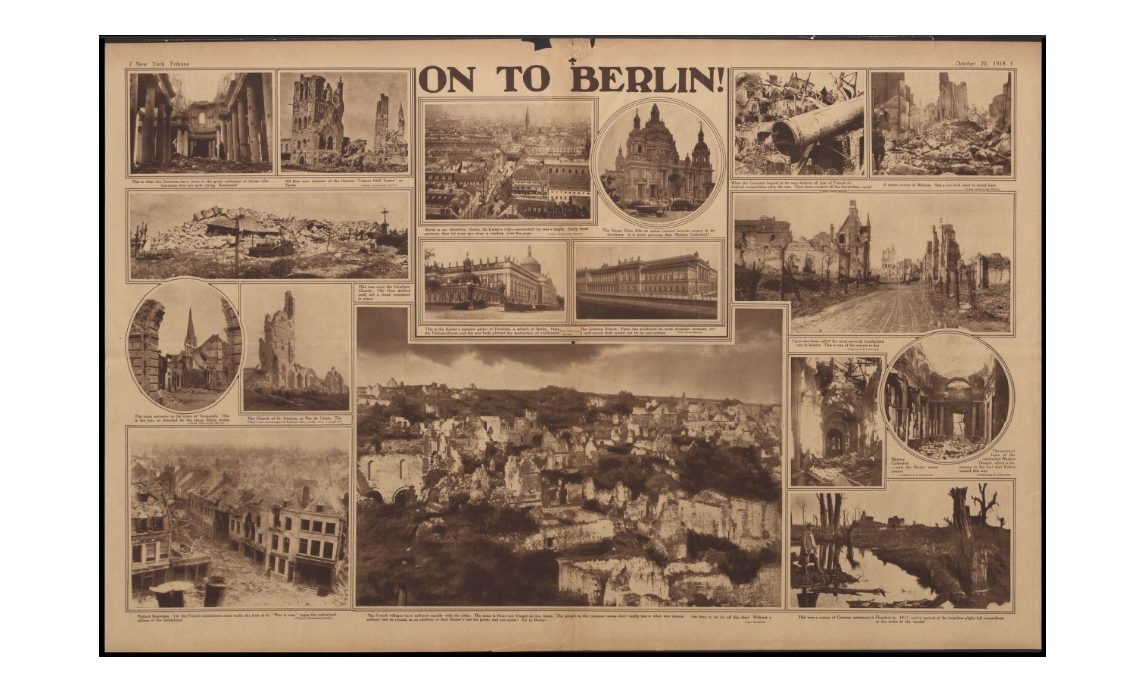
Monday, October 21, 1918
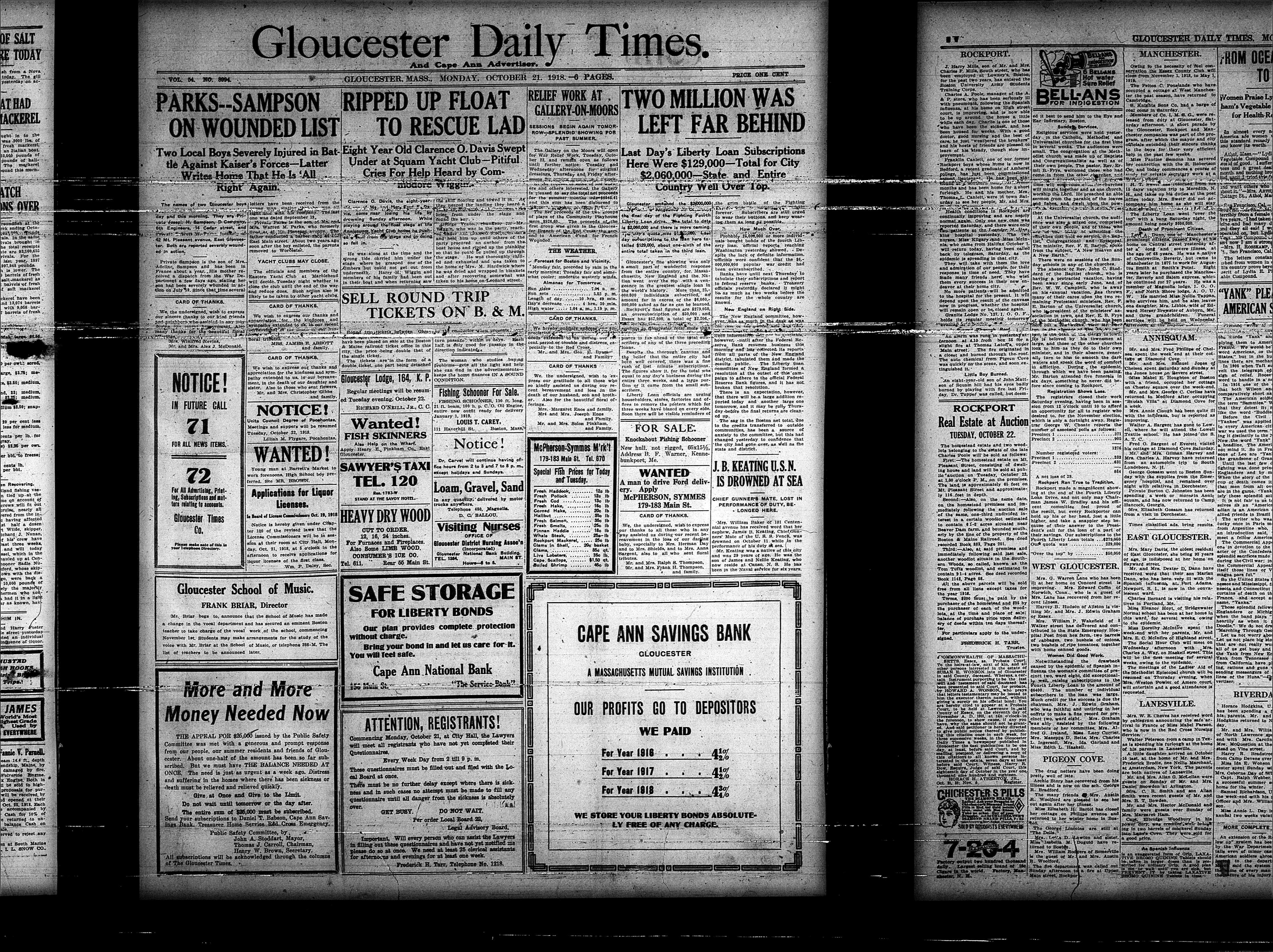
**note from author: Front page card of thanks notices only**
**note from author: Dr. Street’s official last day—though it will be extended. On the 10/25/1918 newspaper reports he’ll receive Red Cross assignment overseas soon**
Front page example Card of Thanks
We, the undersigned, wish to express our gratitude to all those who so kindly assisted us during our recent bereavement and loss in the death of our husband, son and brother. Also for the beautiful floral offerings. Mrs. Margaret Enos and family. Mr. and Mrs. Joseph Enos and Family. Mr. and Mrs. Solon Pinkham and family.
Page Relief Work at Gallery On Moors sessions Begin Again Tomorrow—Splendid Showing for Past Summer
Will open for War Relief Work Tuesday October 22…
Tuesday, October 22, 1918
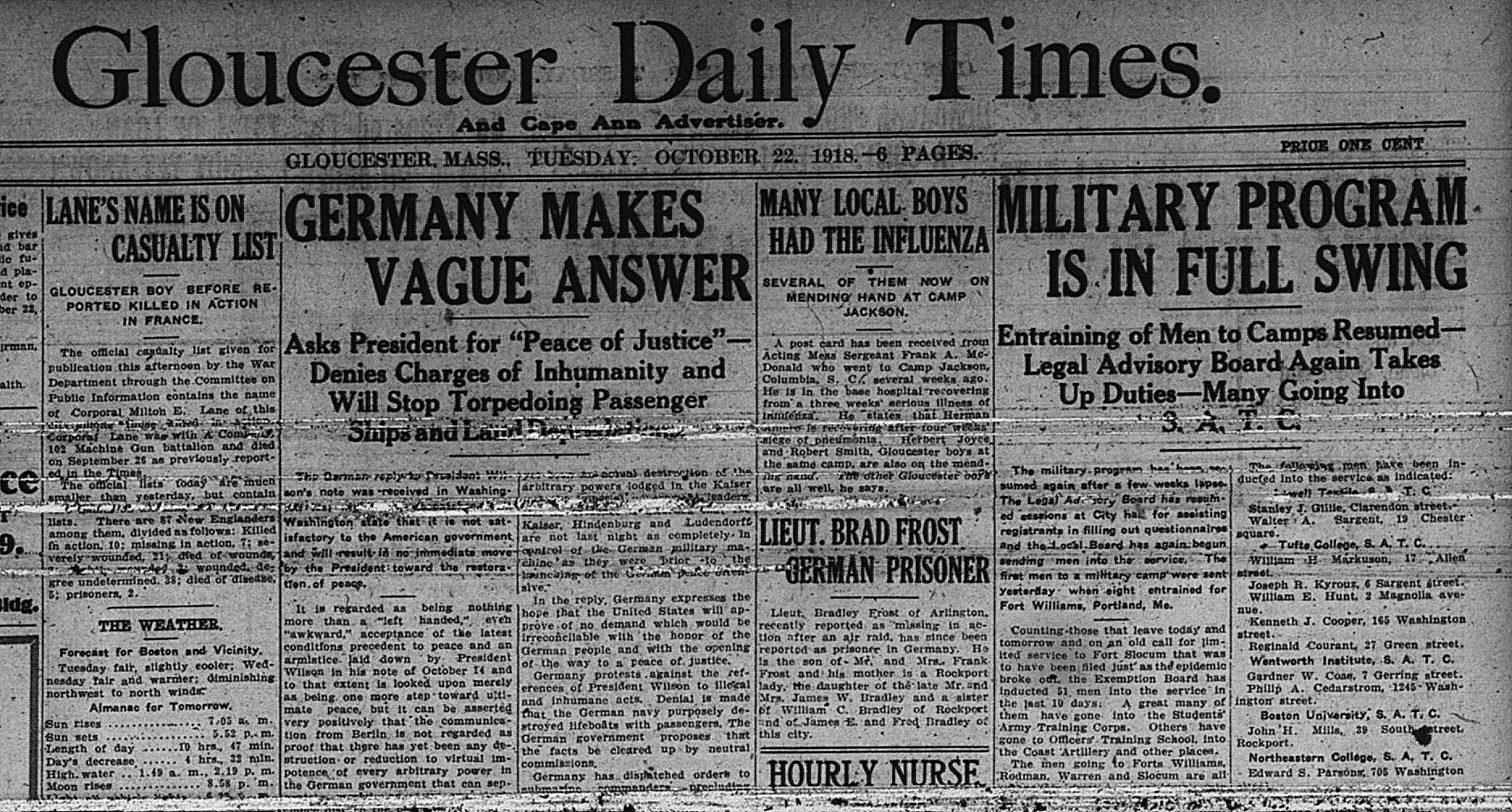
**note from author: Ban on public gatherings lifted at midnight**
Front page Many Local Boys Had the Influenza: Several of Them Now on Mending Hand at Camp Jackson, S.C.
A post card has been received from Acting Mess Sergeant Frank A. McDonald who went to Camp Jackson, Columbia, S. C. several weeks ago. He is in the base hospital recovering from a three weeks’ serious illness of influenza. He states that Herman (illegible) is recovering after four weeks siege of pneumonia, Herbert Joyce and Robert Smith, Gloucester boys at the same camp, are also on the mending hand. The other Gloucester boys are all well, he says.
Wednesday, October 23, 1918
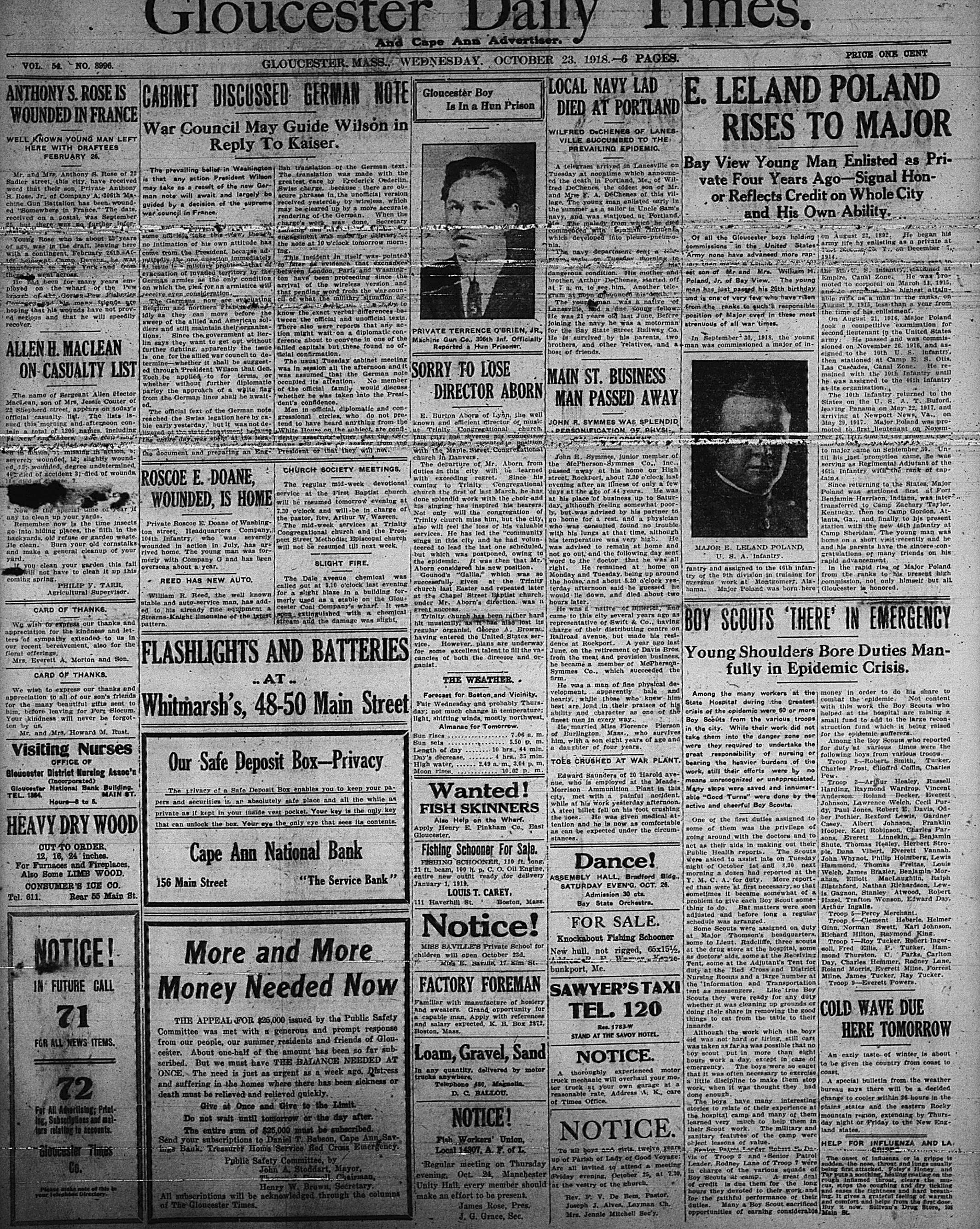
**schools re-open**
Front page obit Local Navy Lad Died at Portland
Wilfred DeChenes of Lanesville died on Tuesday at noontime. The young man enlisted early in the summer as a sailor in Uncle Sam’s navy, and was stationed at Portland. The malady from which he died commenced with Spanish Influenza which developed into pleuro-pneumonia. The navy department sent a telegram (that he was in a dangerous condition) His mother and brother, Arthur DeChenes, started off at 7AM to see him. Another telegram at noon announced his death. The young man was a native of Lanesville and a fine young fellow. He was 21 years old last June. Before joining the navy he was a motorman for the Bay State Street Railway Co. He is survived by his parents, two brothers, and other relatives and a host of friends.
Front page Main Street Business Man Passed Away John R. Symmes was splendid personification of physi-(illegible)
John R. Symmes junior member of the McPherson Symmes Co., Inc., passed away at his home on High Street Rockport last evening after an illness of only a few days at the age of 44 years. He was at his place of business up to Saturday, although feeling somewhat poorly, but was advised by his partner to go home for rest and a physician who was consulted found no trouble with his lungs at the time, although his temperature was very high. He was advised to remain at home and not go out, and the following day sent word to the doctor that he was all right. He remained at home on Monday and Tuesday, being up around the house, and about 5:30 said he guessed he would lie down and died about two hours later.”
Front Page Boy Scouts ‘There’ in Emergency: Young Shoulders Bore Duties Manfully in Epidemic
Boy Scouts ‘There’ in Emergency Young Shoulders Bore Duties Manfully in Epidemic Crisis – Among the many workers at the State Hospital during the greatest crisis of the epidemic were 60 or more Boy Scouts from the various troops in the city. While their work did not take them in the danger zone nor were they required to undertake the great responsibility of nursing or bearing the heavier burden of the work, still their efforts were by no means unrecognized or unappreciated. Many steps were saved and innumerable “Good Turns” were done by the active and cheerful Boy Scouts. One of the first duties assigned to some of them was the privilege of going around with doctors and to act as their aids in making out their Public Health reports. The scouts were asked to assist late Tuesday night Oct 1; 8:30AM next morning a dozen had reported at the YMCA for duty…”The military and sanitary features of the camp were object lessons of value…Many a boy scout sacrificed opportunities of earning considerable money in order to do his share to combat the epidemic…boy scouts who helped at hospital are raising a small fund to add to the large reconstruction fund which is being raised for the epidemic sufferers…”
Thursday, October 24, 1918

Front page Silva is State Guard Champion Mayor Advised Delay but Alderman Urged City Reimburse Men Who Lost Wages and Rendered Splendid Service During Epidemic
The municipal council, at its meeting yesterday afternoon, adopted a resolution and order which was presented by Alderman Silva providing for the reimbursement of the members of the state guard who lost wages by reason of service during the recent epidemic at the rate of $2.50 per day for each day’s pay lost, and an order was introduced appropriating $2000 from the reserve fund formed by the balance from the overlay of taxes after the abatements of taxes are provided for, which under the charter provision was laid on the table one week.
The resolution and order as presented by Alderman Silva was amended on motion of Mayor Stoddart by providing that in case these men shall be reimbursed by the state for their loss of time, the money authorized by this order shall revert back to the city, and (illegible) amended were adopted by a unanimous vote.
Deserved Praise
The resolution and orders as adopted are as follows:
Whereas the members of Companies K and L of the Massachusetts State Guard rendered such valuable assistance to the citizens and inhabitants of the city of Gloucester during the tour of duty in connection with the recent influenza epidemic from which this city has suffered so severely,And whereas, about 35 members of said Companies K and L suffered the loss of the wages by reason of their absence from their regular employment during their tour of duty, and it is fitting and proper that these men should be compensated in part at least for the loss they suffered, Therefore, be it ordered, that the city clerk be instructed to ascertain the names of the men who lost their wages and that they be reimbursed by the city at the rate of for each day’s pay they lost from their regular employment. Provided, however, that in the event of the Commonwealth of Massachusetts (illegible) its authorized agents re(illegible) members of the State Guard Companies K and L, as are within the scope of this order the money authorized by this order shall revert back to the city of Gloucester. Ordered, that a sum not exceeding $2000 be and the same is hereby appropriated for the payment of those members of Companies K and L of the Massachusetts State Guard who lost their wages during the tour of duty in connection with the recent influenza epidemic, said amount to be charged to the reserve fund.
Silva Lauds Willing Workers
In Support of the resolution and order, Alderman Silva said that after the state guard had been called into service here, the state authorities issued an order that members who volunteered for service during the epidemic did so on their responsibility and (illegible)cester companies, the state (illegible) the men $1.55 per (illegible) had also some expenditure in addition. The town of Manchester, realizing Gloucester’s condition, and the selectmen held a special meeting and voted to give the men who came here for service $2.50 per day, while as to the Rockport company he did not know the conditions. He had reason to believe that the members of the two local companies would not have hesitated to have offered their services in any event, but he thought it was a reflection on the municipal council in Manchester to send their men here and pay them $2.50 a day and not offer a resolution whereby we should pay a portion of the member of our own companies …
Resolution of Thanks
Thanks to All for Help in Epidemic
The following resolution of appreciation by the city of the services of all who contributed their services during the recent epidemic, which was signed by all the members of the municipal council was adopted by a unanimous vote at the meeting of the municipal council yesterday afternoon:WHEREAS, during the present epidemic which prevailed in our city, numerous acts of service and assistance were manifest:RESOLVED, that the Municipal Council acting for and on behalf of the citizens of Gloucester desires to express its deep appreciation for various services rendered; realizing that in so doing it will be almost impossible to call by name, each and every one who performed these acts but wishing to convey to all in whatsoever capacity they may have served, our deep gratitude To Major Thomson and staff, to the physicians from the neighboring cities, as well as to those assigned to this city by the United States Government; to our local physicians; to the local branch of the American Red Cross; to Mrs. Henry Souther and the heirs of the Souther estate; to Fred A. Shackelford; to the Board of Health; to the police department of the city of Gloucester; to the Gloucester Daily Times; to the nurses from this city, the neighboring communities as well as those from our sister Dominion of Canada; to those of our own ladies who early or late volunteered and assisted; to the State Guard companies, Companies K and L of Gloucester, M. of Rockport and I of Manchester for the splendid service they have rendered which brings into its real light the spirit which is manifest throughout (illegible) especially the Riverdale Grange, the Girls Club of Manchester and its allied organizations; to the Y.M.C.A., the Boy Scouts of America, to our clergymen: We desire to enter upon our records this testimonial that “words fail to express the feeling which has been engendered by these acts of service and self-sacrifice, which will forever occupy a prominent place in the history of this dear old city. Deeds such as these will live forever.”Resolved, That these resolutions be spread upon the records and a copy published in the local press.[Appended following day: “Through an inadvertence, the District Nursing Association and the Salvation Army were not specifically mentioned in the card of appreciation adopted by the municipal council on Wednesday. The former was in charge of the influenza cases in the earlier stages of the epidemic, and Adjutant and Mrs. Gunn and their assistants rendered valuable service in distributing soups and other foods among the convalescents.]
Gloucester, Mass
Friday, October 25, 1918

Front page Close Hospital- Epidemic is Over
The State emergency hospital is officially closed. This morning, the two remaining patients were discharged and sent to their homes thus concluding the last chapter of Gloucester’s military hospital post. Although the state guard was discharged from duty last Saturday, except some eight men, the hospital (illegible) when the camp was broken. A few tents and five (illegible) it being deemed advisable to clean up the cases at the camp, rather than to remove them to Braewood, especially in view of the fact that a number of the (illegible) dangerously ill. Sunday and Monday, conditions were so far improved that the hospital population was reduced to three patients. All tents were struck and these patients (illegible) in the rear of the Addison Gilbert hospital, which during the camp was used as a dispensary. The care of the patients was very kindly taken over by Miss Leach, hospital matron, whose services during the recent epidemic have been indispensable, while Mrs. Augusta Weeks one of the nurses sent by the state, remained until this morning to take care of the patients at night. An illustration of the value of (illegible)pneumonia is shown in the fact that one of the three remaining patients who for some two weeks had been on the dangerous list and her life almost (illegible) of has to recover as to leave the hospital yesterday. The other two, one a woman and the other a member of the state guard, who had been seriously ill, were able to leave this morning. (Illegible) cleaning up the hospital grounds of the lumber and tent floors which are being removed to the board of Health’s new convalescent hospital at Braewood. Other equipment used in the operation of the hospital is at the state armory and just as soon as it is sorted will also be transported to Braewood.
Dr. Lionel Street, hospital superintendent, who concluded his duties at the hospital Monday received notification this morning from Secretary Redfield that he had been officially enrolled for service in the Red Cross overseas and will receive his assignment shortly. (Illegible). Through an inadvertence, the District Nursing Association and the Salvation Army were not specifically mentioned in the card of appreciation adopted by the Municipal Council on Wednesday. The former was in charge of the influenza cases in the earlier stages of the epidemic, and Adjutant and Mrs. Gunn and their assistants rendered valuable service in distributing soups and other foods among the convalescents.
Saturday, October 26, 1918
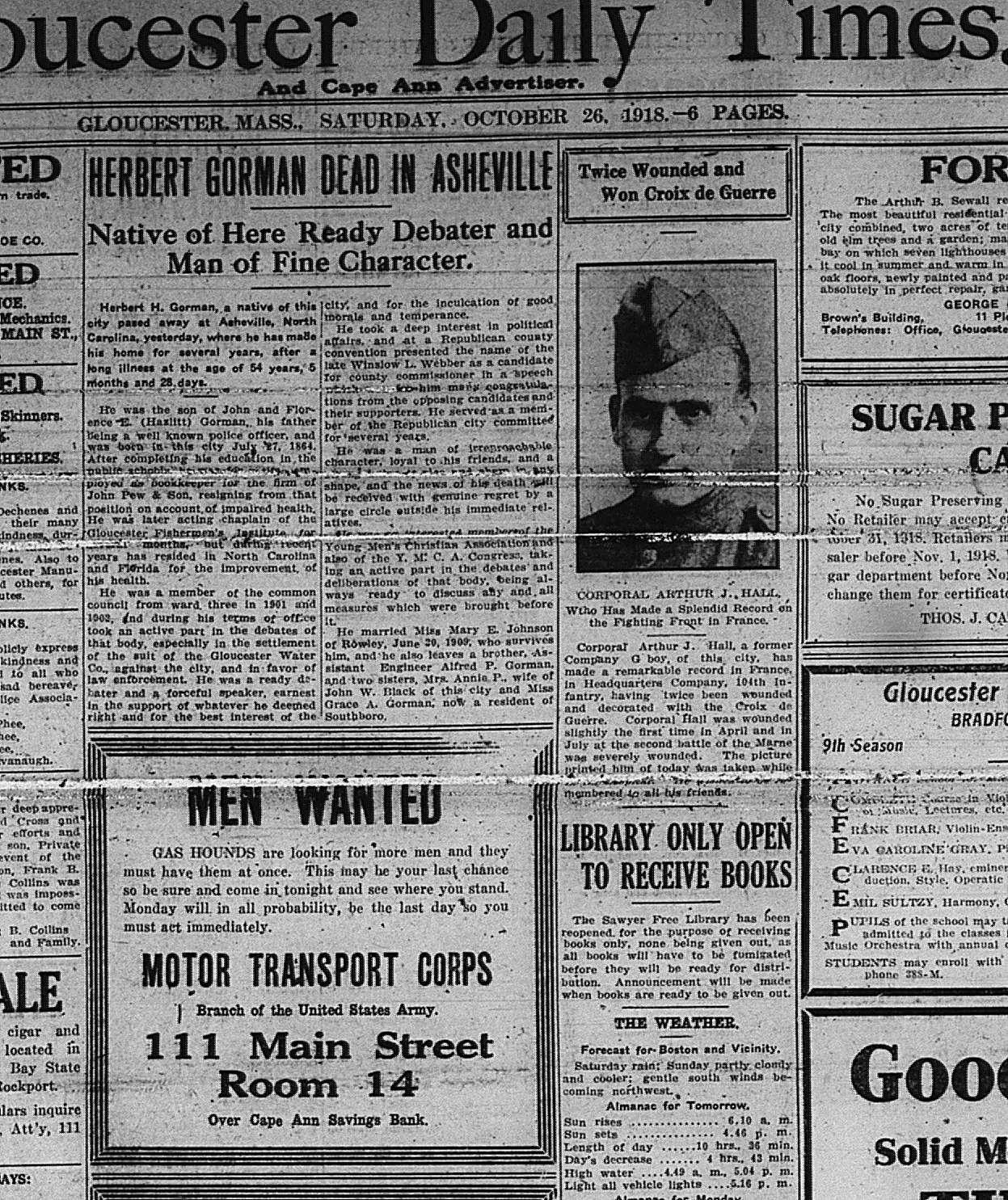

Front page Library: Only Open to Receive Books
Libraries in Gloucester at the time

Inside page Few NEW Cases of Influenza
That the influenza is fast on the wane in this city is evident from the very encouraging reports to the Board of Health this morning. The total number of cases was 70, including 4 new ones, the latter being of a milder form.
**end of daily transcription**
The daily log includes the peak weeks of the second wave.
1918 ARMISTICE DAY
1918 THANKSGIVING
1918 CHRISTMAS
FOOTNOTES
1. Selection of research studies and/or books that I found helpful regarding the 1918 Flu Pandemic global mortality and/or case estimates
- 2020 Centers for Disease Control (CDC) 50 million deaths worldwide
- 2018 Spreeuwenberg, Kroneman & Paget – 17.4 million deaths worldwide
- 2002 Johnson & Mueller – 50 million deaths (up to as much as 100 million) worldwide
- 1996 W.P. Glezen – 675,000 deaths in United States
- 1991 Patterson & Pyle – 30 million (range 24-39 million) deaths worldwide
- 1989 Crosby – 40 million deaths worldwide
- 1942 Burnet & Ellen Clark – 500 million infected / 50-100 million deaths worldwide
- 1927 Jordan – about 22 million deaths worldwide
- 1920 Frost – 500 million infected PDF here| Based on Public Health canvassing 10 cities: SF, CA; Des Moines, IA; San Antonio, TX; Little Rock, AK; Louisville, KY; Macon, GA; Augusta, GA; Spartanburg, VA; Baltimore, MD; minor MD communities; New London, CT
- 1920 United States Census
- 1919 New York Metropolitan Life Insurance Company 450,000 deaths in the United States in 1918
- 1919, Aug. 20 (chart below) showing Excess Mortality in U.S. Cities During Influenza Epidemic | Percent of Population Dying in 44 cities [image credit: National Mus. of Health and Medicine Otis Hist. Archives]
- 1918 Massachusetts: Population states and Counties of the United States 1890-1990
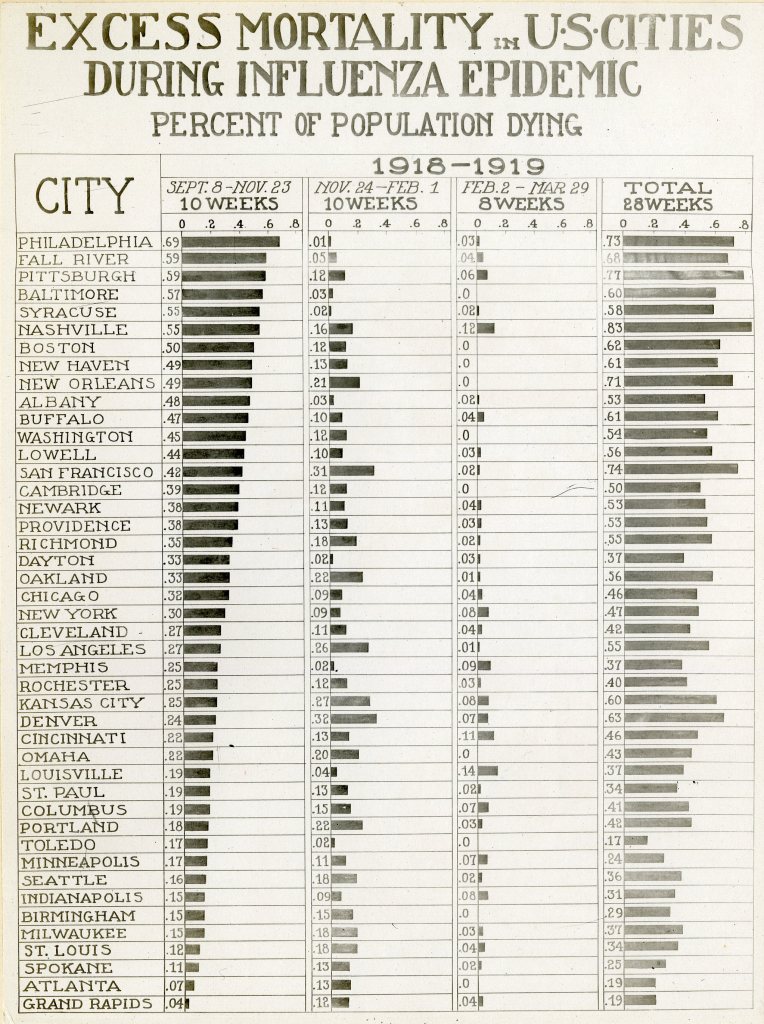
2. (Trilla, G.T., 2008) Pandemic tallies specific to Spain here
“On 22 May 1918, the epidemic was a headline in Madrid’s ABC newspaper. The infectious disease most likely reached Spain from France, perhaps as the result of the heavy railroad traffic of Spanish and Portuguese migrant workers to and from France. The total numbers of persons who died of influenza in Spain were officially estimated to be 147,114 in 1918, 21,235 in 1919, and 17,825 in 1920. However, it is likely that >260,000 Spaniards died of influenza; 75% of these persons died during the second period of the epidemic, and 45% died during October 1918 alone…The total numbers of persons who died of influenza in Spain were officially estimated to be 147,114 in 1918, 21,235 in 1919, and 17,825 in 1920 [23].”
3. (Ryan, C., 2020) 1918 Flu Pandemic tallies specific to Gloucester. “1918 Pandemic: Reconstructing how the flu raged and flattened in Gloucester Massachusetts where 183 died in 6 weeks” and digital archive
4. Pre pandemic, peak pandemic and post pandemic research is extensive. For early waves including Étaples, France & Aldershot England, Kansas, military vs. civilian, etc. see the Source list, especially: (J.S. Oxford 2002); (Worobey); (Vaughan W.T., 1921); (Byerly); (Barry); (Humphries); (Crosby,1989 ); (Watson, T. 1872.)
5. (Vaughn, W.T., 1921) On front of flu lines WW1 and immediate epidemic study in 1919. Written in 1920, Published a year later. Includes extensive bibliography. Public health and infectious disease fields impressive. Global flu surveillance and science was robust. Data exchanged, studied, disseminated.
6. See Source list
7. for NYC see (Olson, 2005) and (Kraut)
8. Global spread – block of multiple images
- (Vaughn, W., 1921) research during WWI through 1920 outbreaks; presumption U.S. source
- (Library of Congress- LLC–) “Medical Science’s newest discovery about the Spanish influenza” by Dr. Gordon Henry Hirschberg, A.M.M.D.
- (Library of Congress- LLC–) same article – map enlarged “Medical Science’s newest discovery about the Spanish influenza” by Dr. Gordon Henry Hirschberg, A.M.M.D.
- (Nat. Mus. Health and Medicine, 1918) Emergency hospital at Camp Funston, KS (n.d. early wave?)
- (Nat. Mus. Health and Medicine, 1918) Emergency hospital- Isolation tents in Baccarat
- US Census annotated to show Massachusetts
9. (National WWI museum & memorial, 1918)
- photo credit: Signal Corps 40808. American soldiers in TRENCH.Verdun Sector (east near Douamont) Nov. 1918
- See (Waste of War)
10. (Library of Congress—aka LOC—1918)
- (National Museum of Health and Medicine, WW1) Soldiers sitting on toilets. Latrine. Smoking/reading newspaper. AEF [American Expeditionary Forces]
- (LOC, 1918) Red Cross Opportunity to Bathe, 1918, Oct. 1
- (collection CR, WWI) British packaging WWI- pop up Red Cross baths served 10 at a time –brought baths to troops
- (National Arhcives, 1919) Sanitary Equipment, Portable latrine seat (cover) for post holes
11. (LOC, 1918) Men from front lined up to turn in clothing for replacement & disinfection at disinfecting plant no. 2 August 10, 1918, Saacy, France
12. Block ‘cleanliness is next to battlefields’ images:
- (National Archives, 1918, March 4.) Great Sterilizing Machines Will Minimize Danger from Diseases Among Troops…Designed by Dr. Leon L. Watters. “The largest pieces of sterilizing apparatus ever constructed will soon be sent General Pershing’s forces in France. This photo shows one of the sterilizing machines, which was devised by Dr. Leon L. Watters. Each apparatus is complete in itself and weighs 8,000 pounds. It has a steam boiler which provides the necessary high pressure steam. Their portability permits them being taken close to the fighting liens. By the use of these disinfectors it is possible to take the men out of the trenches and send them to one of many stations where facilities are provided for bathing. In the meantime the clothing and effects of the soldiers (can be cleaned)…”
- (National Archives). Traveling Army Sterilizing Wagons. [NY Herald, NY]
- (National Archives 1919, Mar. 5). Steam Disinfectant for Bedding, etc. [Army Medical Museum]
- (National Archives, 1918, Mar. 6). Shower baths, delousing station [Army Medical Museum]
- (Mass. Archives, 1918 Aug. 10) “The thrash steam-drive disinfector, a disinfecting machine used by the 26th army division. A group of soldiers stand waiting to receive their clothes. One of the two steam vats is open and the wire basket containing the disinfected clothing is being removed. The clothes were steamed at a temperature of 238 degrees Fahrenheit and at a pressure of 7 to 10 pounds for 30 minutes. The photograph was taken in Saacy, France on August 10, 1918. Operated by the Massachusetts National Guard Infantry Division, 26th”
- (National Museum Health & Medicines, 1919, Jan. 24). Barbershop Bordeaux Last stop to prepare for embarkation back to U.S.
13. (LOC 1916, Mar. 23) USS Nevada 81, Navy Yard, Boston. Comdts. Let. 316-700 of Mar.31, 1916 [Note date- included for its sliver of Boston Navy Yard landscape]
14. (LOC, 1919) Troopship with Yankee Division heroes returning Arrival at Commonwealth Pier April 7th 1919 Boston, MA. Library of Congress [author note: see some of dock]
15. (Naval History Museum, 1919) USS Wakefield returning
16. (Vaughan, 1921)
17. (LOC, 1918) portrait of medical staff in the temporary emergency hospital Commonwealth; (Naval Museum, 1918) Naval Training Camp Gulfport, MS; (LOC, 1918) Officers and crew, U.S.S. Mount Vernon, October 30, 1918, Crosby, J. C., photographer. The author’s grandfather served on this ship.
18. (LOC, 1918)
- “Barracks at Camp Devens, Boys on Hillside Writing Letters, Ayer, Mass.” Keystone View Company, front and verso
- aerial: Circle View of Camp Devens May 5th panorama
- block: (National Archives, 1918 May). Base Hospital, Camp Devens, Mass. Medical Ward; (National Archives, 1918, Aug. 2). Waiting to be Inoculated, Camp Devens, Mass. [Boston, Mass.: Tichenor Bros. photographer/publisher]; (National Archives, 1918, May). Base Hospital Camp Devens, Mass. Chemical Laboratory. Med. Dept.; “Over the Top” Training at Camp Devens, Mass. 1918; (National Archives, 1918). Enlisted Mens Latrine, Base Hospital, Camp Devens, Mass.
19. (LOC, 1918) 74th U.S. Infantry, champion regiment of the 12th Division, Camp Devens, Mass., Dec. 20, 1918, Col. Oliver H. Dockery, Jr. commanding
20. (Grist, 1918 / BMJ 1979)
21. (Vaughan, V.C., 1926 ) autobiography
- There are two essential Vaughans to know. This one is Victor. For a brief write-up on Victor Vaughan see (PBS American Experience)
- (Byerly, 2010) “Gorgas sent his best epidemiologists to Camp Devens to investigate. His team included Victor C. Vaughan, dean of the University of Michigan School of Medicine and director of the Surgeon General’s Office of Communicable Disease; William Henry Welch, famed pathologist from Johns Hopkins; and Rufus Cole, respiratory diseases expert from the Rockefeller Institute. (Bowen, 1928) They found the medical situation “grave,” and recommended 16 measures to control the outbreak, the most dramatic being a halt to transfers in or out of Devens until the epidemic passed. Camp Devens physicians performing autopsies described influenza pathology as unique, characterized by “the intense congestion and hemorrhage” of the lungs. But as Vaughan and Welch investigated Camp Devens, the virus kept moving. Before any travel ban could be imposed, a contingent of replacement troops departed Devens for Camp Upton, Long Island, the Army’s debarkation point for France, and took influenza with them. Medical officers at Upton said it arrived “abruptly” on September 13, 1918.”
22. (LOC, 1918)
- Plymouth (12th) Division, General H.P. McCain comd’g., Camp Devens, Mass., Dec. 3rd, 1918 (darker image)
- Falk Photo Co. (1918) Plymouth (12th) Division, Major General, H.P.McCain Commanding, Camp Devens, Mass., Dec. 3rd 1918 [Photograph annotations differ]
- Figures: (Vaughan, W., 1921) vs. 2020 John Hopkins Covid-19
23. (Byerly, 2005) and (Byerly, 2010). For few contemporary AUTOPSIES on tissue samples see (Taubenberger, 1997) & Nat. Museum of Health & Medicine; (Sheng, Z, 2011); and (Gladwell, New Yorker, 1997)
24. Block of images
- (Nat. Mus. Health & med.) Bacillus influenze in sputum
- (Nat. Mus. Health & med.) ON DISPLAY- 1918 infected lung preserved as wet tissue specimen
- (Nat. Mus. Health & Med) US Chart of army admissions_1918 Sept. through December influenza 1918 pandemic
- (Nat. Mus. Health & med.) CHART-PROGRESS OF EPIDEMIC INFLUENZA IN US ARMY CAMPS
- (Frost) Public health canvassing – Frost statistics published in 1920
- (Library of Congress) Commonwealth pier Military Emergency Hospital medical staff portrait / new facilty
- (Naval Museum) Naval Training Camp Gulfport, MS
25. (Vaughan, W., 1921)
26. (Vaughan, W., 1921) on futility identifying first cases
27. (Vaughan, W., 1921) on crowds gatherings
28. (Vaughan, W., 1921) in a nutshell
29. (Vaughan, W., 1921) connecting with Watson lecture from 1847
30. (Gloucester Daily Times—GDT—), 1918, Sept. 30) Scroll to date in archive gallery above to read John Smith letter selected for Our Boys Write Bright Letters Home series
31. Allery (Allerey) mentions
- photo- (WWI Centennial Commission) Delivery of medical care off the battlefield | Allery hospital France [photo held in the Nat. Mus. Health & Med collection]
- (Manch. Cricket, 1918, Sept. 21) Scroll to date in archive gallery above to read Lt. Iving Baker letter
- For more about American hospitals in France including Allery see The American Camp at Allerey
32. (Manch. Cricket, 1918, Oct. 26) Scroll to date in archive gallery above to read Wade Revere Brooks letter
33. Camp Jackson, SC
- (GDT, 1918, Oct. 22) Scroll to date in archive gallery above to read Frank A. McDonald letter. “Many Local Boys Had the Influenza.”
- (National Museum of Health & Medicine, Sept. 1918) Post Exchange & store at Camp Jackson during flu epidemic
- (National Museum of Health & Medicine, 1918) Enlisted men’s tents during influenza epidemic Camp Jackson SC
34. (LOC, 1918, Sept. 8) Front page Tribune Graphic
35. (Naval History and Heritage Command)
36. (LOC, 1918, Dec.13) “Hot Coffee Checks Flu at St. Nazaire: Colonel, Cooks, and K.P’s Steam Germs Out of Newcomers”, December 13, 1918, Stars and Stripes
37. (Gloucester Daily Times)
38. (LOC, 1918 Sept. 1) “Remarkable view of a battle scene on the Marne in which lines of French infantrymen are crawling forward into action behind a French tank” New York Times, photogravure picture insert,
39. (LOC, 1918 Sept. ) New York’s Labor Day Parade, photographer Paul Thompson
40. (GDT, 1918)
41. (GDT, 1918, Sept. 3) Scroll to date in archive gallery above to read “Every Peach Stone Counts”
42. (GDT, 1918 Sept. 3) Scroll to date in archive gallery above to read East Gloucester neighborhood column
43. (GDT, 1918, Sept. 4) Scroll to date in archive gallery above to read East Gloucester neighborhood column
44. (GDT, 1918 Sept. 5) Scroll to date in archive gallery above to read “Community Sing Filled City Hall”
45. (National Archives)
46. Gloucester’s total population see author Notes; for Registration scroll to dates in archive gallery above to read Sept 12 and 13th Gloucester Daily Times
47. (GDT, 1918, Sept. 6)Scroll to date in archive gallery above to read “Lookout Now, Old Mr. Grip is Around” State Surgeon General bulletin
48. (Mass. Archives – State Library of Mass.) Hopkins Map, 1884 zoomed to show Bass Avenue
49. (Mass. Archives – State Library) Stadly Map, 1899 neighborhoods East Gloucester and Rocky neck impacted by flu
50. (GDT, Sept. 10) Scroll to date in archive gallery above to read East Gloucester neighborhood column
51. (GDT, 1918, Sept. 11) Scroll to date in archive gallery above to read “All Flags and Bands to Play tomorrow” Draft Registration reminder
52. (GDT, 1918, Sept. 12) Scroll to date in archive gallery above to read
53. (LOC, 1918 Sept.) Photograph Vice President Thomas R. Marshall draws number during draft lottery
54. (GDT, 1918, Sept. 2) Scroll to date in archive gallery above to read “Post Office Hit by Grip Malady: Eight Carriers and Two Clerks Victims of Prevailing Distemper”
55. photograph ©c ryan, 2012. The Gloucester post office was located at the corner of Main and Pleasant Streets in 1918.
56. (Gloucester City Directory, 1917) Post Office staff annotated to show some (incomplete) of the flu cases and/or deaths come 1918.
57. (GDT, 1918, Sept. 12) Scroll to date in archive gallery above to read Quote from East Gloucester neighborhood column
58. (GDT, 1918, Sept. 12) Scroll to date in archive gallery above to read Neighborhood columns full page
SOURCES
Selection including
Barry, J. (2004) The Great Influenza: The Epic Story of the Deadliest Plague in History, New York: Penguin.
Barry, J.M., Viboud, C Simonsen, L. (2008) Cross Protection between Successive Waves of the 1918-1919 Influenza Pandemic: Epidemiological Evidence from US Army Camps and Britain. The Journal of Infectious Diseases. 2008 Nov. 15; 198(10):1427-34
Boston Library Consortium (2014) WW I photographs
Bowen, A. O. (1928). The Medical (War) Department of the United States Army in the World War: Activities concerning mobilization camps and ports of embarkation. Washington: US Government Printing Office War Department.
British Medical Journal BMJ archives https://www.bmj.com/archive
Brooks, Laurence F., W. W. (1989). — As They May Need: A History of the Addison Gilbert Hospital. Gloucester, Mass.: Published for the Addison Gilbert Hospital by Phoenix Pub.
Burnet, F. C. (1954). Influenza: A Survey of the Last 50 Years in the Light of Modern Work on the Virus of Epidemic Influenza. Melbourne: Macmillan.
Byerly, Carol R. (2010, April). The U.S. Military and the Influenza pandemic of 1918-1919. Public Health Reports 1974-, 125(Supplement 3: The 1918-1919 Influenza Pandemic in the United States).
Byerly, Carol R. (2005). Fever of War: The Influenza Epidemic in the U.S. Army During World War I. New York: New York University Press.
Carter, L. S. (2006). Cold Comfort. Dartmouth Medicine Magazine,Winter.
Centers for Disease Control CDC Reconstruction of the 1918 Influenza Pandemic Virus
Crosby, A. (1989). America’s Forgotten Pandemic: The Influenza of 1918. New York: Cambridge University Press.
Dunlap, Sarah; Ray, Mary; ,Ray.; (2000). Gloucester Massachusetts Historical Timeline 1000-1999. Gloucester: Gloucester Archives.
Federal Reserve archives https://www.federalreservehistory.org
Frost, W. (1920). Statistics of Influenza Morbidity (Vol. 35). Public Health Reports. PDF here
Garenne, A. N. (2000). The 1918 Influenza Epidemic’s Effects on Sex Differentials in Mortality in the United States. Population and development review, 26(3), 1728-4457
Gladwell, M. (1997, September 22). The Deadliest Virus Ever Known. The New Yorker.
Glezen, W. (1996). Emerging Infections: Pandemic Influenza, Epidemiologic Reviews. Vol18(1).
Gloucester Archives https://gloucester-ma.gov/72/Archives
- Dunlap, Sarah; Ray, Mary; et. al. (Priscilla Anderson, Ann Banks, Stephani Buck, Kathleen Cafasso, Lois Hamilton, Priscilla Kippen-Smith, Myron Markel, John Quinn, Alan Ray, Elaine Smogard, Janie Walsh, Natalie Whitmarsh); (2000). Gloucester Massachusetts Historical Timeline 1000-1999. Gloucester: Gloucester Archives.
- Vital records
Lamont, Ray. Gloucester Daily Times op ed (2018, Aug. 28). Our View: The Forgotten Lessons of 1918. Gloucester Daily Times.
Gloucester (Essex County, Mass.) City Directory 1917 (digitized 5/24/2018 ed., Vol. 1917 ). (1916). Boston, Massachusetts: Sampson & Murdock | Association of American Directory Publishers “Pro Bono Publico” (for Directories).
Gloucester Lyceum & Sawyer Free Public Library https://sawyerfreelibrary.org/
- Laurence F. Brooks, W. Warren Babson, MD (1989). — As They May Need: A History of the Addison Gilbert Hospital. Gloucester, Mass.: Published for the Addison Gilbert Hospital by Phoenix Pub.
- accessed spool reels of Gloucester Daily Times from Boston Public Library repository, scanned
Grist, N.R. (1979) A 1918 Letter from Camp Devens . British Medical Journal online (nearly 800 articles about Influenza 1918-1919 alone)
Hewlett, A. W.,& Alberty, W. (1918, September 28). Influenza at Navy Base Hospital in France. The Journal of the American Medical Association,71.
Hopkins, G.M. (1884). Atlas of Gloucester and Rockport Mass. Philadelphia, PA: G.M.Hopkins. (Hopkins Map, 1884)
Humphries, Mark (2013) The Last Plague: Spanish Influenza and the Politics of Public Health in Canada. Toronto: University of Toronto Press.
Internet Archive https://archive.org/
Johnson, N. P. (2002). Updating the Accounts: Global Mortality of the 1918-1920 “Spanish” Influenza Pandemic. Bulletin of the History of Medicine,76(1).
Jordan, E. O. (1927). Epidemic Influenza: A Survey. Chicago: American Medical Association(AMA).
Kansas World War I Centennial Committee | The 1918 Flu Pandemic and World War I. Part 1: Where did it Begin? by Perry Walters
Keegan, J. (1918). The Prevailing Pandemic of Influenza. The Journal of the American Medical Association, 71(13).
Kelley, E. R. (1920). Massachusetts State Department Board of Health Fifth Annual Report 1919. Boston: Wright & Potter Printing Co., State Printers.
Knobler, S. L., Mack, A., Mahmoud, A., & Lemon, S. M. (2005). The Threat of Pandemic Influenza: Are We Ready? Workshop Summary prepared for Global Board of Health Forum on Microbial Threats. National Academies Press (U.S.).
Kolata, G. (1999). The Story of the Great Influenza Pandemic of 1918 and the Search for the Virus that Caused It. Farrar, Strauss & Giroux.
Kolata, G. (2006). Today’s Bird Flu Tomorrow’s Pandemic: the 1918 Flu Killed Millions. Does it Hold Clues for Today? New York Times.
Kraut, A. M. (2010, April). Immigration, Ethnicity and the Pandemic. Public Health Reports 1974-, 125(Supplement 3: The 1918-1919 Influenza Pandemic In the United States), 123-133.
Lancet archives (1918, 1919).
Library of Congress, www.loc.gov
- Digital collections, photographs
- World War History: Newspaper Clippings, 1914 to 1926
- Newspaper Pictorials: World War I Rotogravures, 1914 to 1919
- Stars and Stripes: The American Soldiers’ Newspaper of World War I, 1918 to 1919
- Chronicling America
- American National Red Cross Collection, nearly 20,000 photographs
Lyman, G. H. (1919). The Story of the Massachusetts committee on Public Safety: February 10, 1917-November 21, 1918. Wright & Potter Printing Company.
Manchester Public Library http://www.manchesterpl.org/
- Manchester Cricket newspaper Digital Archive with issues from 1888-2009 provided by the Manchester-bythe-Sea Public Library “The Manchester Cricket is an independent, family-owned weekly newspaper that has served the communities of Manchester and Essex (Massachusetts) since 1888.”
- Massachusetts Archives WW1 collection
- Digital Commonwealth
- State Library of Massachusetts
Massachusetts Genealogy Trails: Honor Roll of World War I Casualties – Compiled by the Genealogy Trails History Group
National Archives, www.archives.gov
- photographs from the National Archives Influenza 1918 compilation virtual exhibition, The Deadly Virus
- WW1 photographs from the National Archives digital collection https://www.archives.gov/topics/wwi
- National archives, city directories, especially Gloucester
- WW1 Draft Registration U.S. National Archives and Selective Service
- The first registration, on June 5, 1917, was for men age 21 – 30; the second registration, on June 5, 1918, for men age 21 after June 5, 1917 , and on August 24, 1918, for those turning 21 after June 5, 1918; the third registration was held on September 12, 1918, for men age 18 – 45
National Museum of Health and Medicine archives, https://www.medicalmuseum.mil/
- Digital Collections, photographs
- Essential archive of temporary exhibition: Closing in on a Killer: Scientists Unlock Clues to the Spanish Influenza Virus – “This virtual exhibit makes widely available a 1997 temporary exhibit on the 1918 influenza pandemic and efforts by the Armed Forces Institute of Pathology (AFIP) pathologist Dr. Jeffrey Taubenberger to recreate the genetic structure of the 1918 influenza virus. This exhibit provides useful historical background on the pandemic and takes you step-by-step through the process that Dr. Taubenberger and his team of scientists used to fully reconstruct the 1918 influenza virus in 2005.”
- Short Video – Military Health System https://www.health.mil/ Sequencing the genome https://youtu.be/QZHBLZO8Sl8
National World War I Museum and Memorial, https://www.theworldwar.org/
Naval History and Heritage Command, https://www.history.navy.mil/
New York Public Library digital collections
Noymer, A. (2009, May). Testing the Influenza-tuberculosis selective mortality hypothesis with Union Army data. Social Science & Medicine, 68(9), 1599-1608.
Olson, D., et al. (2005). Epidemiological Evidence of an Early Wave of the 1918 influenza pandemic in New York City. Proceedings of the National Academy of Sciences of the U.S., 102(31), 11059-11063.
Oxford, J. S. (2002). World War I May Have Allowed the Emergence of “Spanish” Influenza. The Lancet
Infectious Diseases 2.2.
Oxford, J. S. (2005). A Hypothesis: The Conjunction of Soldiers, Gas, Pigs, Ducks, Geese and Horses in Northern France during the Great War Provided the Conditions for the Emergence of the “Spanish Influenza Pandemic 0f 1918-1919. Vaccine, 23(7).
Oxford, J. S.,& Gill, D. (2019). A Possible European origin of the Spanish Influenza and the First Attempts to Reduce Mortality to Combat Superinfecting Bacteria: an opinion from a virologist and a military historian. Human Vaccines & Immunotherapeutics.
Paget, J. S. et al (2019). Global Mortality Associated with Seasonal Influenza epidemics: New burden estimates and predictors from the GLaMOR Project. Journal of Global Health, 9(2).
Patterson, K. D. (1991). The Geography and Mortality of the 1918 Influenza Pandemic. Bulletin of the History of Medicine, 65(No.1), 4-21.
PBS American Experience: Influenza 1918
Pringle, James R. (1892). History of the Town and city of Gloucester, Cape Ann, Massachusetts. Lynn: G.H.&W. A. Nichols Printers. (self published)
Red Cross World War I and the American Red Cross (overview of history of the Red Cross at the time)
Ryan, C. (2020). 1918 Pandemic: Reconstructing how the flu raged then flattened in Gloucester
Massachusetts when 183 died in 6 weeks. Gloucester, MA
- virtual exhibit includes selection 1918 pandemic excerpts Gloucester Daily Times (September 1-October 31)
Sheng, Z. ; et. al (20011) Autopsy Series of 68 Cases Dying Before and during the 1918 Influenza Pandemic Peak. Proceedings of the National Academy of Sciences of the U.S., 108(39).
Spreeuwenberg, Kroneman & Paget. (2018) Reassessing the Global Mortality Burden of the 1918 Influenza Pandemic. American Journal of Epidemiology, Volume 187, Issue 12, December 2018
Stadly, George W. (1899). Atlas of Cape Ann Gloucester Rockport and Manchester, Essex County, Mass. Boston: Geo. W. Stadly & Co. (Stadly Map, 1899)
Spooner LH, S. J. (1919). A Bacteriologic Study of the Influenza Epidemic at Camp Devens, Mass.
The Journal of the American Medical Assoc., 72(3).
Stanford University: The Influenza Pandemic of 1918
Taubenberger, J. K. (2006). The Origin and Virulence of the 1918 “Spanish” Influenza Virus. Proceedings of the American Philosophical Society, 150(1),86-112.
Taubenberger, J.K., et al. (1997) Initial Genetic Characterizations of the 1918 “Spanish” Influenza Virus. Science, 275
Trilla, A., & Guillem Trilla, C. D. (2008, September 1). The 1918 “Spanish Flu” in Spain. Clinical Infectious Diseases, 47(5), 668-673.
United States Citizenship and Immigration Services https://www.uscis.gov/- “Foreign-born soldiers composed over 18 percent of the U.S. Army during World War I. Almost one in five draftees was born overseas. Many immigrants also volunteered to serve in the military, often to prove their loyalty to the U.S. and demonstrate their patriotism for their new country.” Gloucester Draft Registrants “Declared” and “non Declared” signed up in a big way 9/12/1918.
University of Michigan Influenza Archive project https://www.influenzaarchive.org/
- Markel, Howard et al. Influenza Encyclopedia, in particular the MA city featured, Worcester
- See Victor C. Vaughan
Vaughan, V. C. (1926). A Doctor’s Memories. Bobbs-Merrill Company.
Vaughan, W. T. (1921). Influenza: An Epidemiological Study. Baltimore: American Journal of
Hygiene. (and by chapters here)
The Waste of War – Brief, well-done overview of WW1 sanitation with memorable take-aways…“It was not an uncommon thing to see wasted, exhausted men still carrying their weapons and still in the fight, but with the seats cut out of their uniform trousers because they were stricken with nearly uncontrollable diarrhea.”
Watson, T. (1872). Principles and Practice of Physic (Vols. II/71 -Lecture XLIX 1847 Influenza. Symptoms and progress. Conjectures as to its cause, treatment). London: King’s College.
The United States World War One Centennial Commission Pritzker Military Museum & Library, founding sponsor
Worobey, M. e. (2014). Genesis and Pathogenesis of the 1918 Pandemic H1N1 influenza A Virus. Proceedings of the National Academy of Sciences, 111(22), 8107-8112.



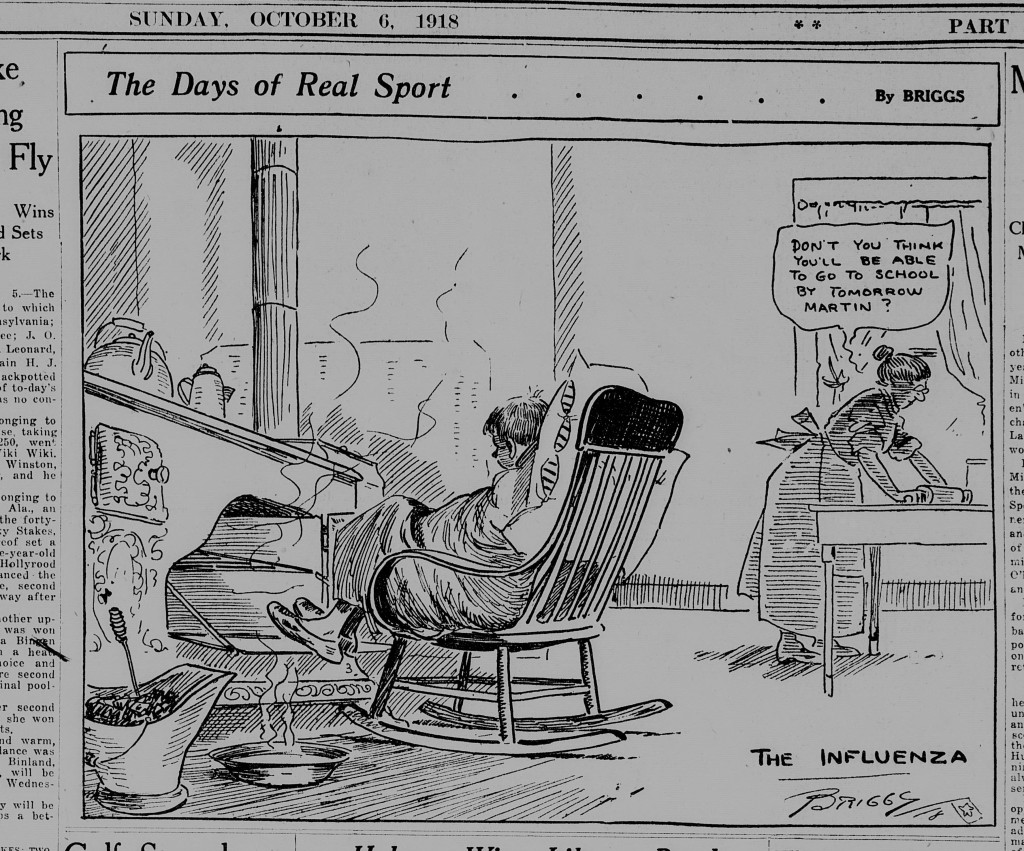

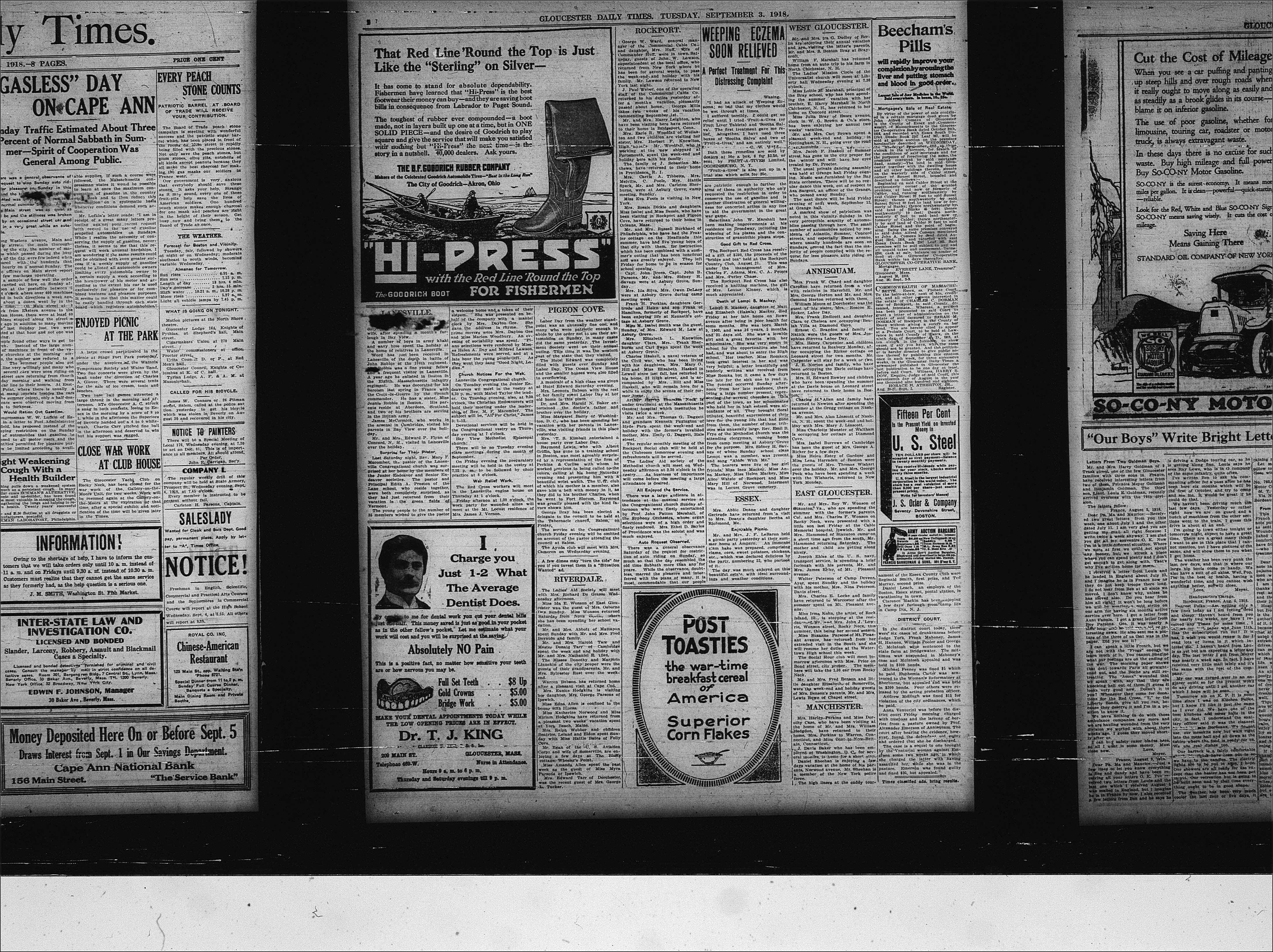
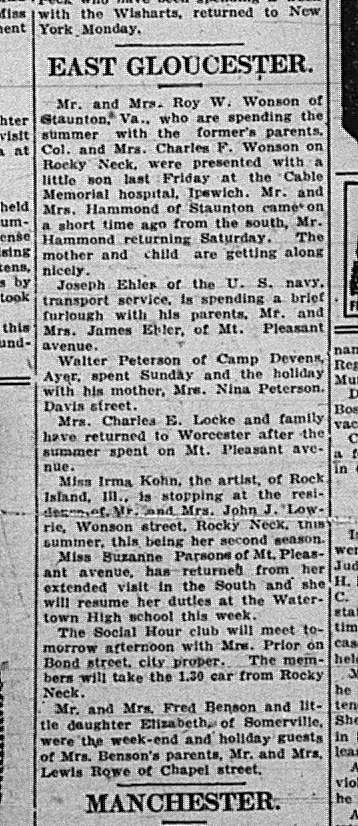


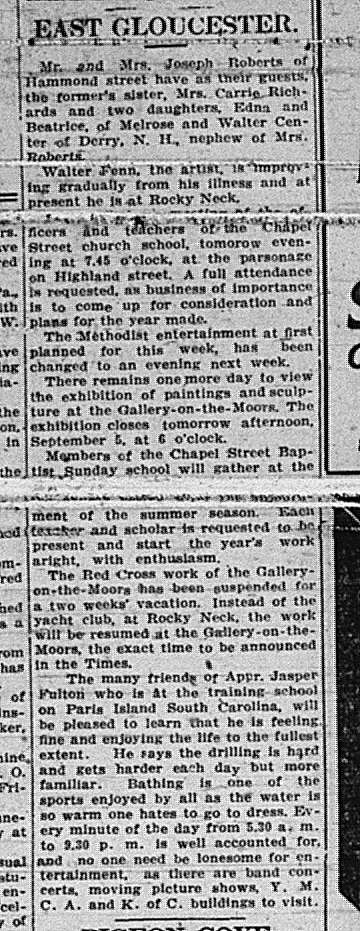


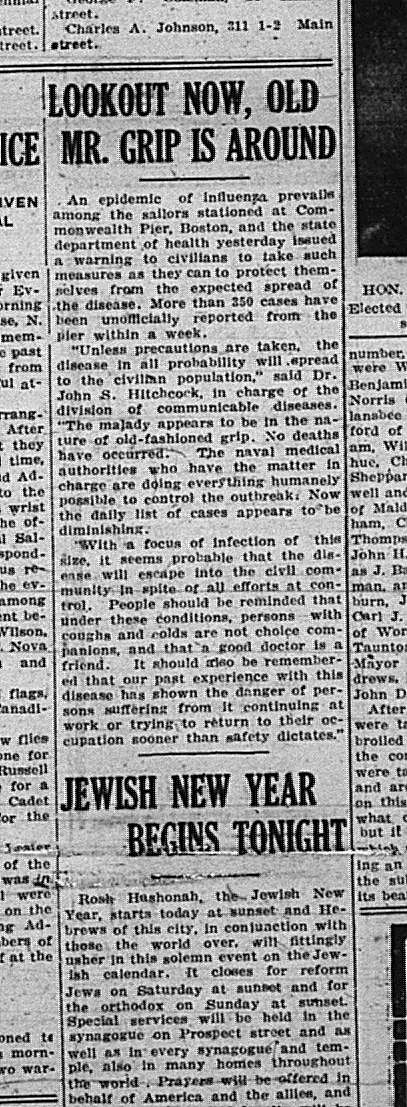


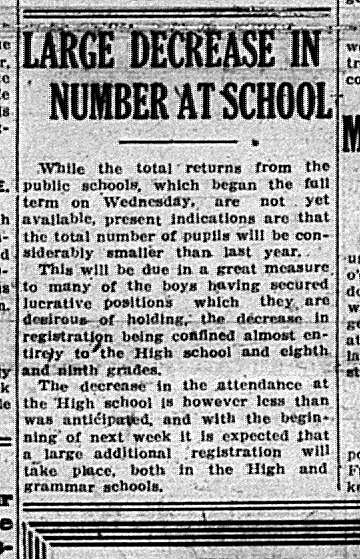
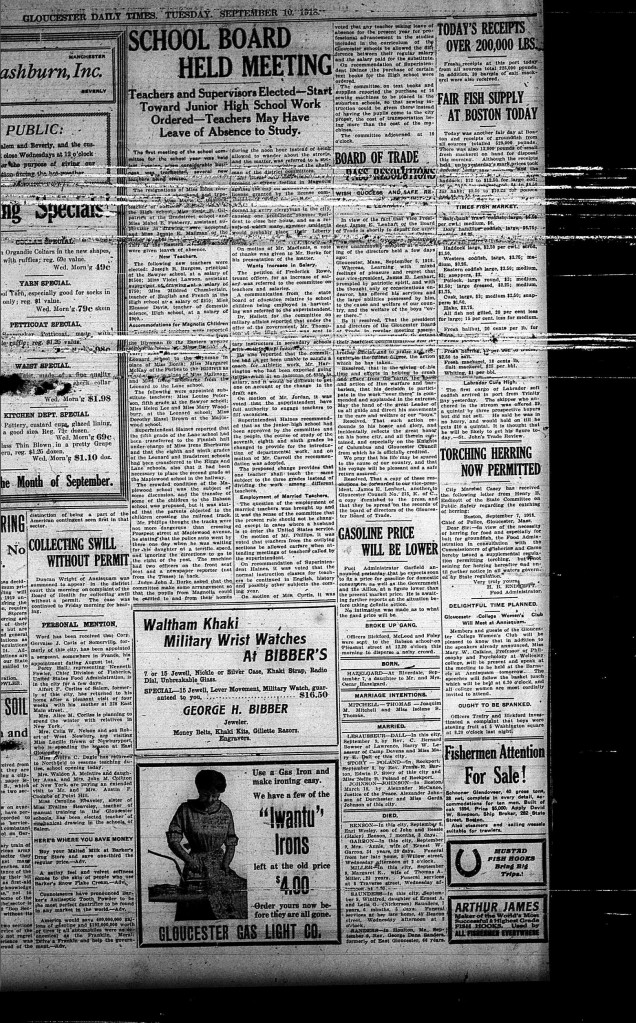
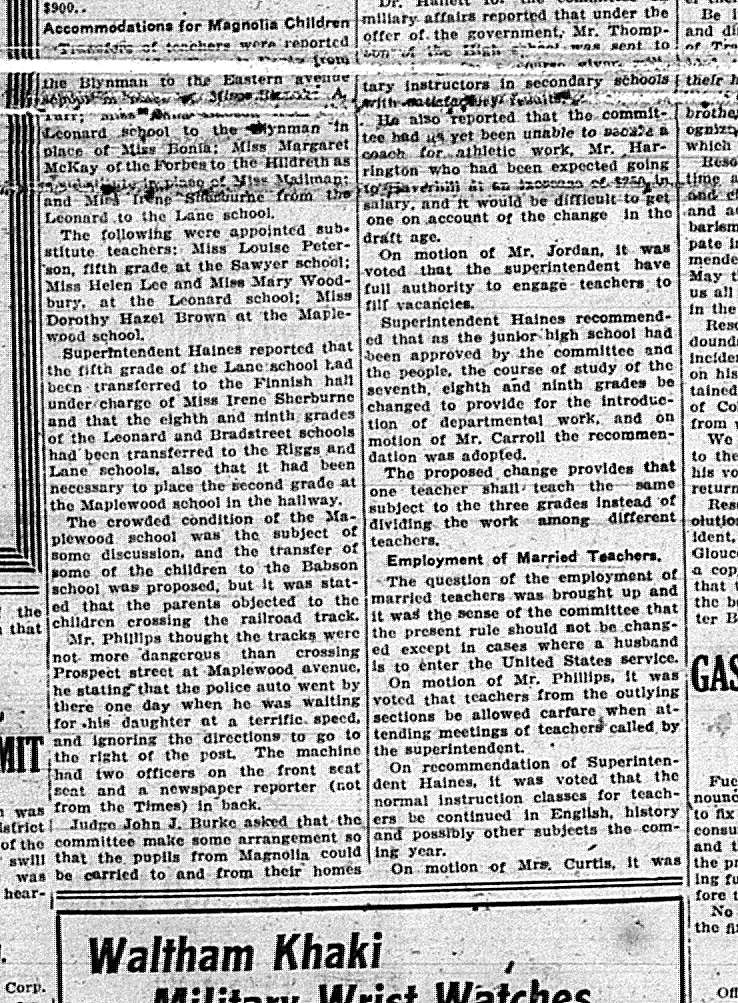

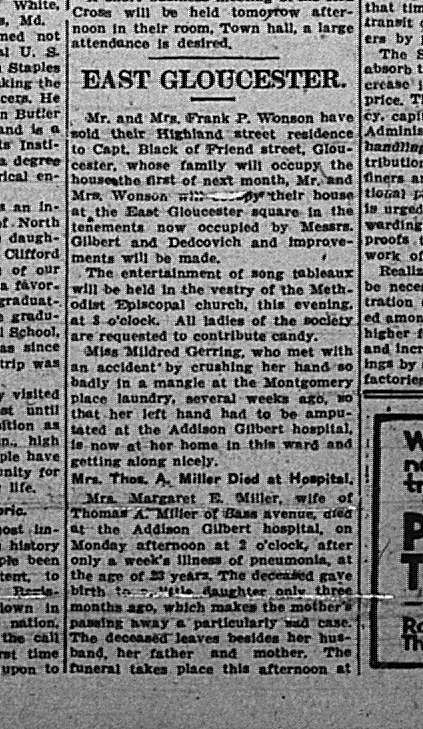



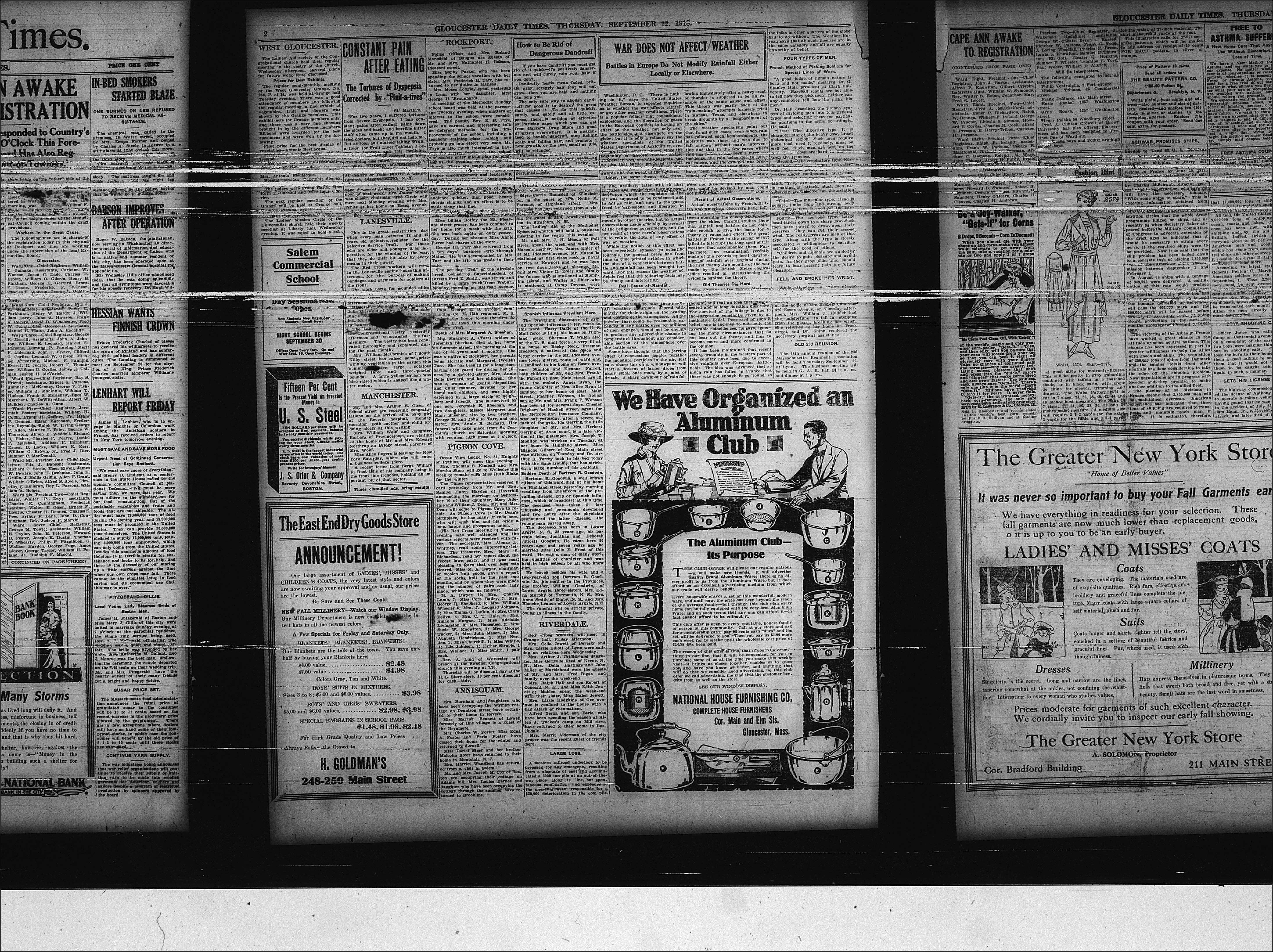
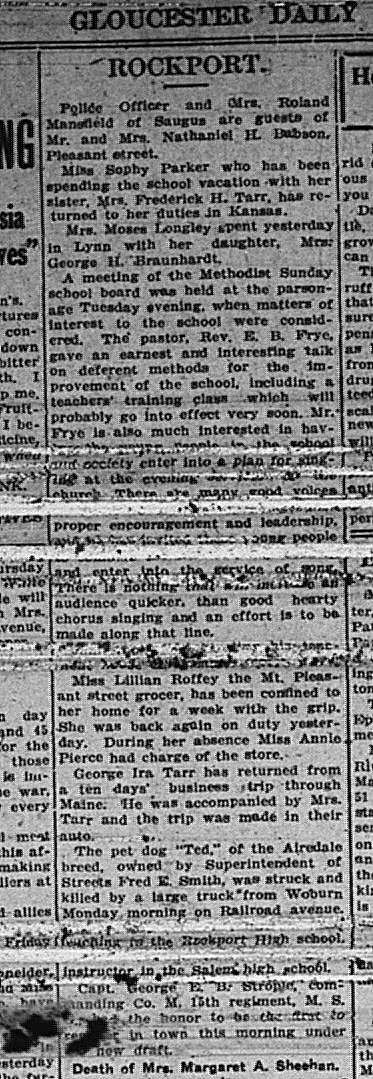




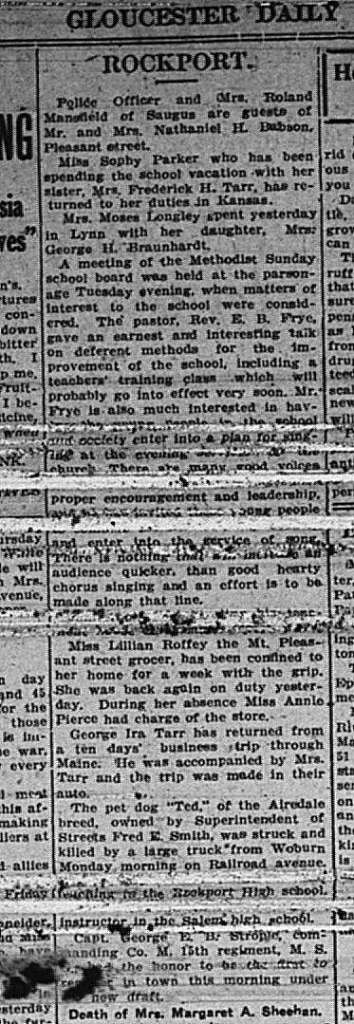

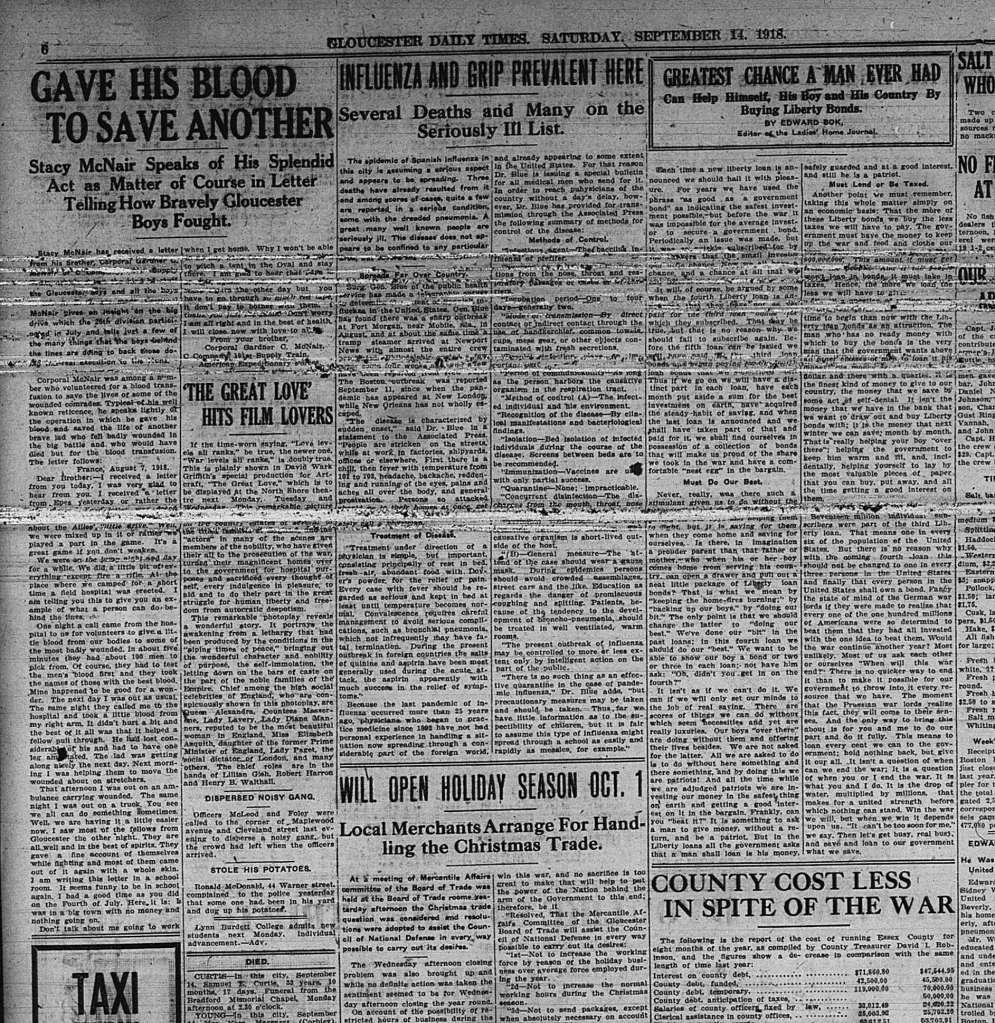

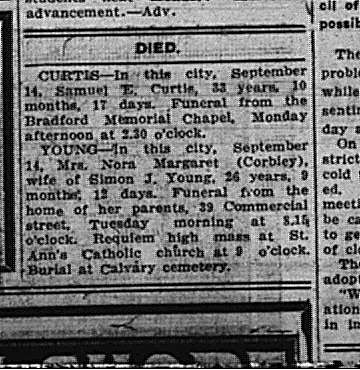
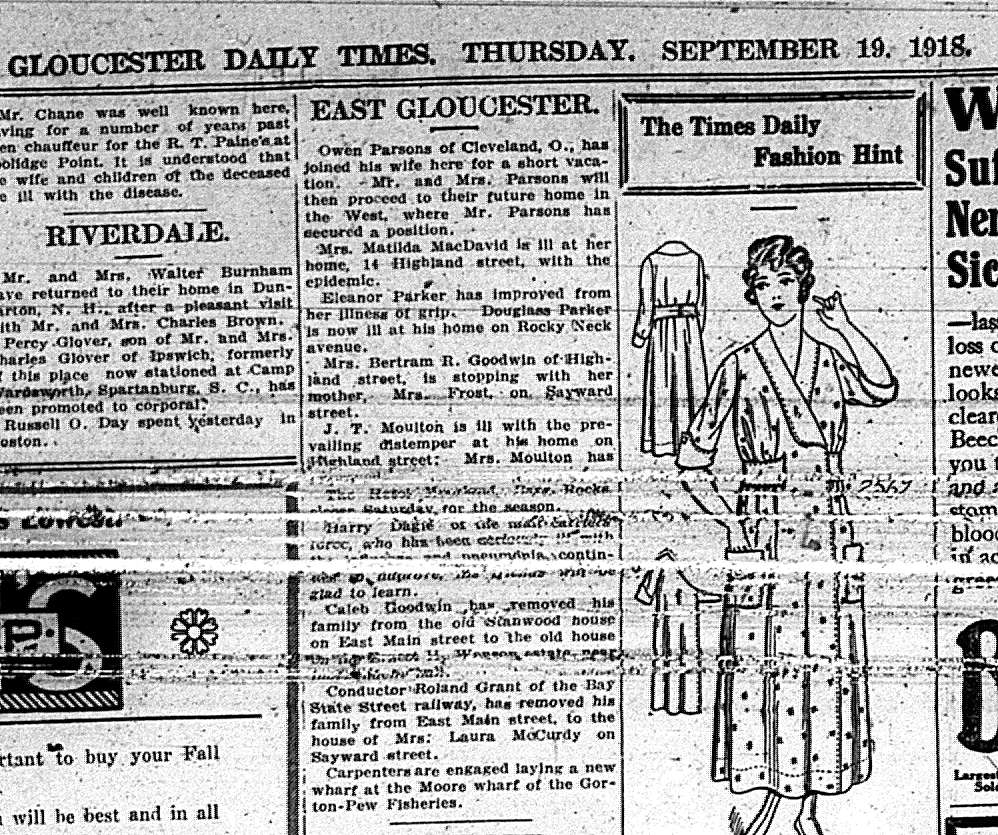
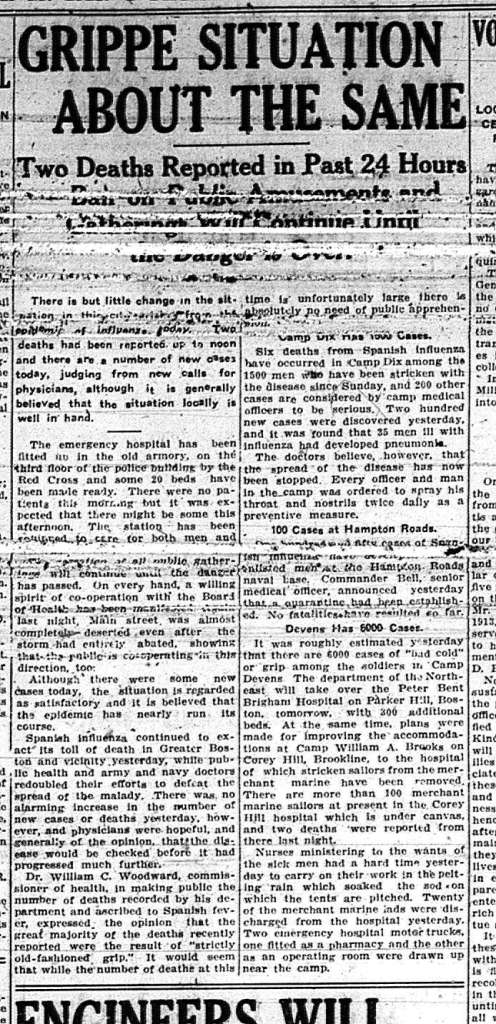


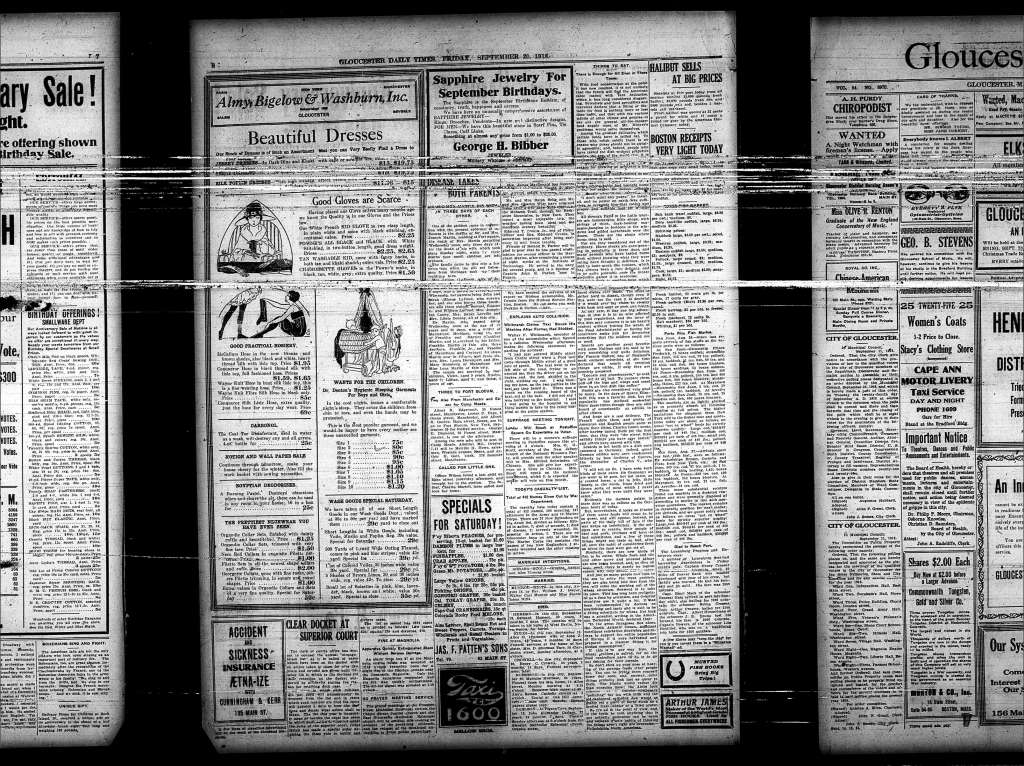
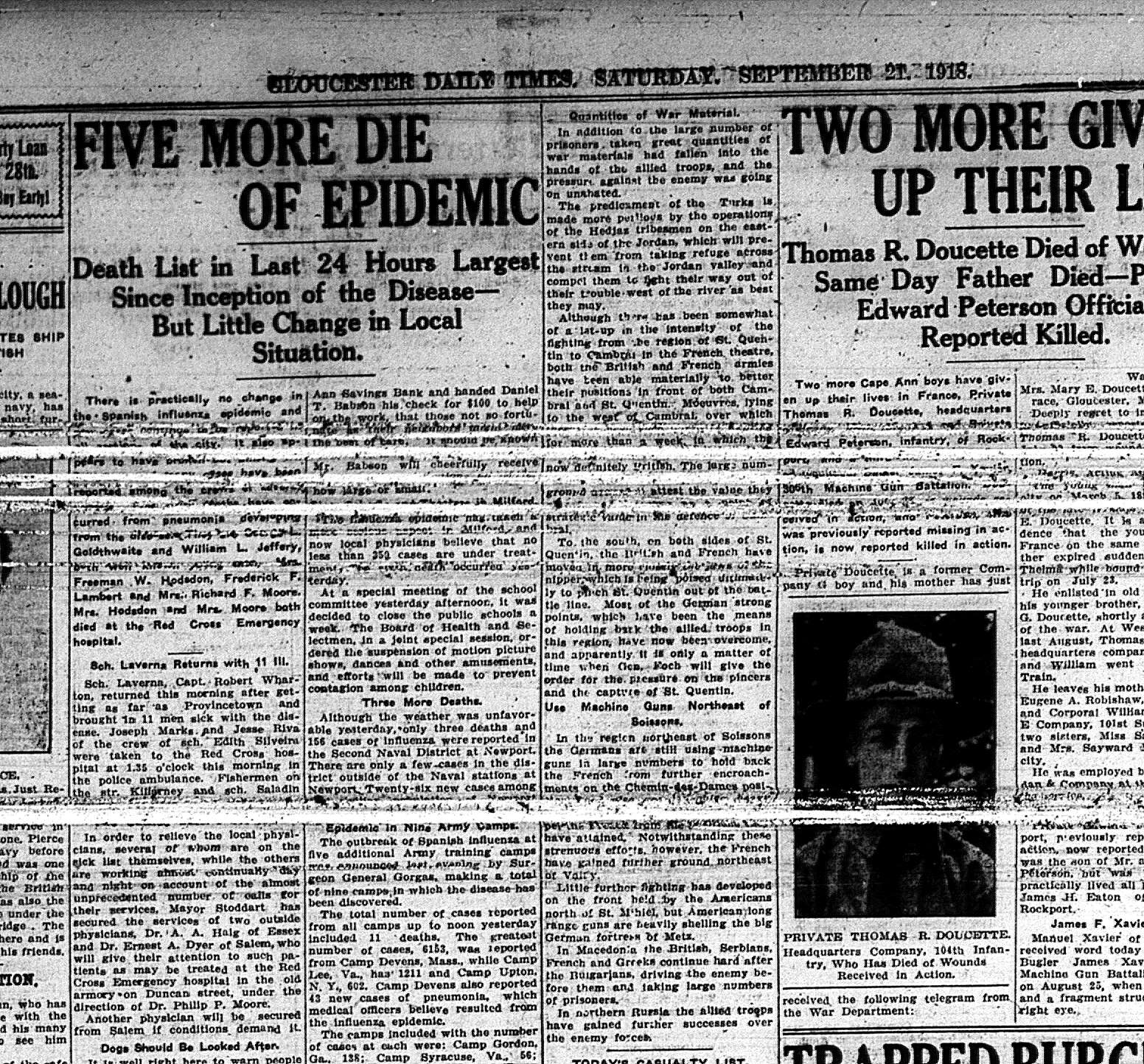
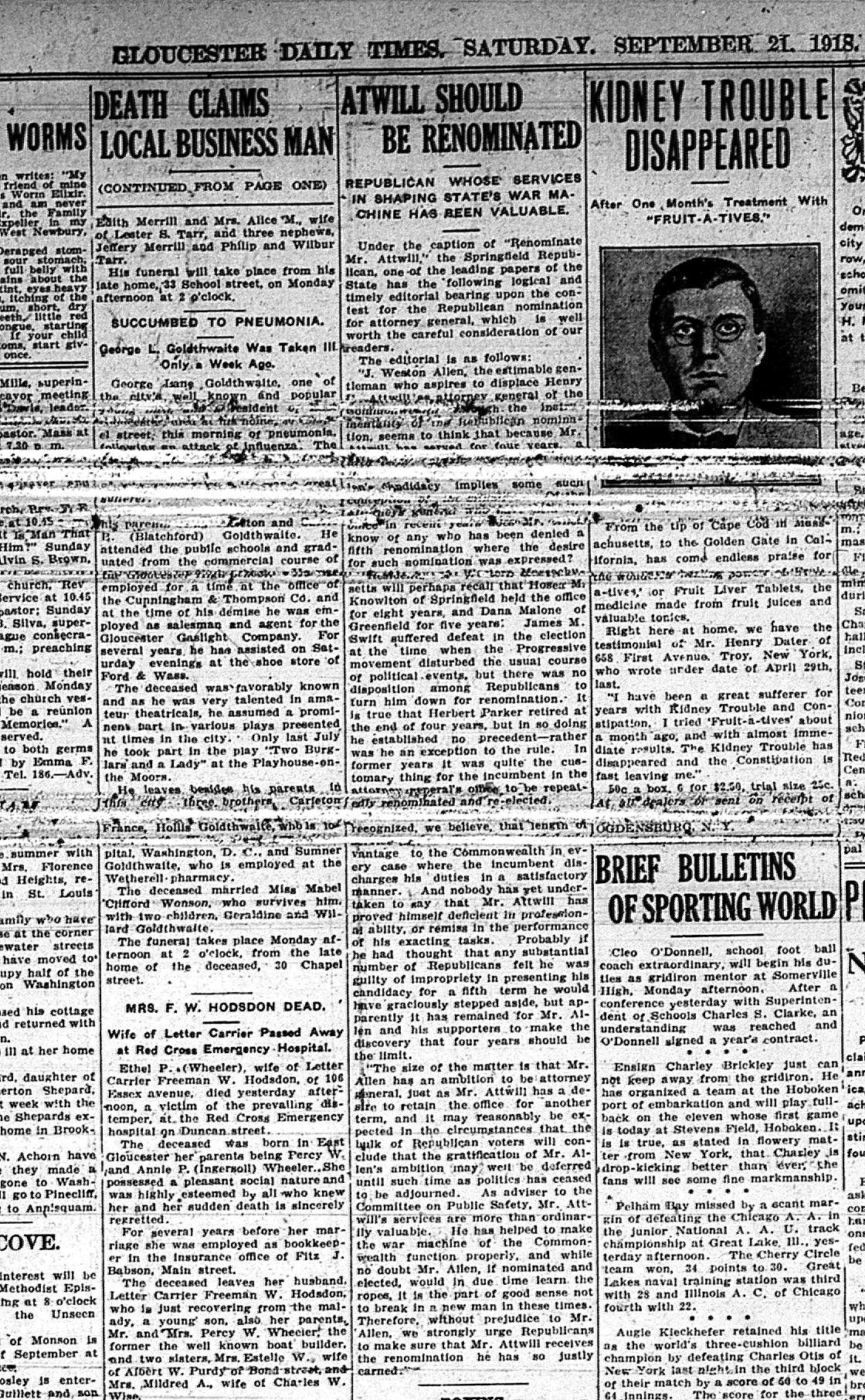
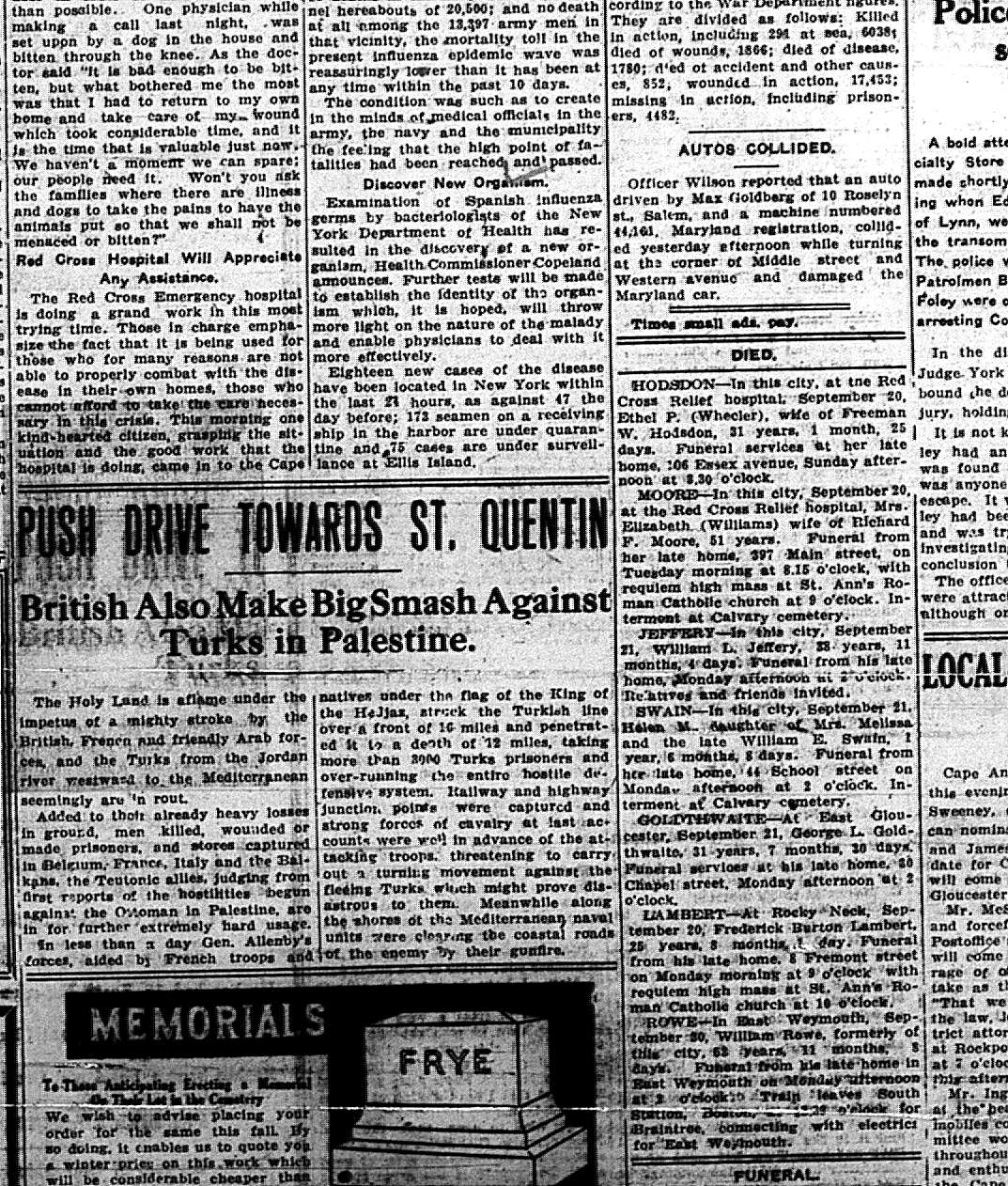




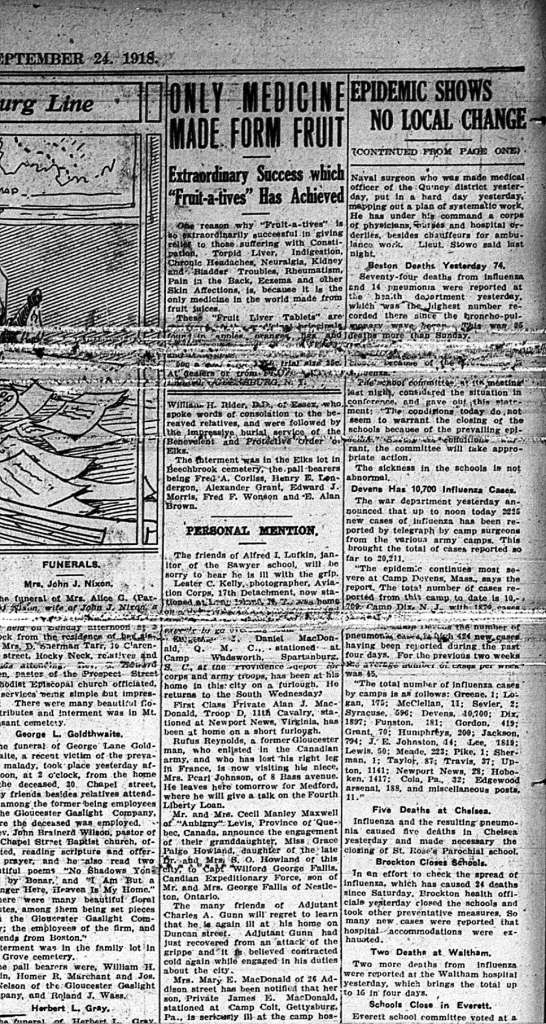
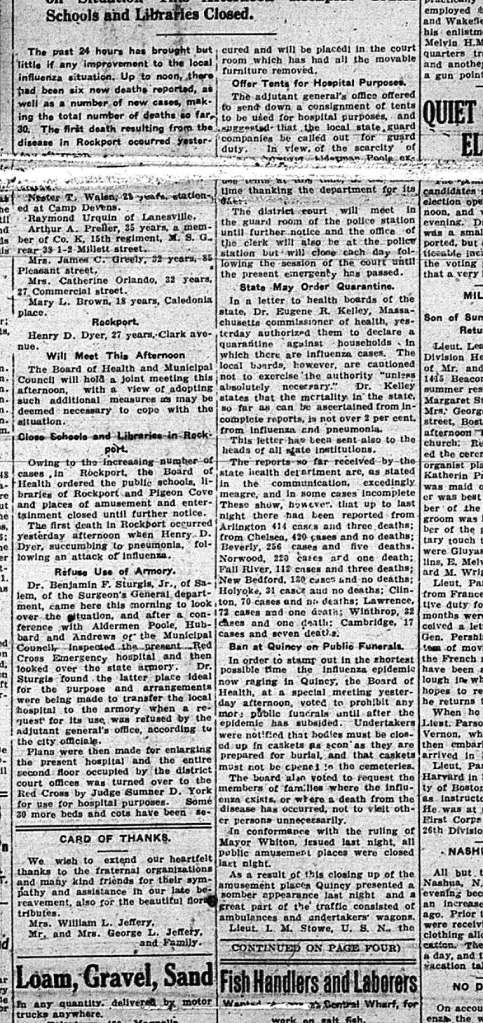
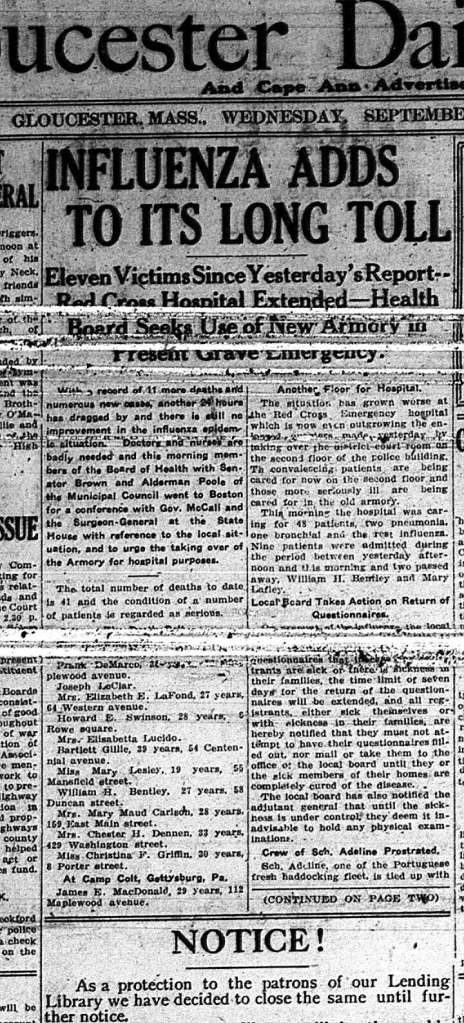
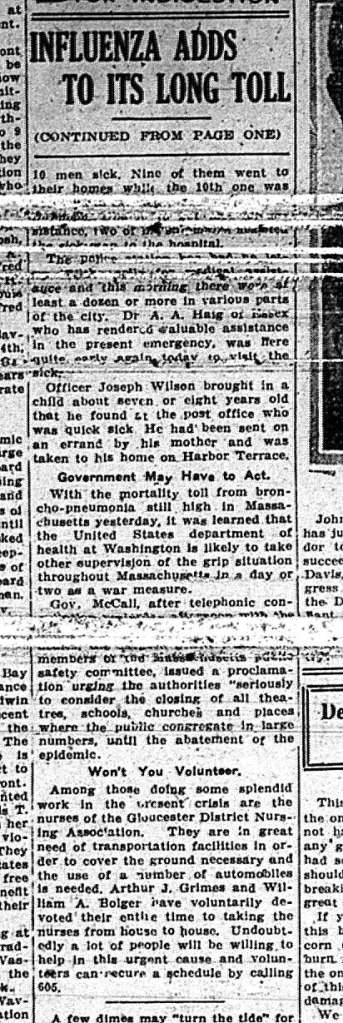
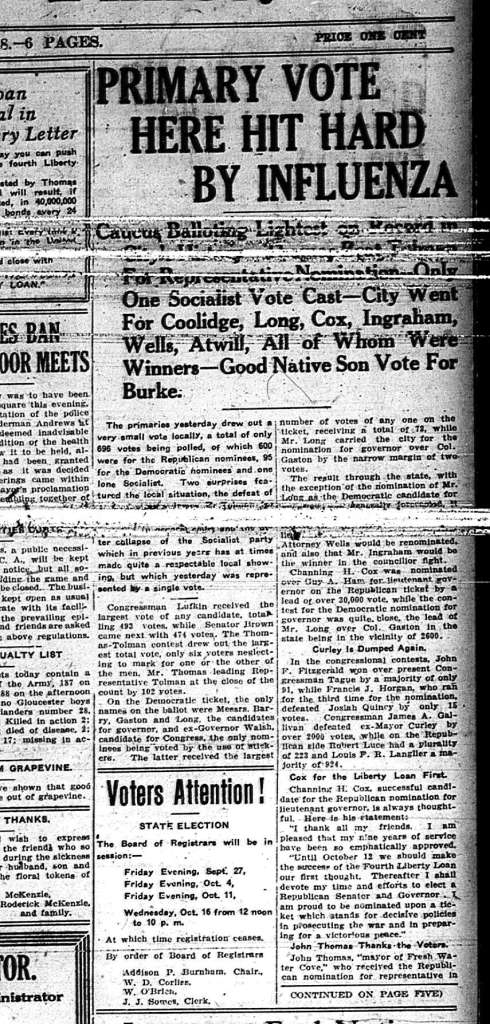




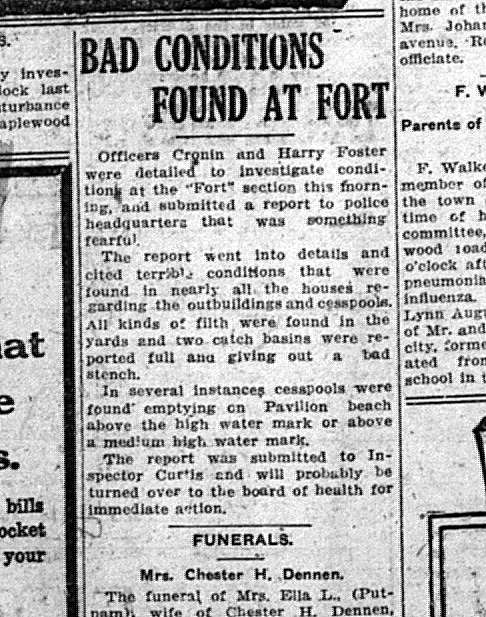
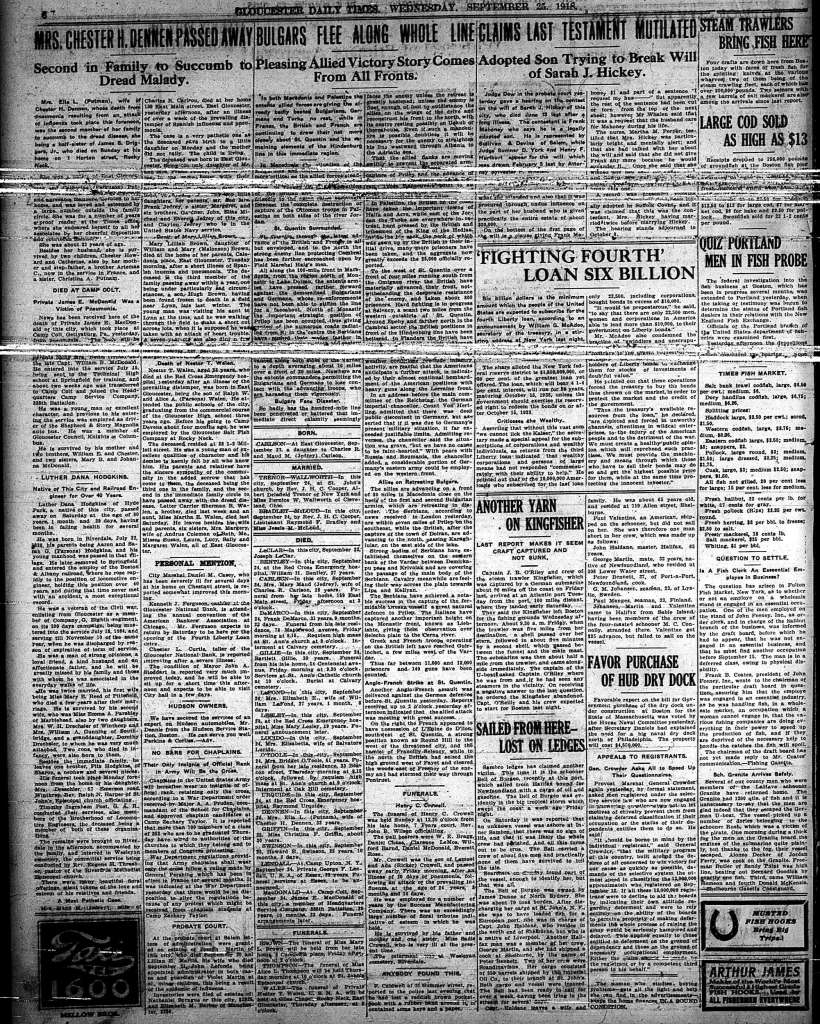
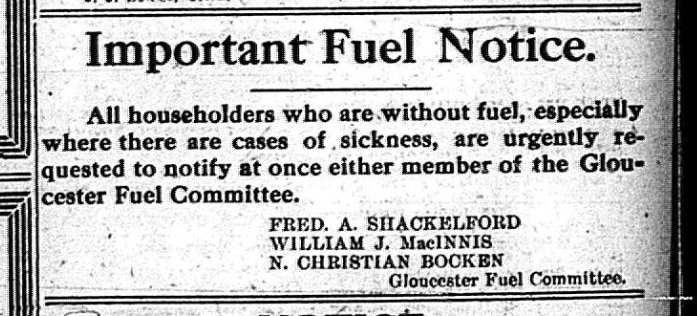

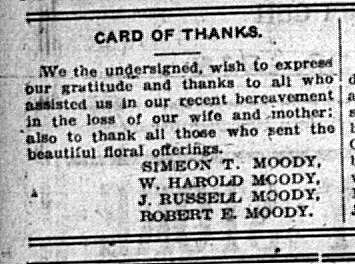
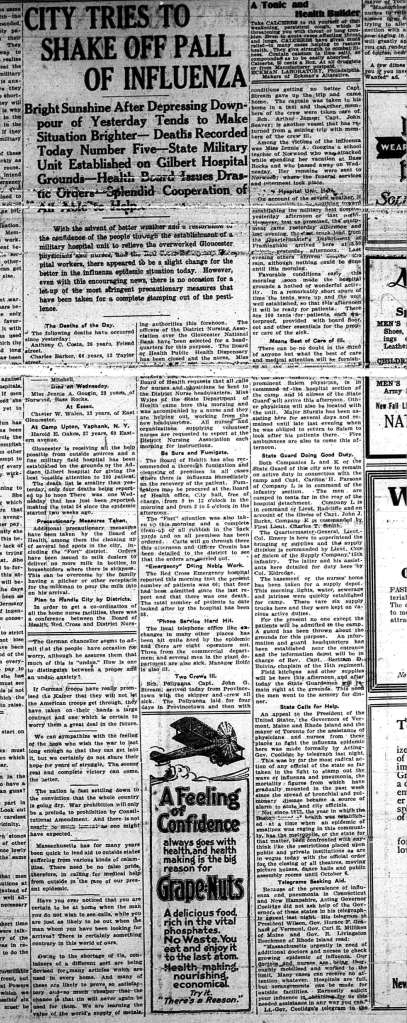
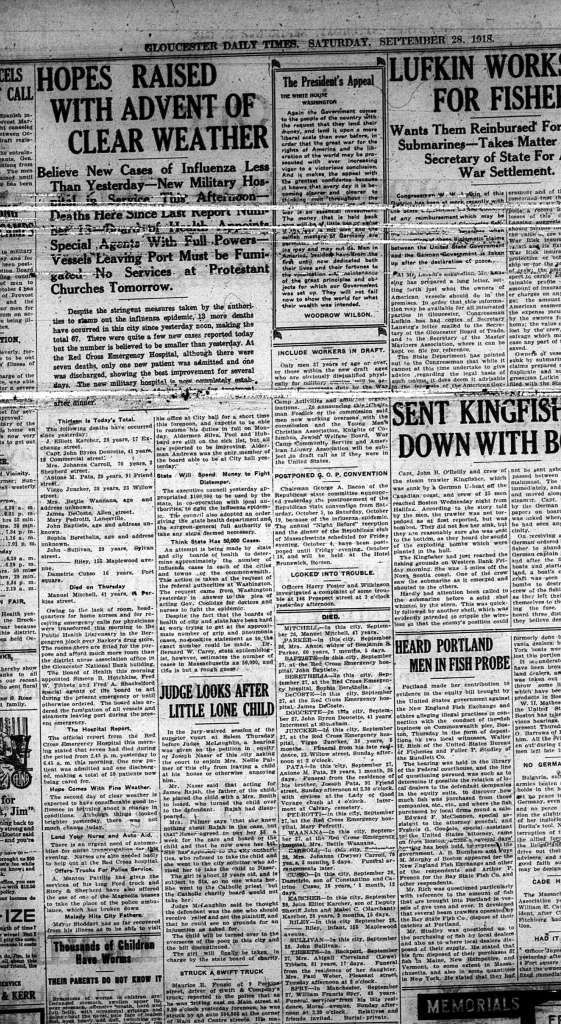

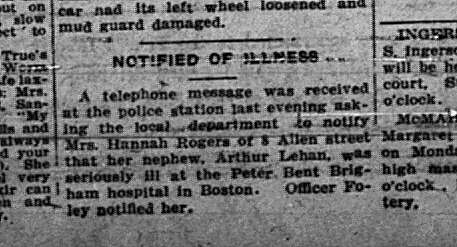
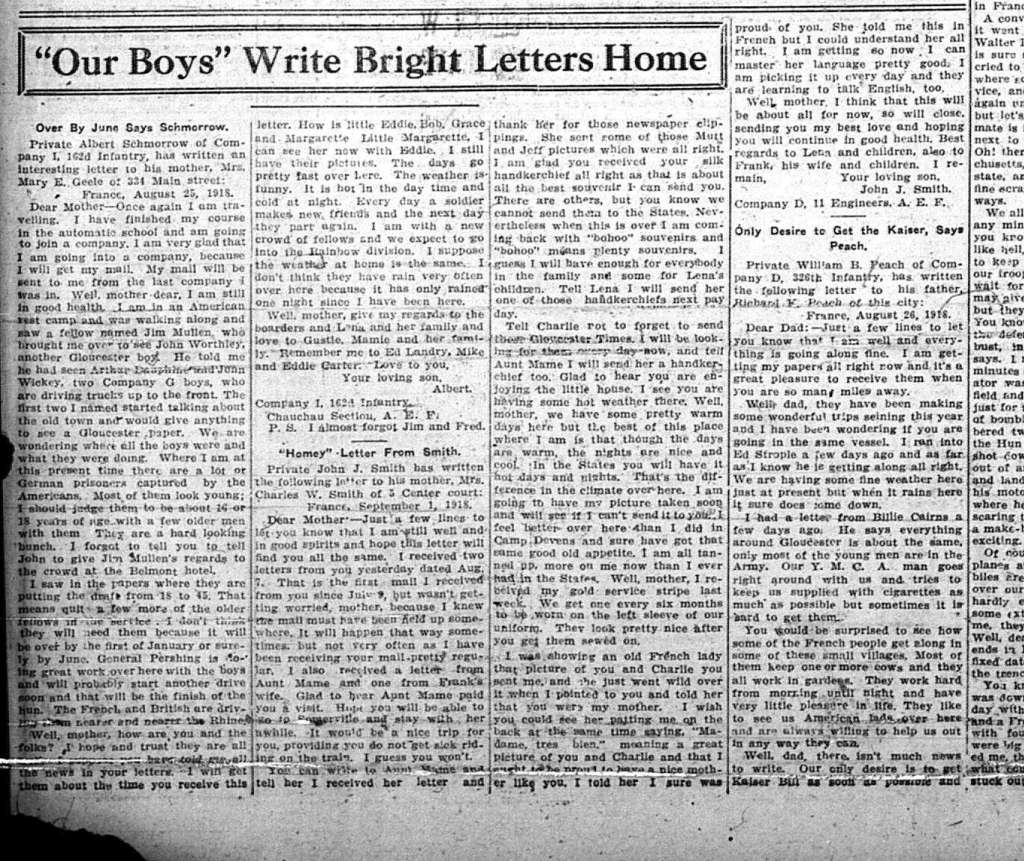
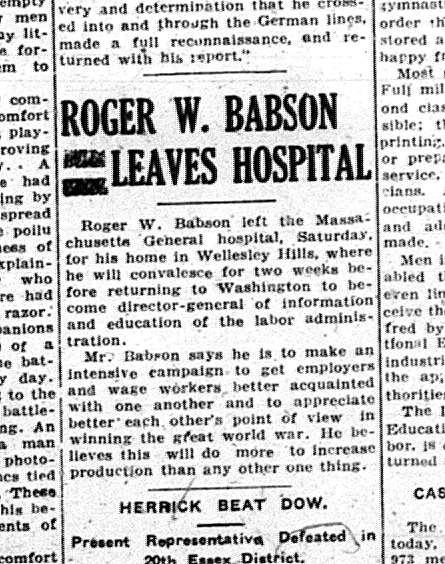
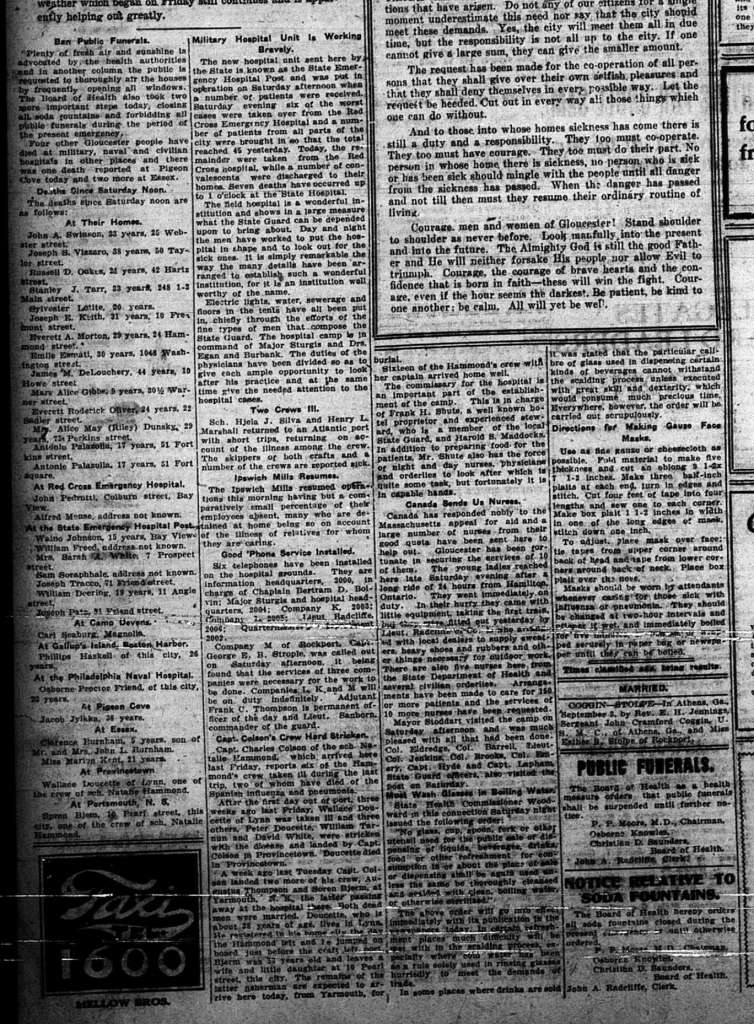

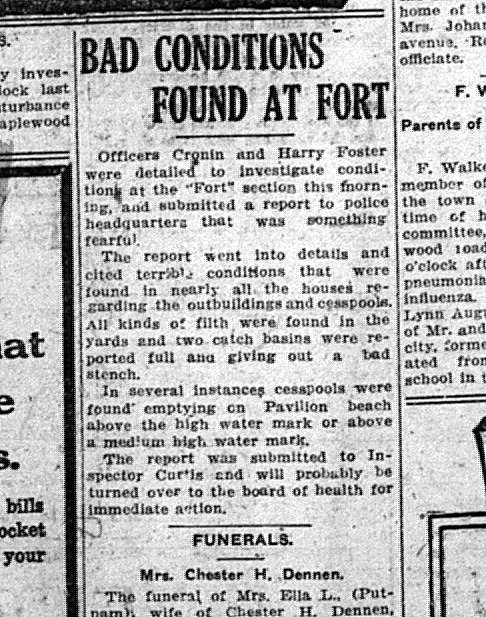


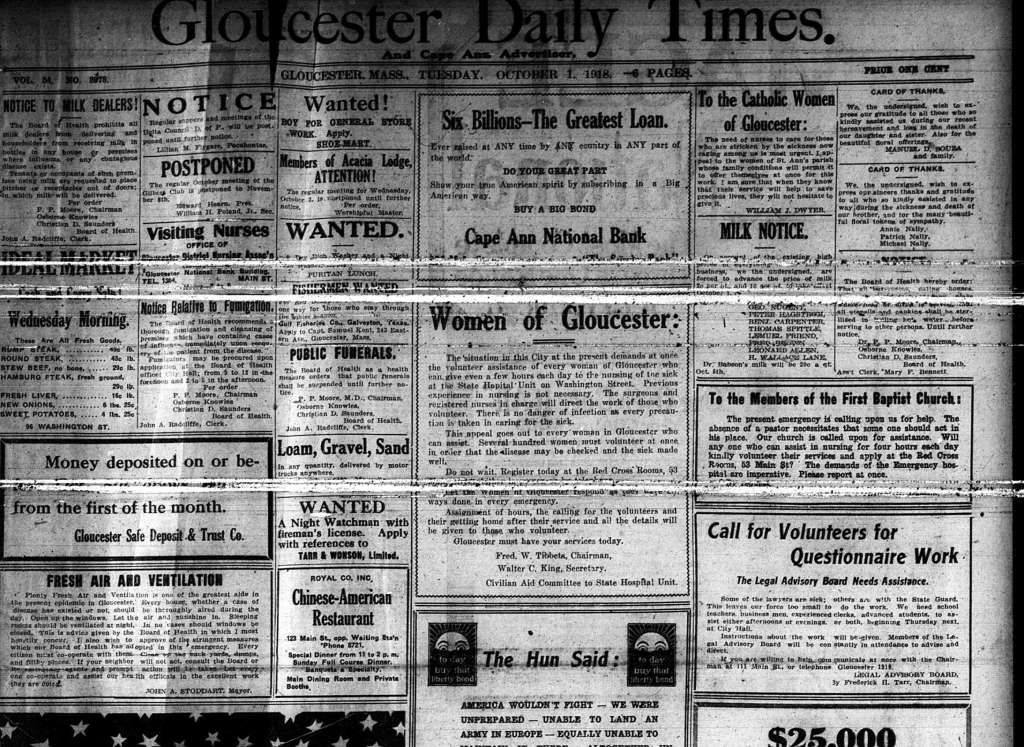
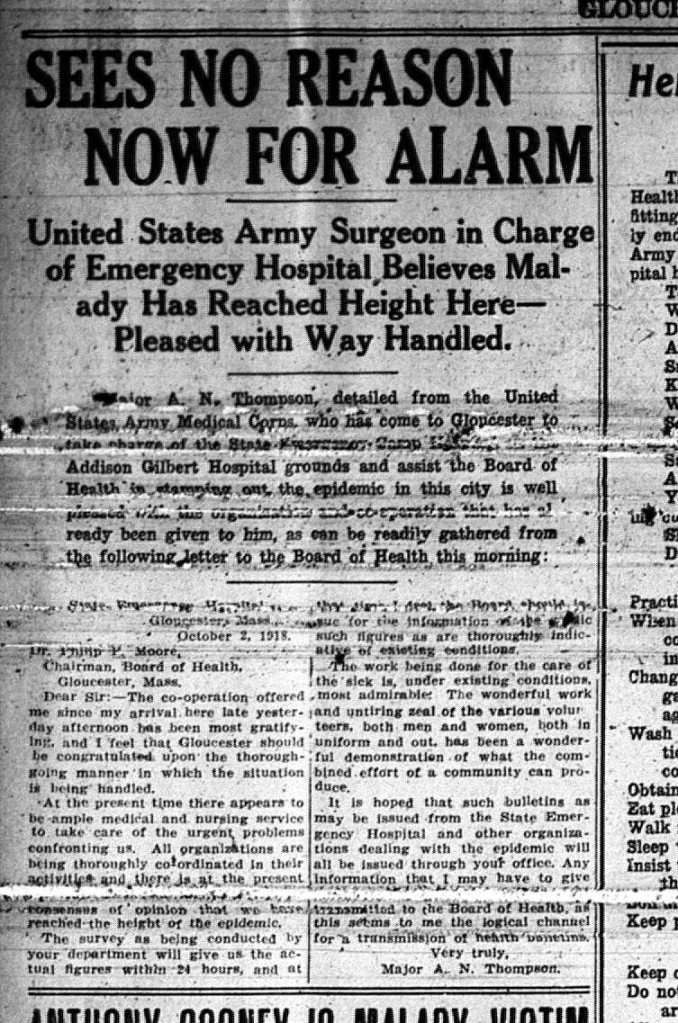
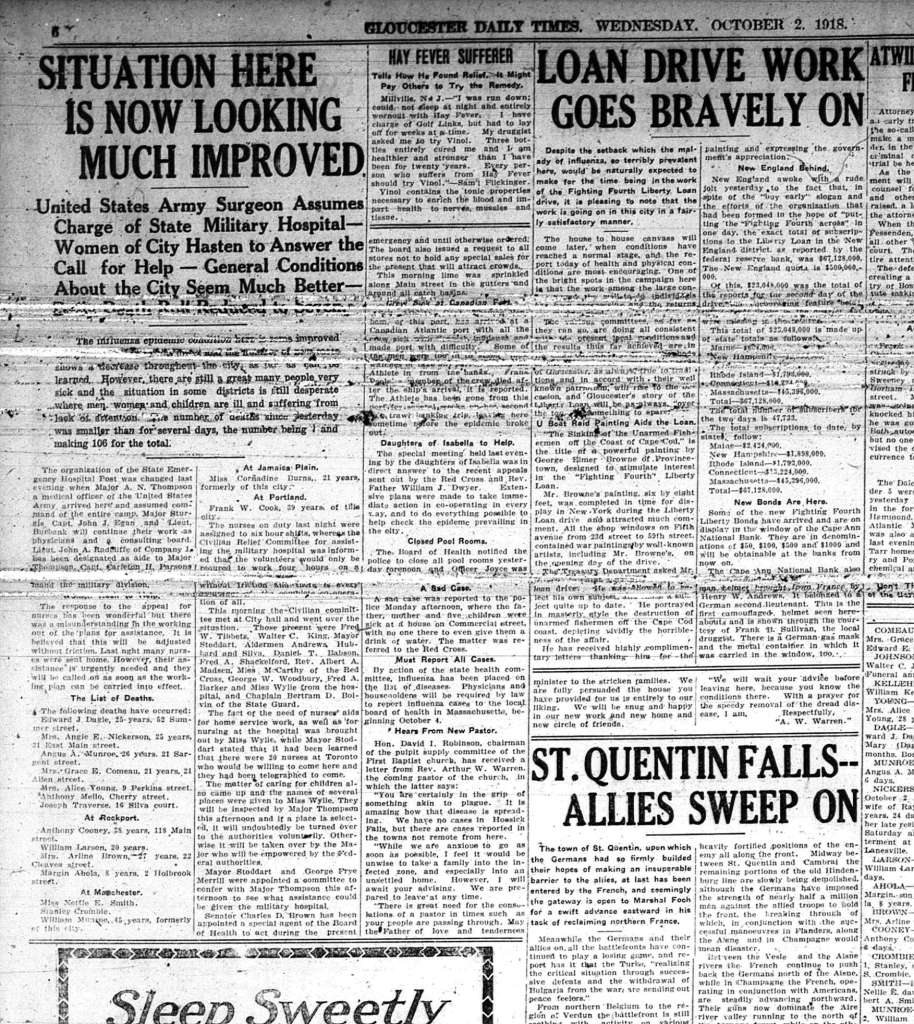

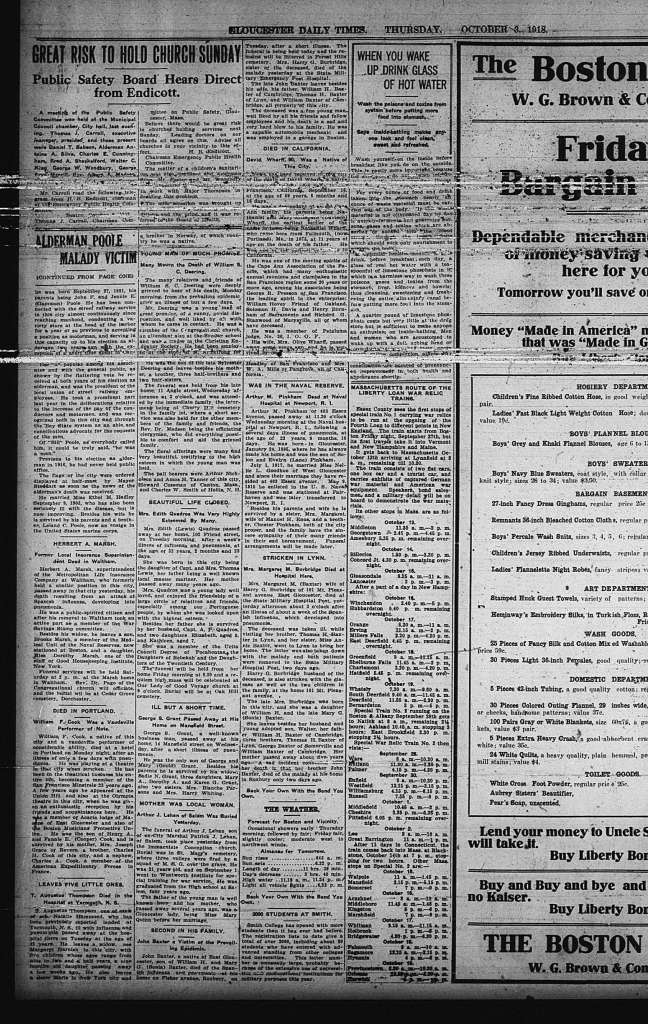
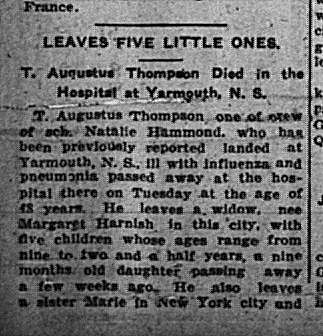
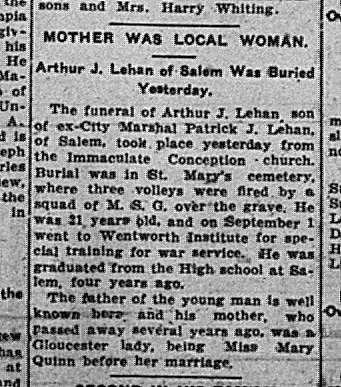


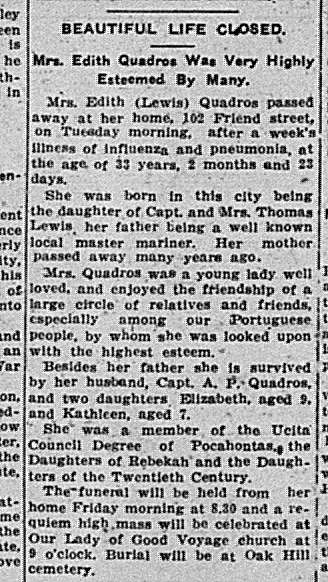

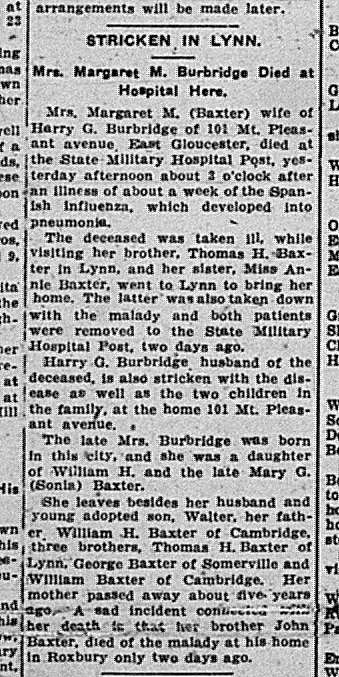
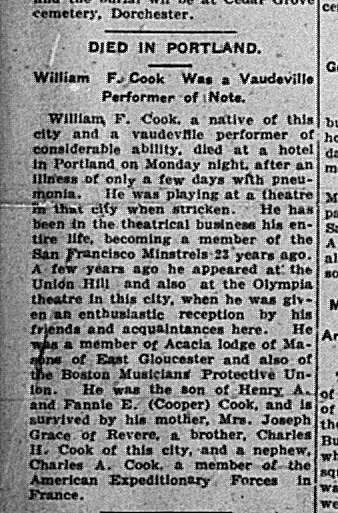
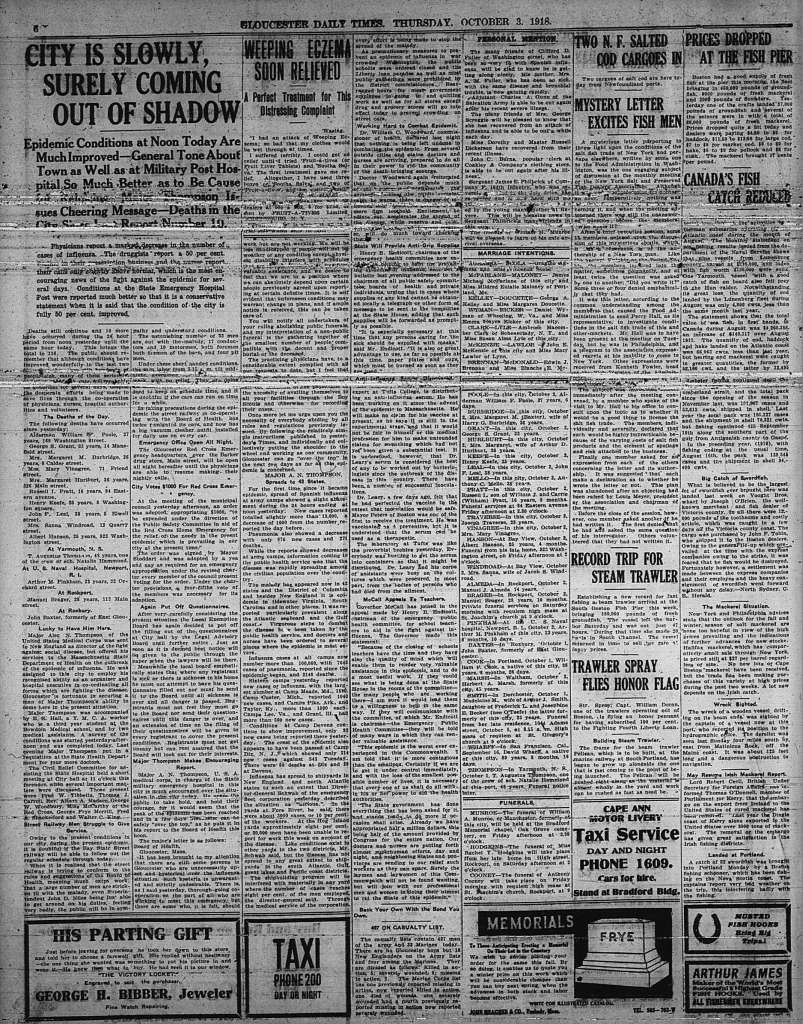
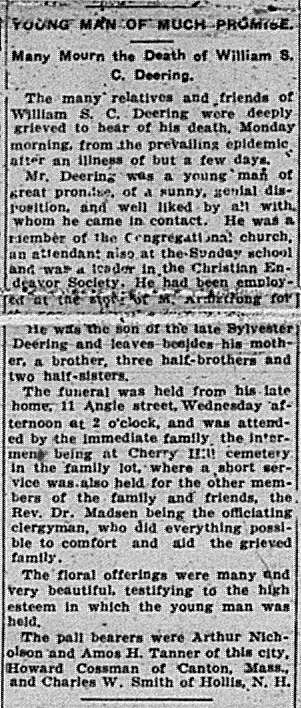
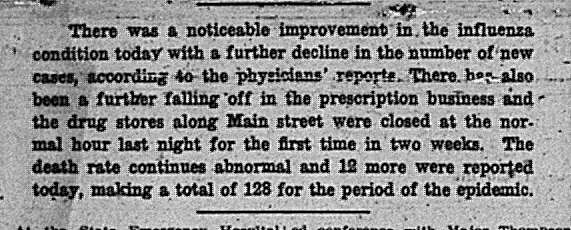



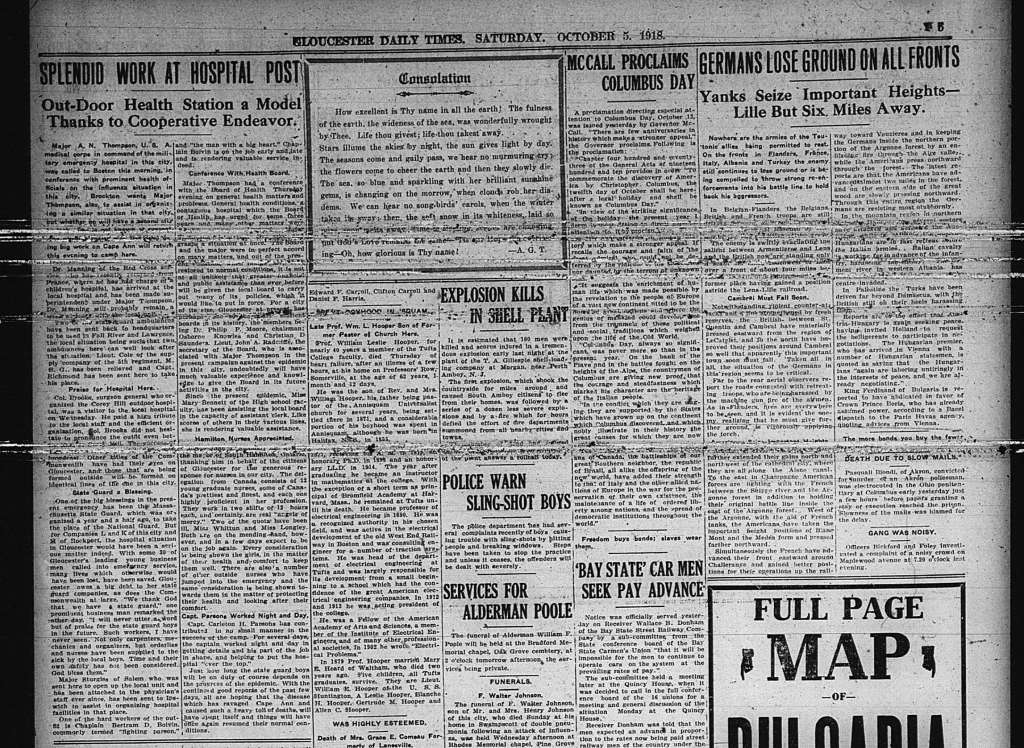
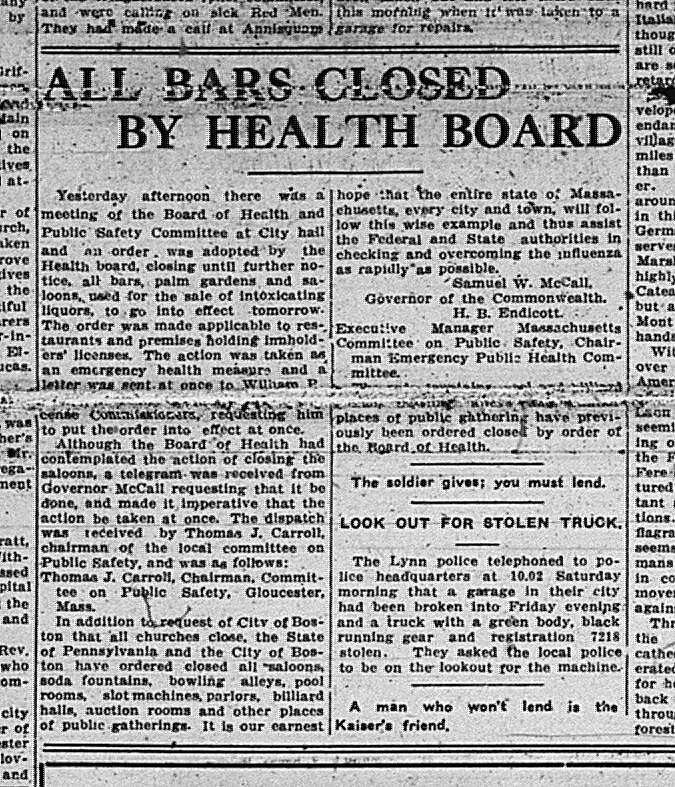
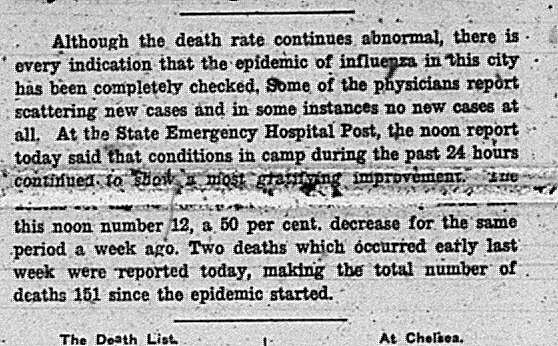
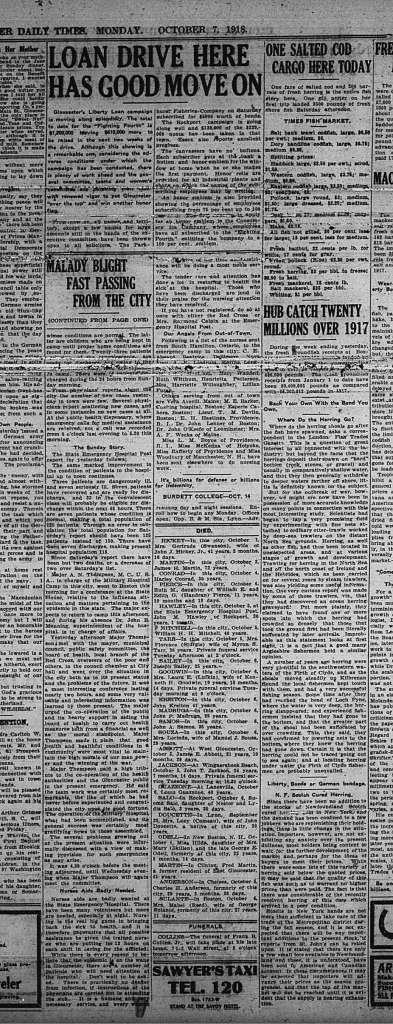

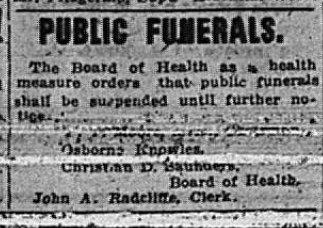
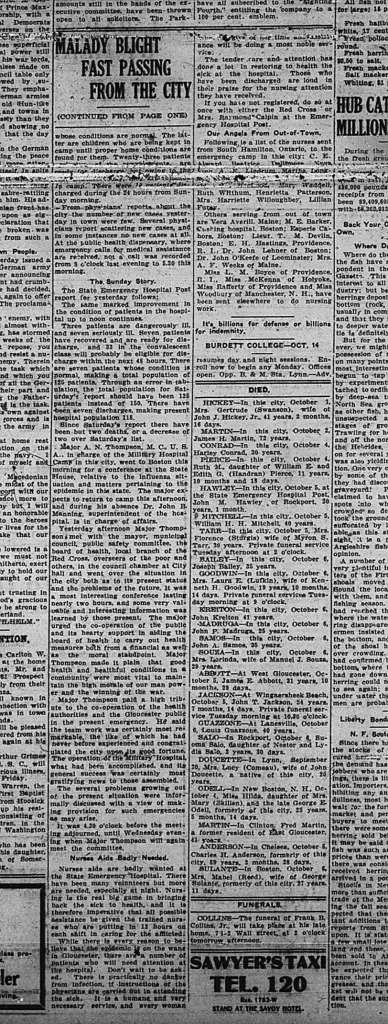


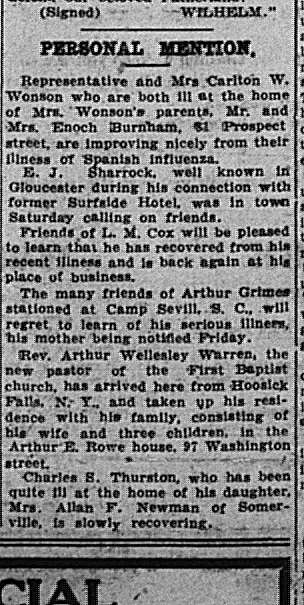

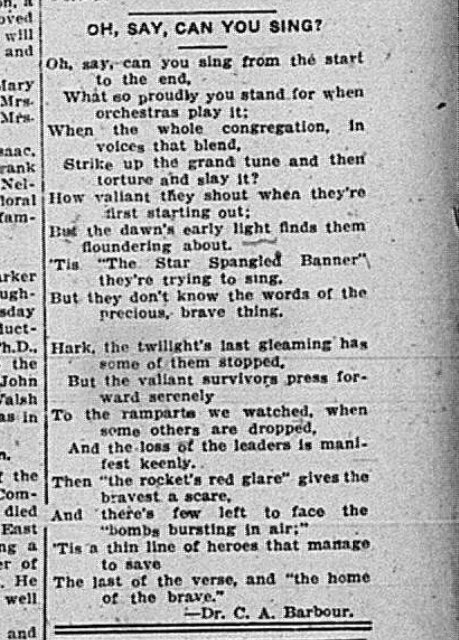




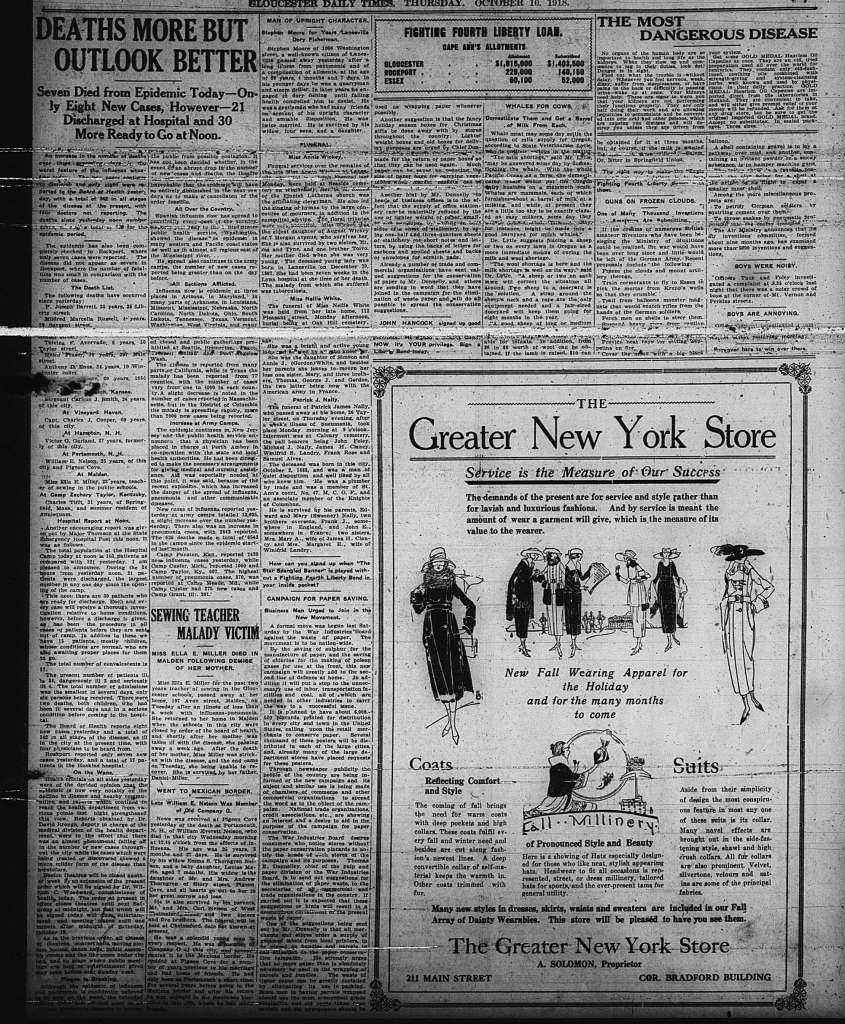
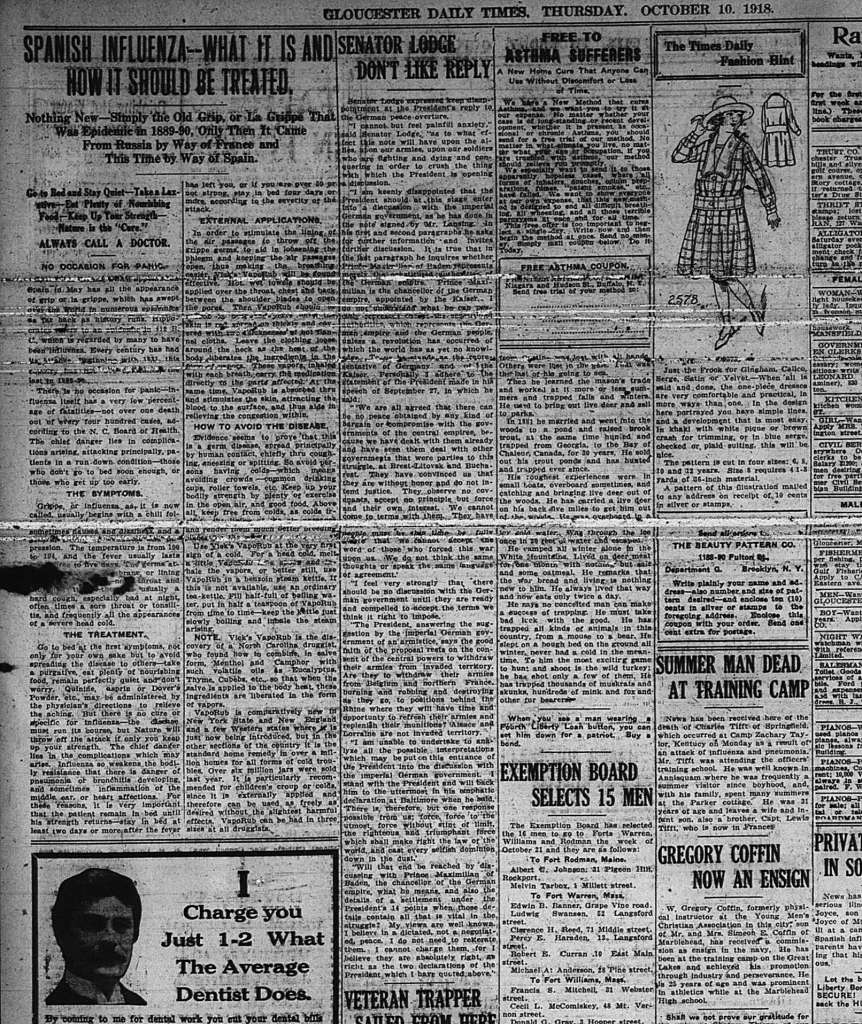


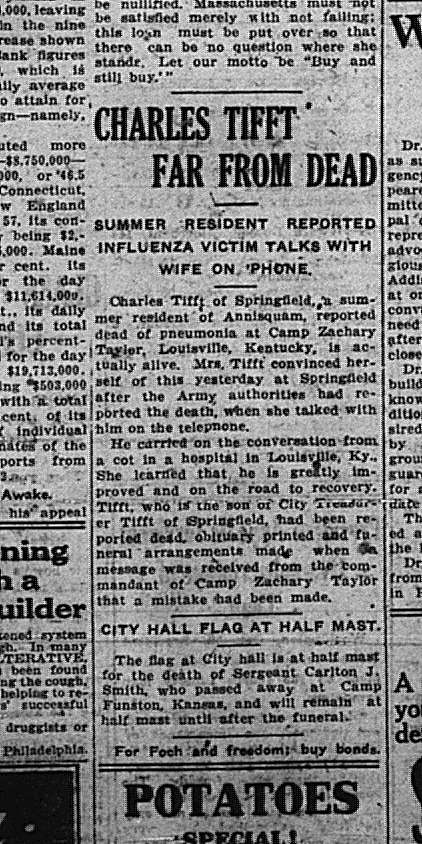

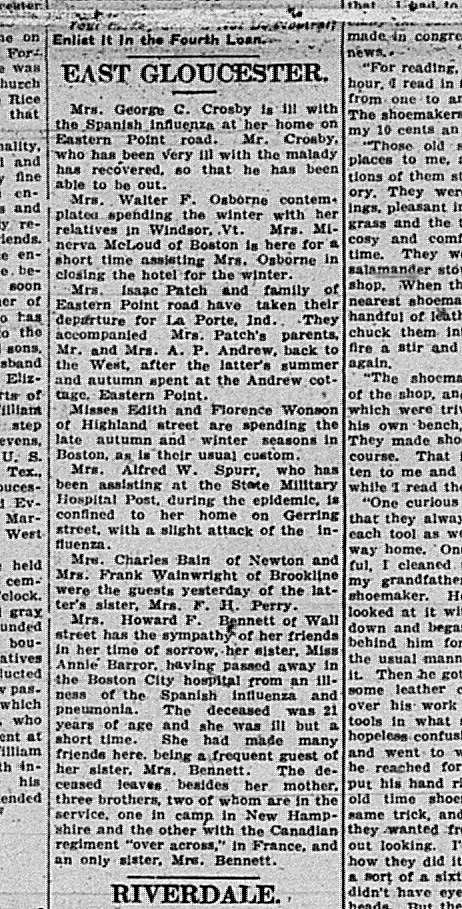

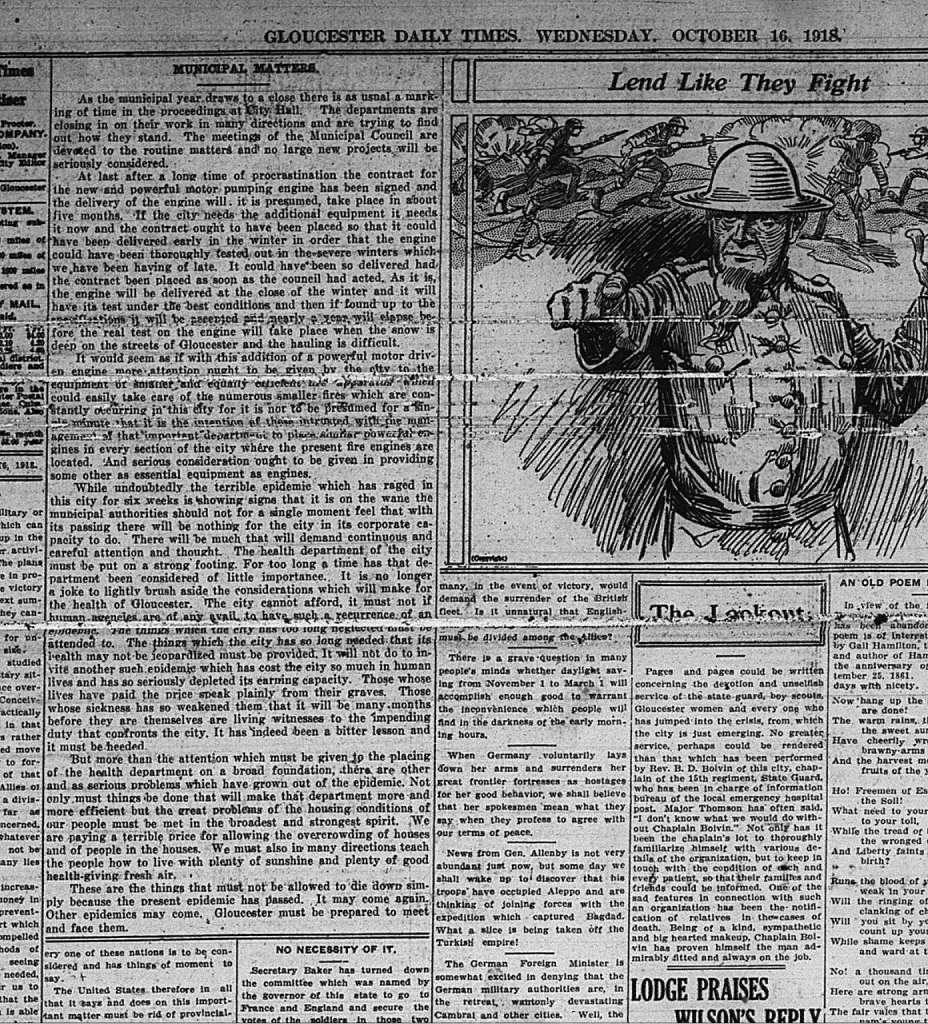
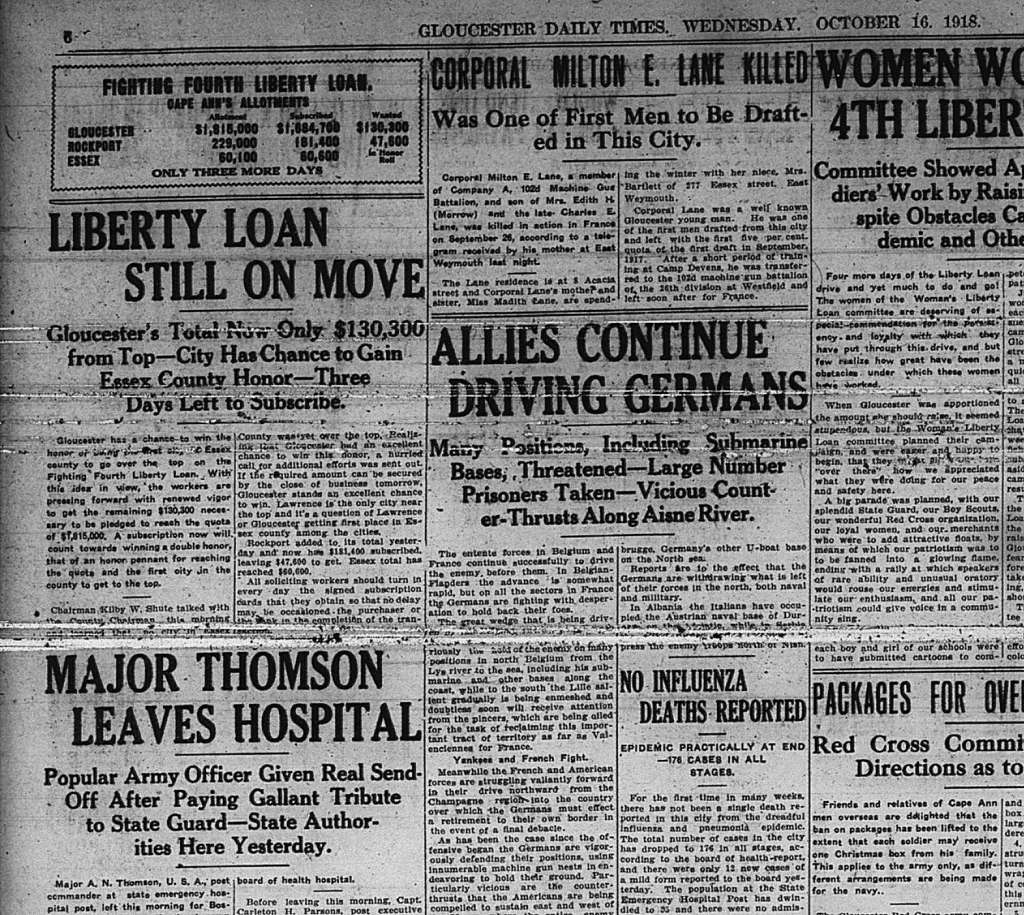
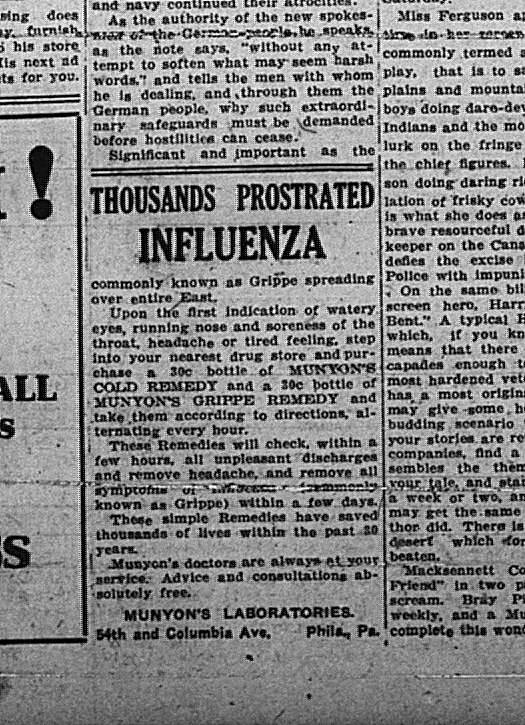

Catherine,
Fantastic reading, would you please contact me at safevoyage@yahoo.com? Sandy Barry
LikeLiked by 1 person
My god, this is a huge piece of scholarship. Thank you.
LikeLiked by 1 person
Thank you so much, Sharron!
LikeLike